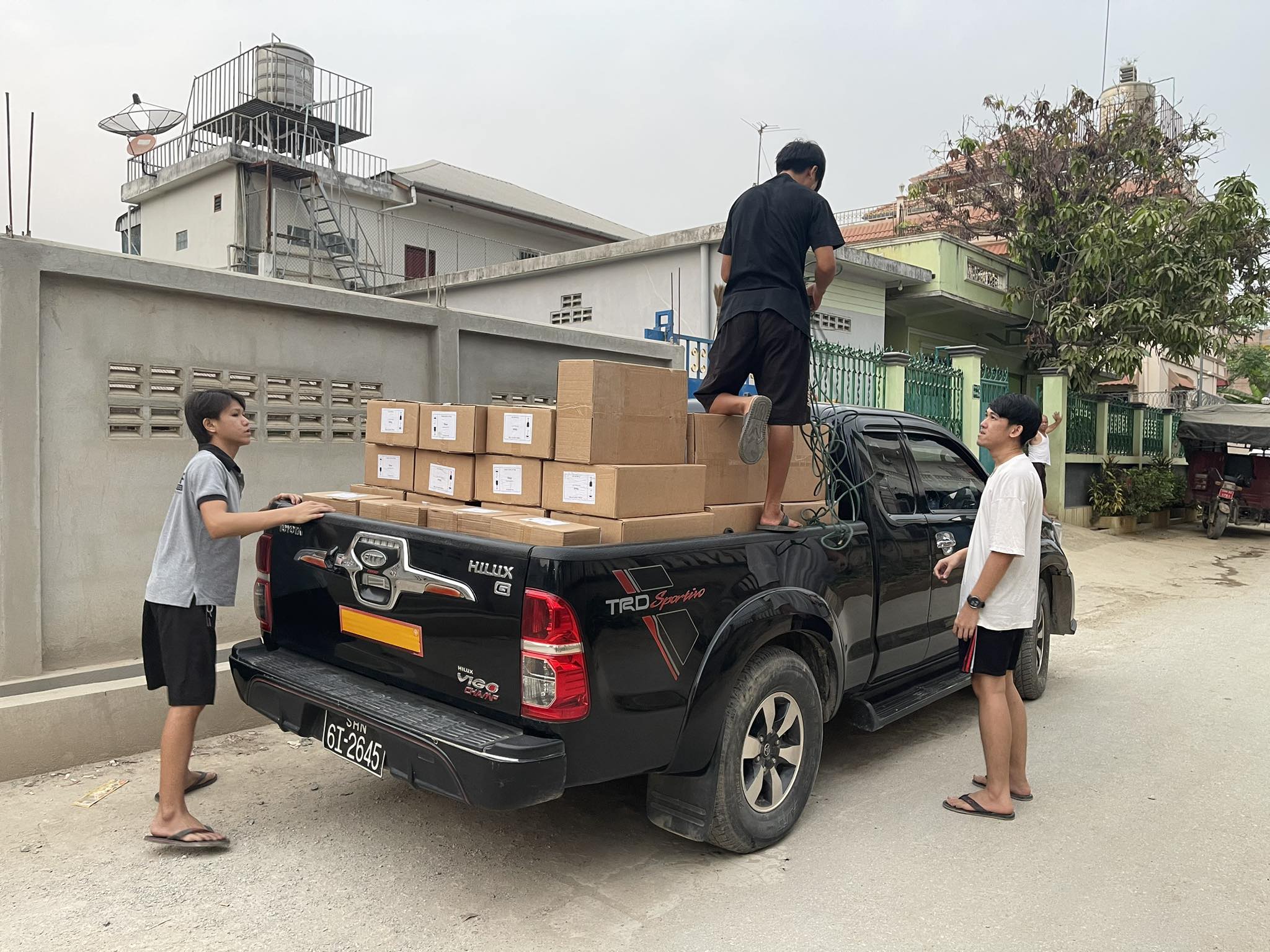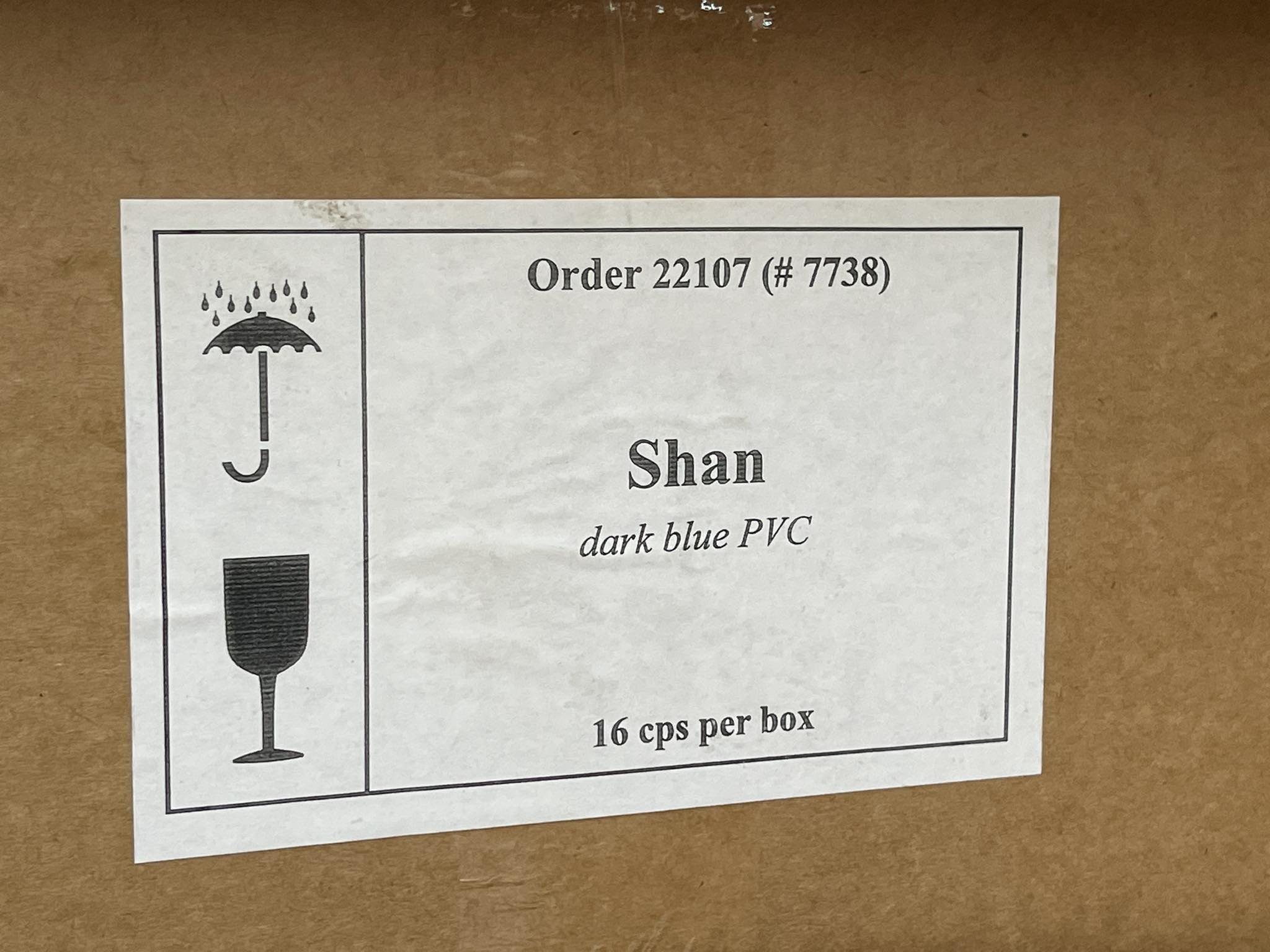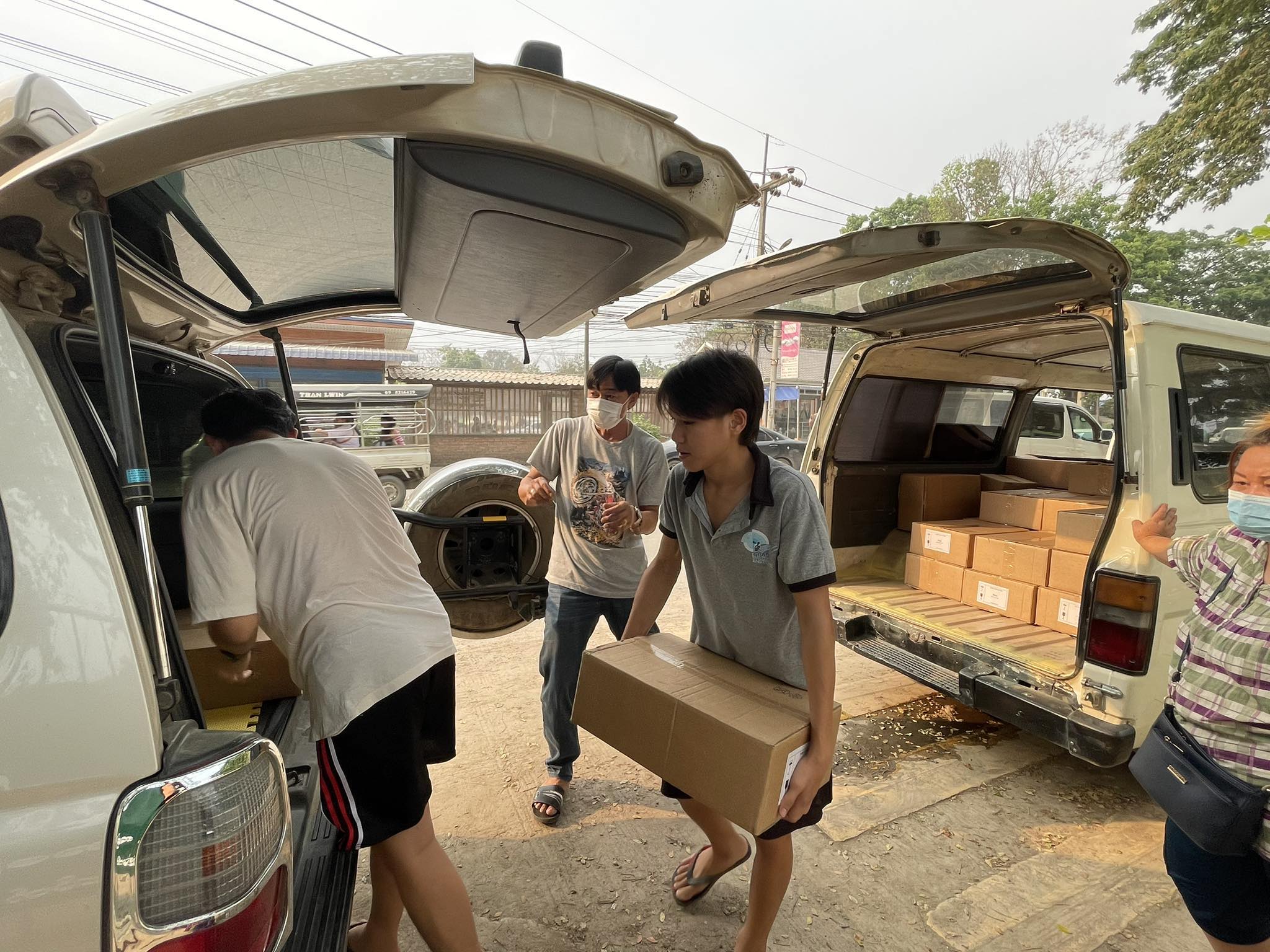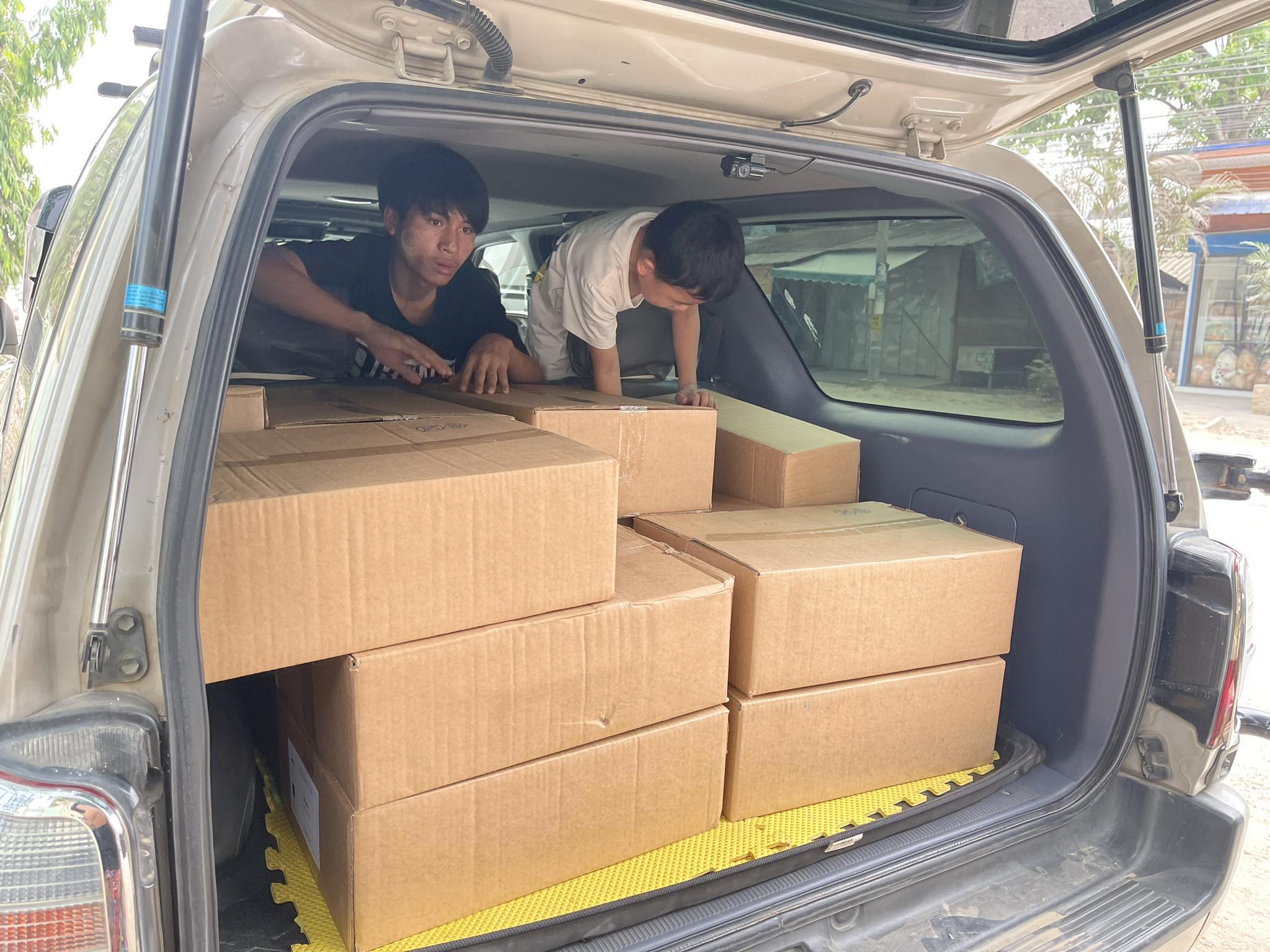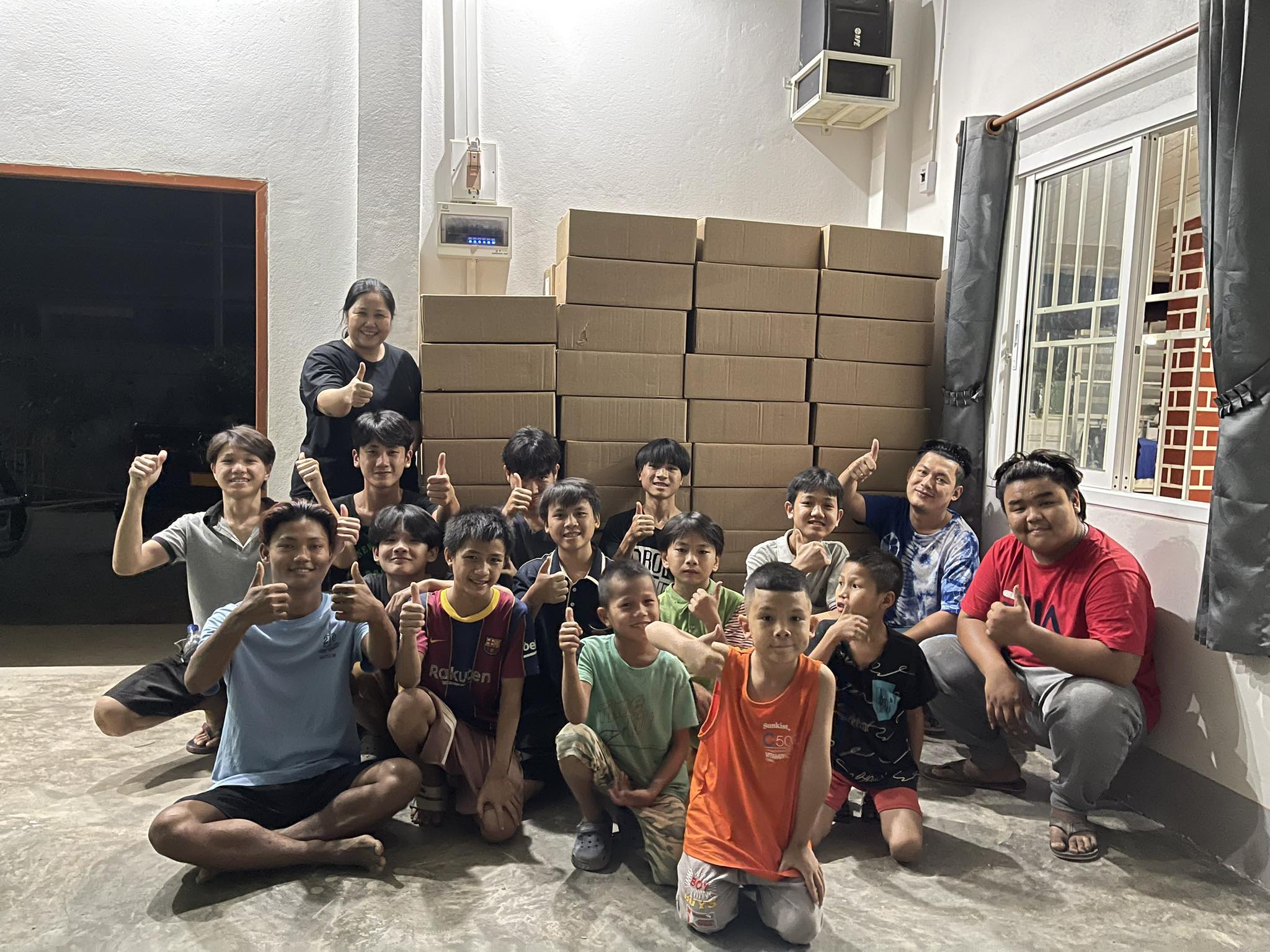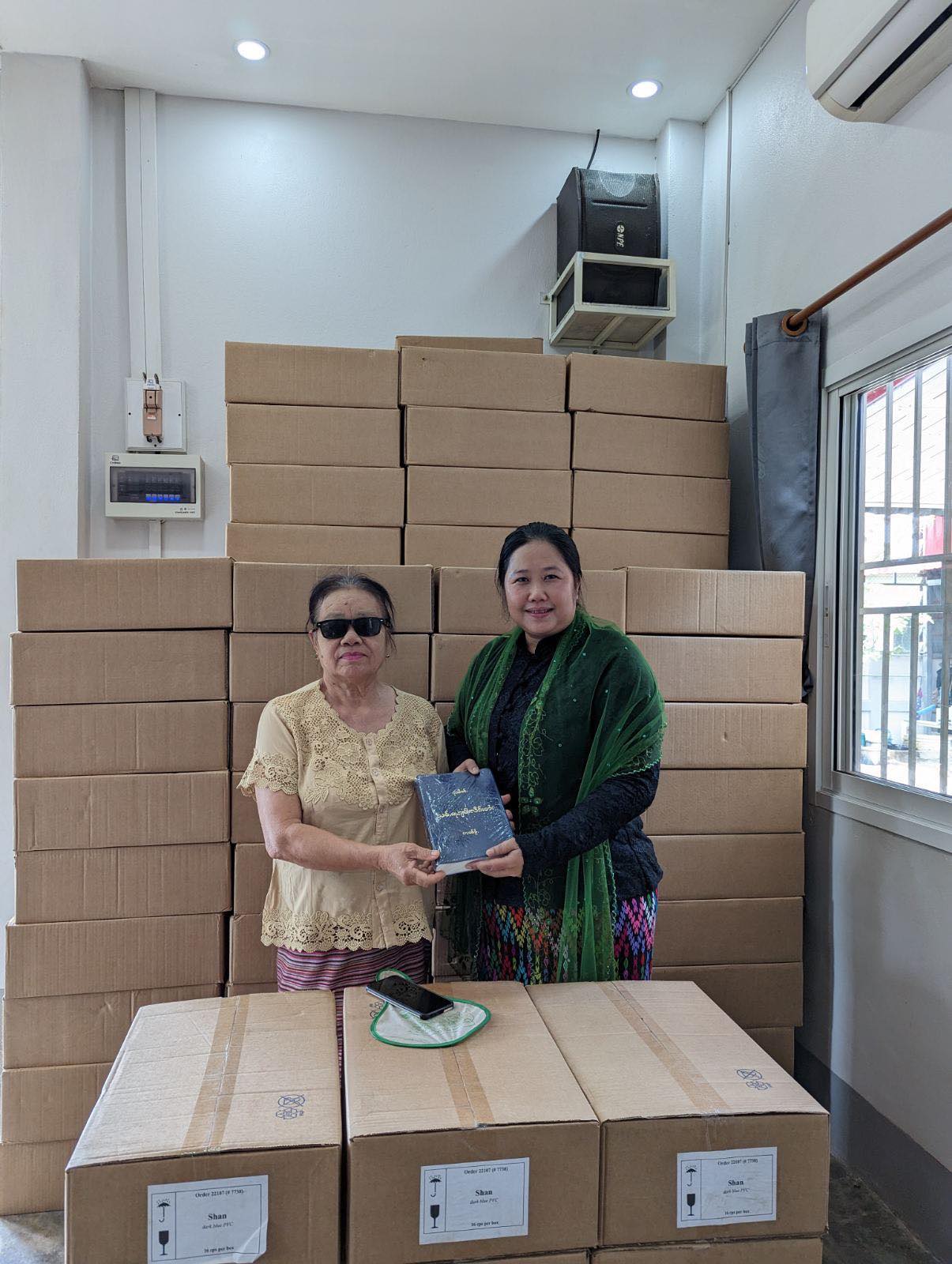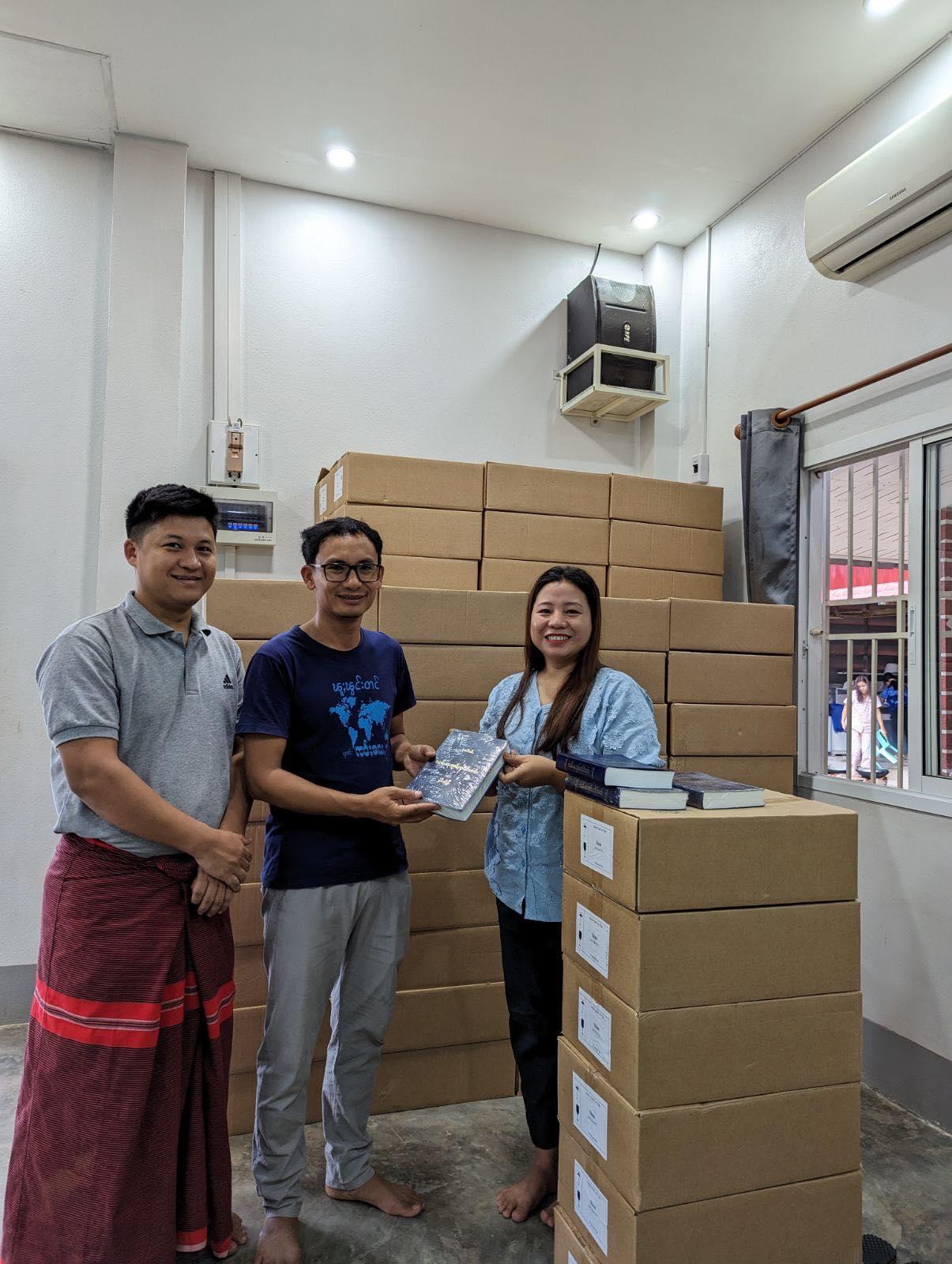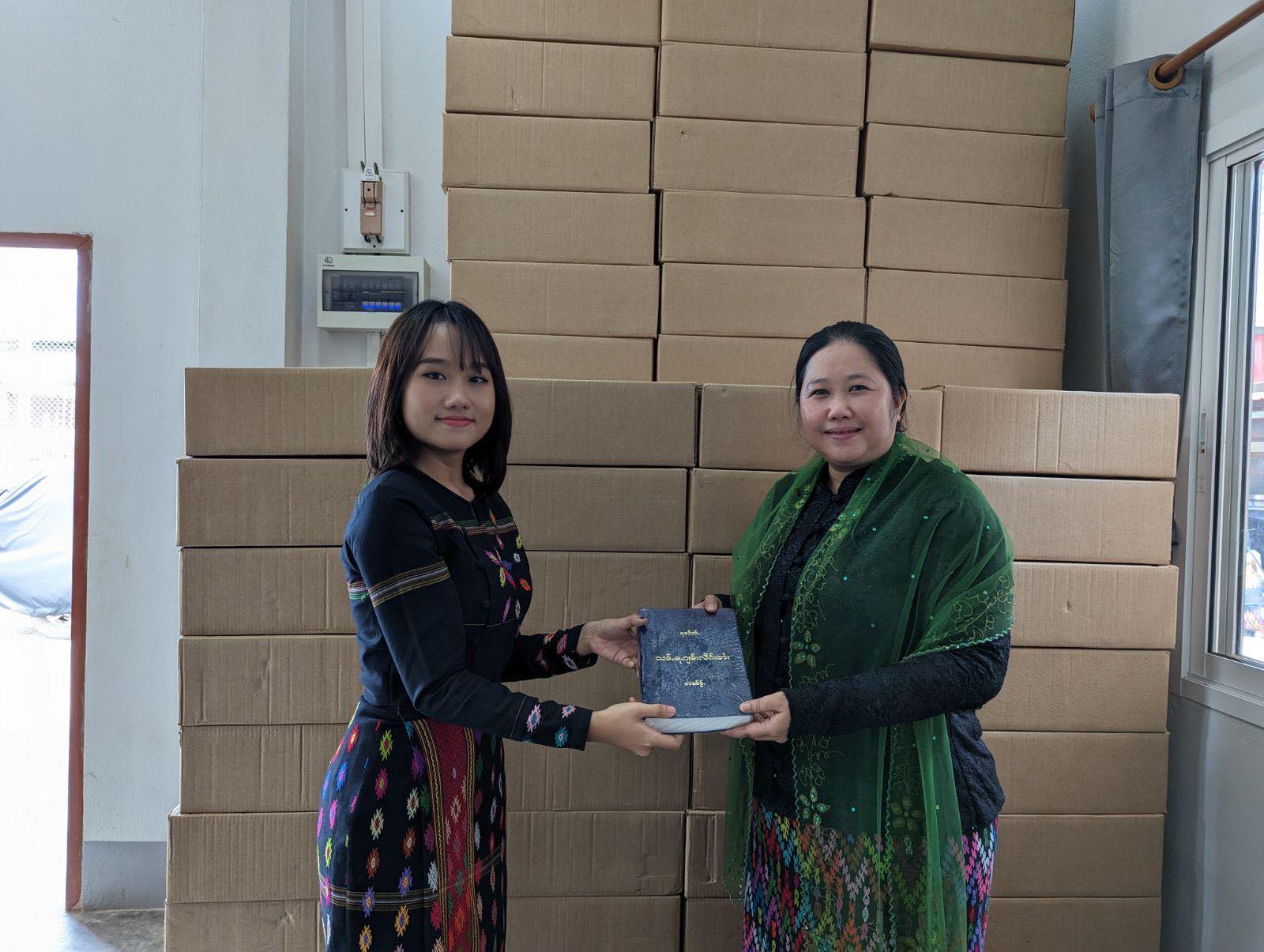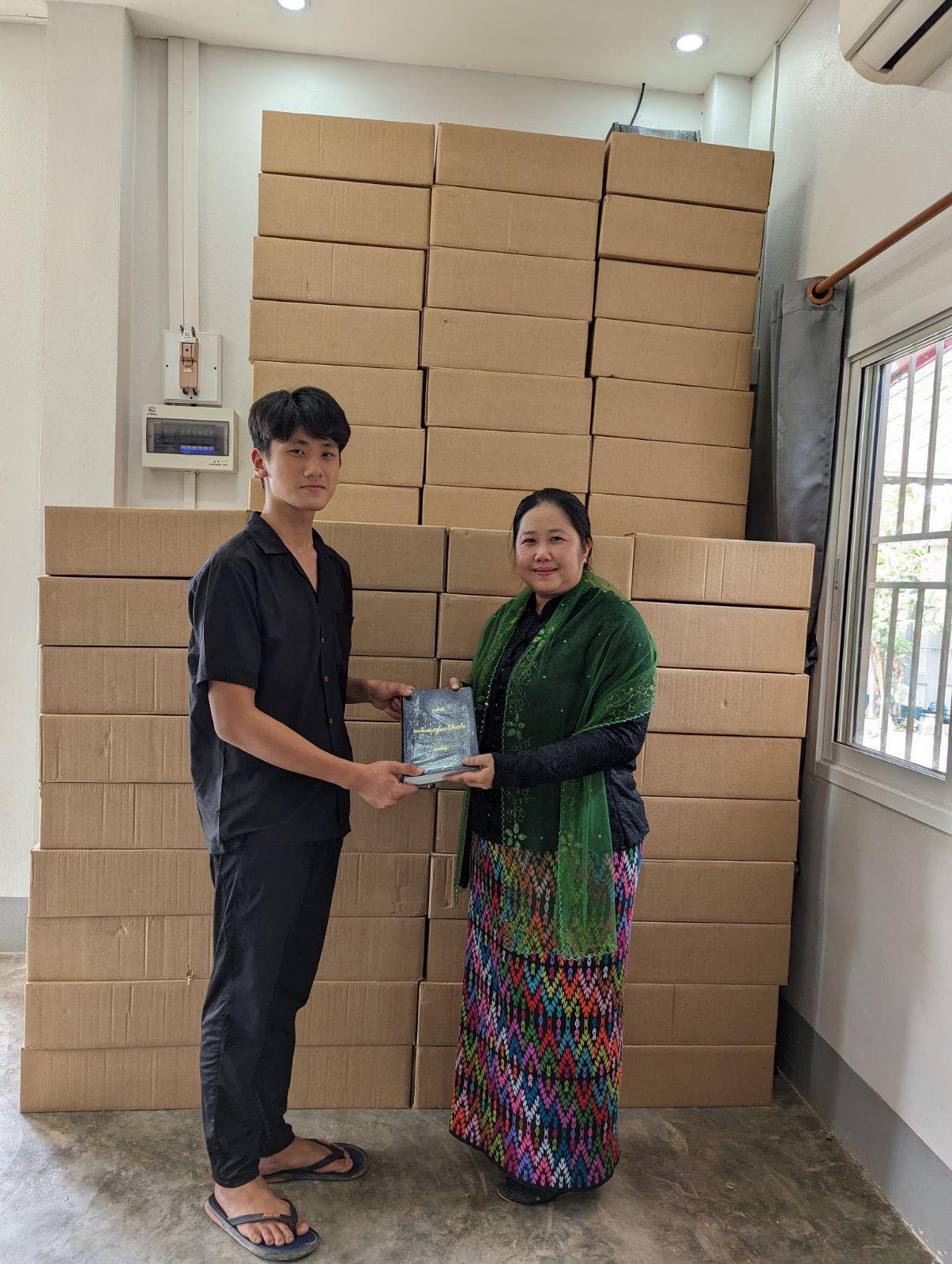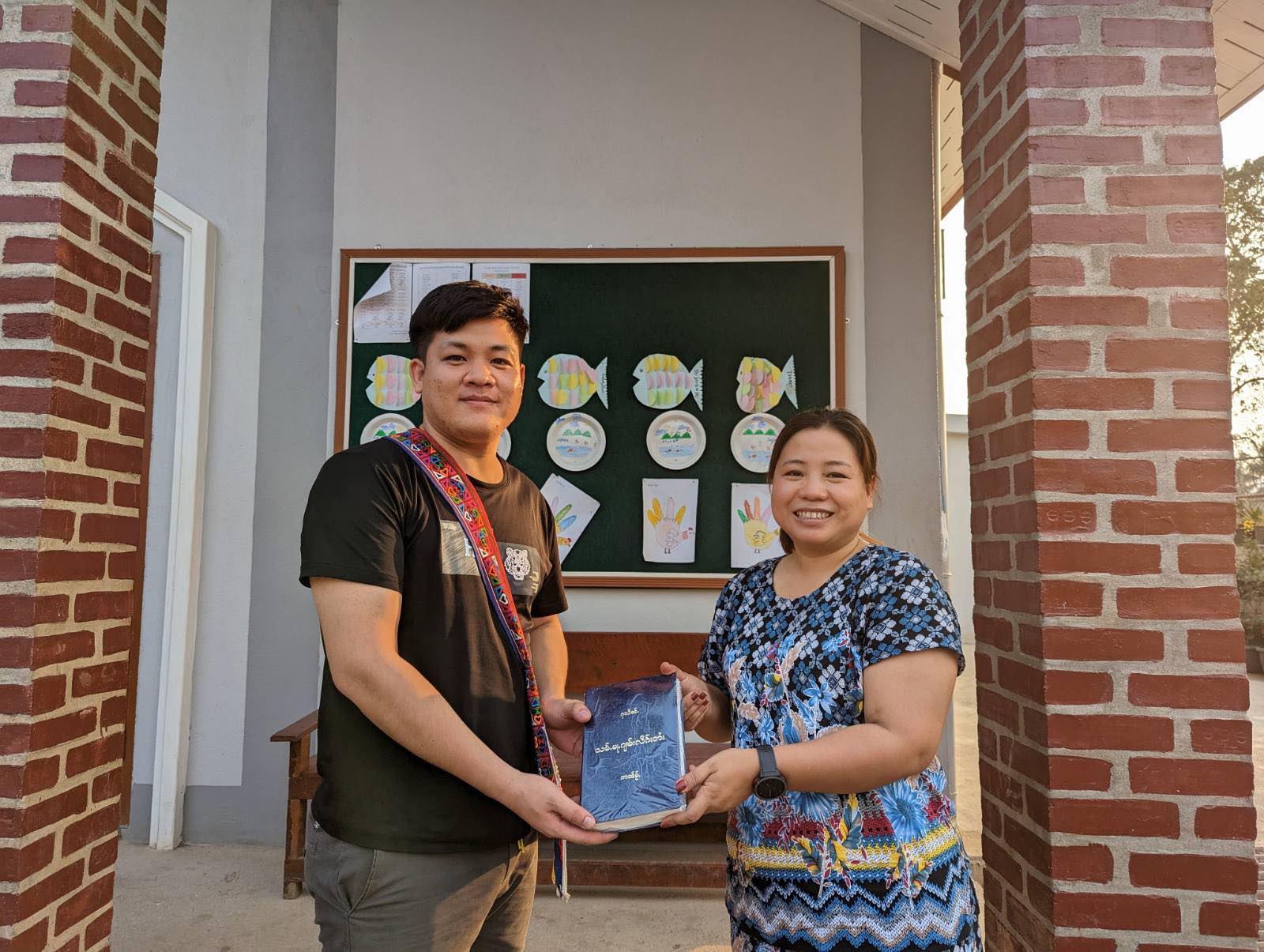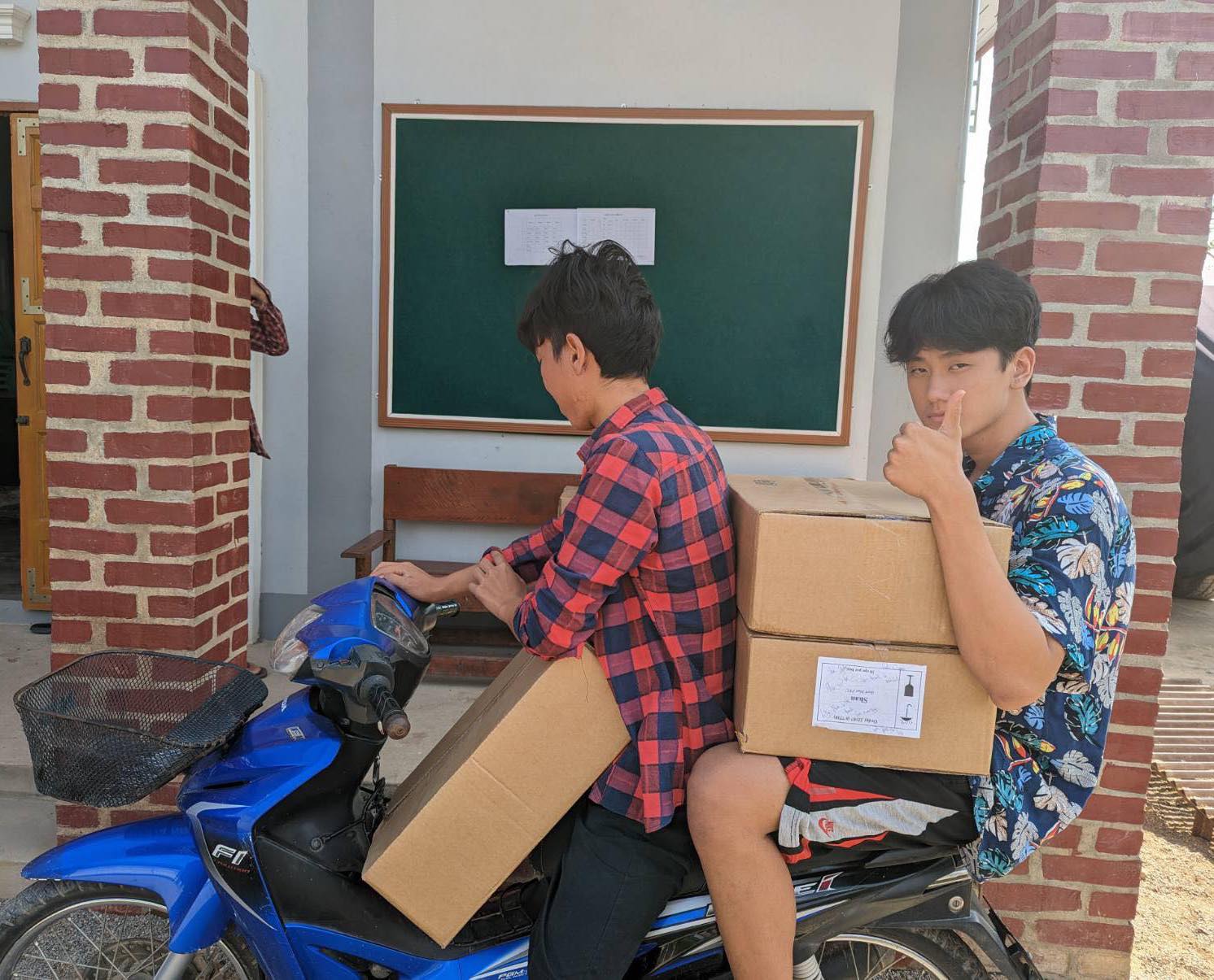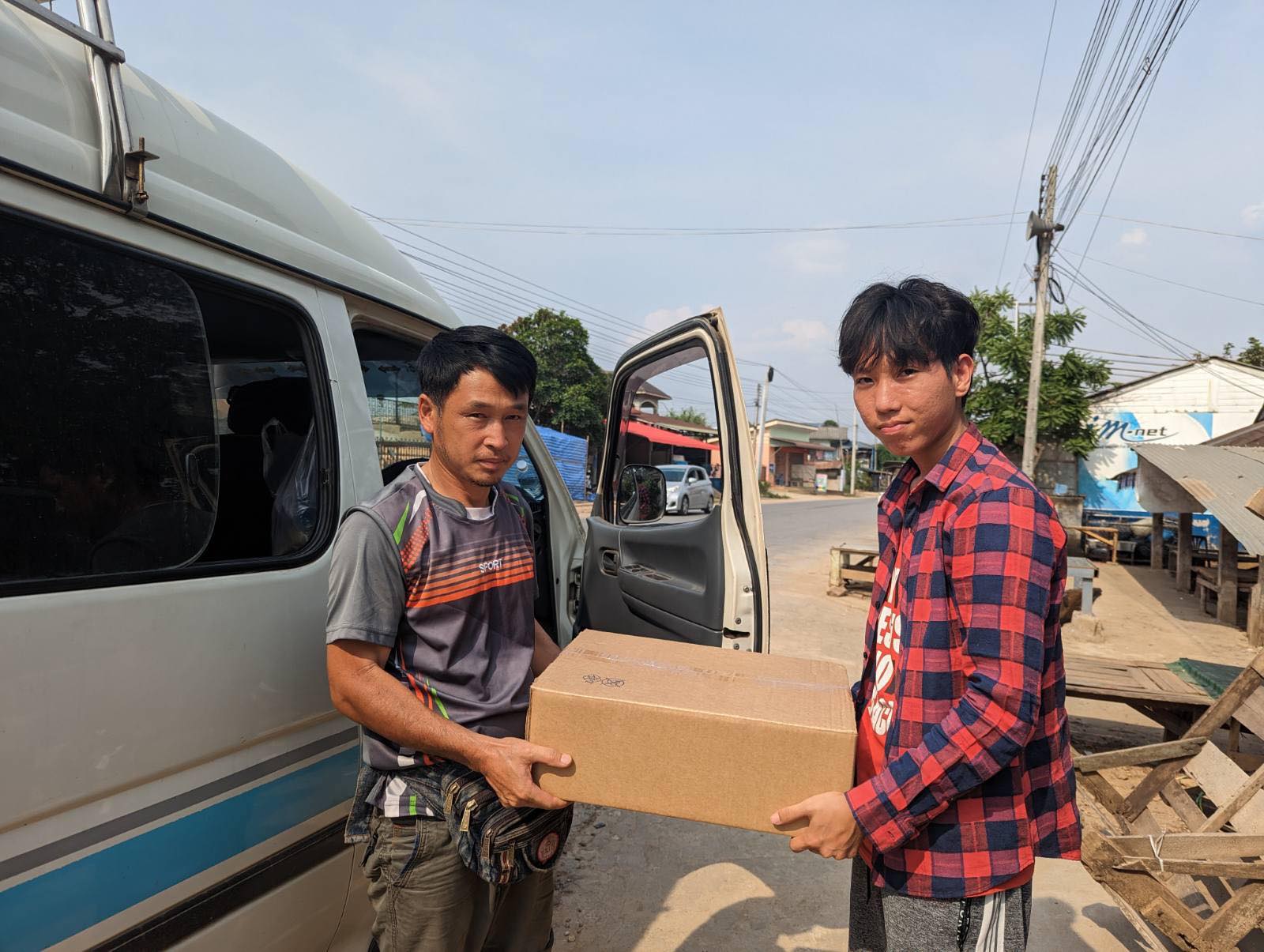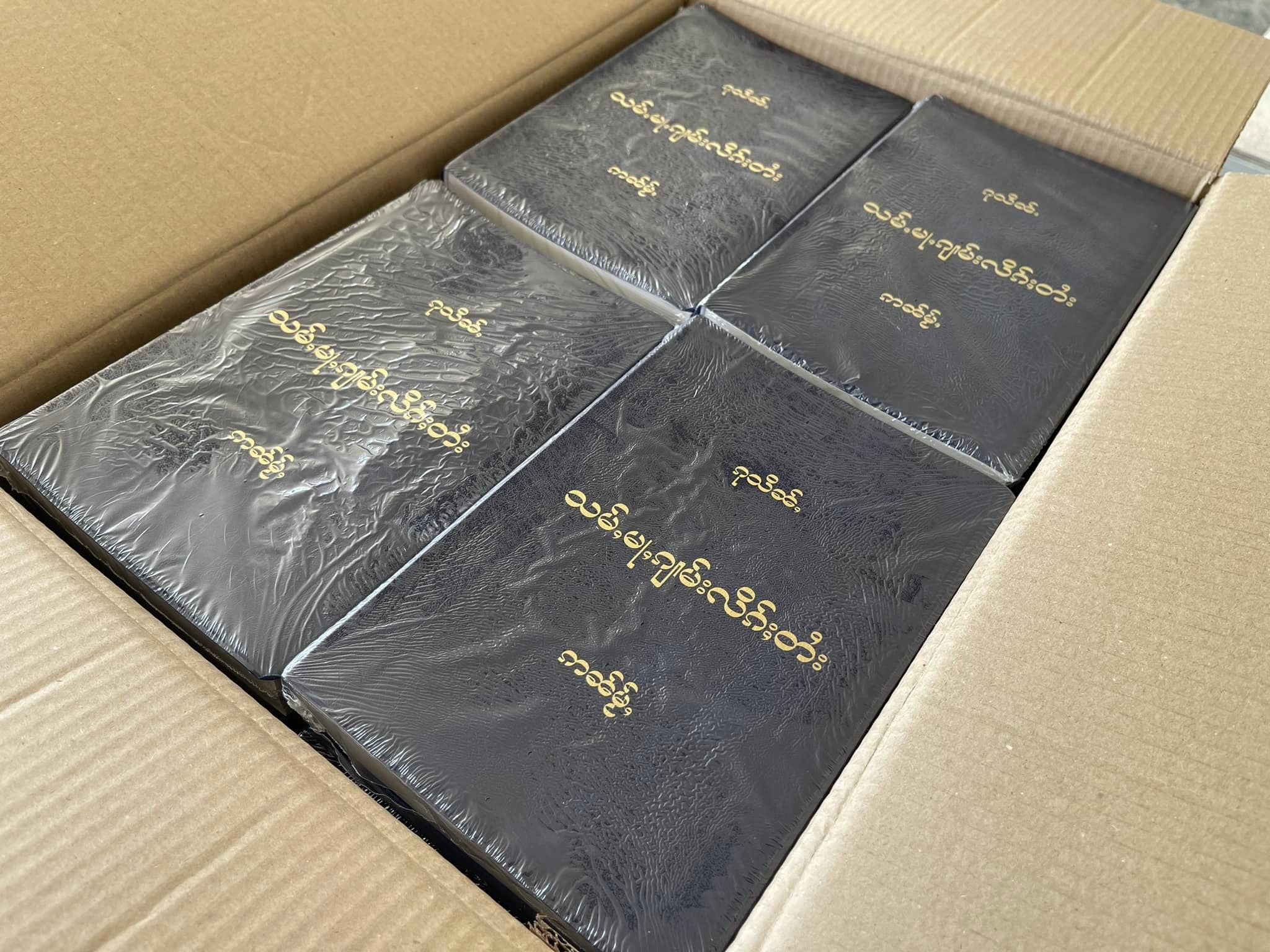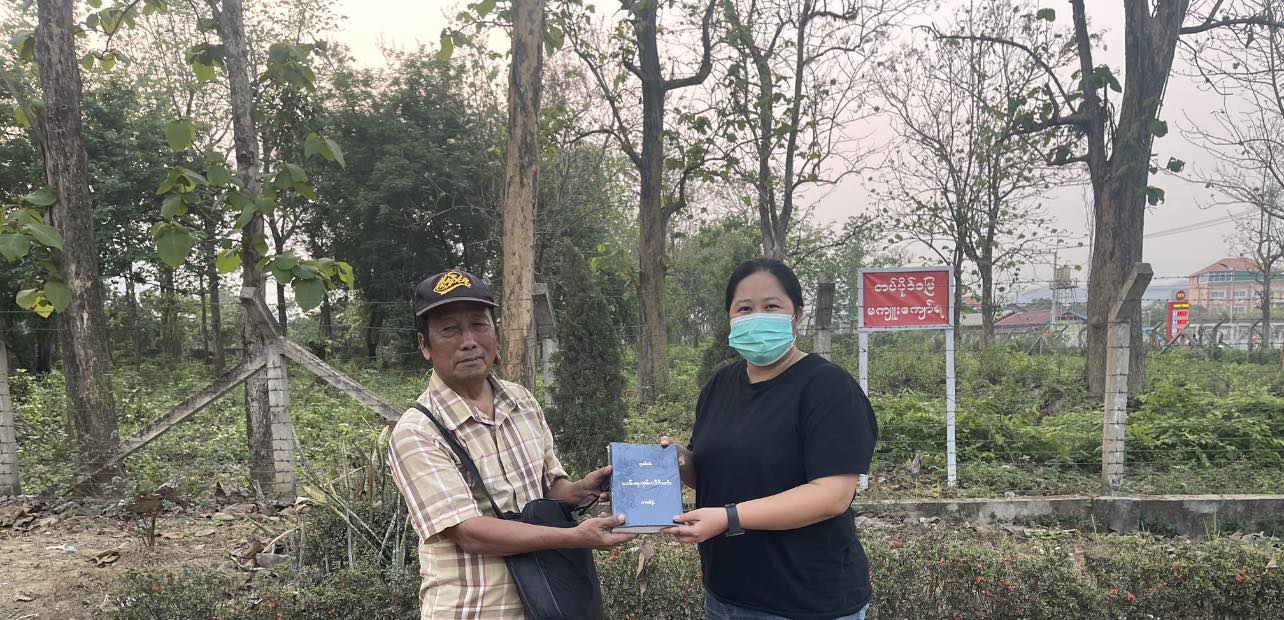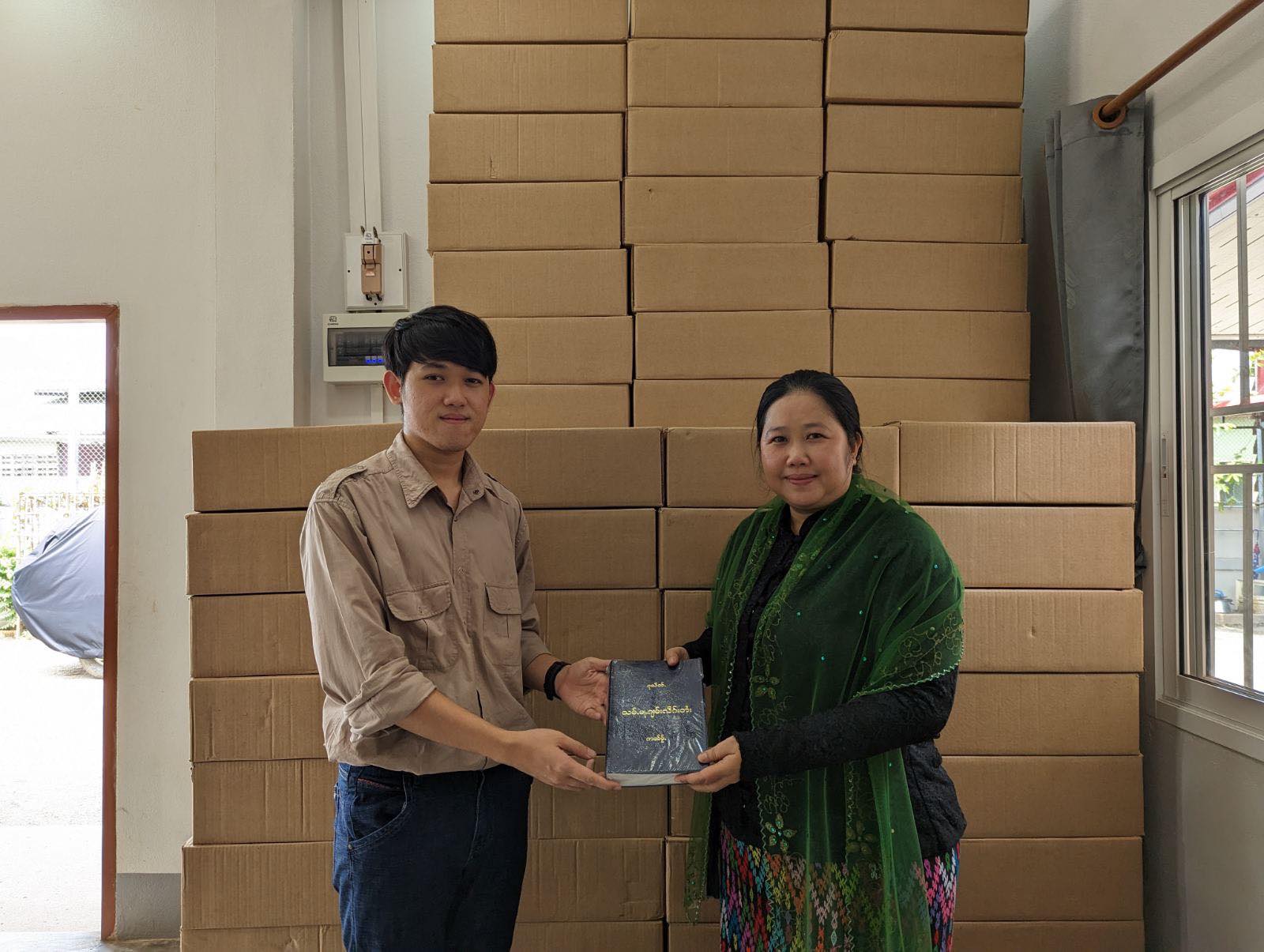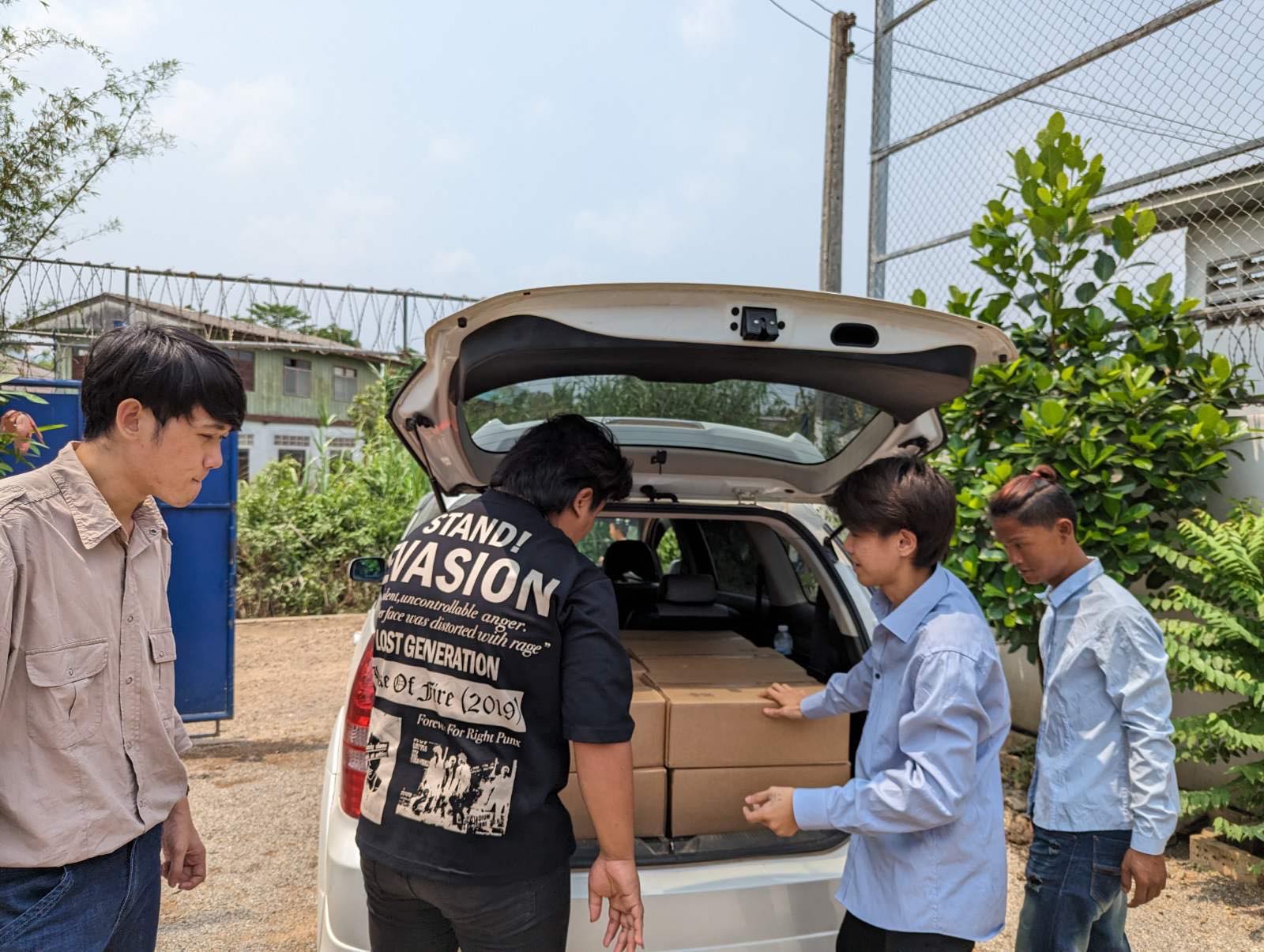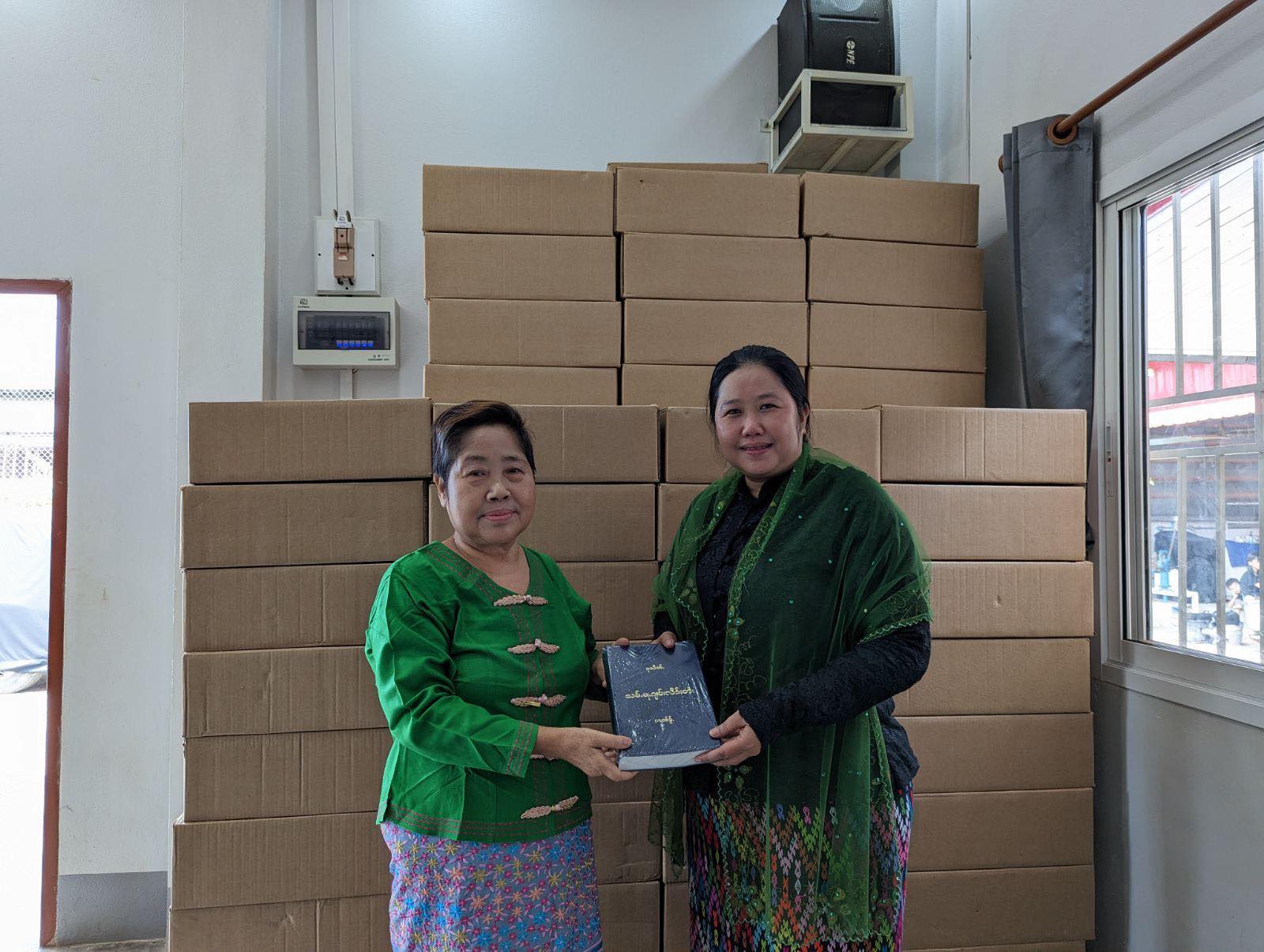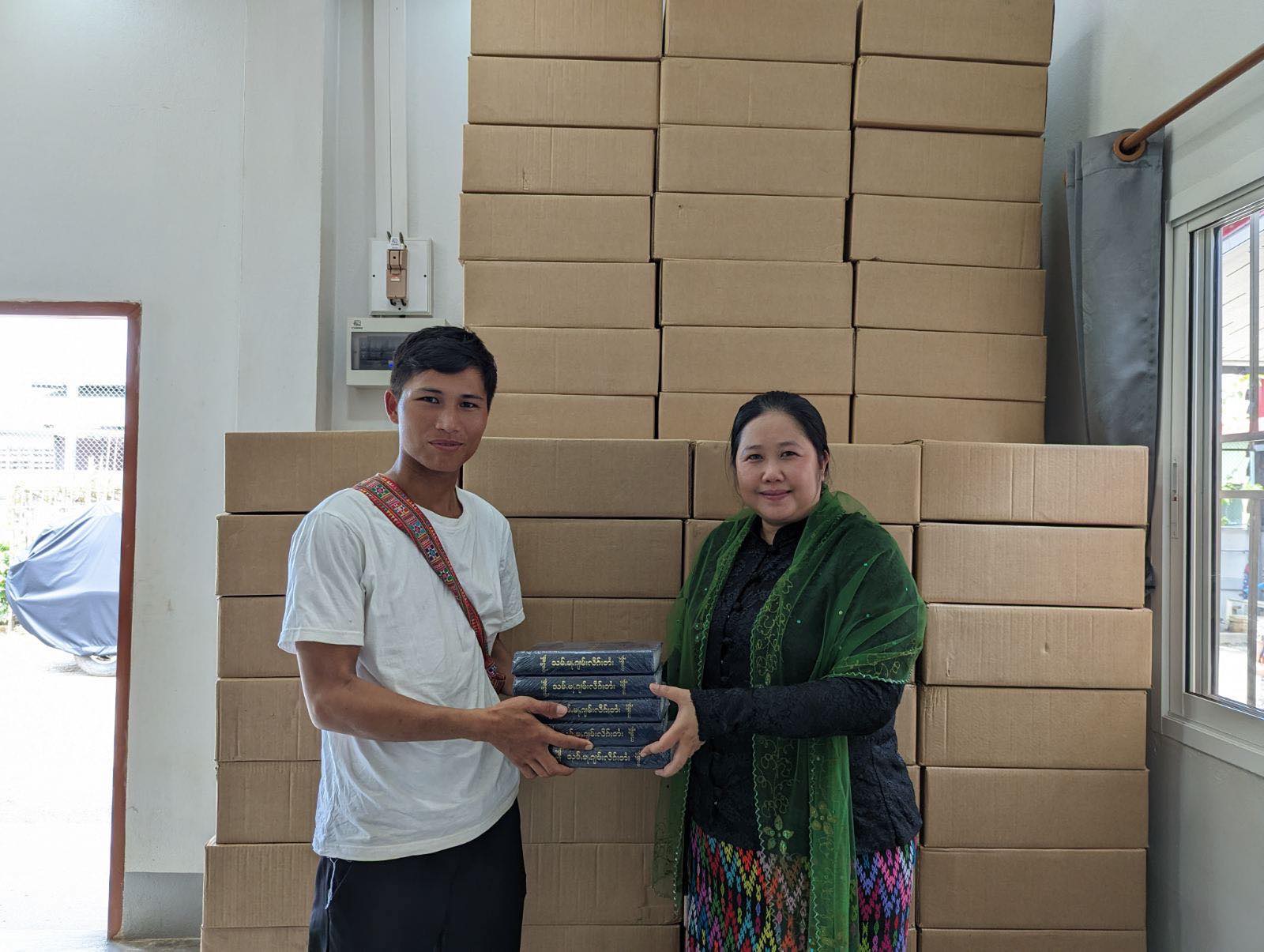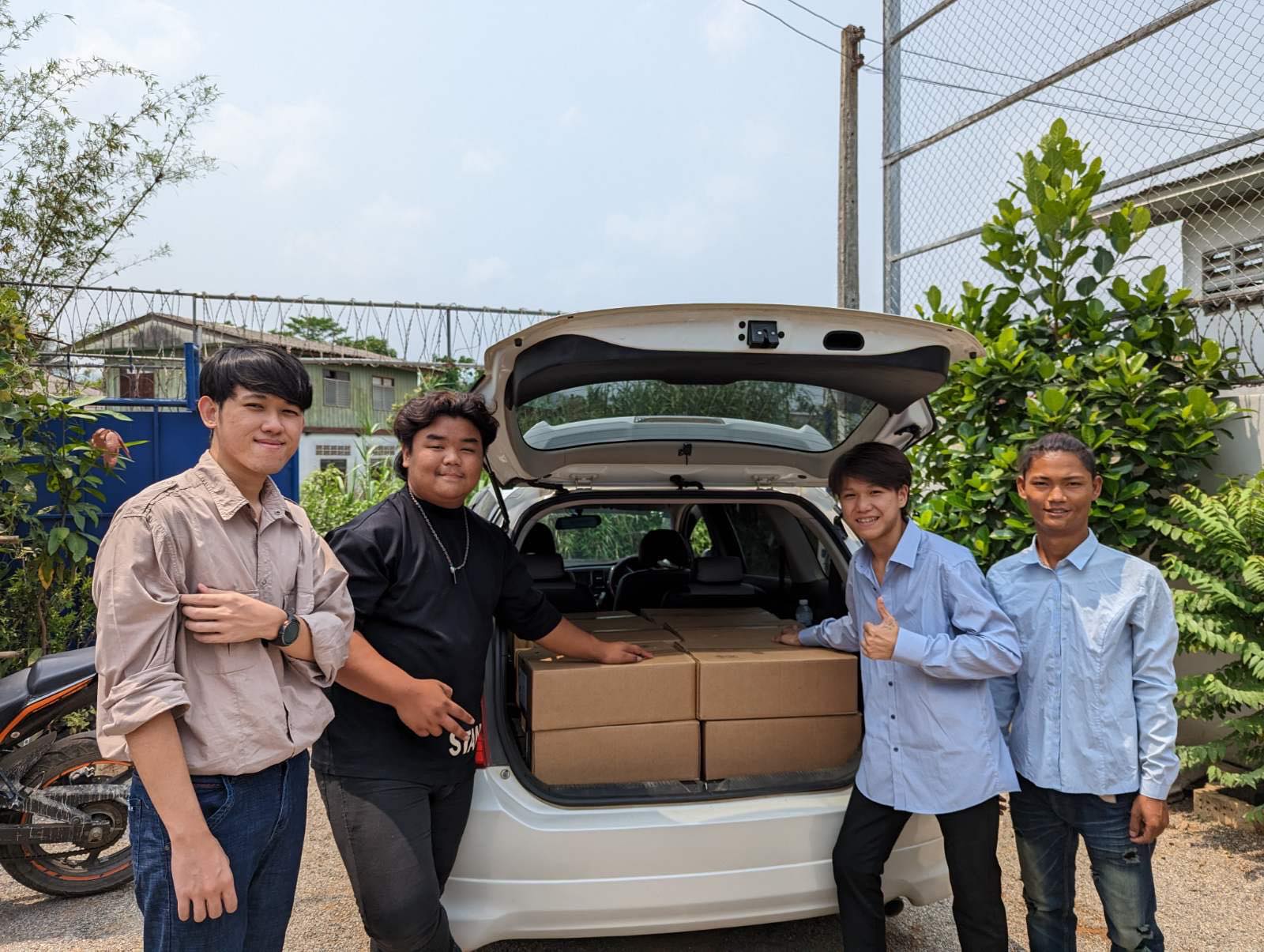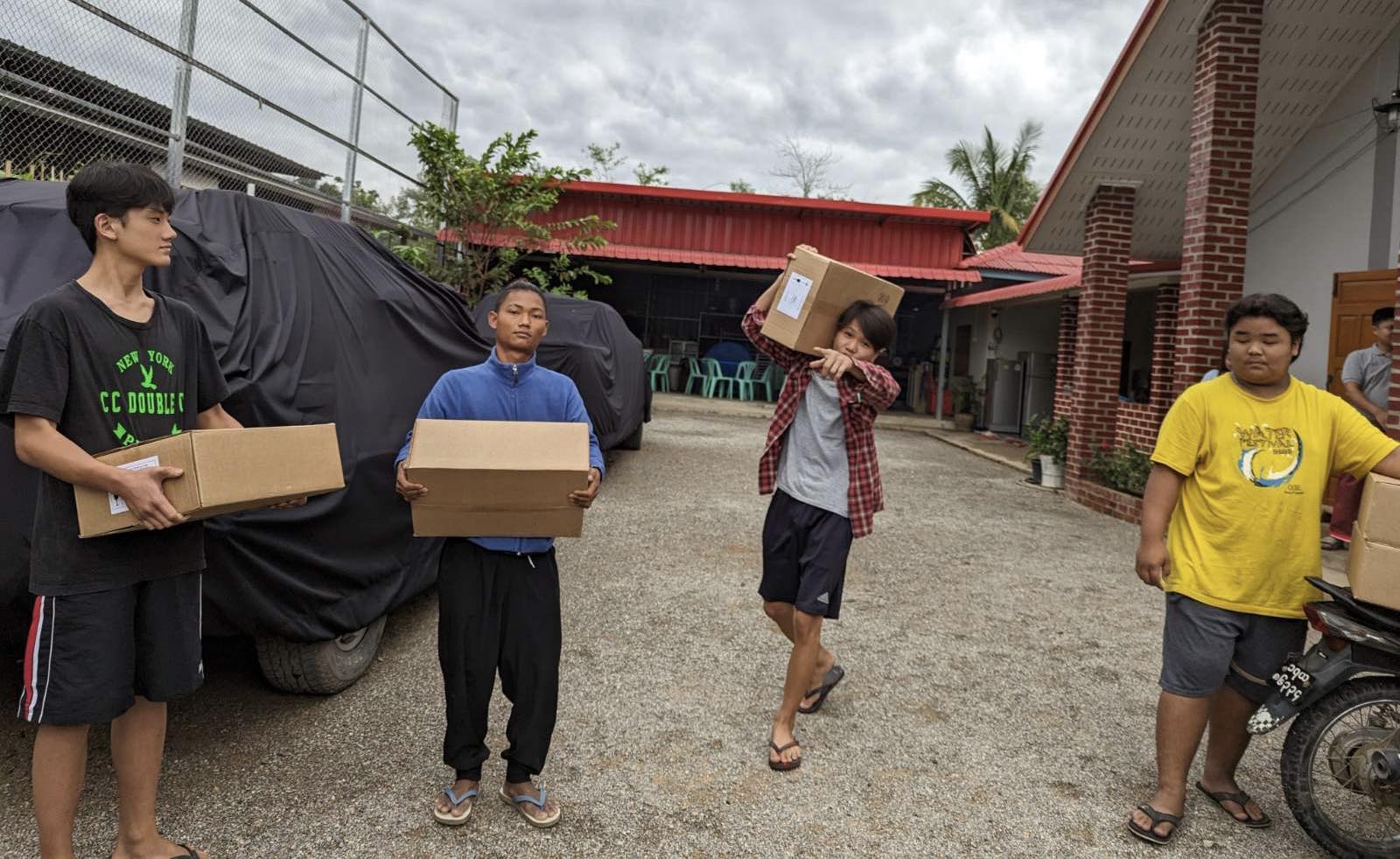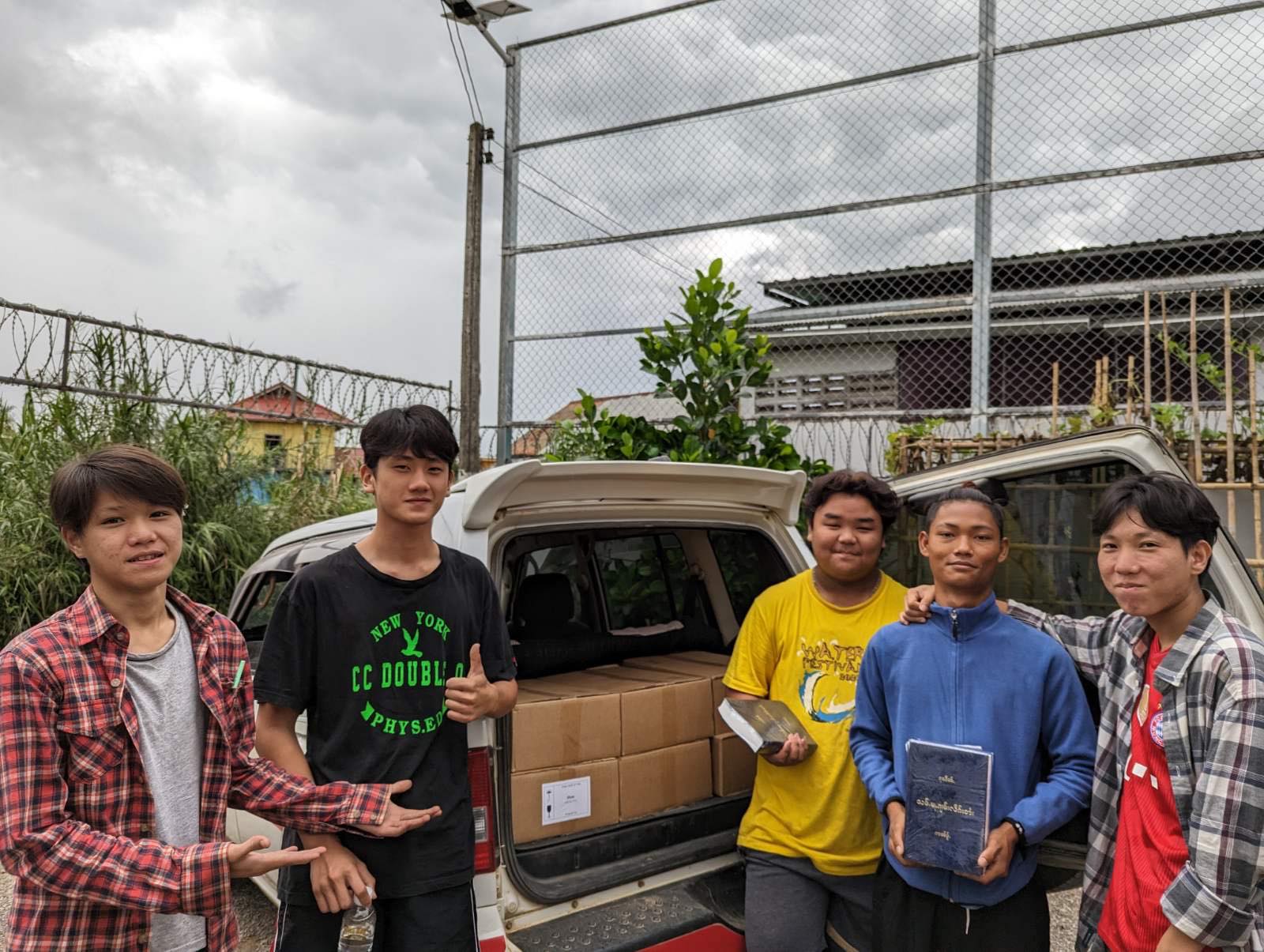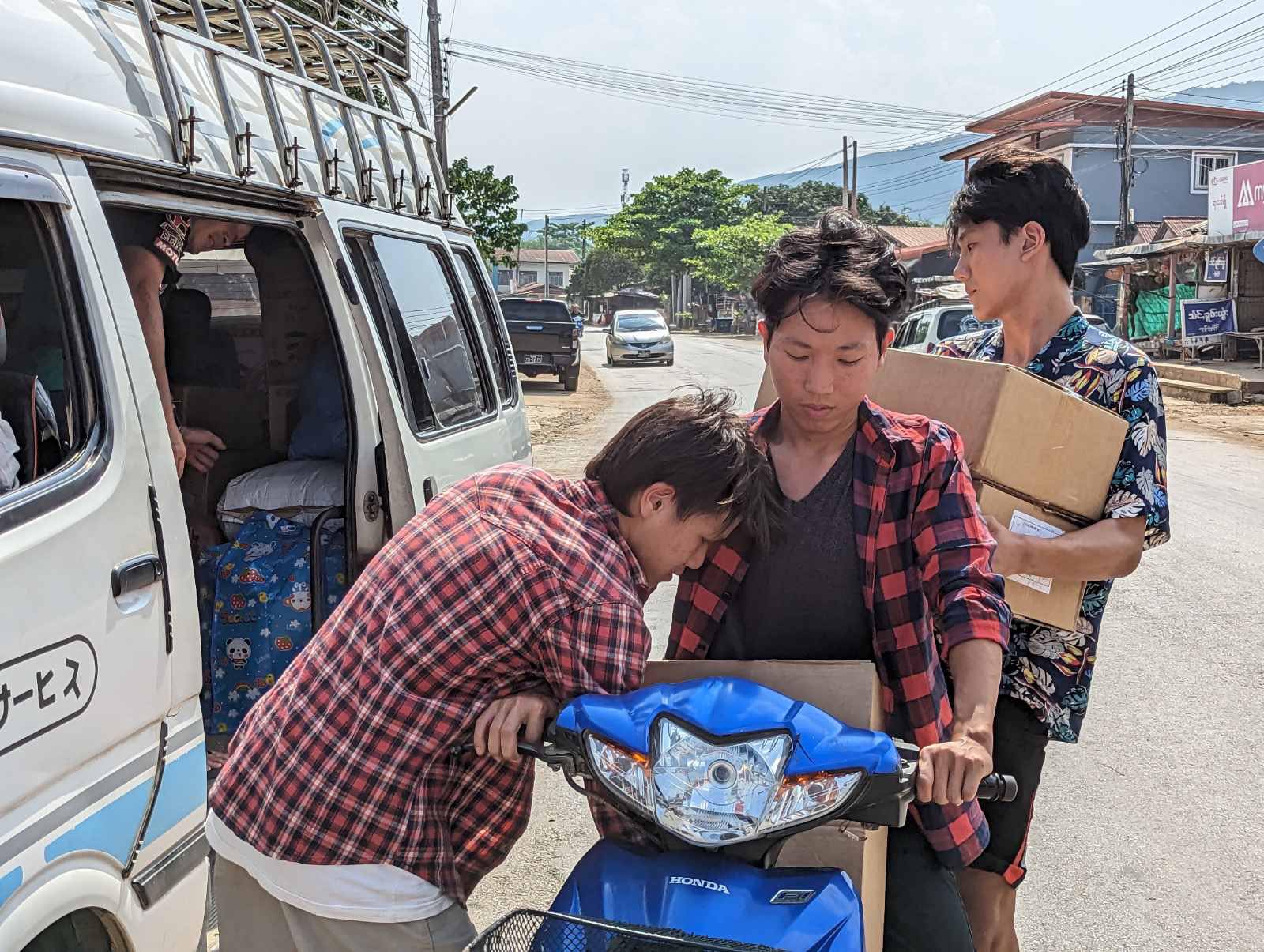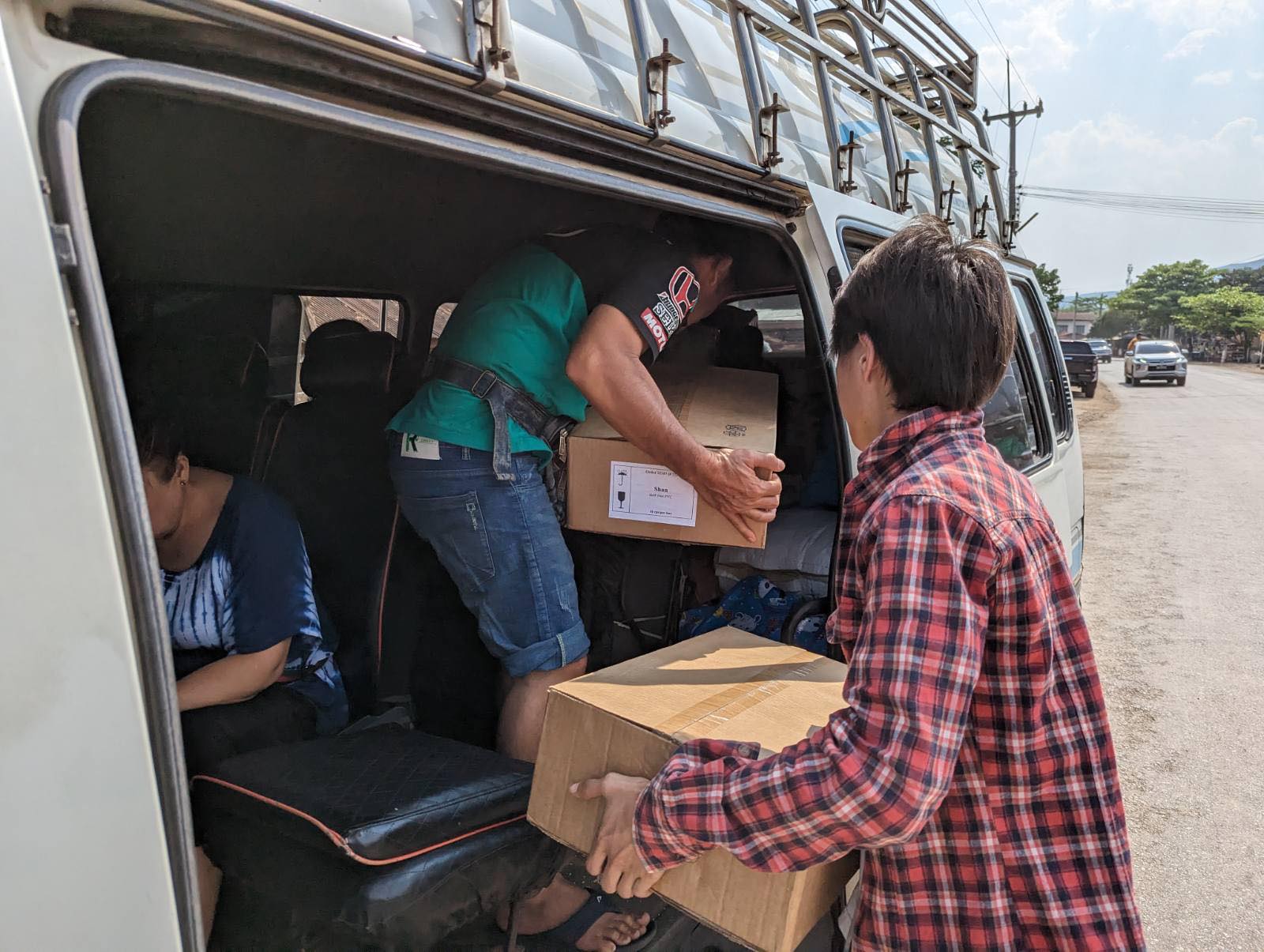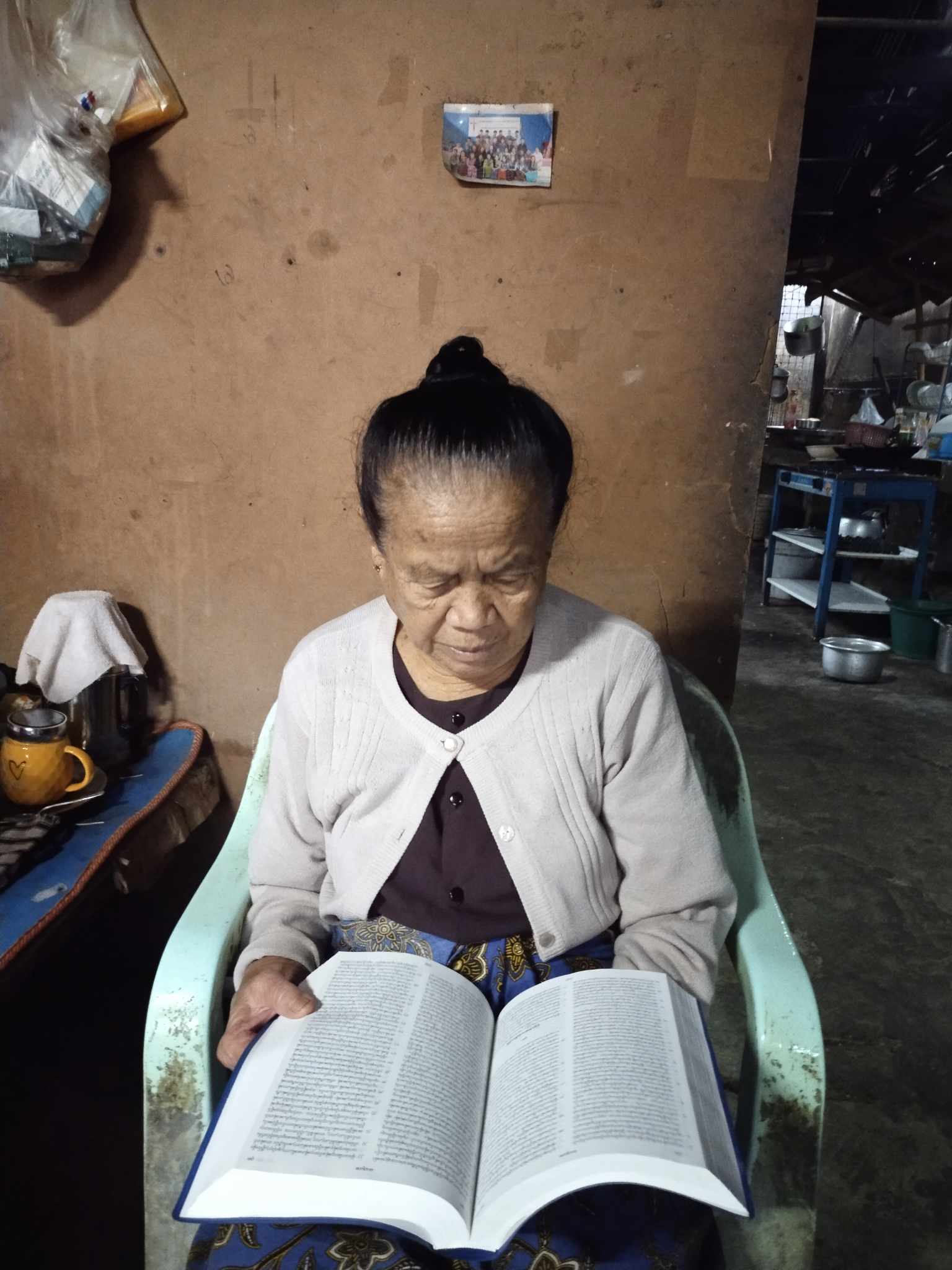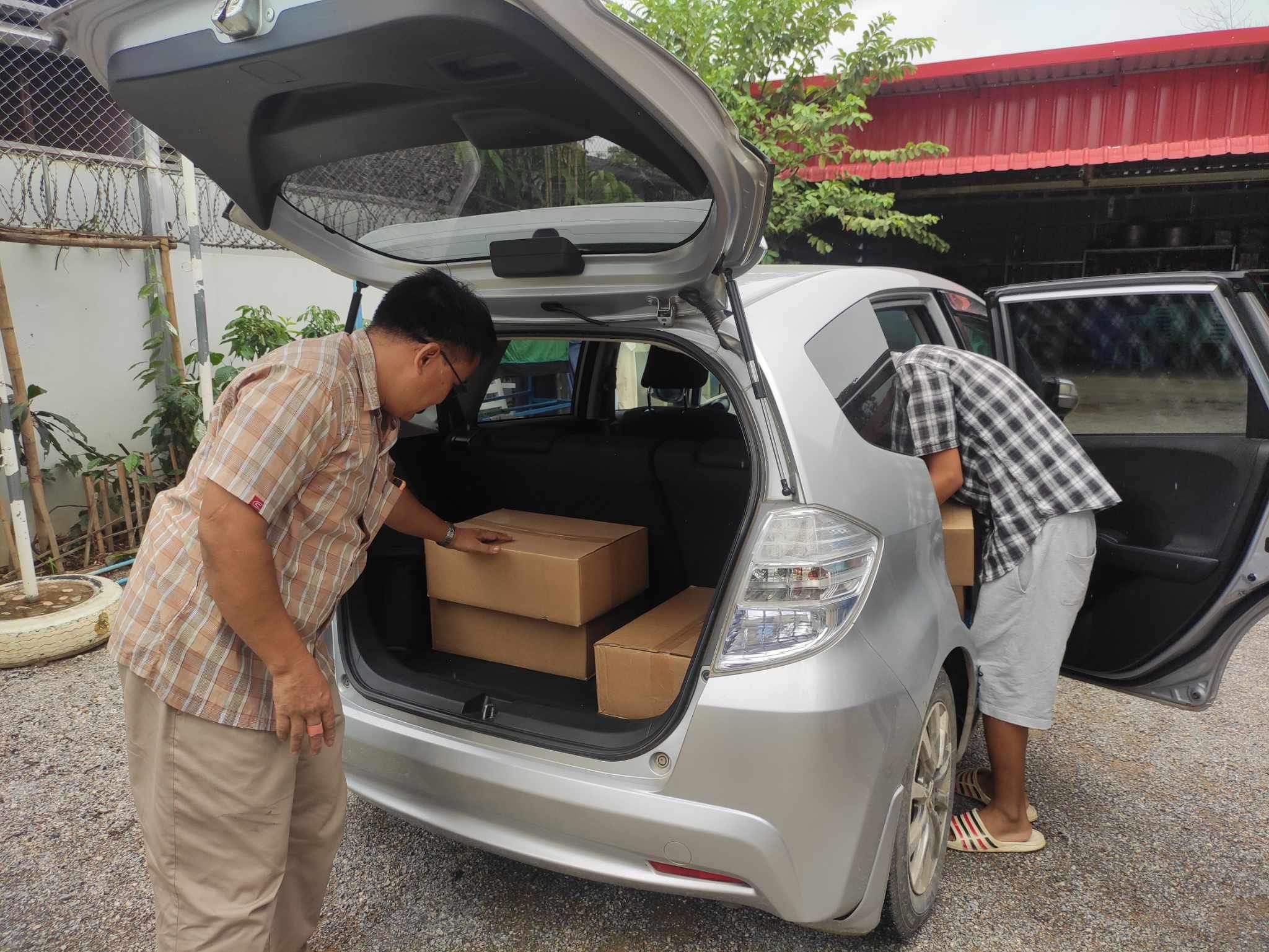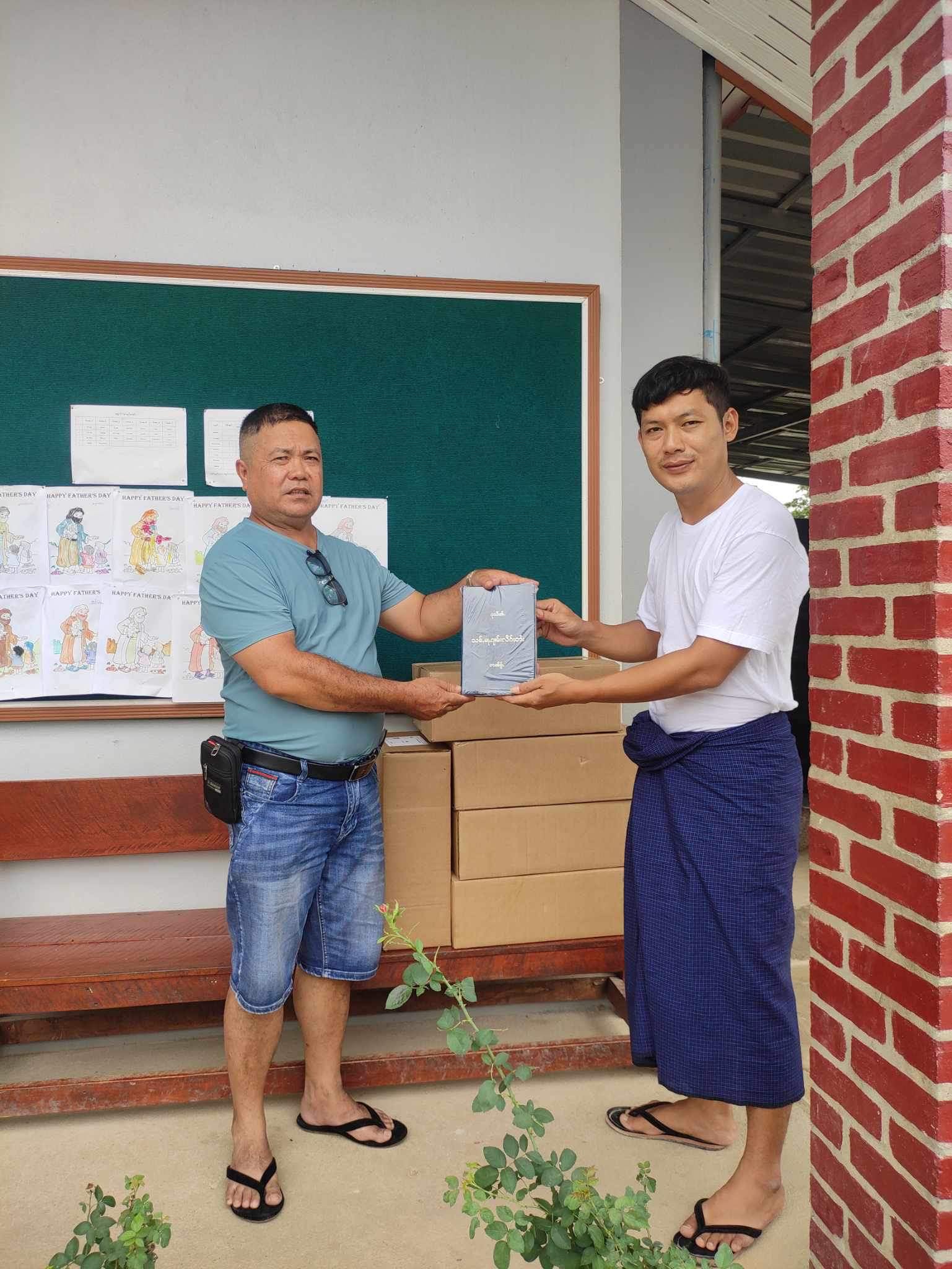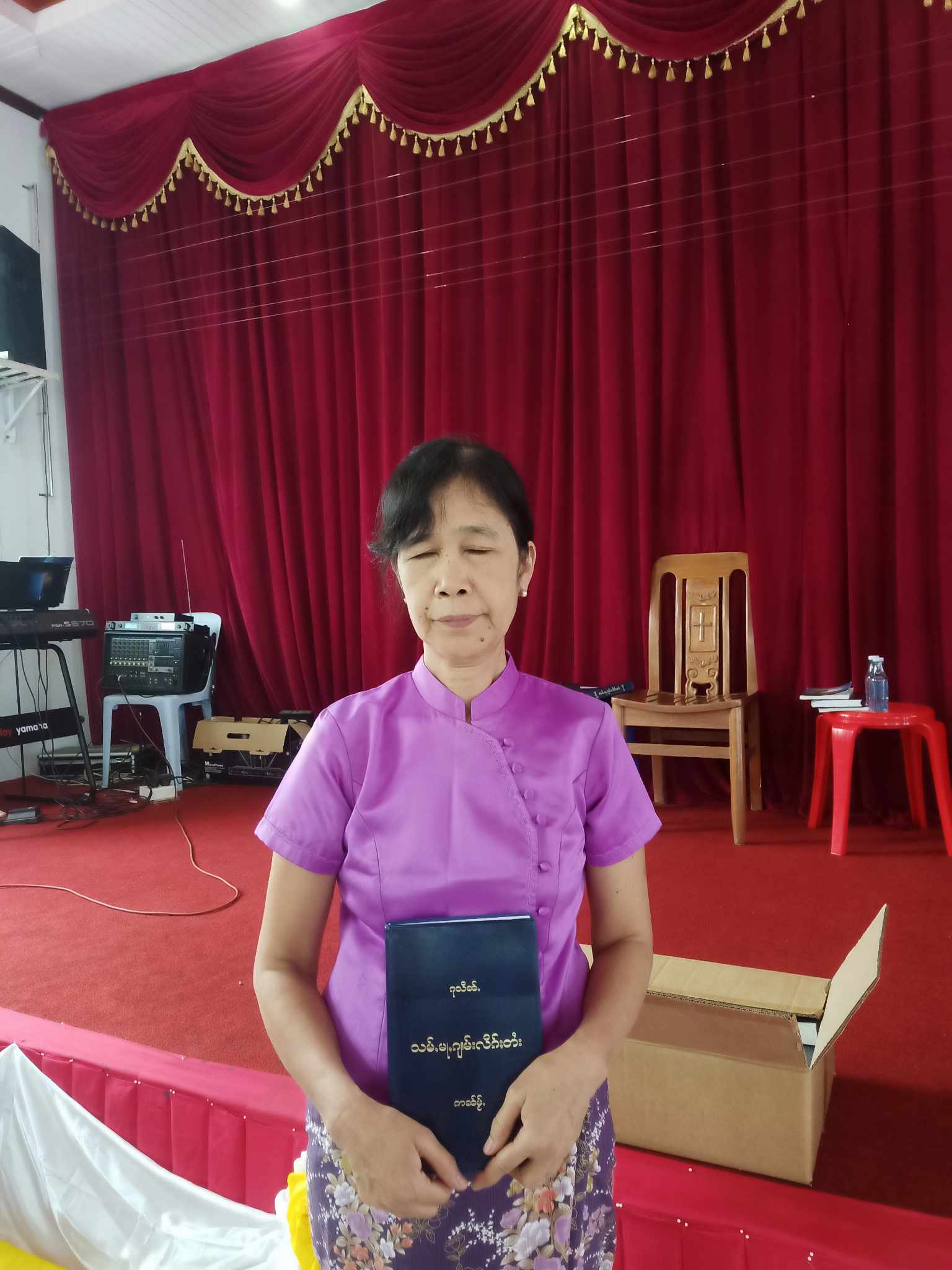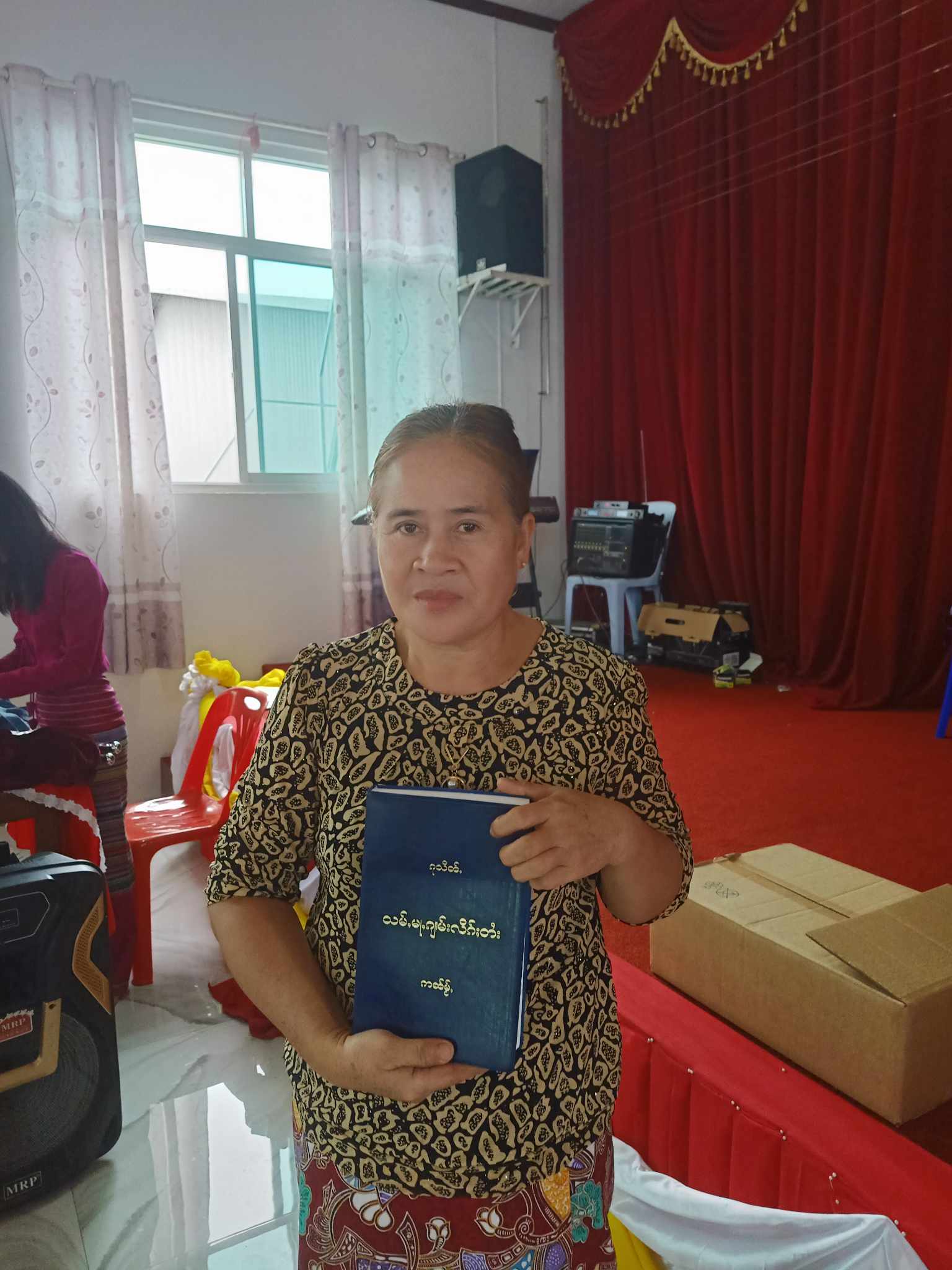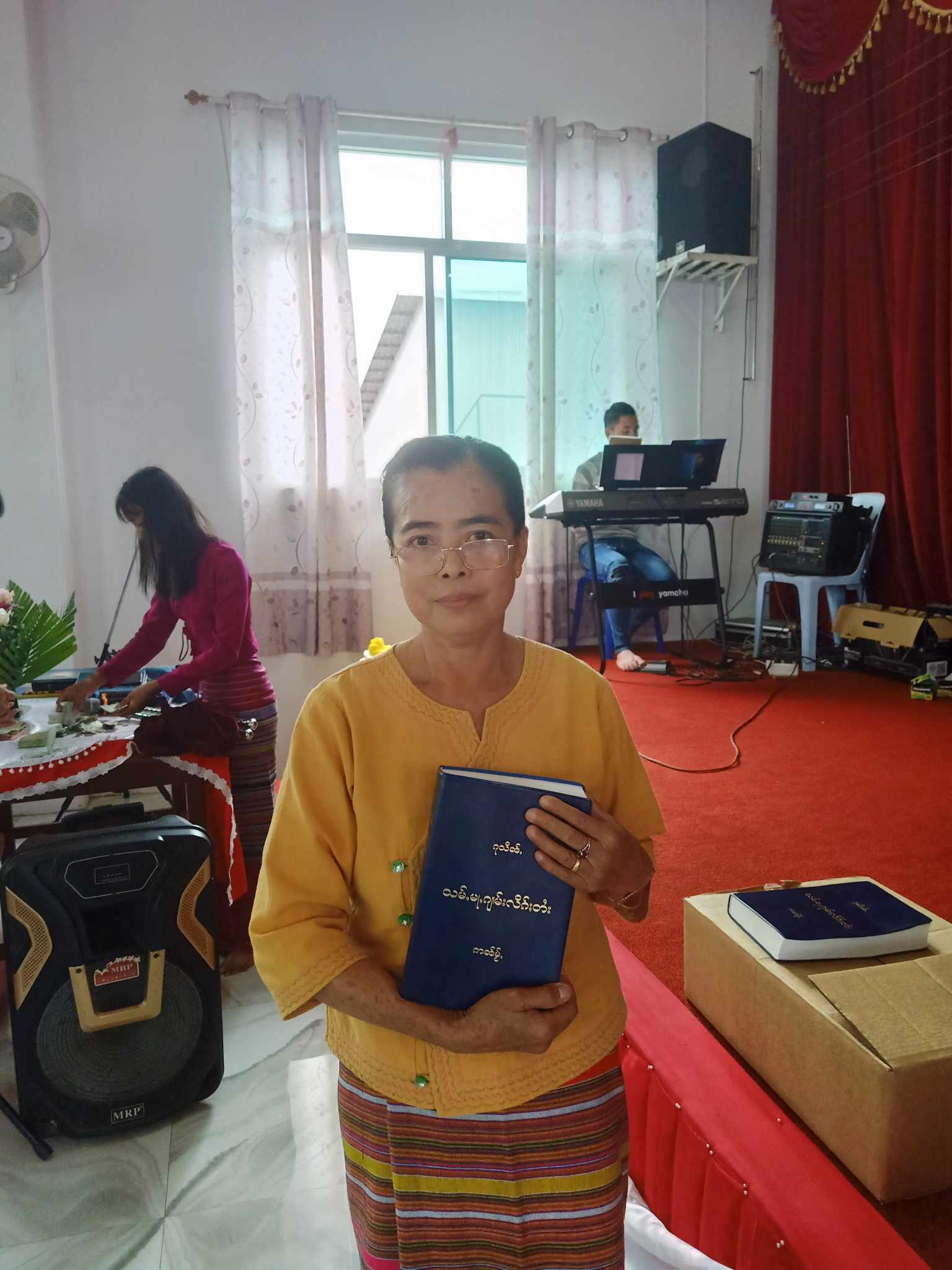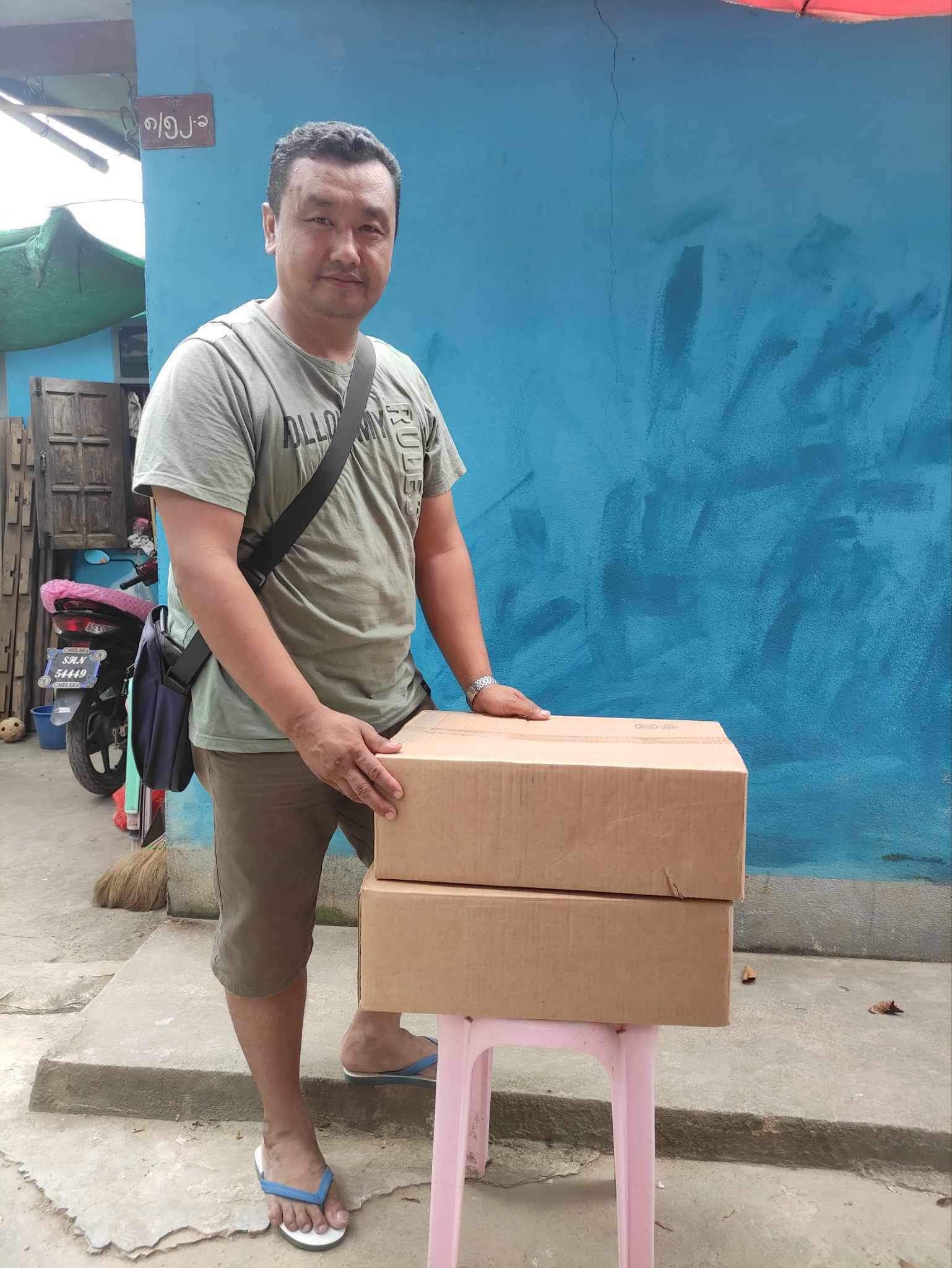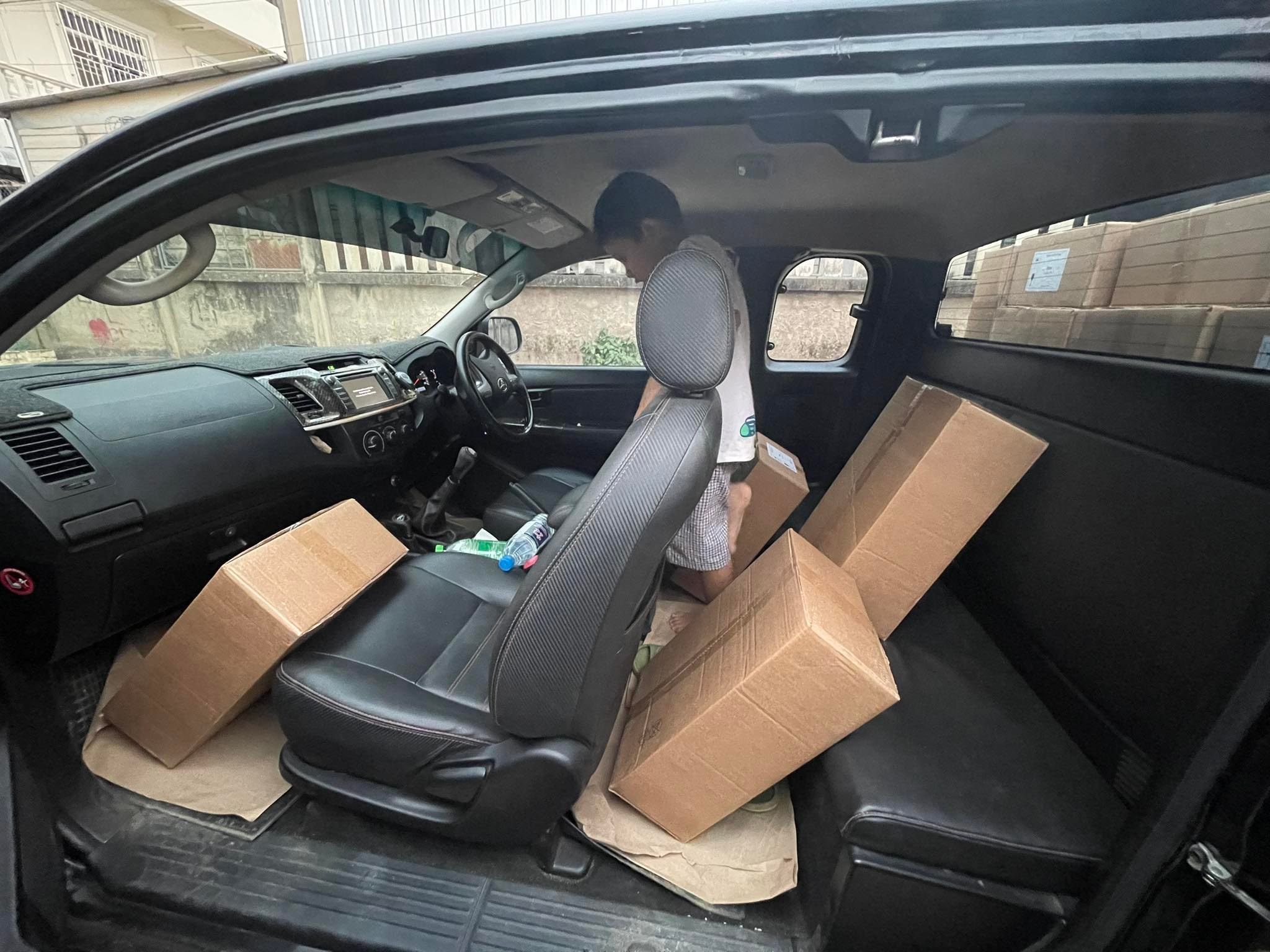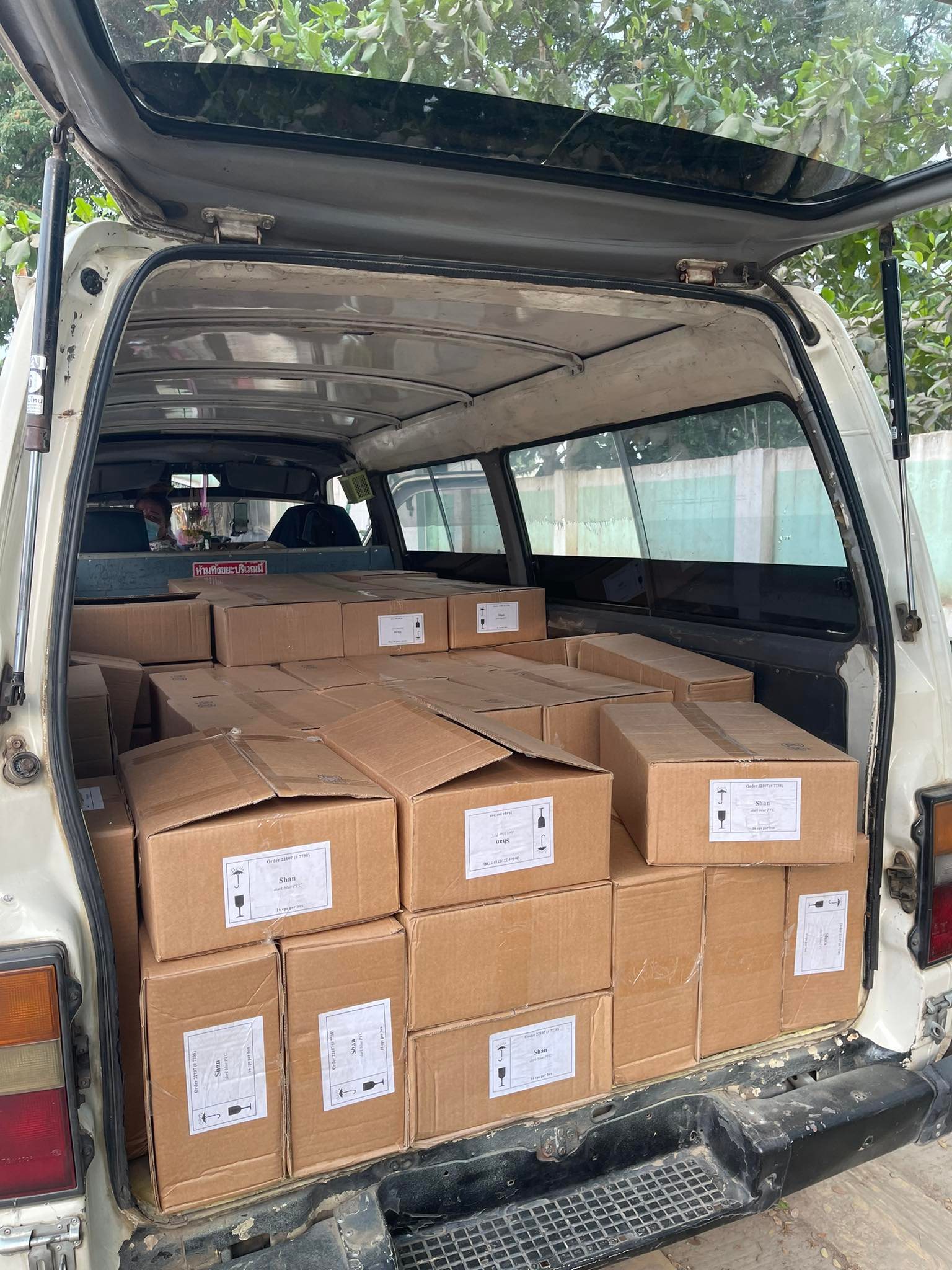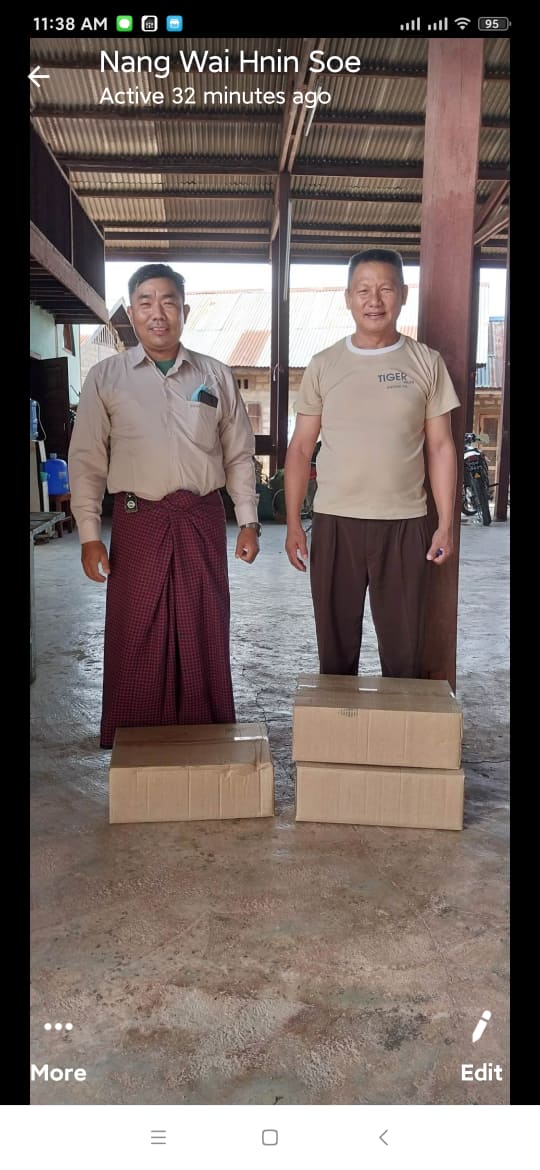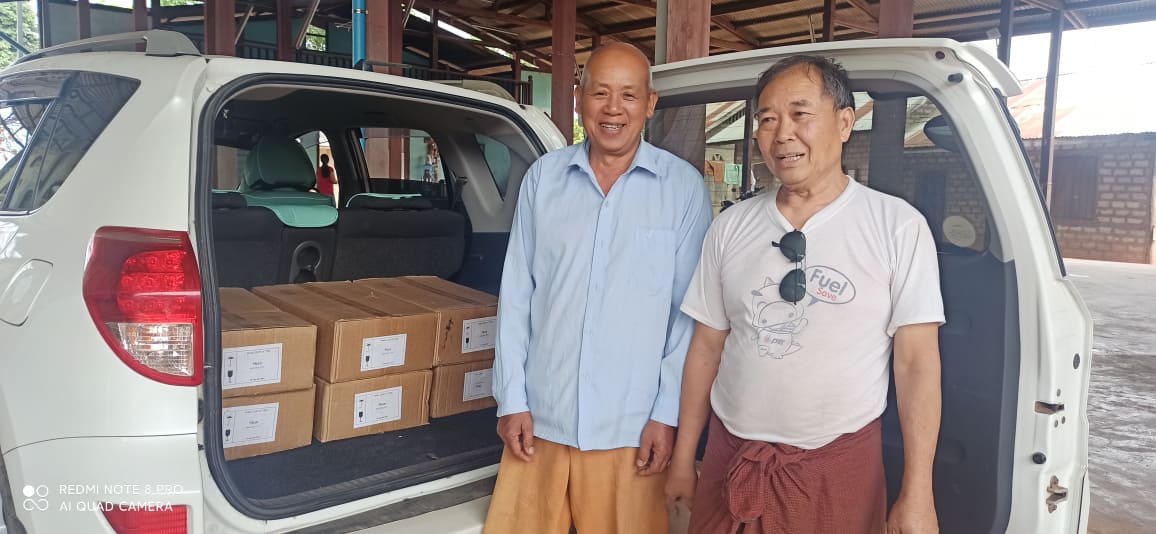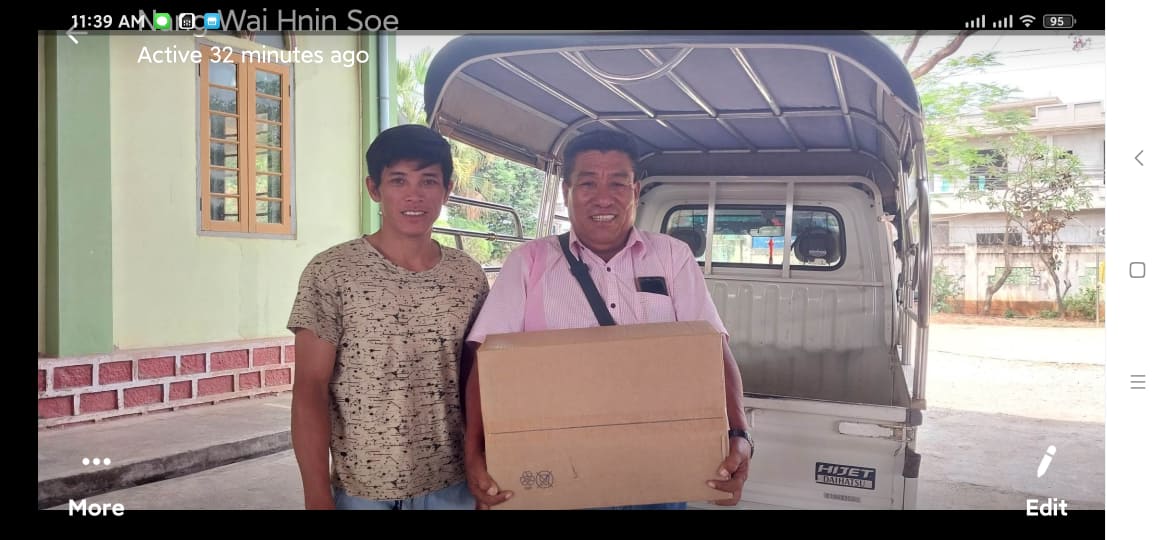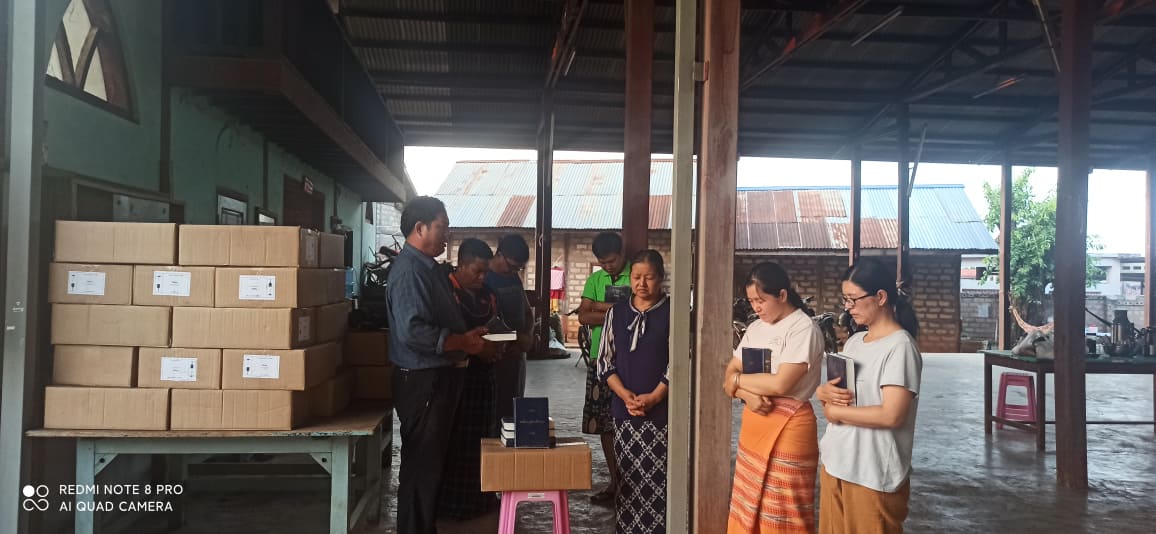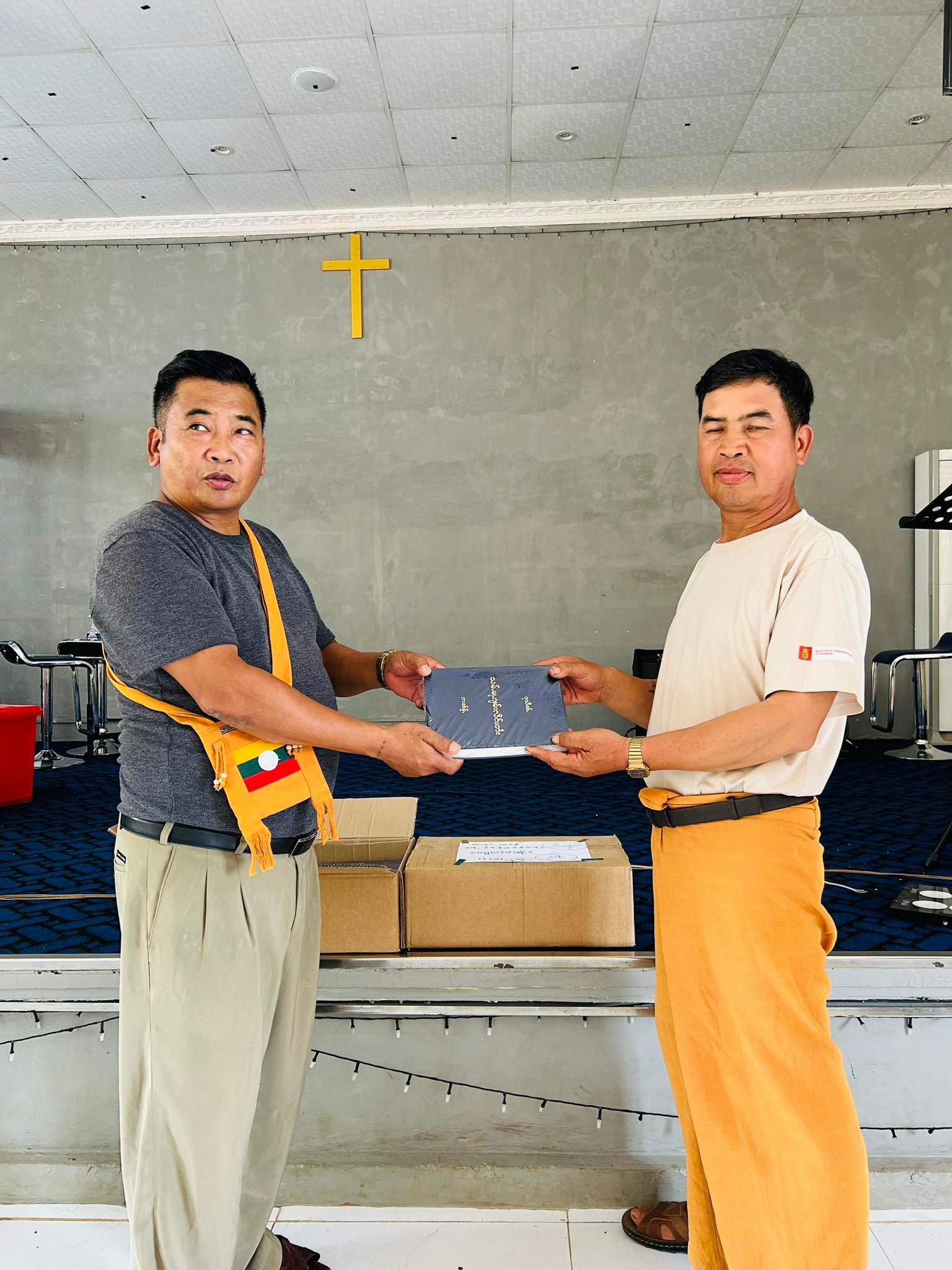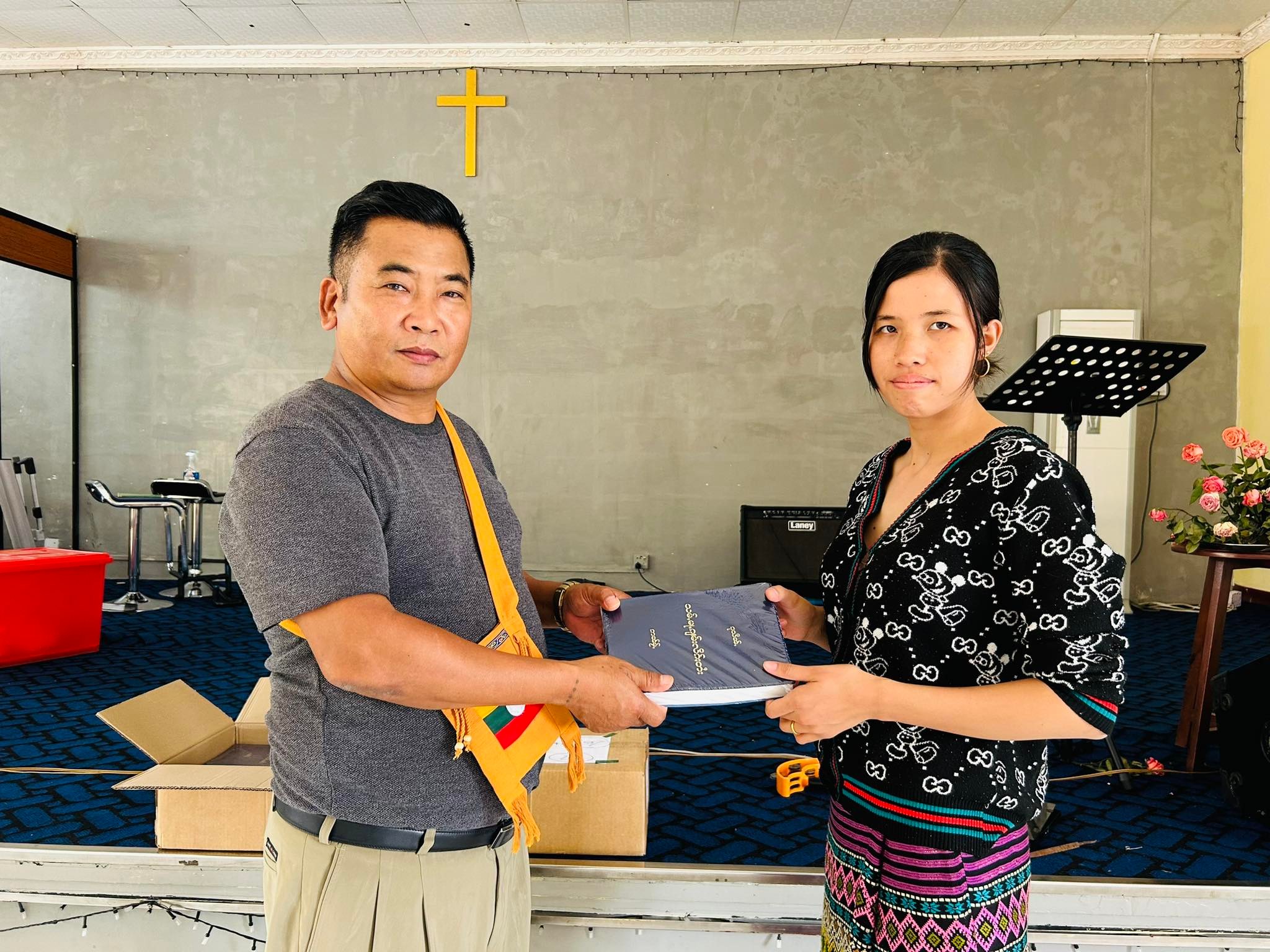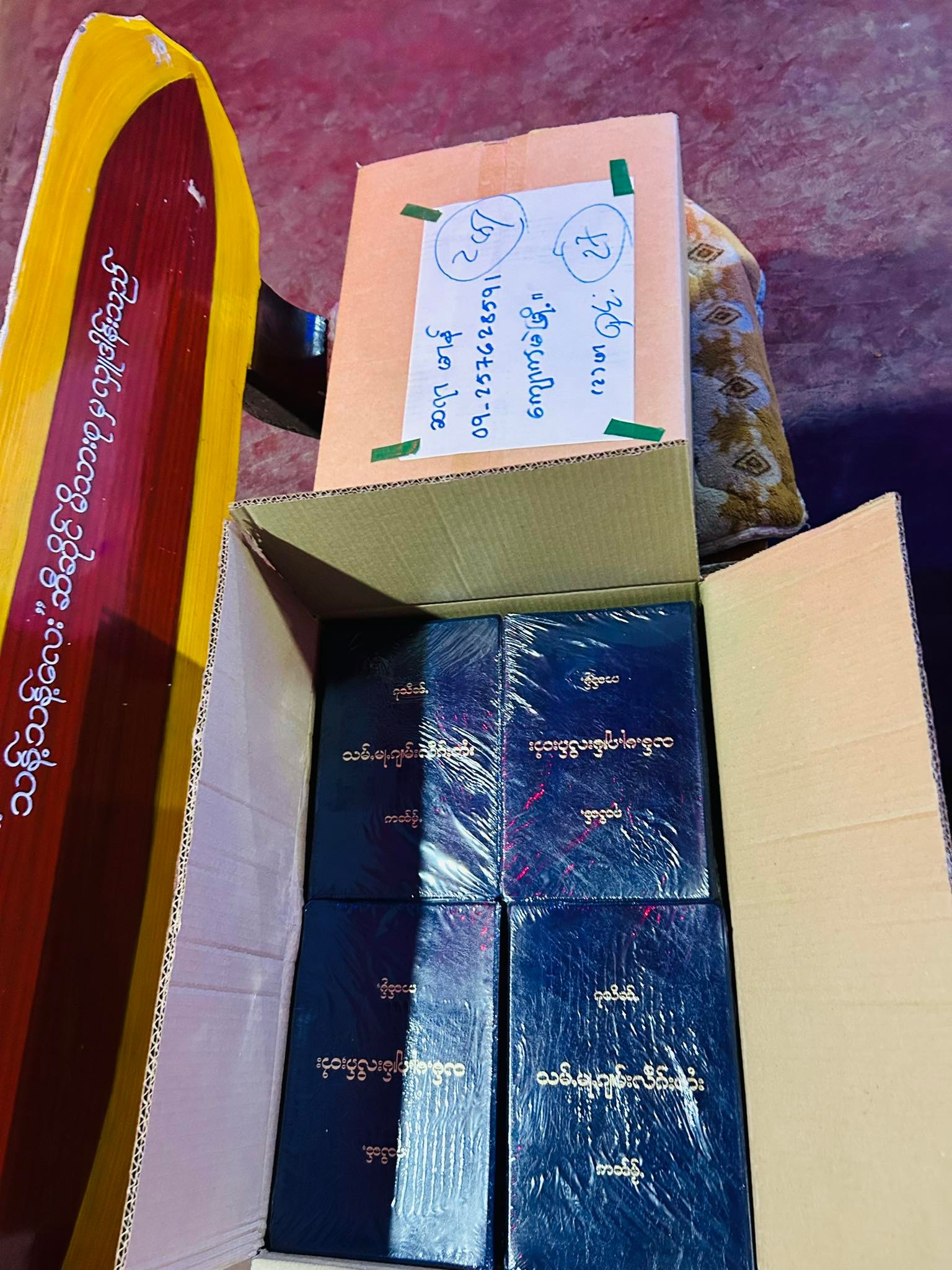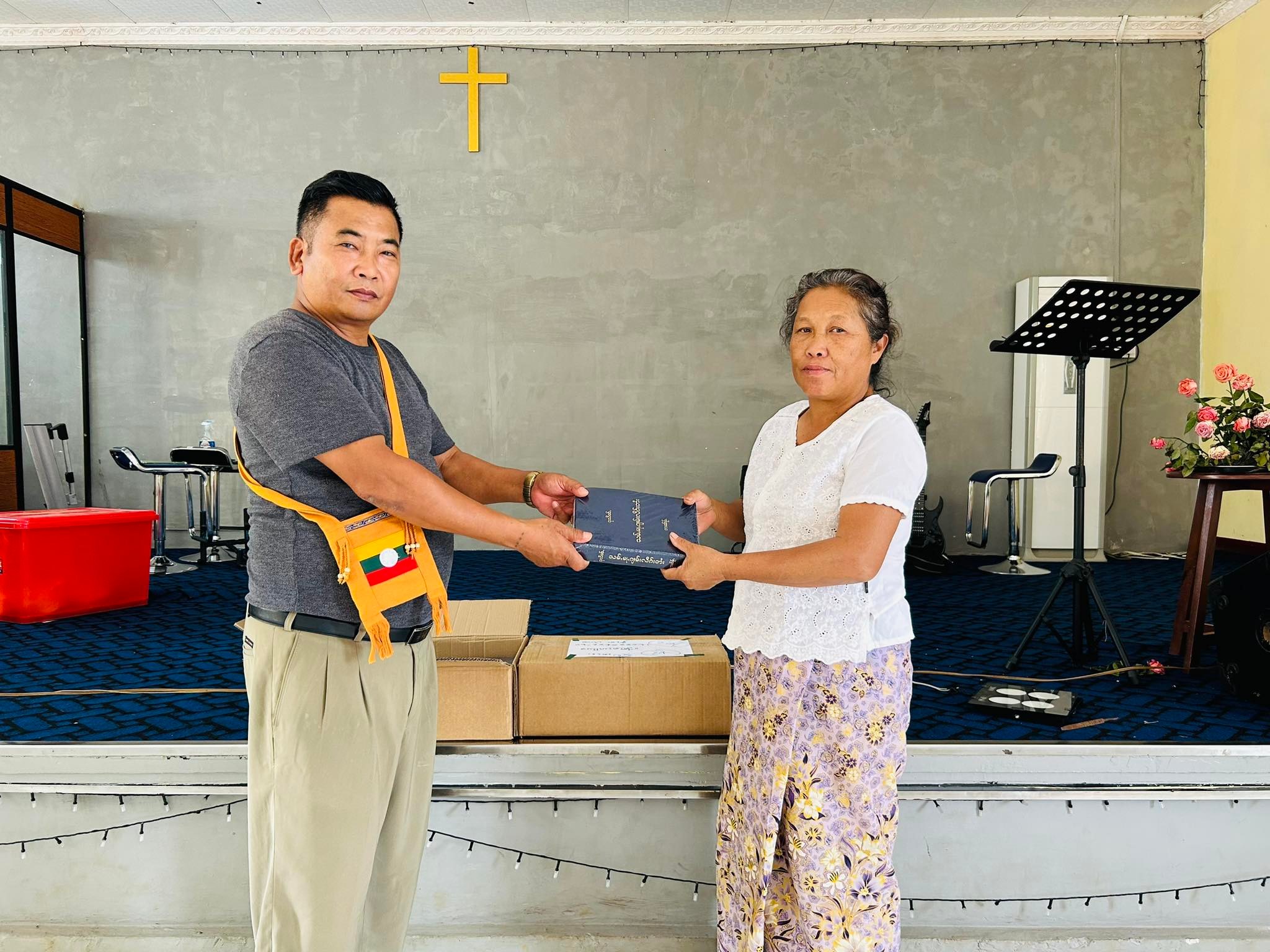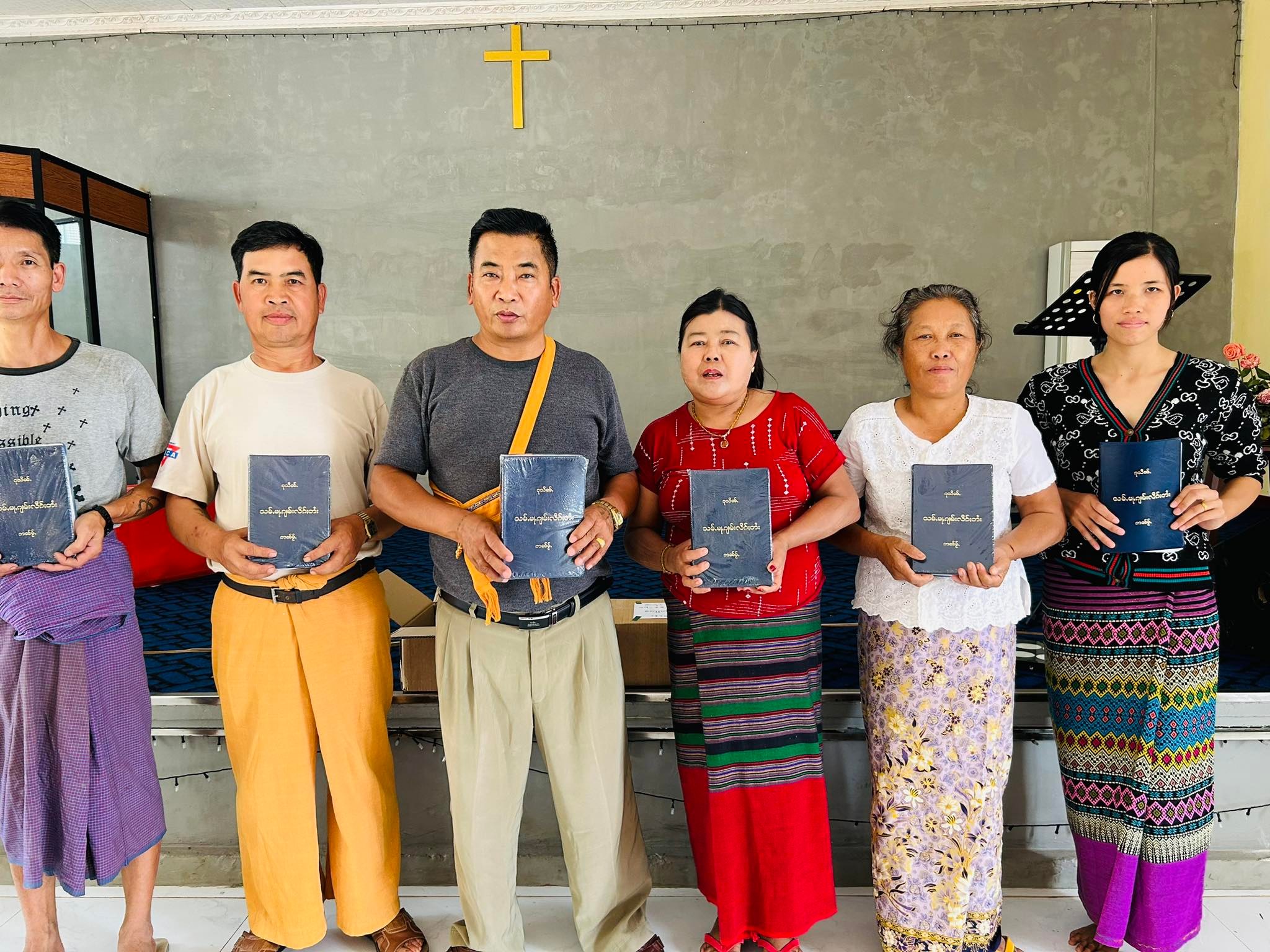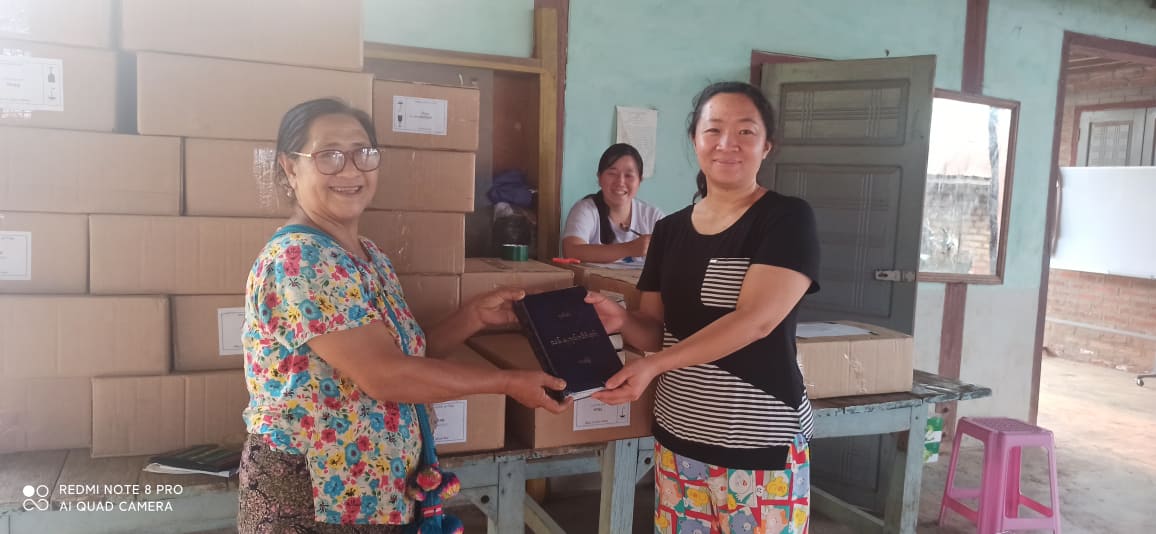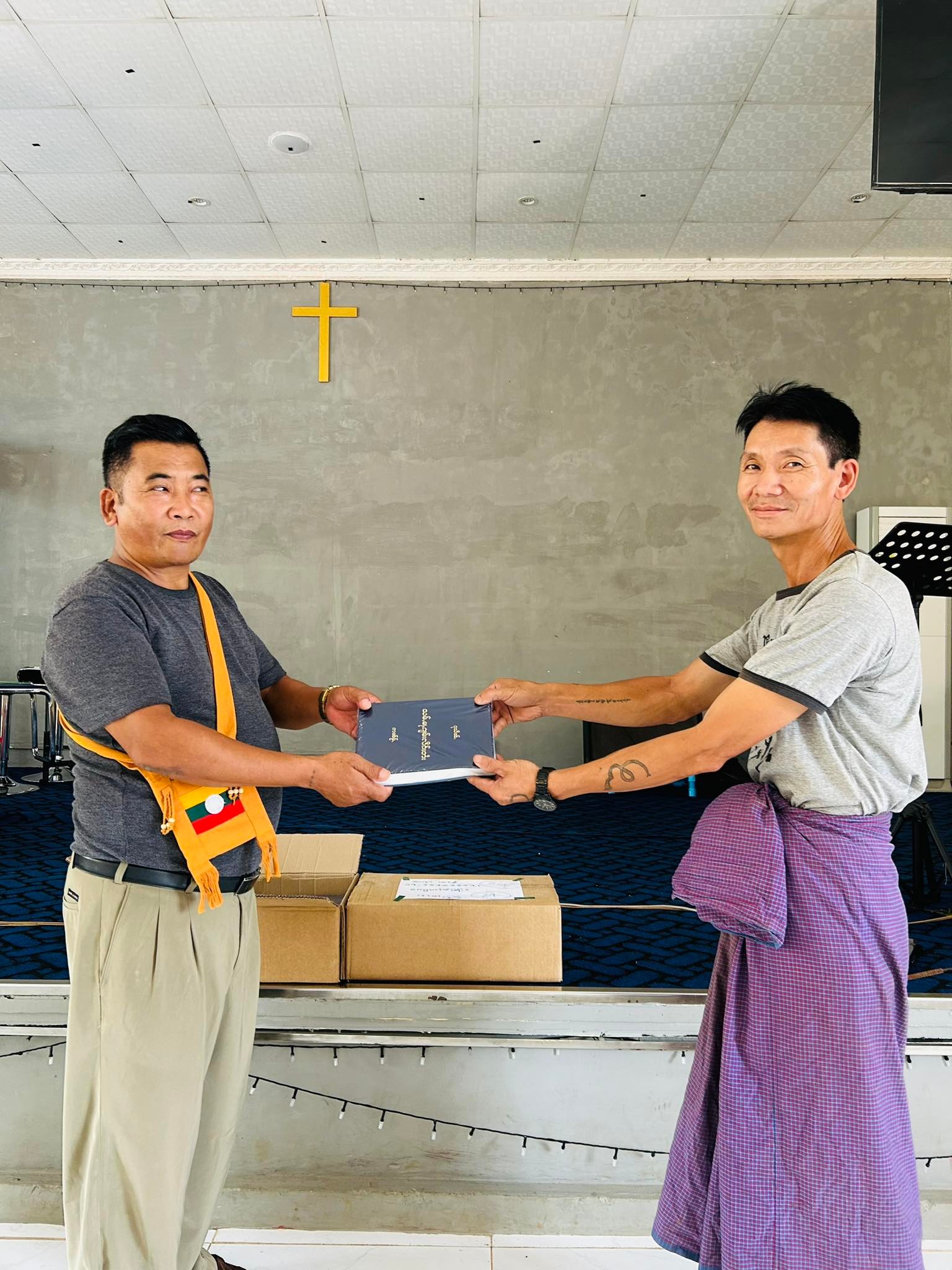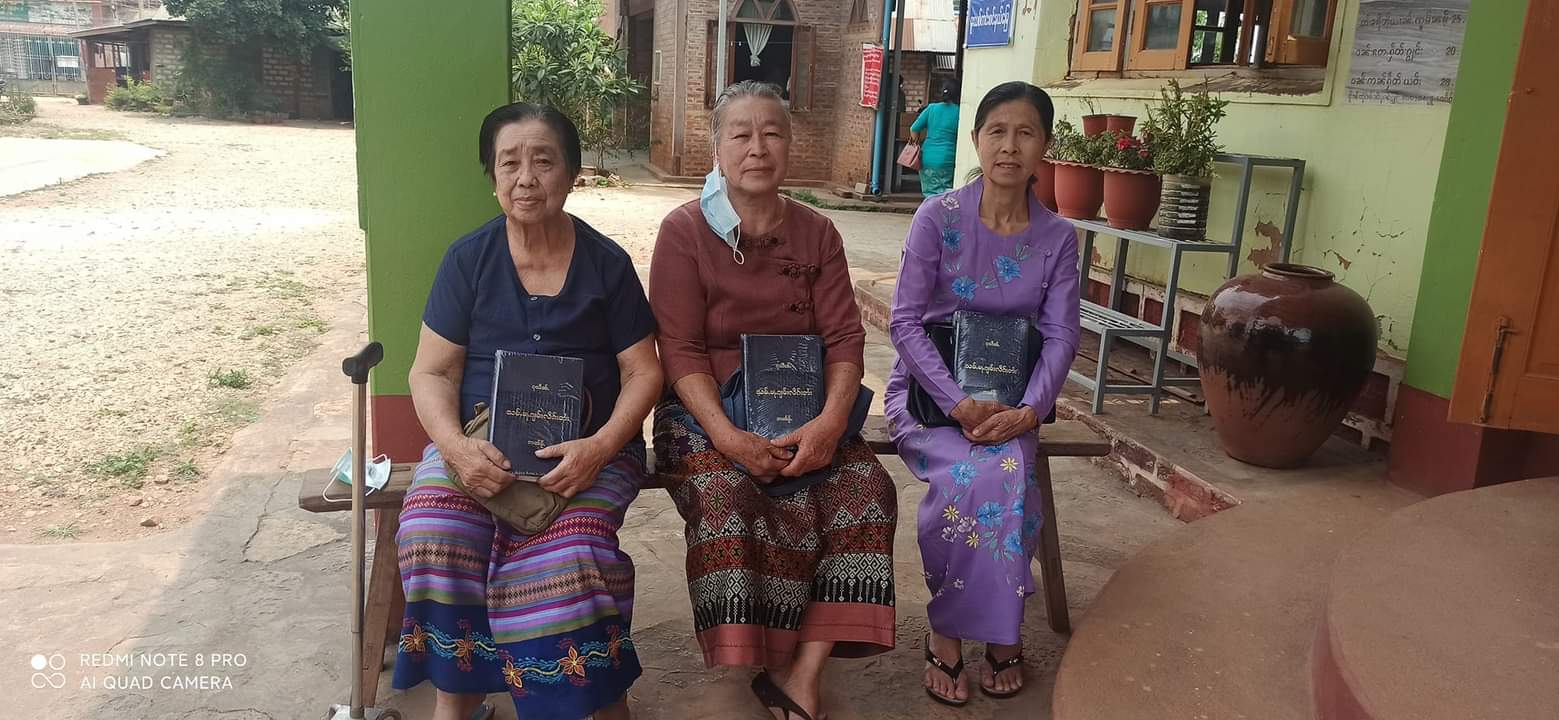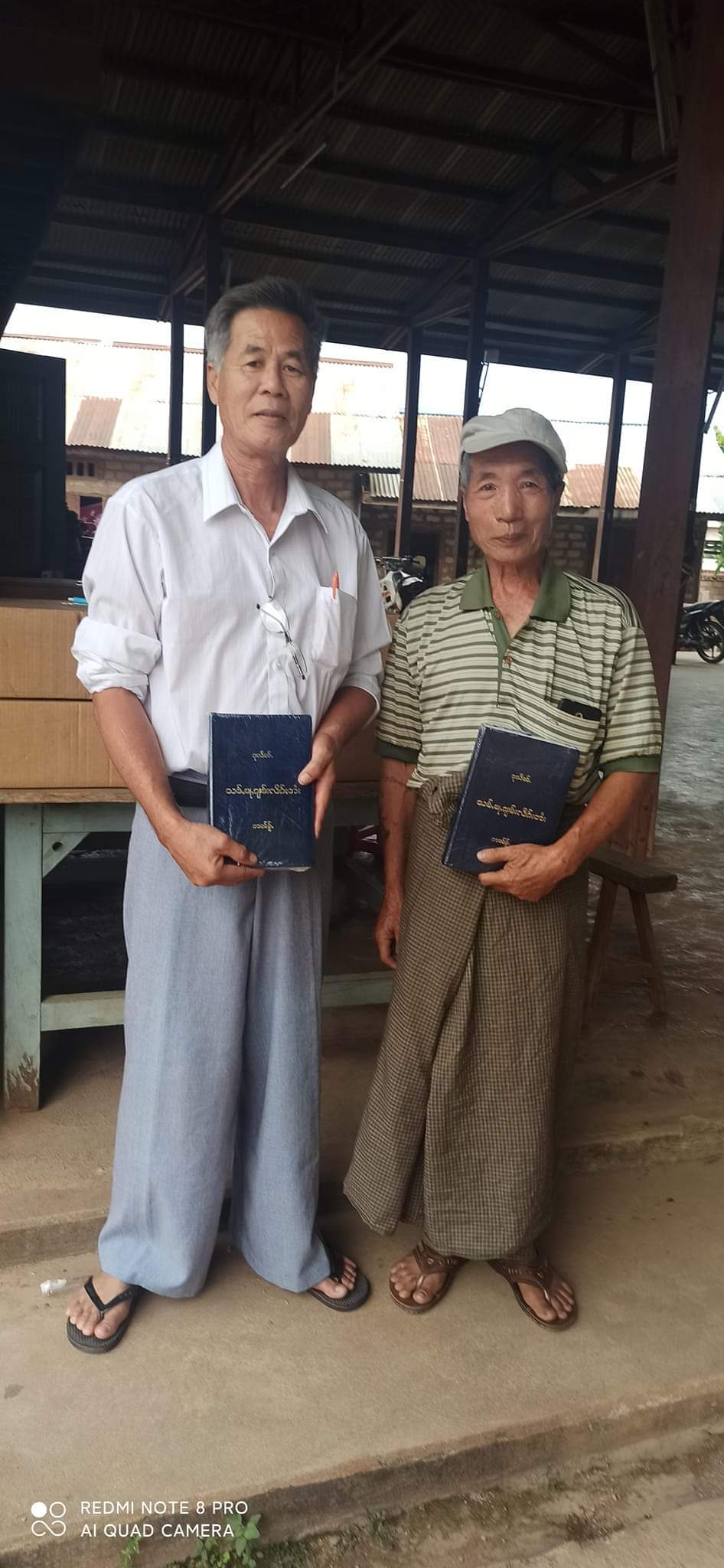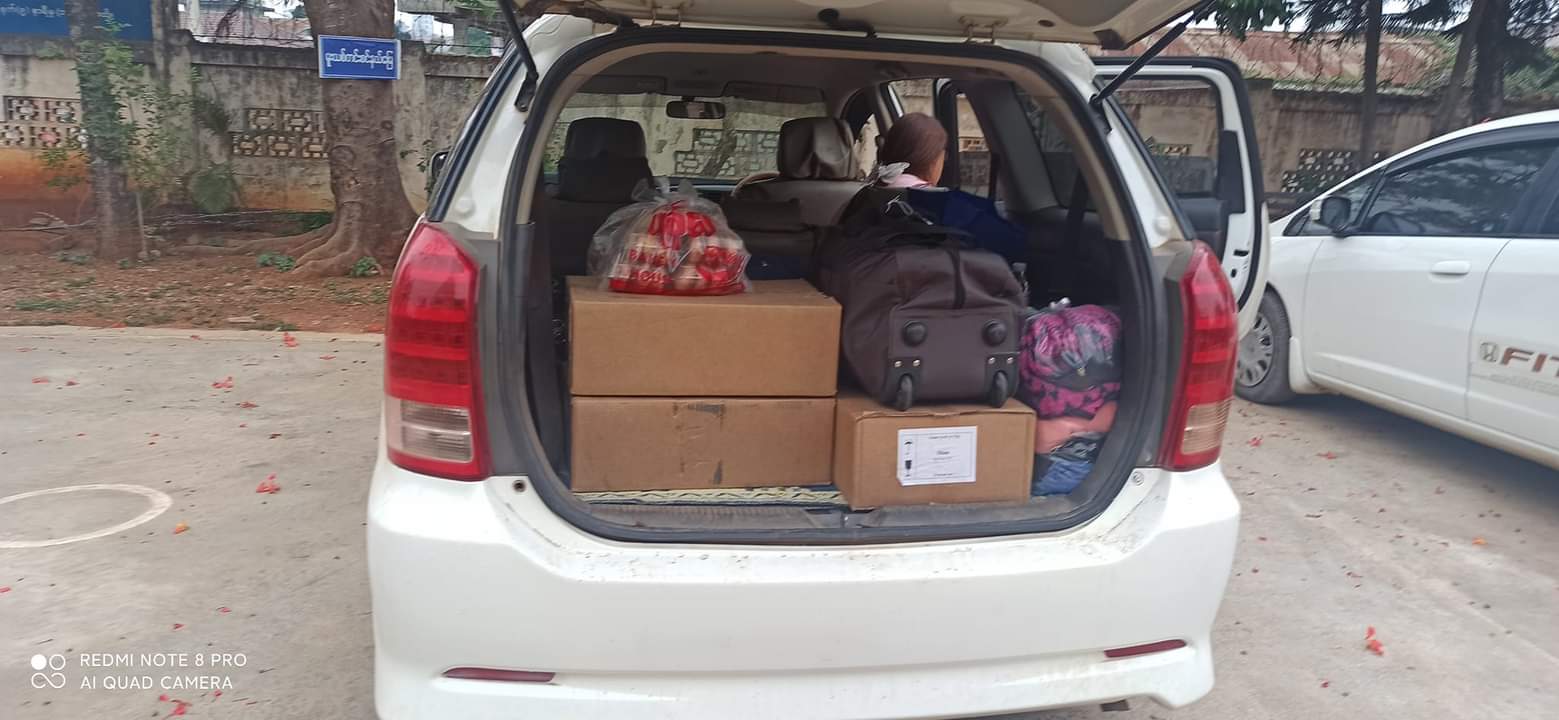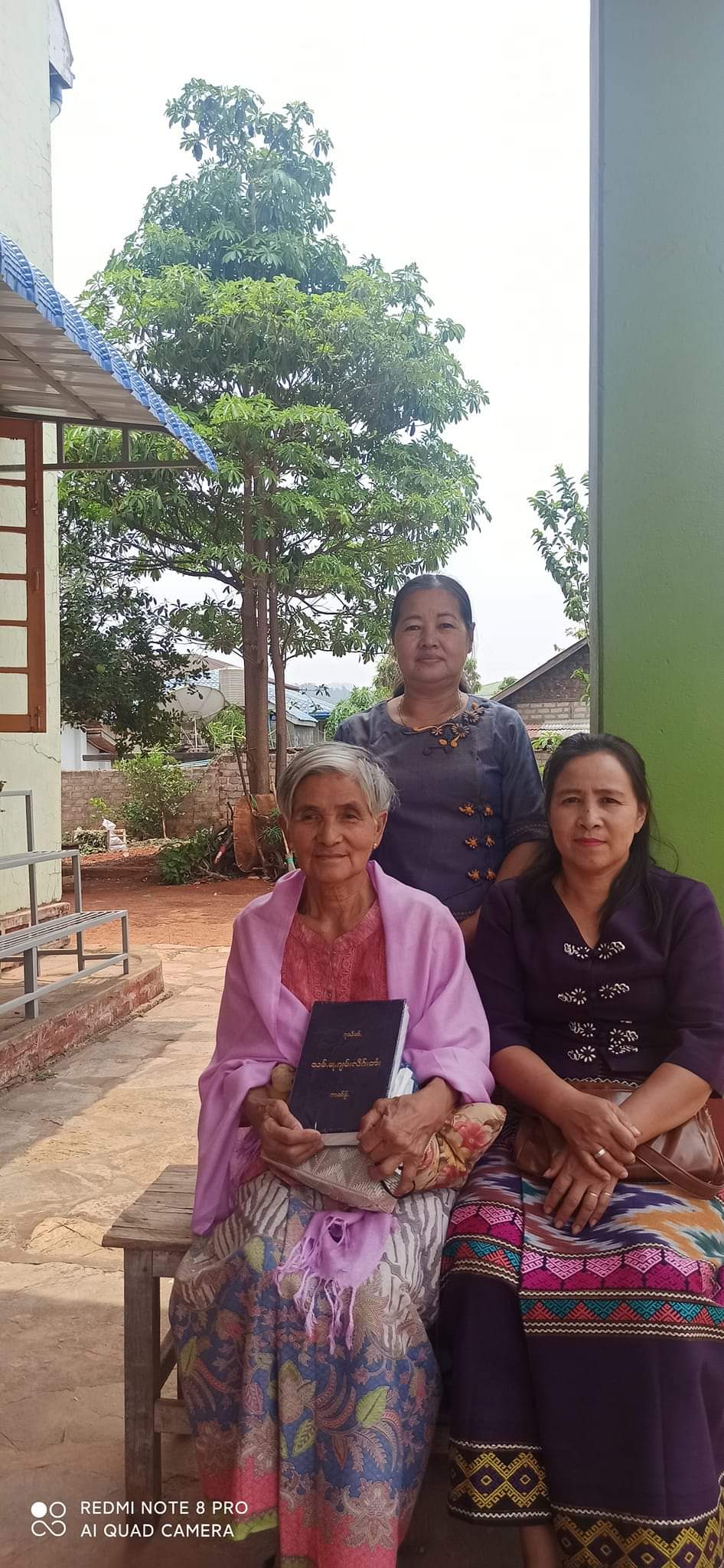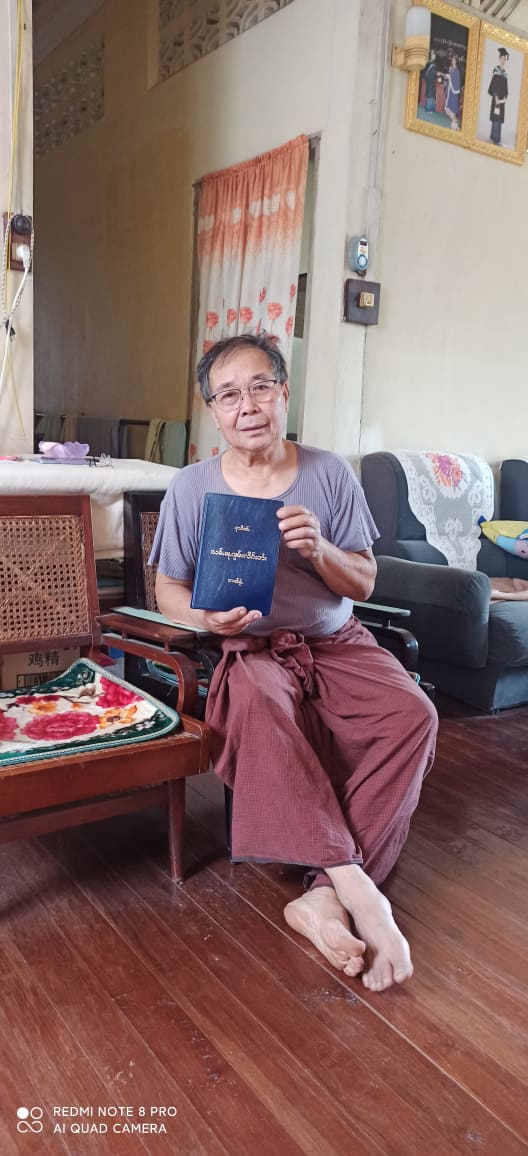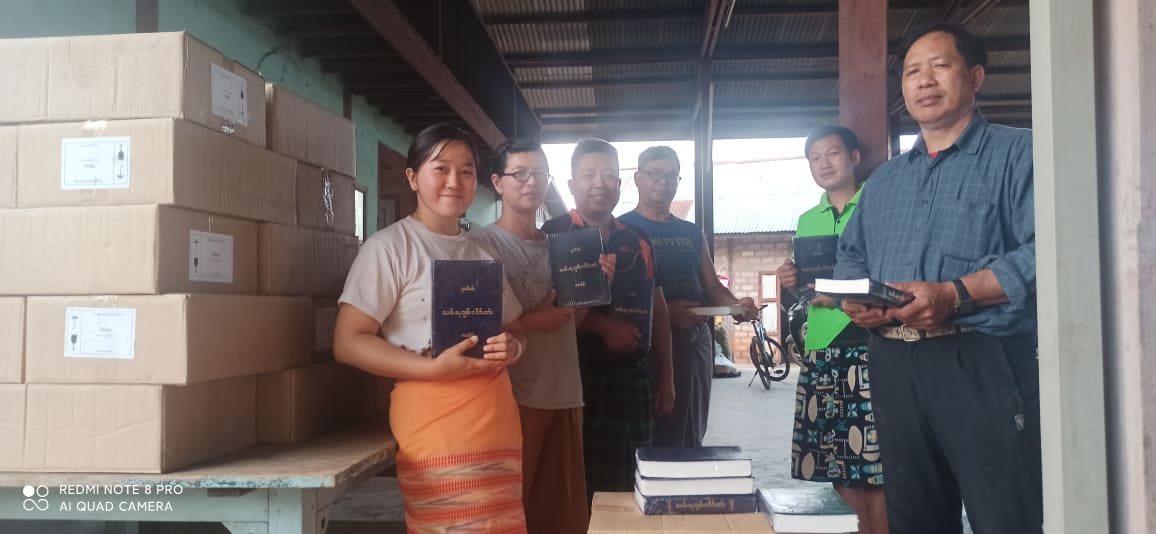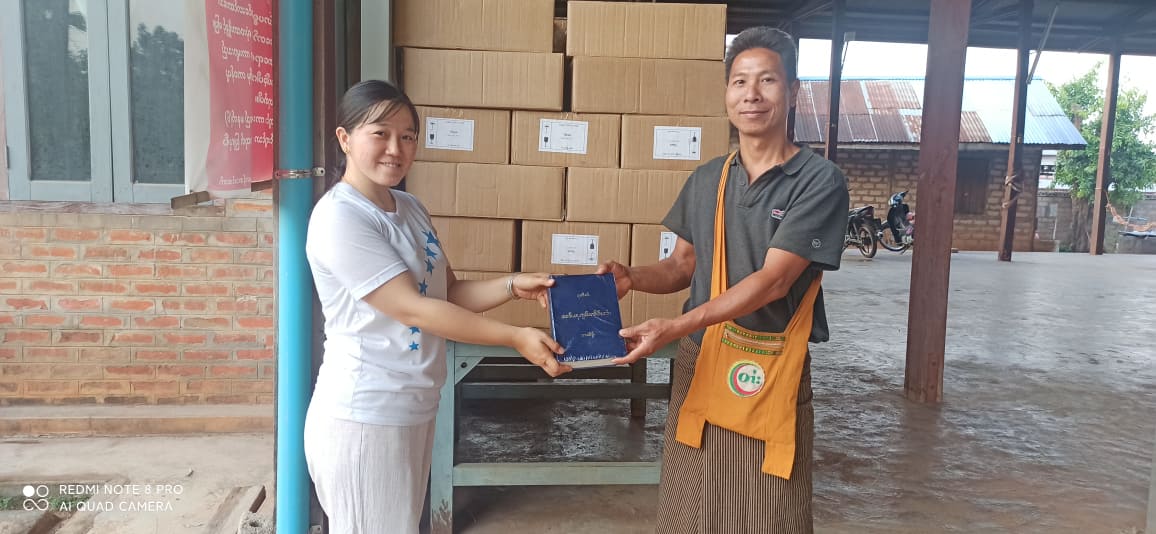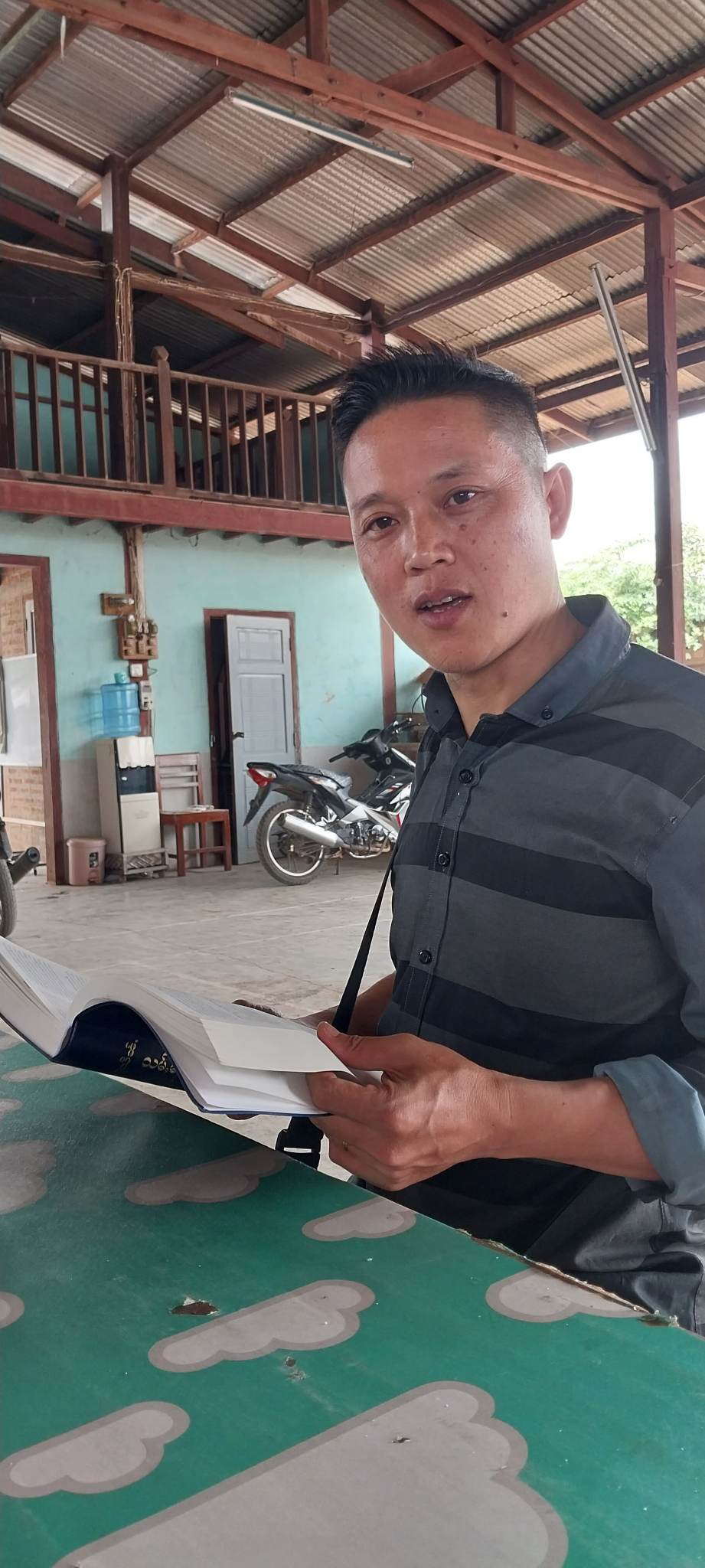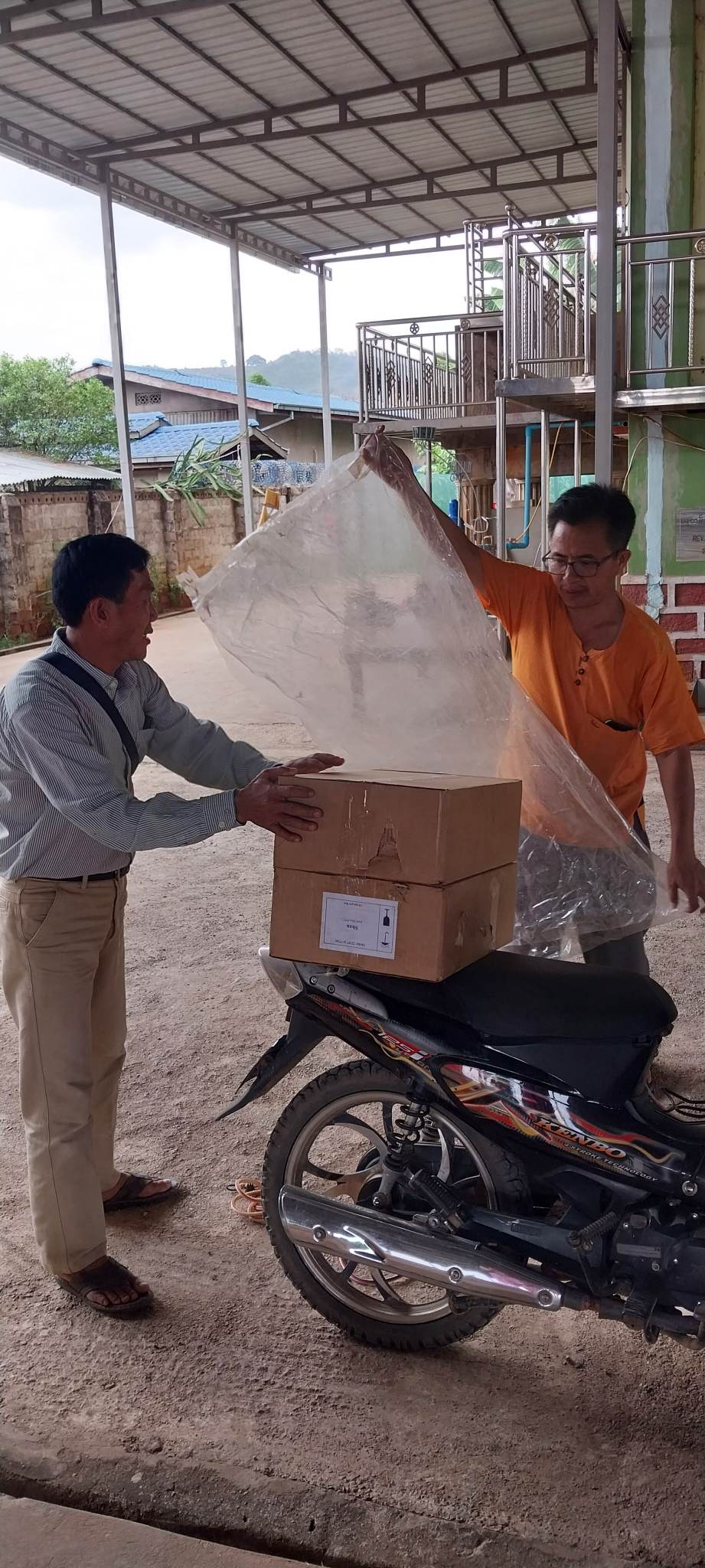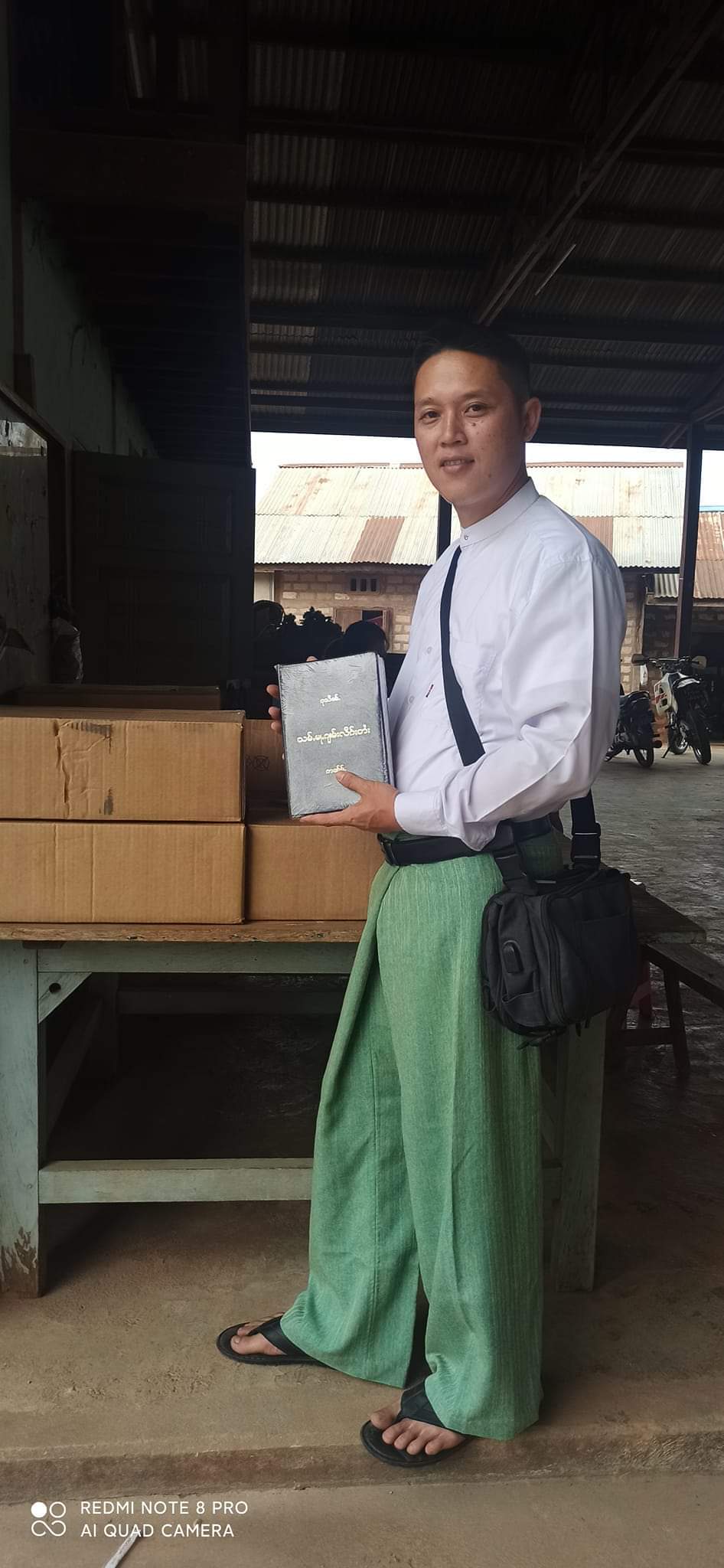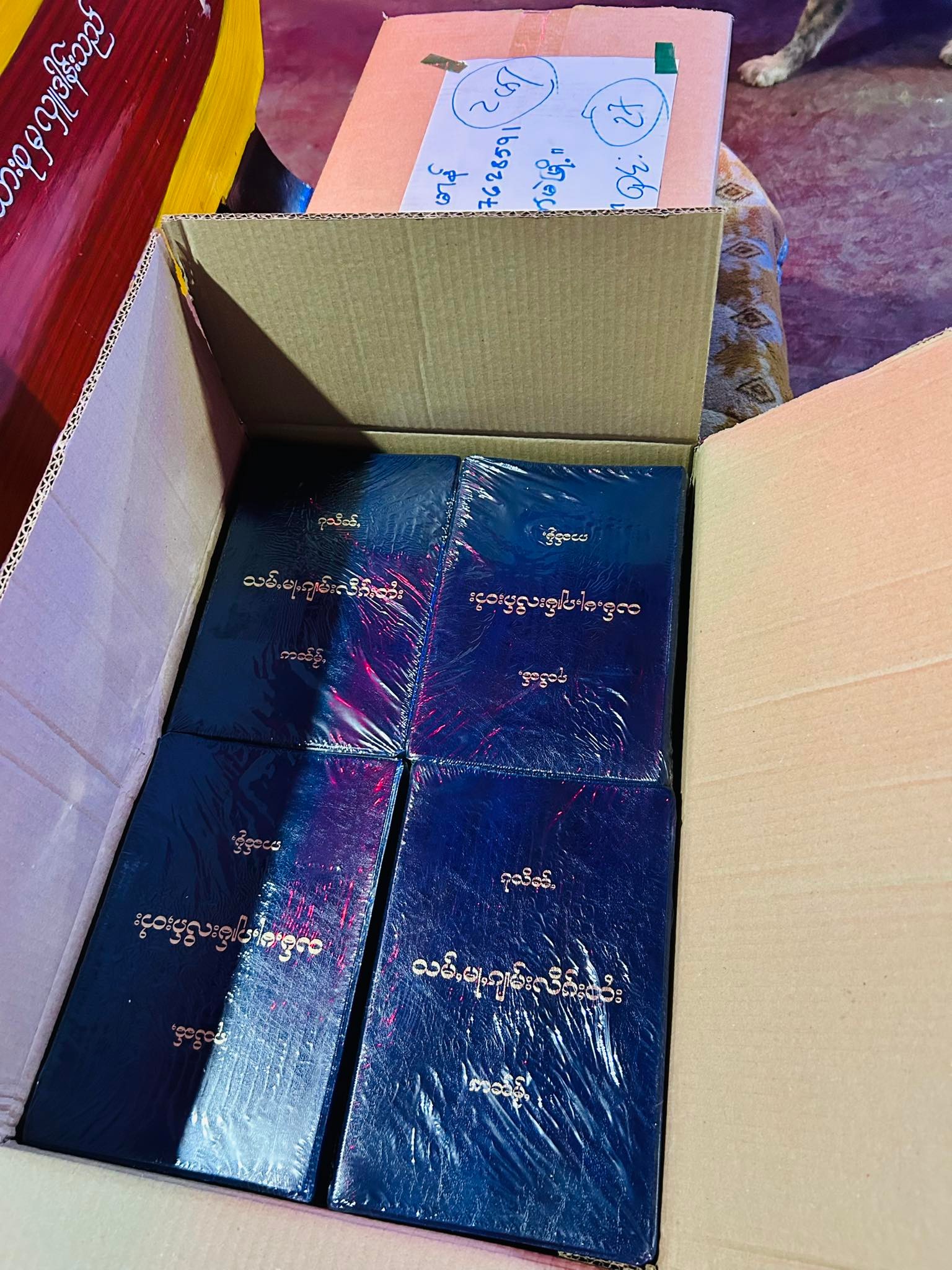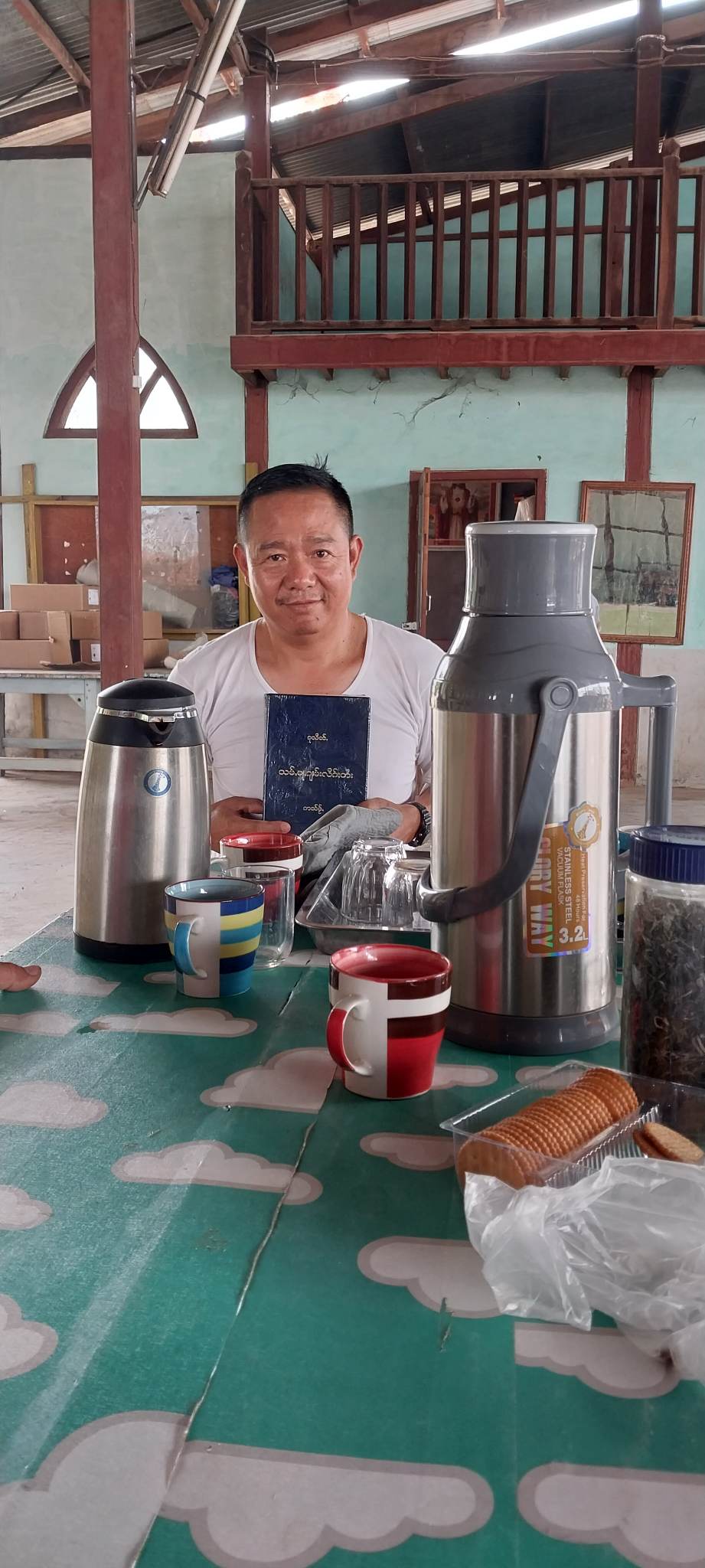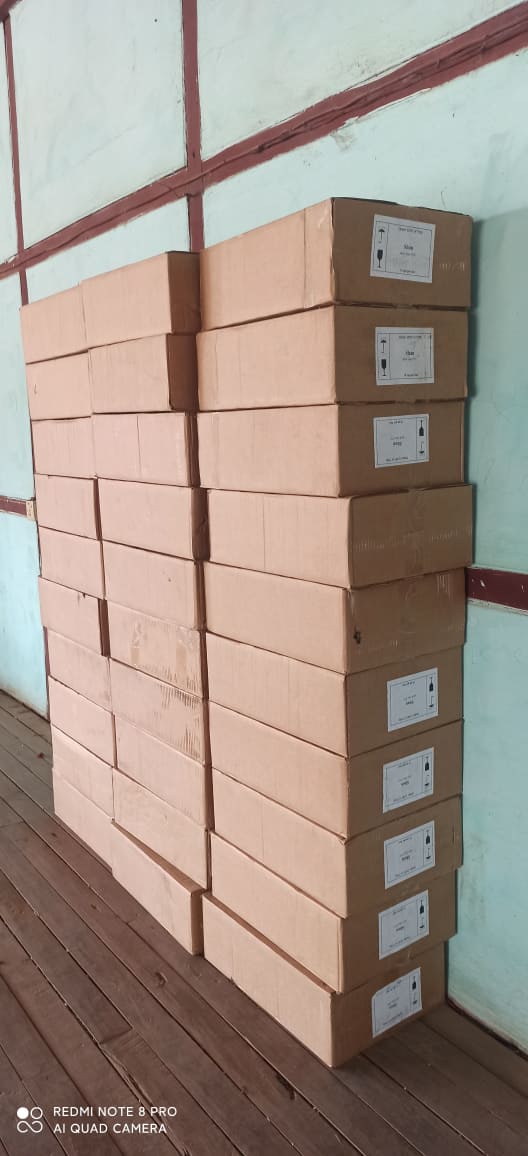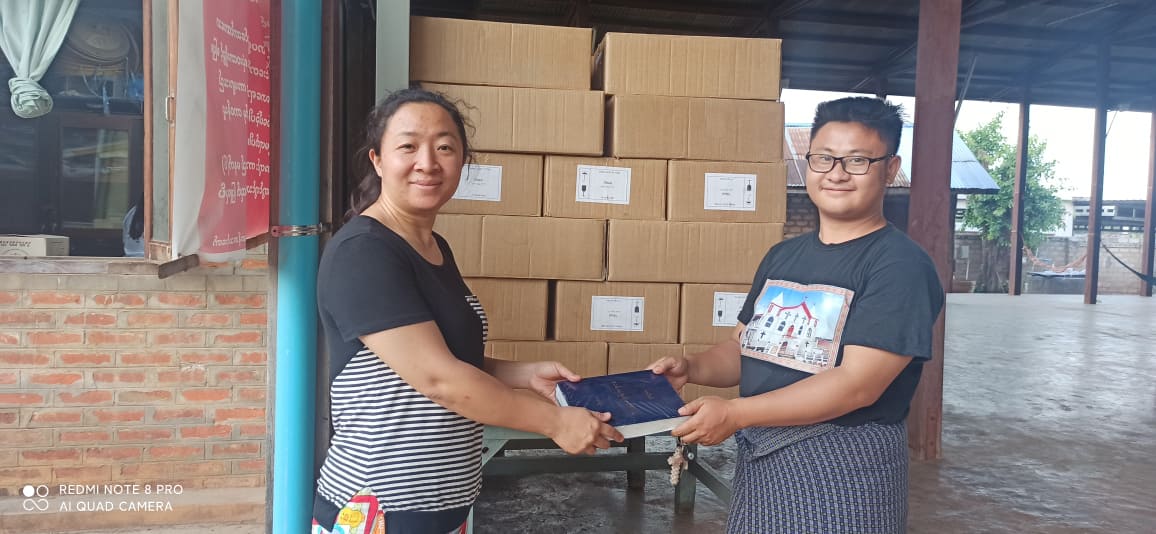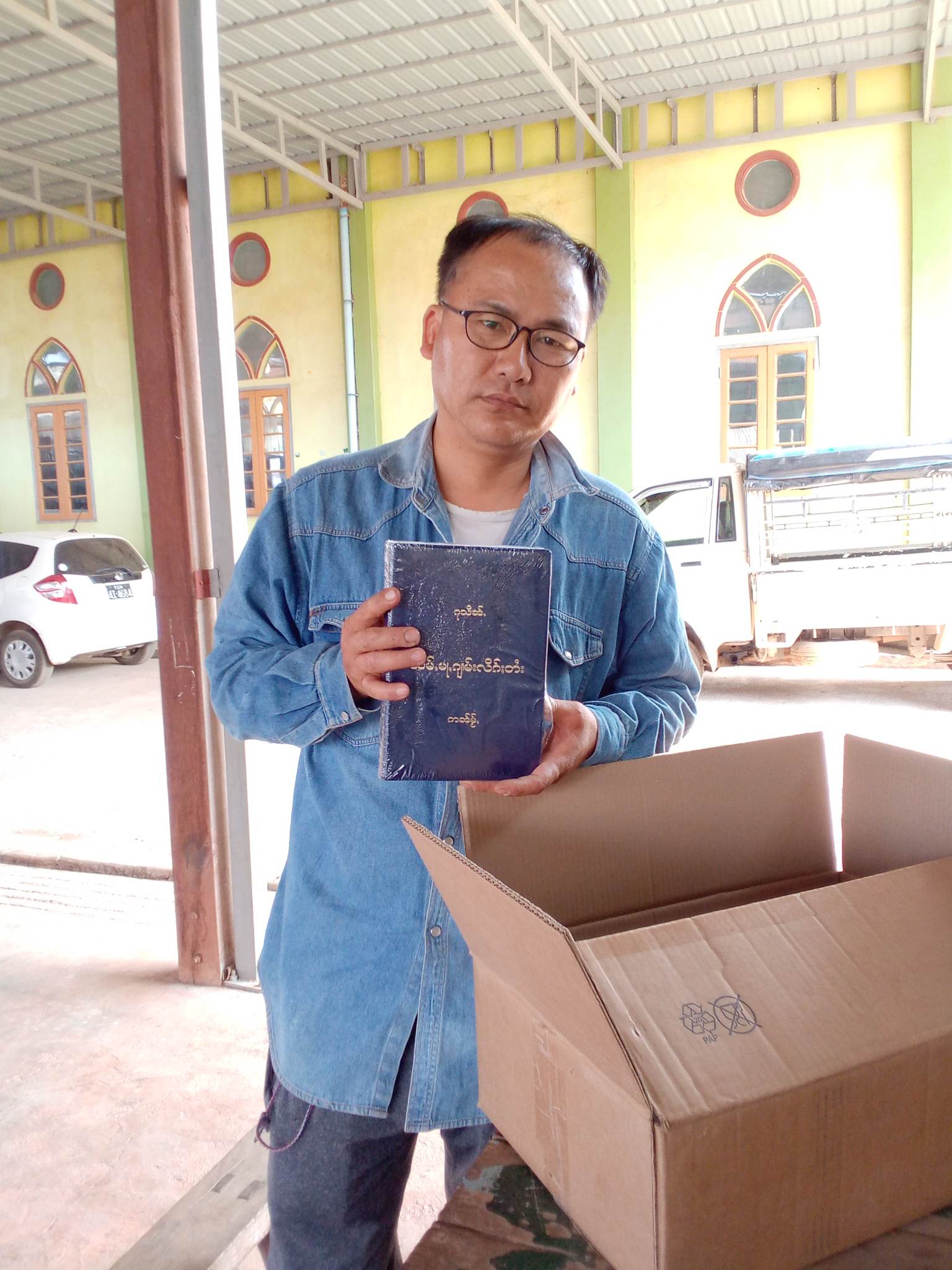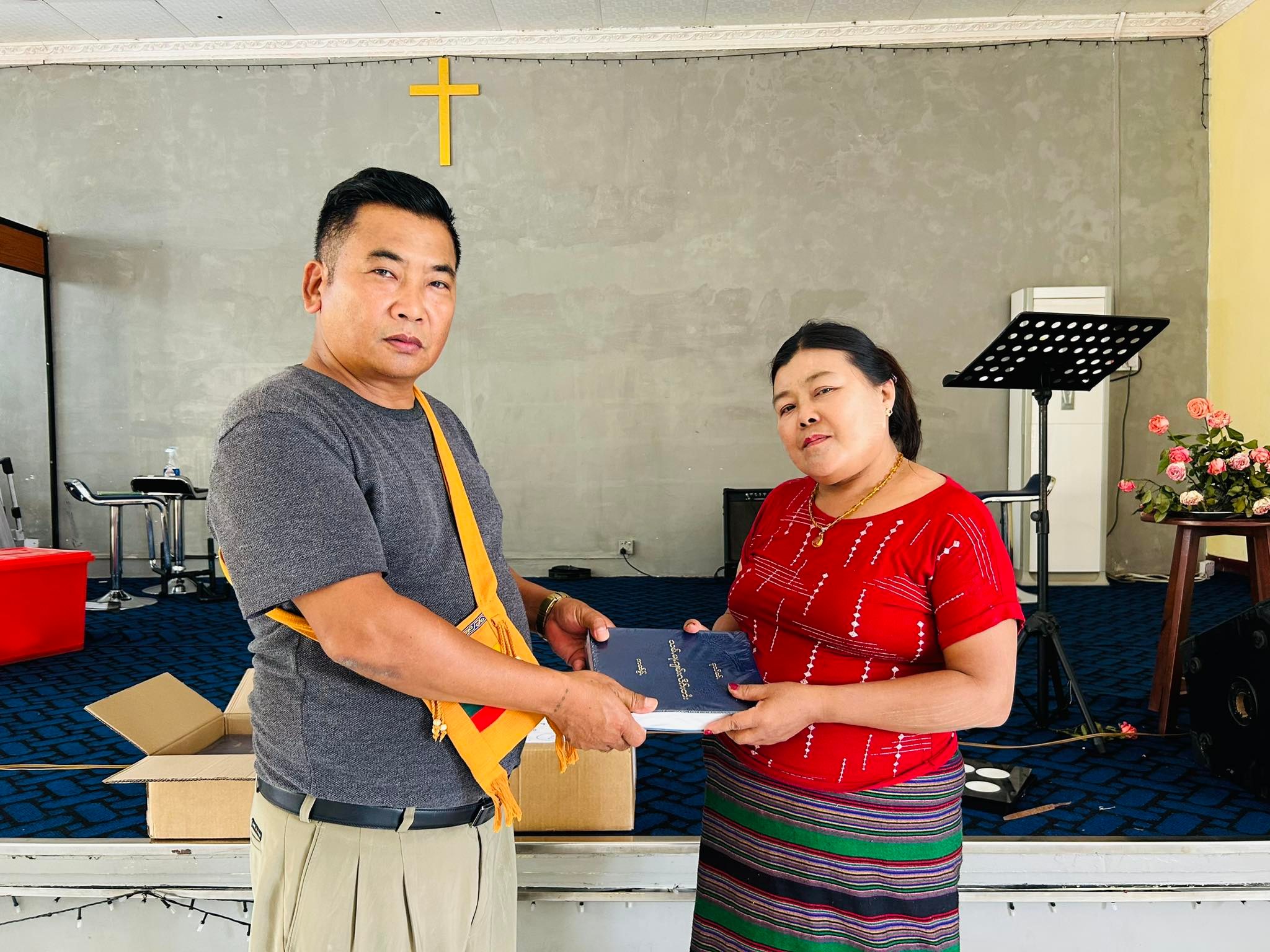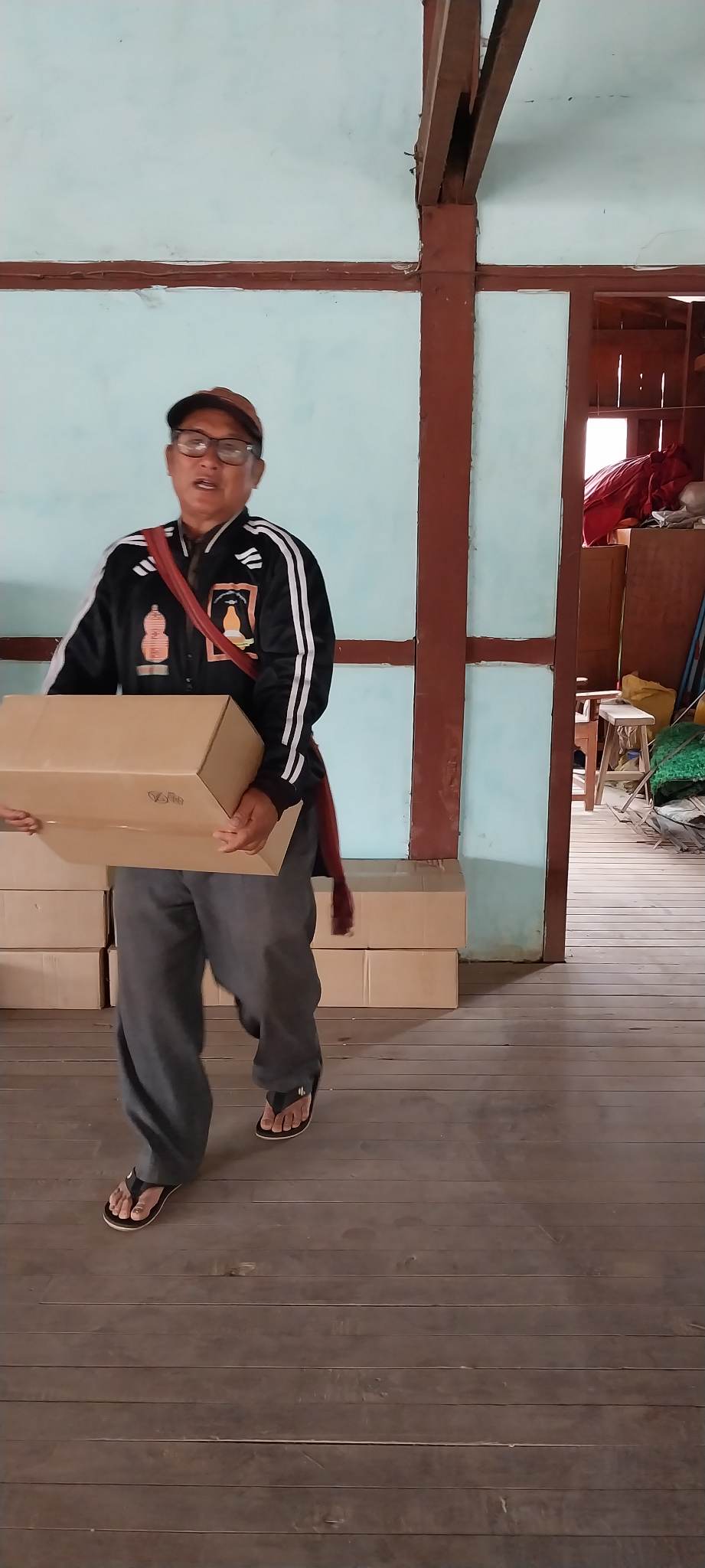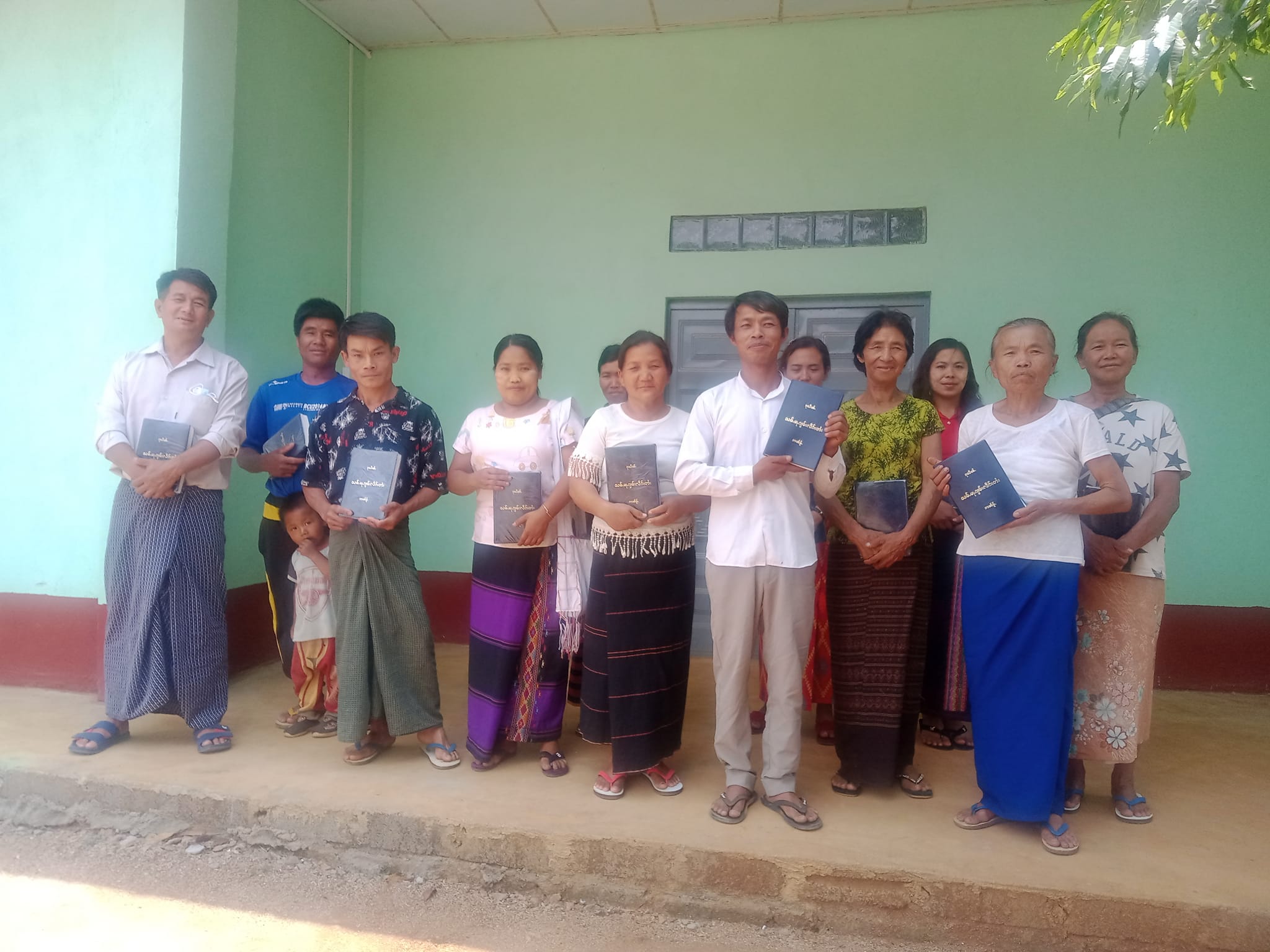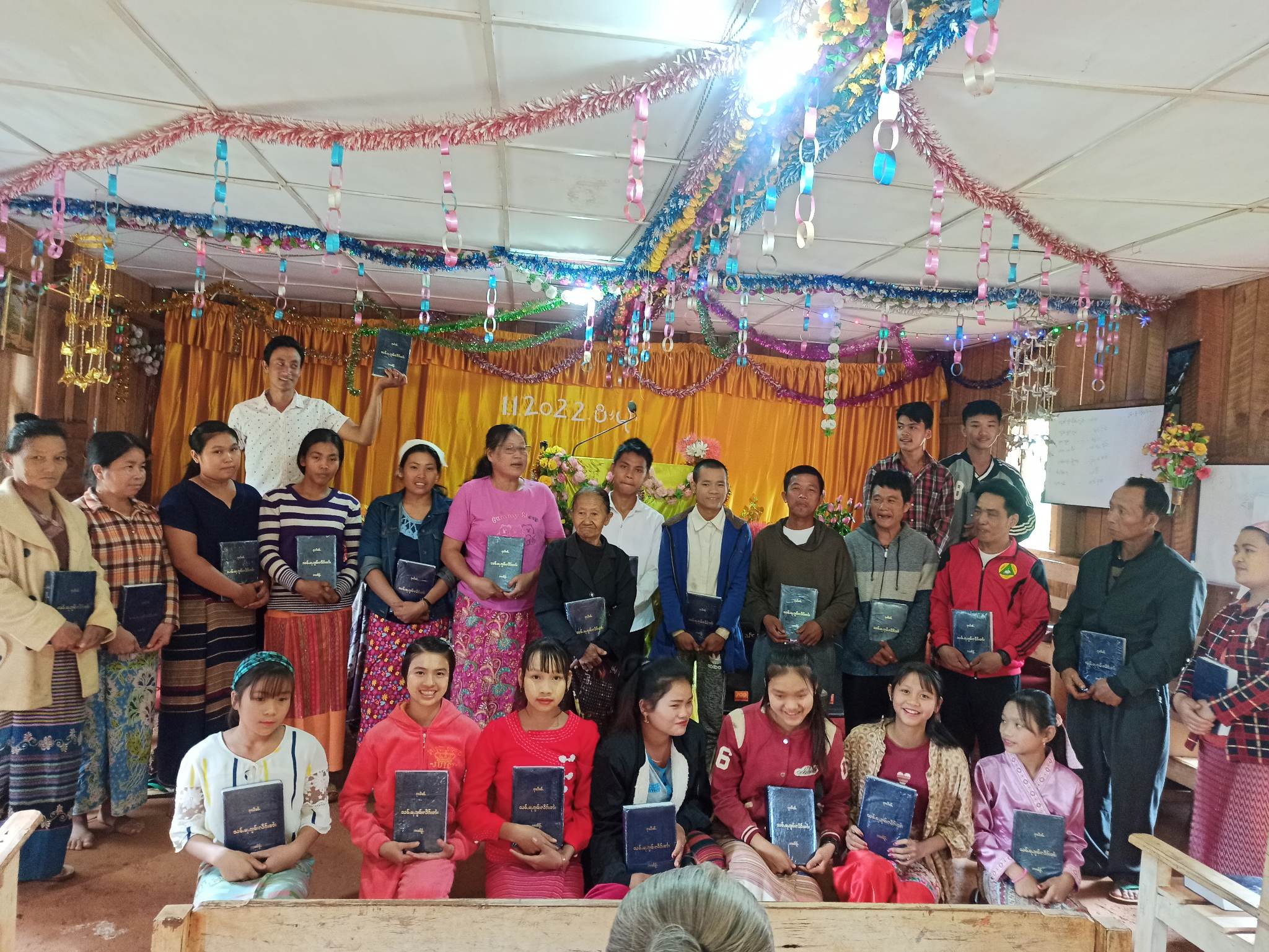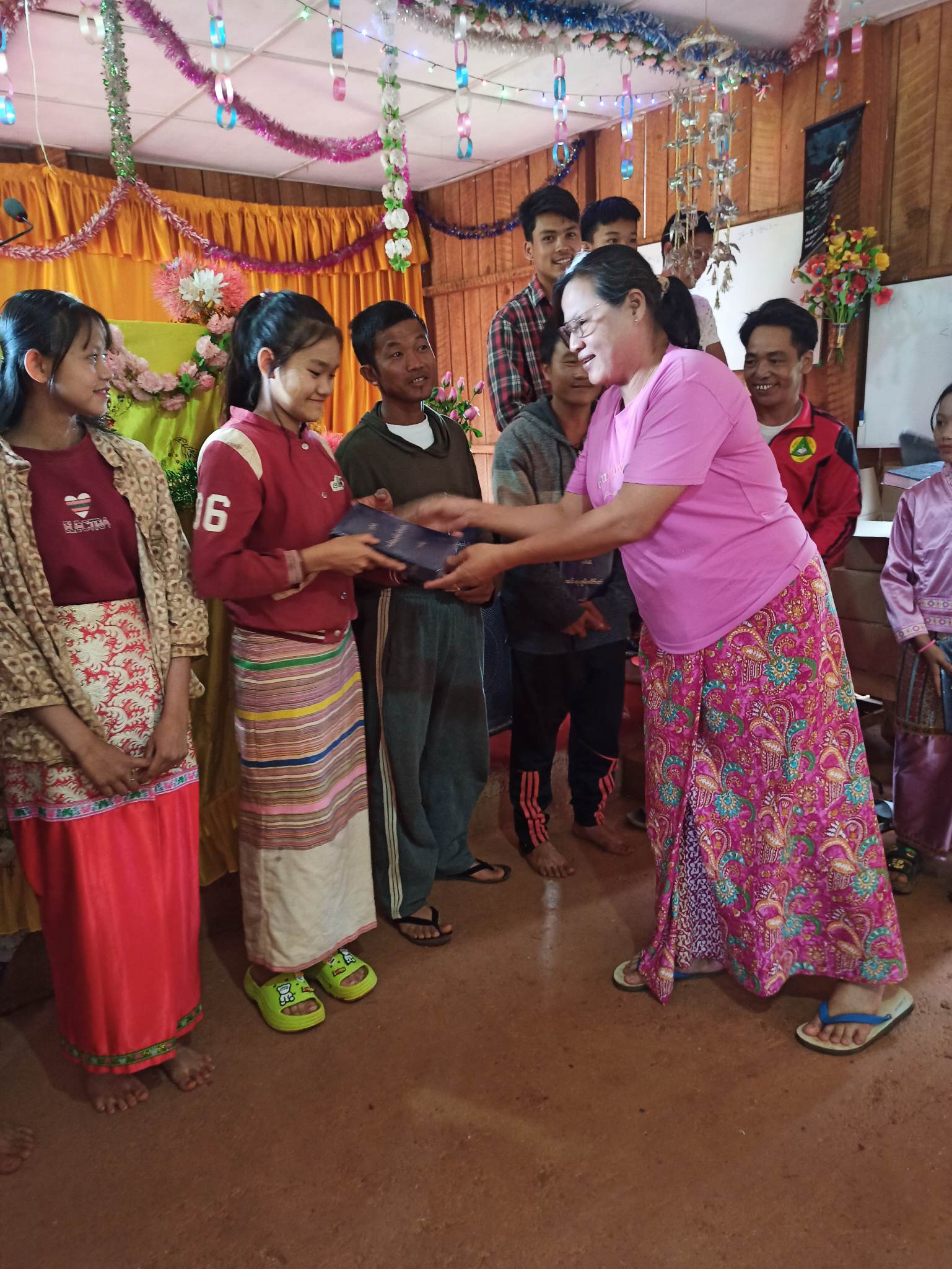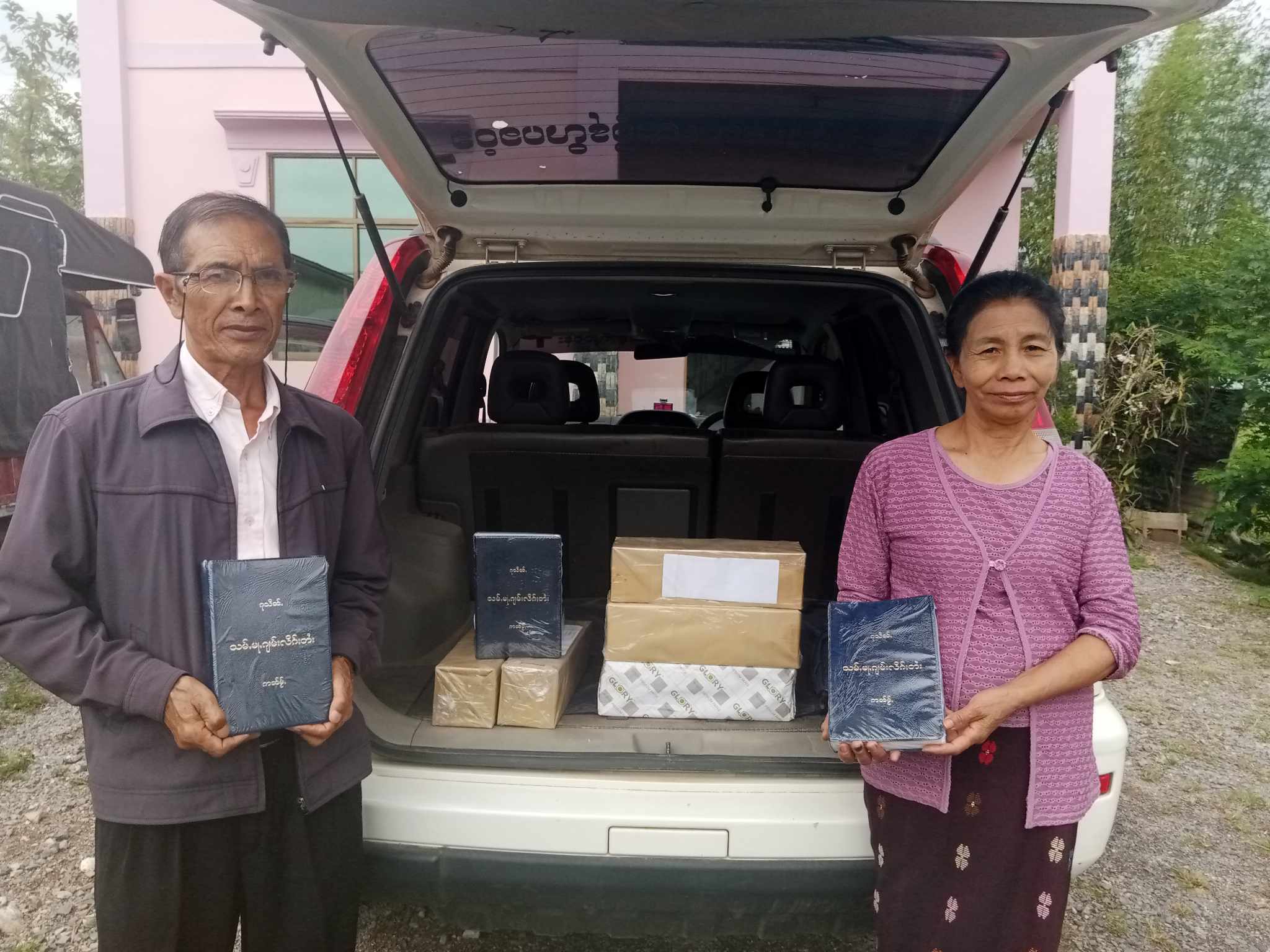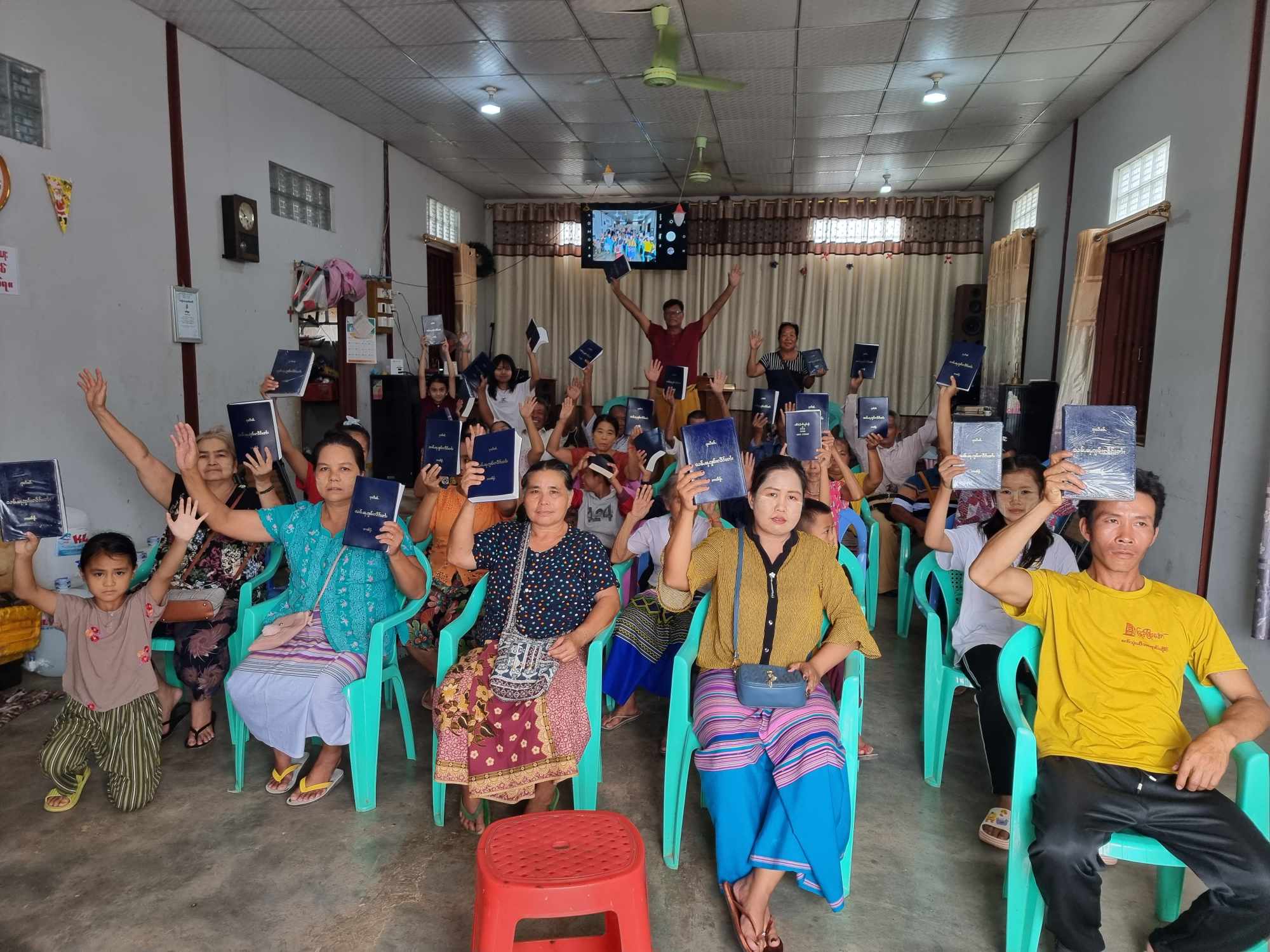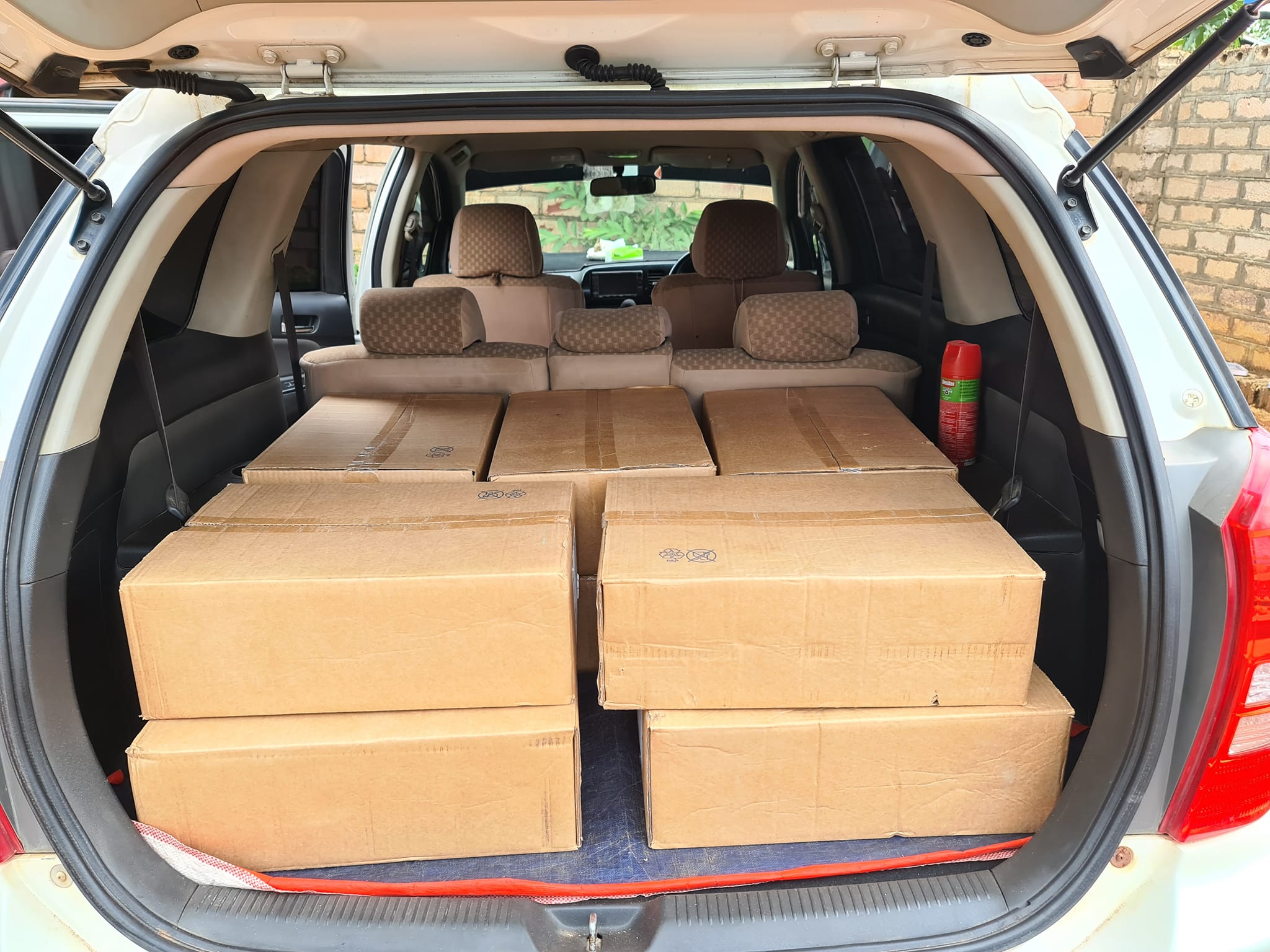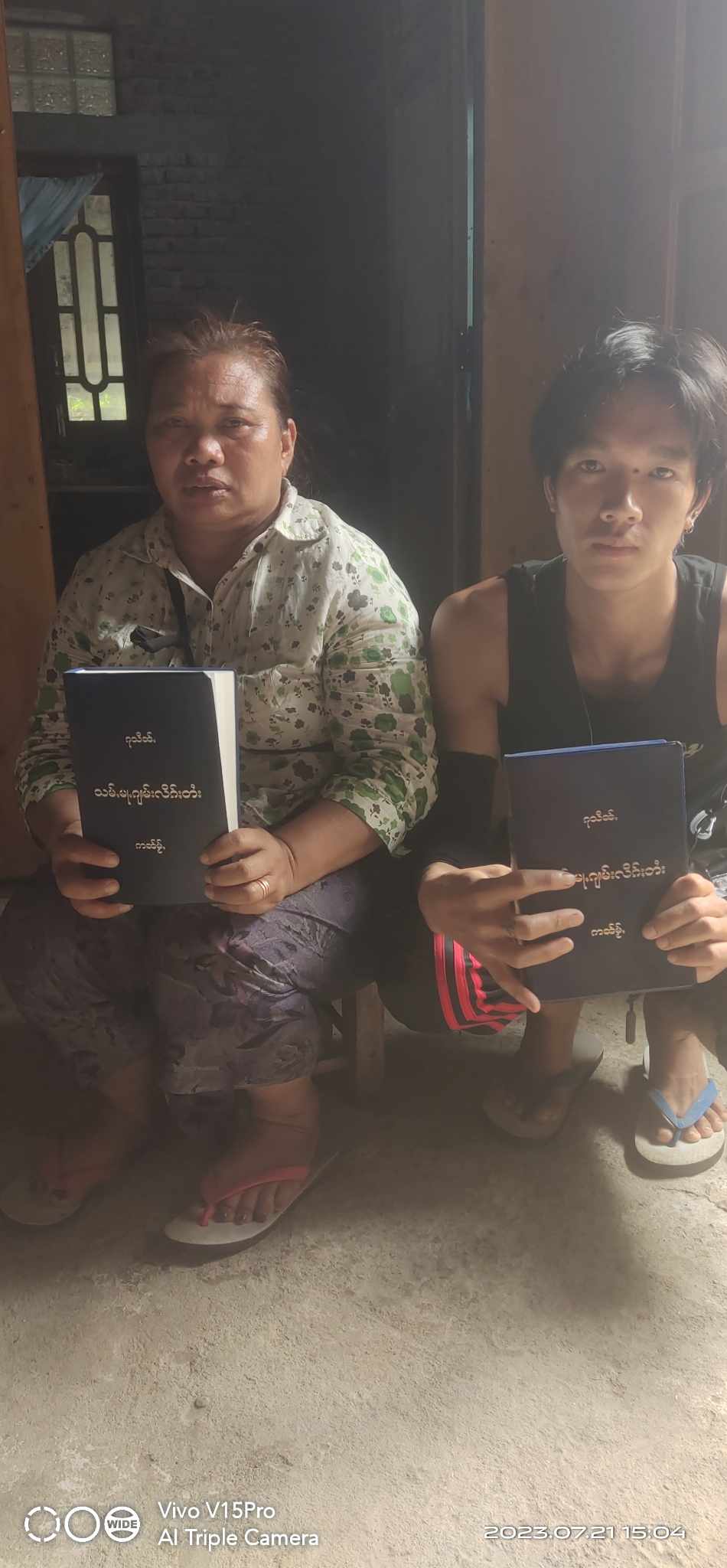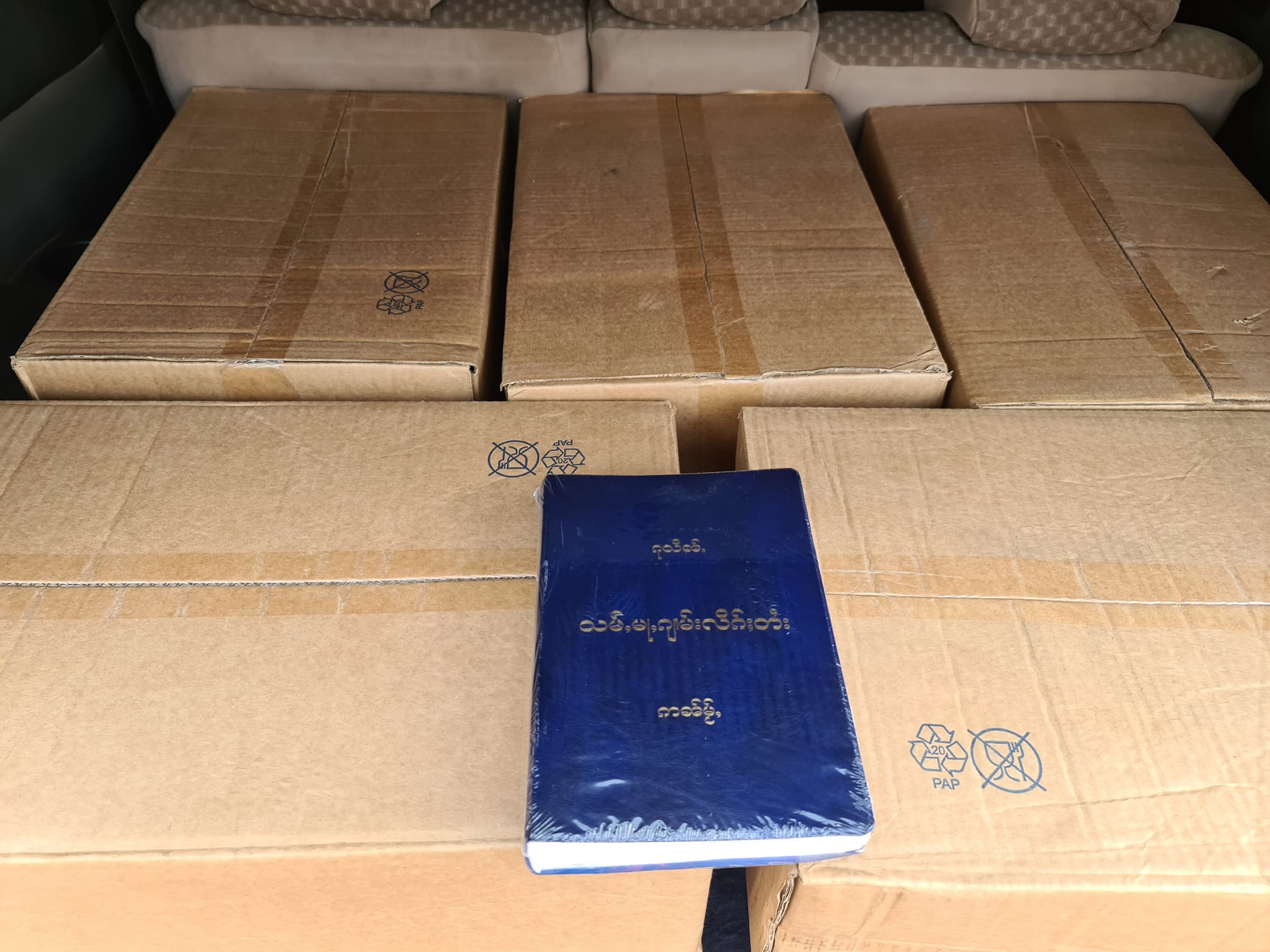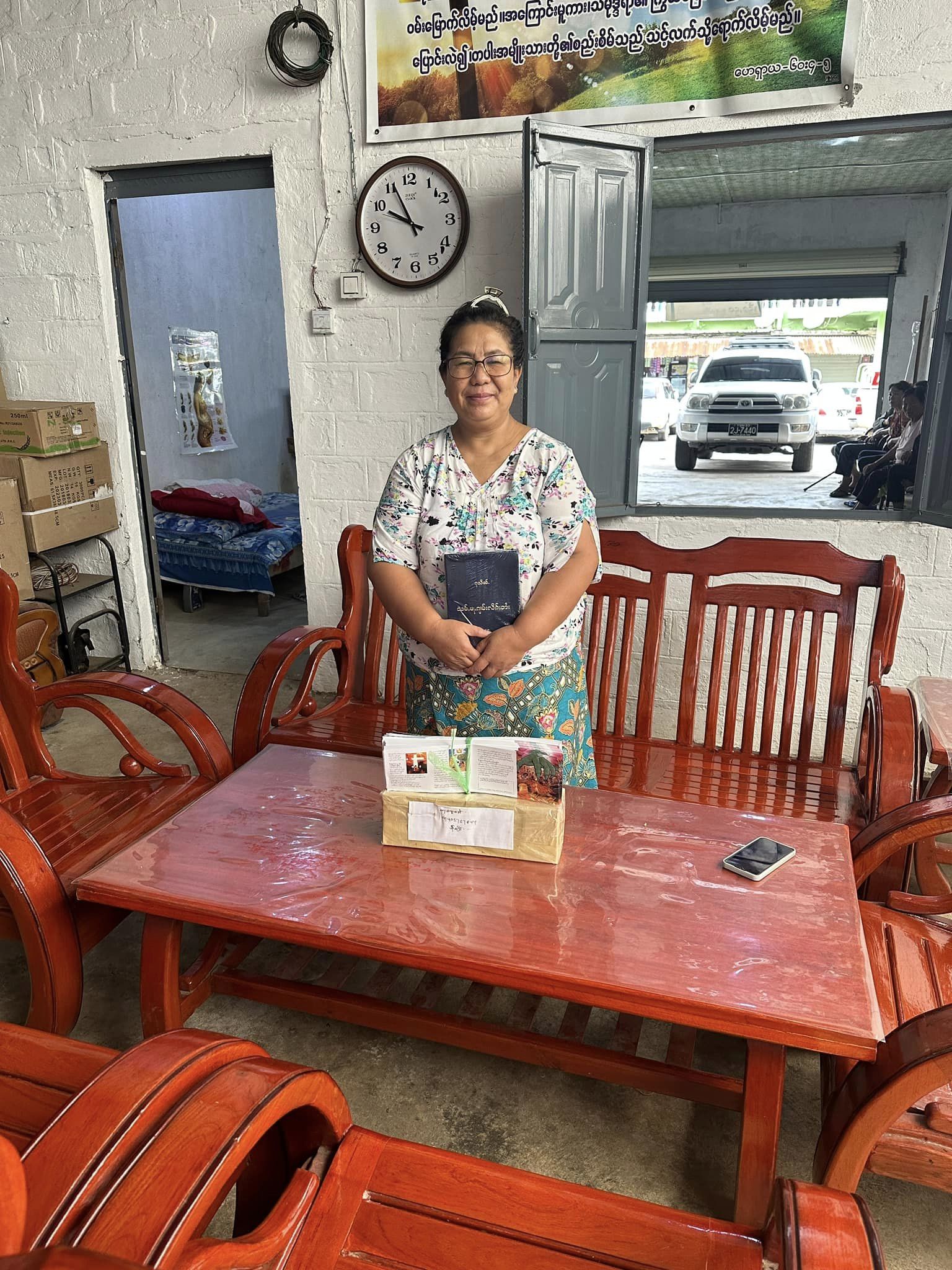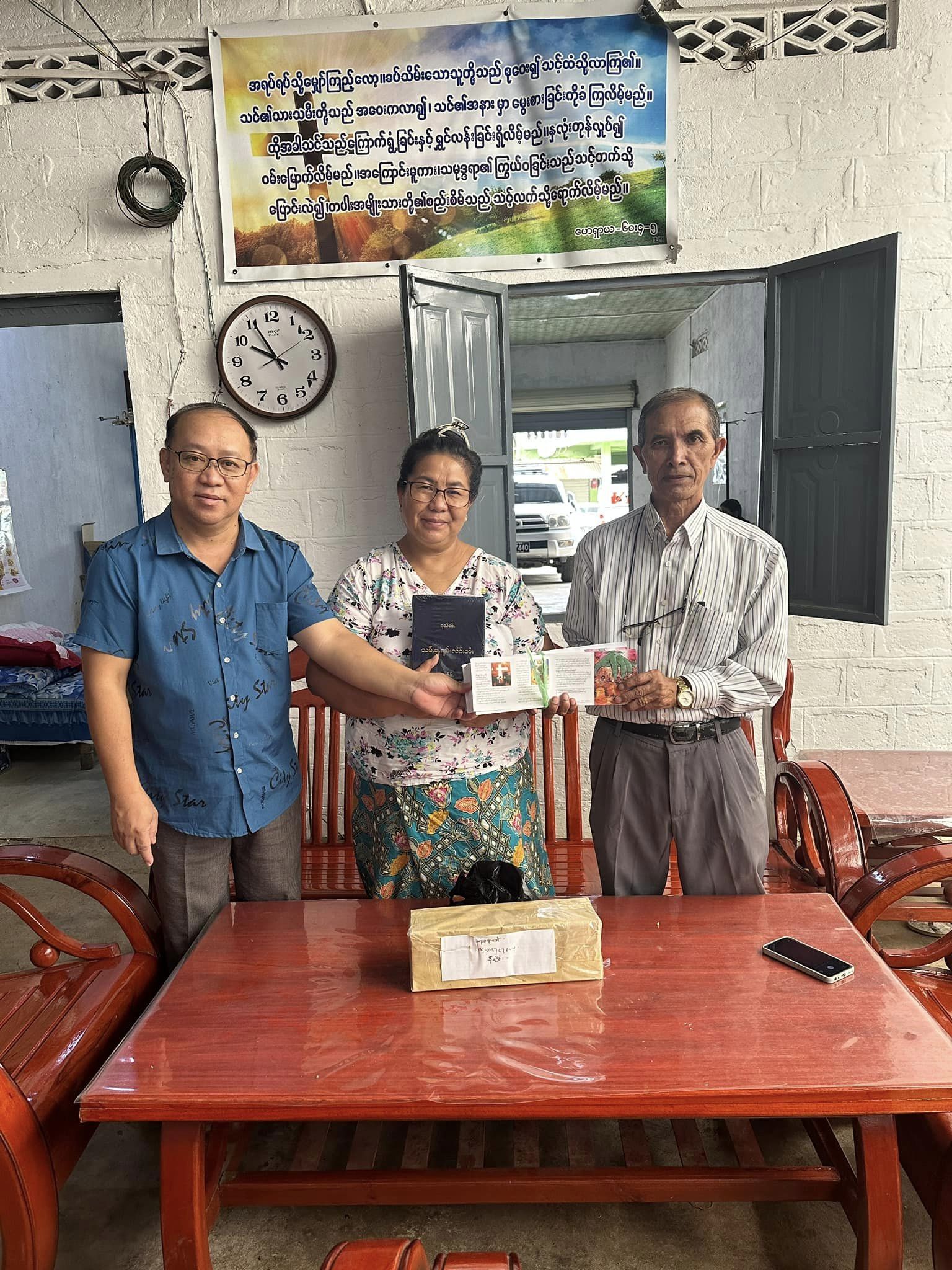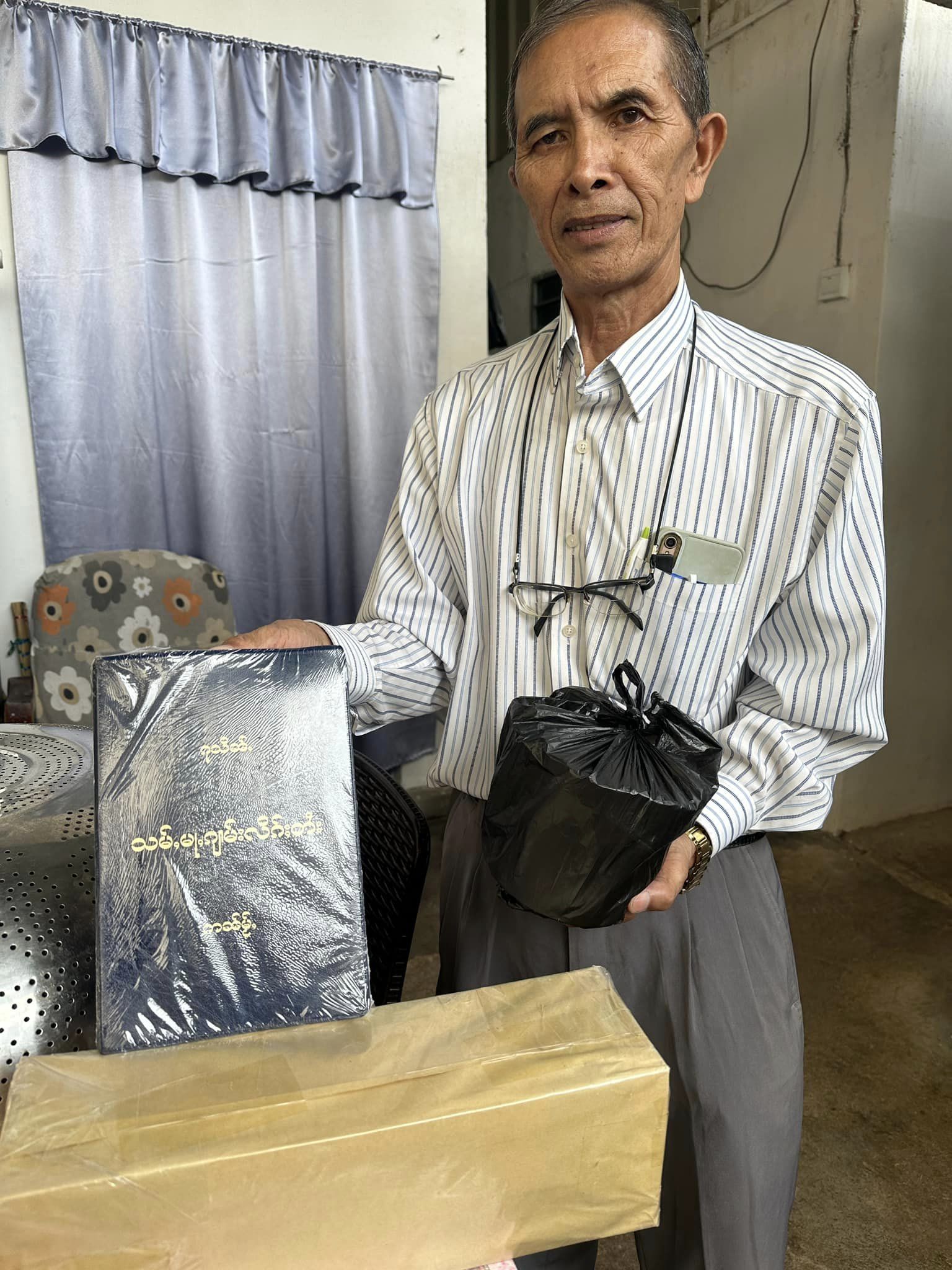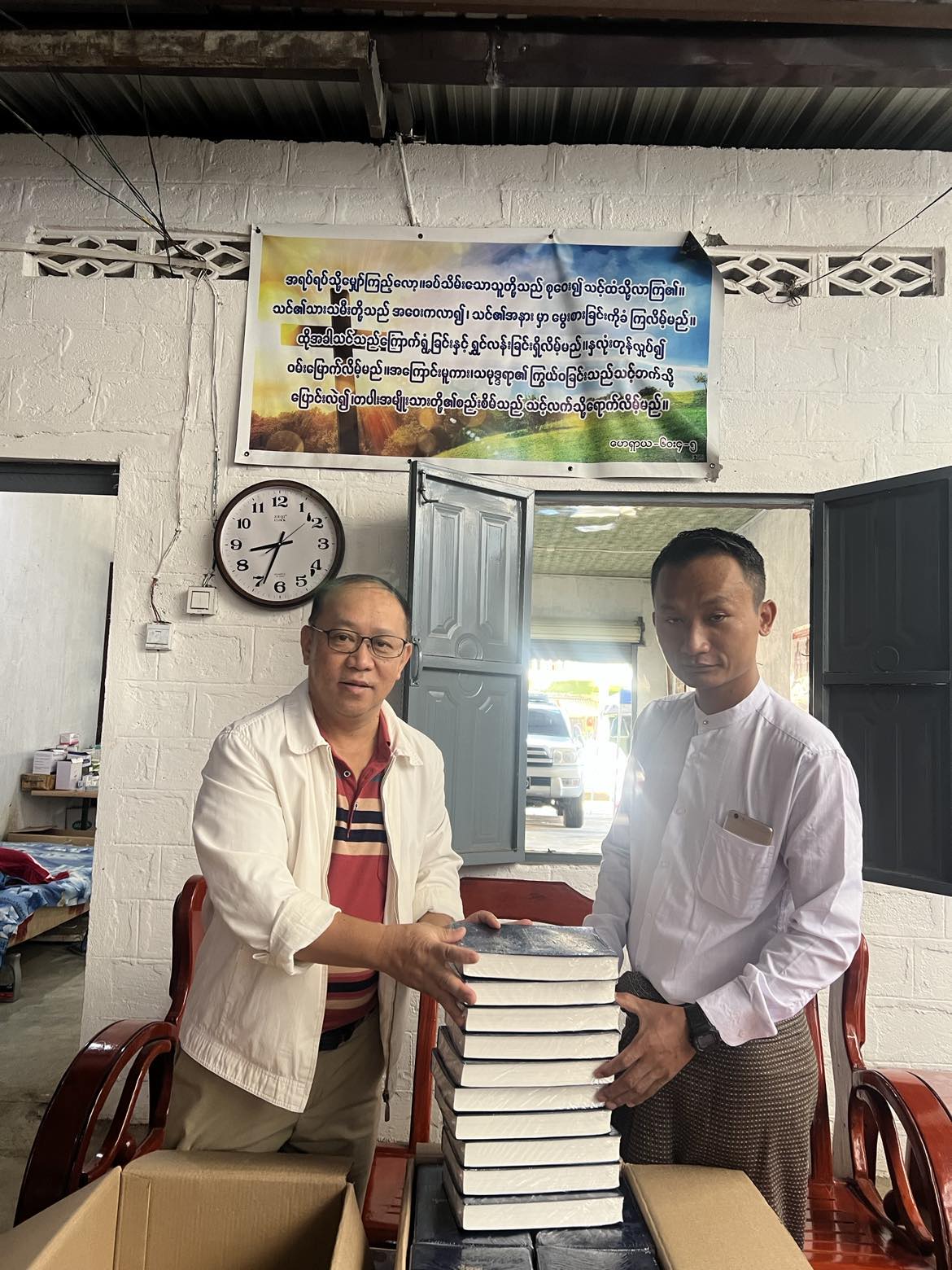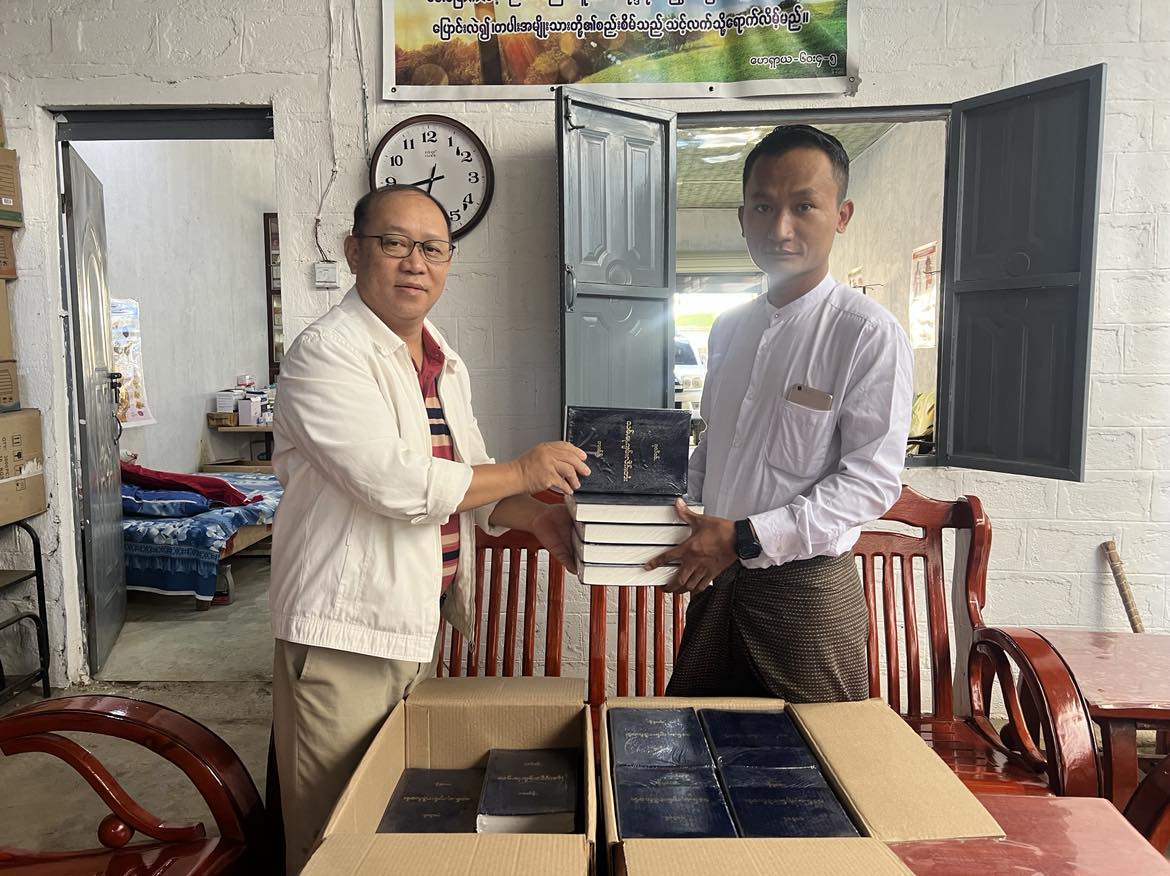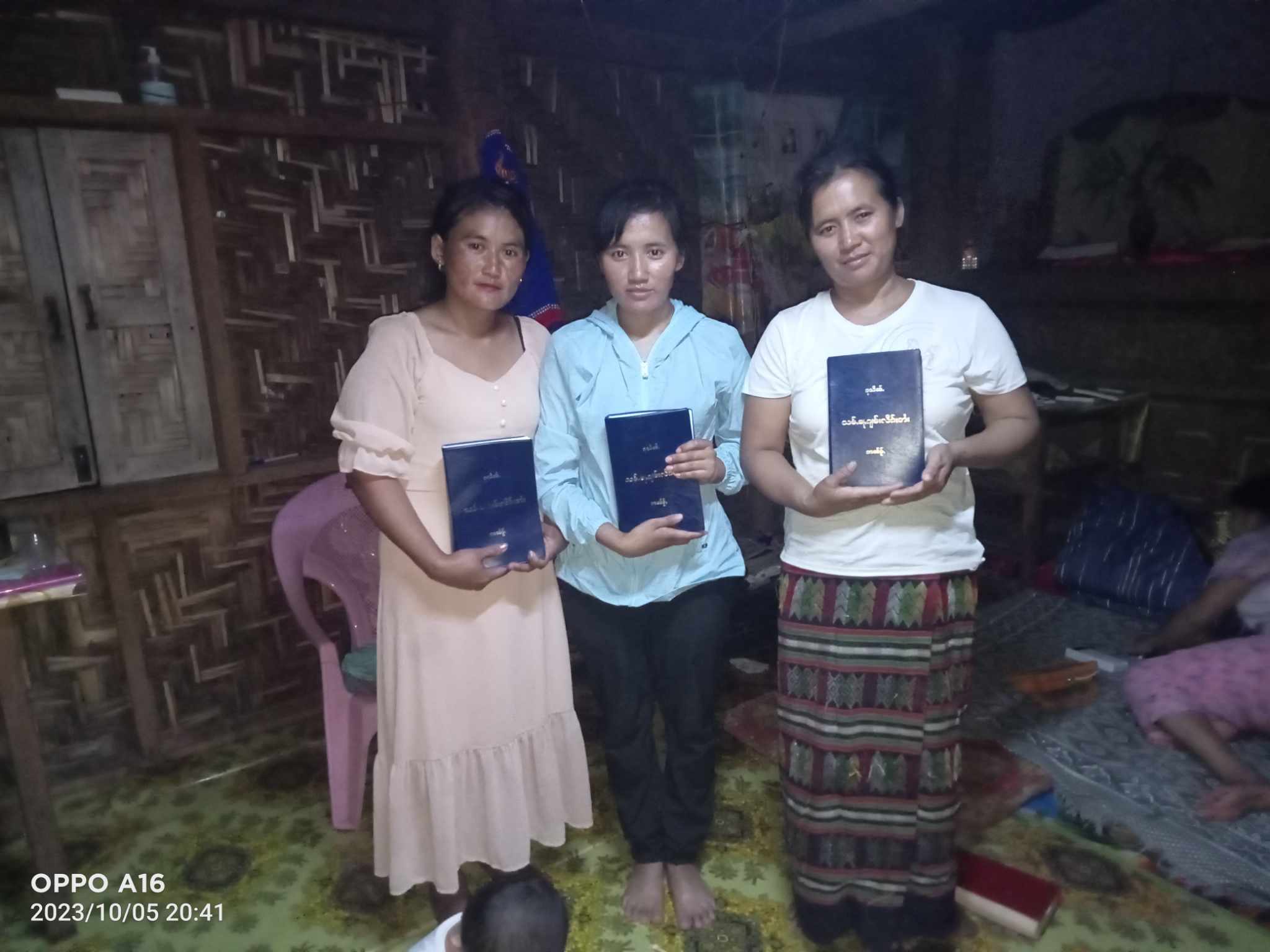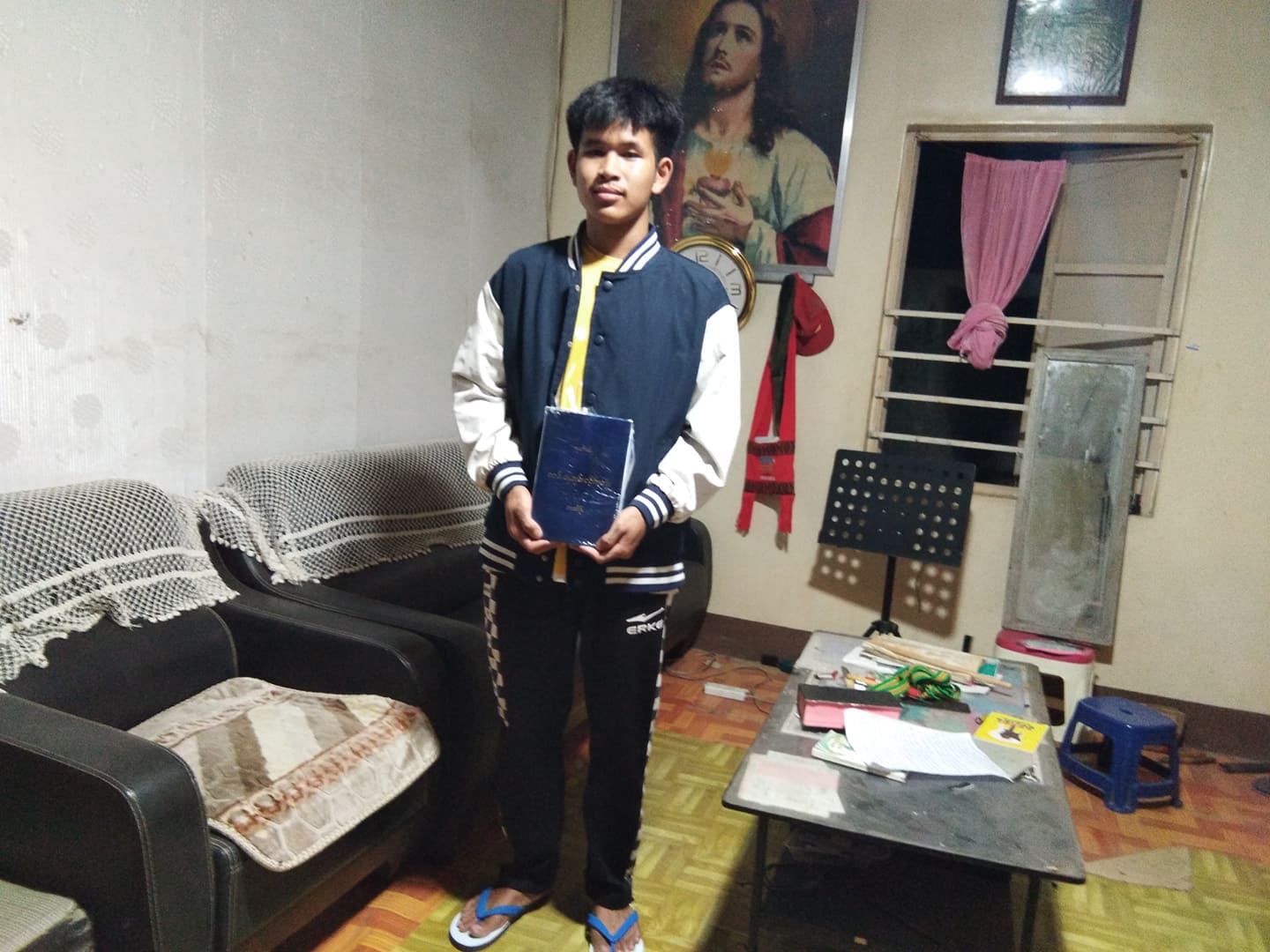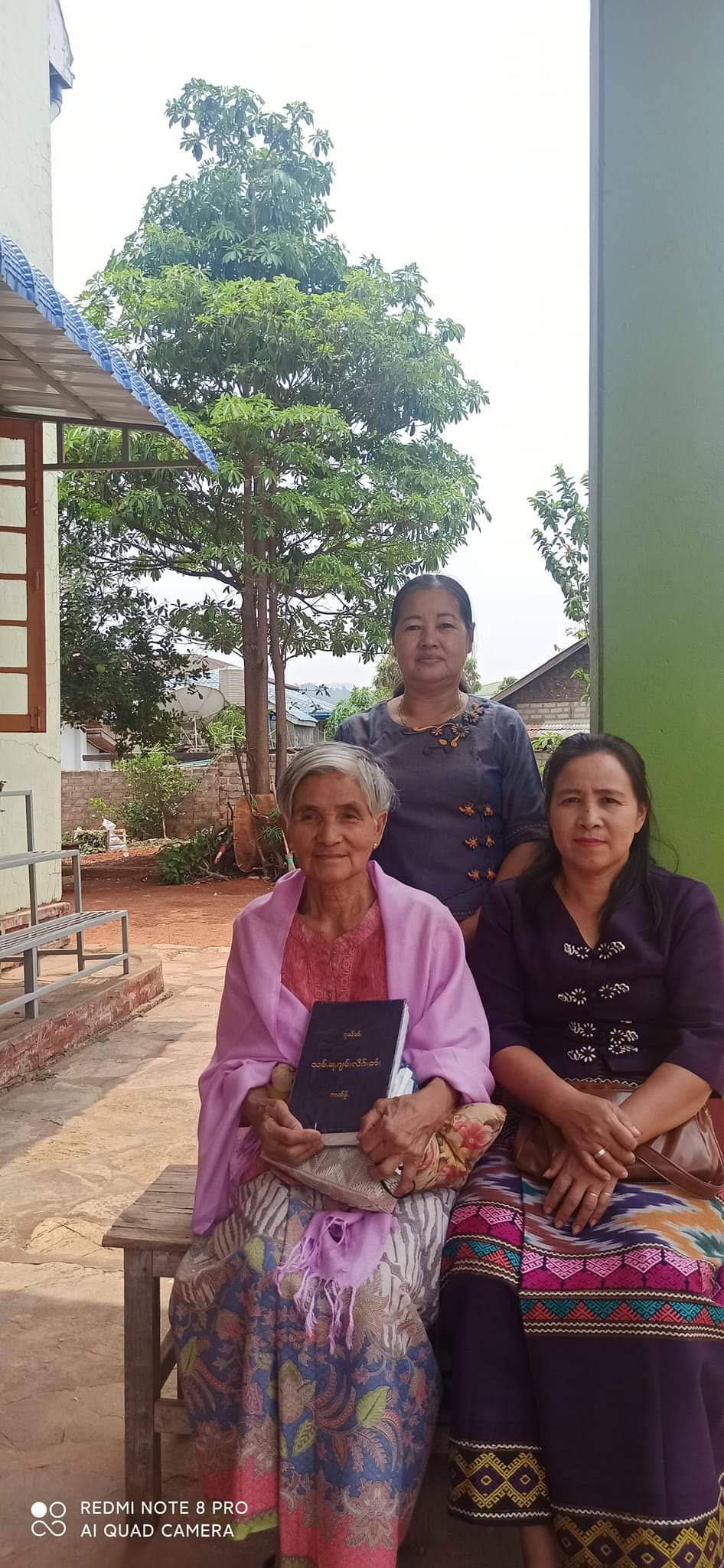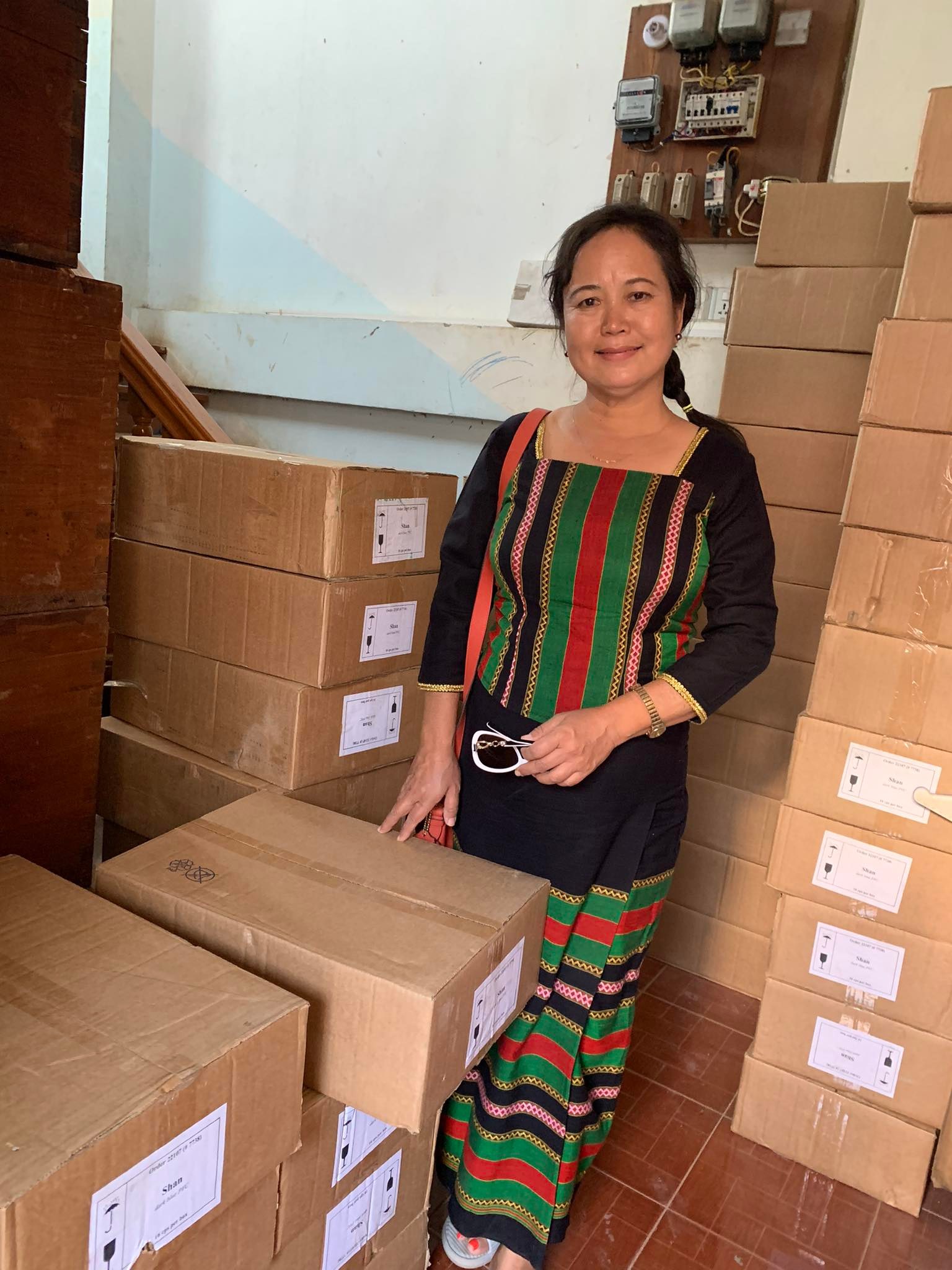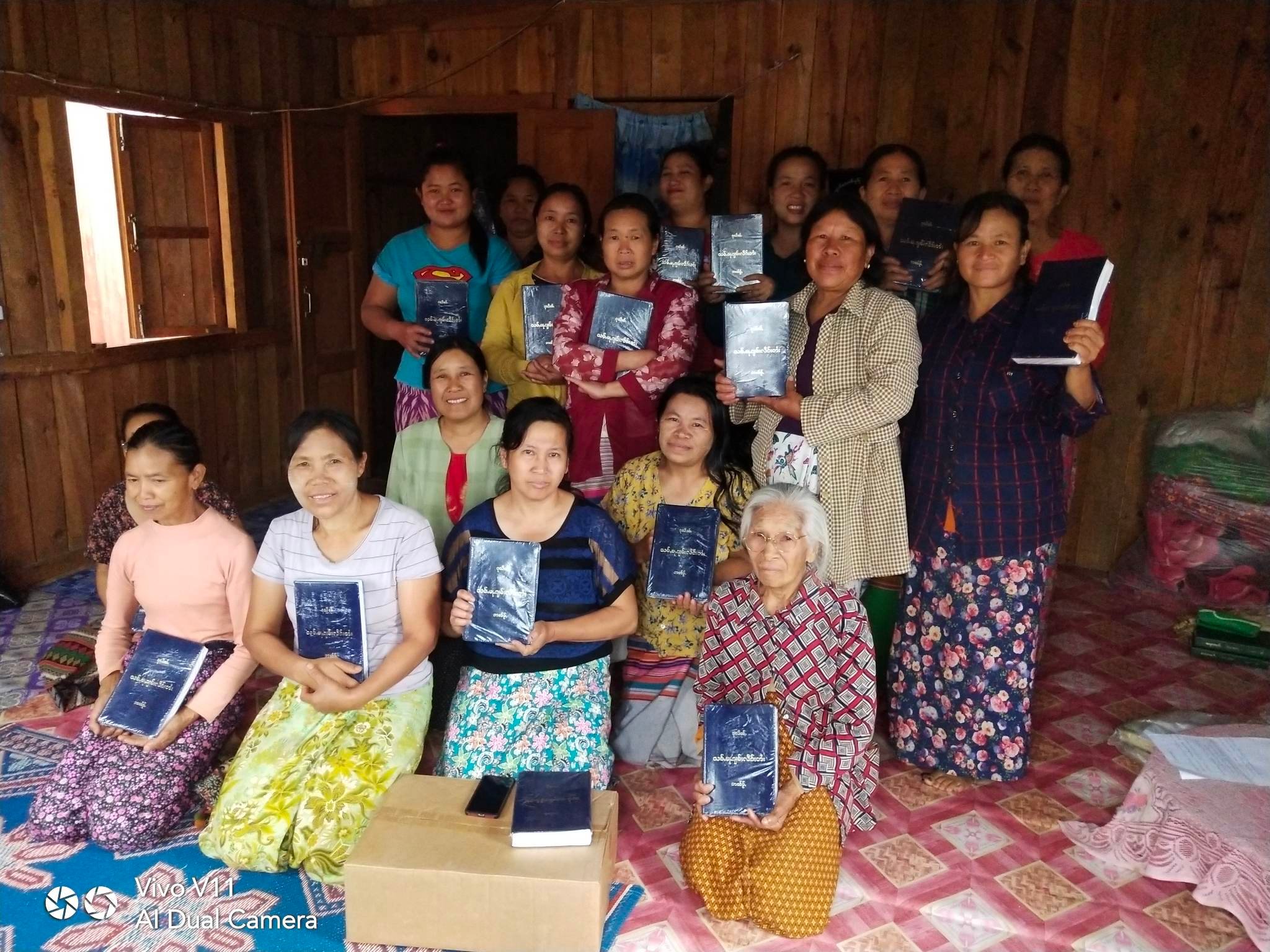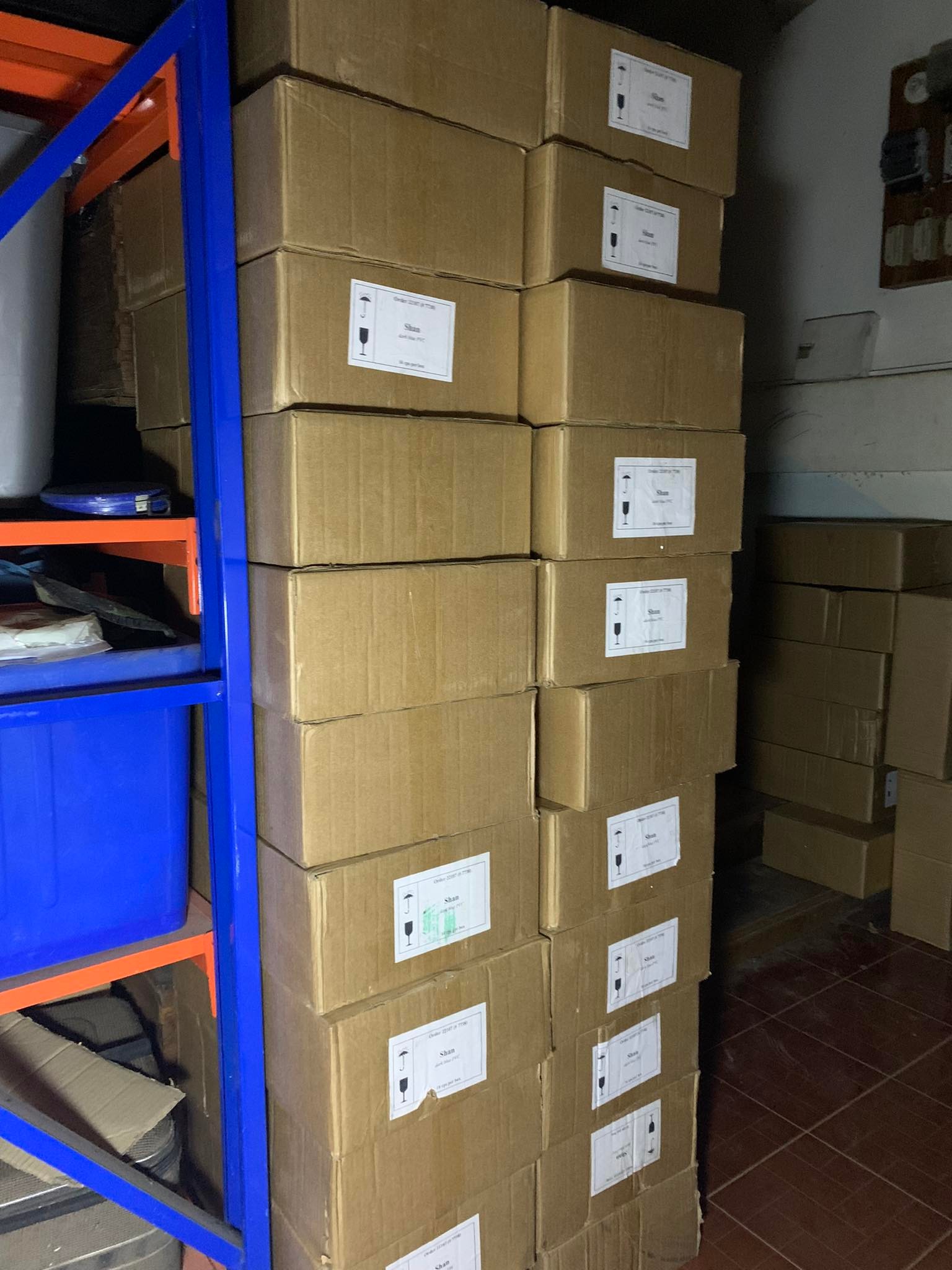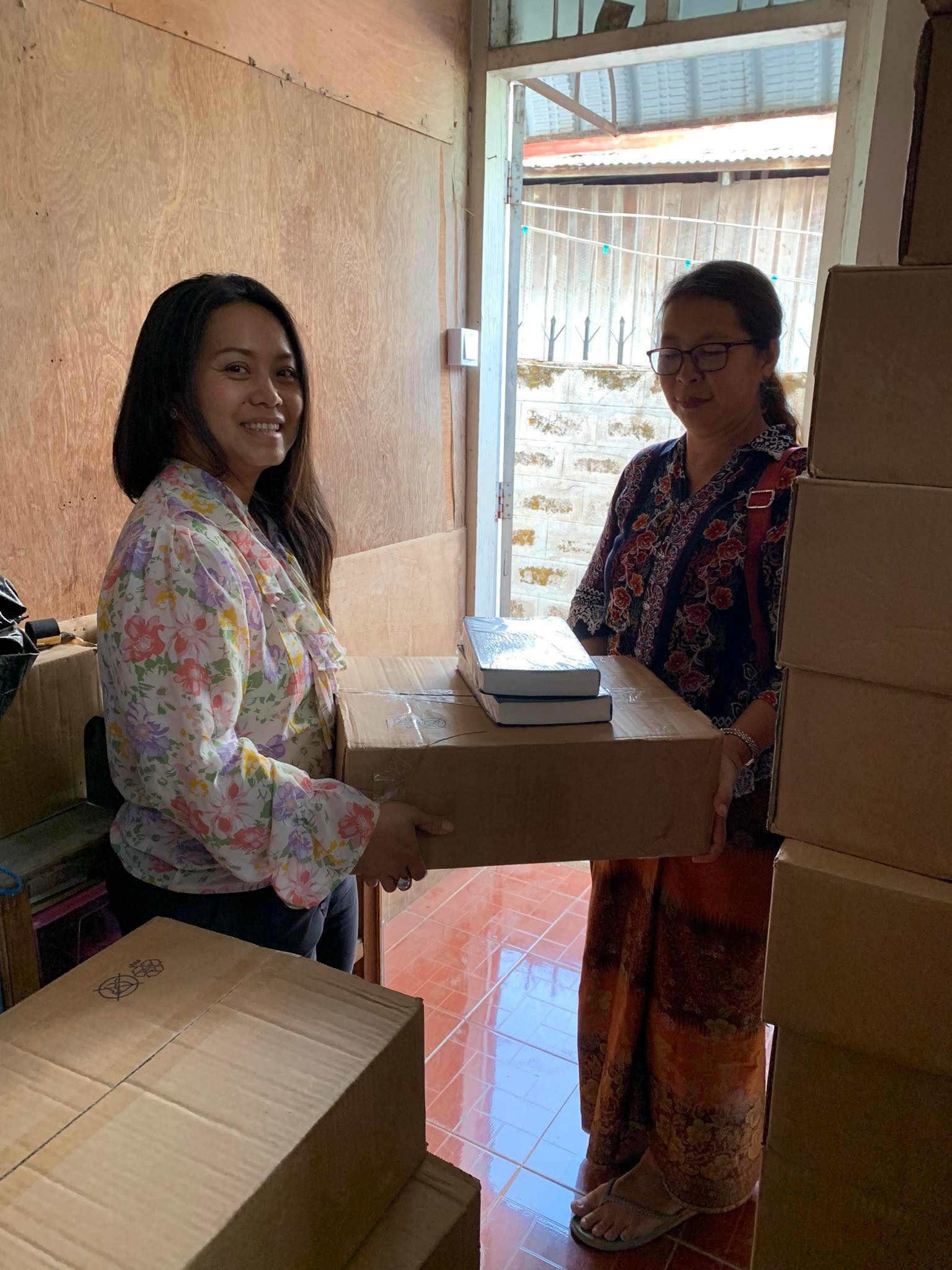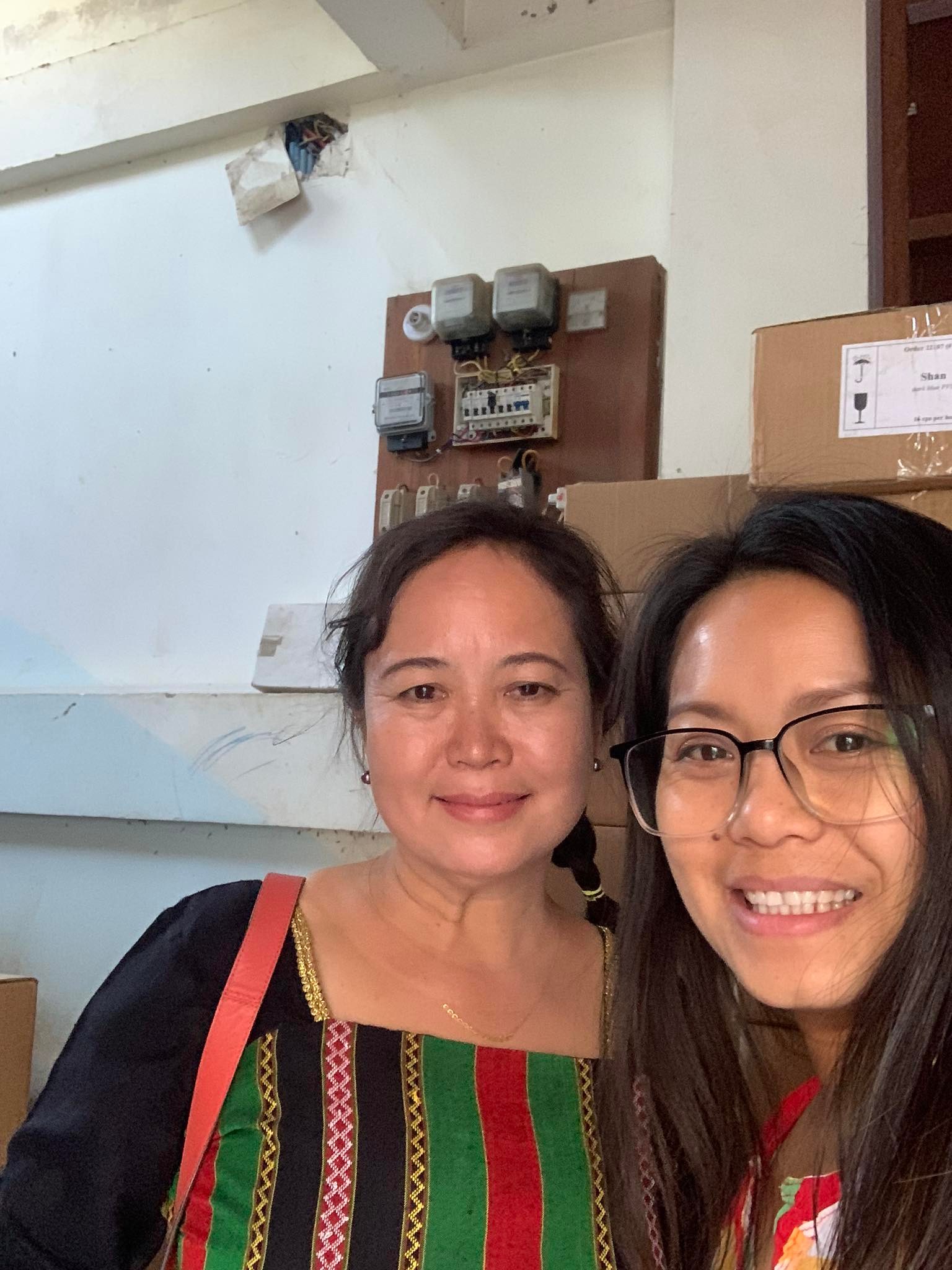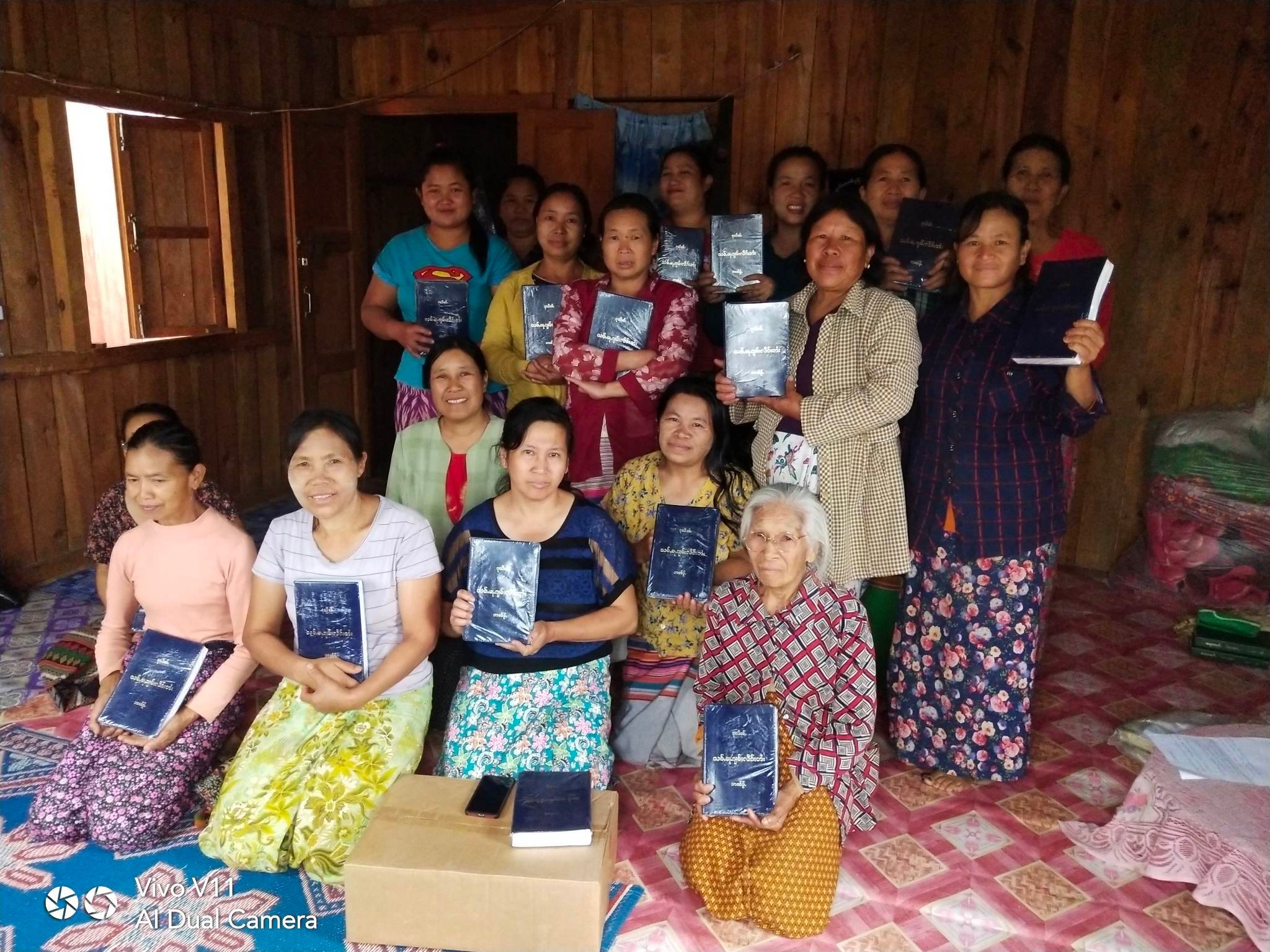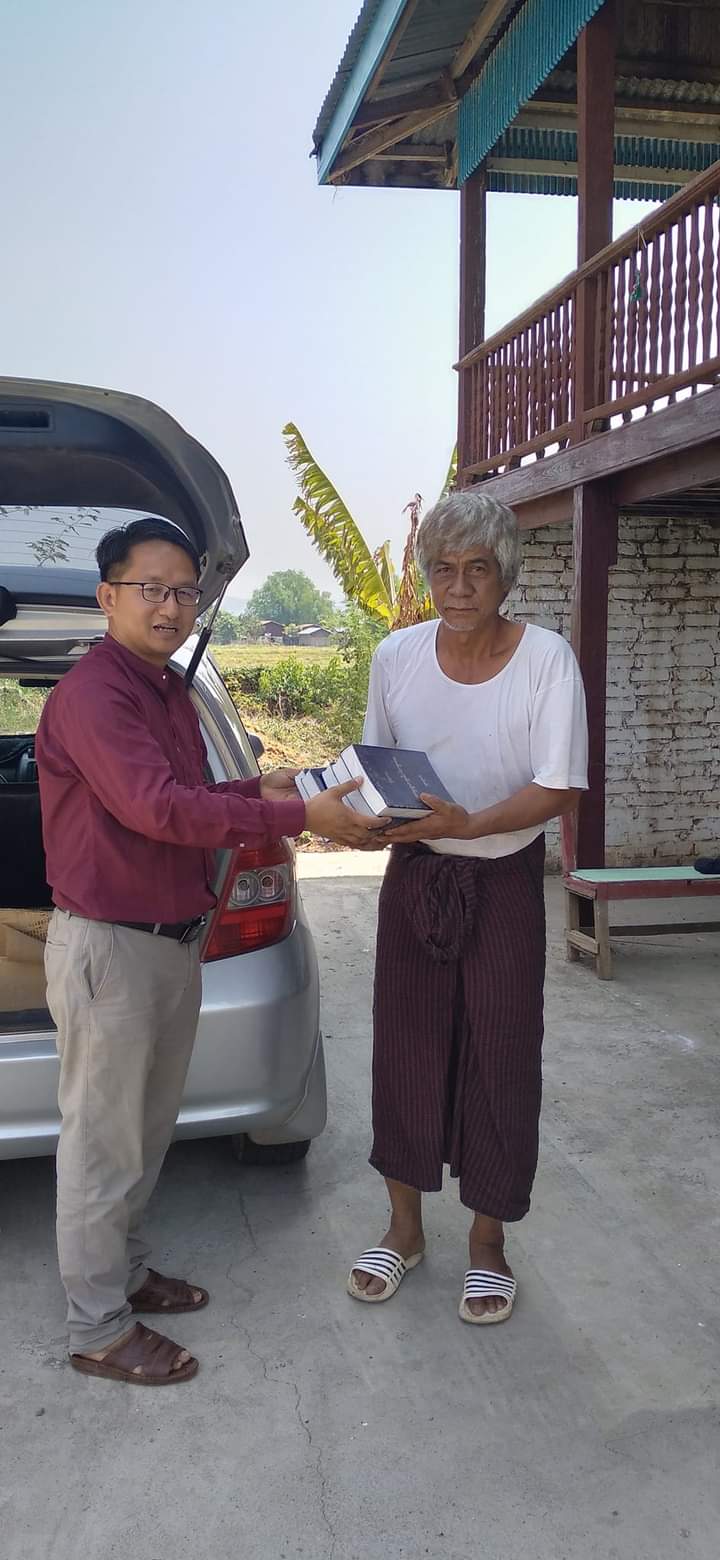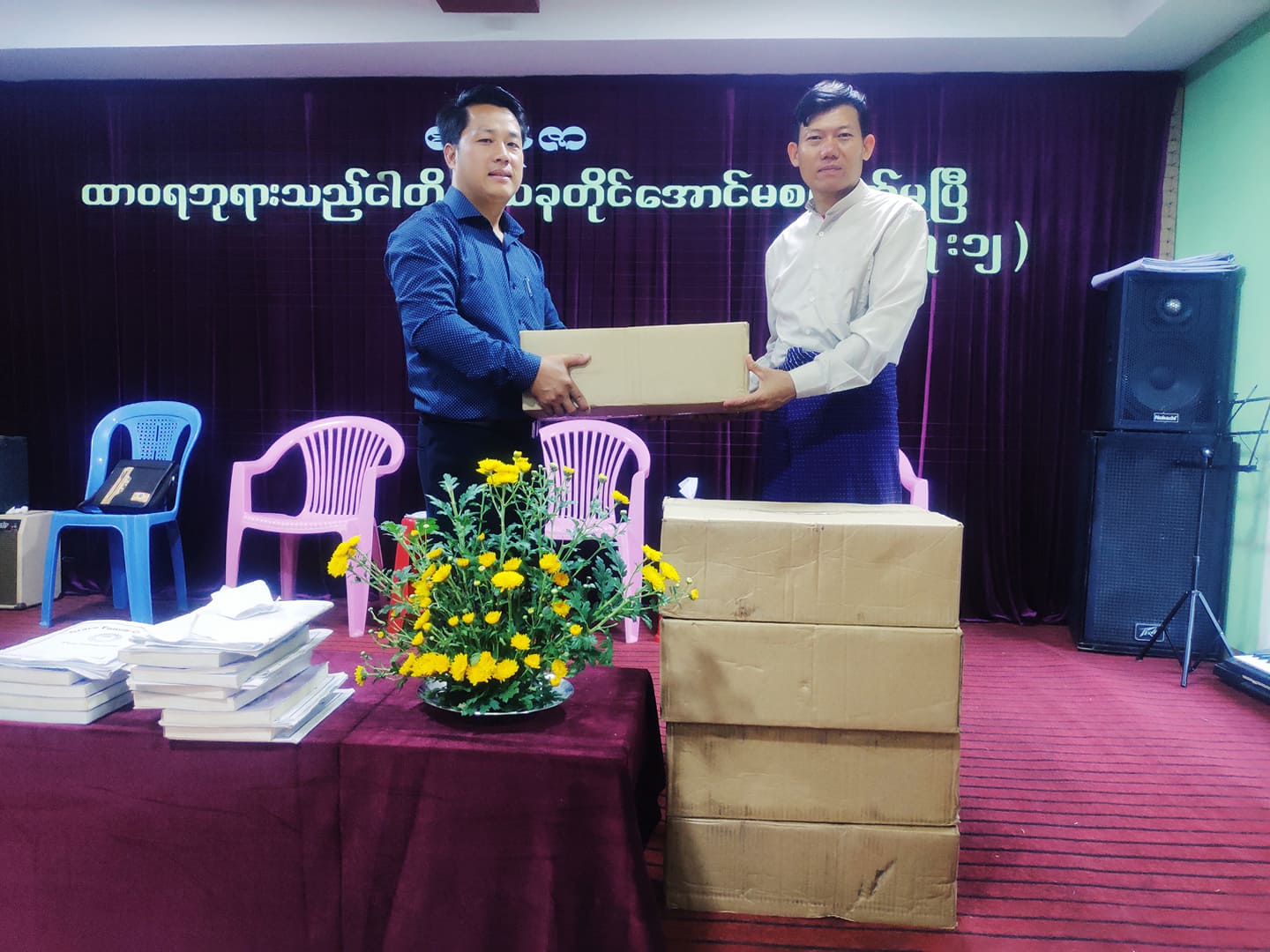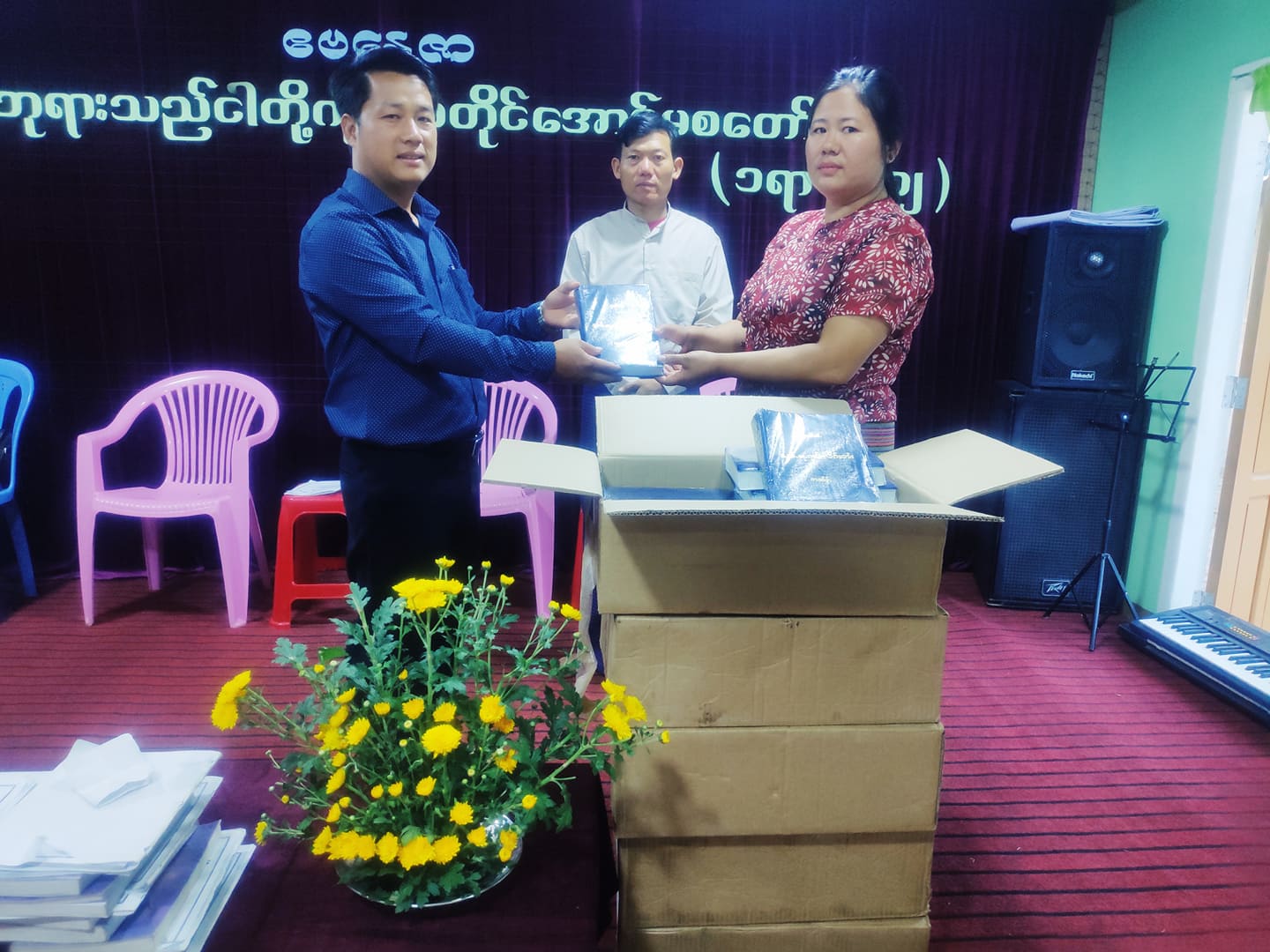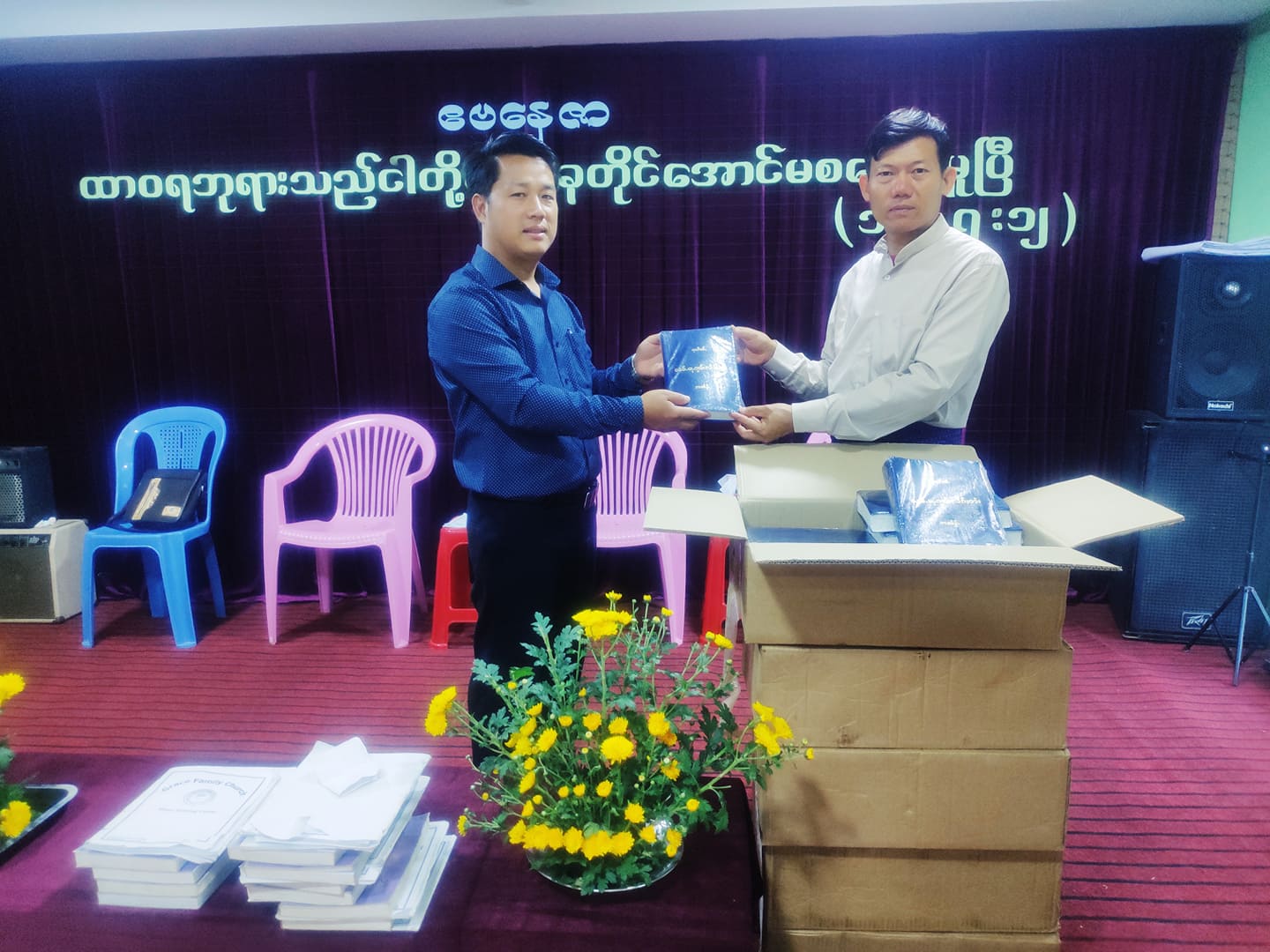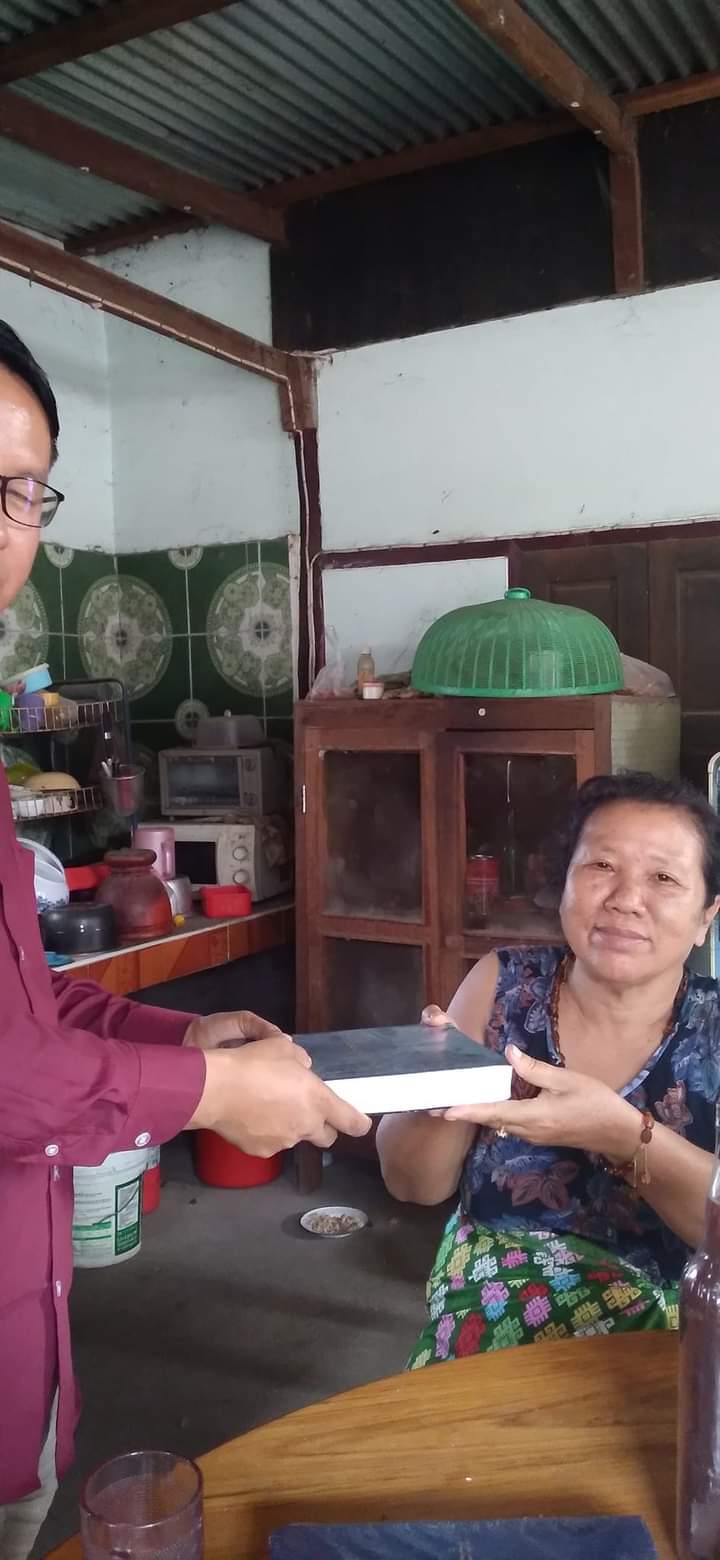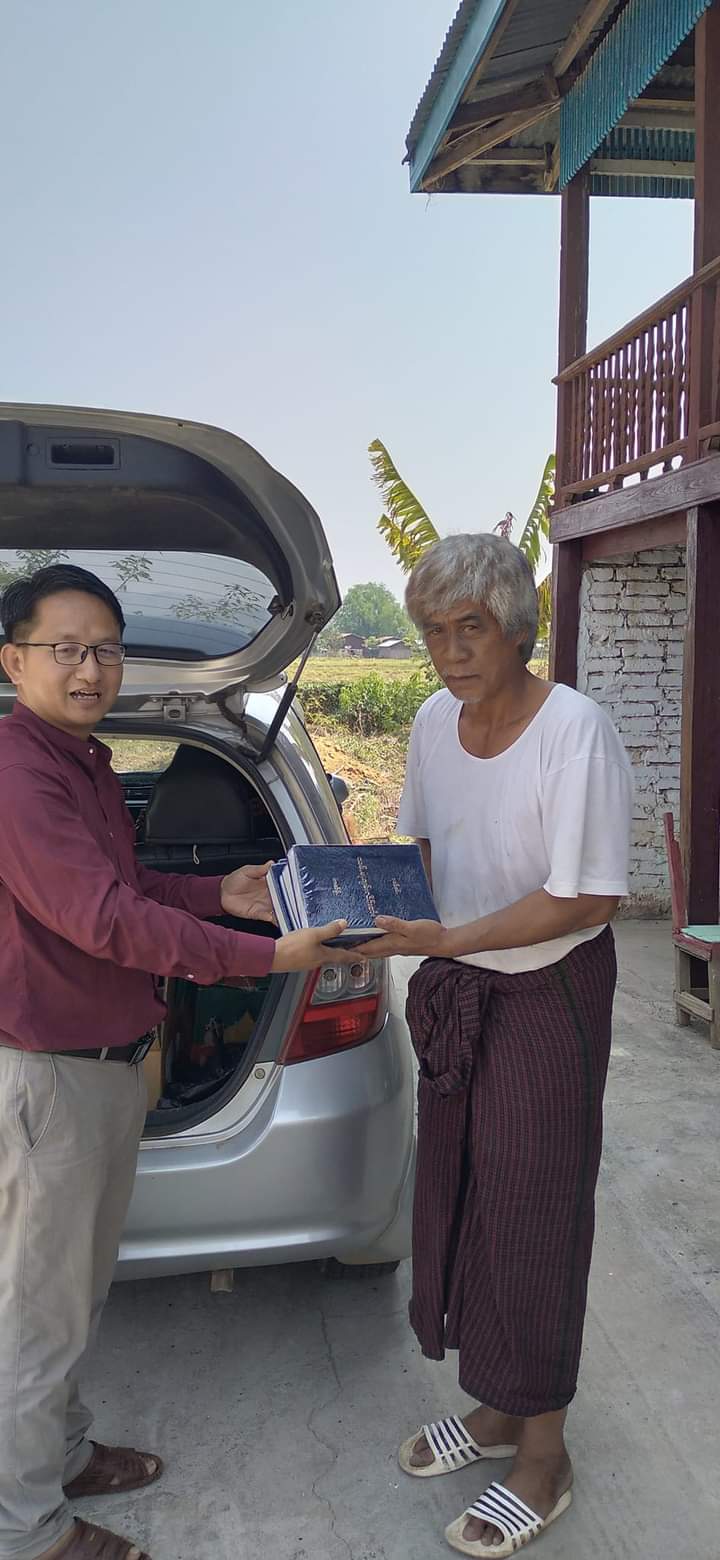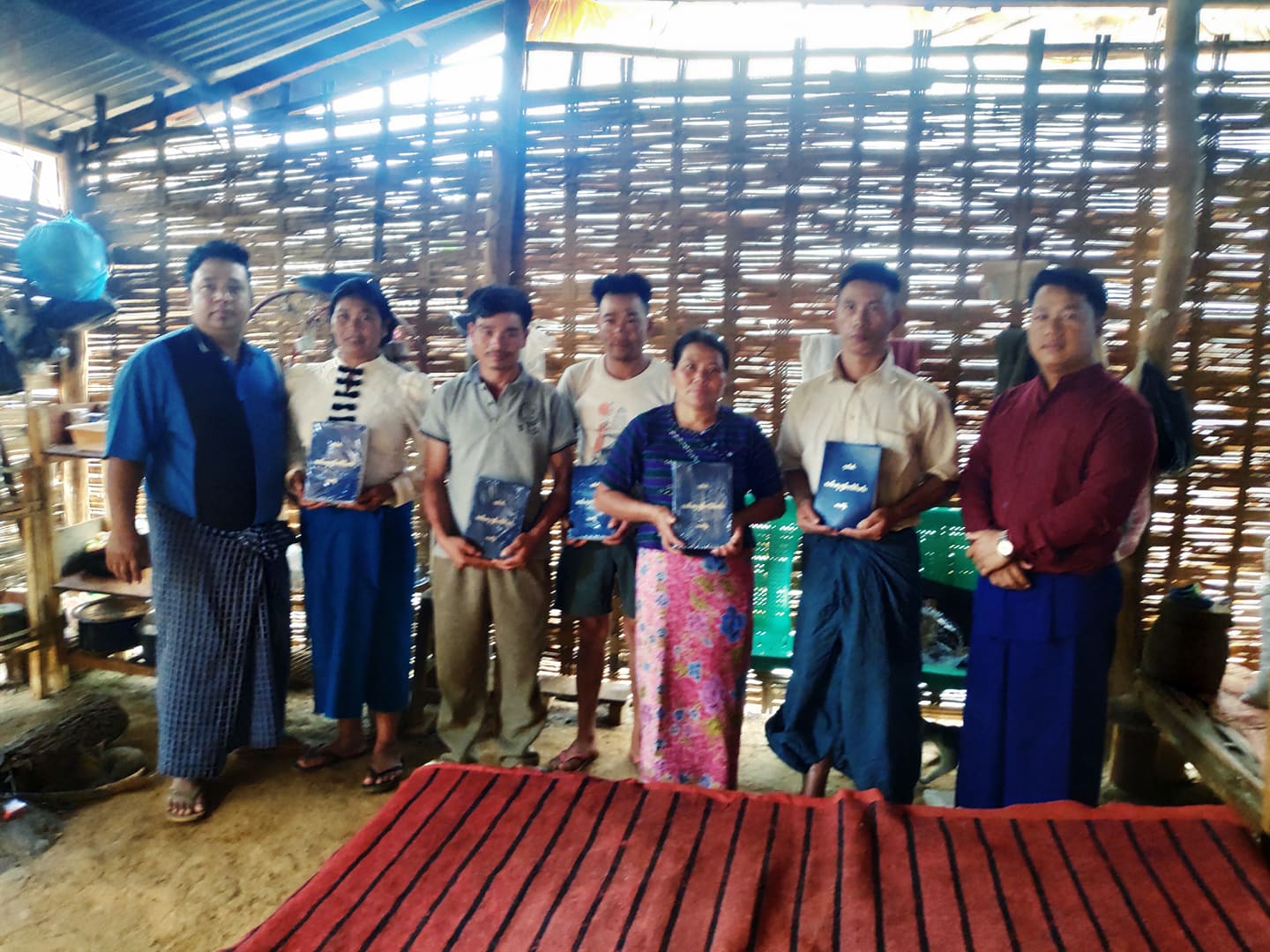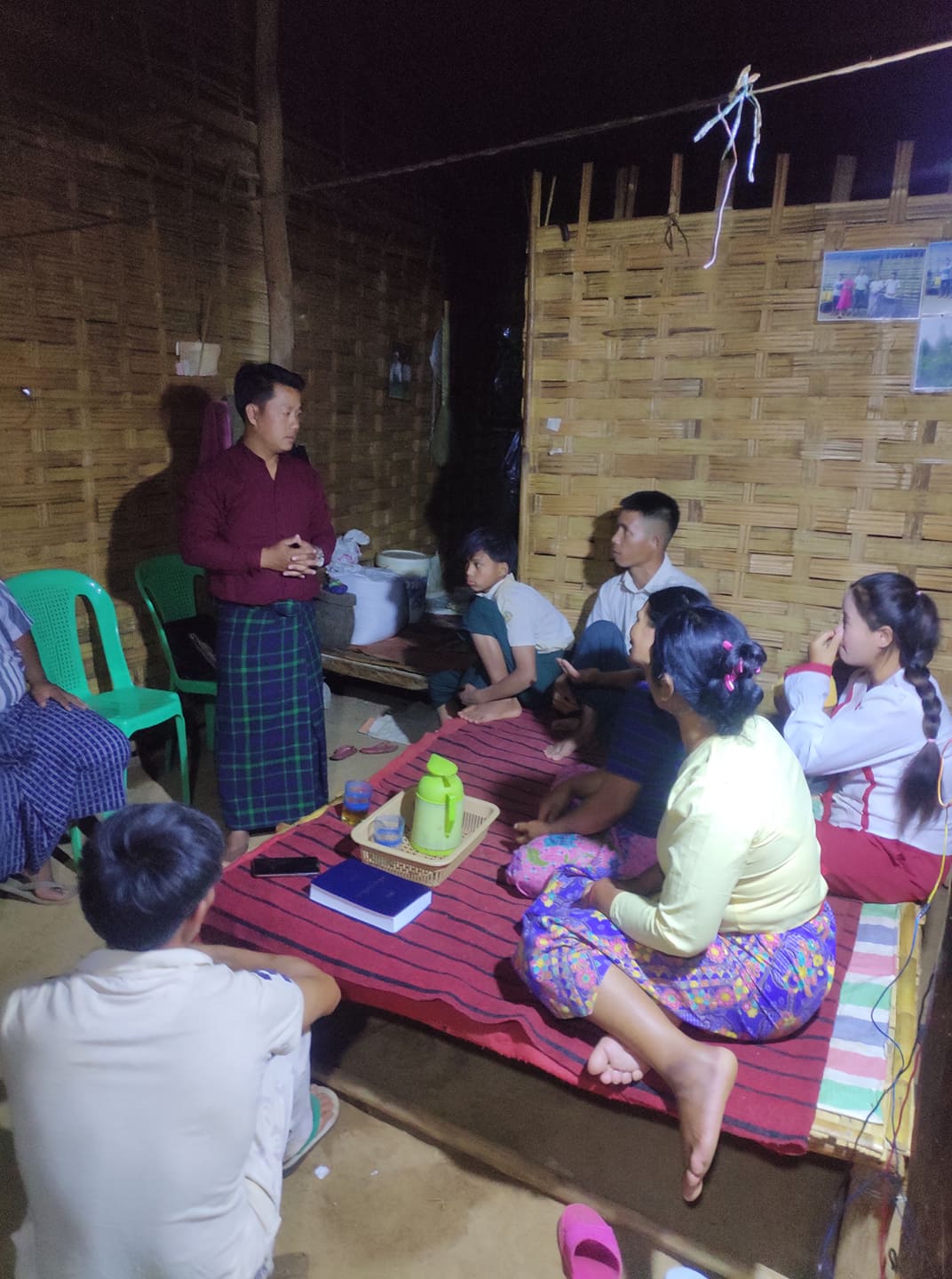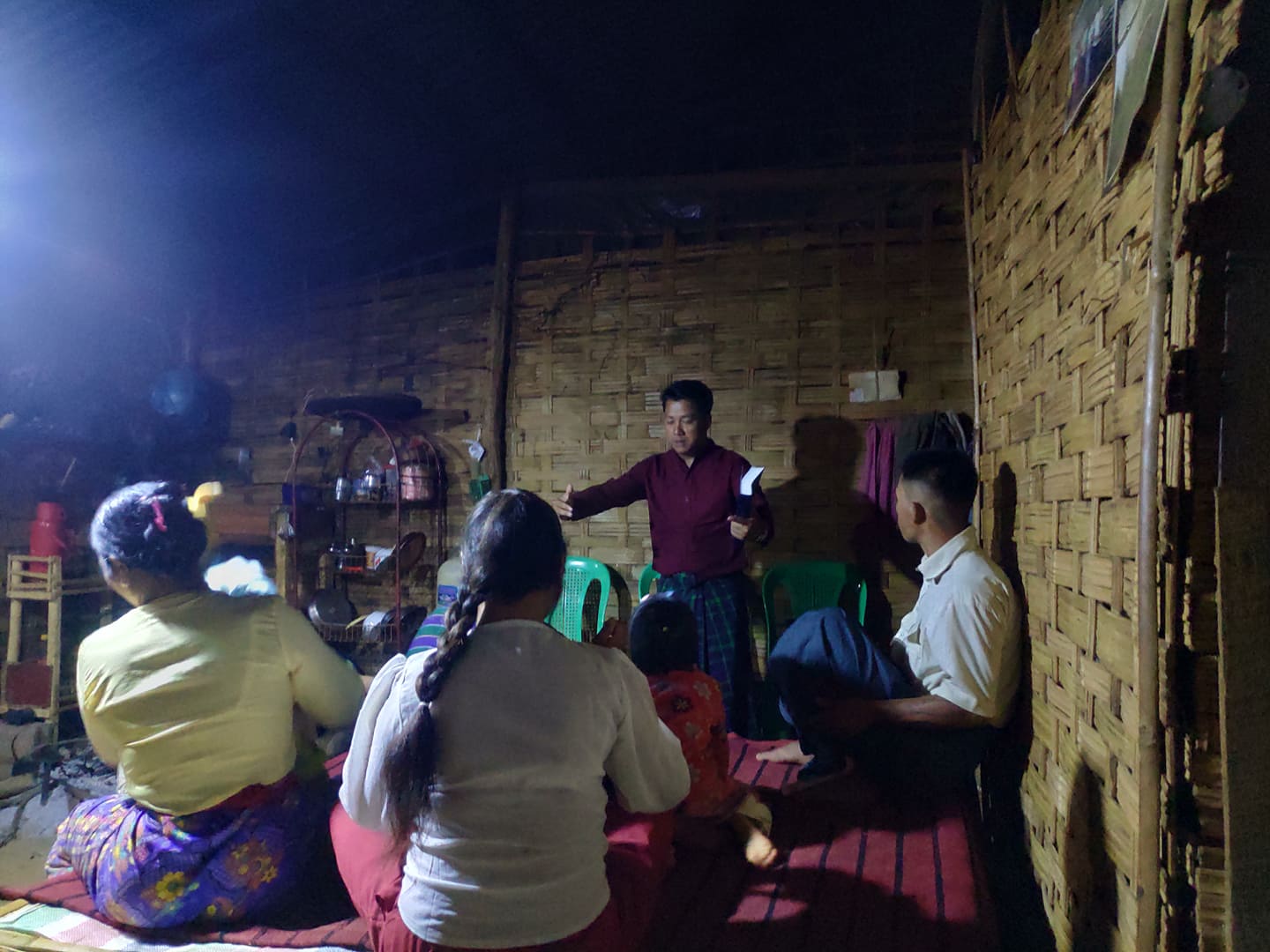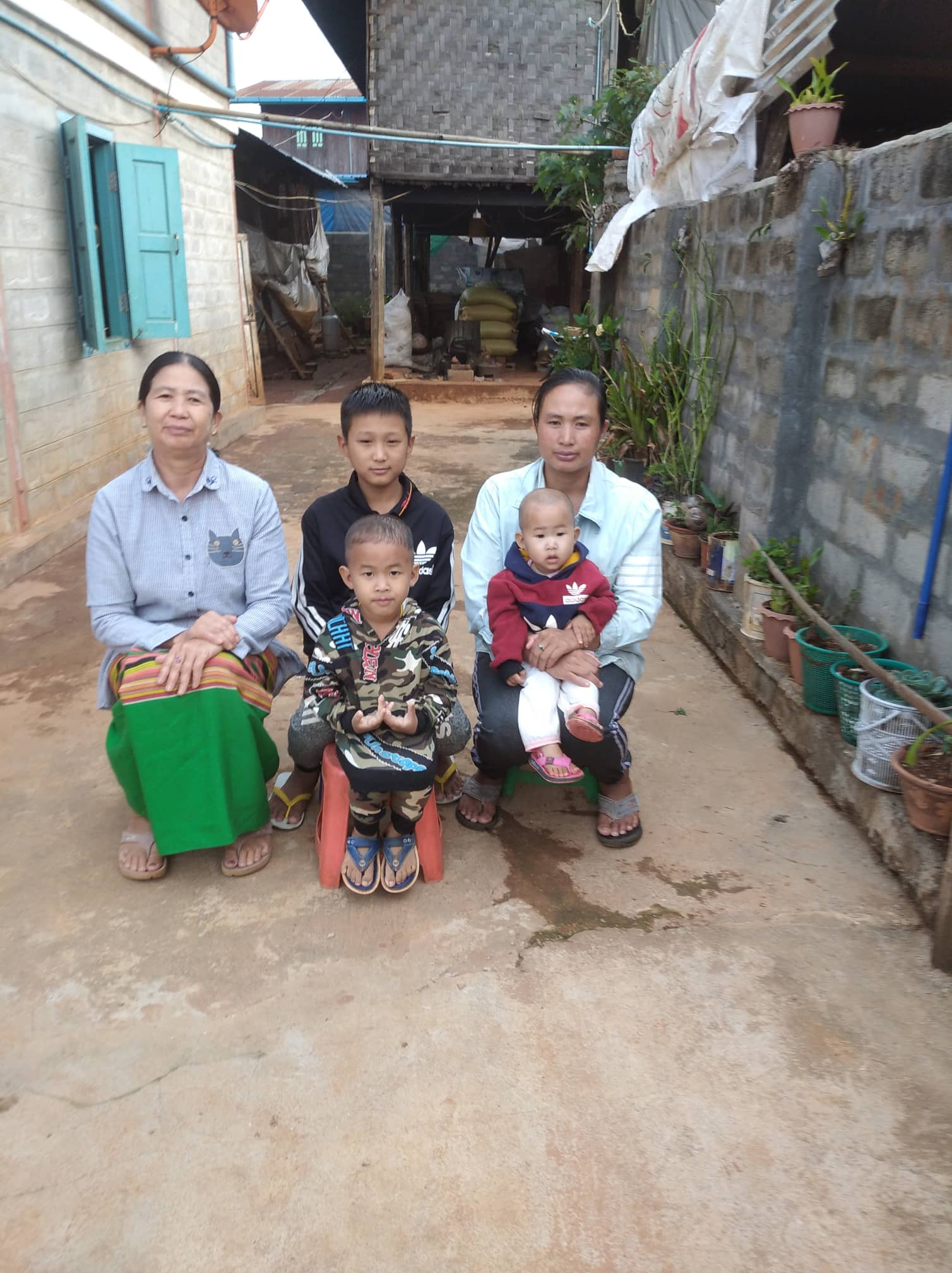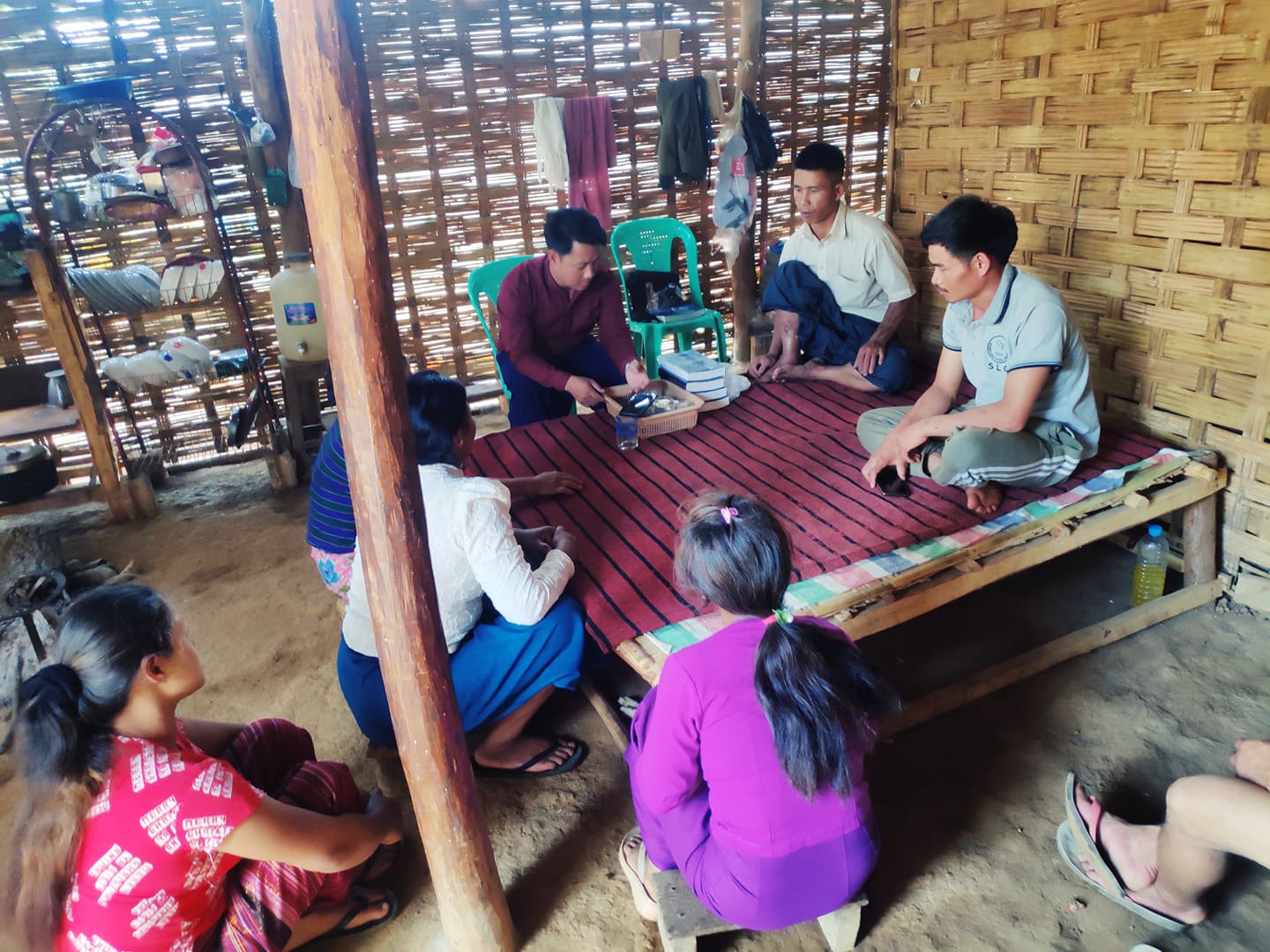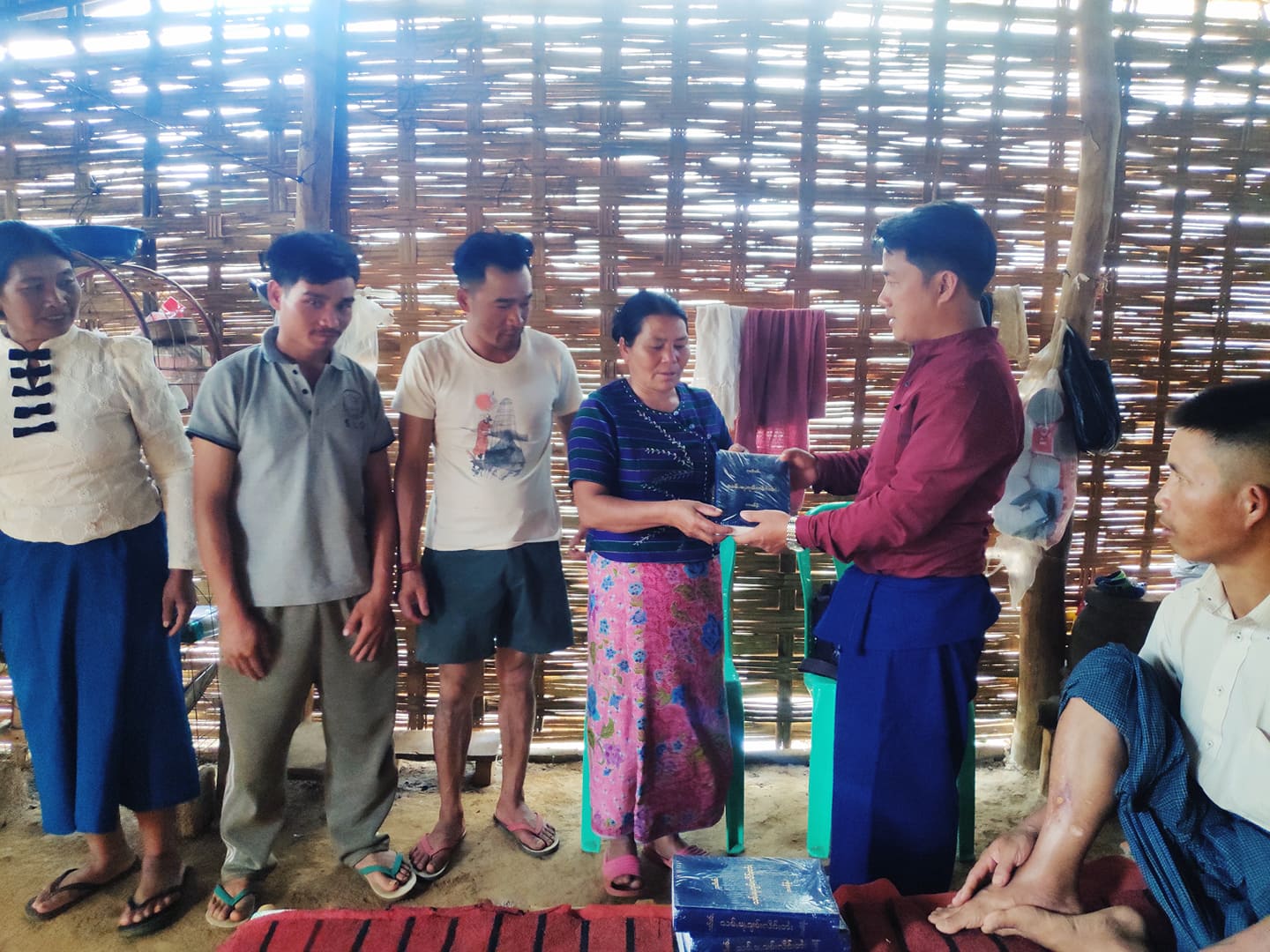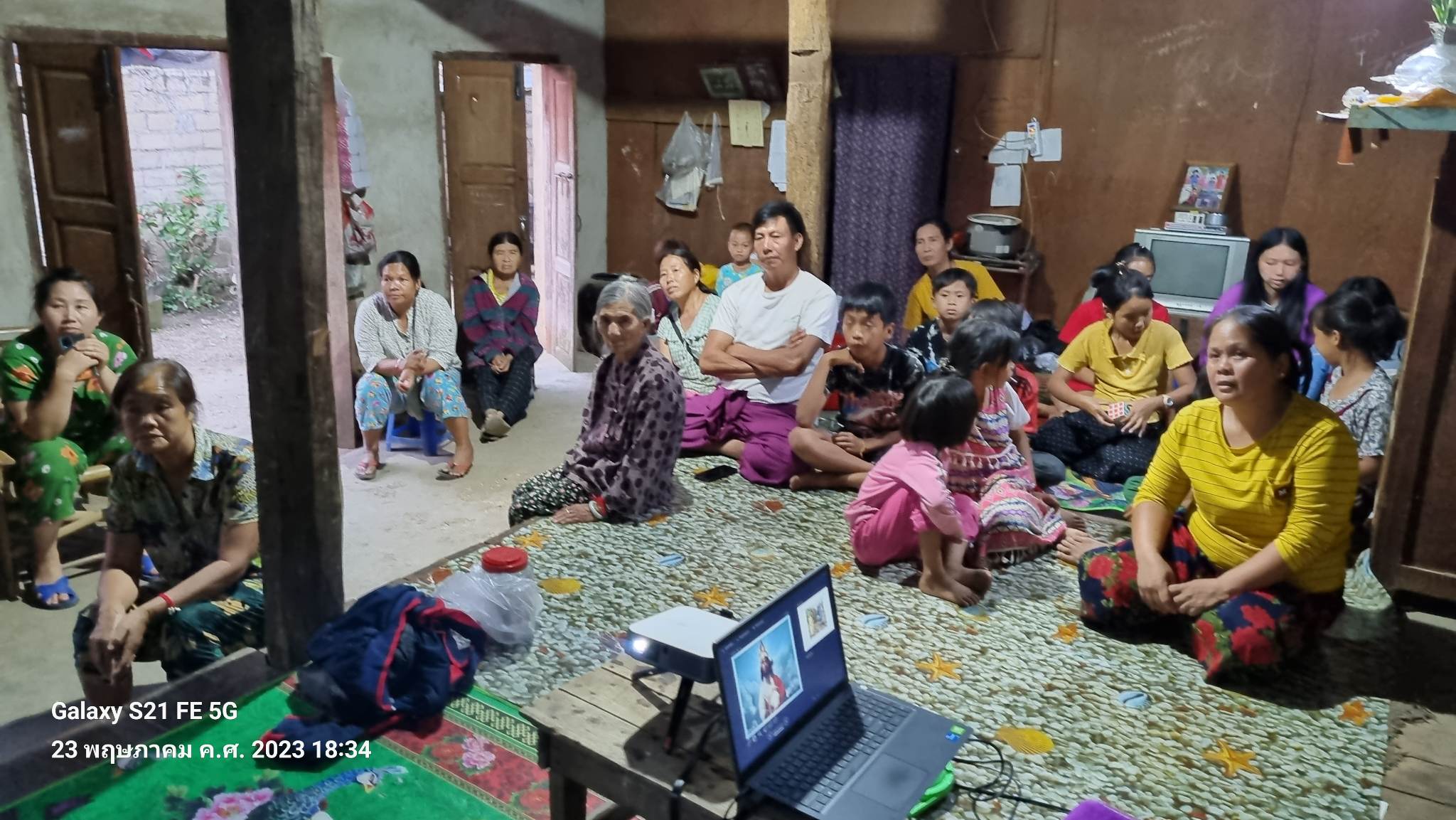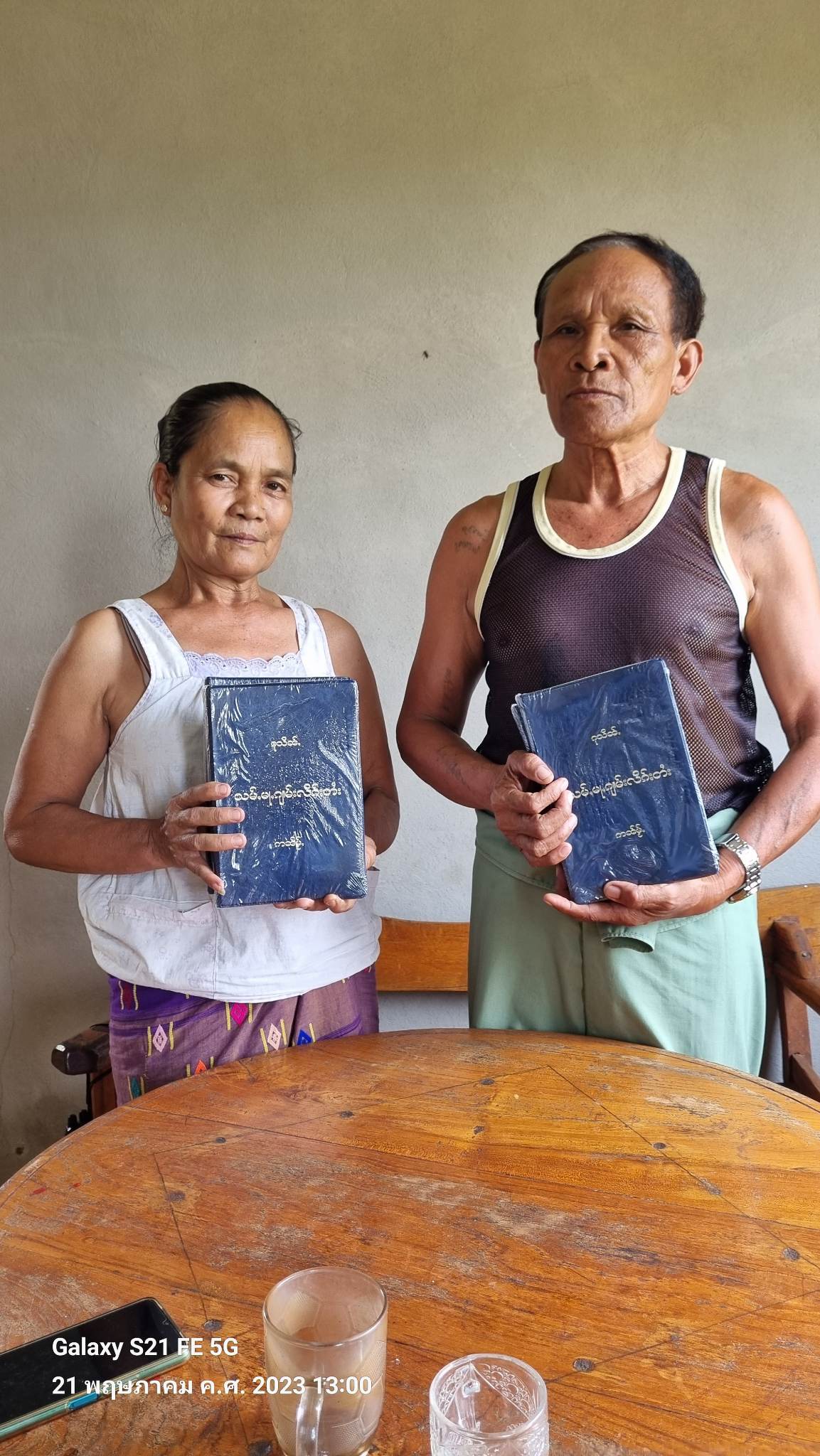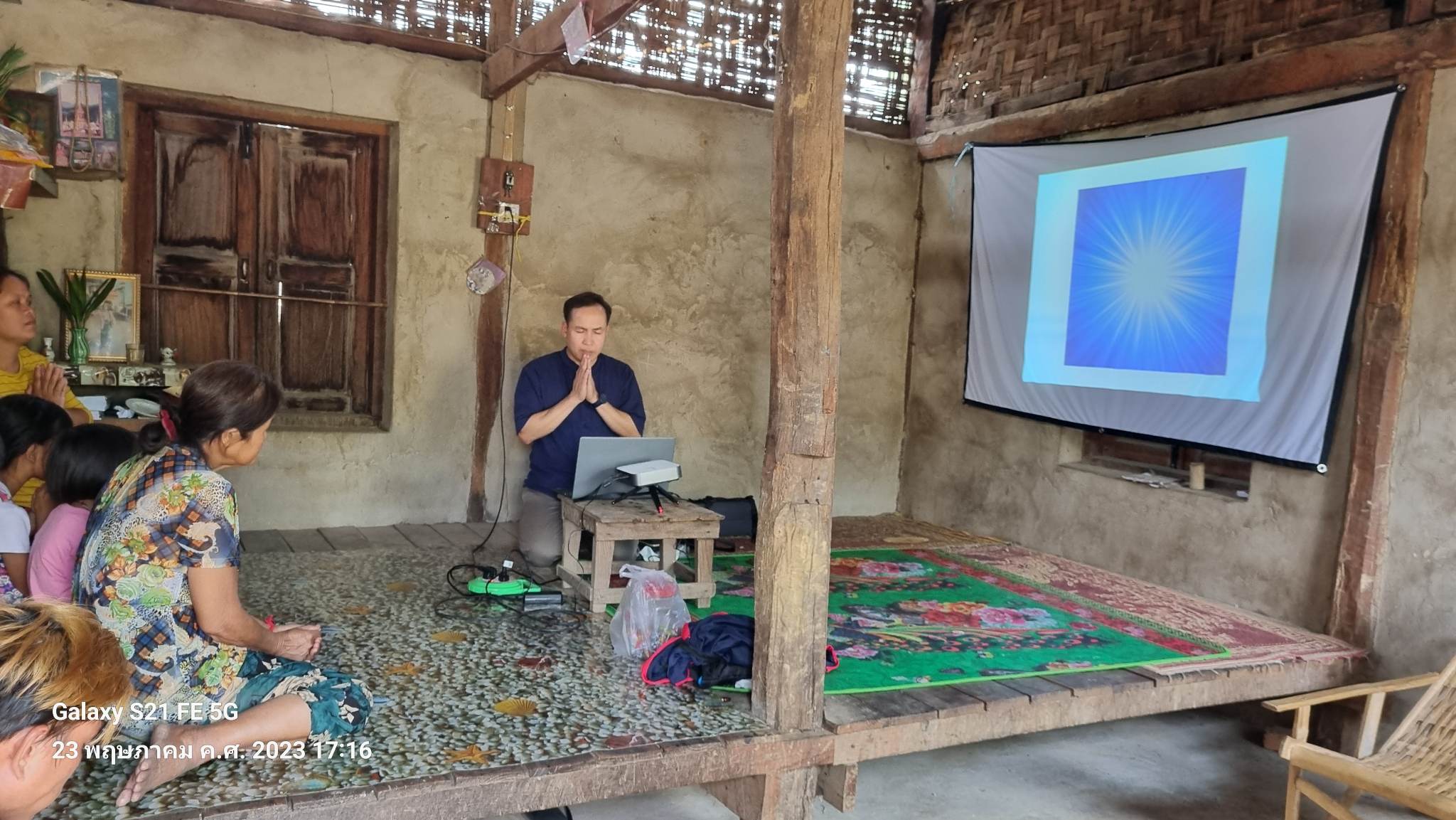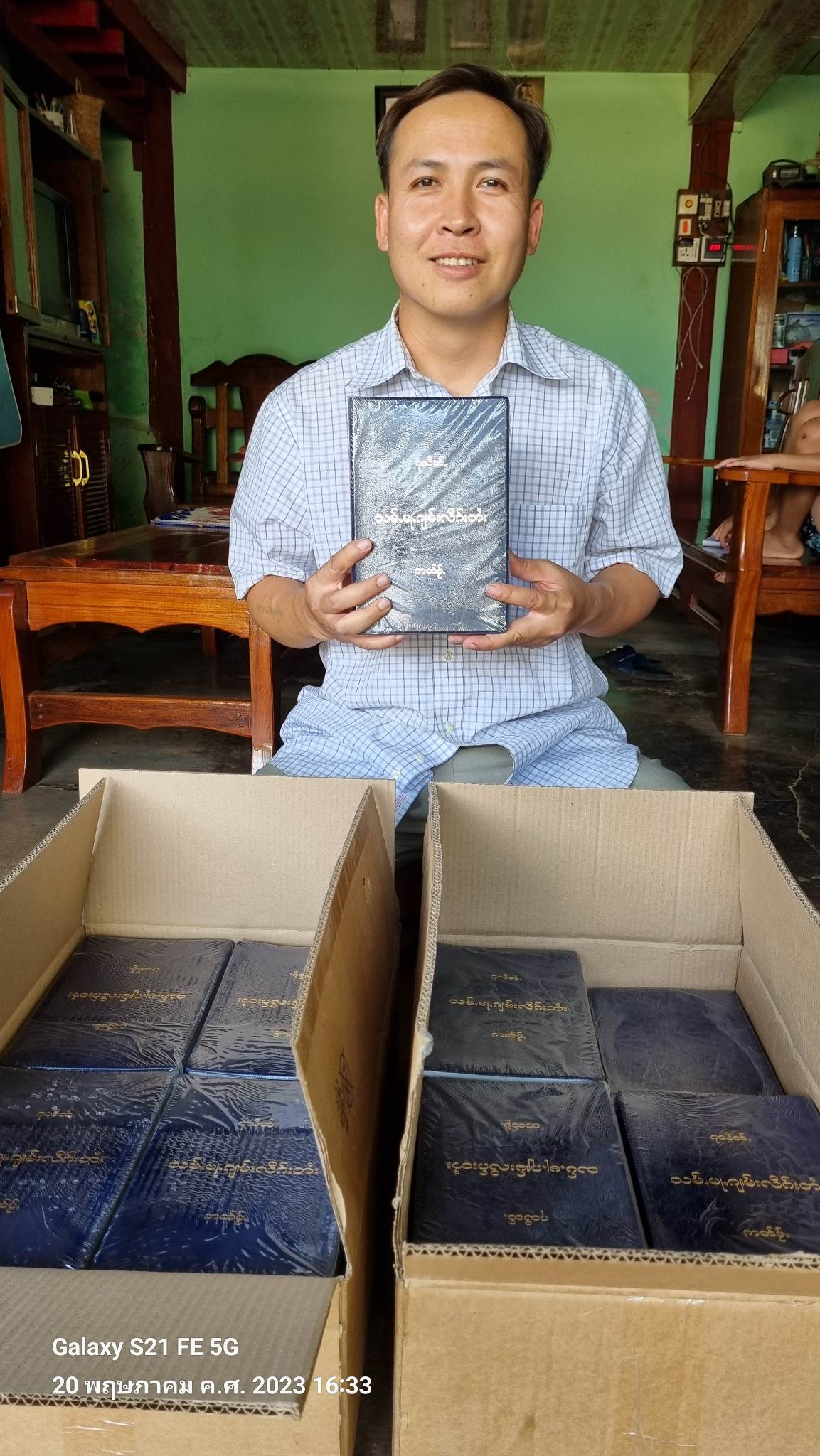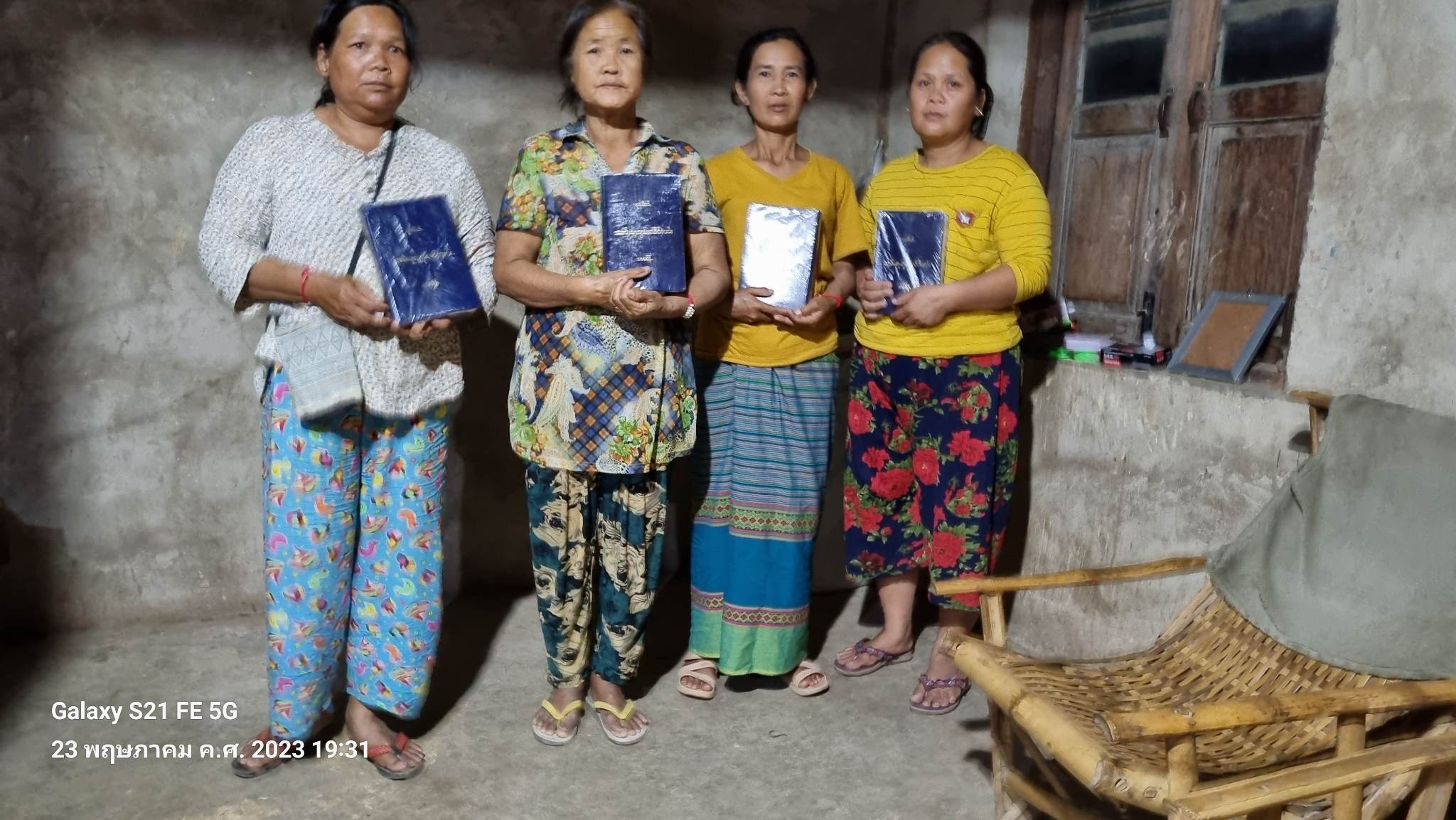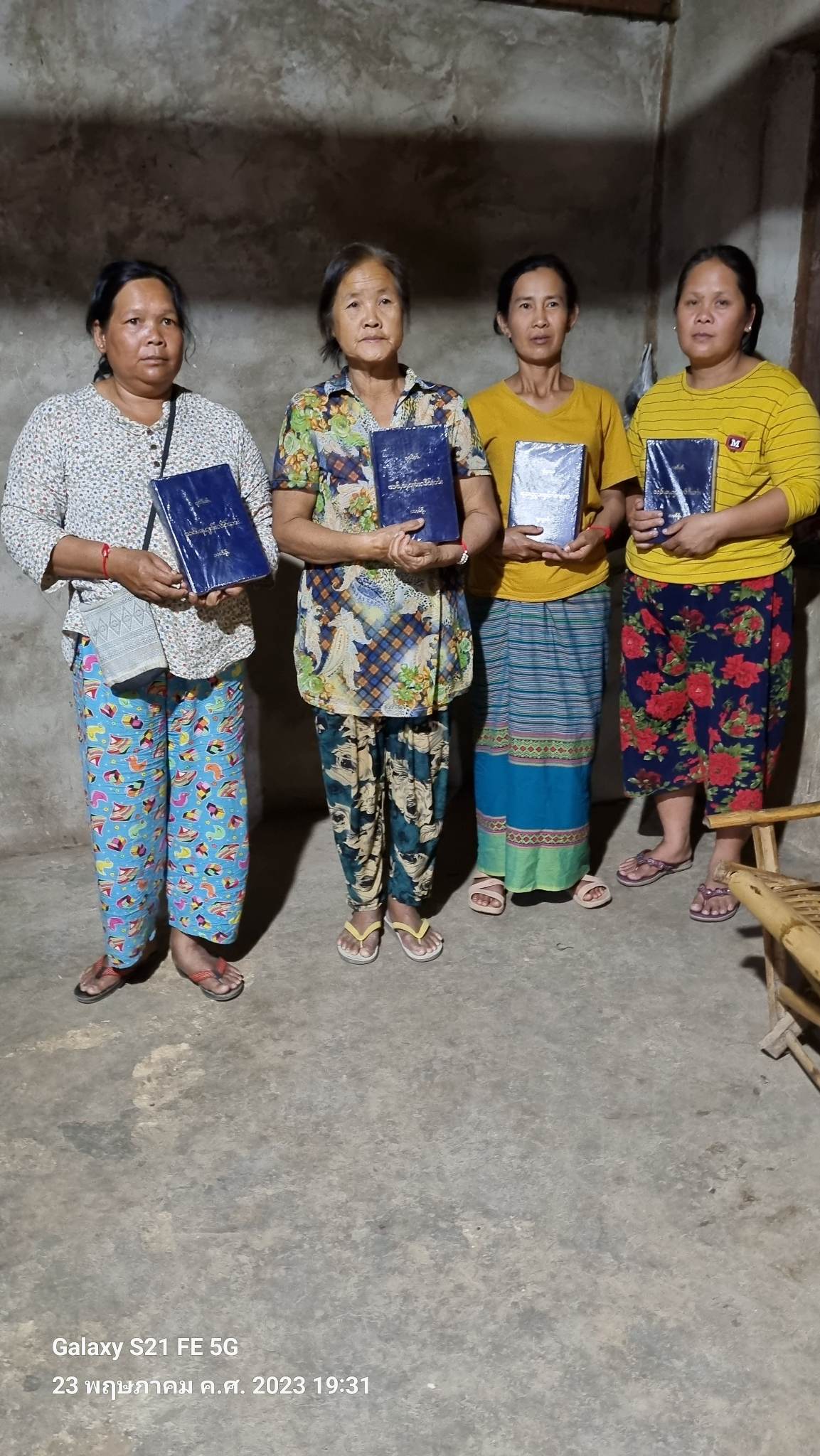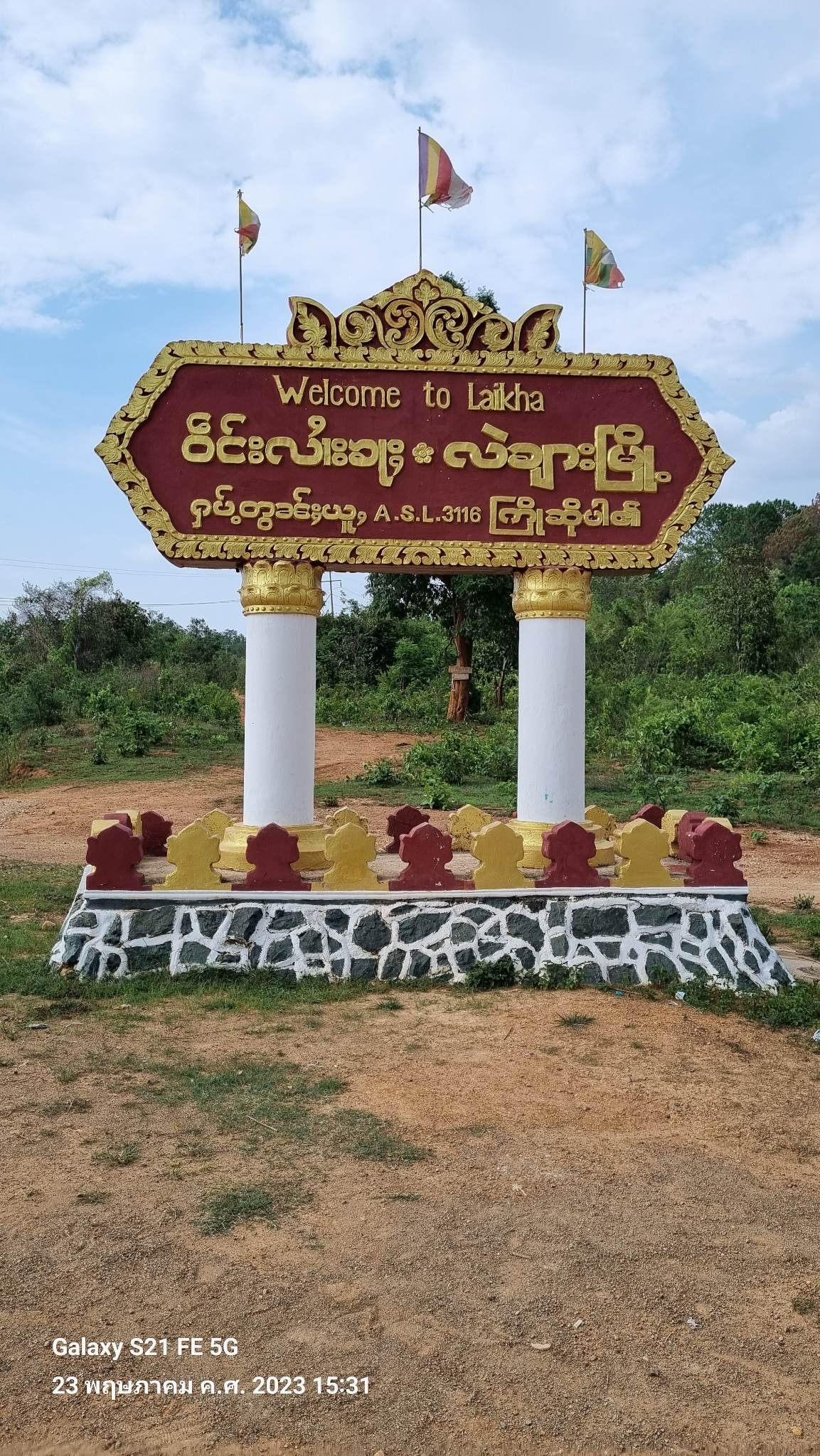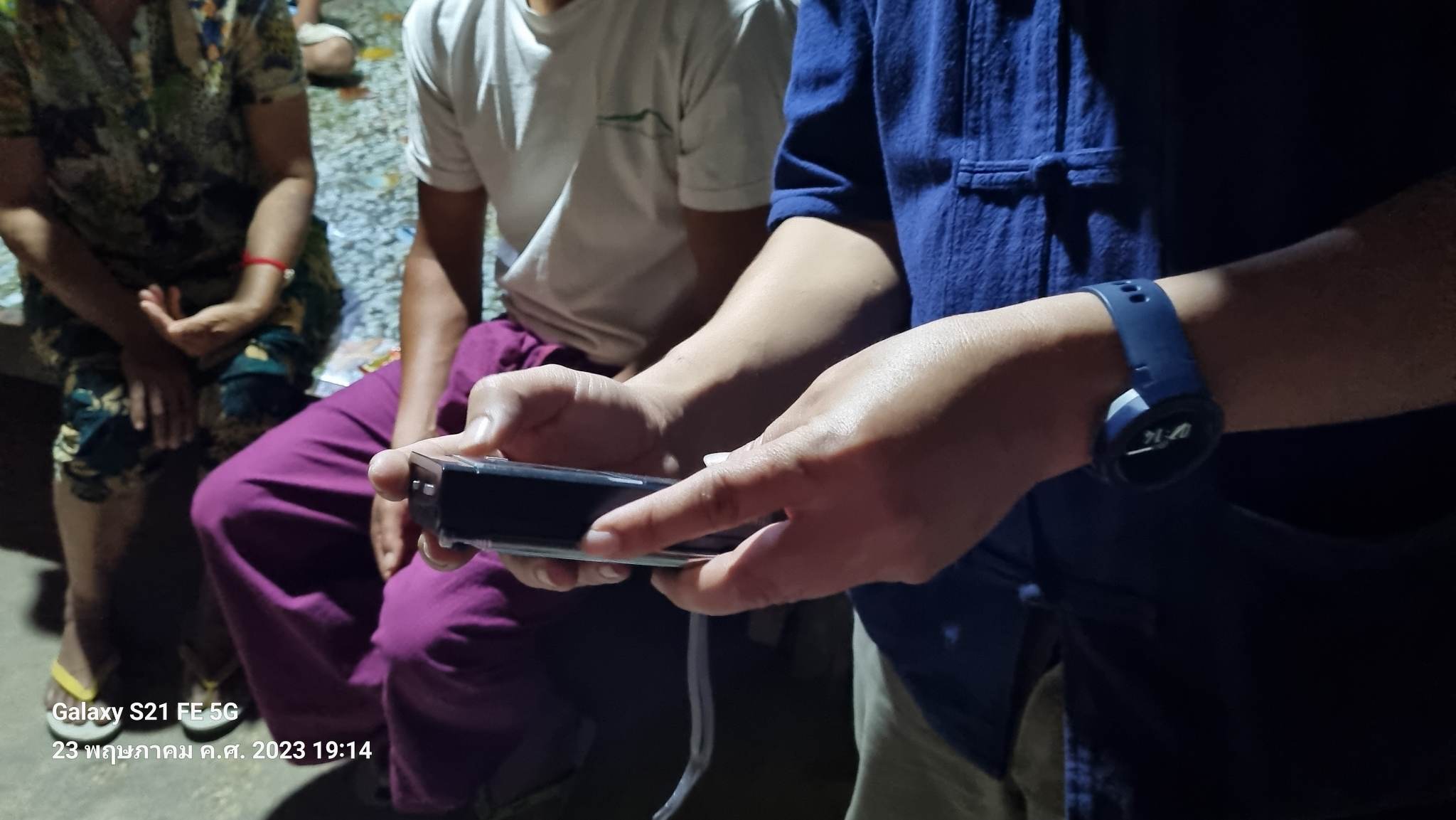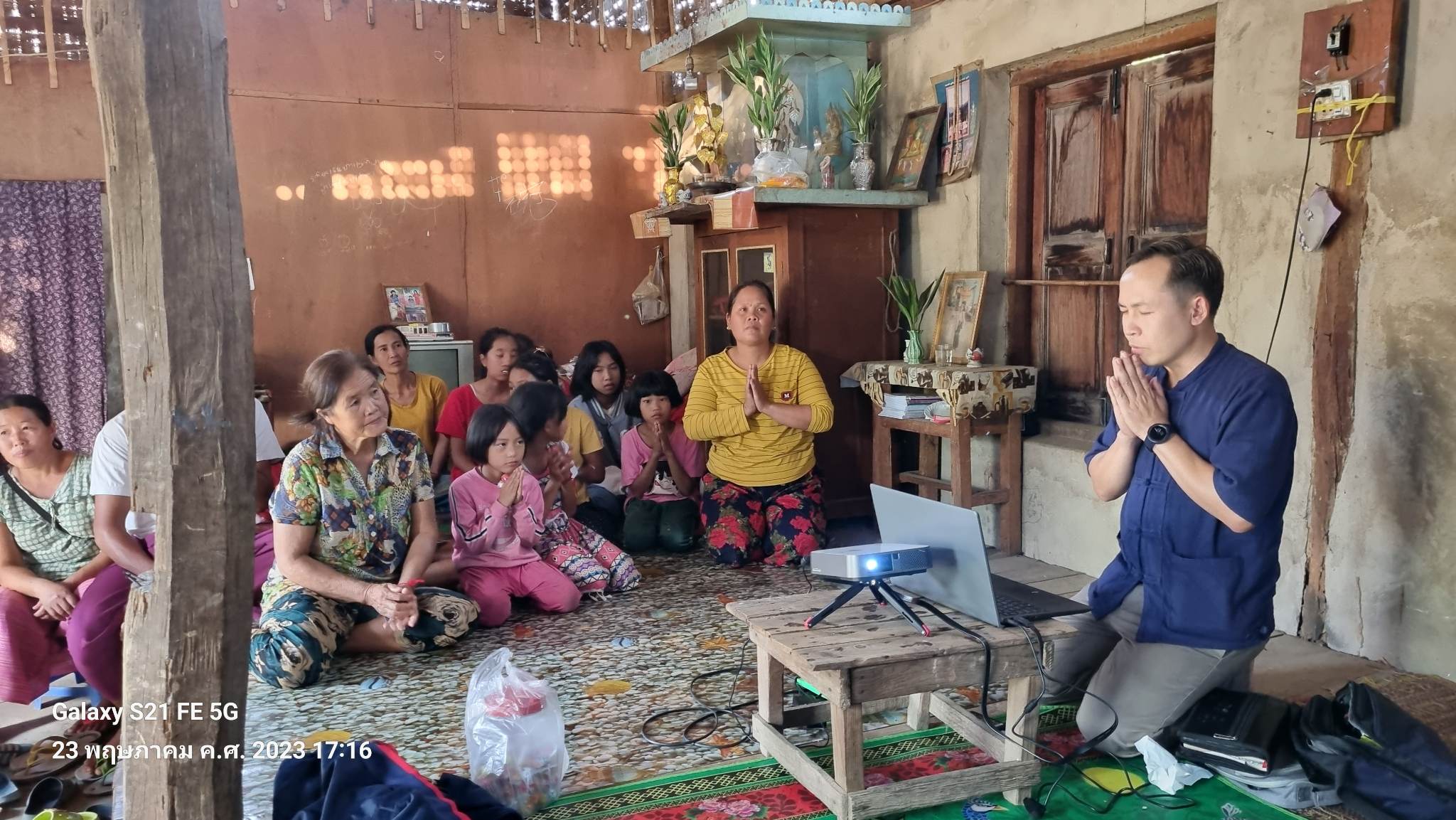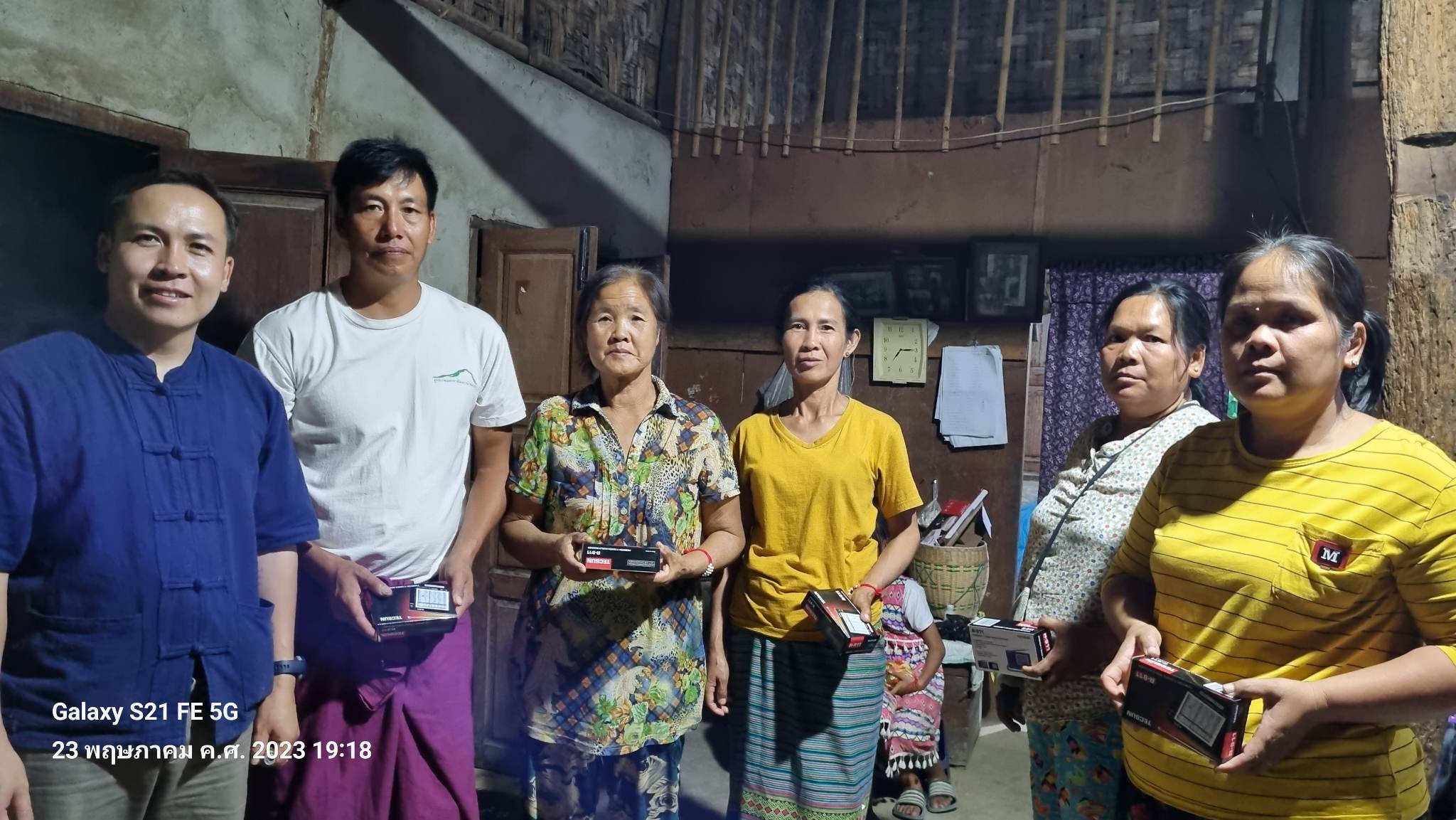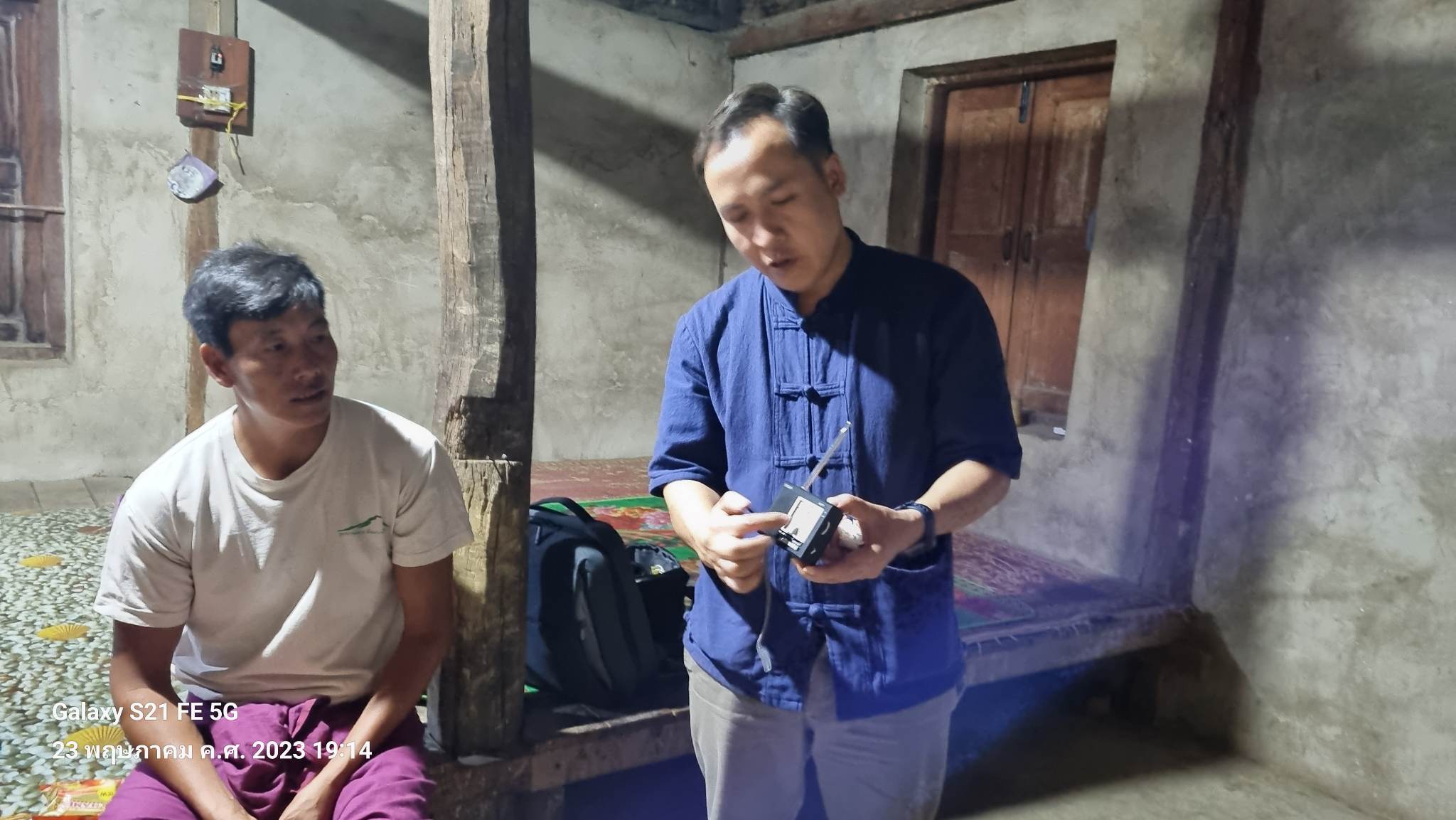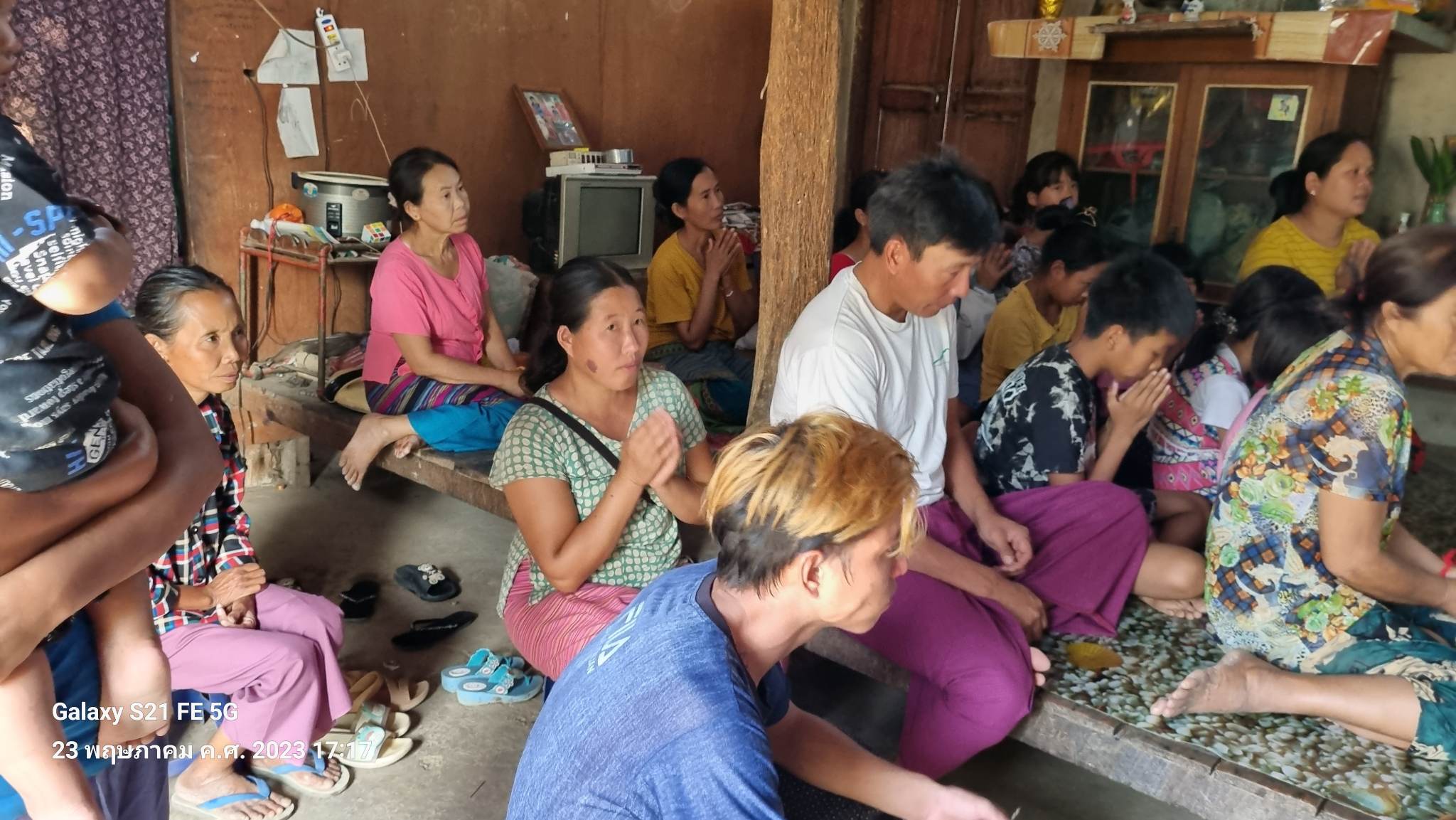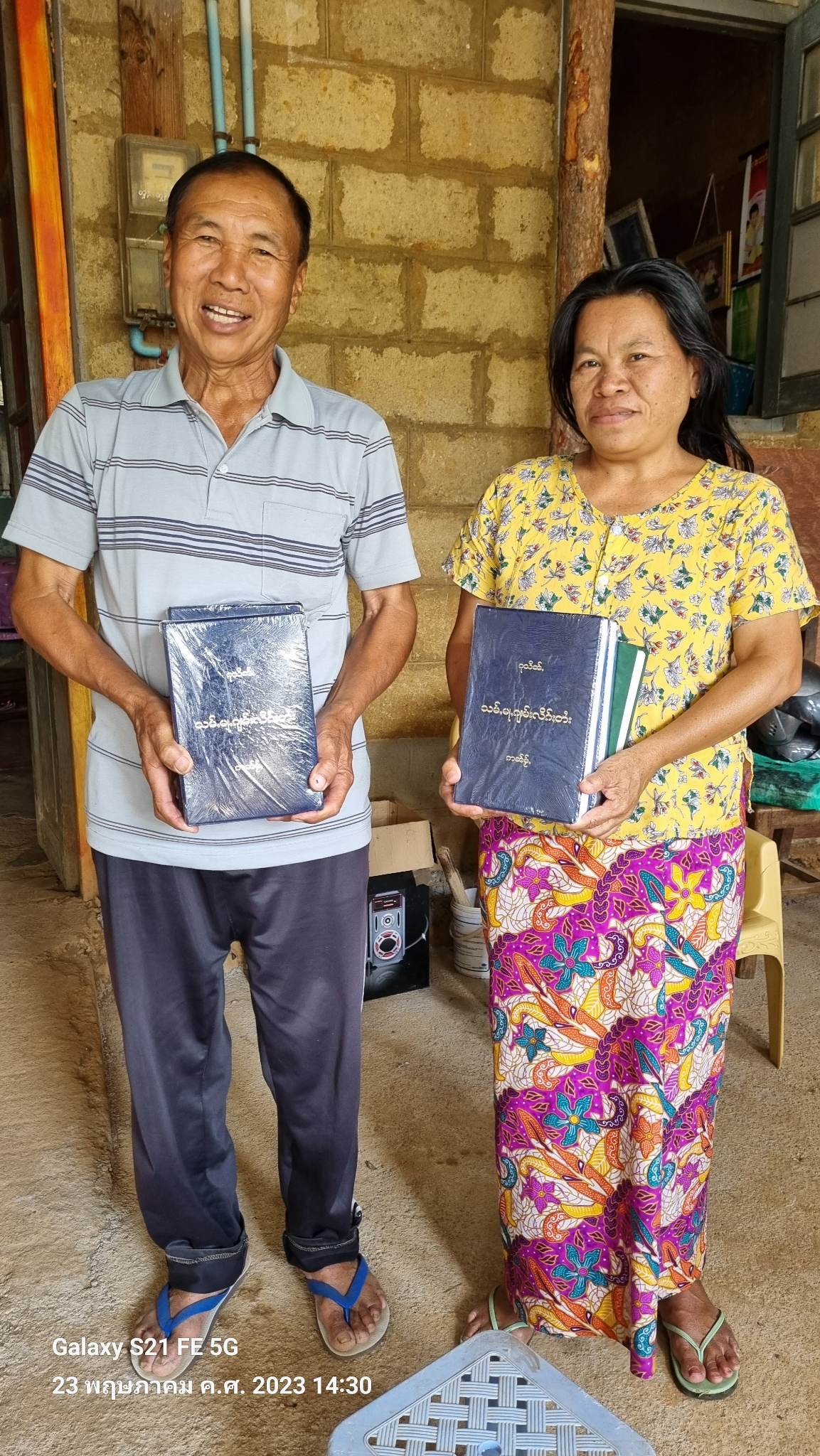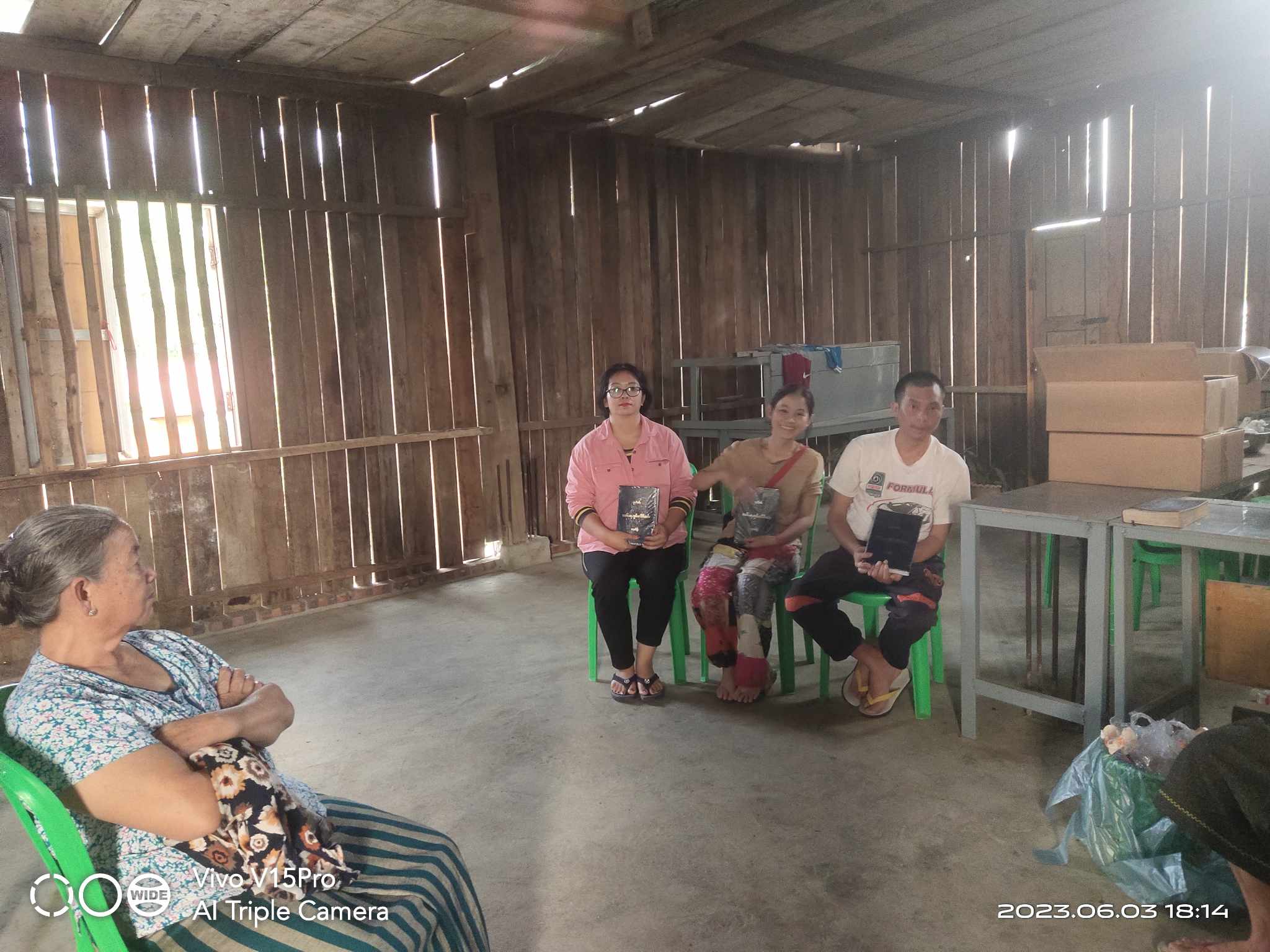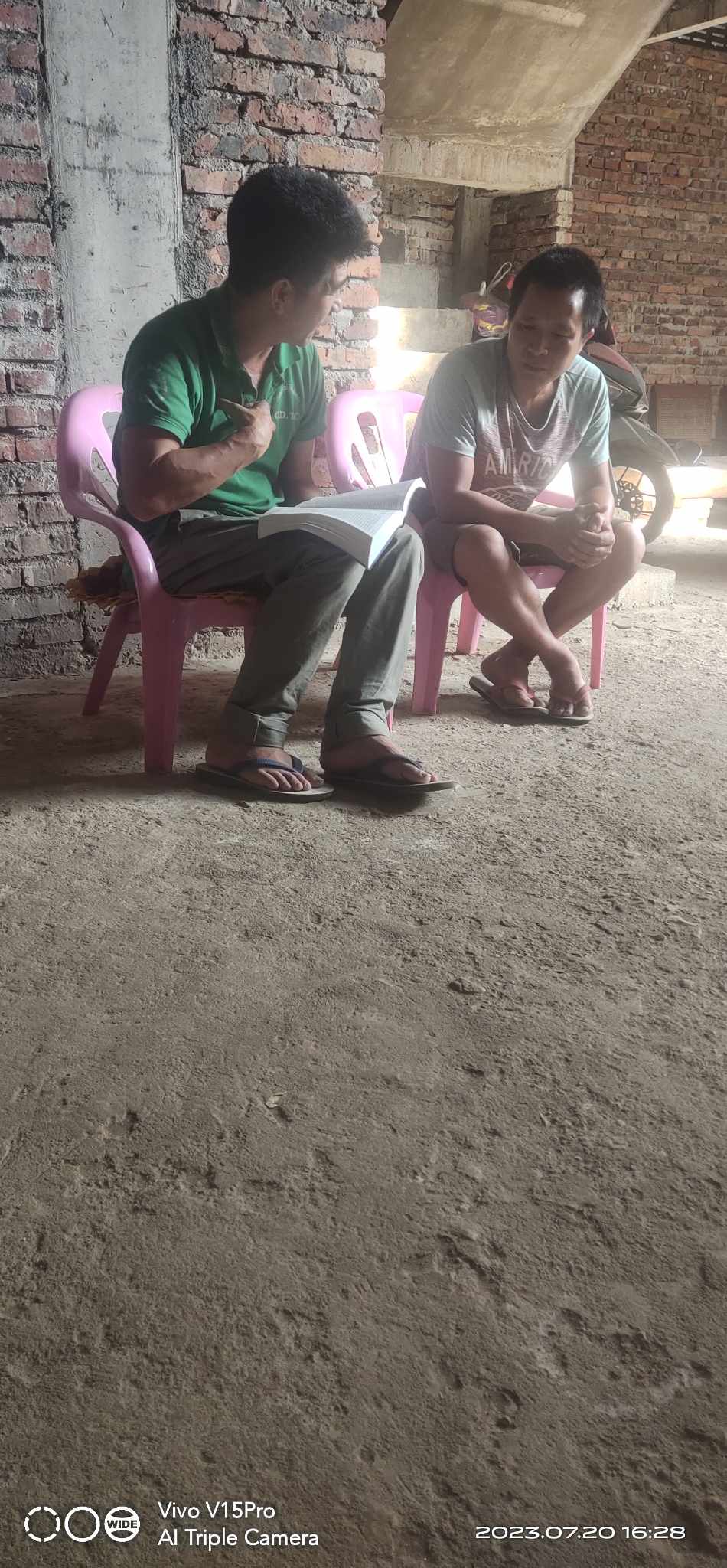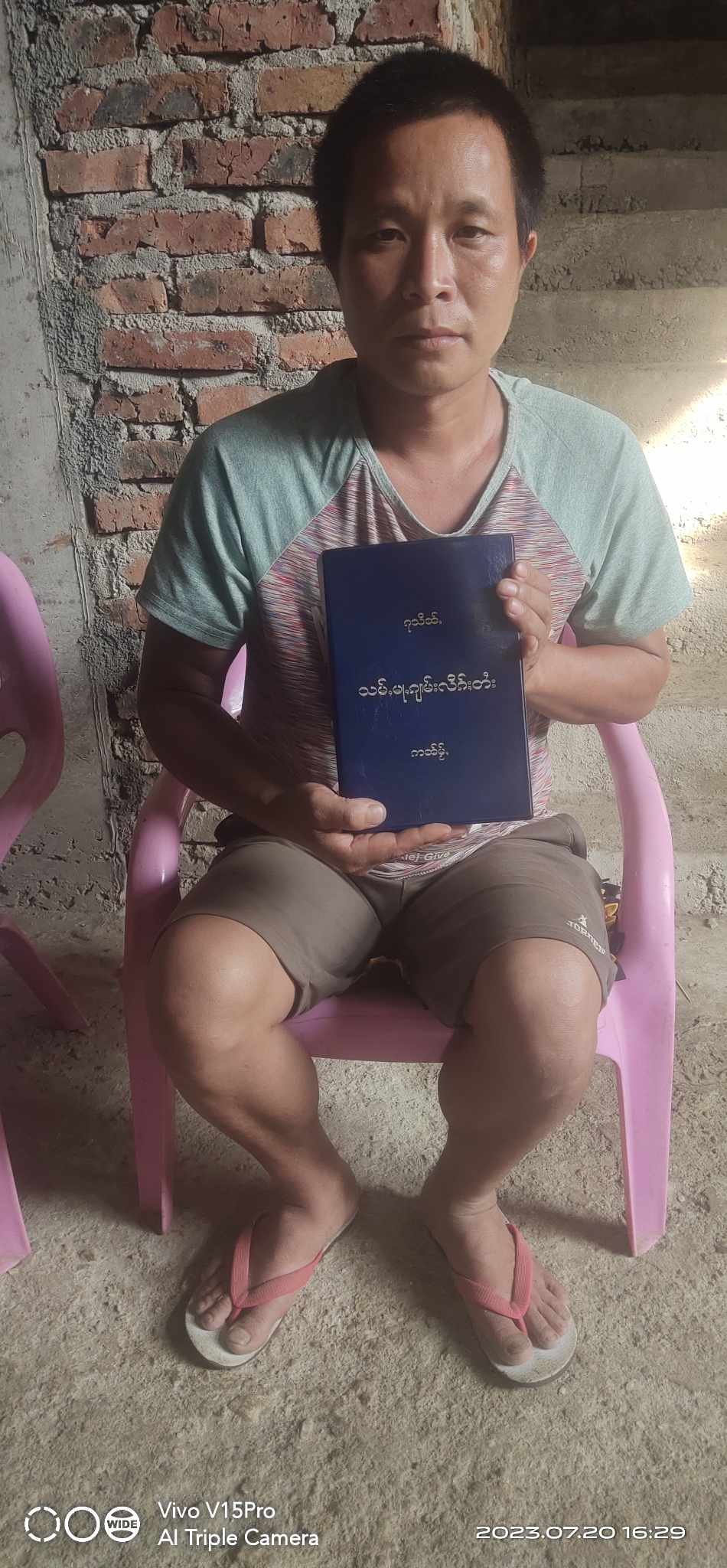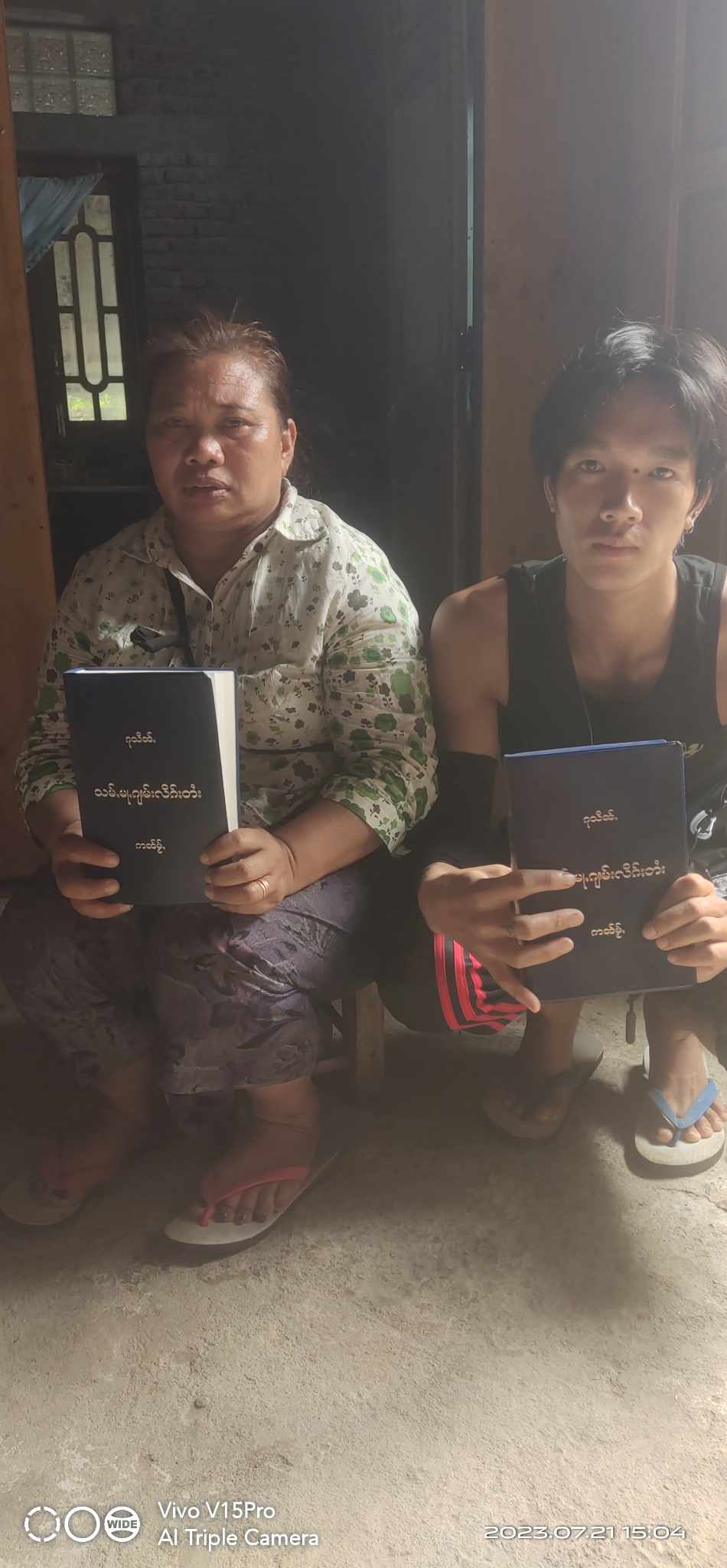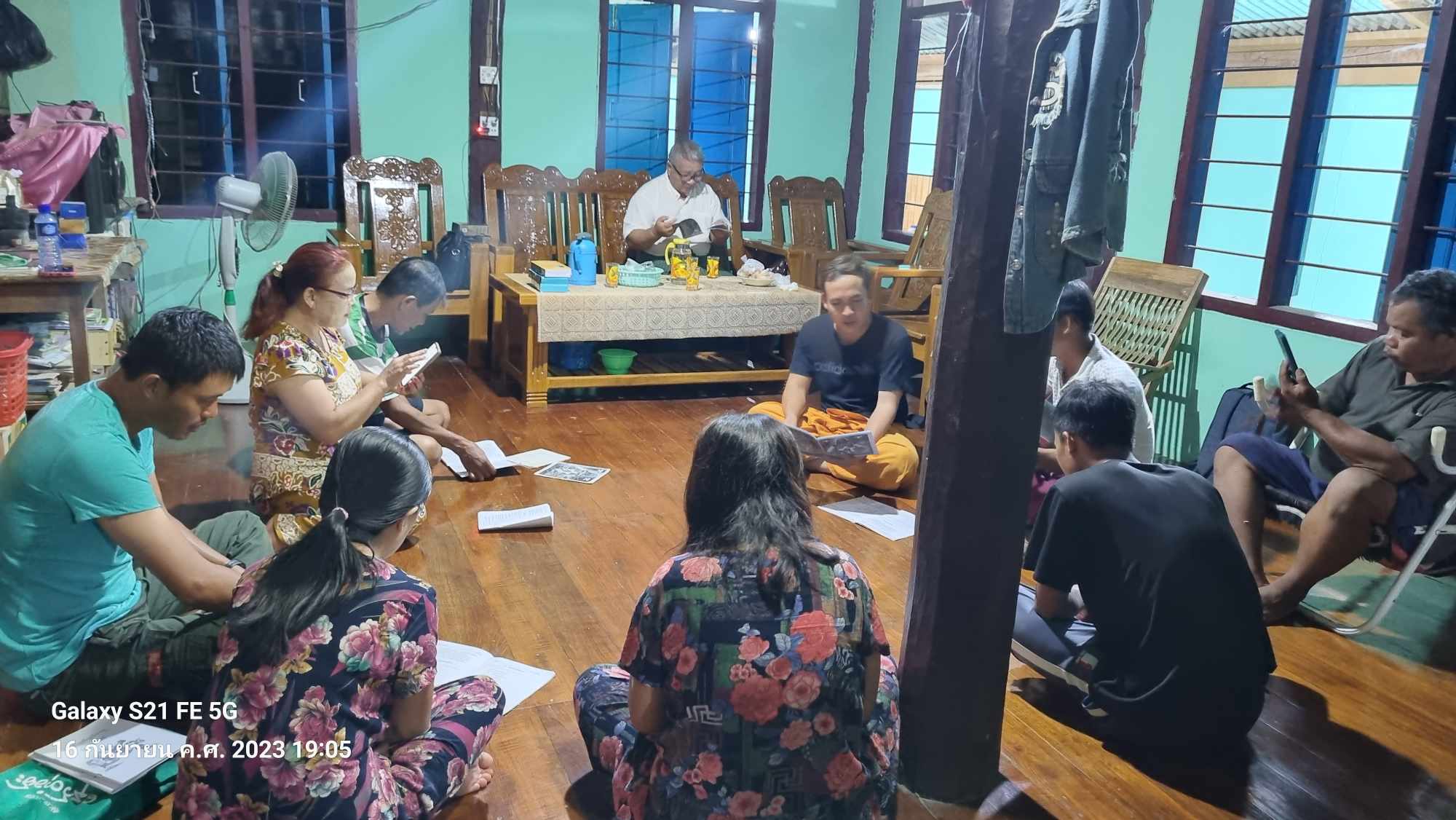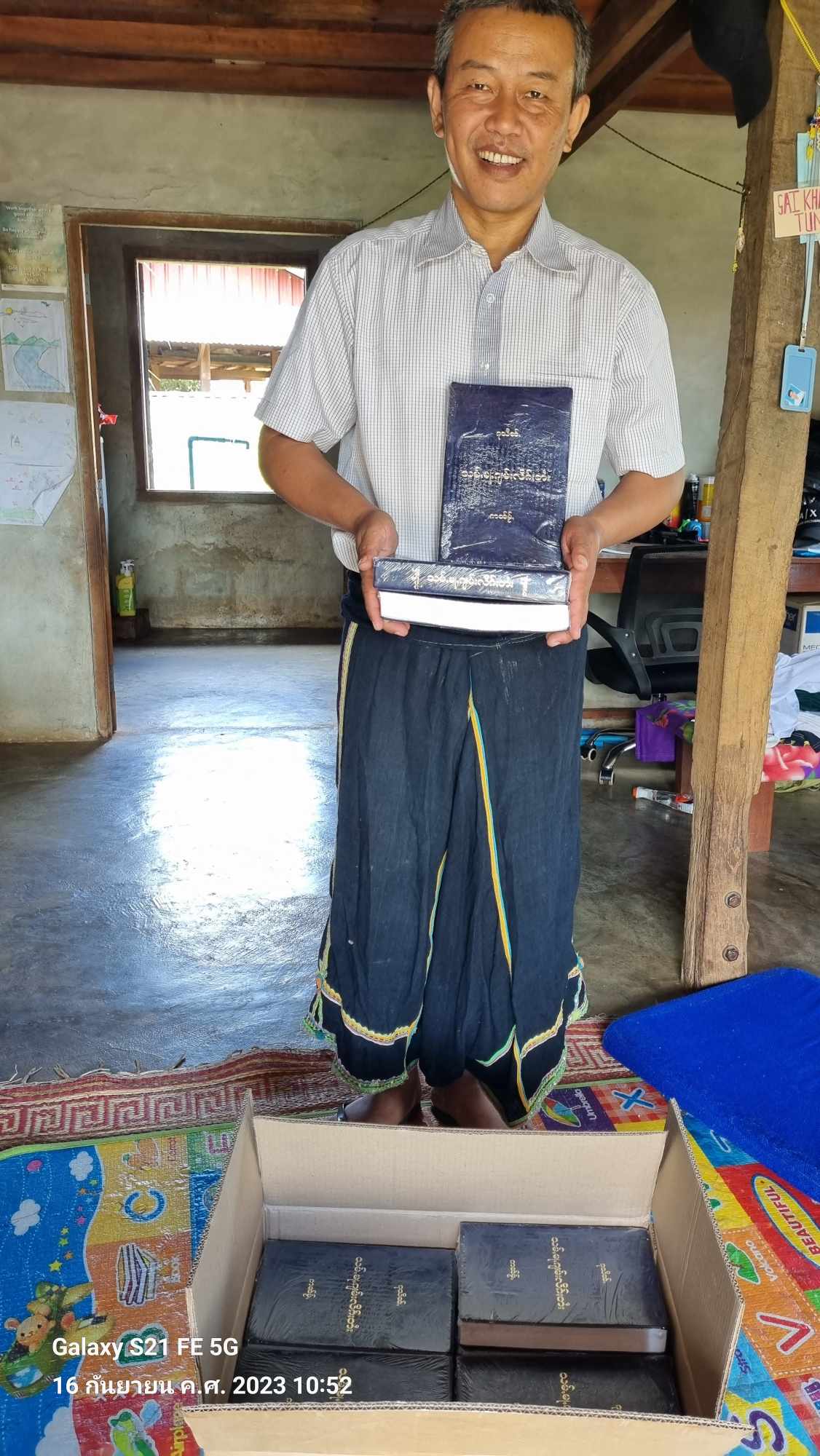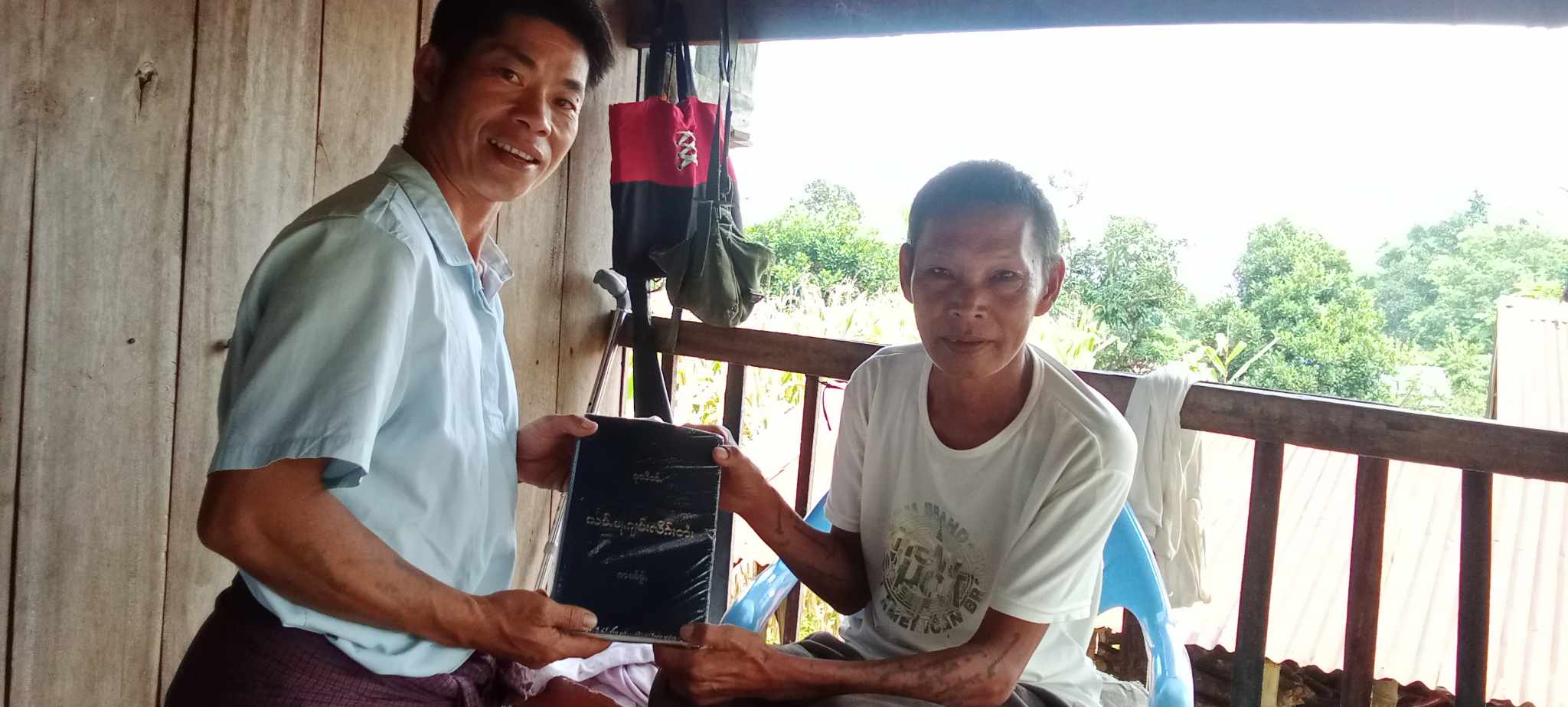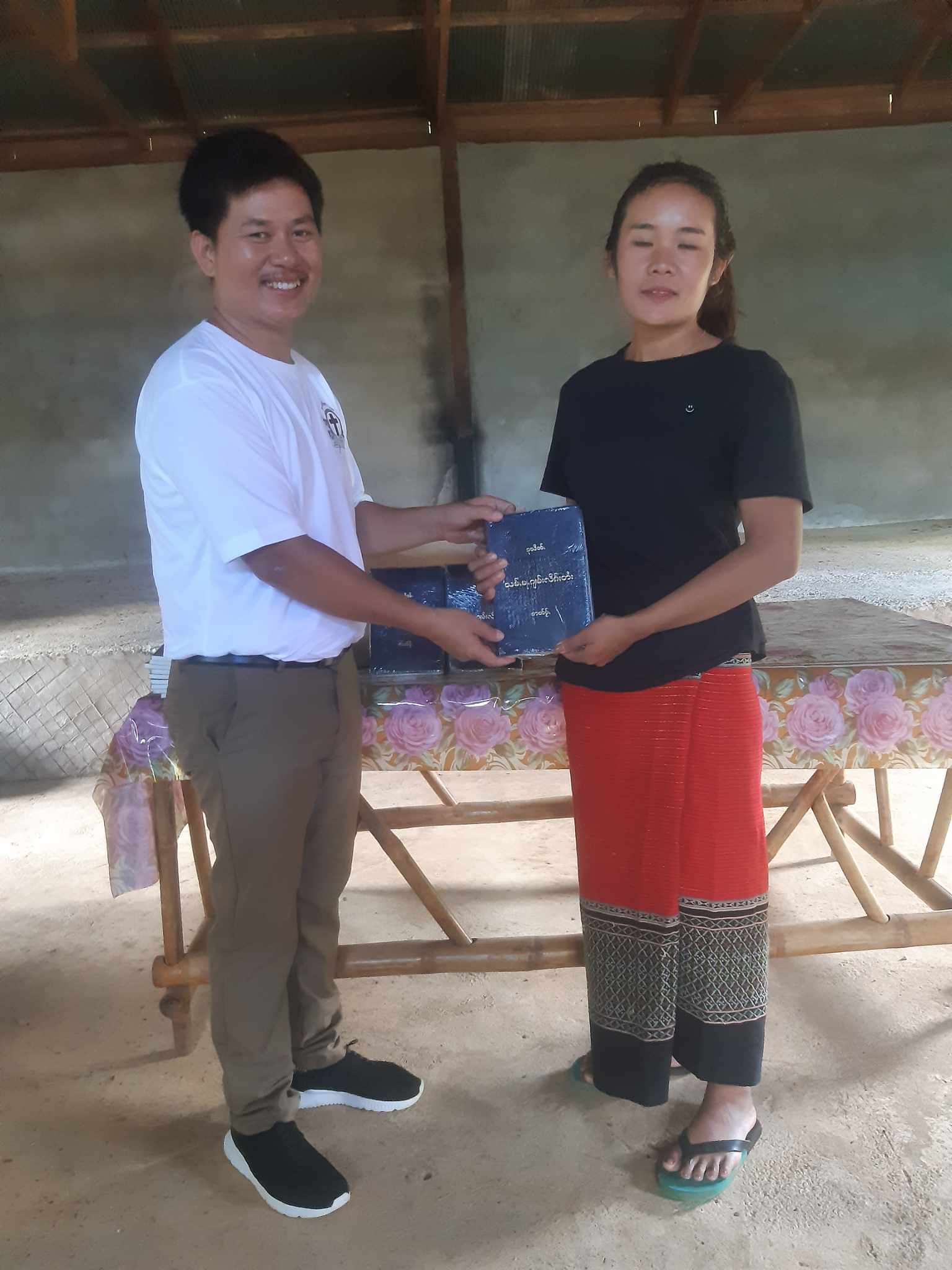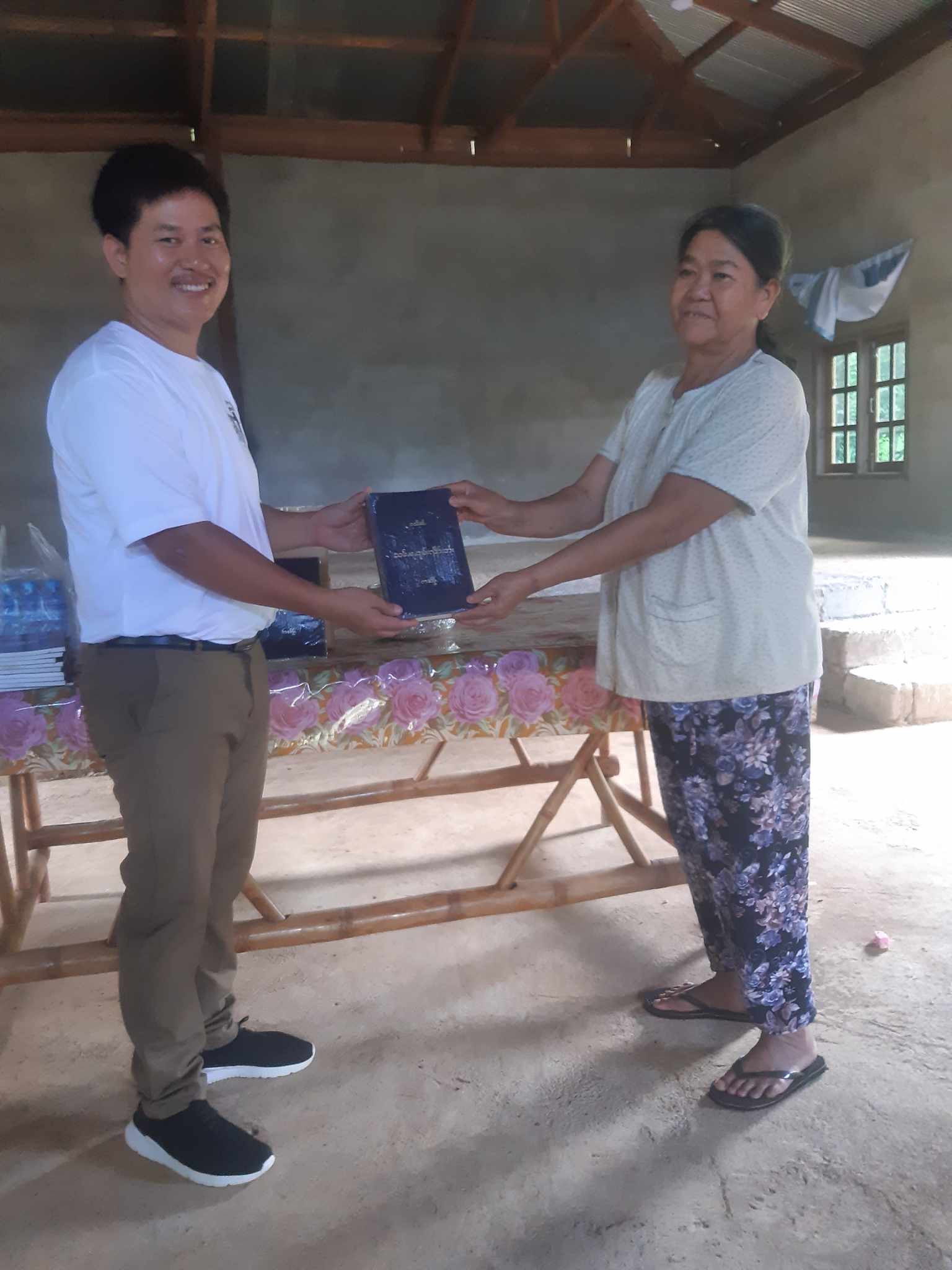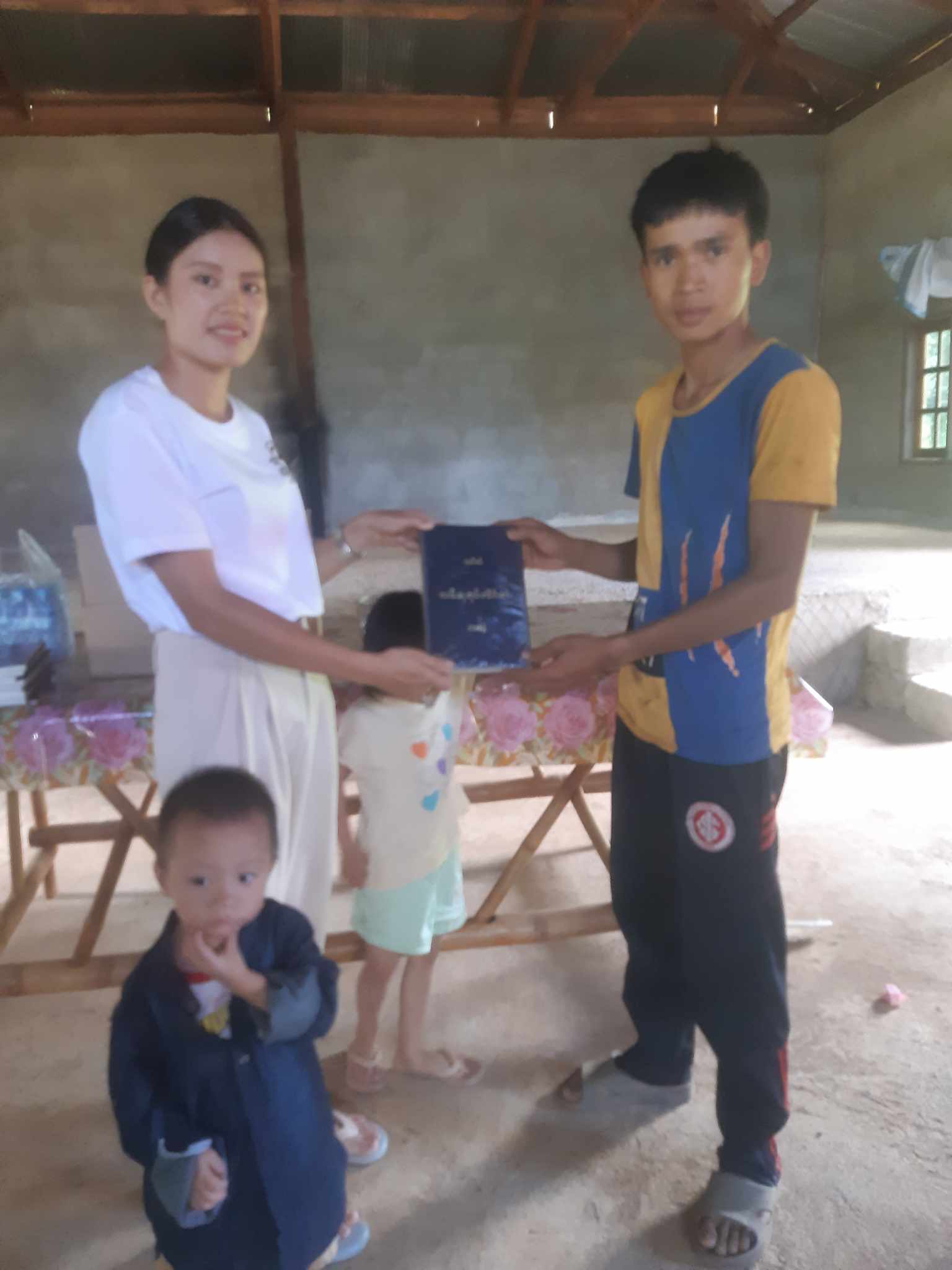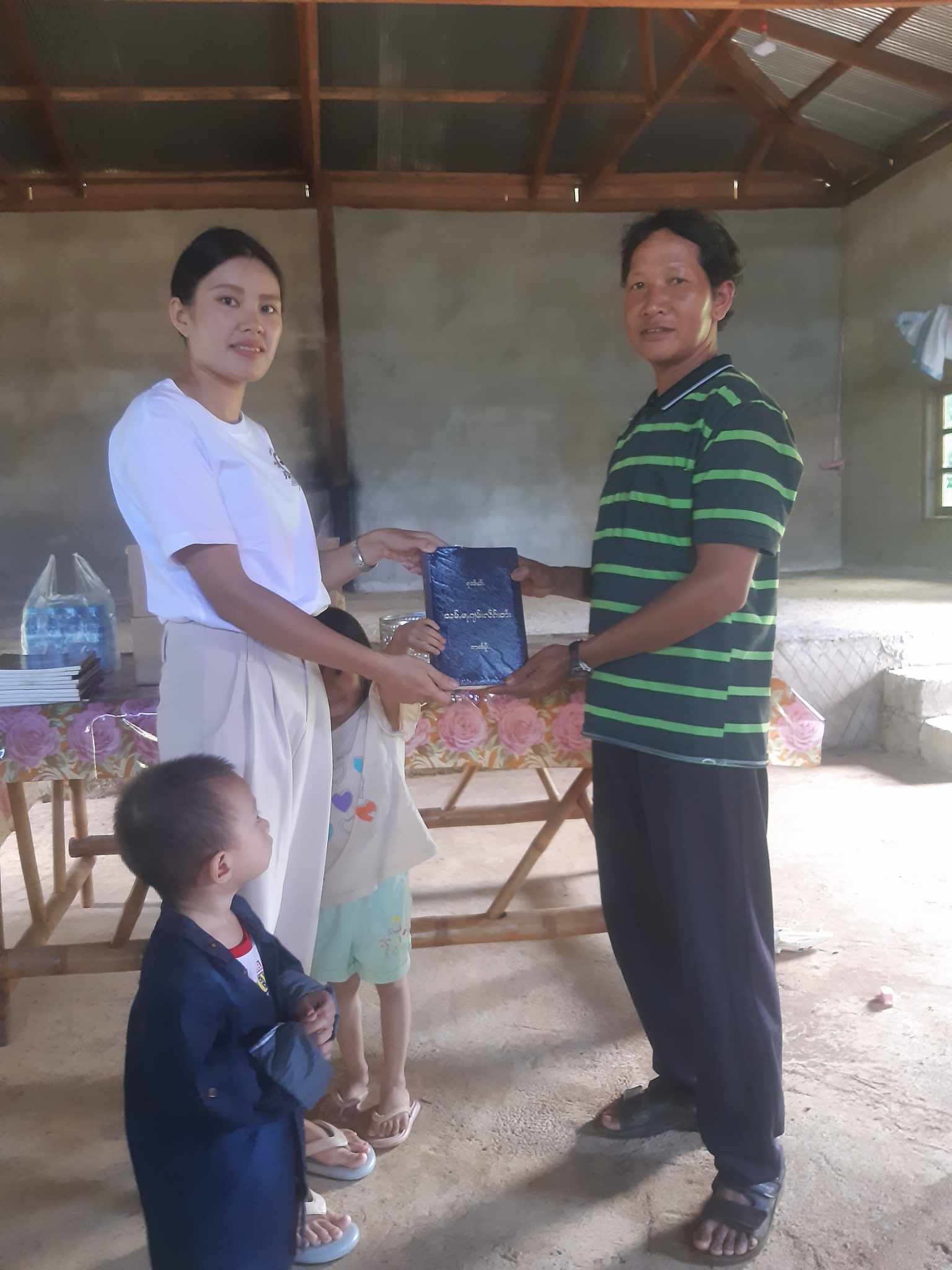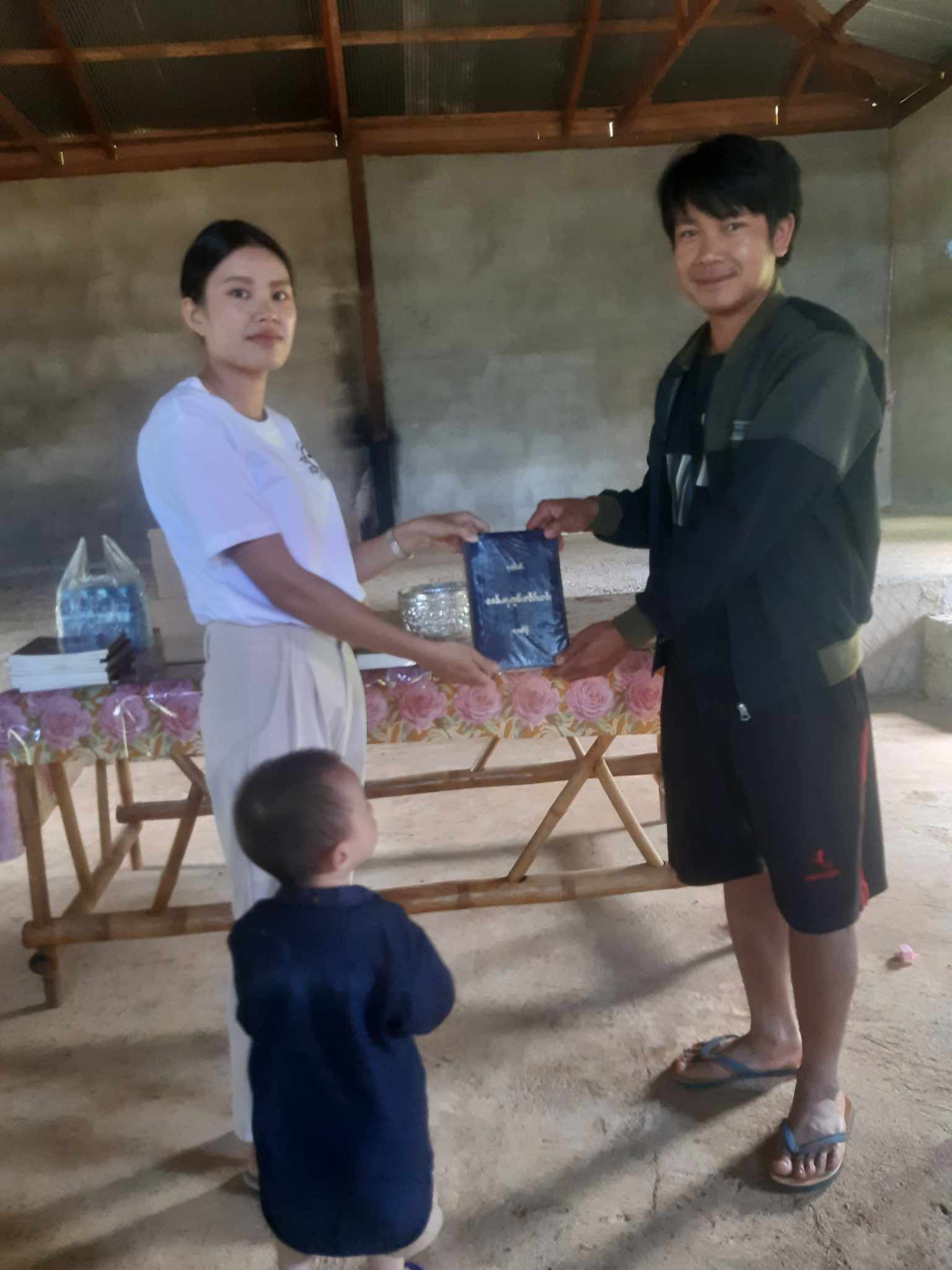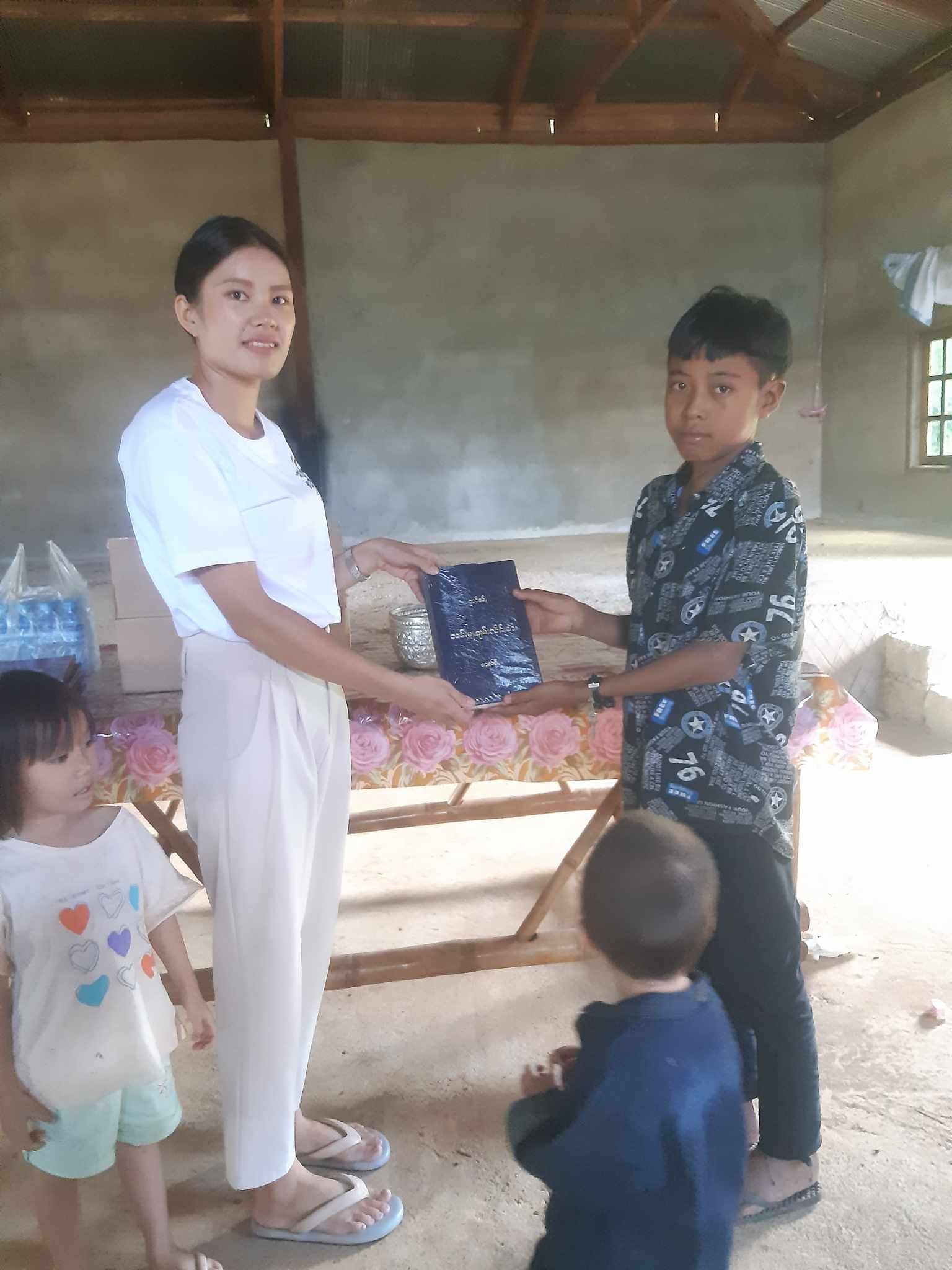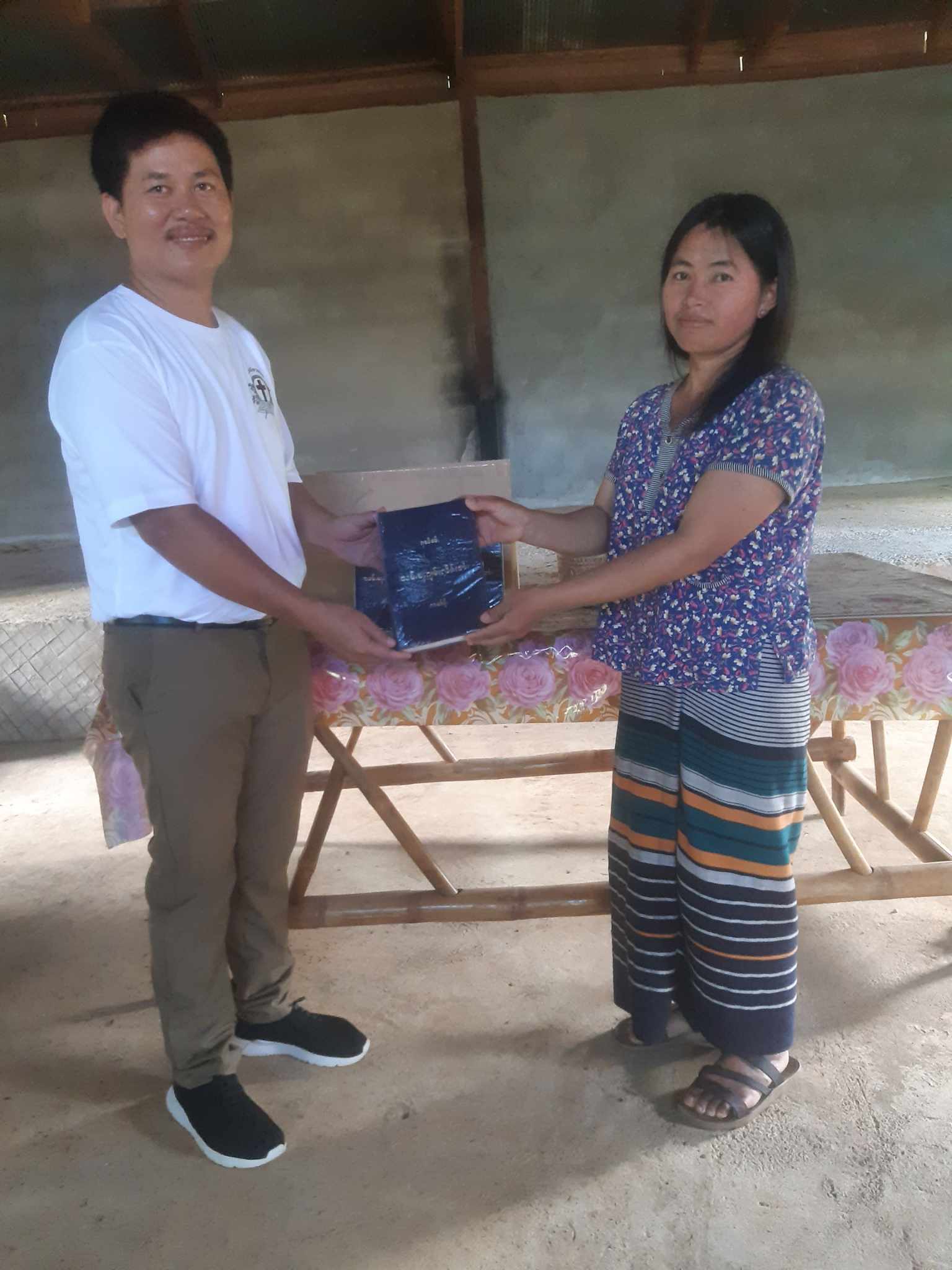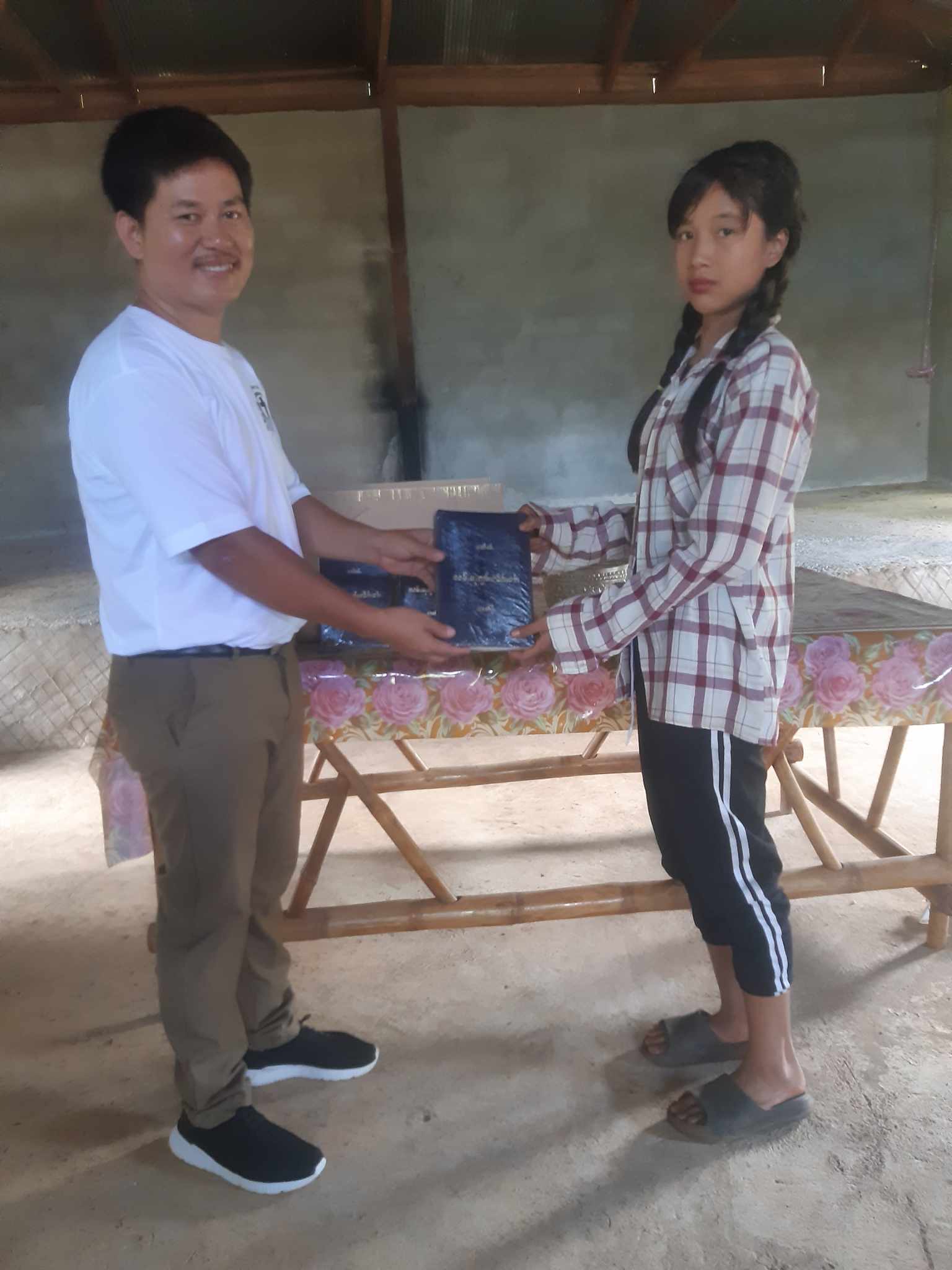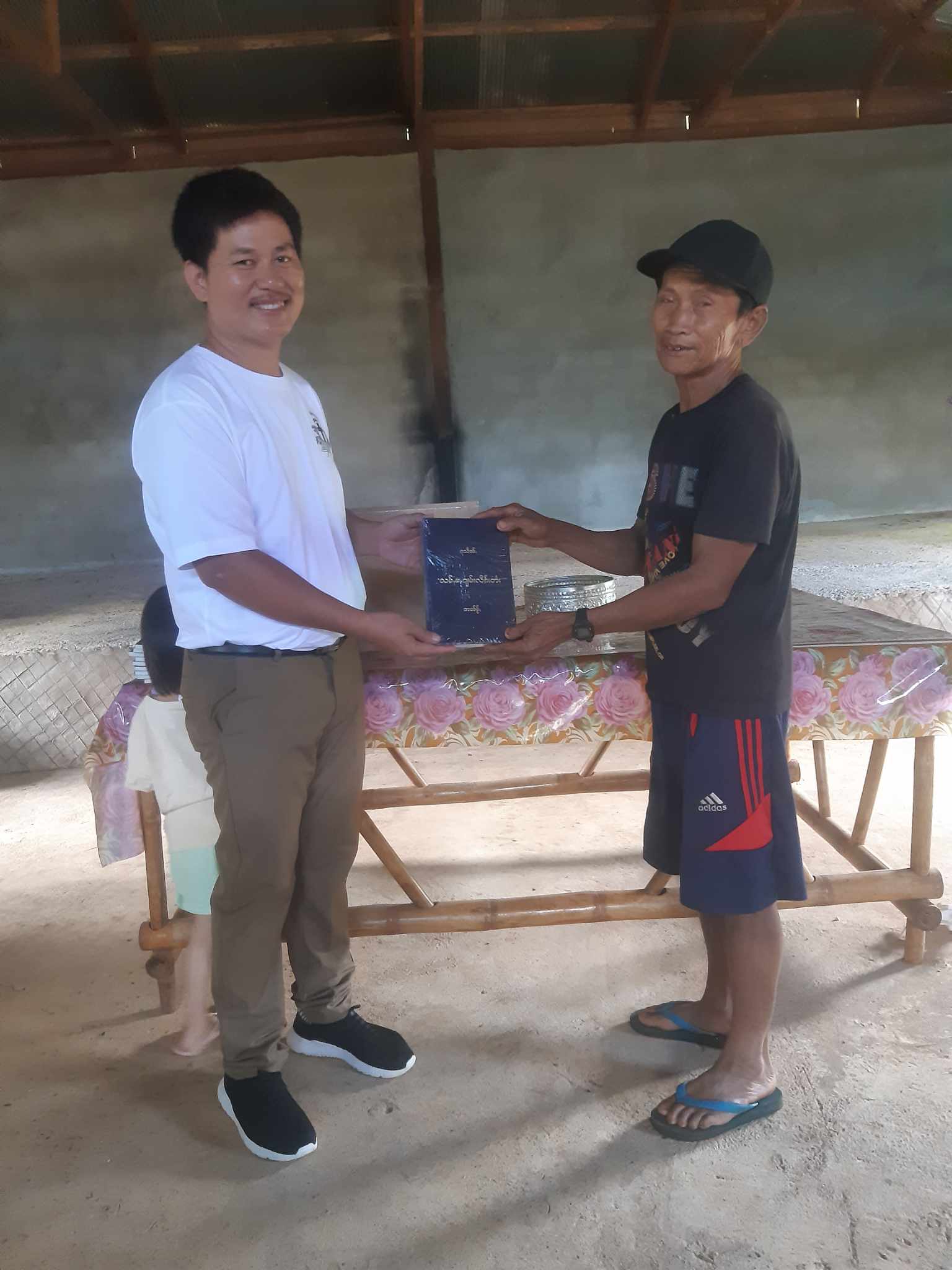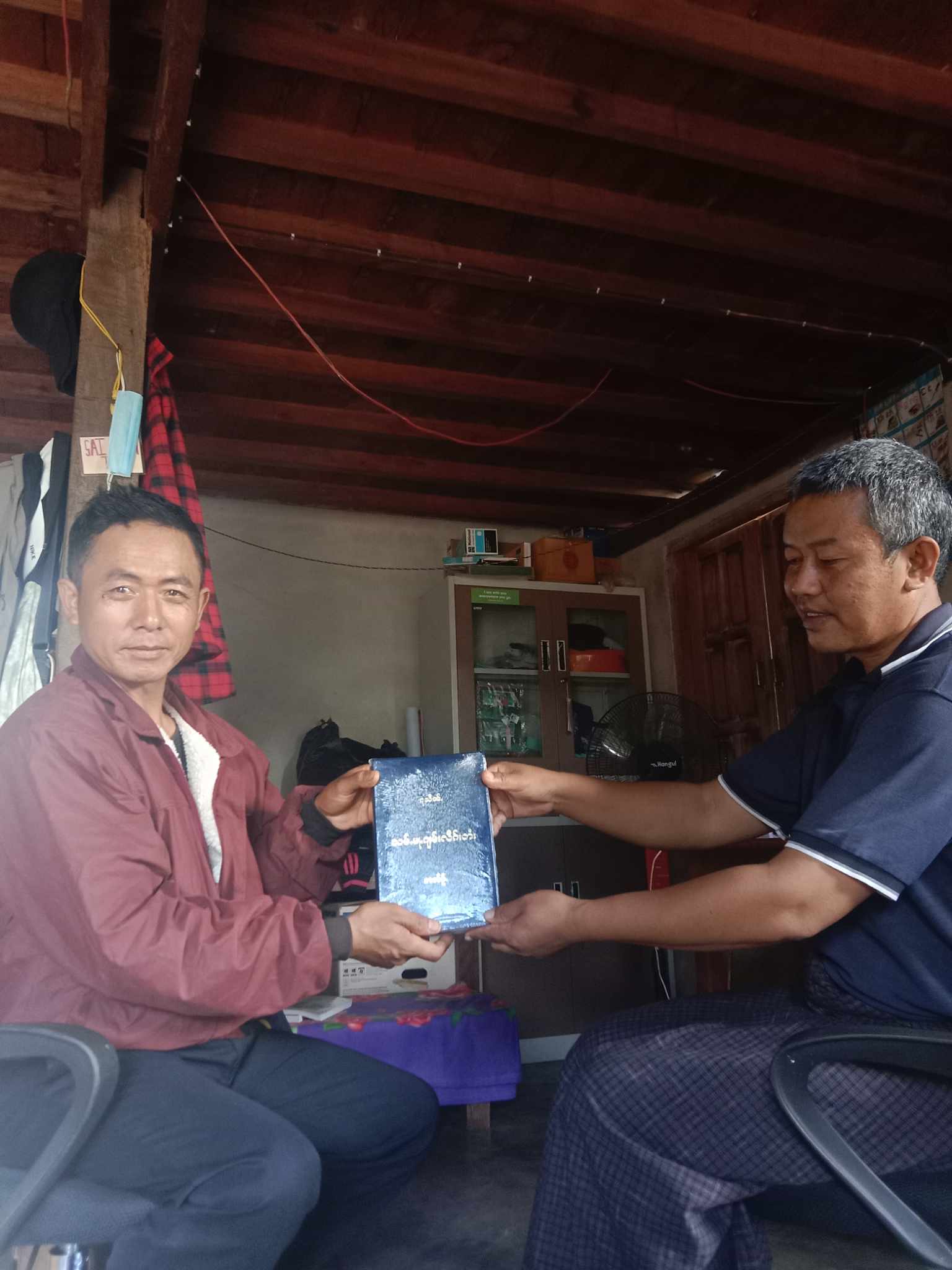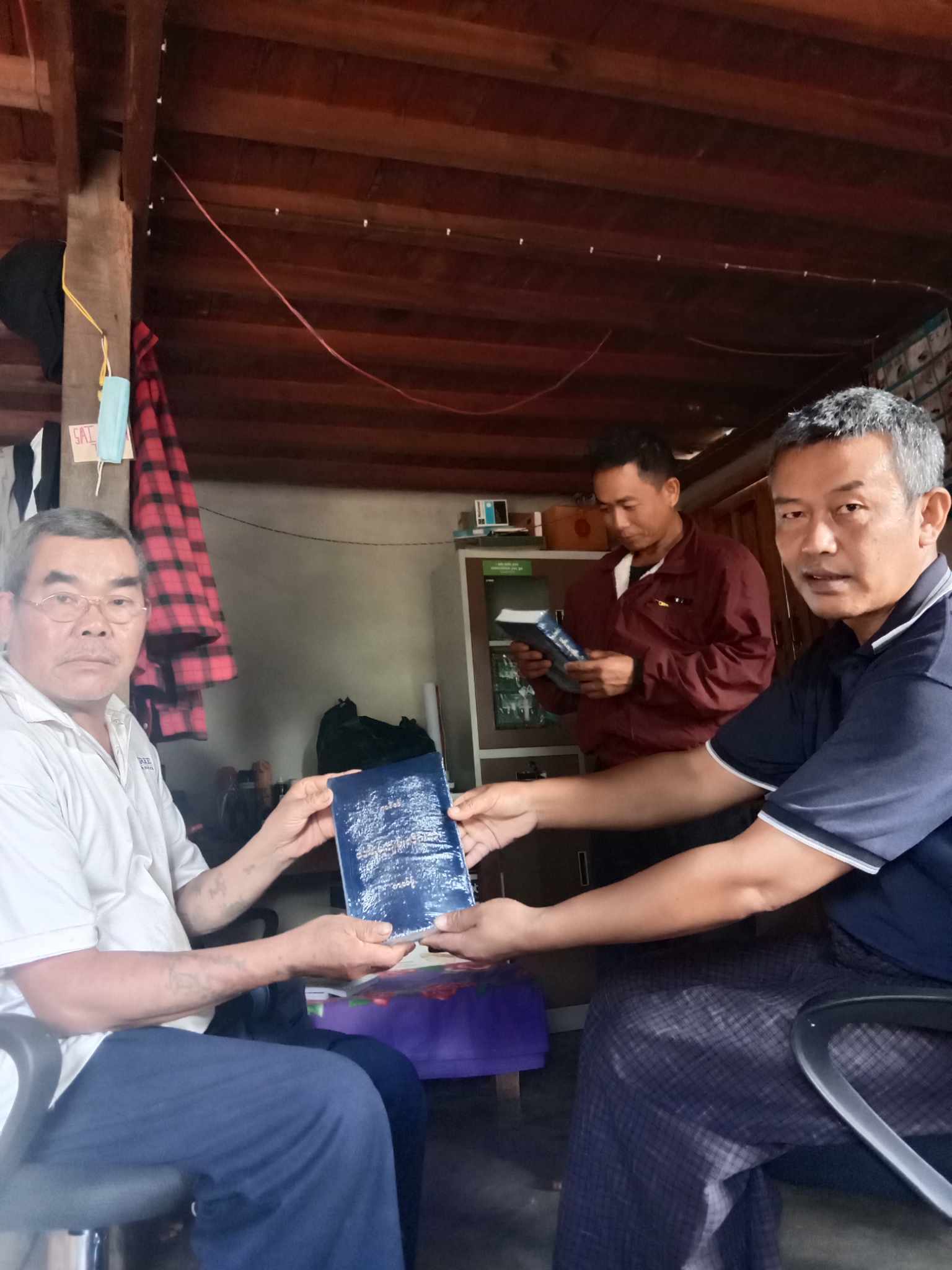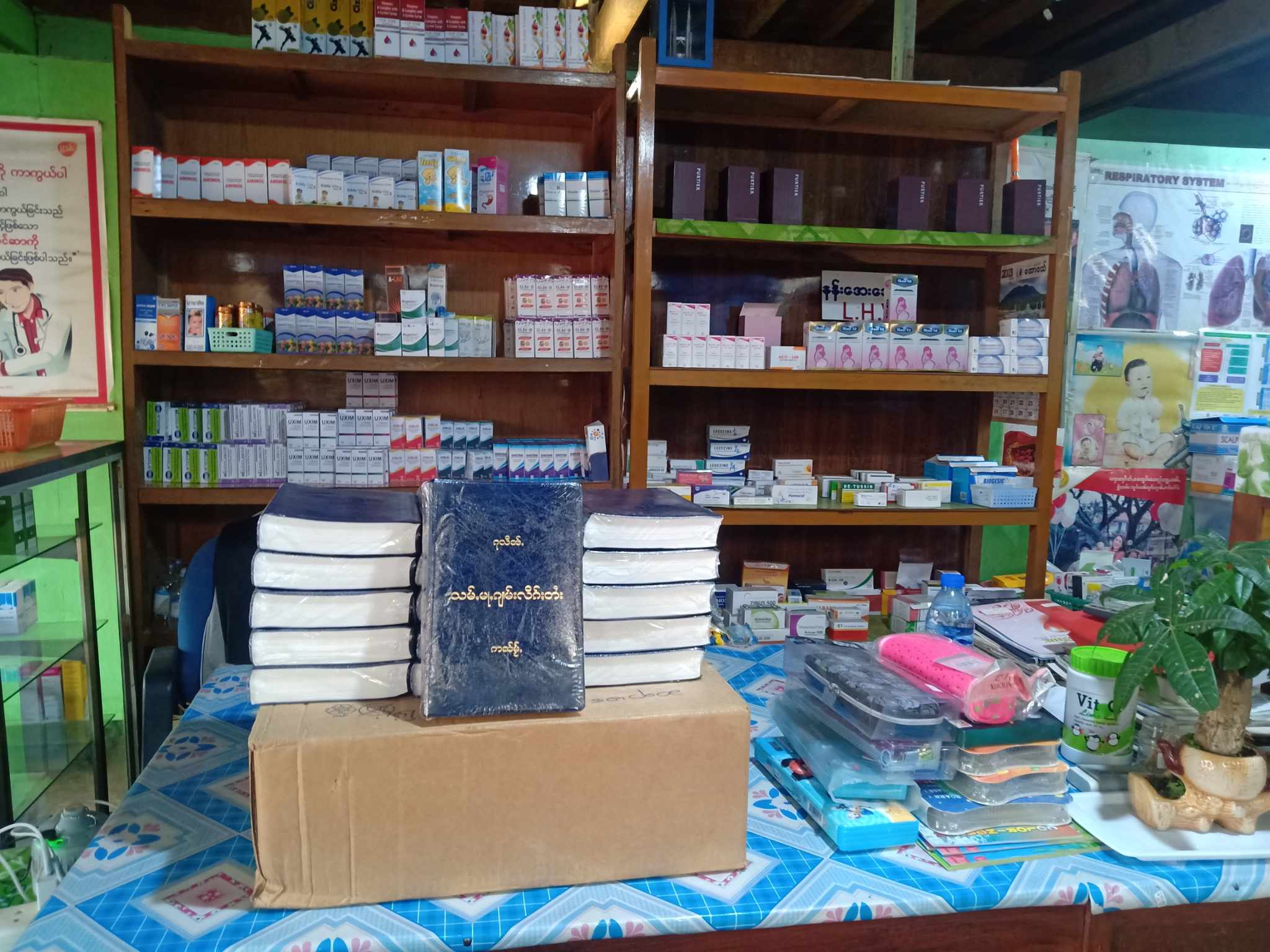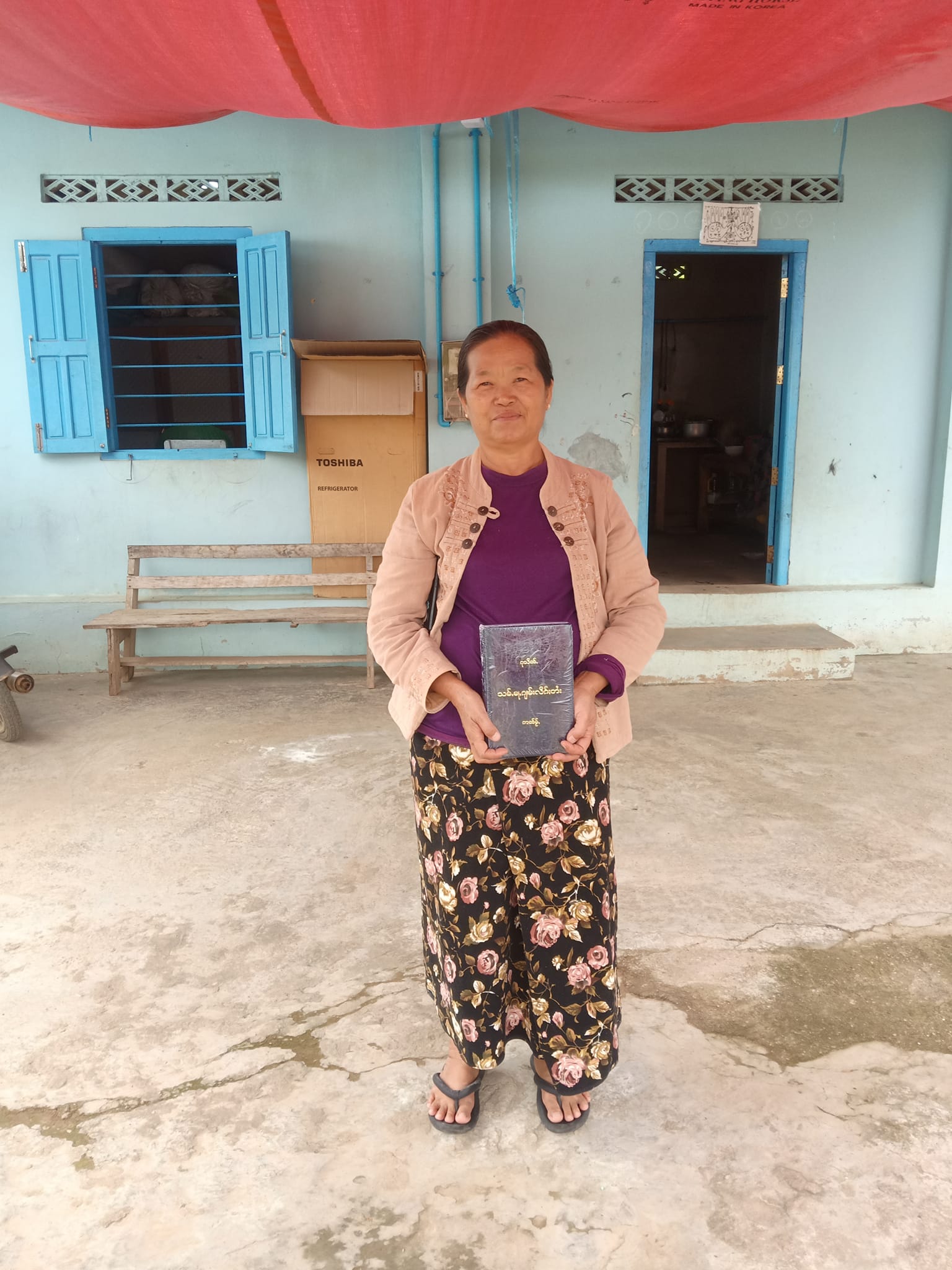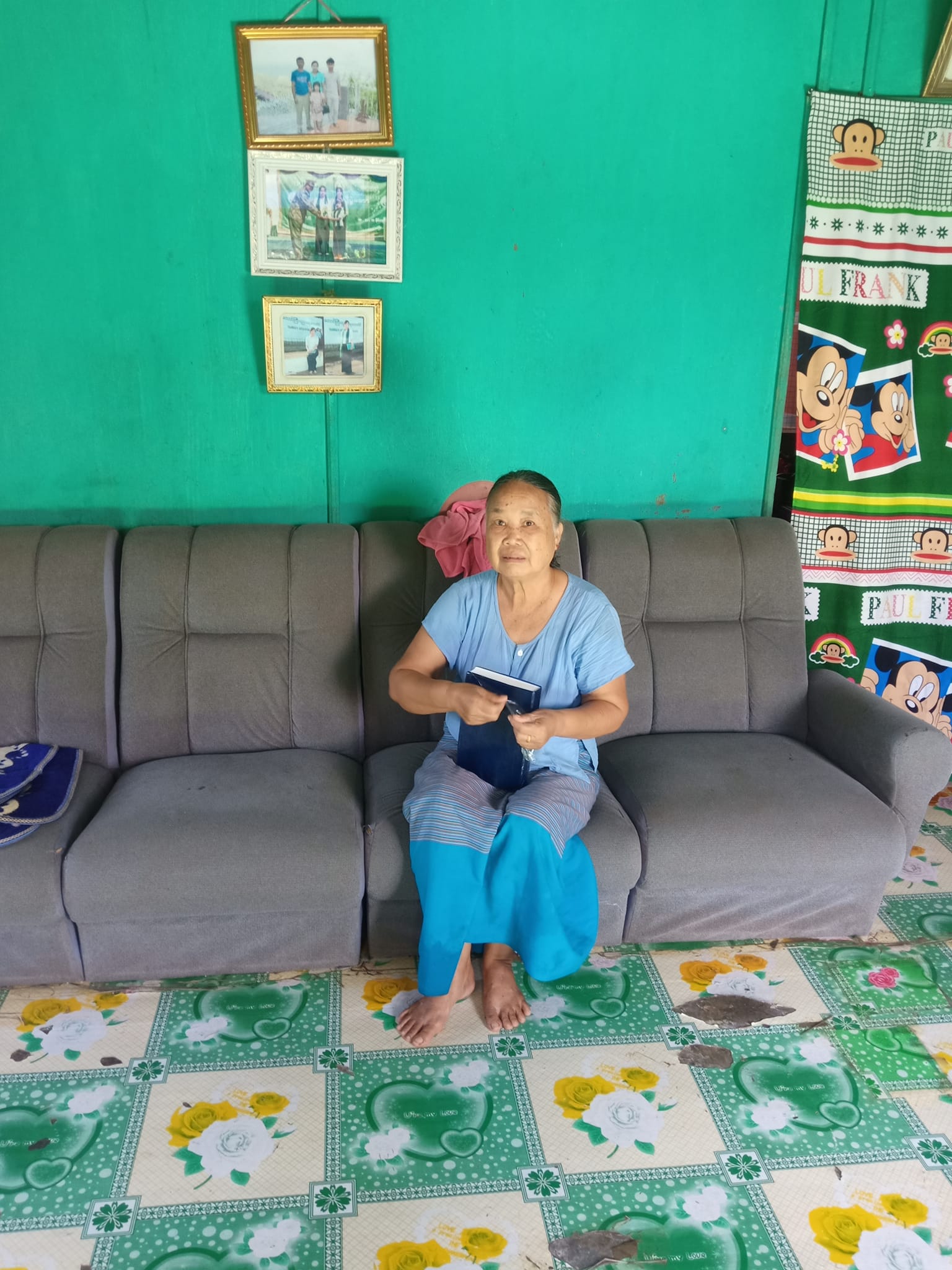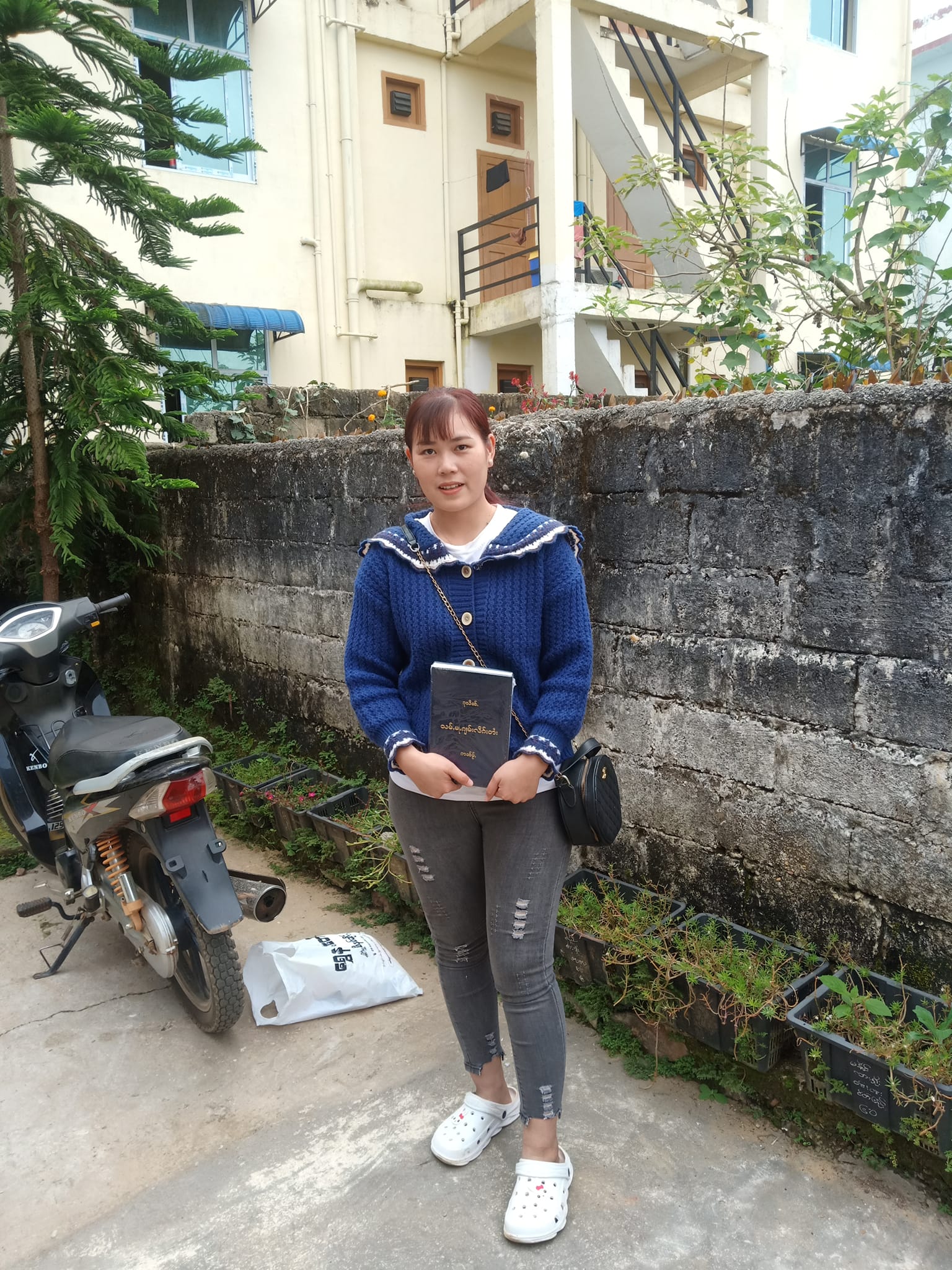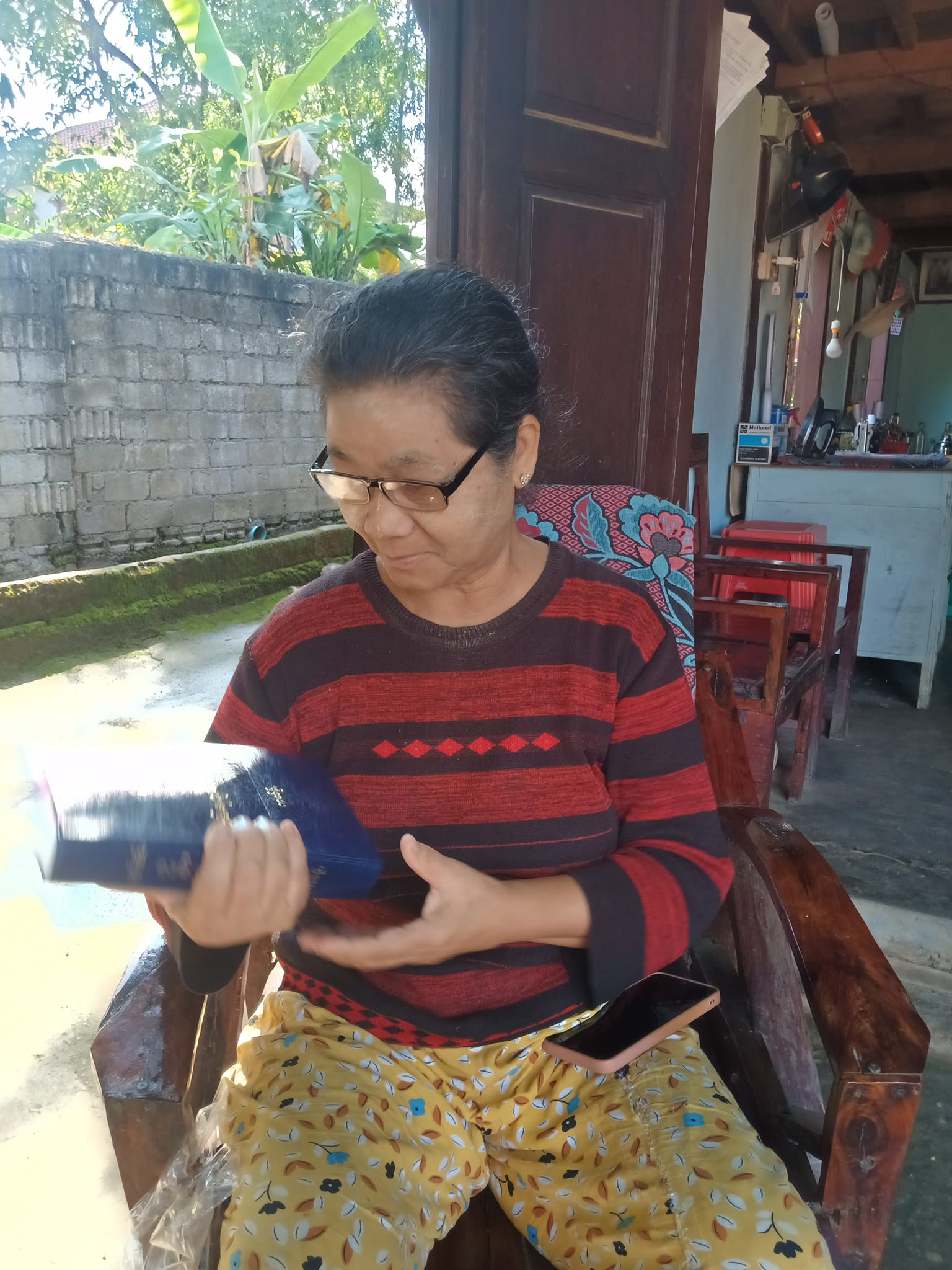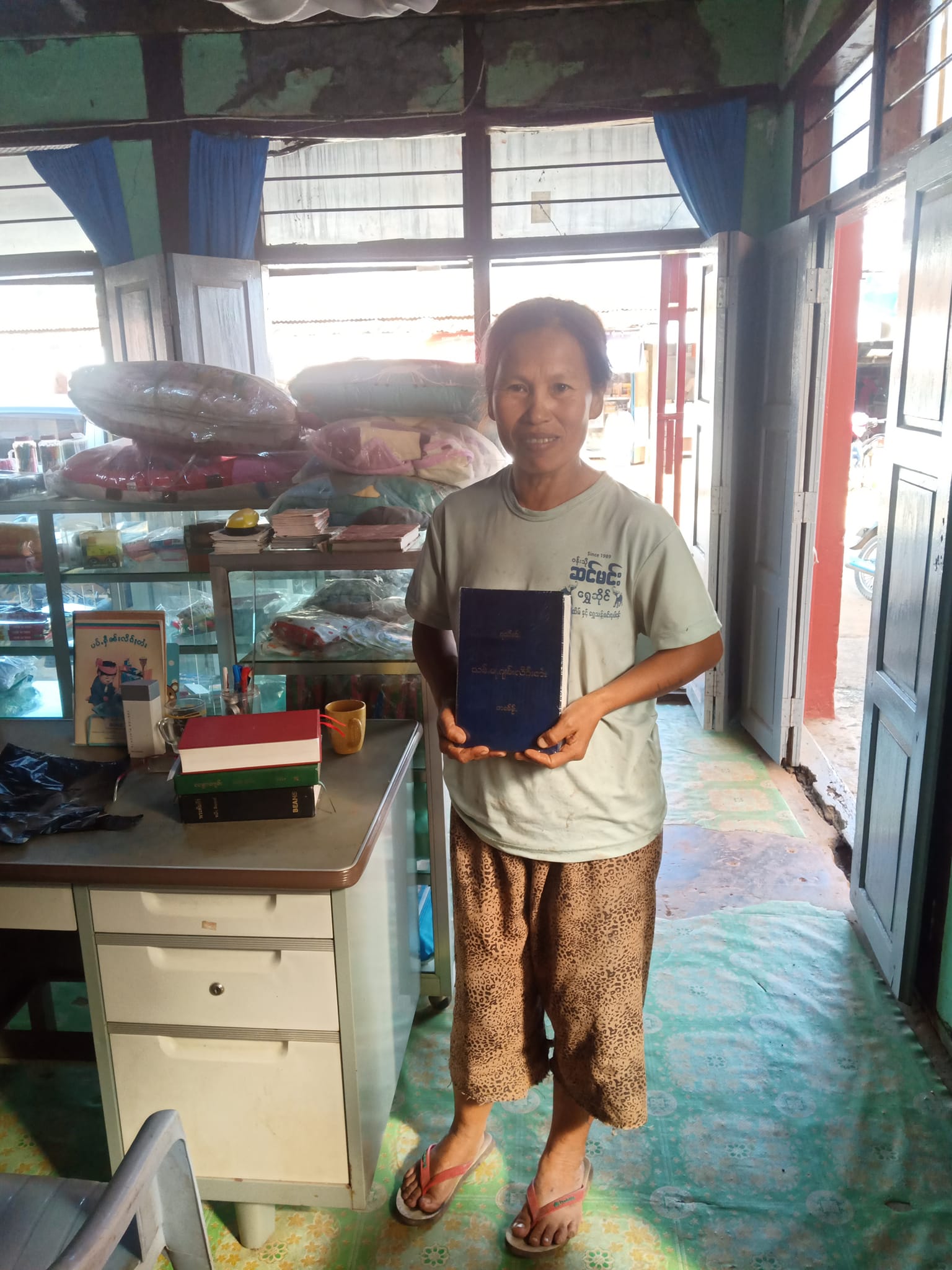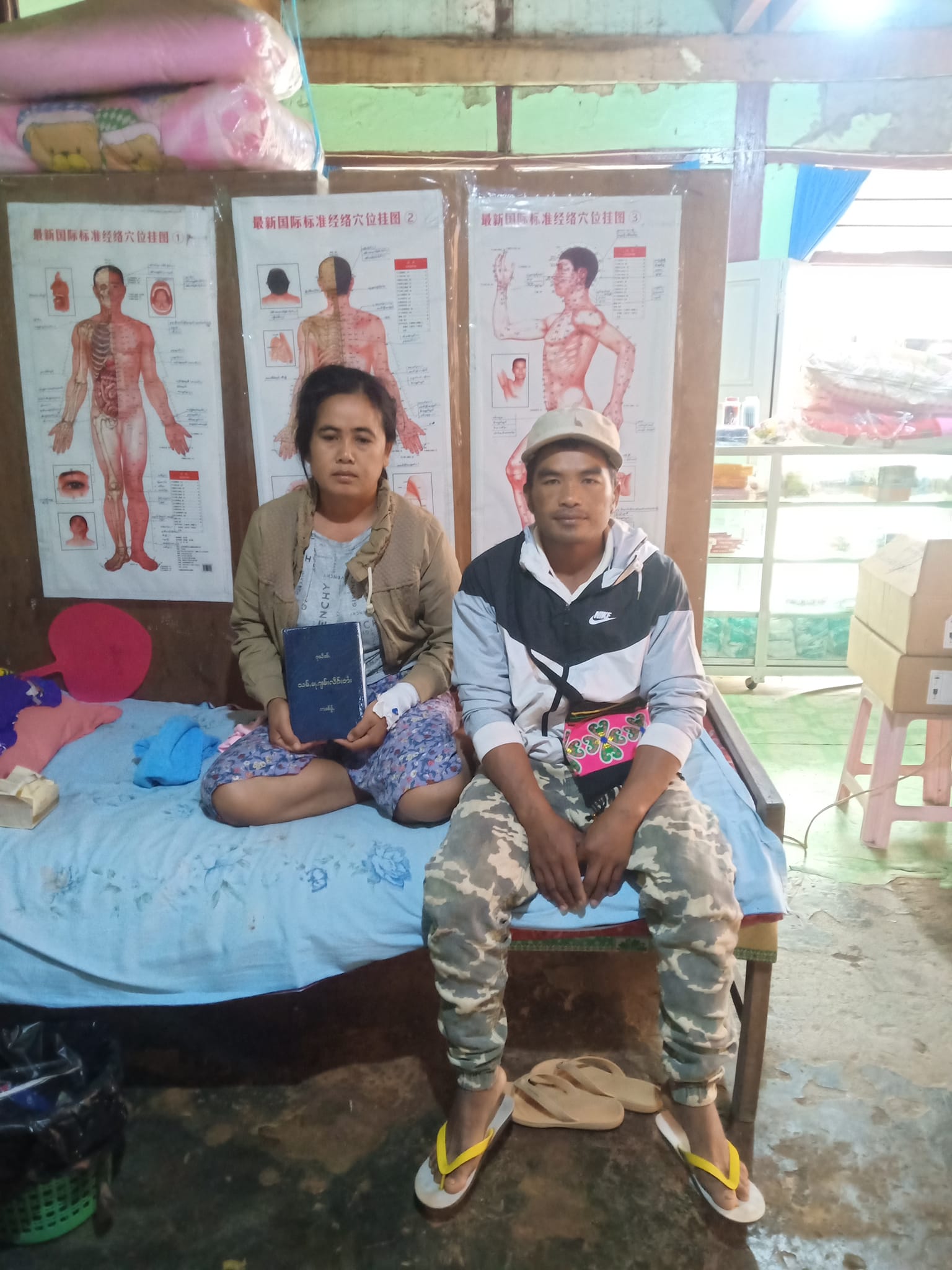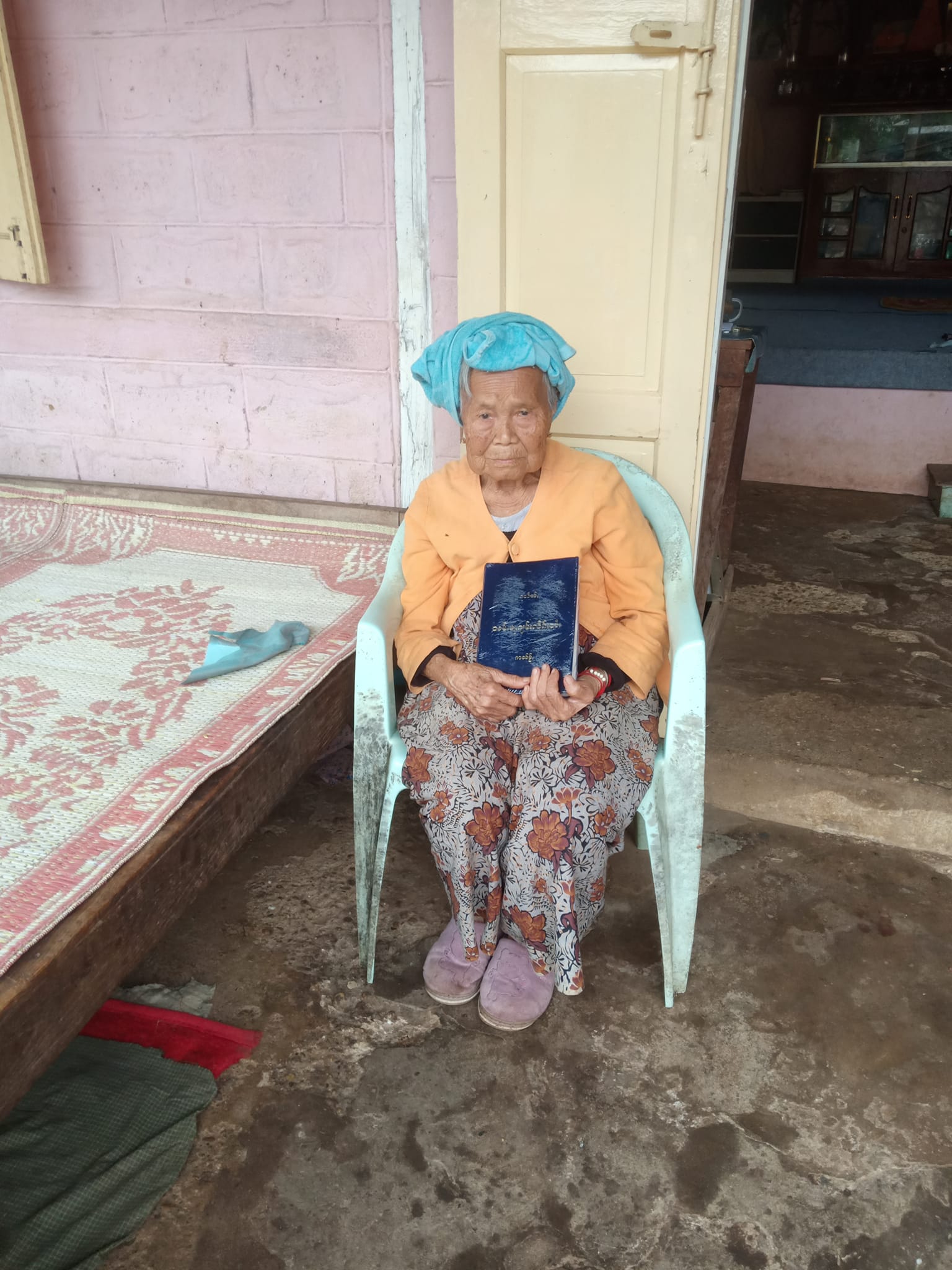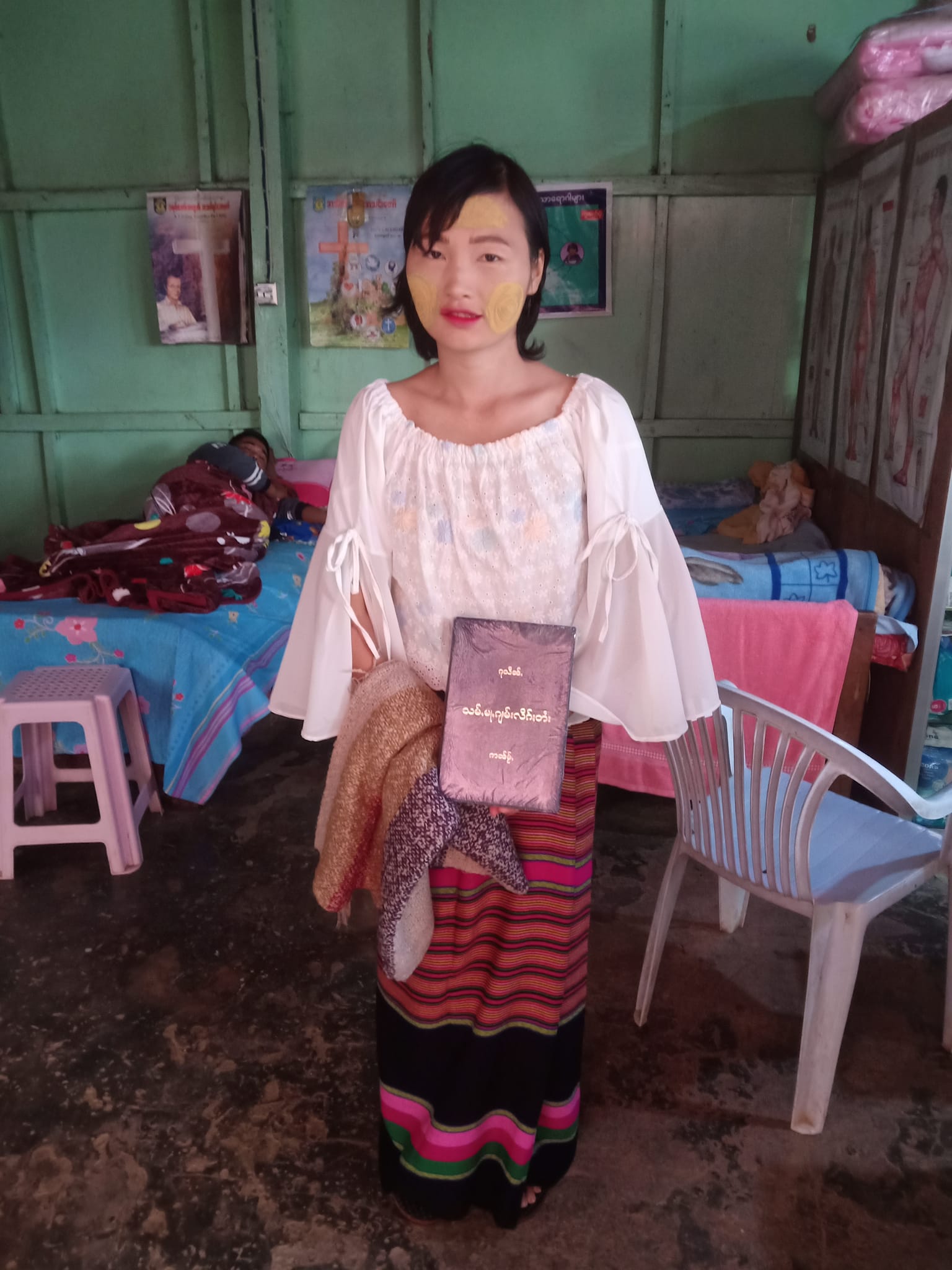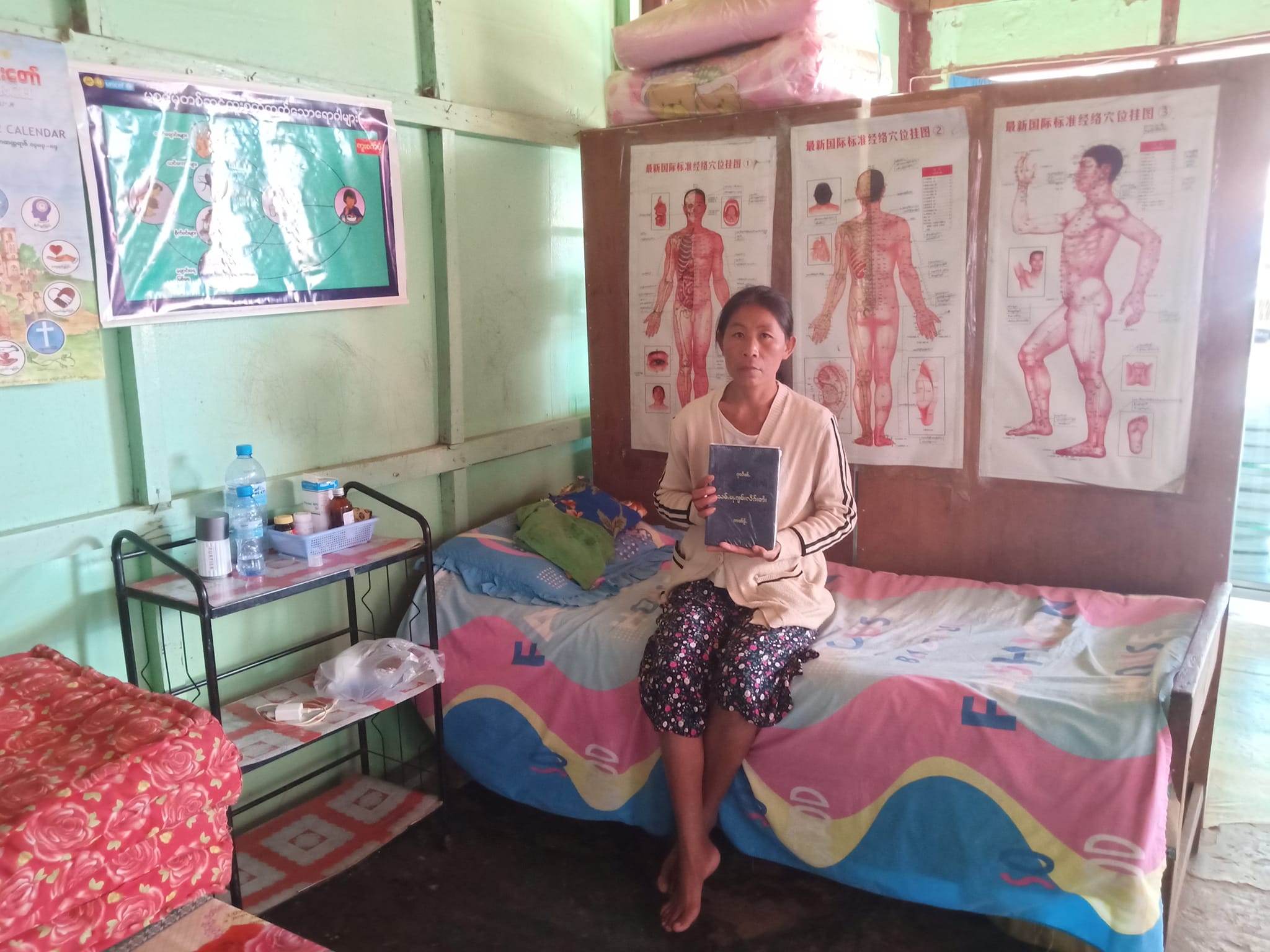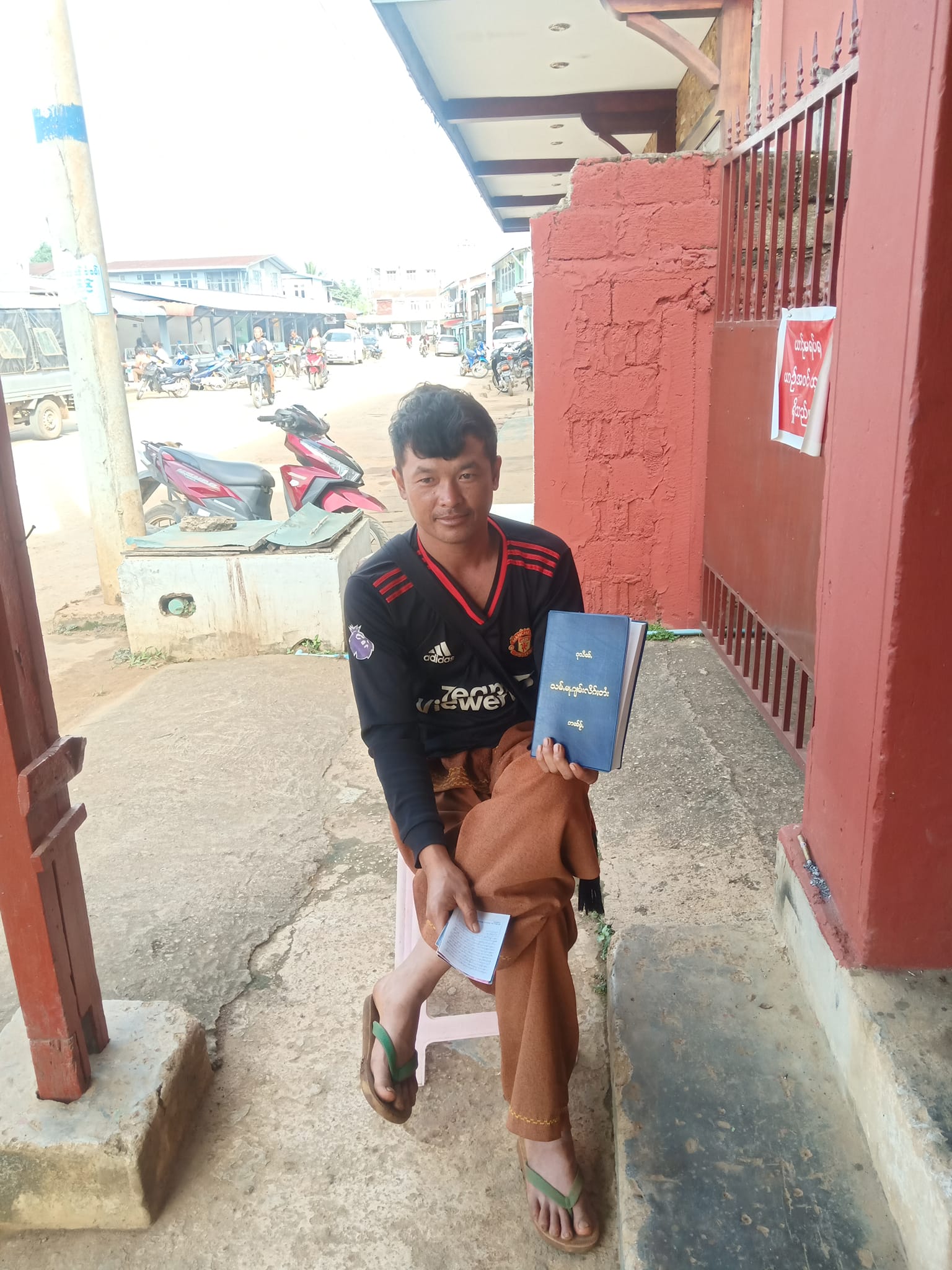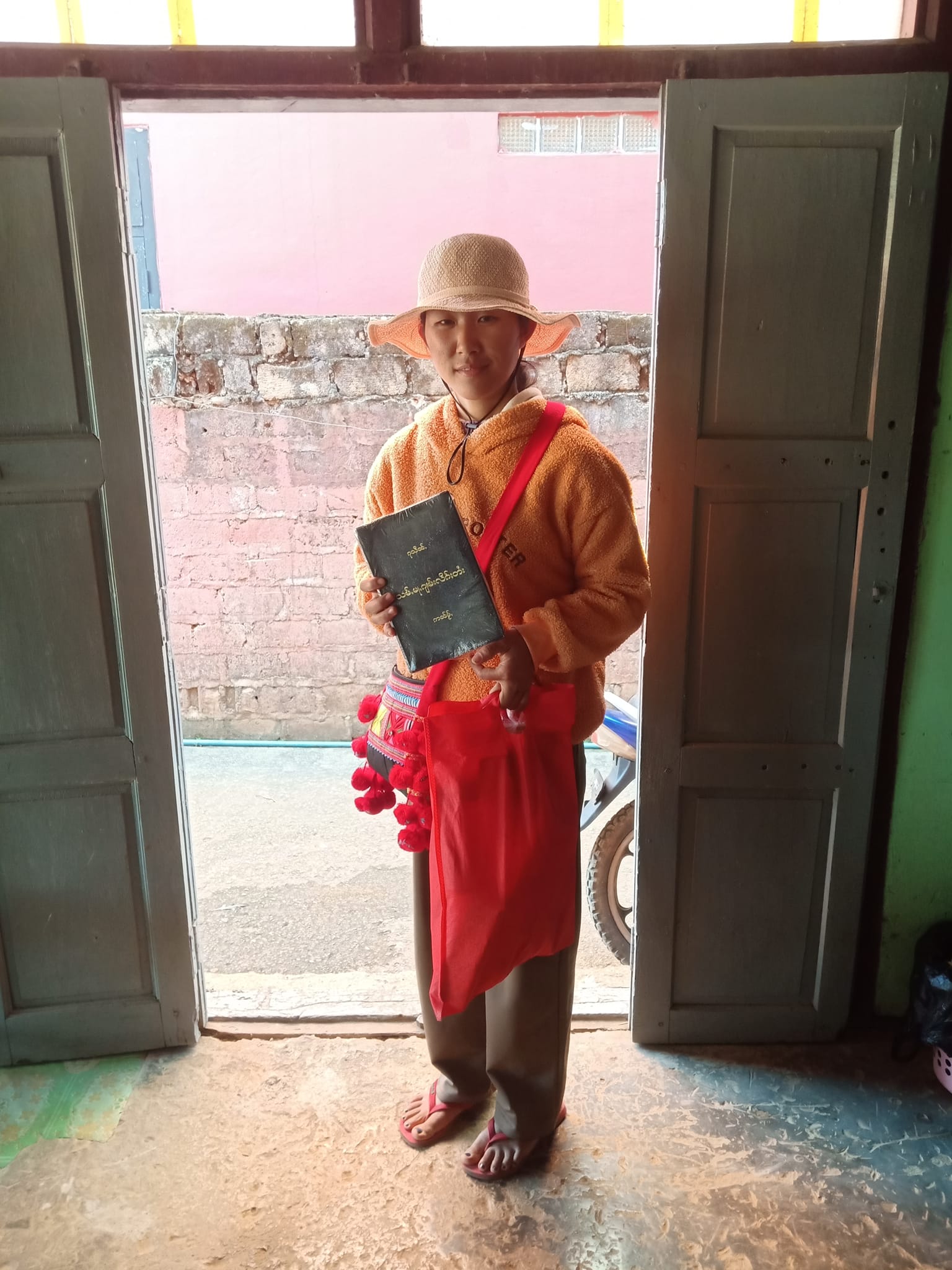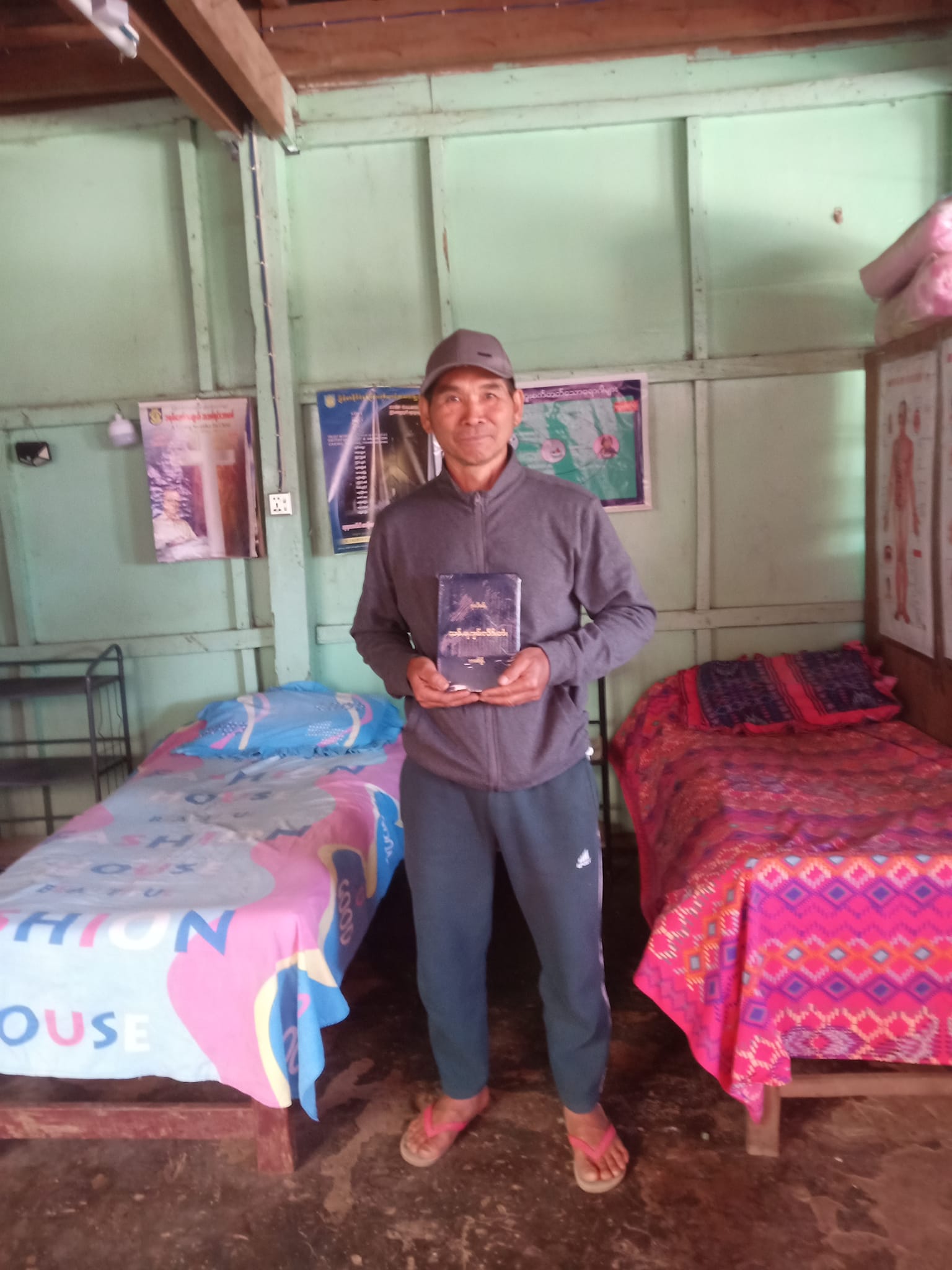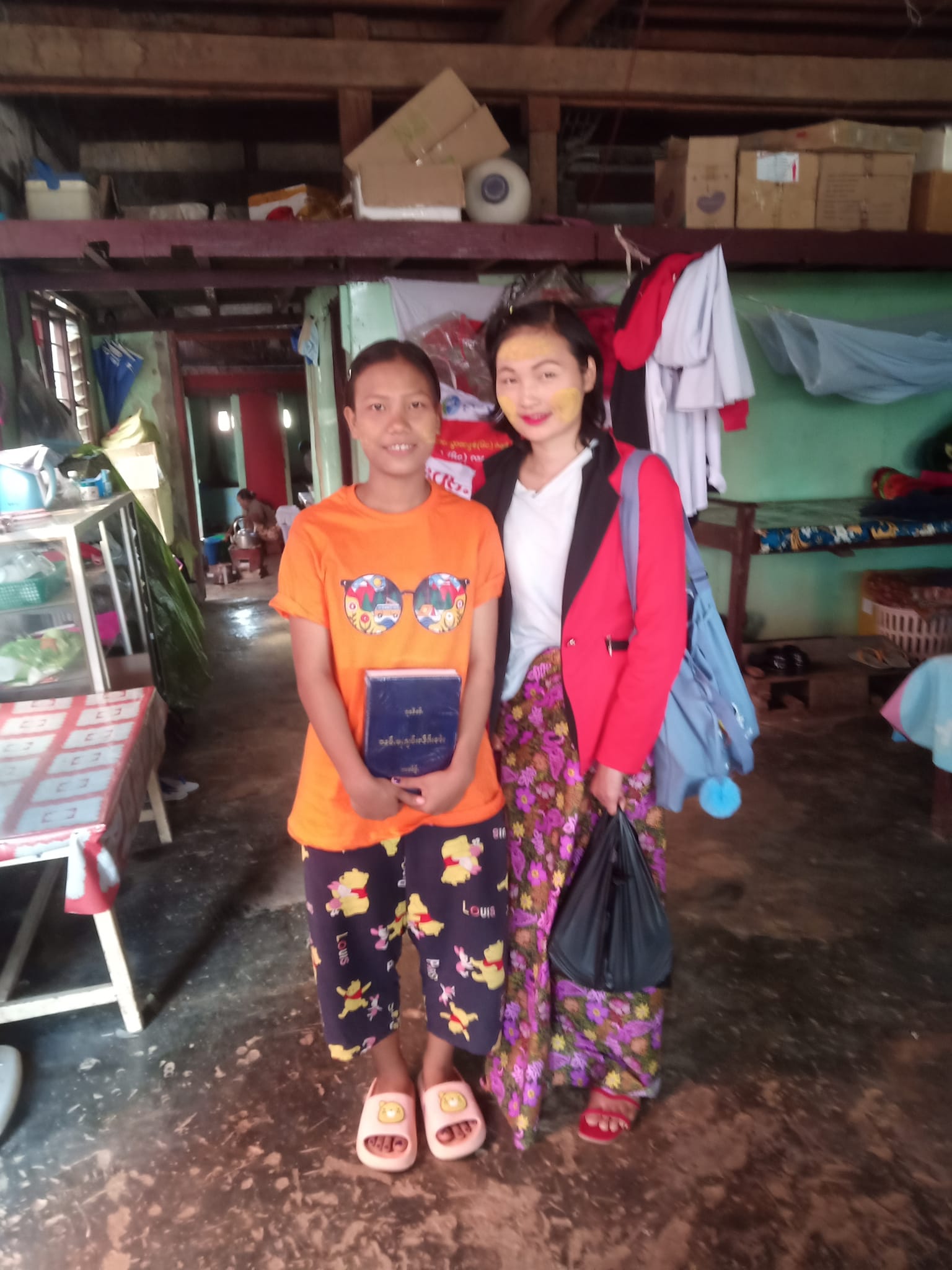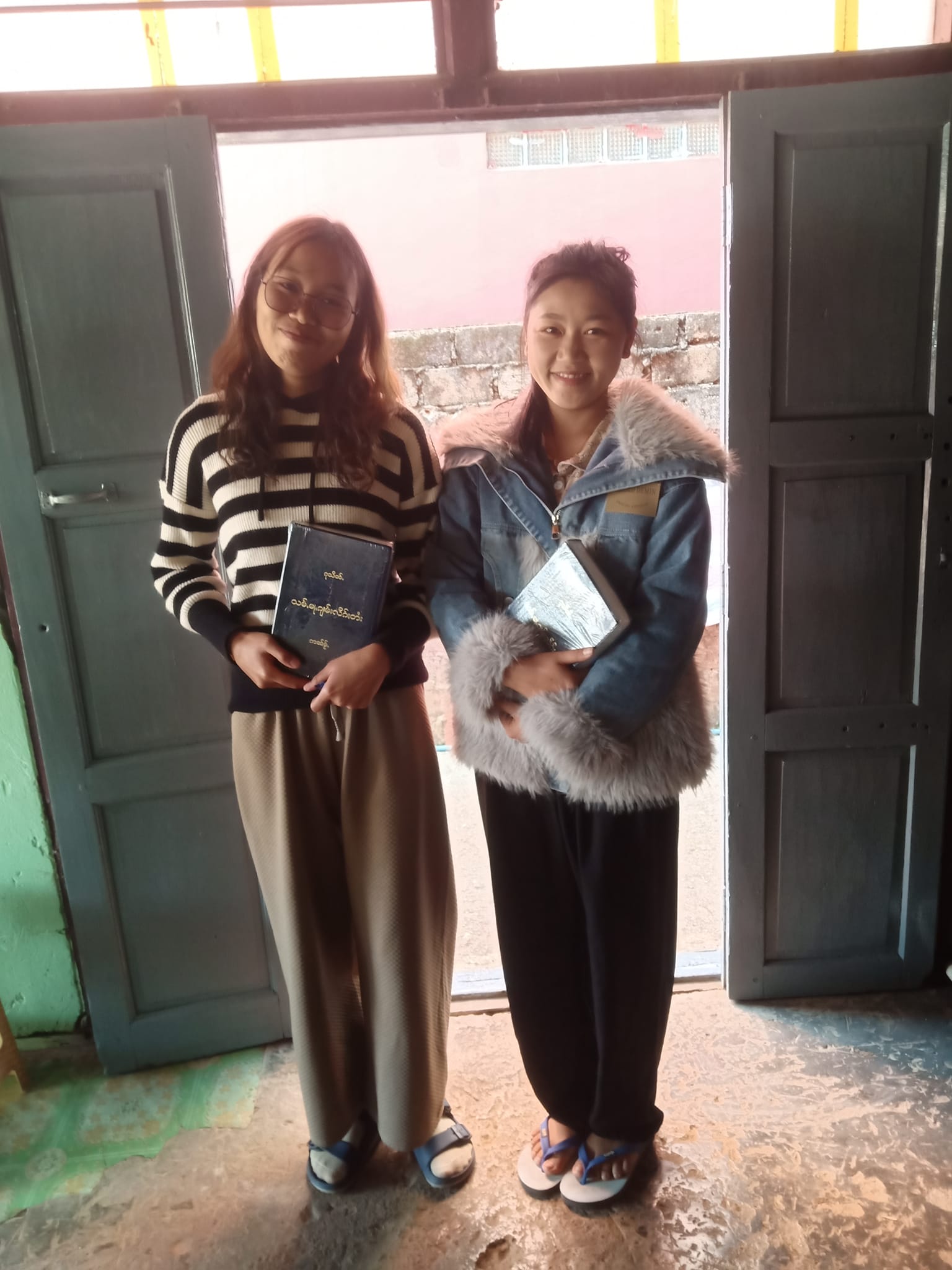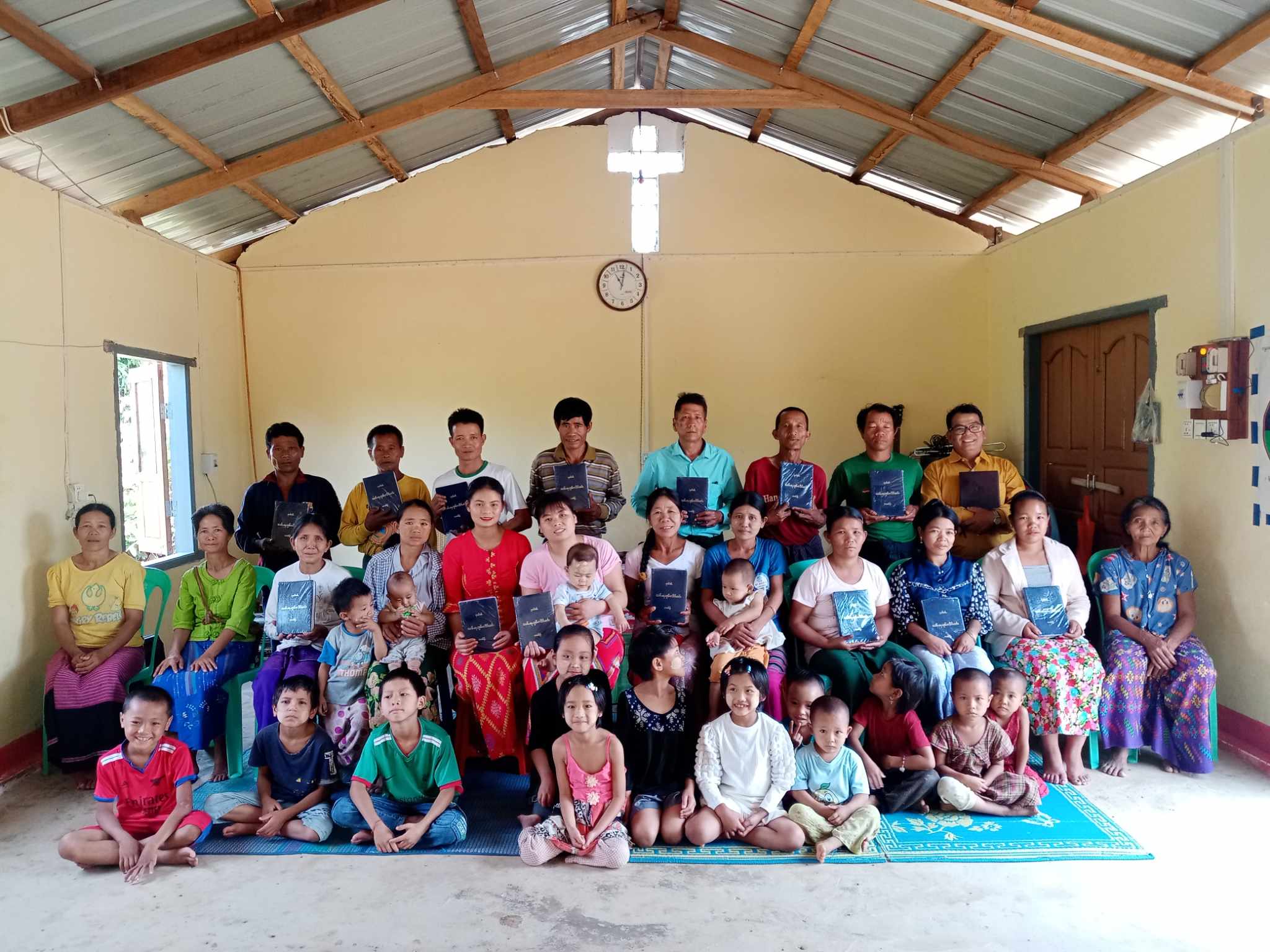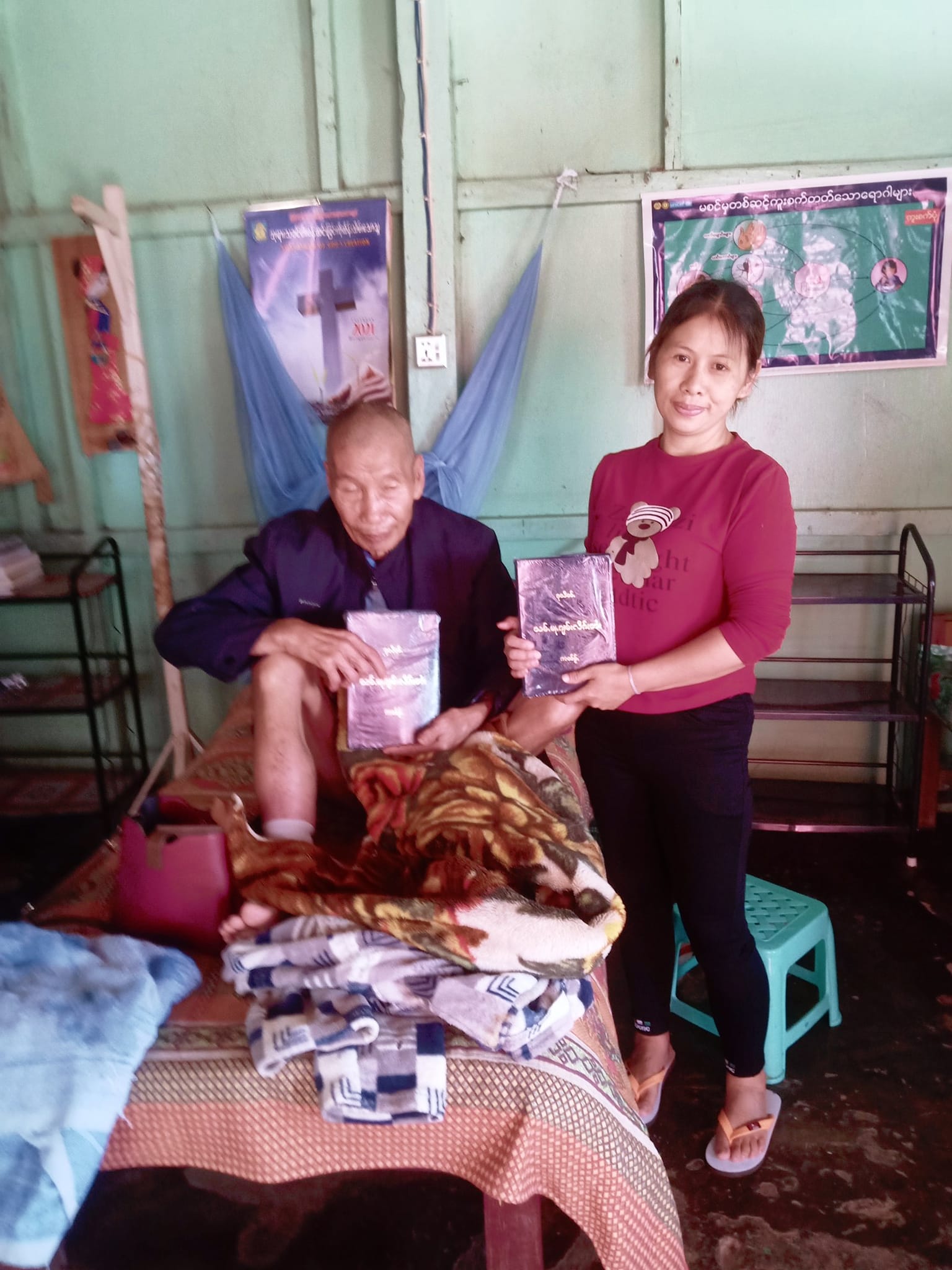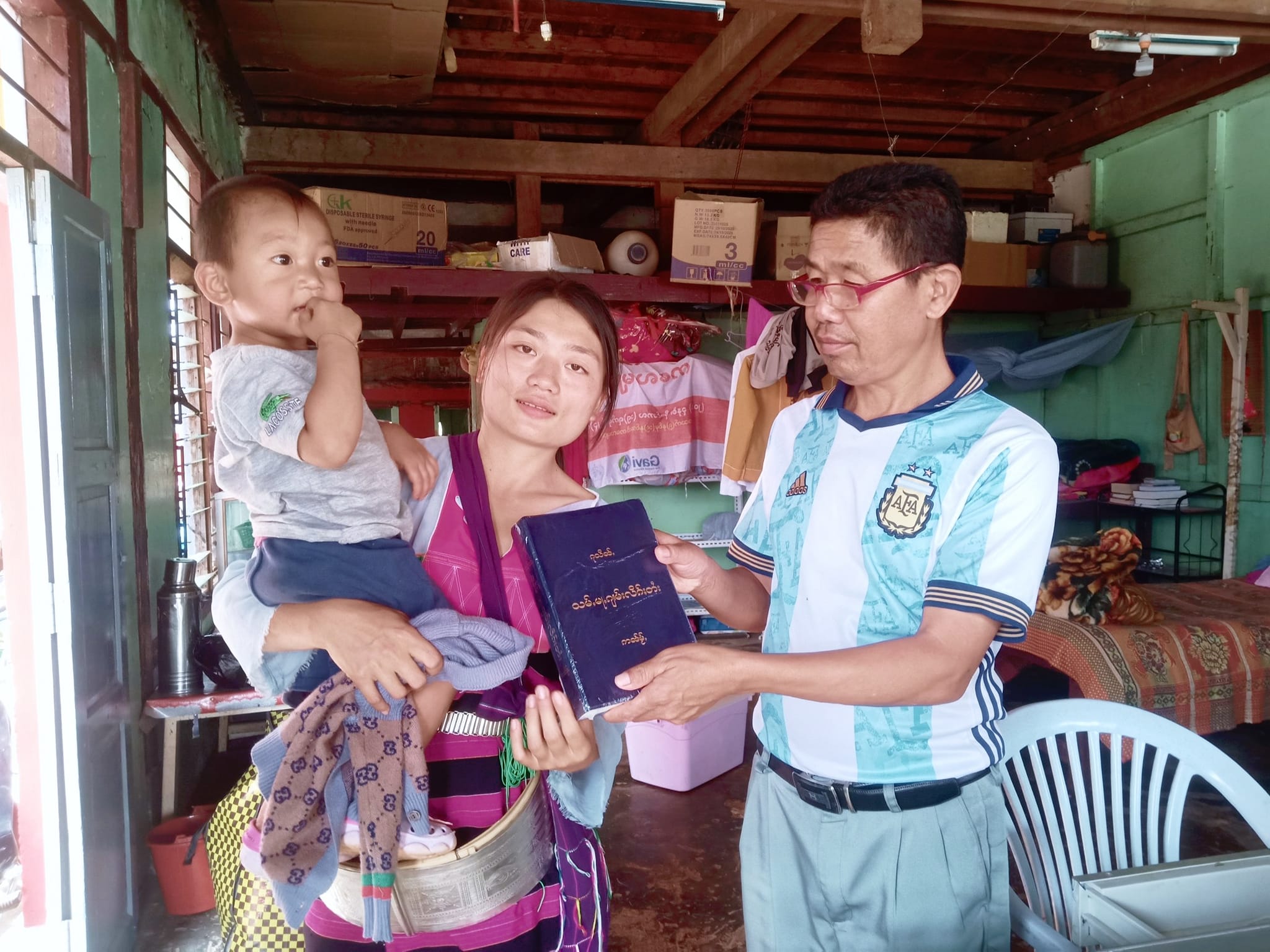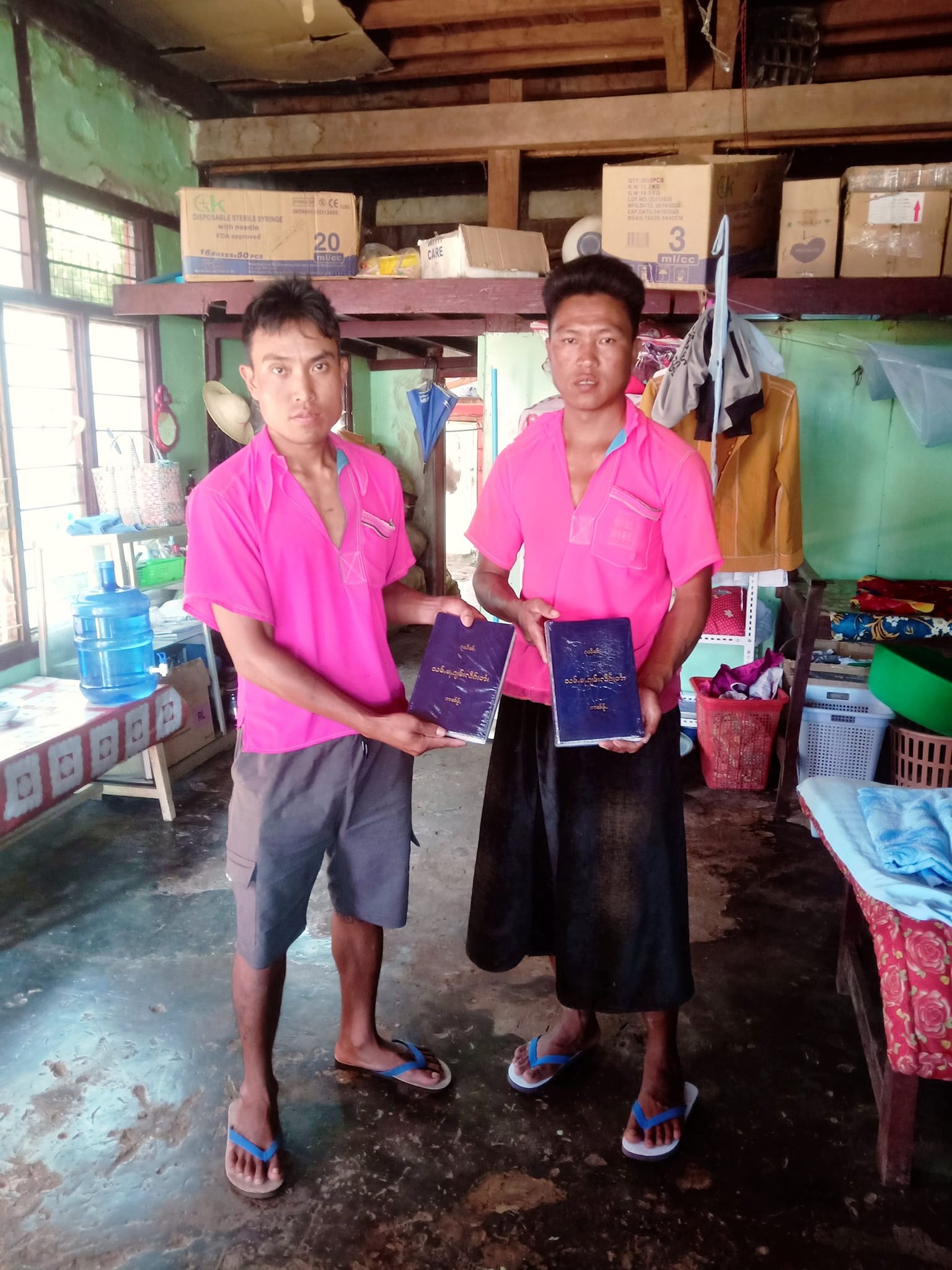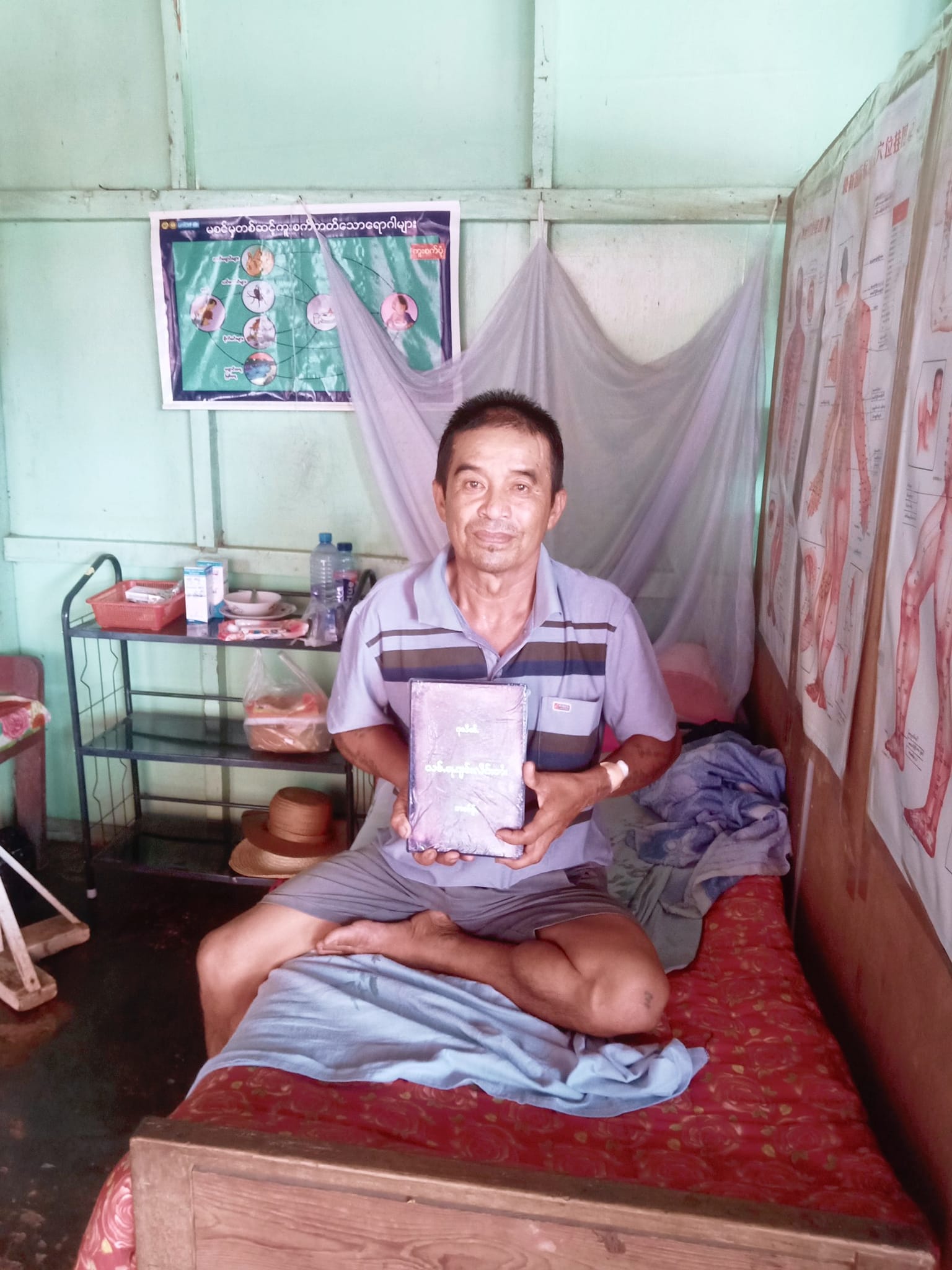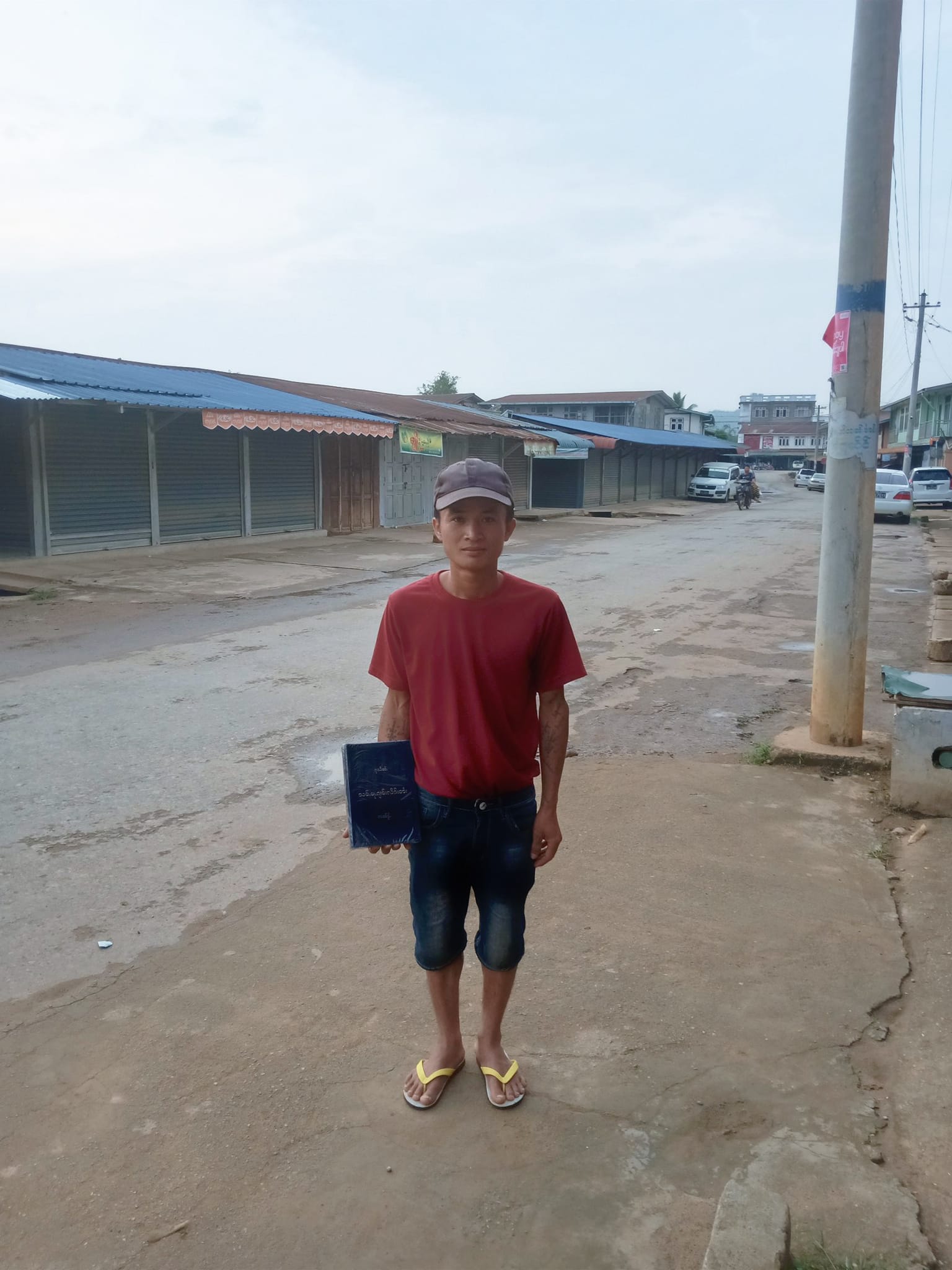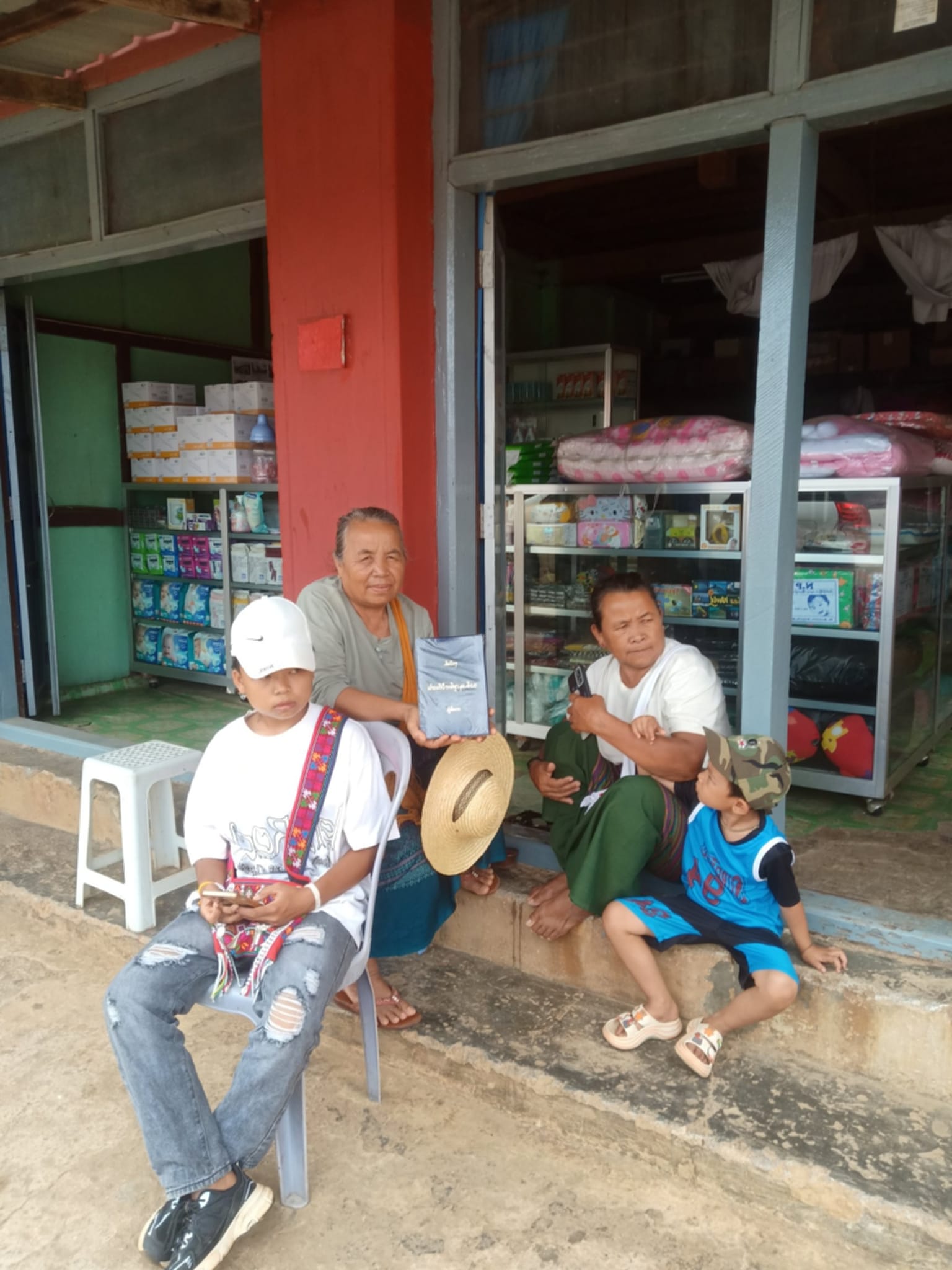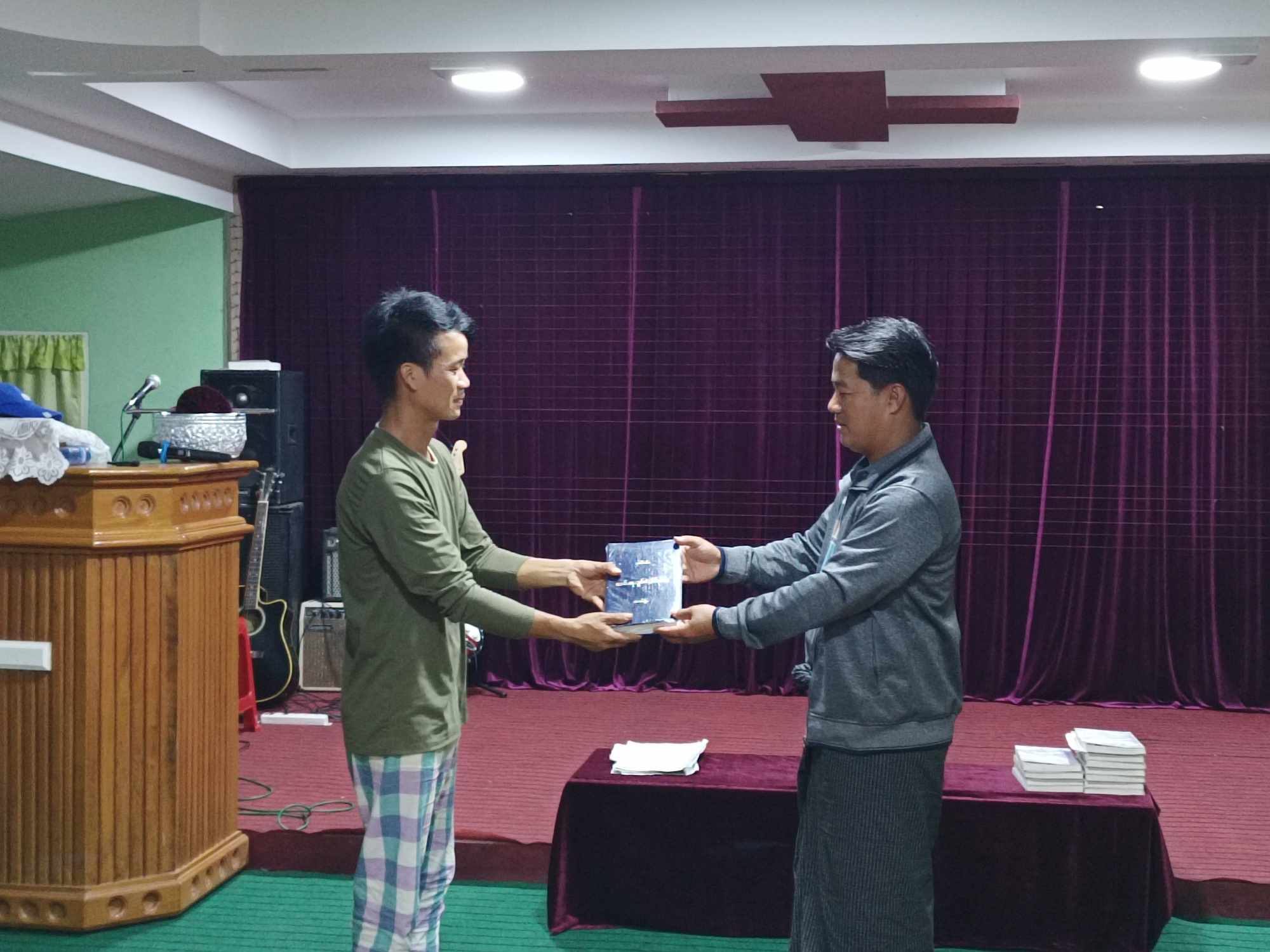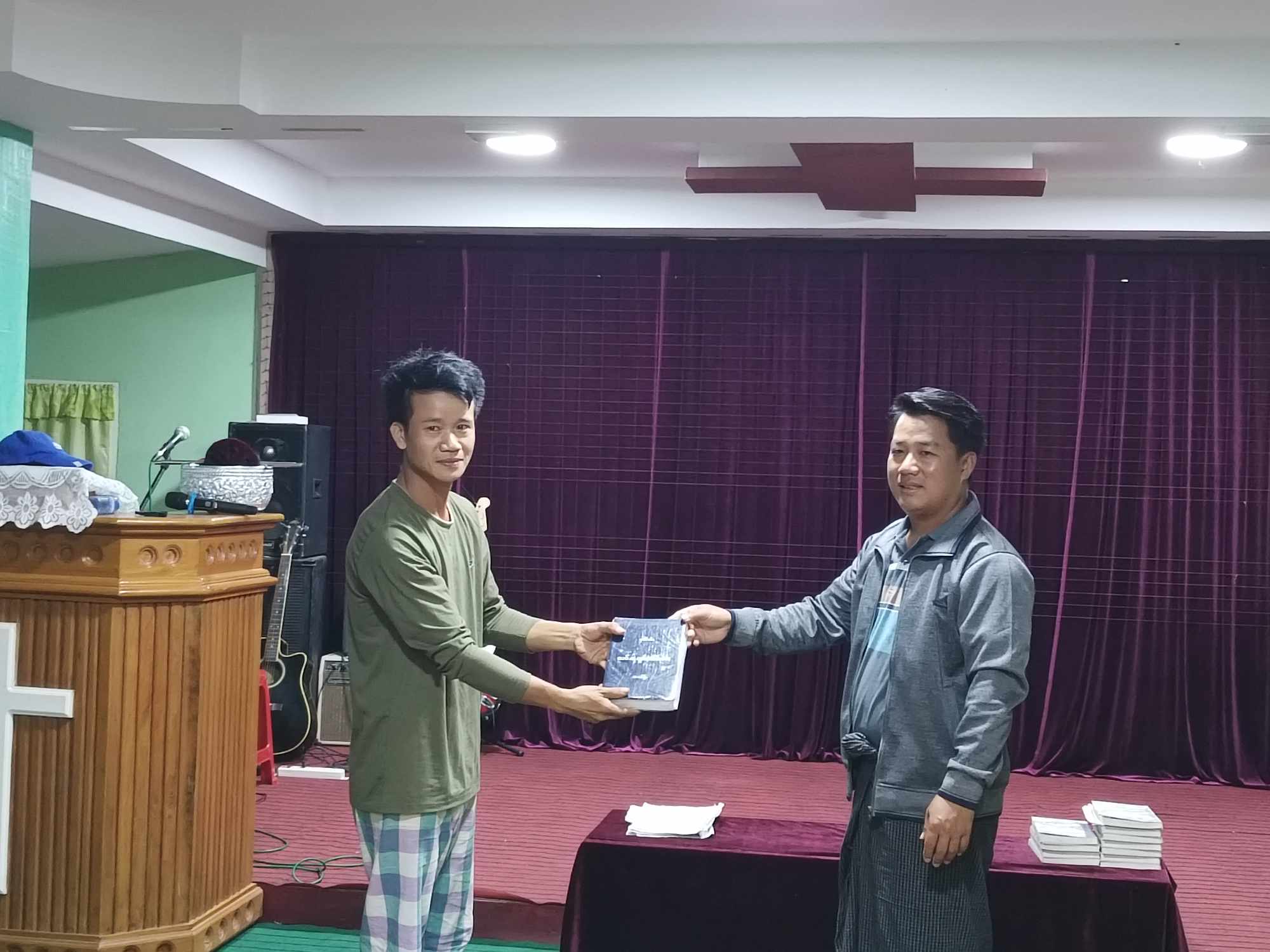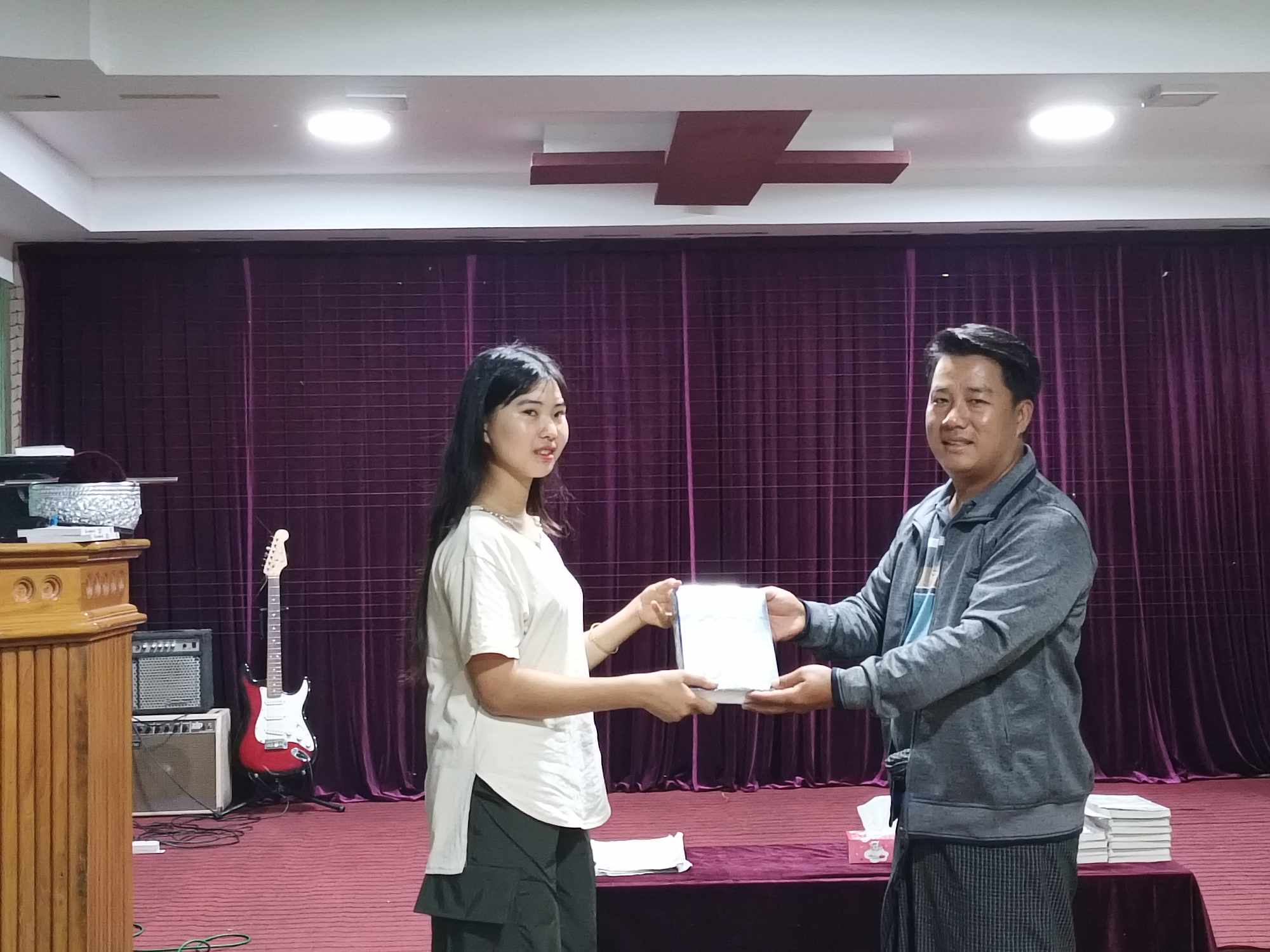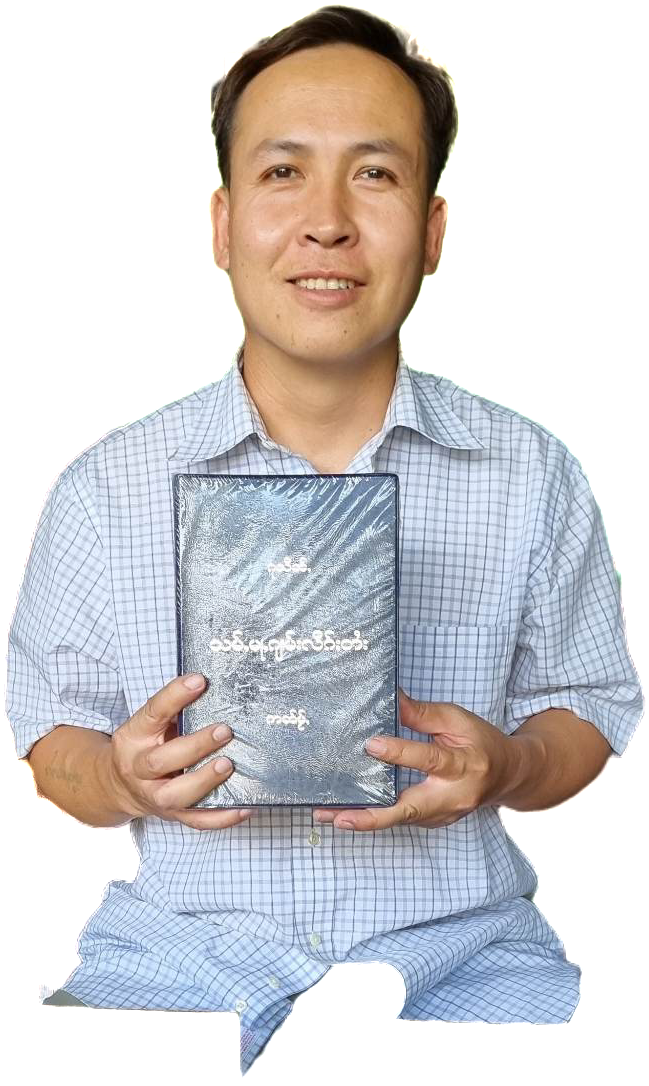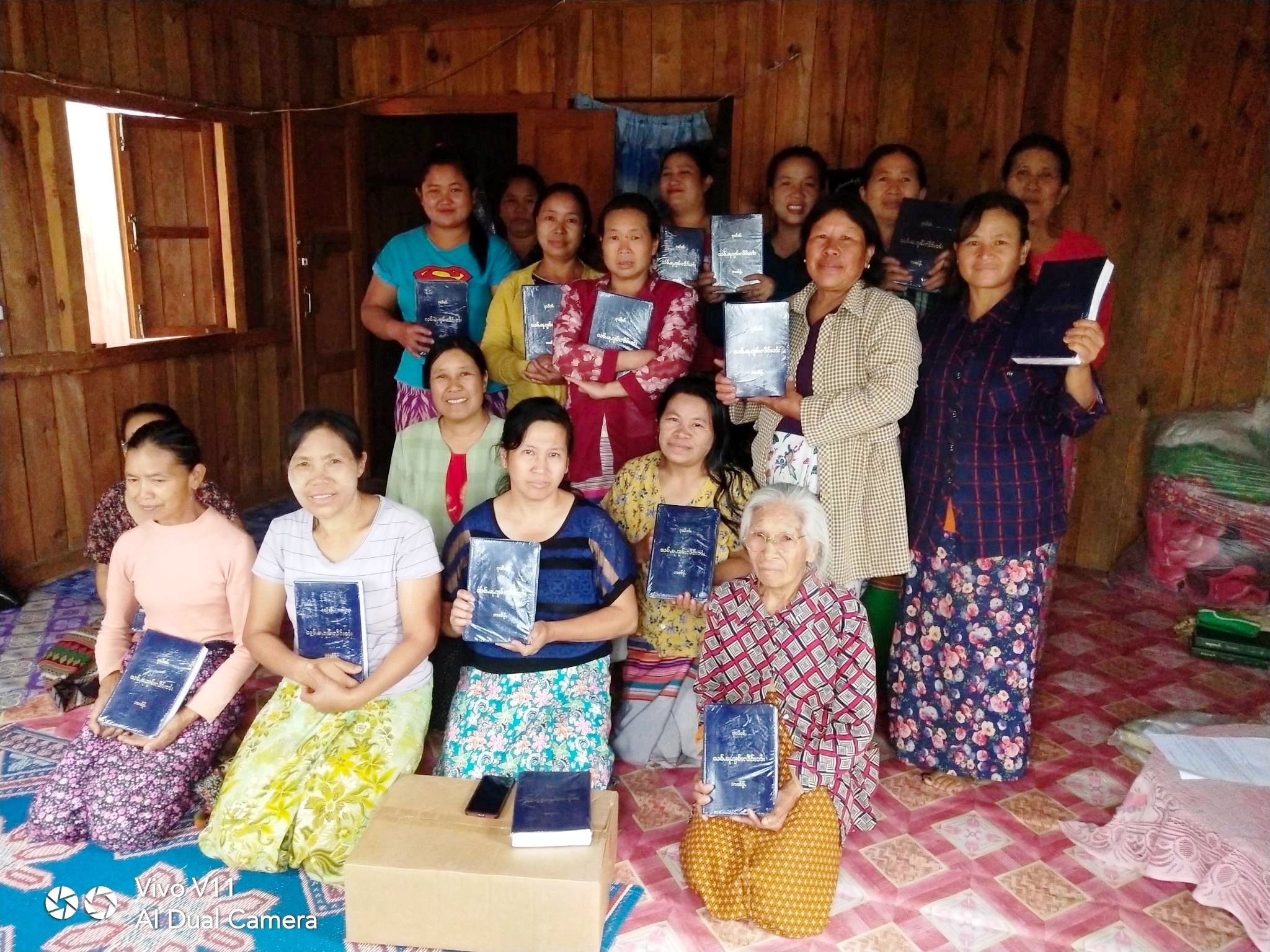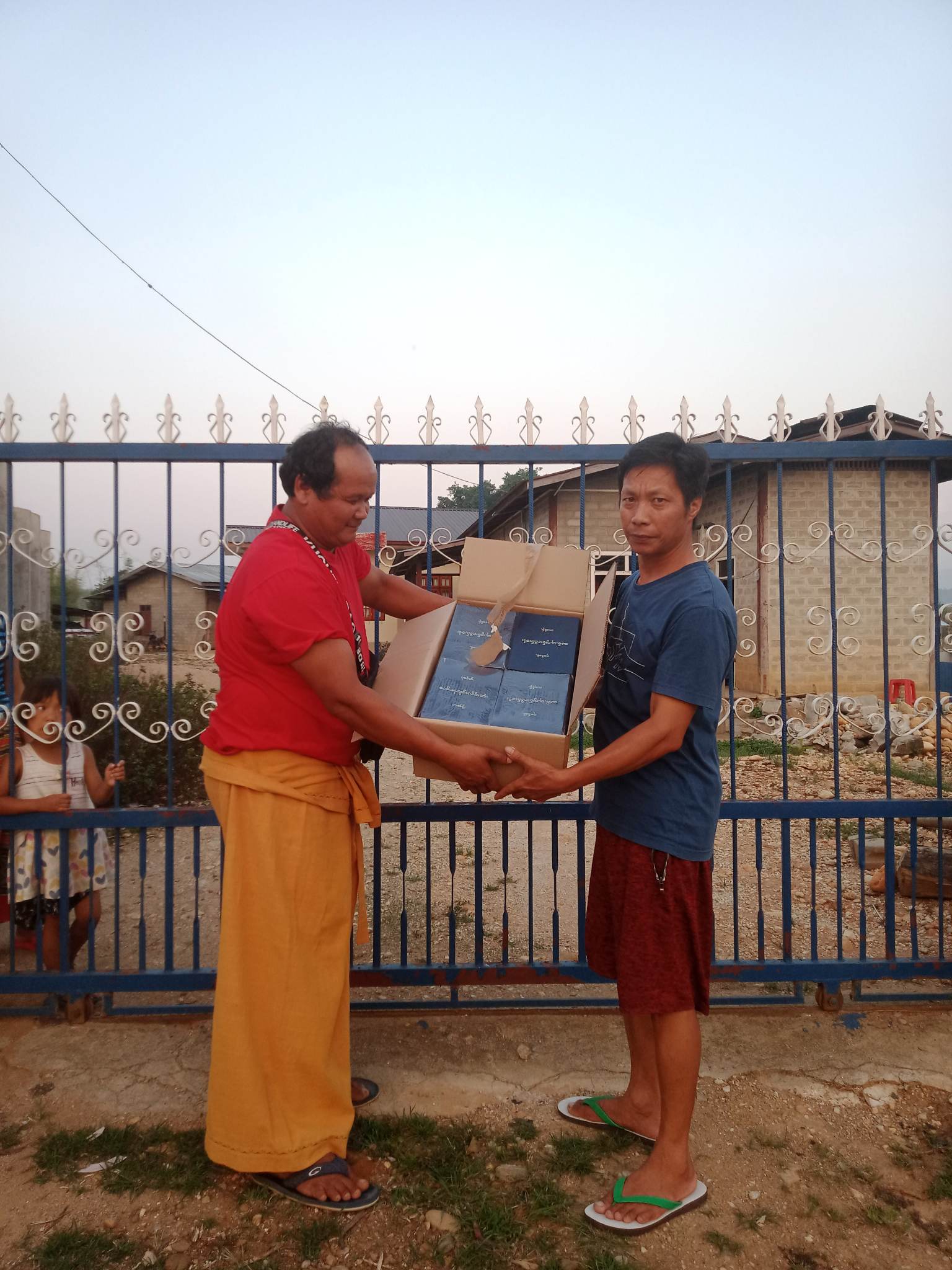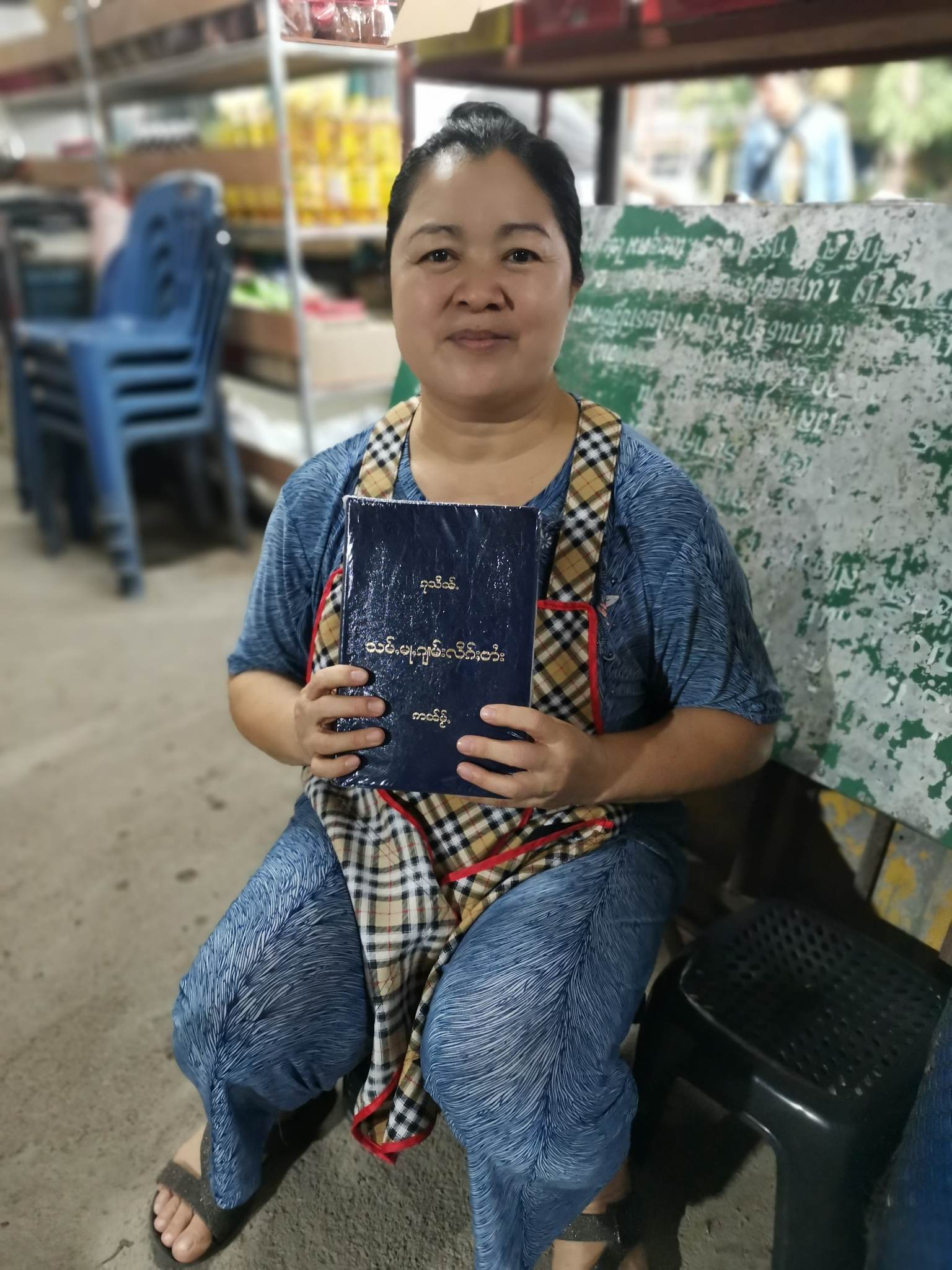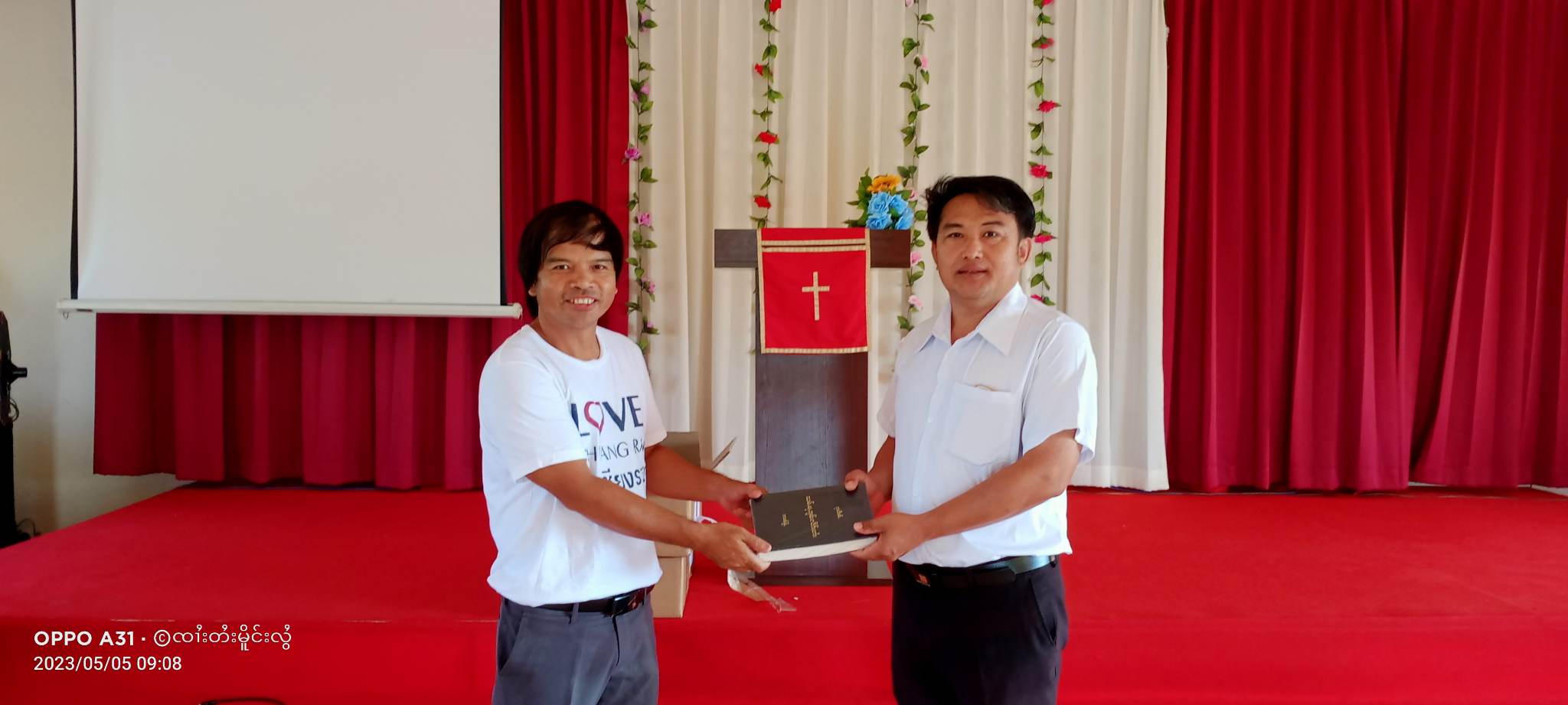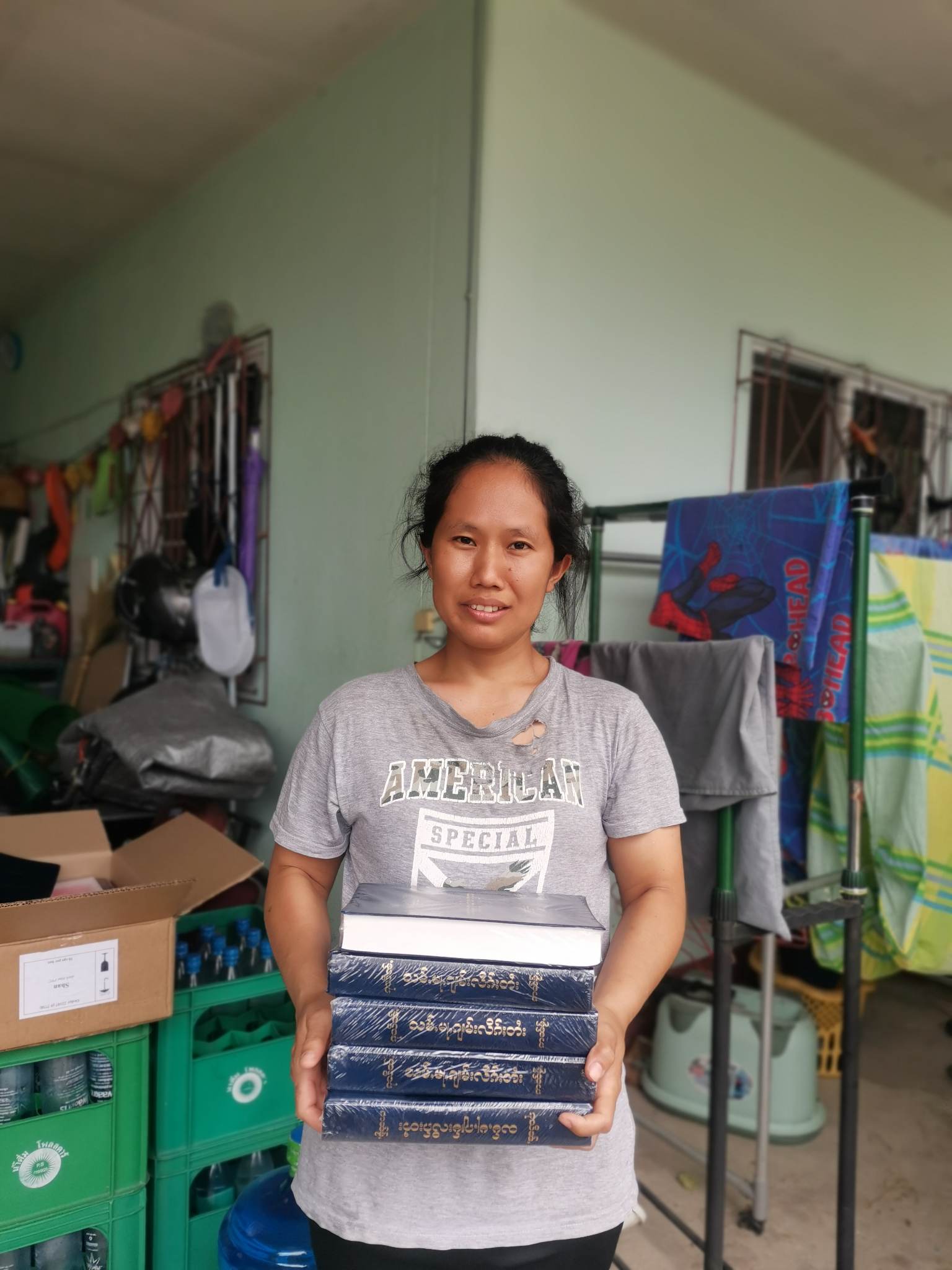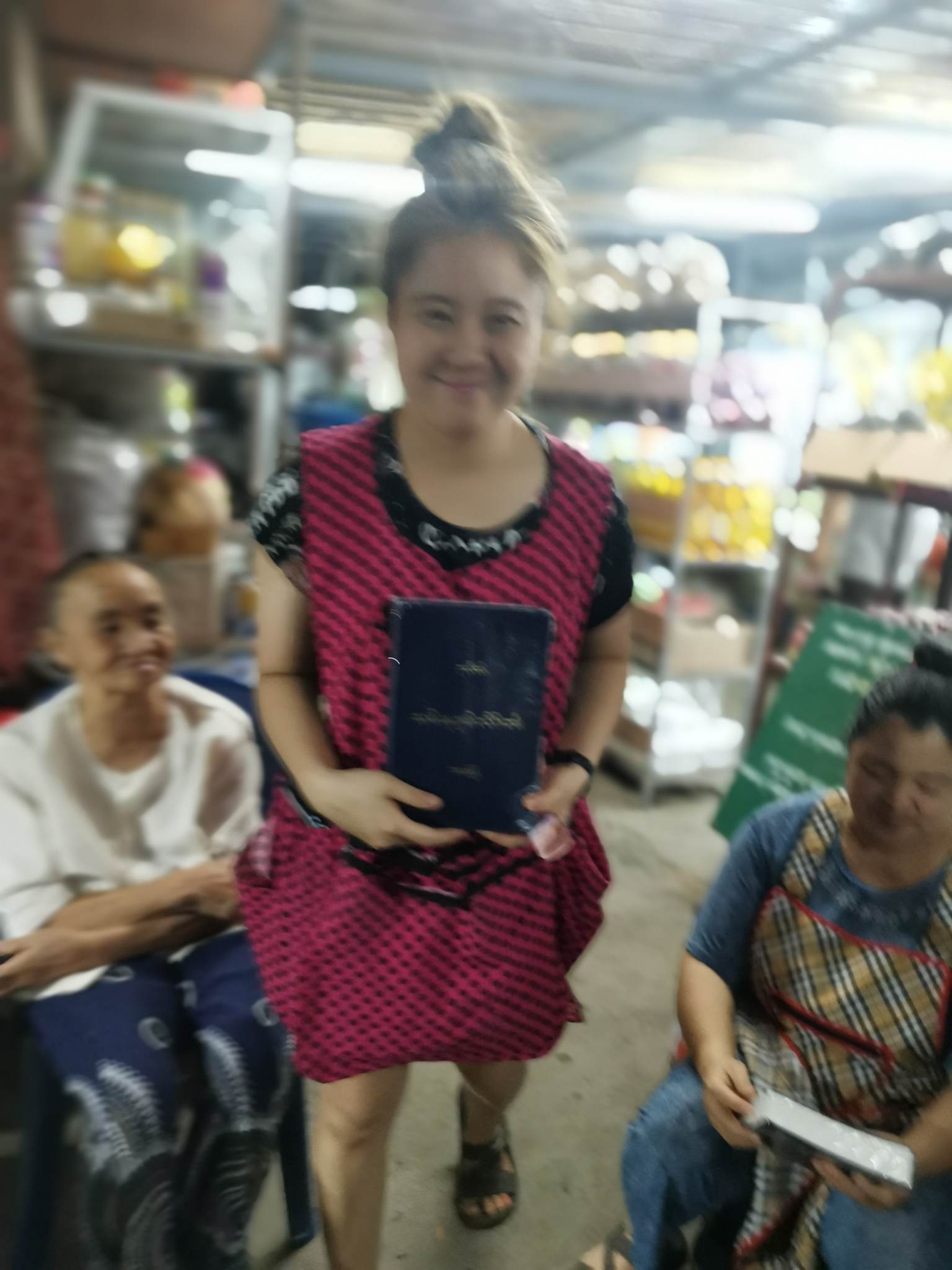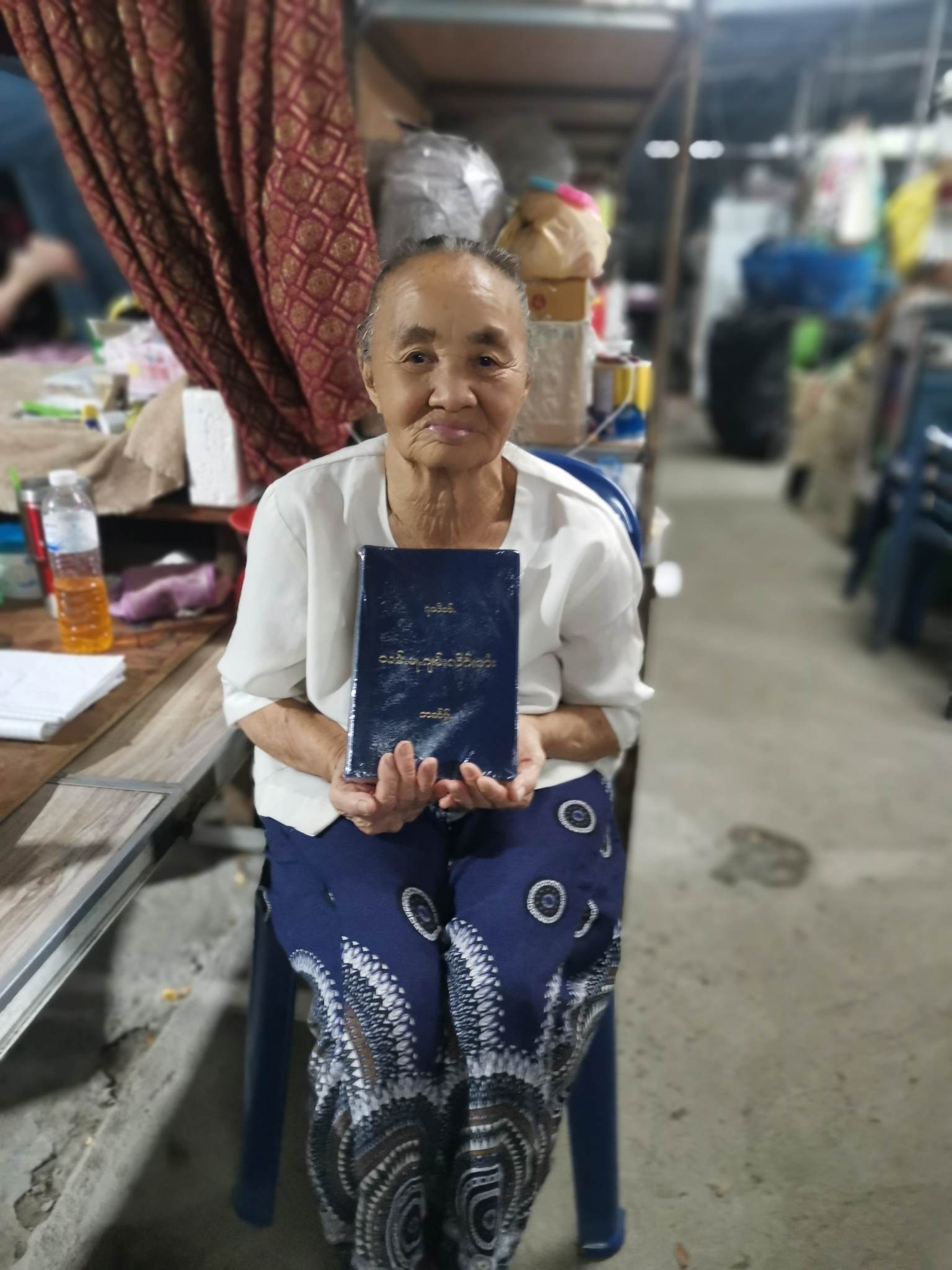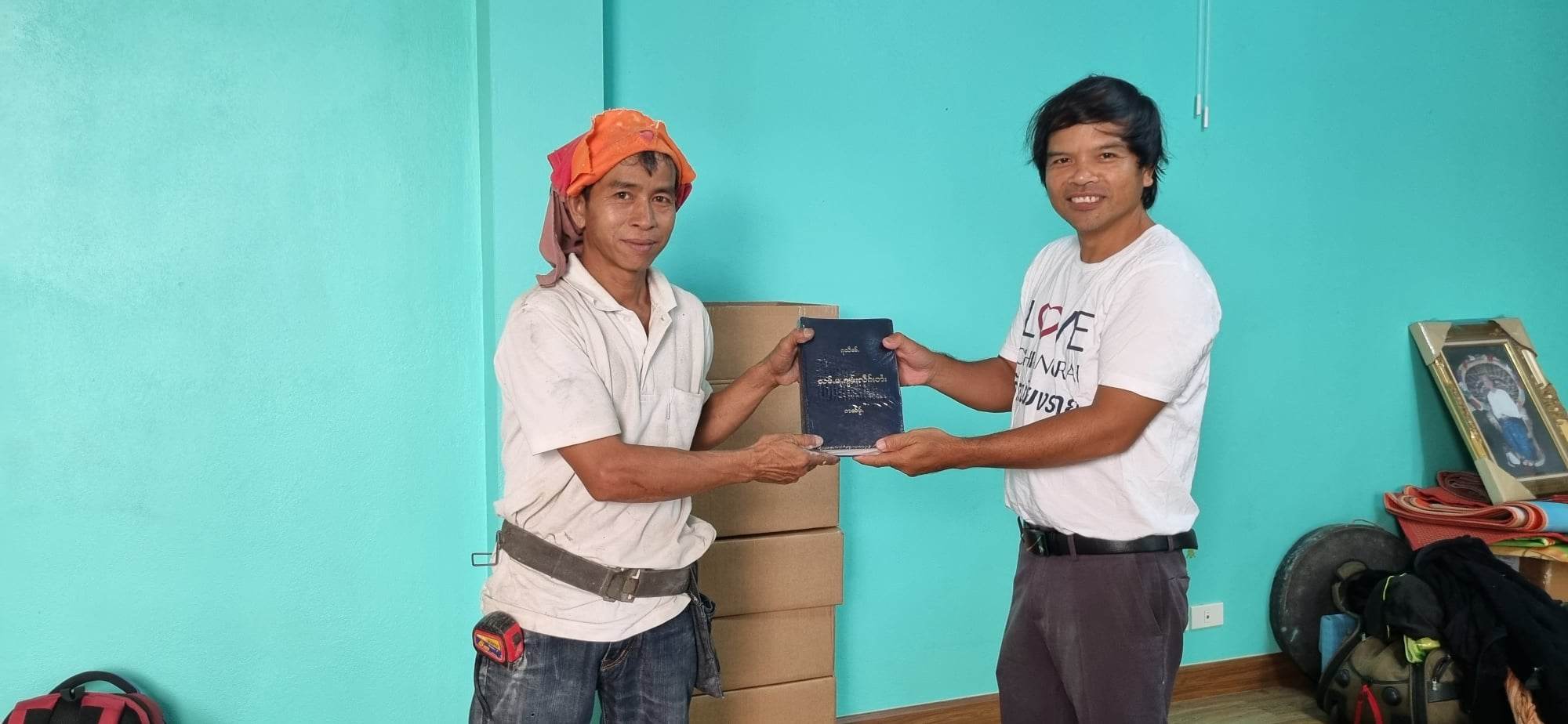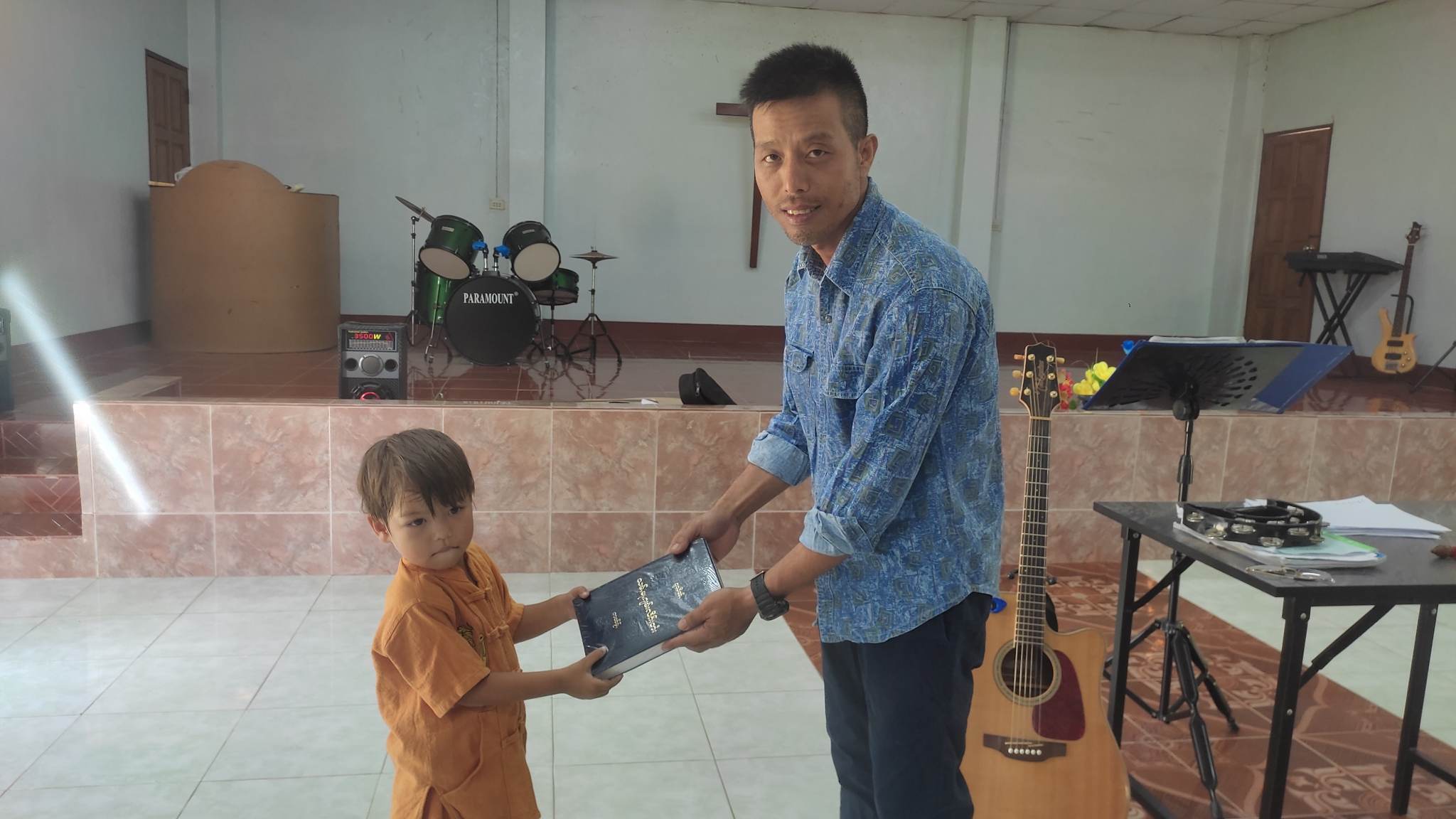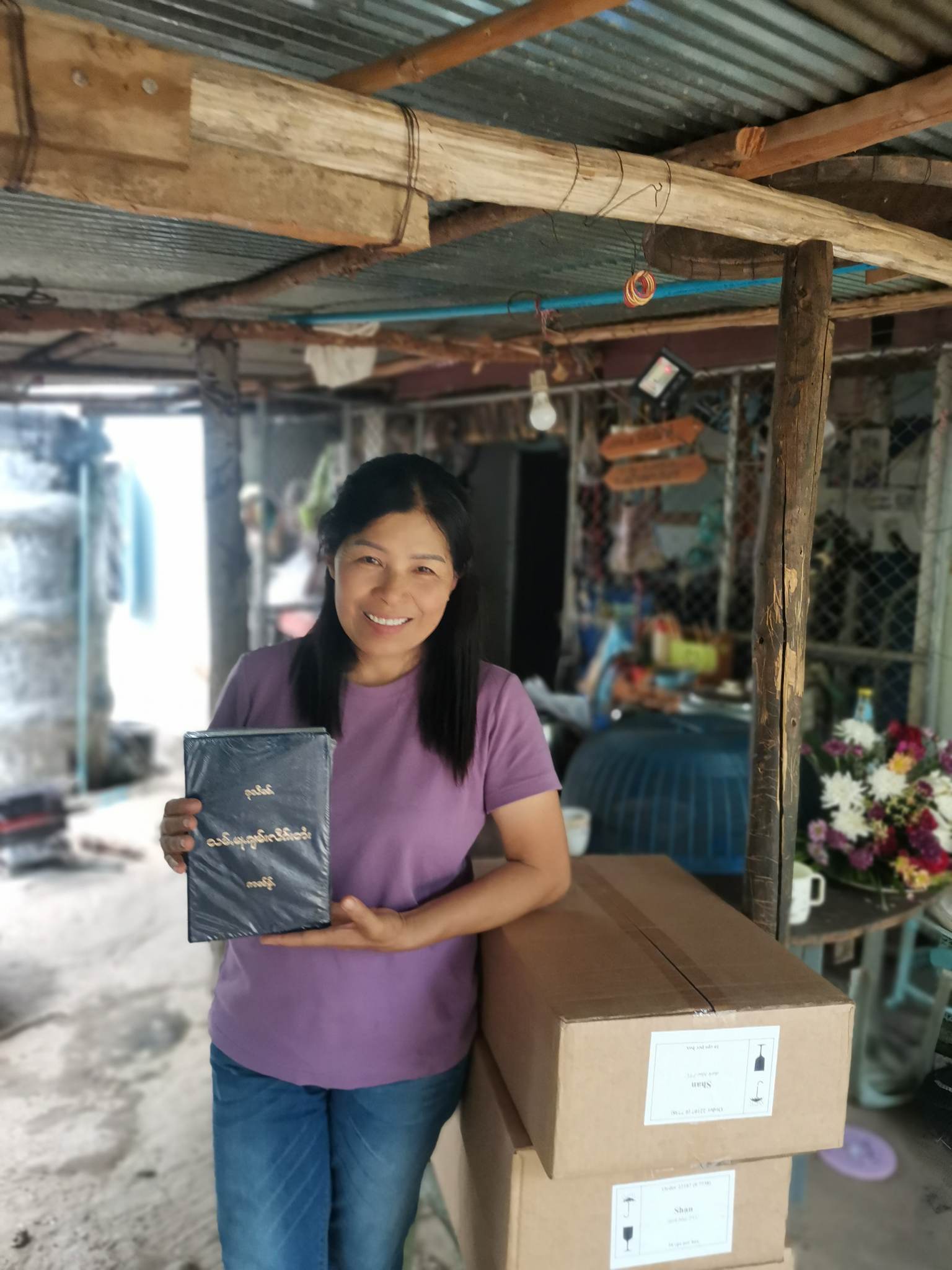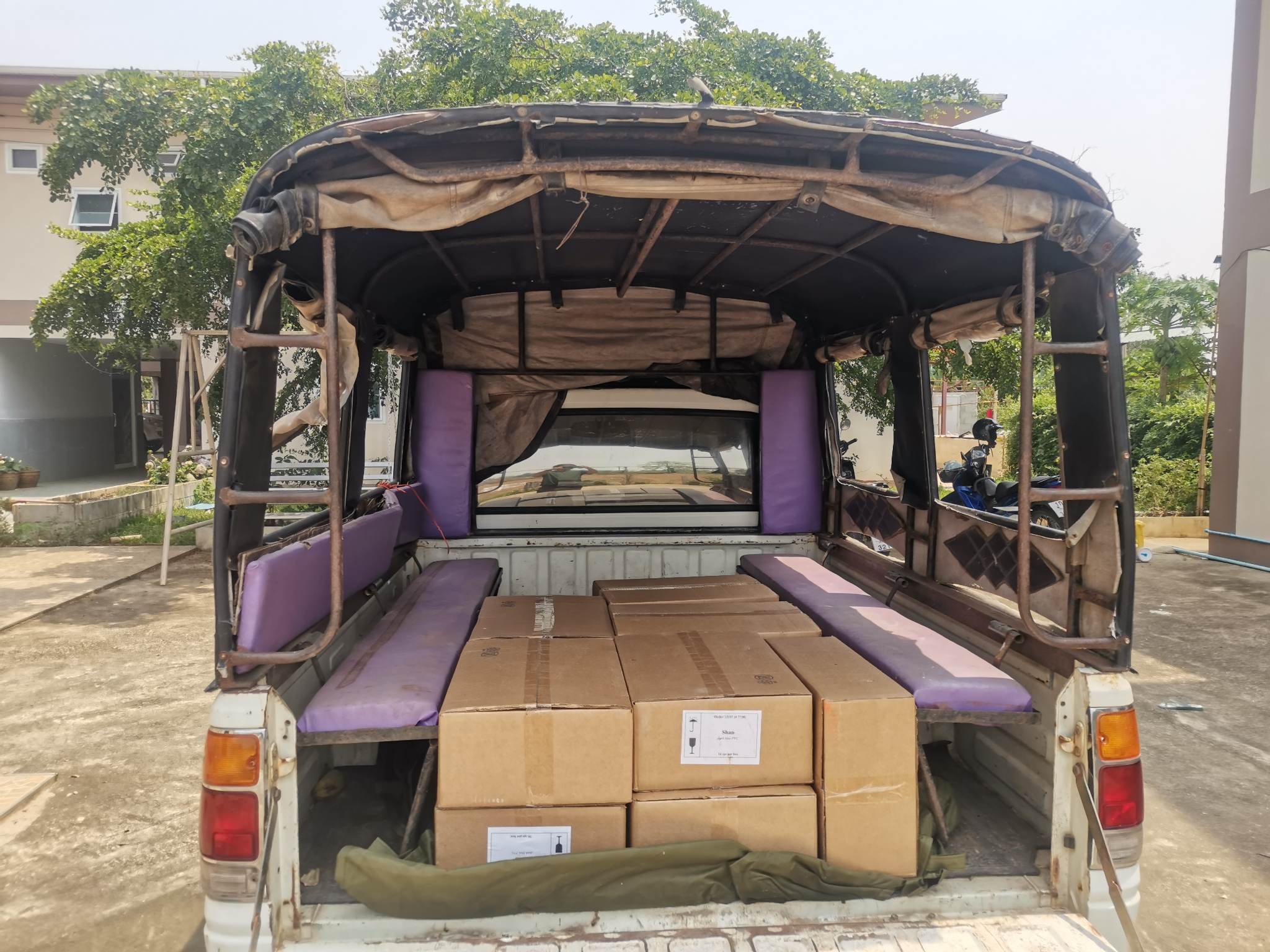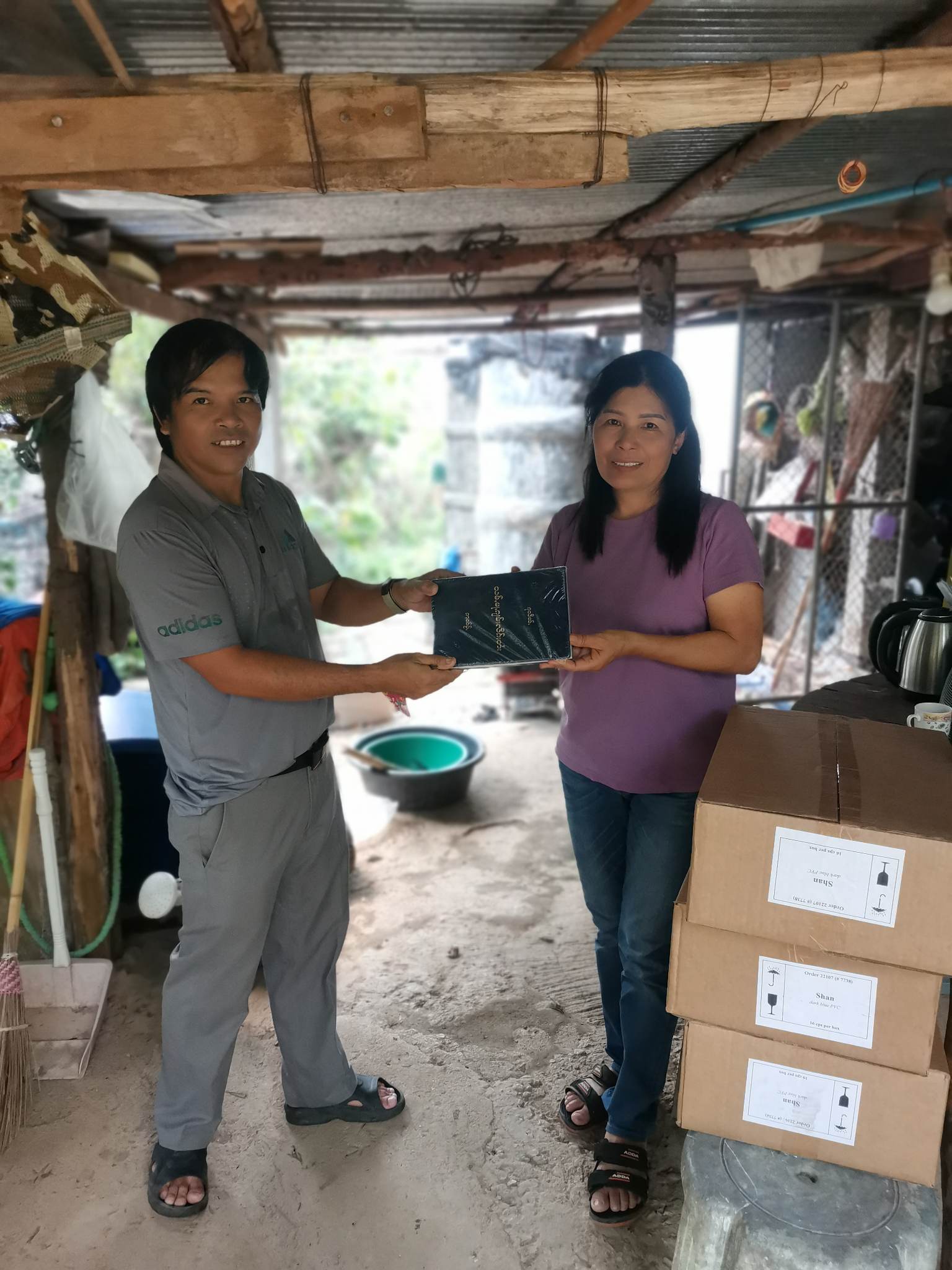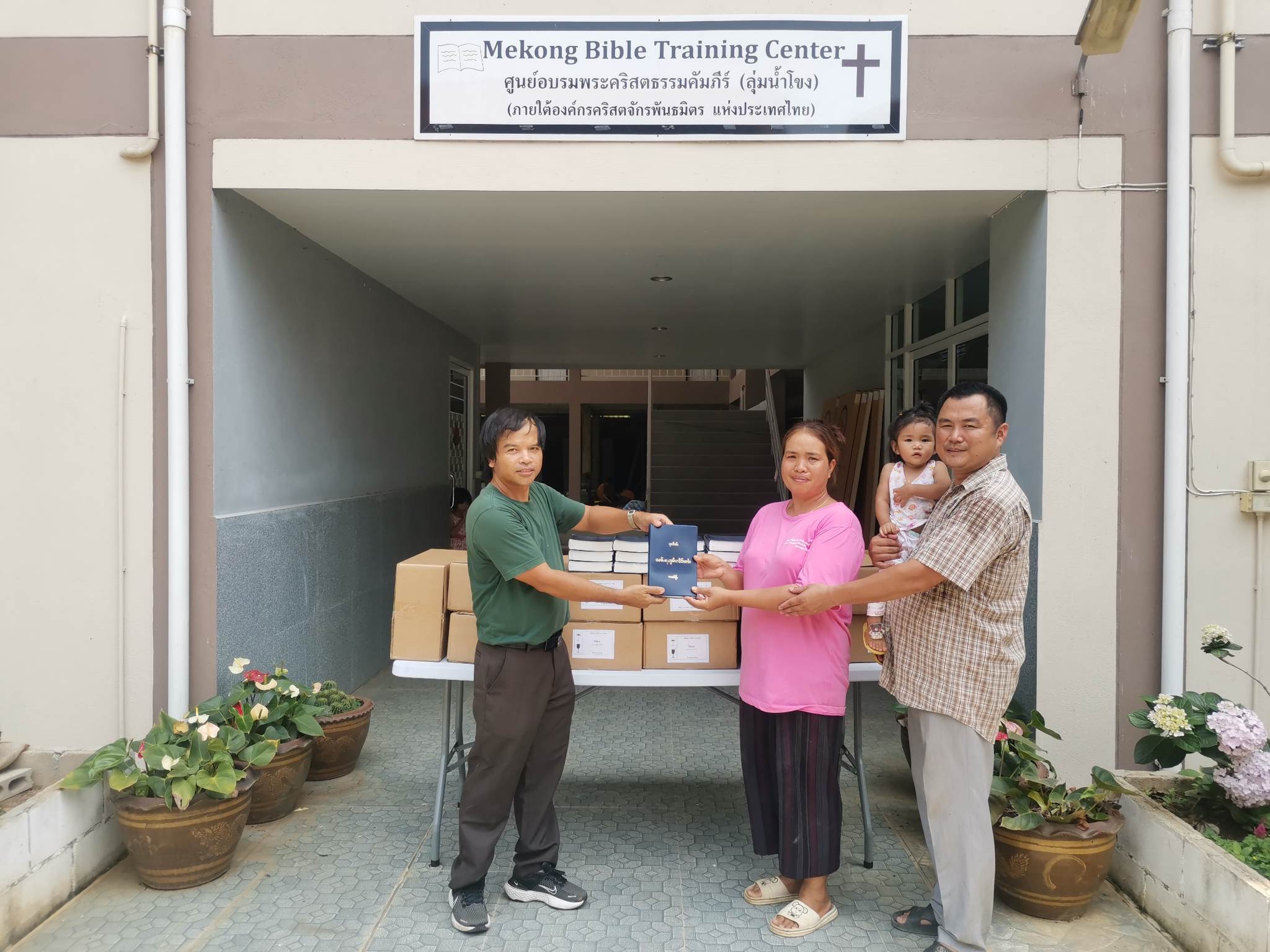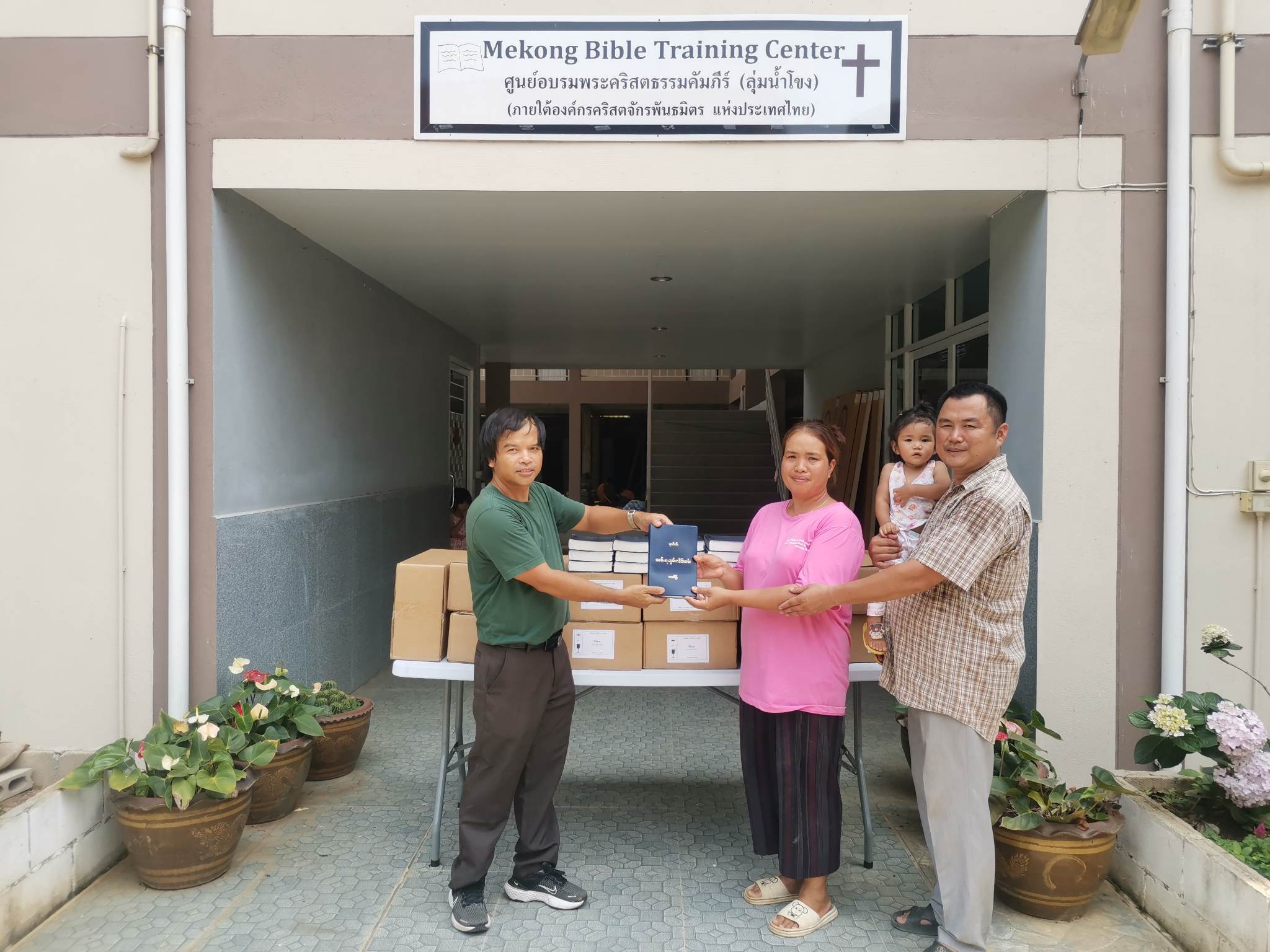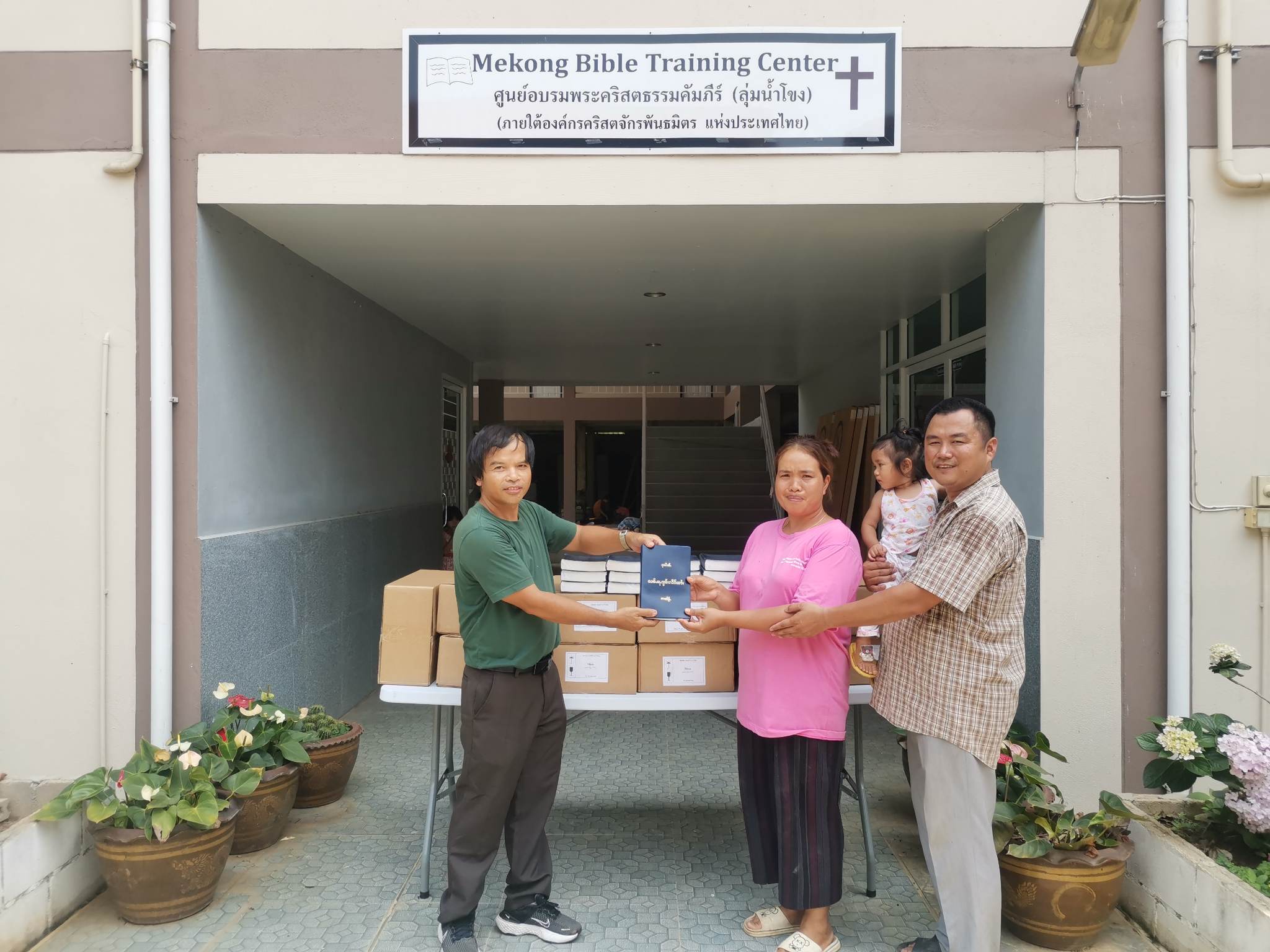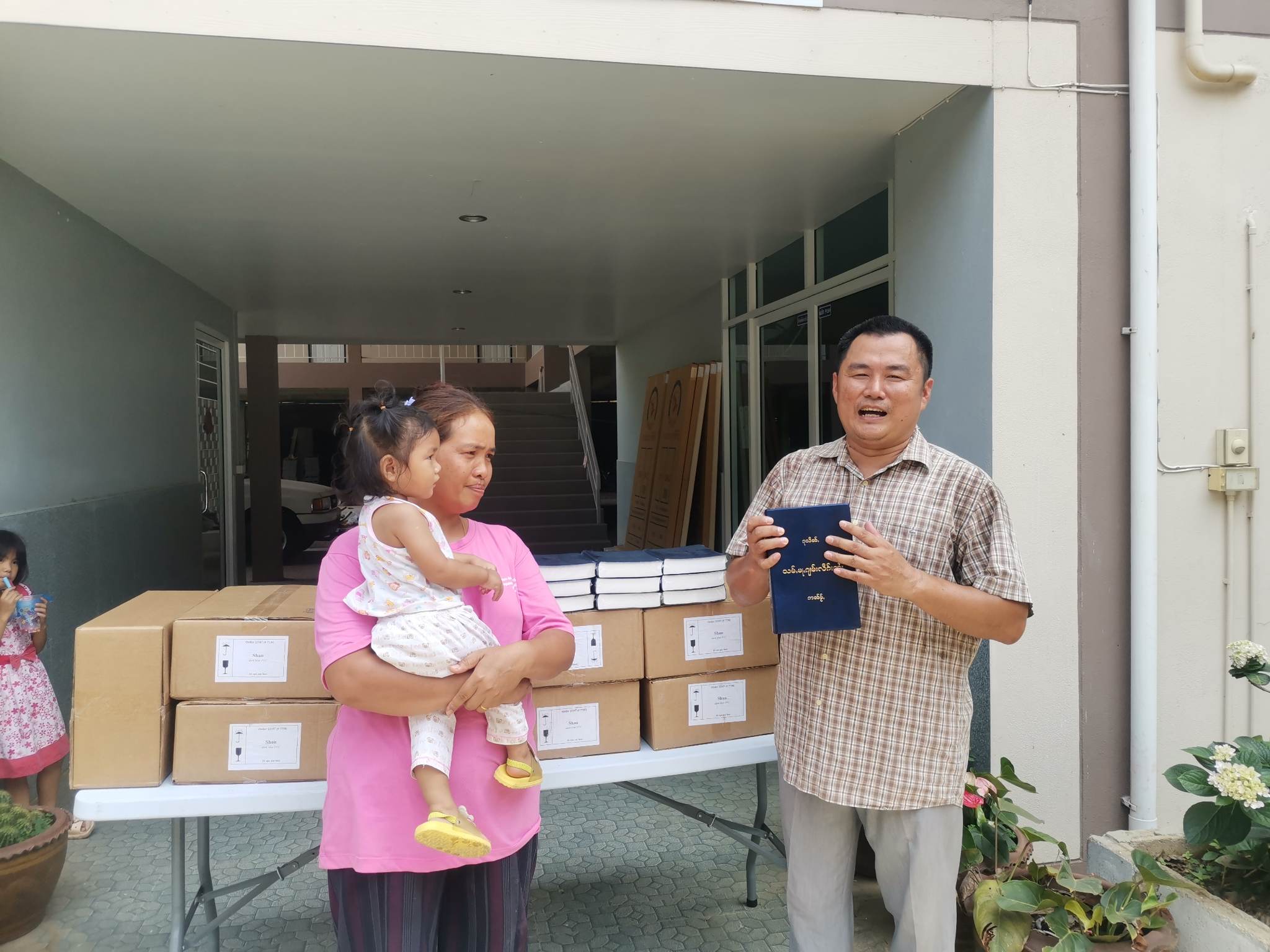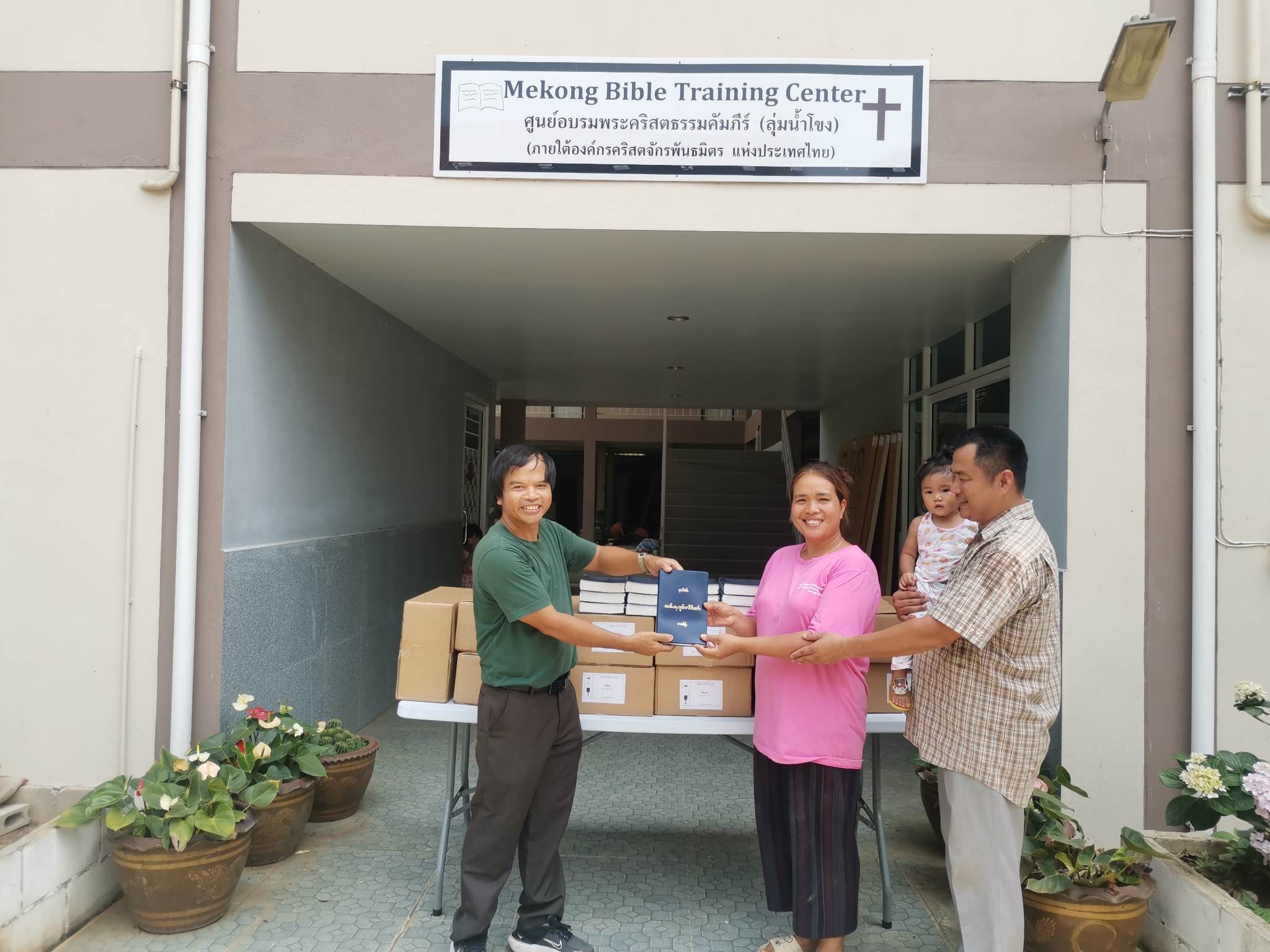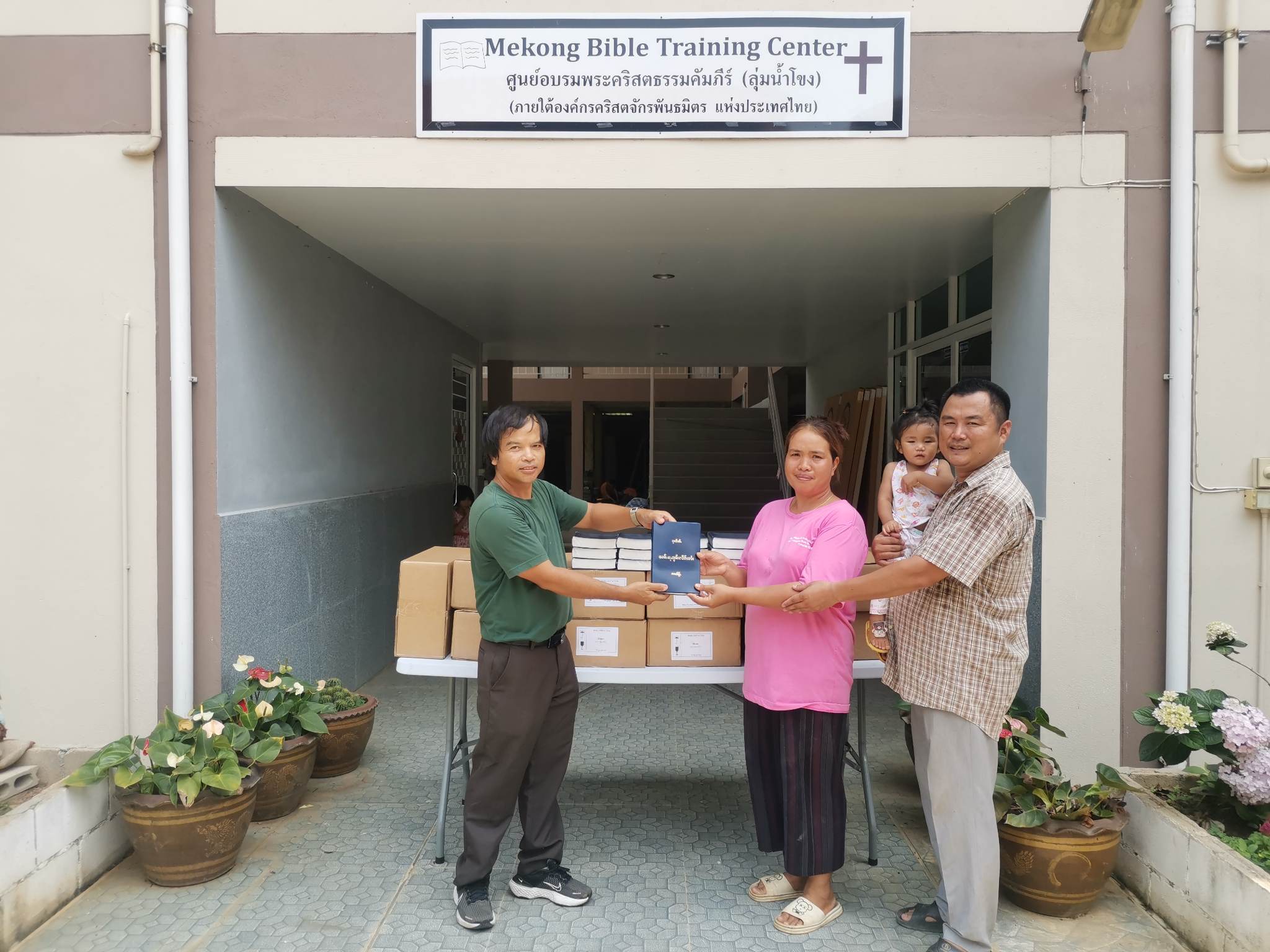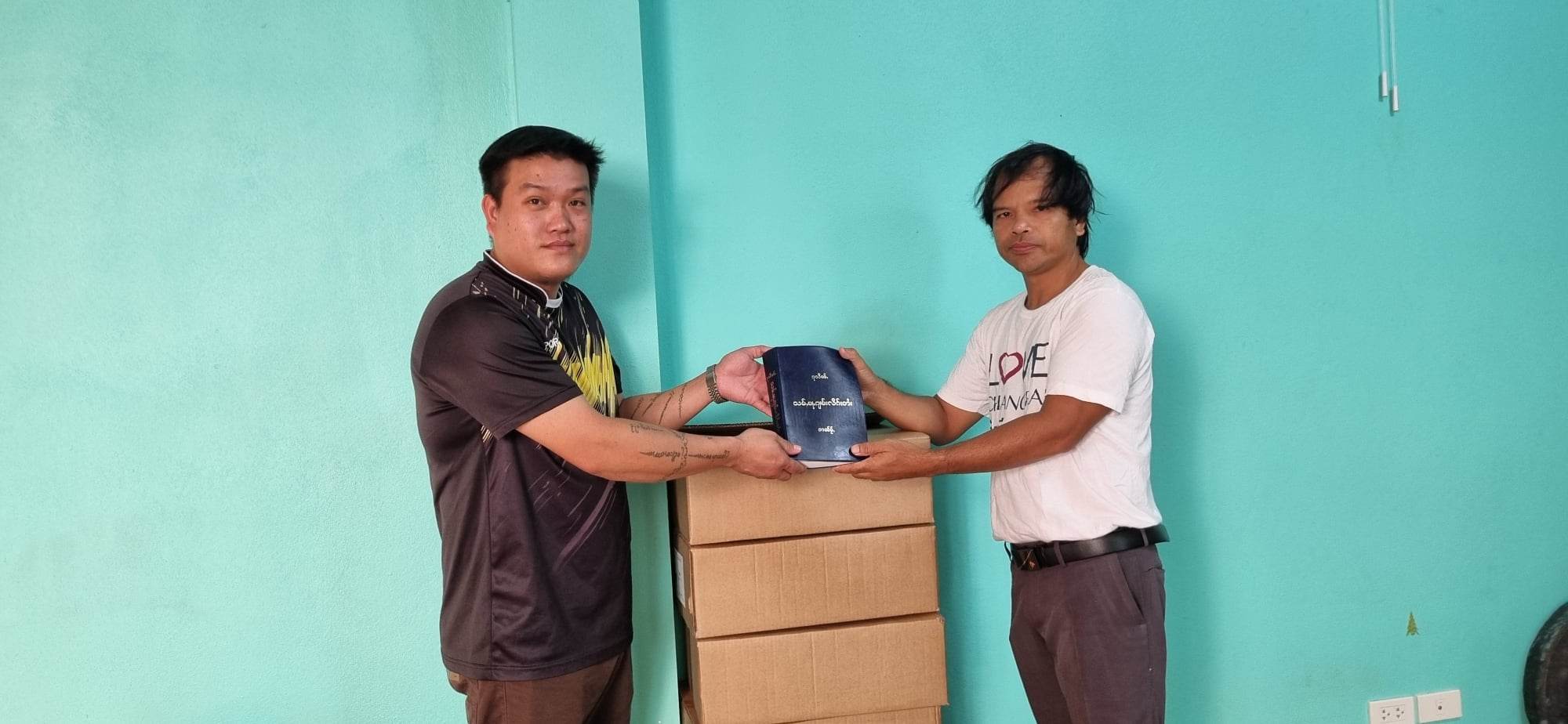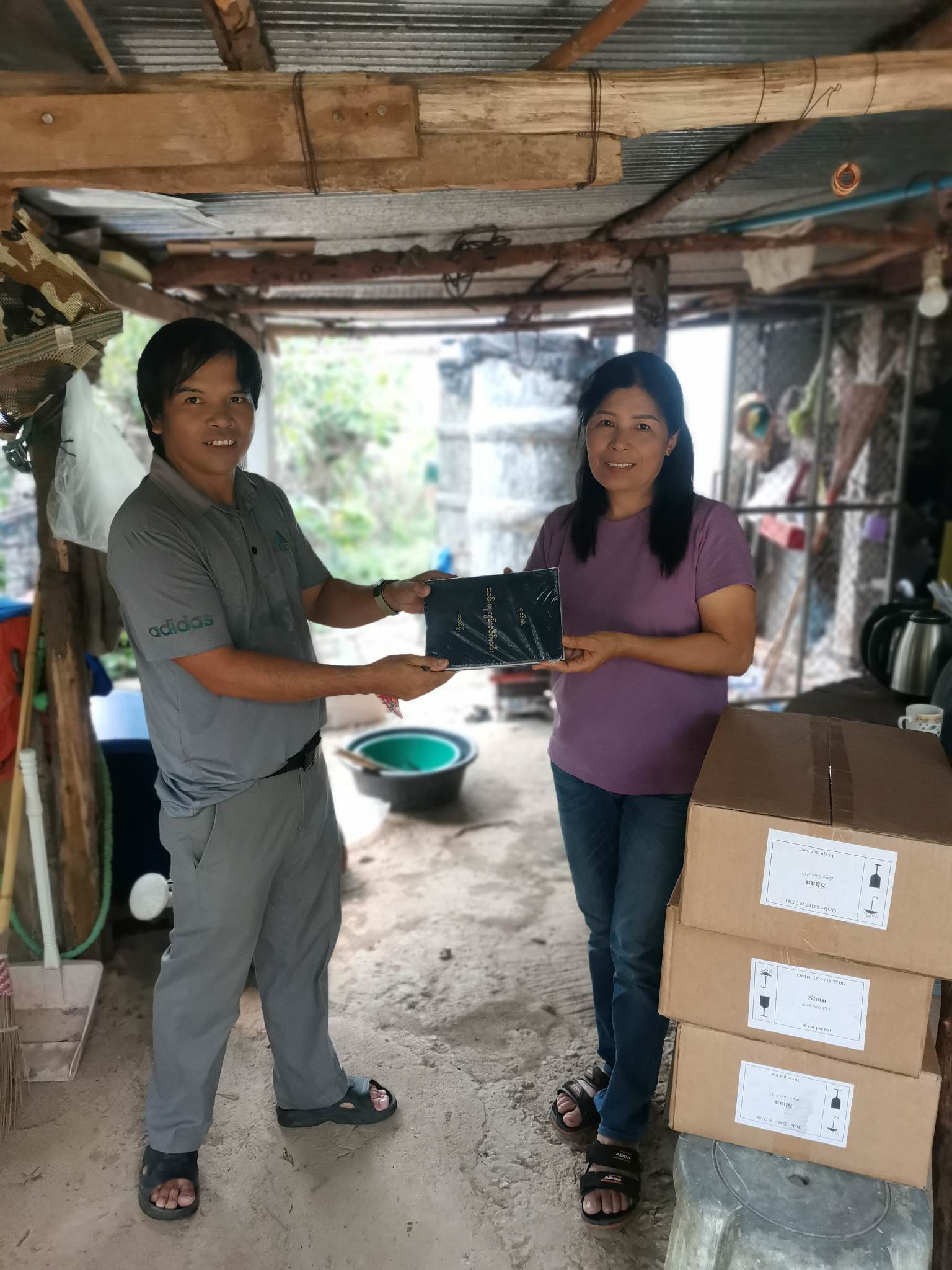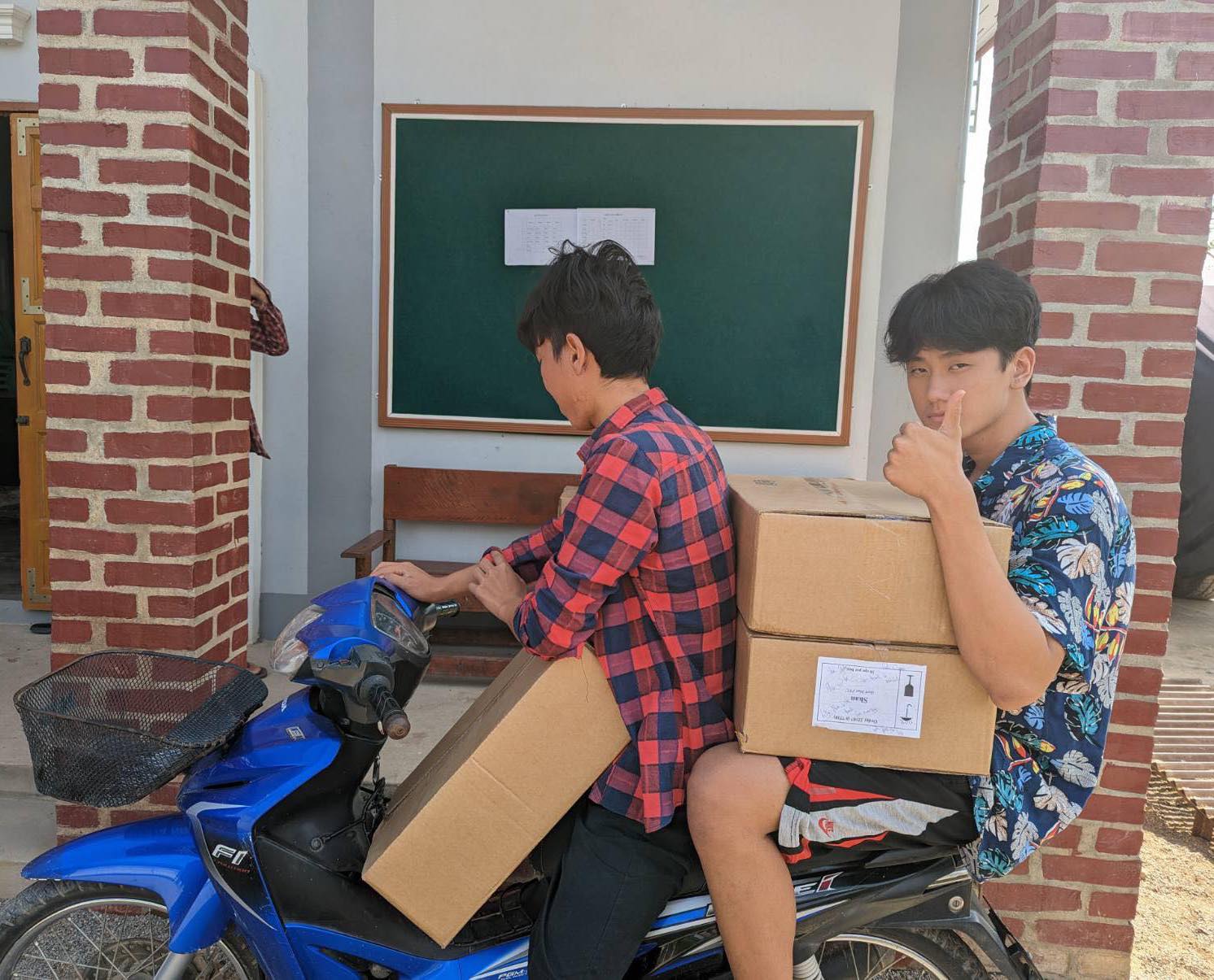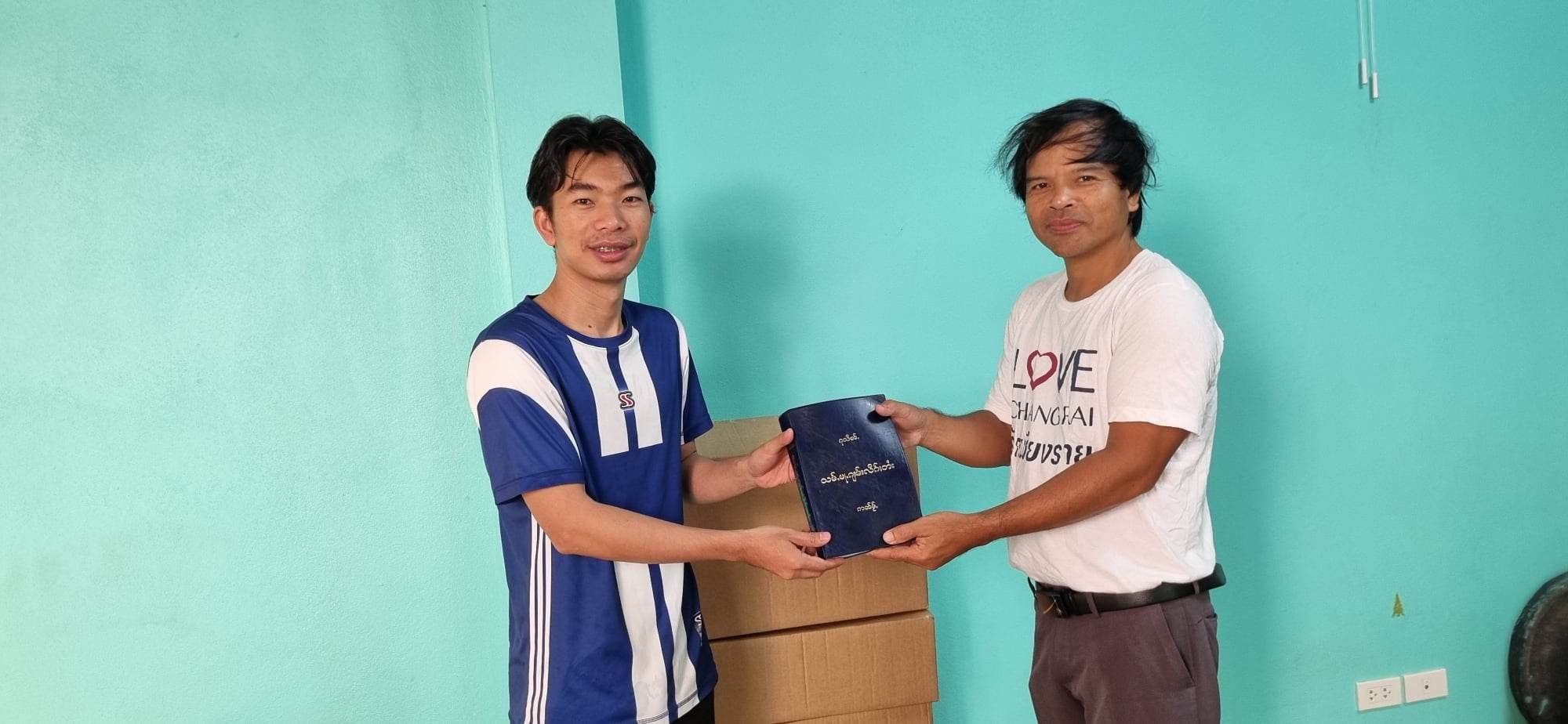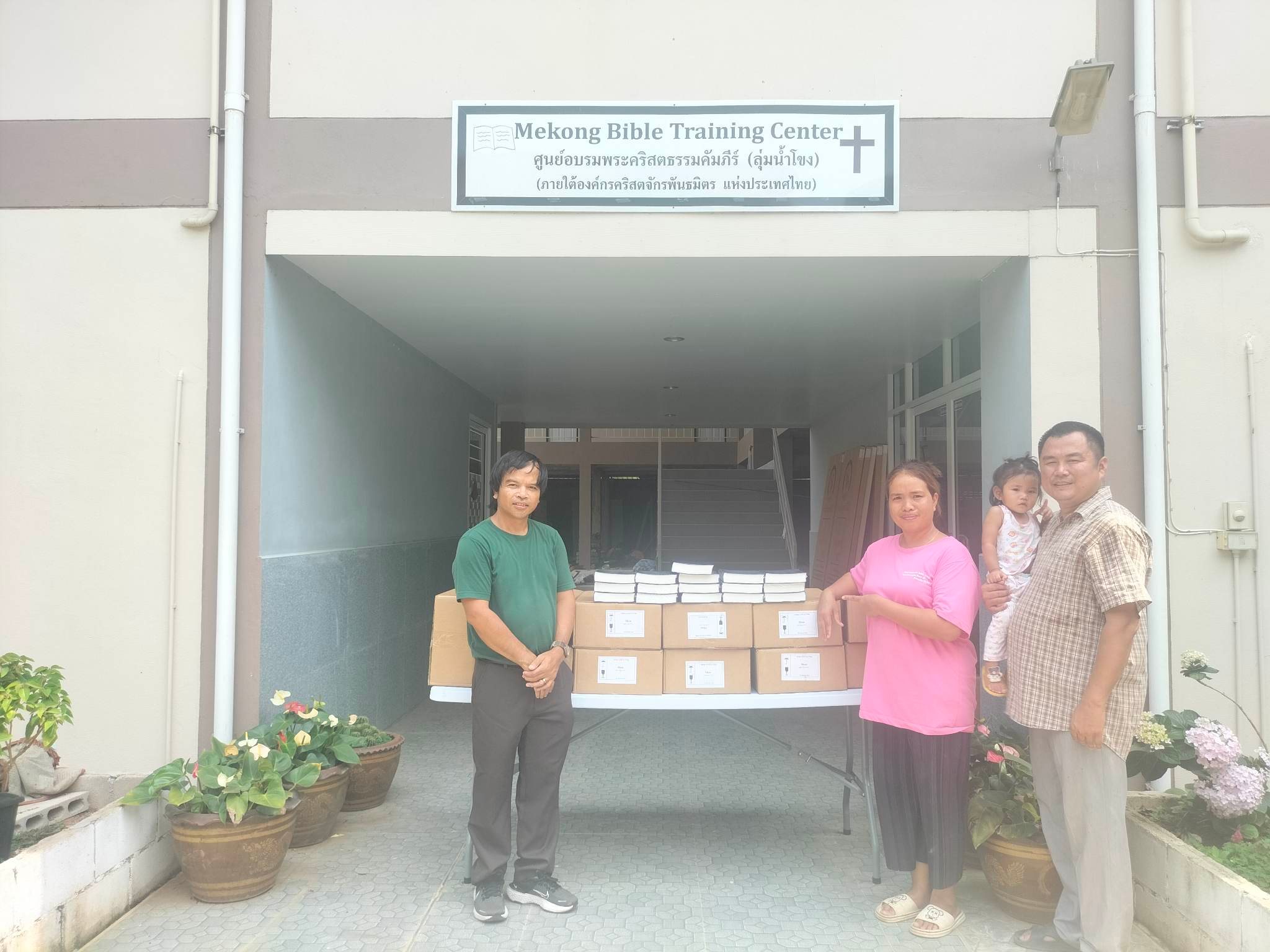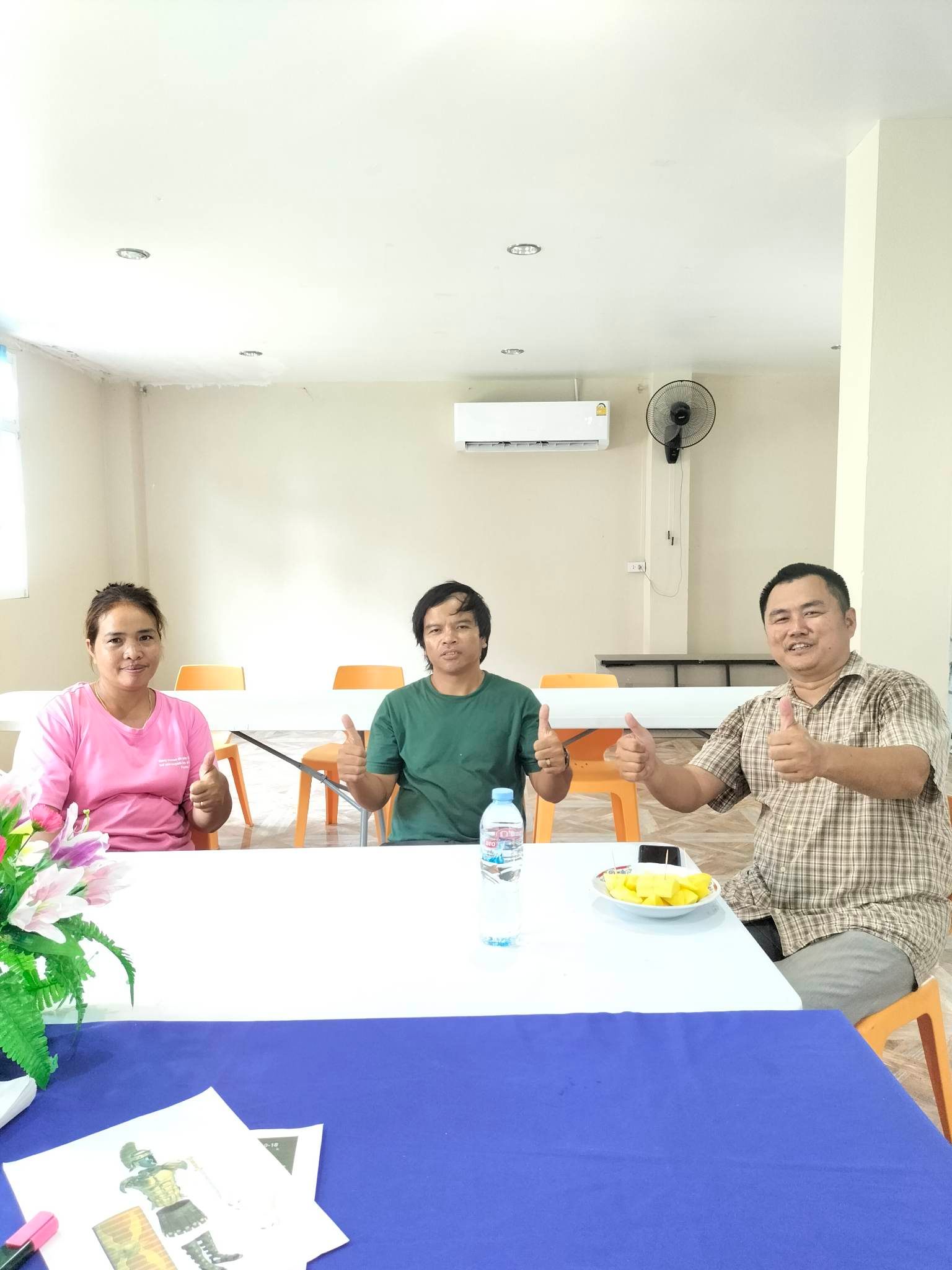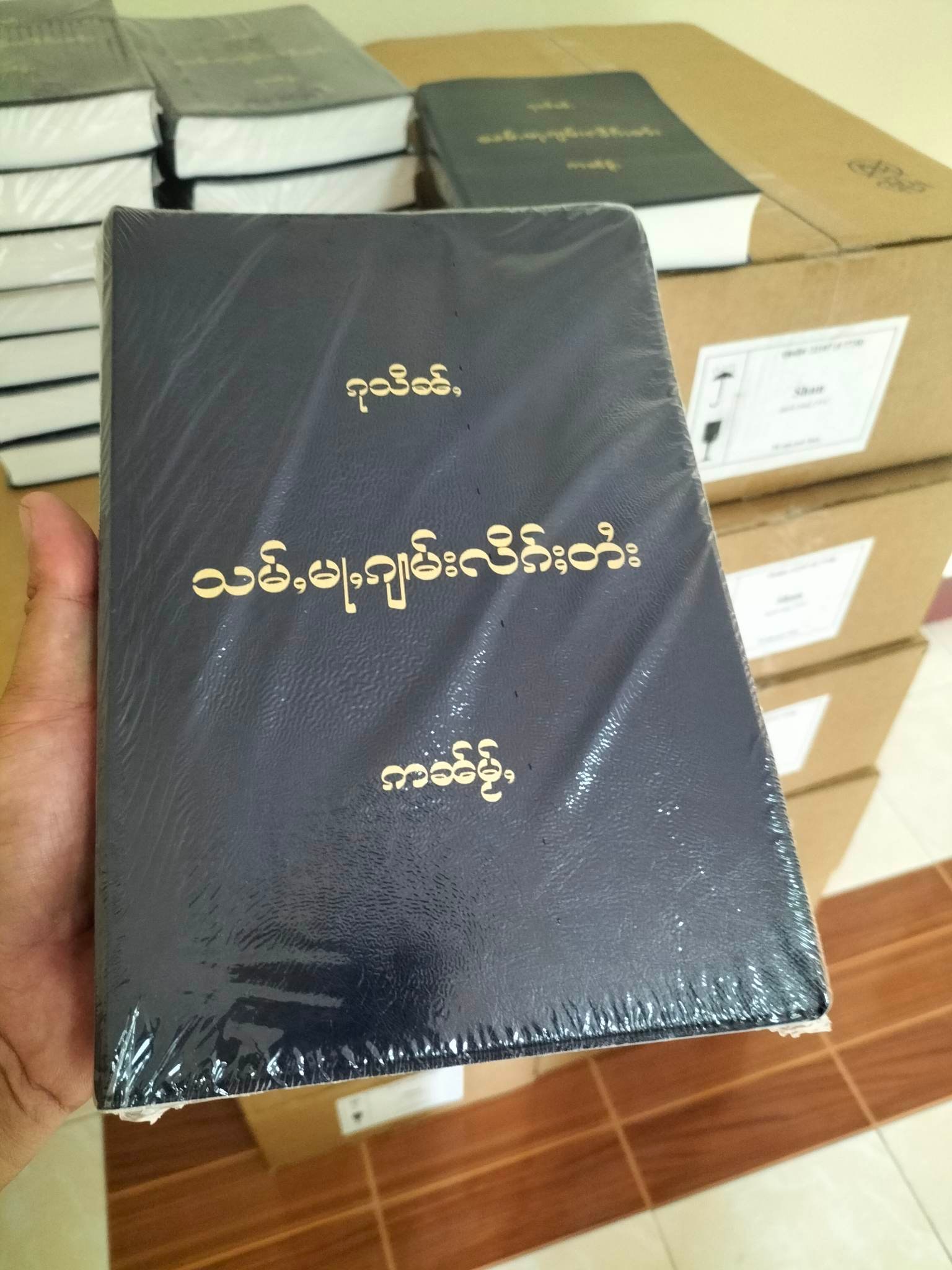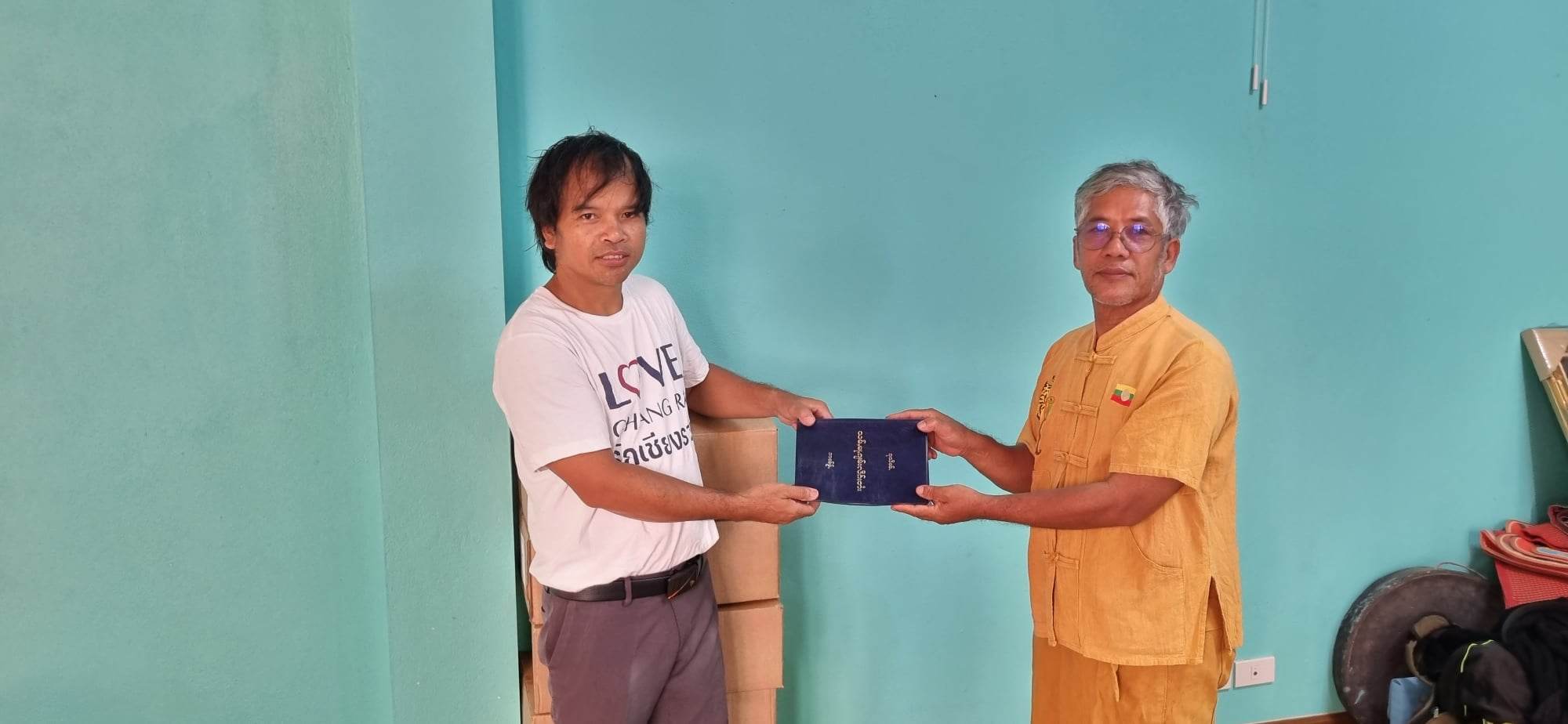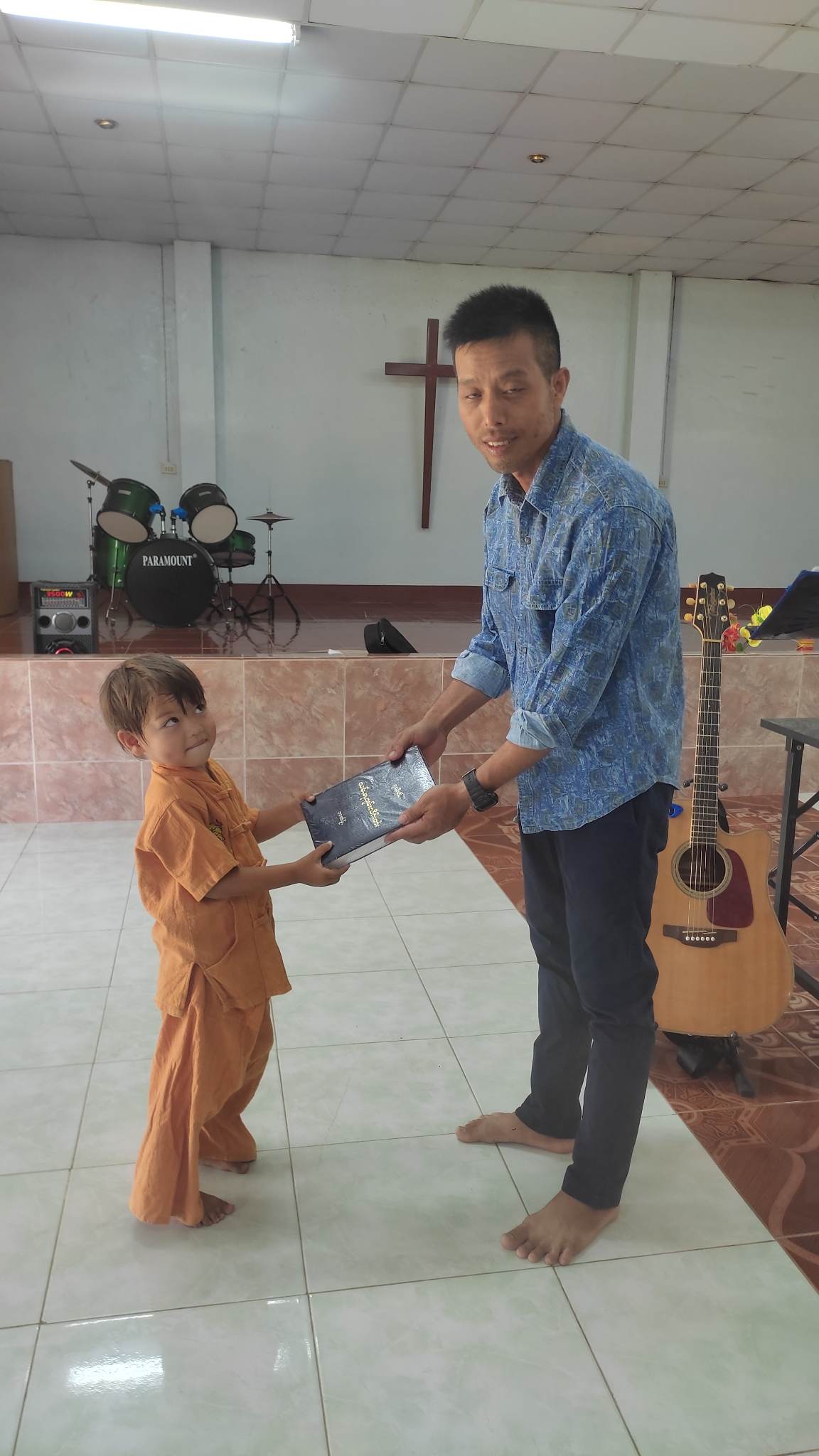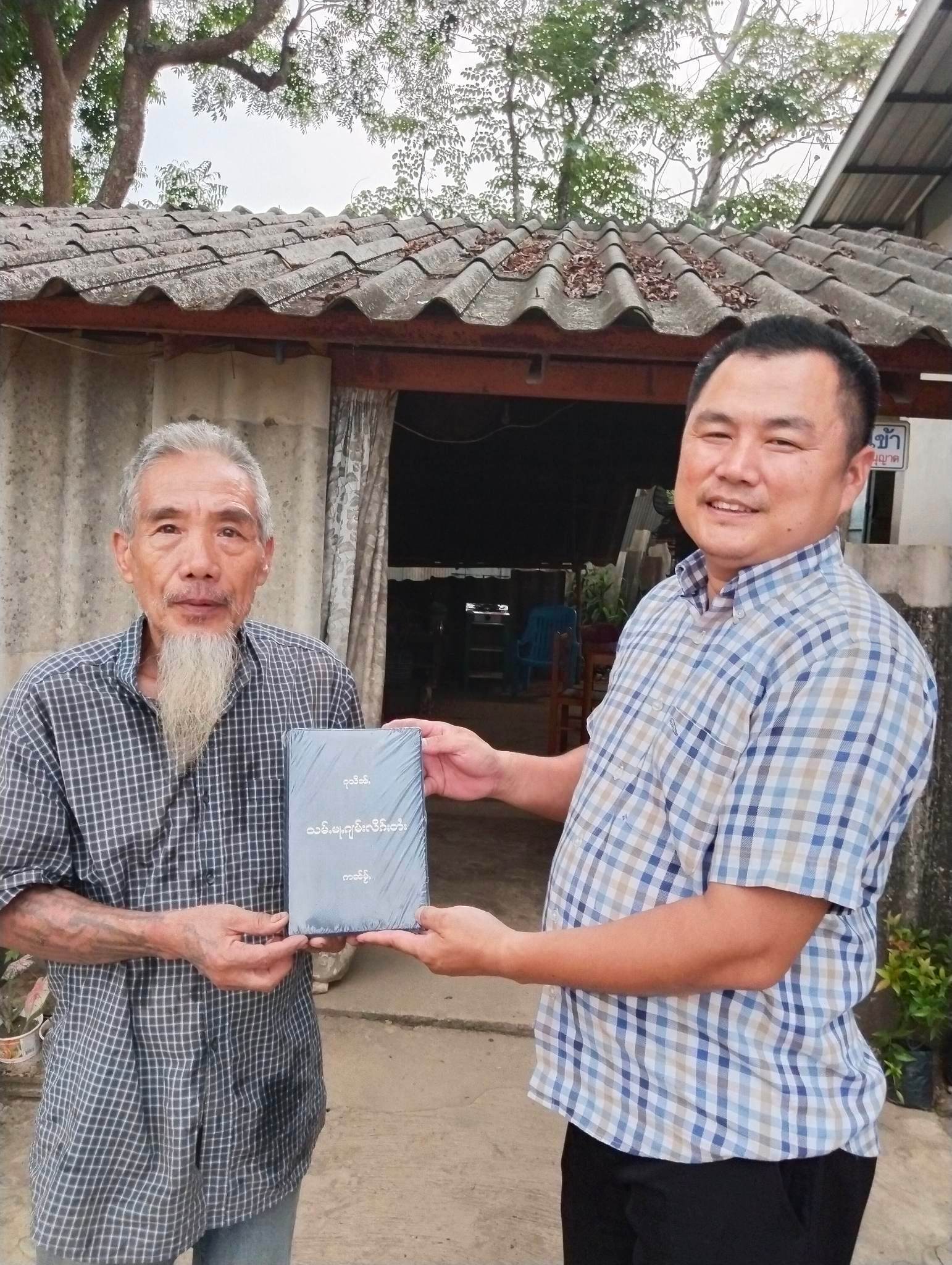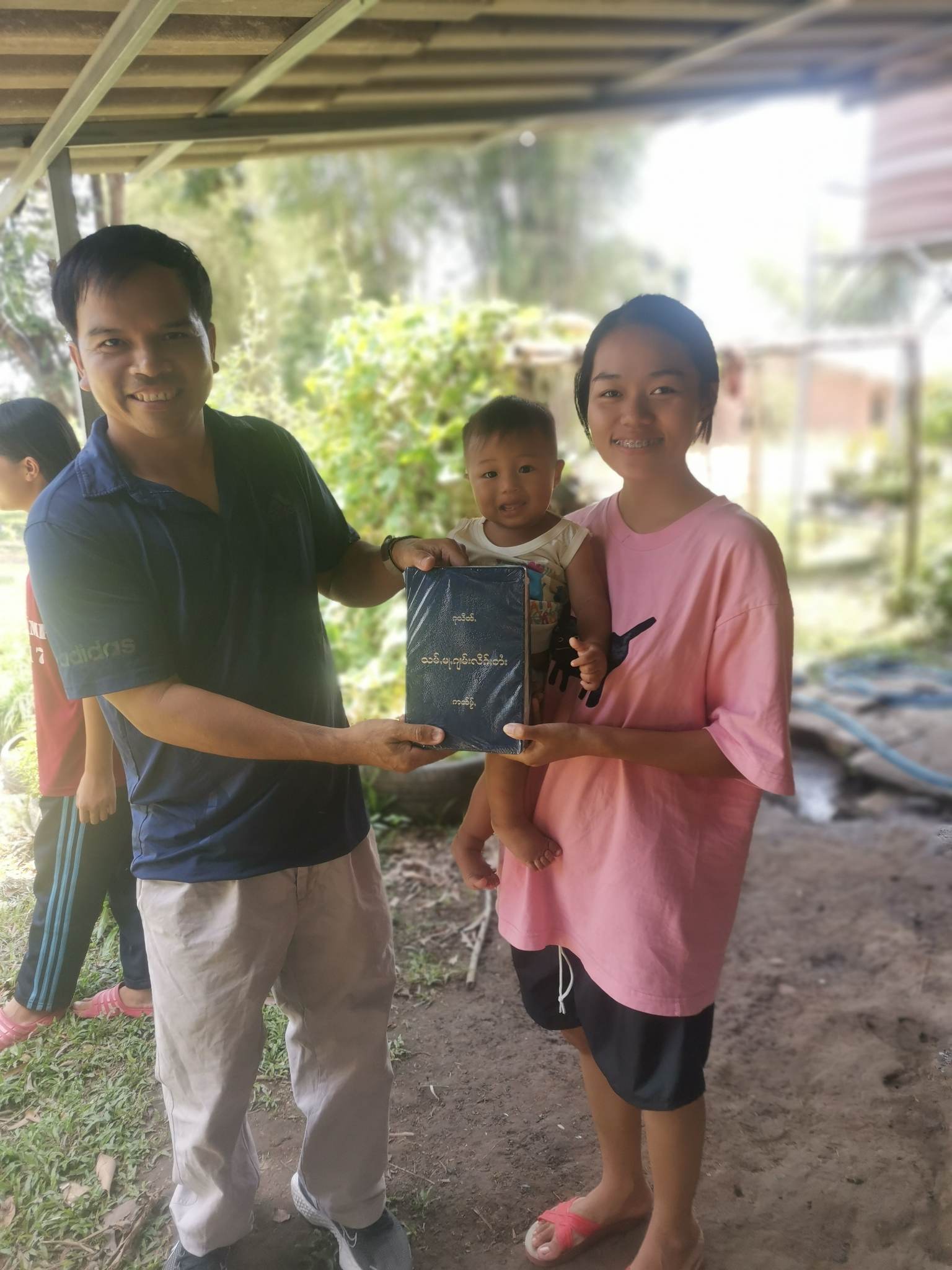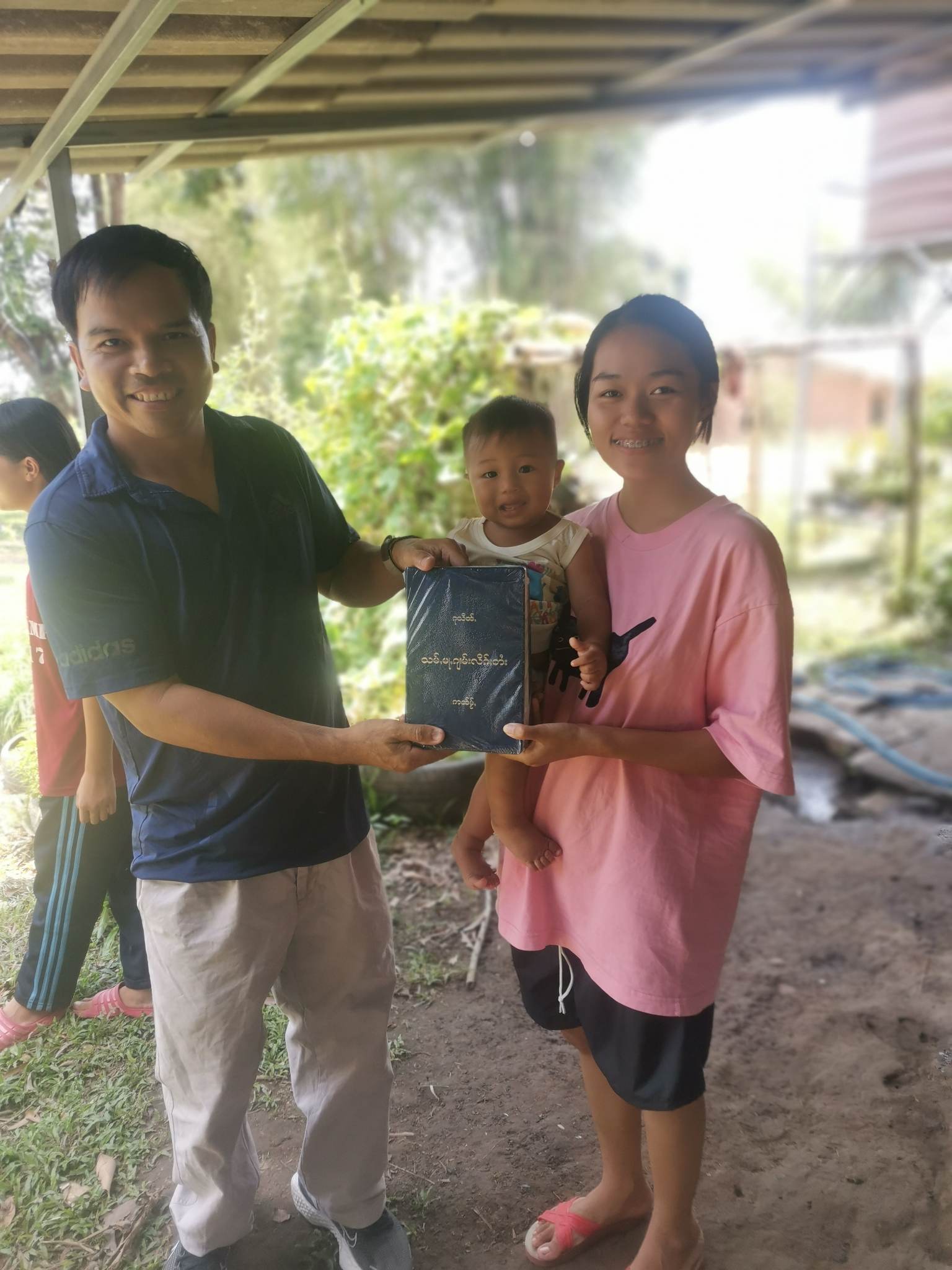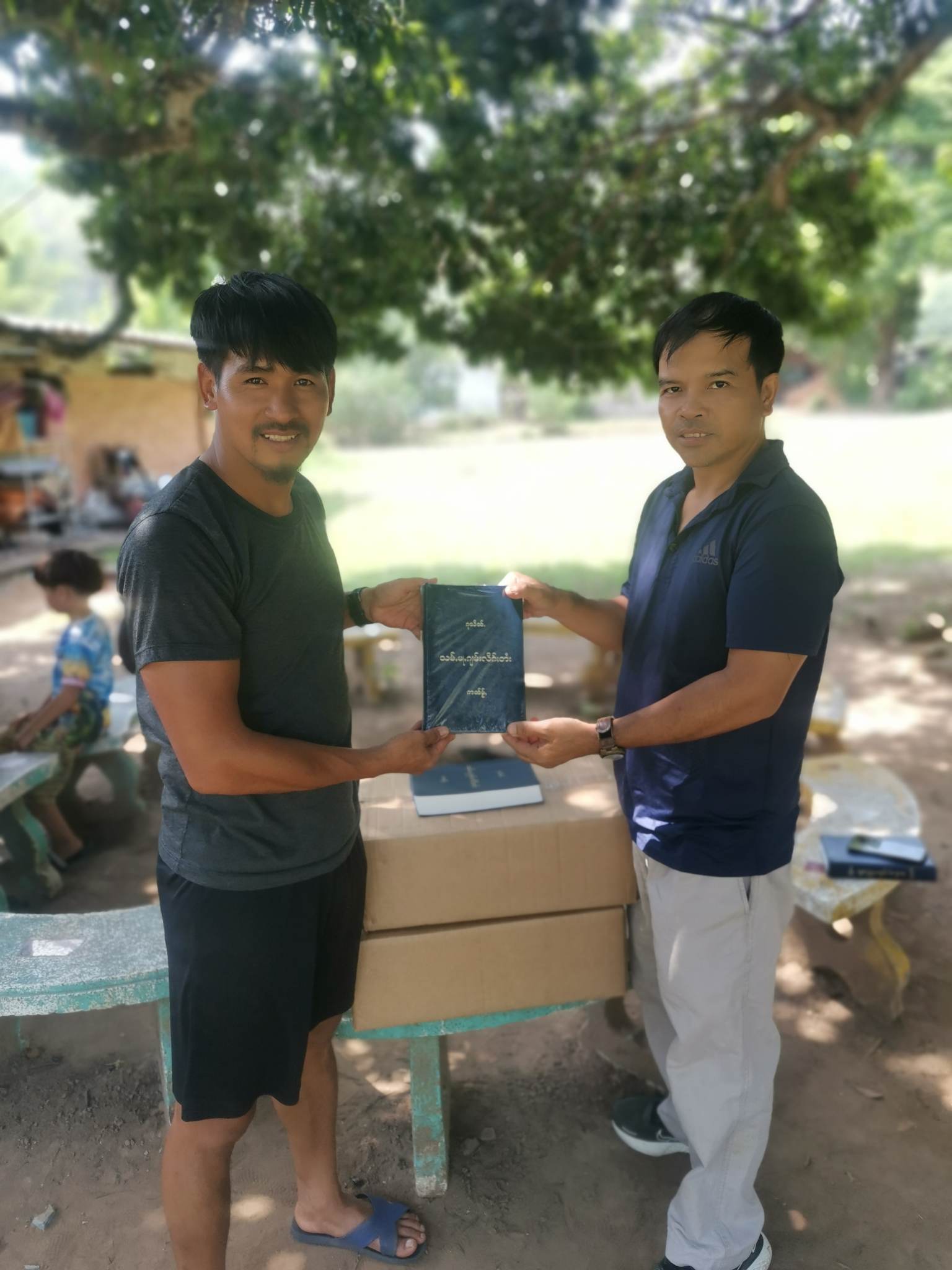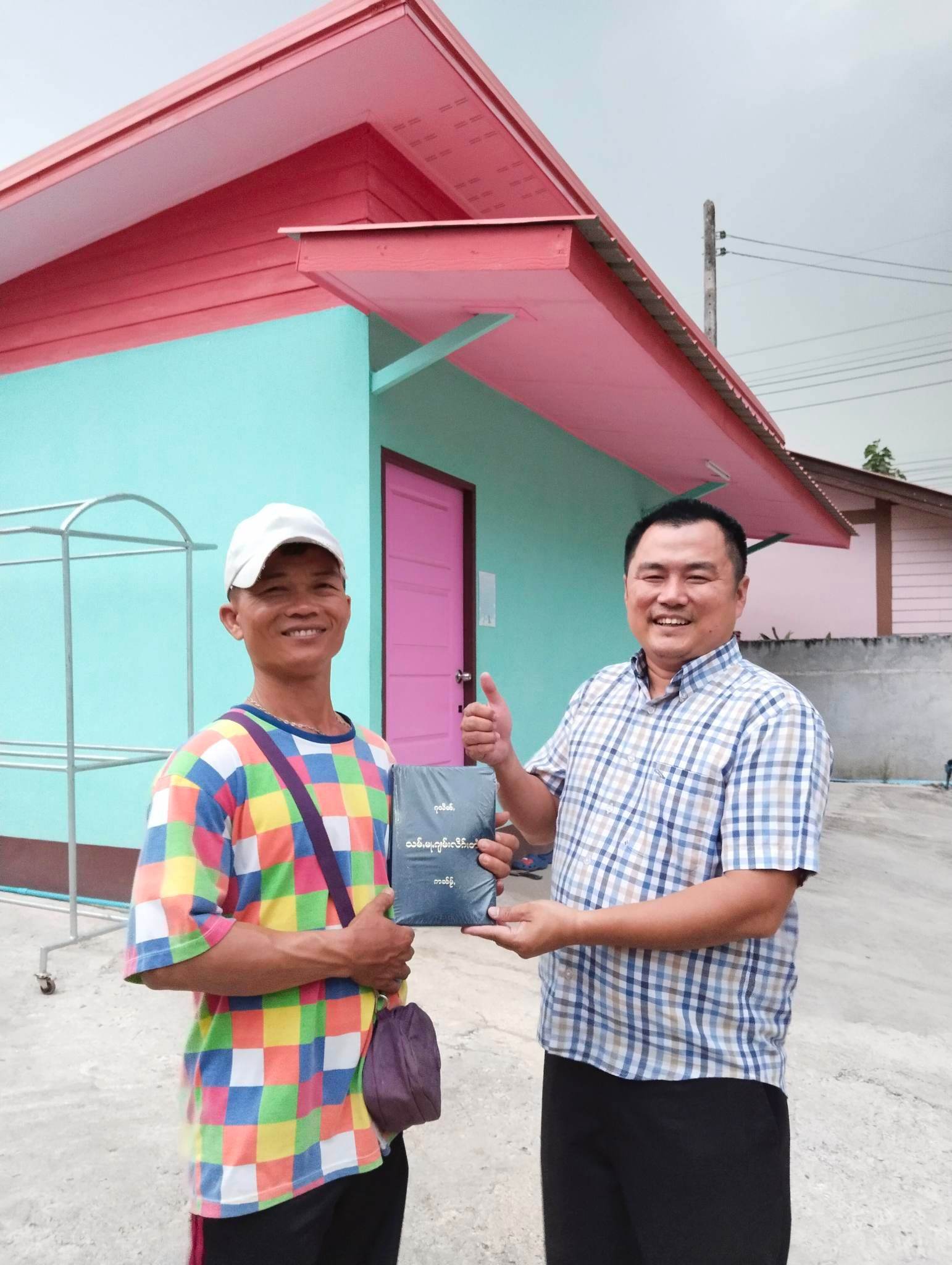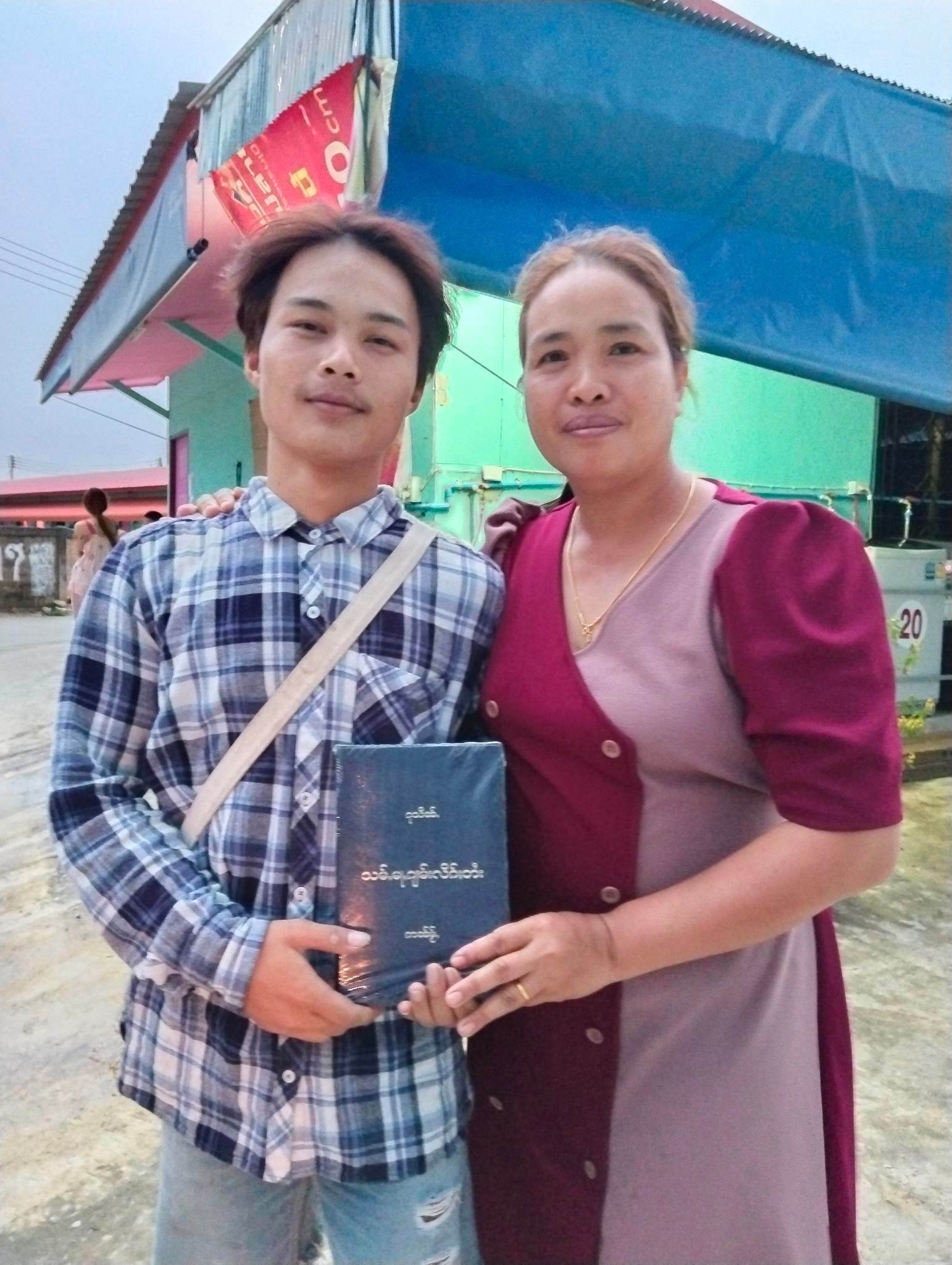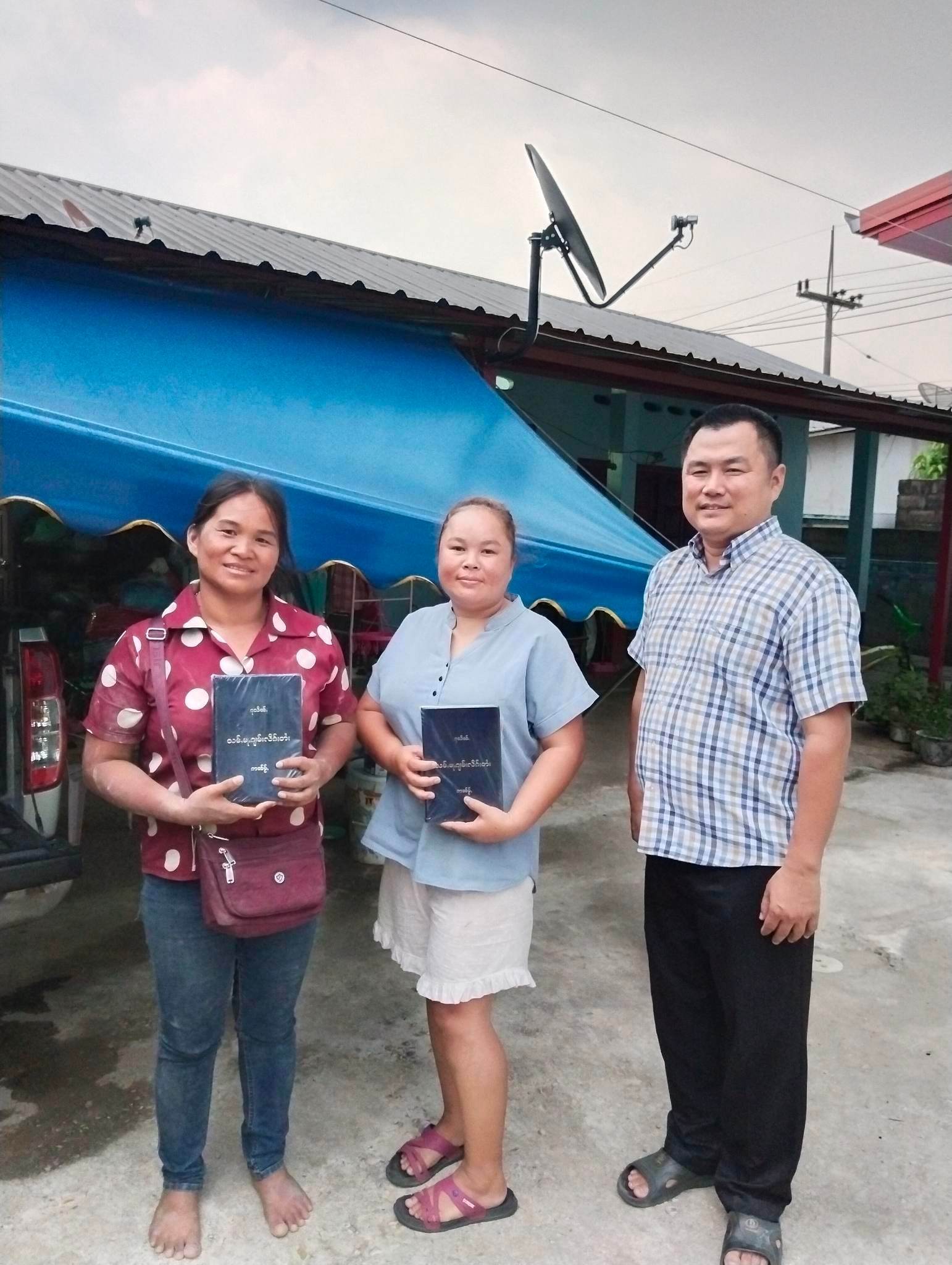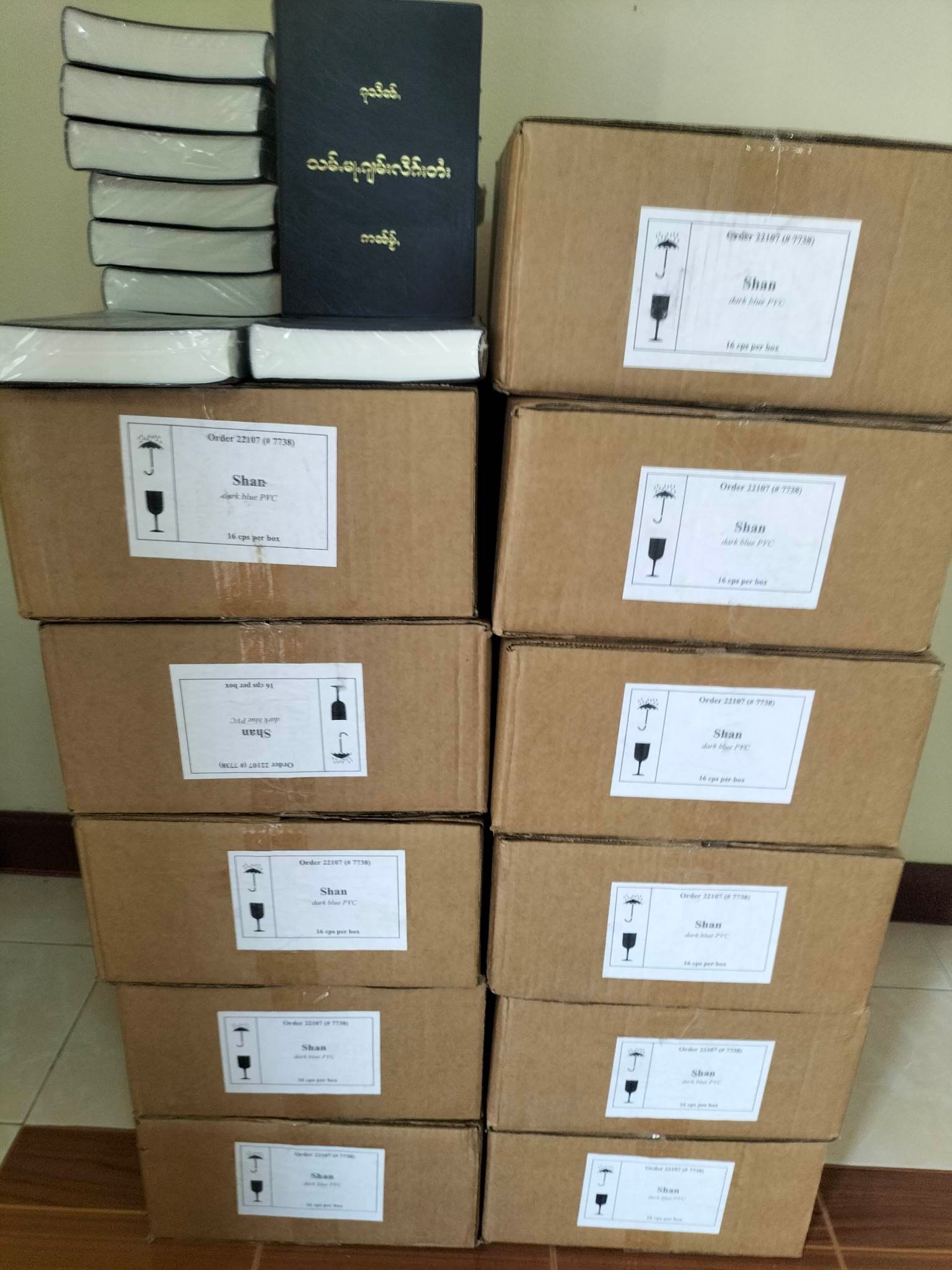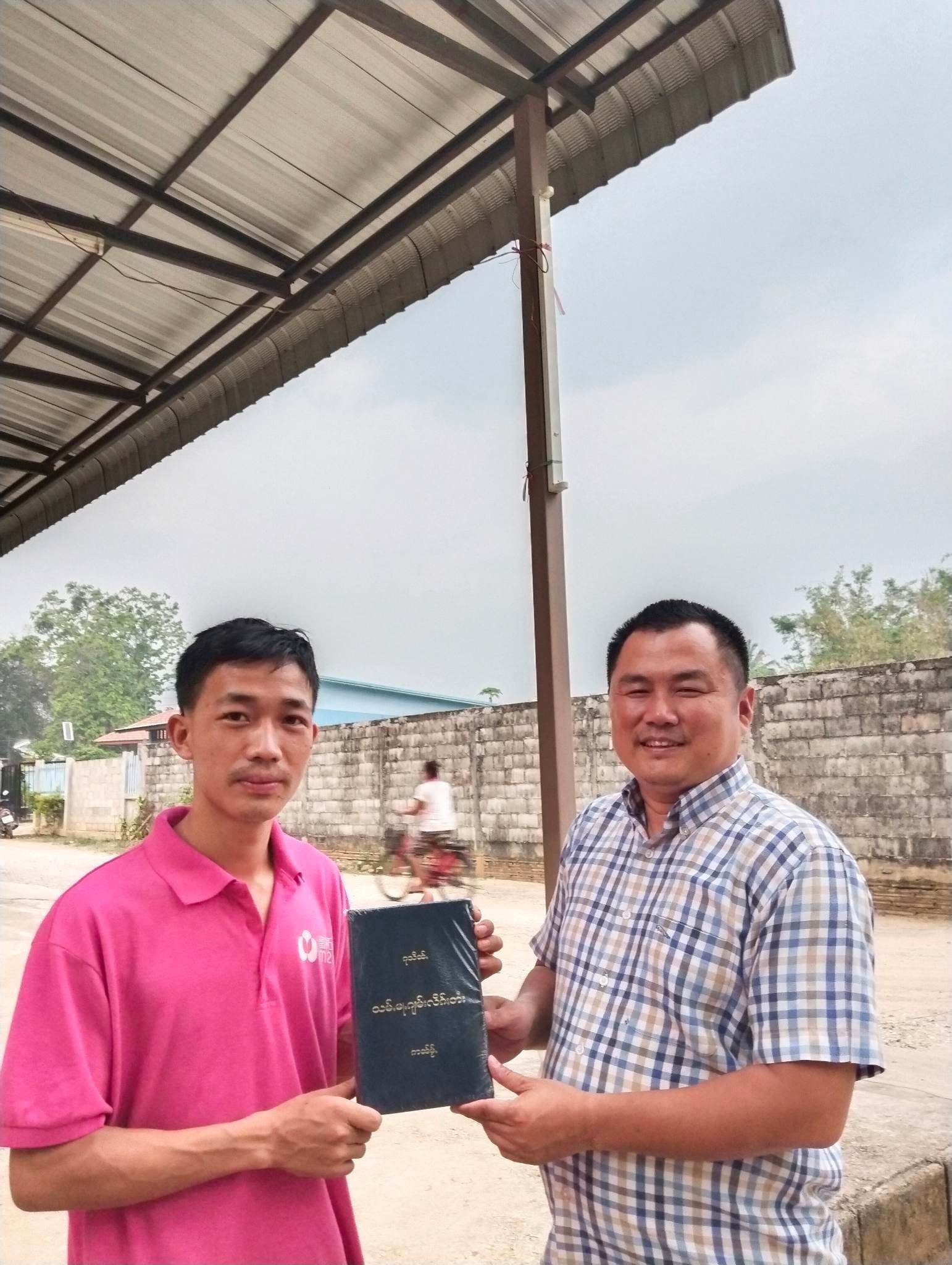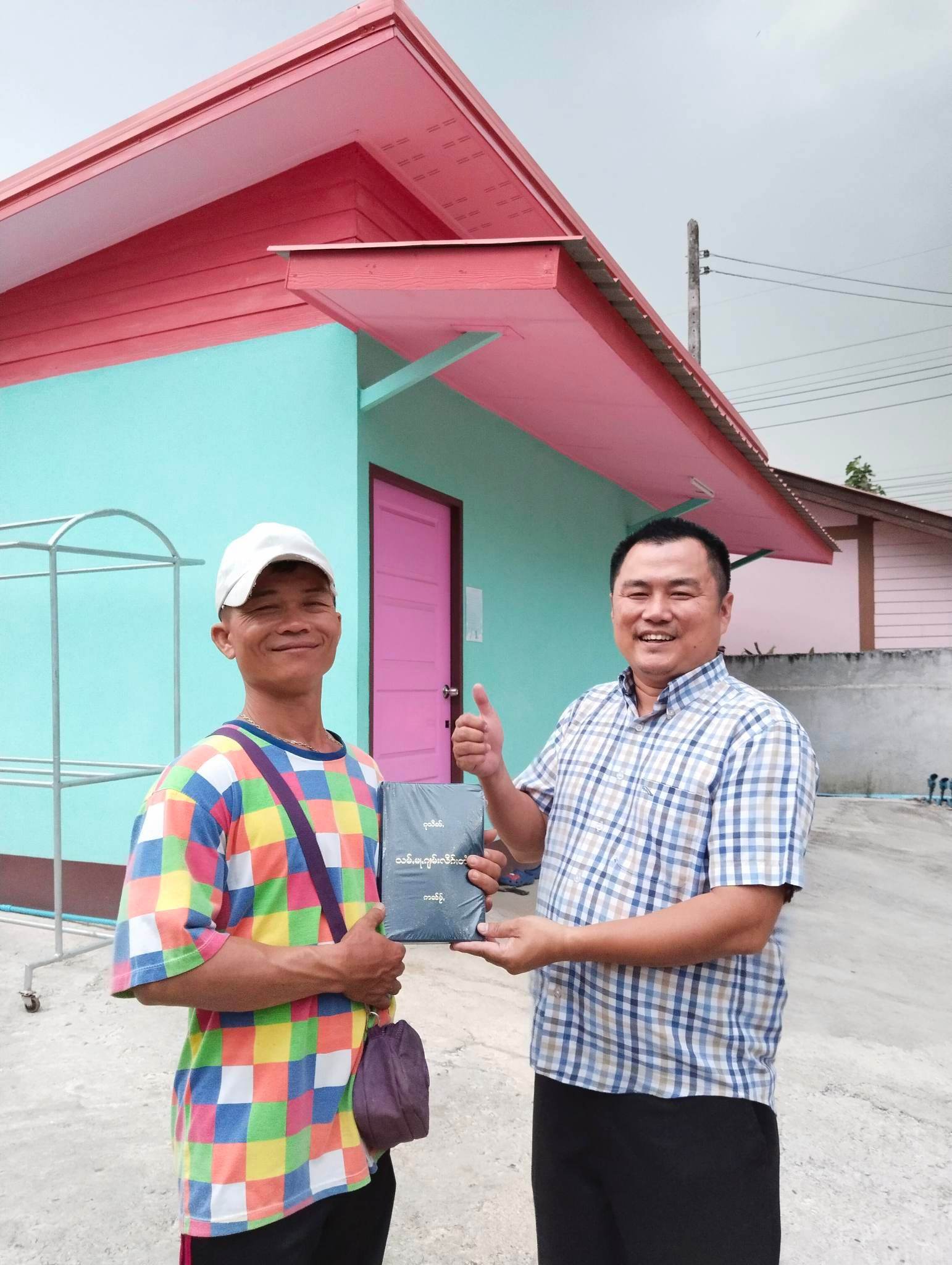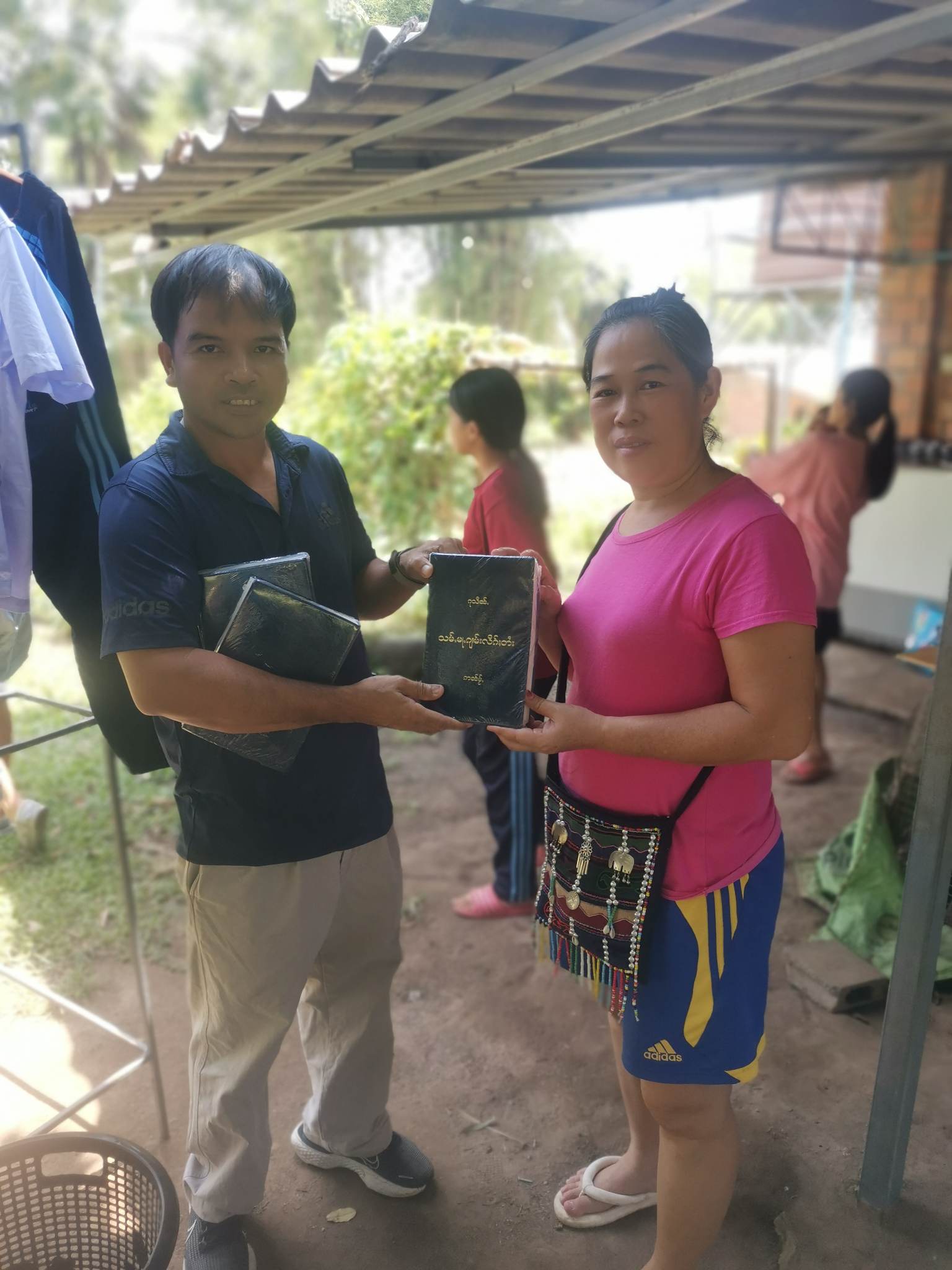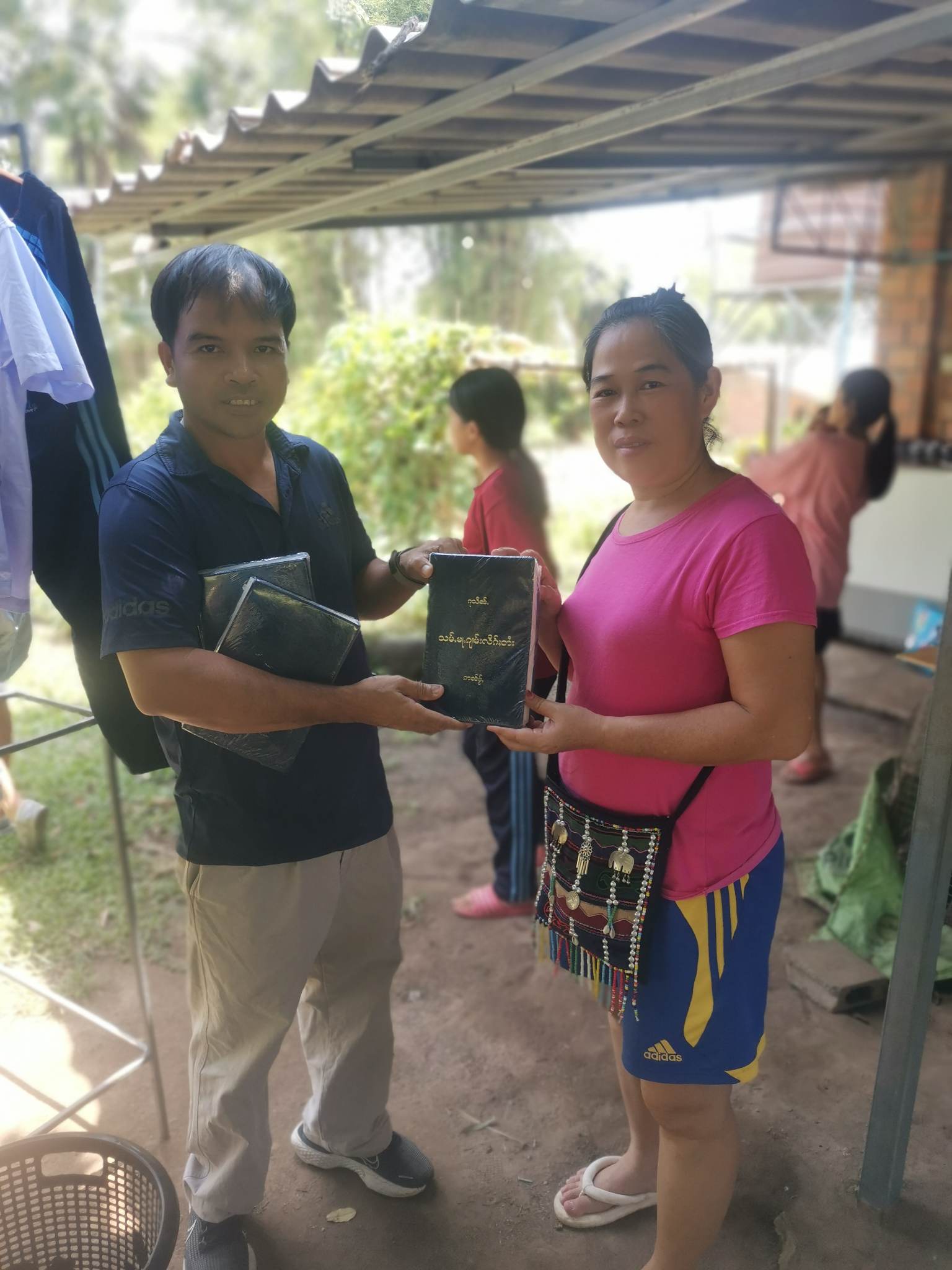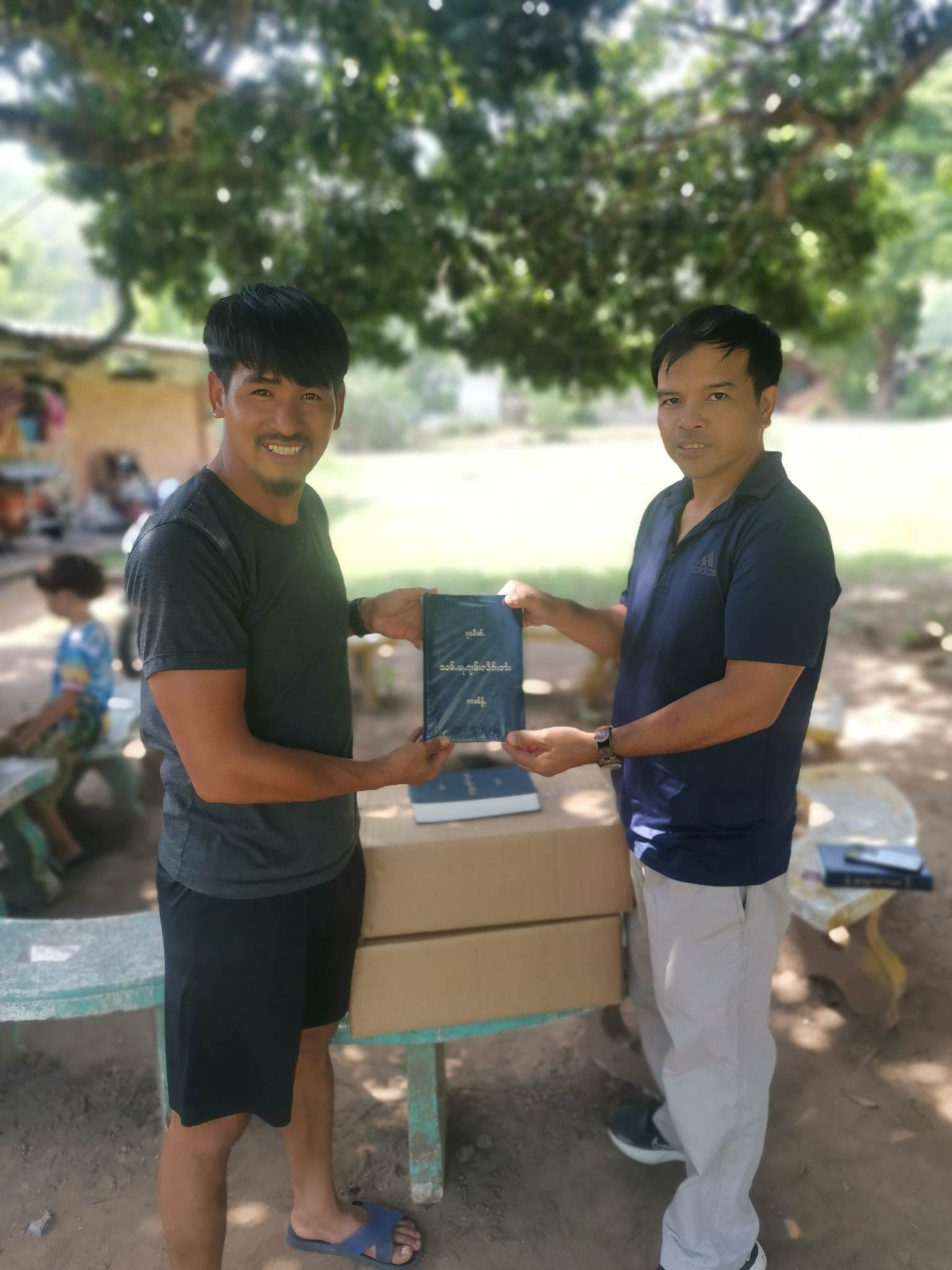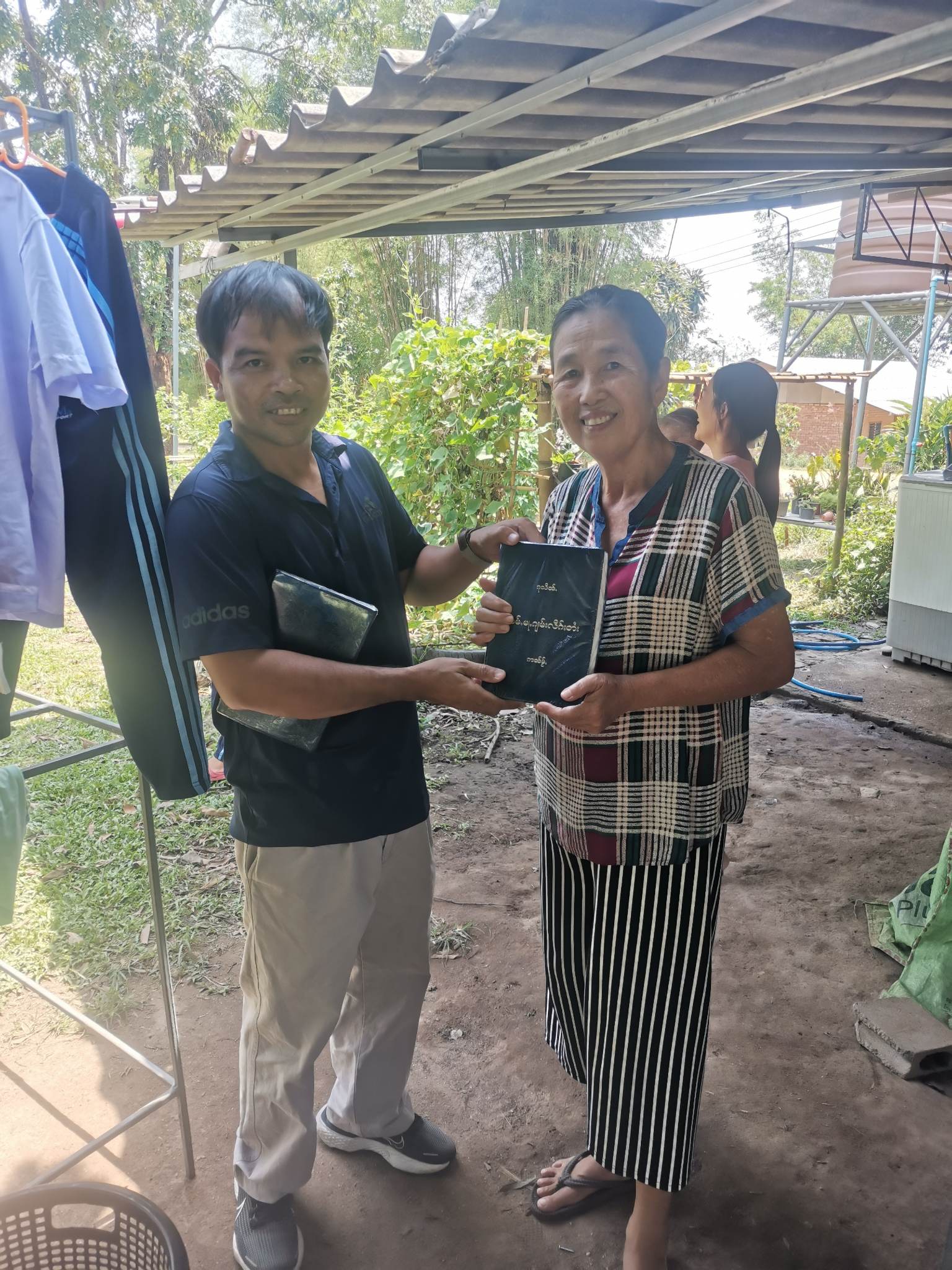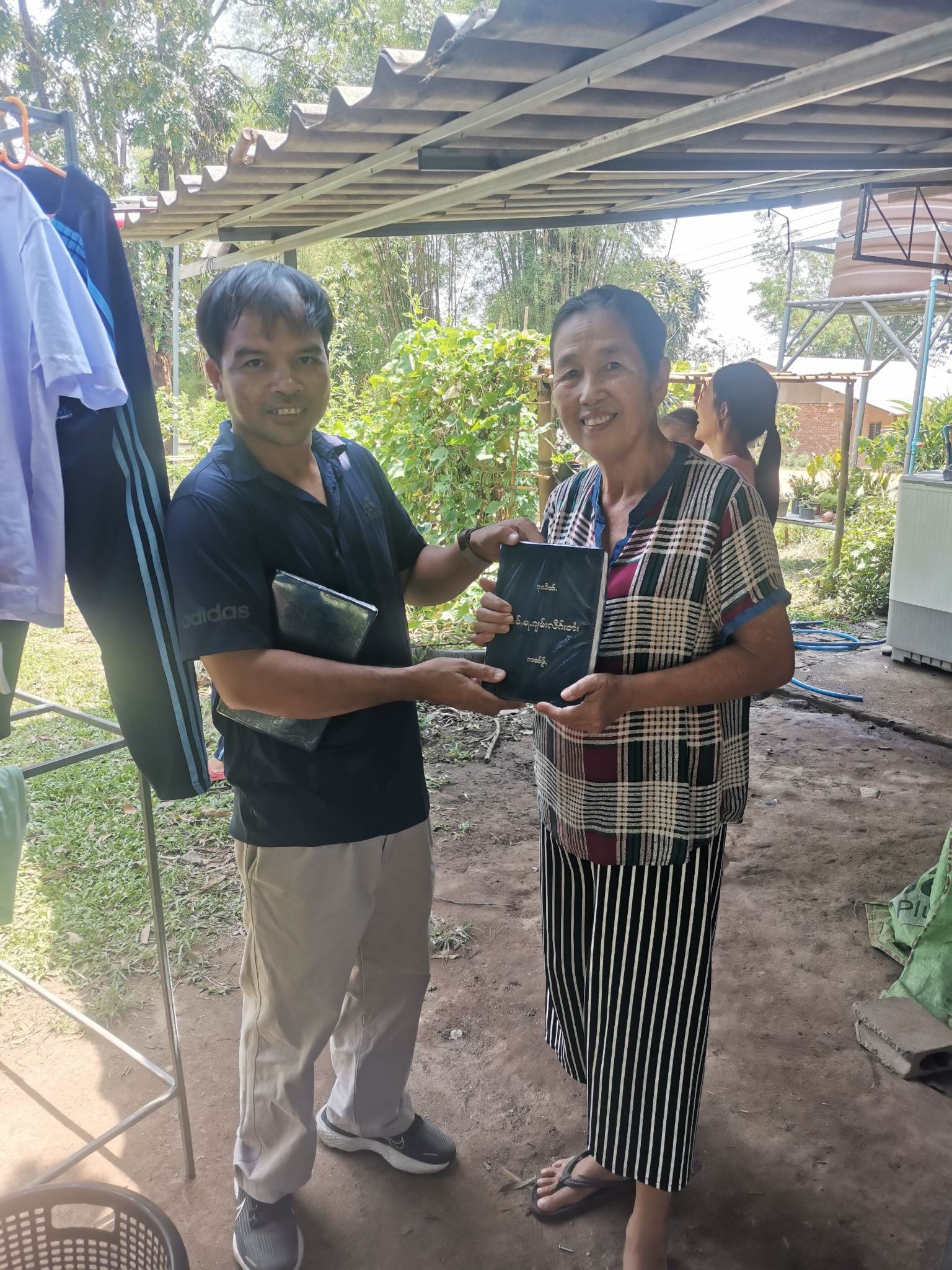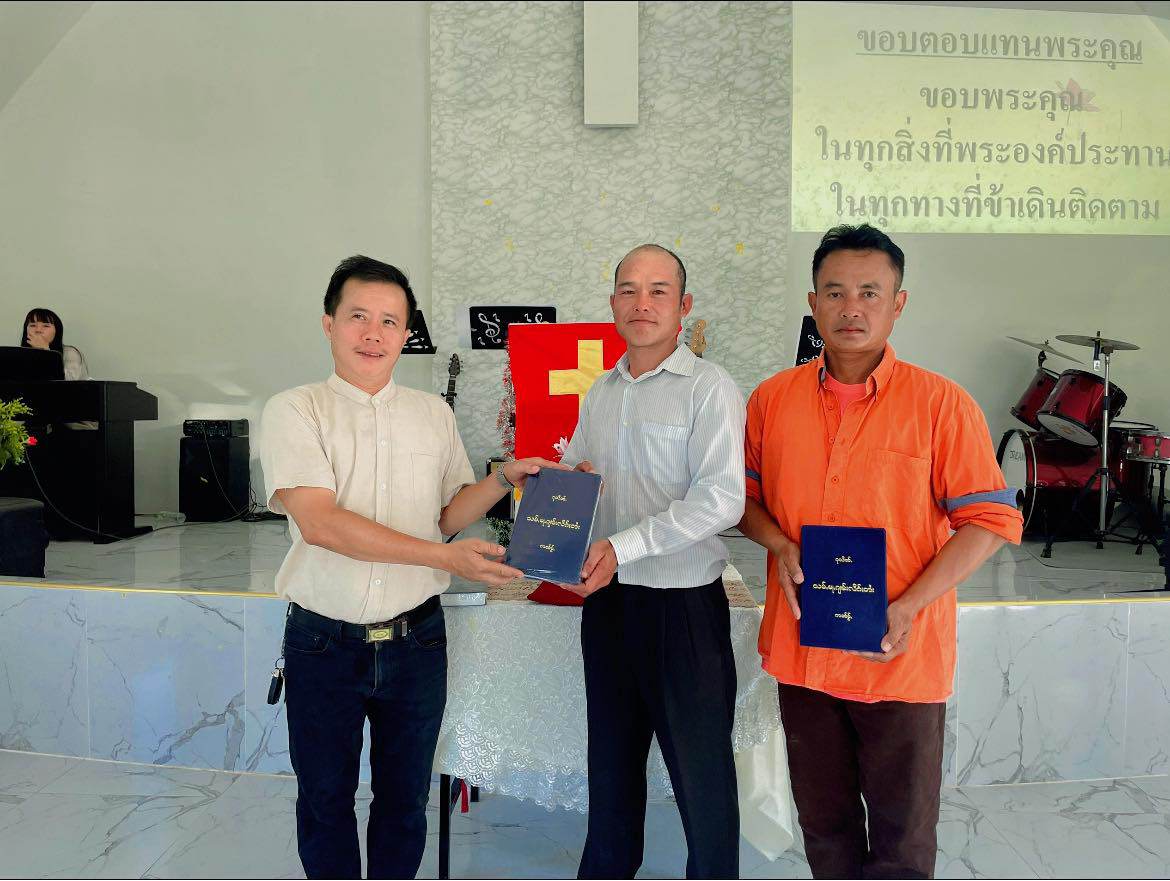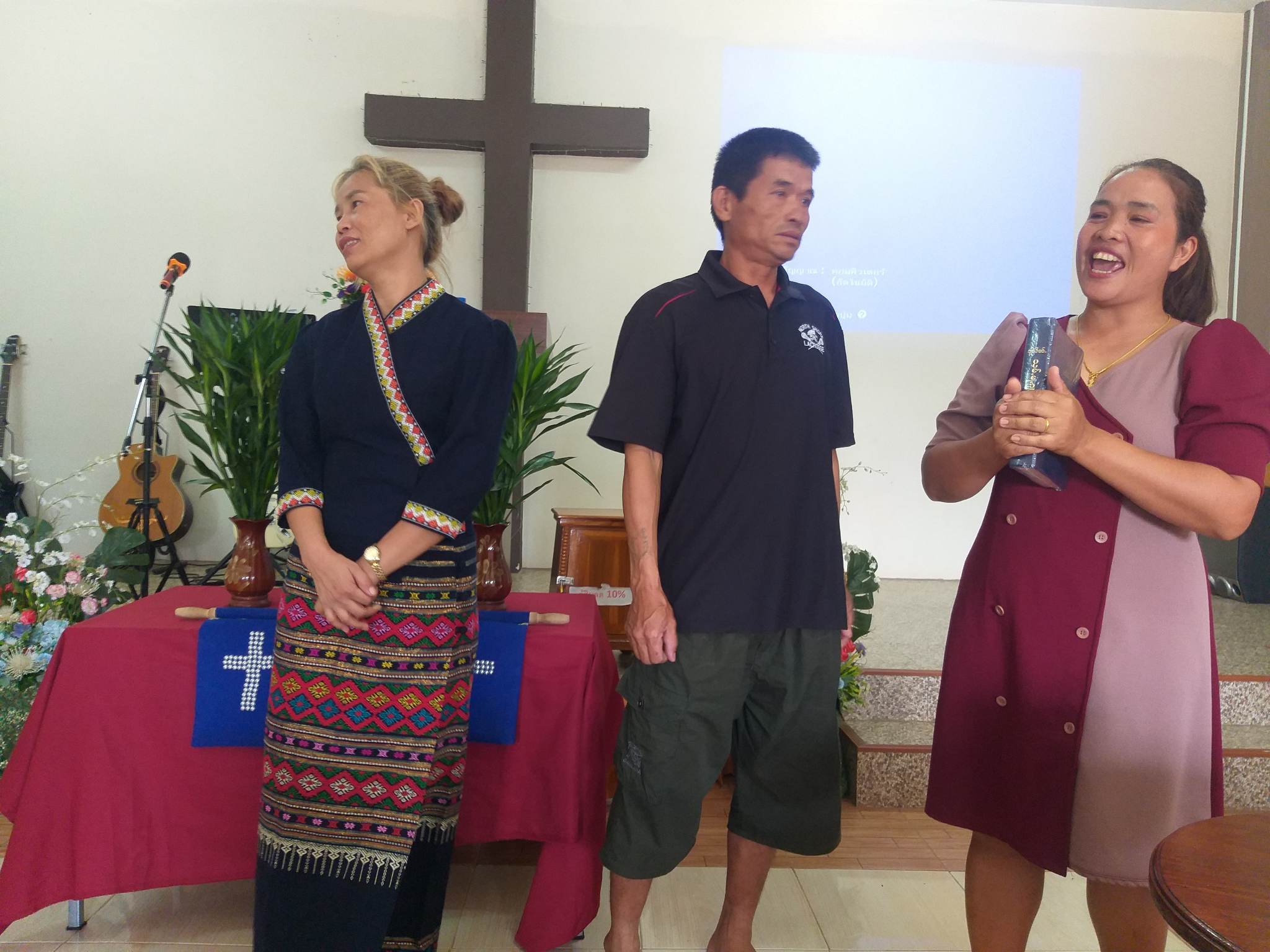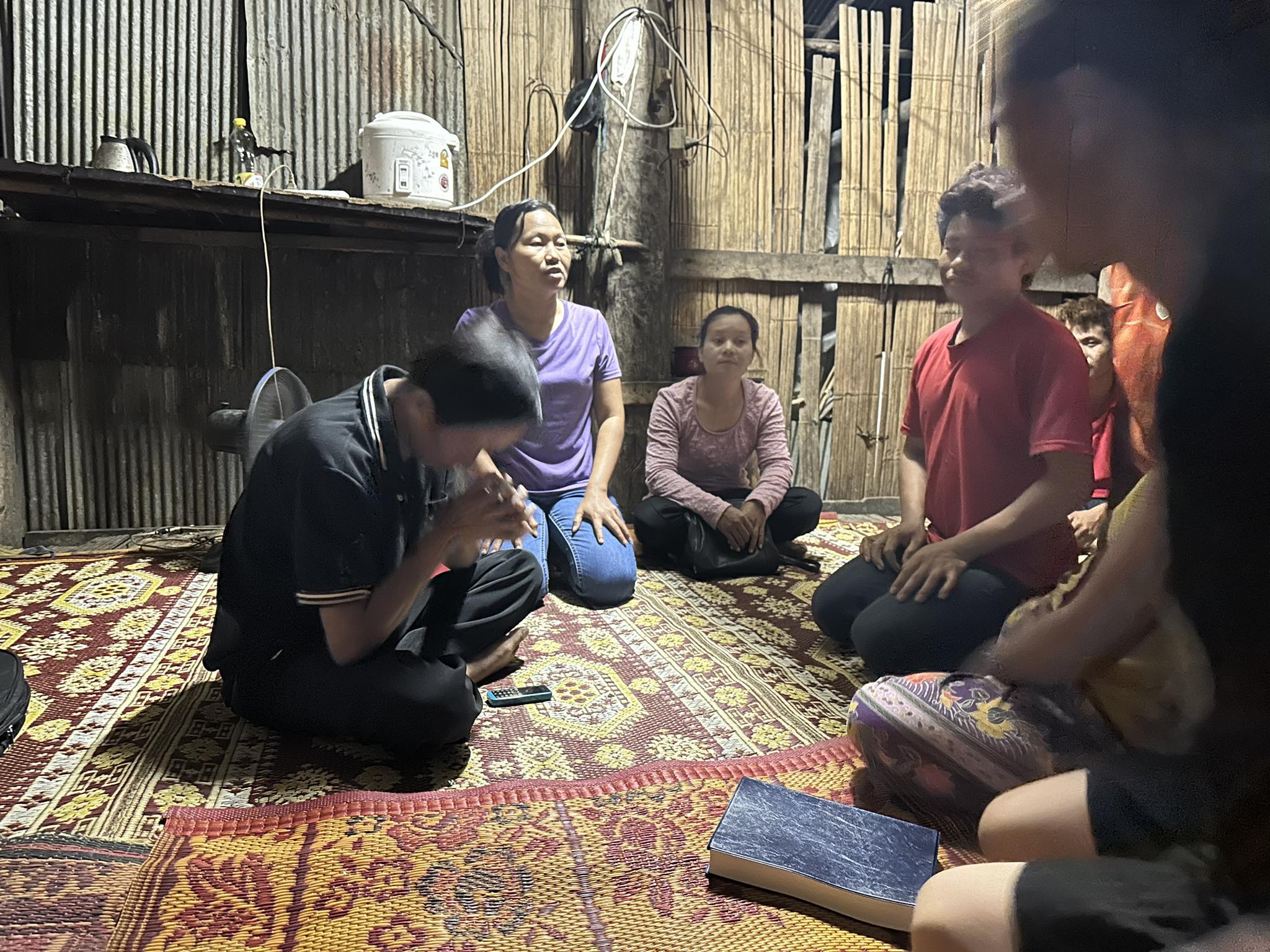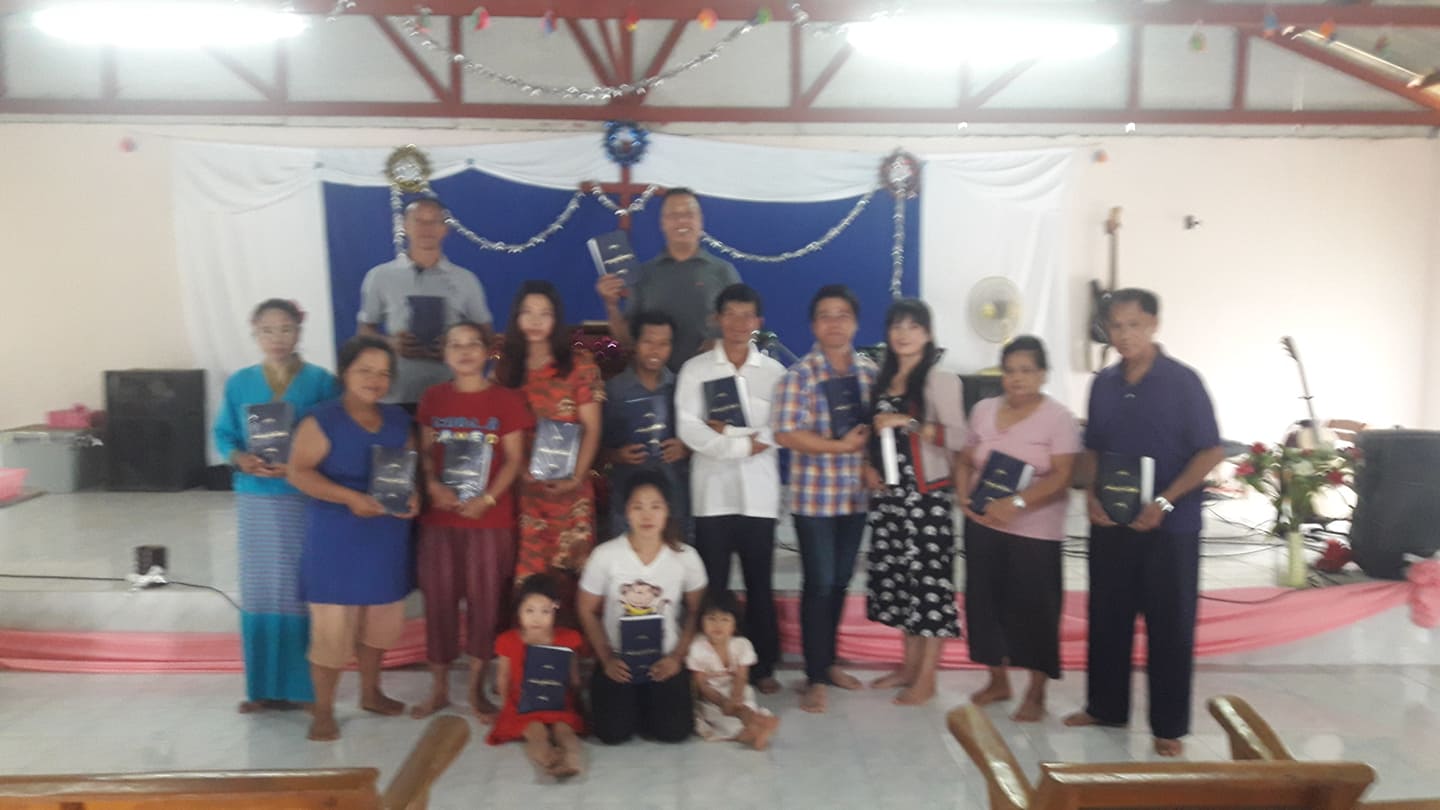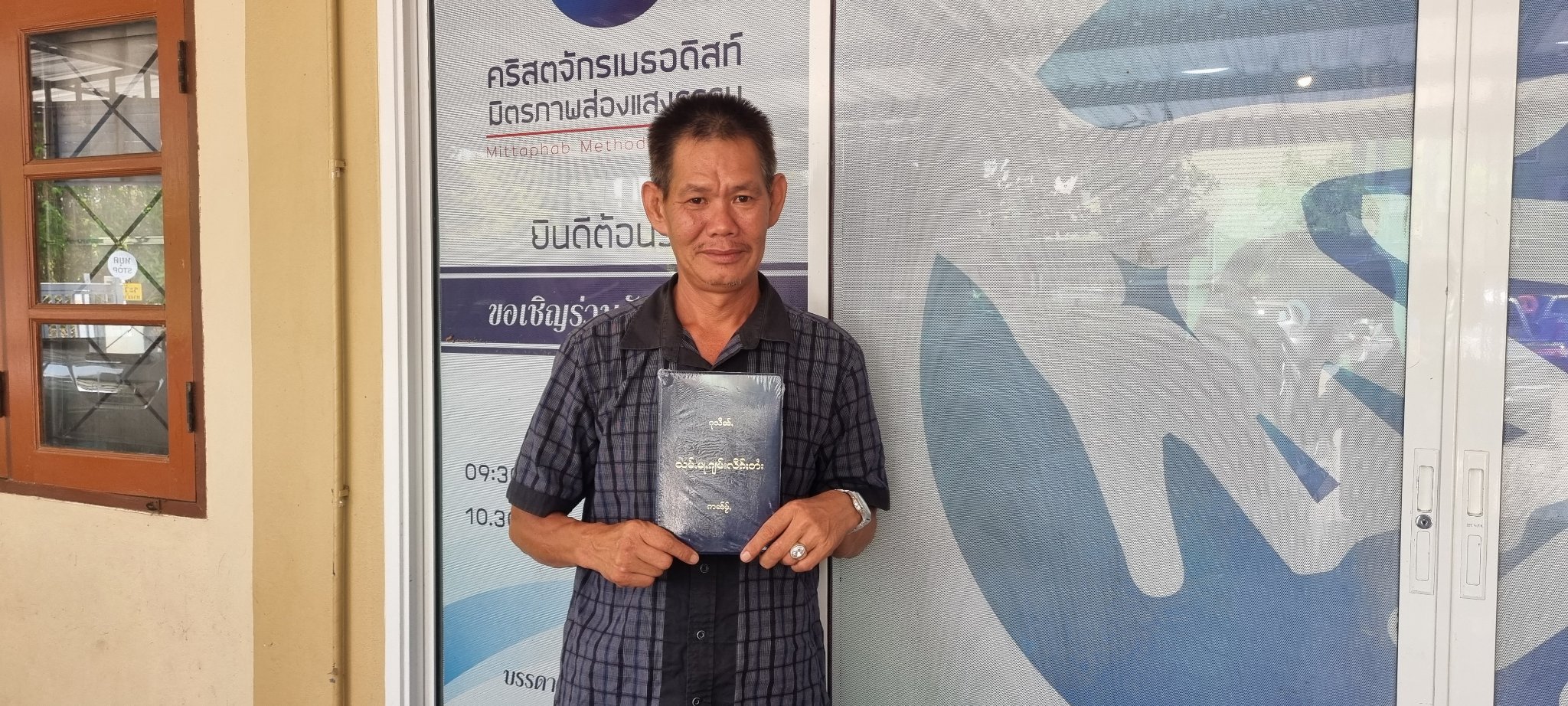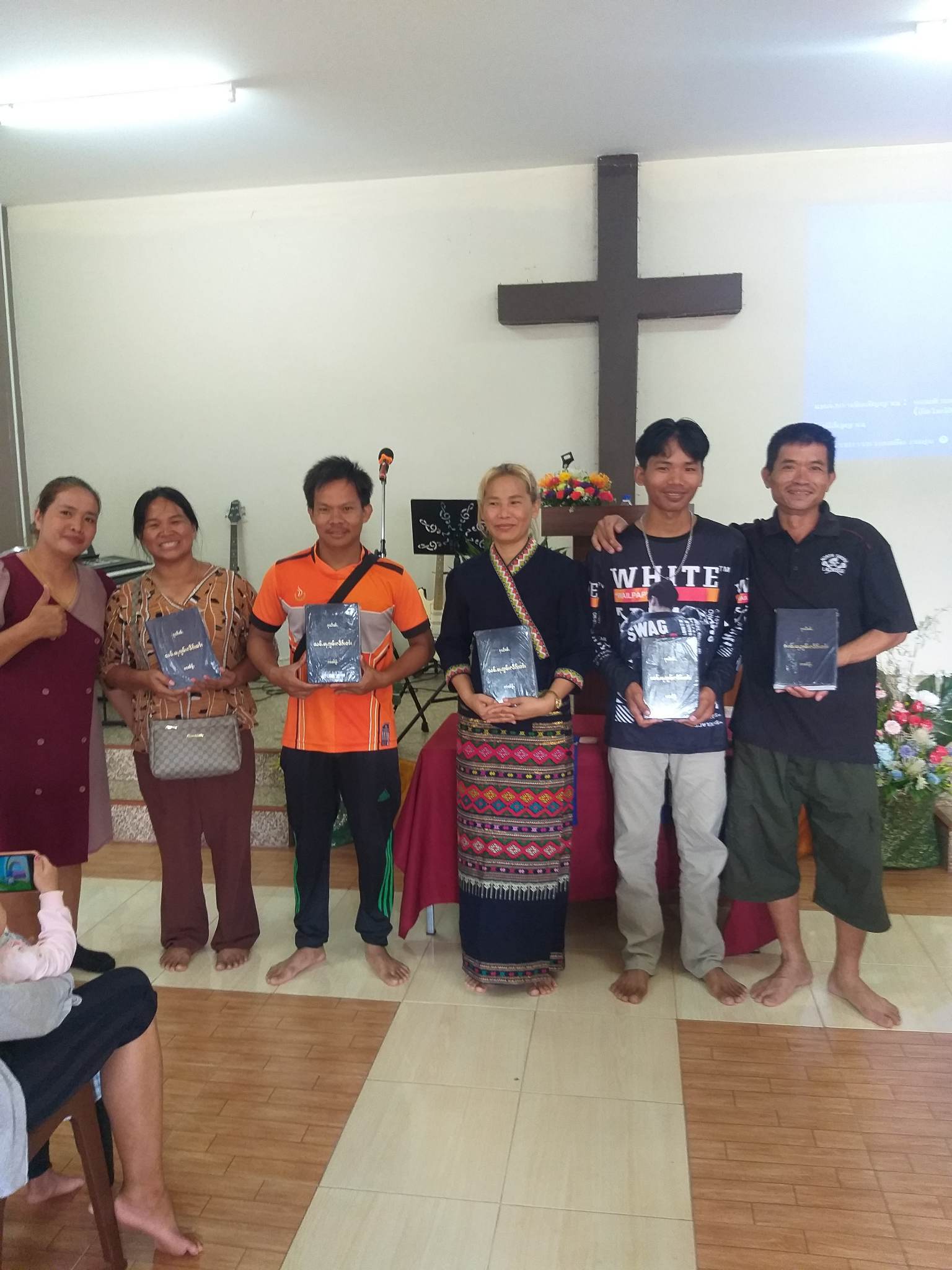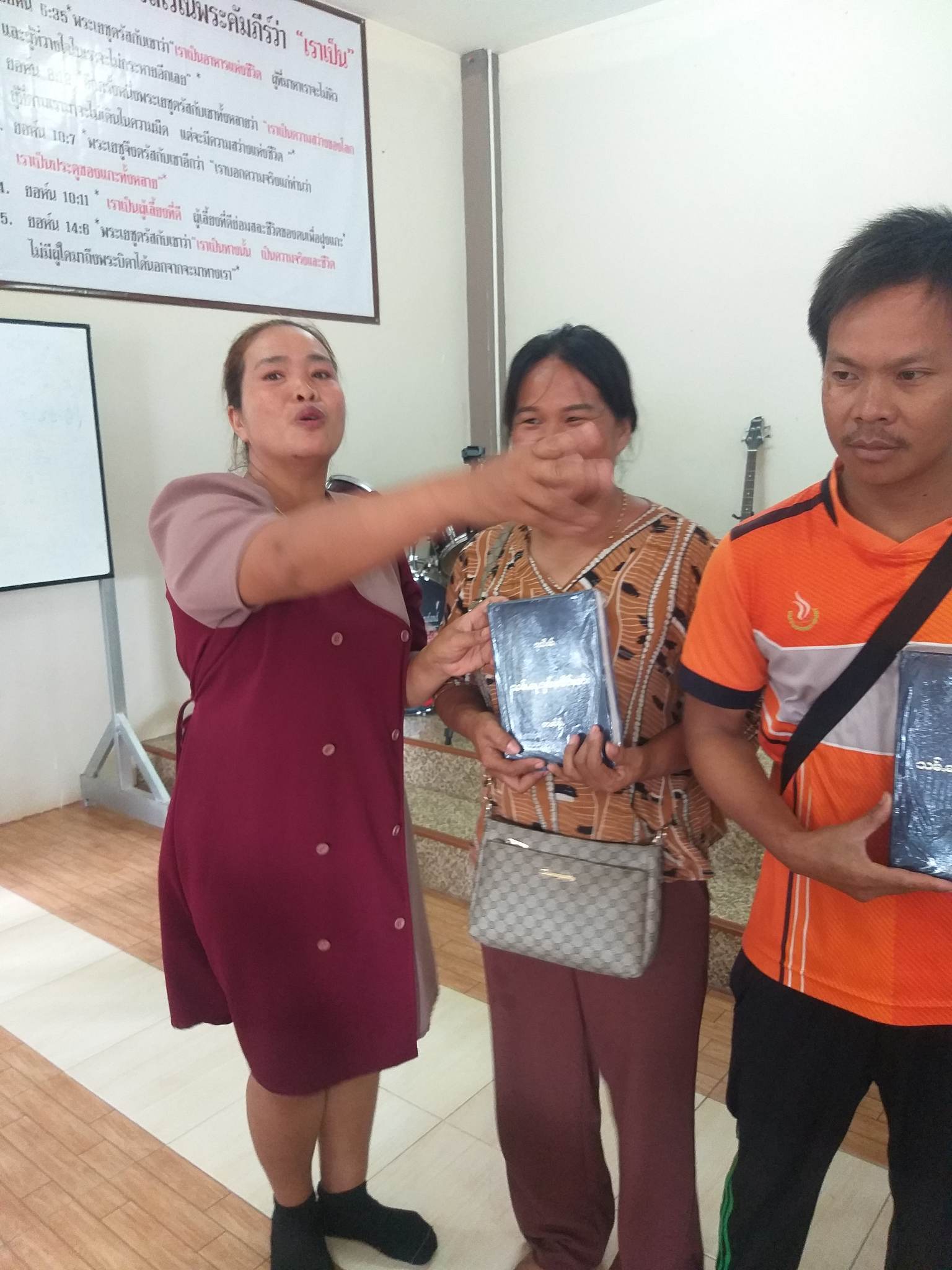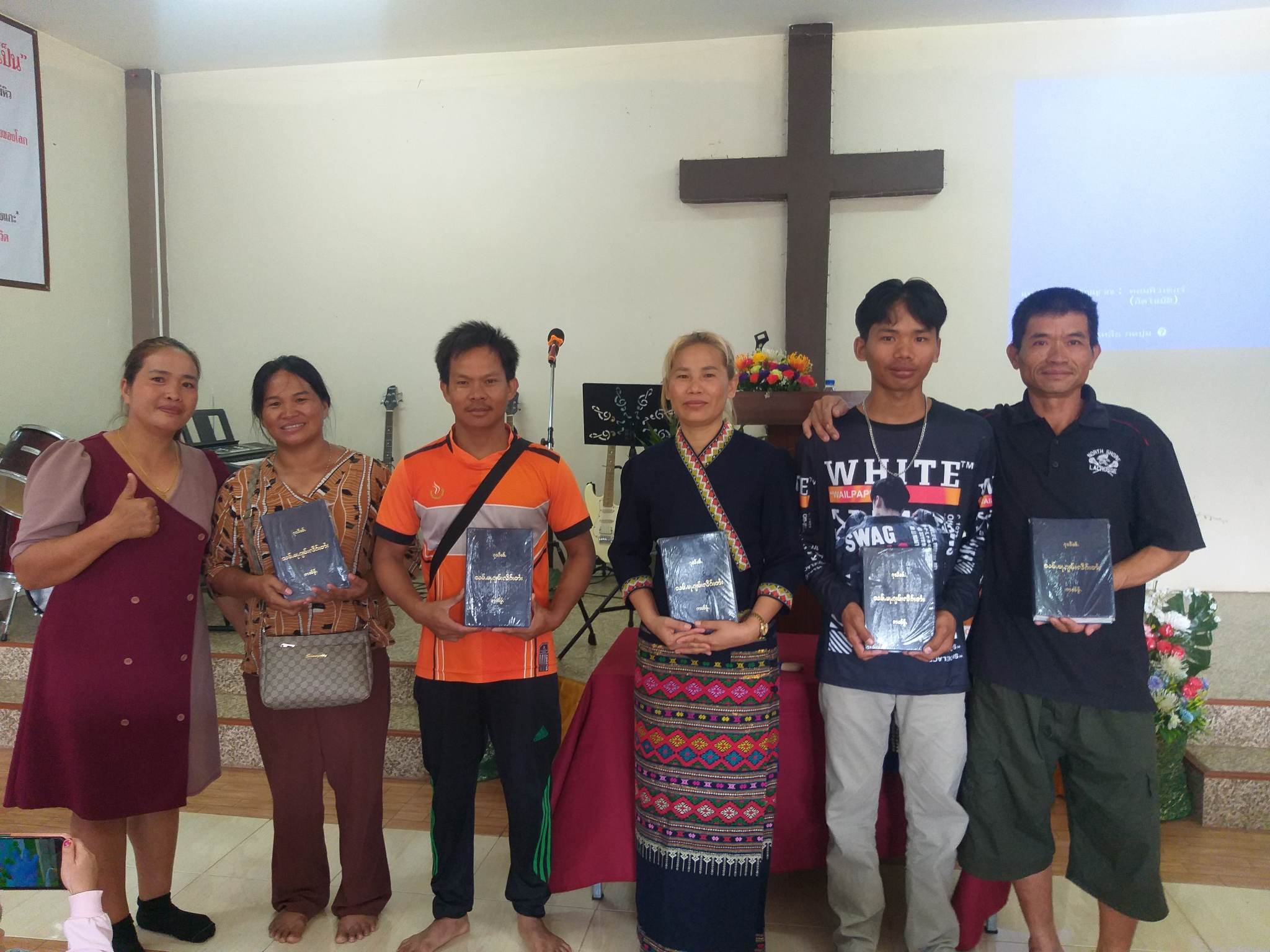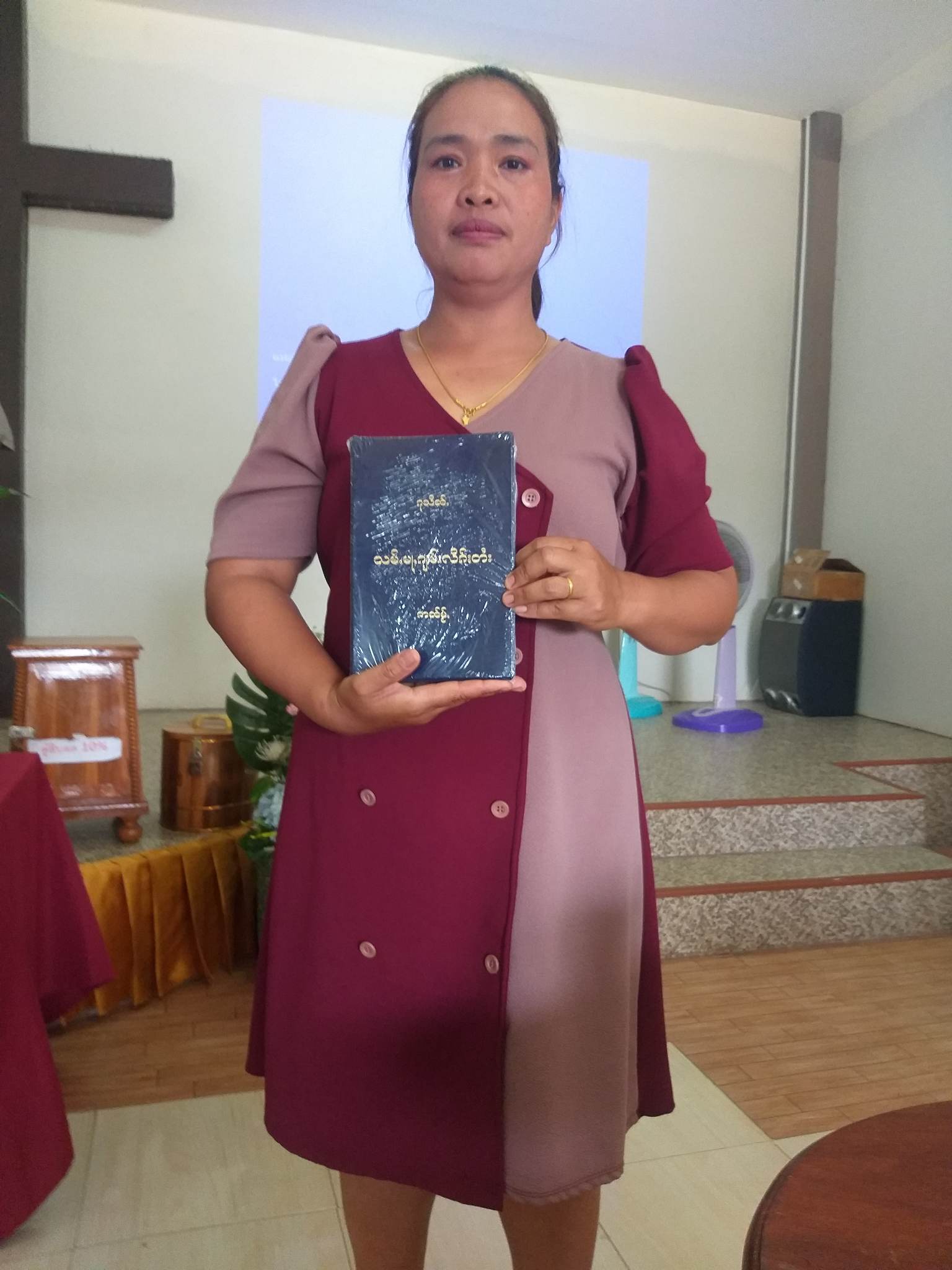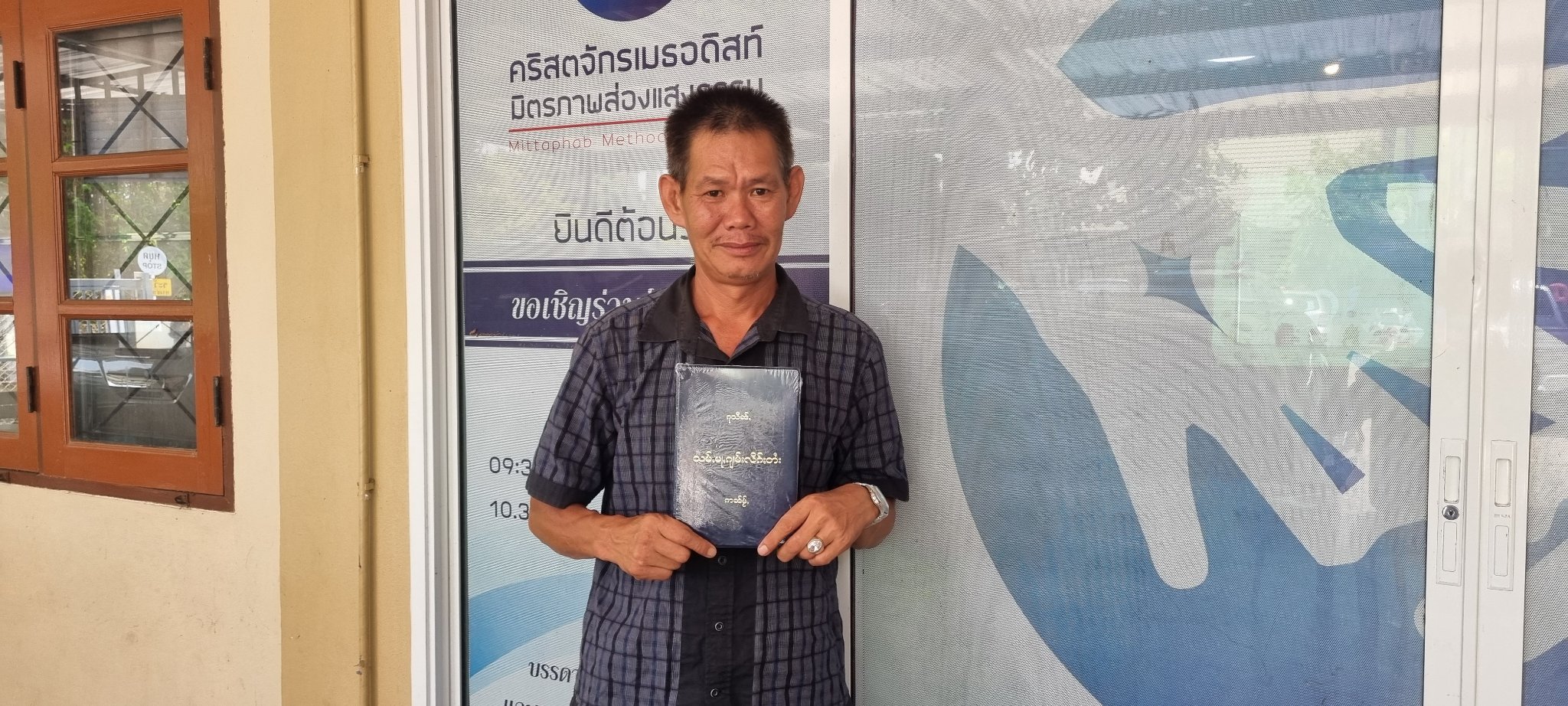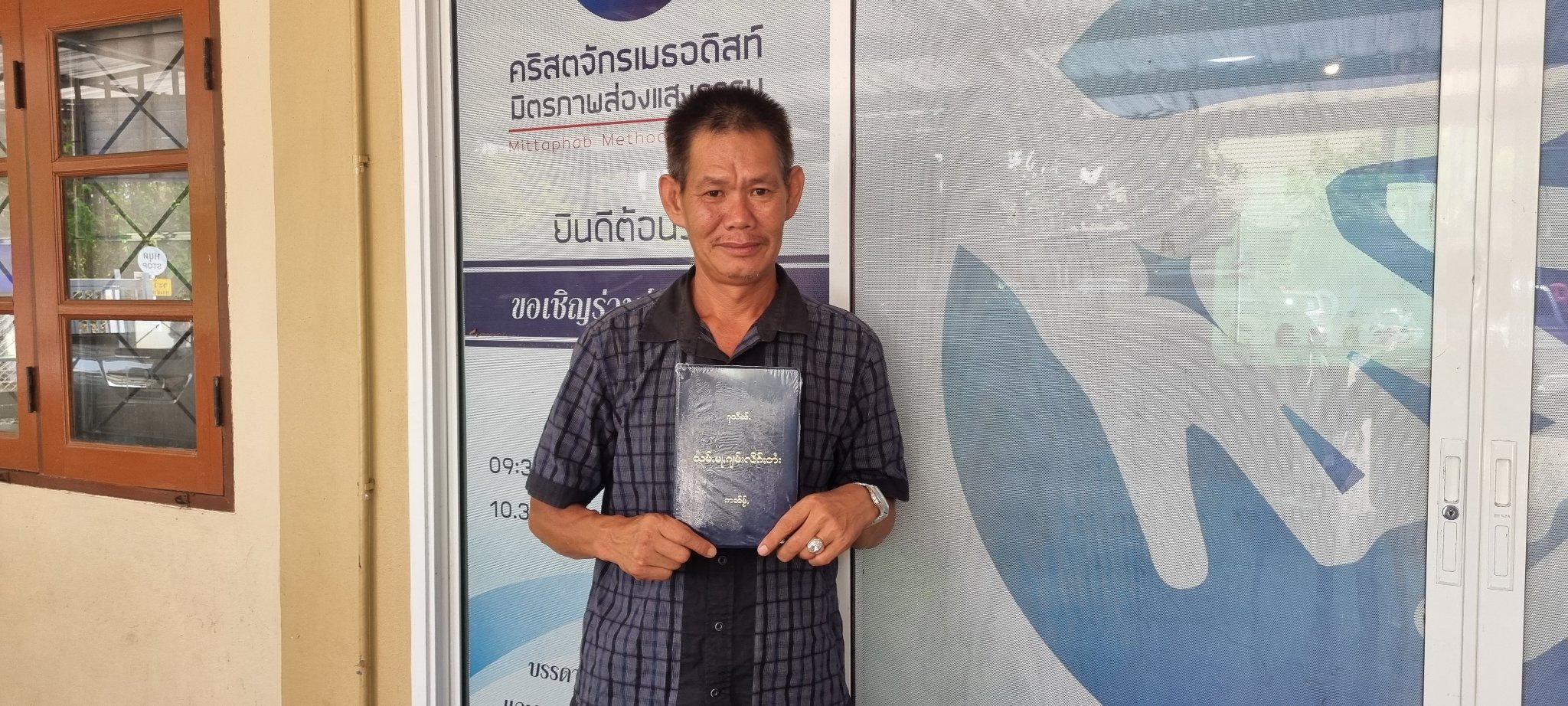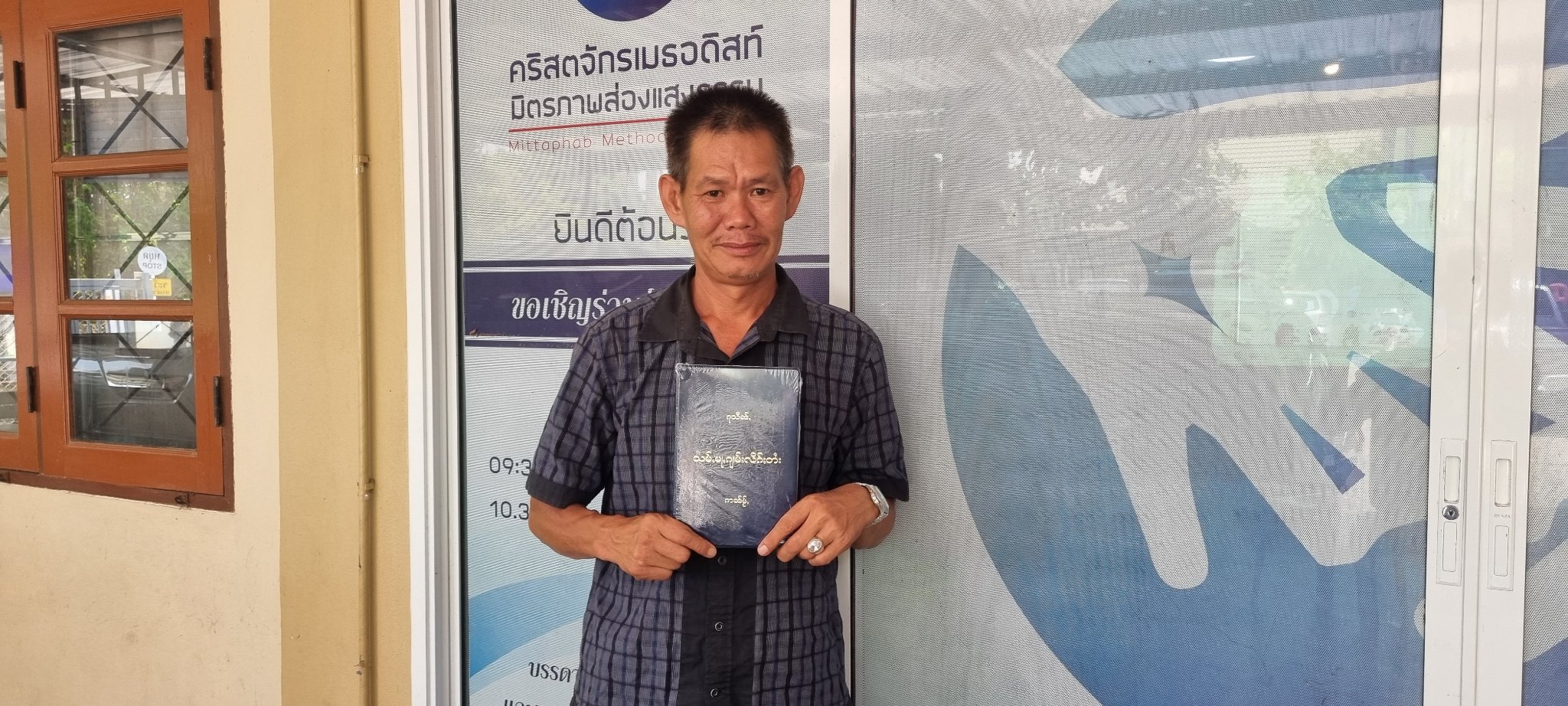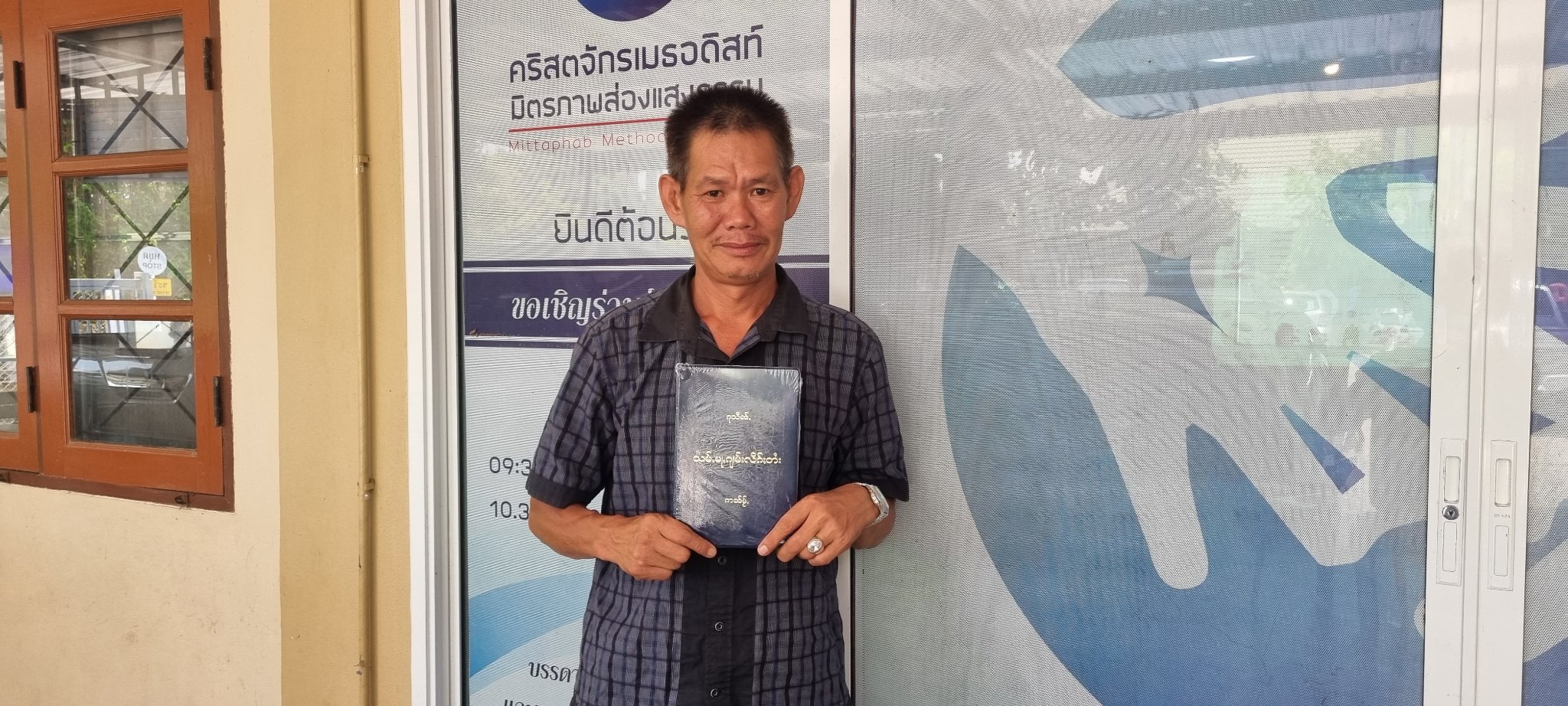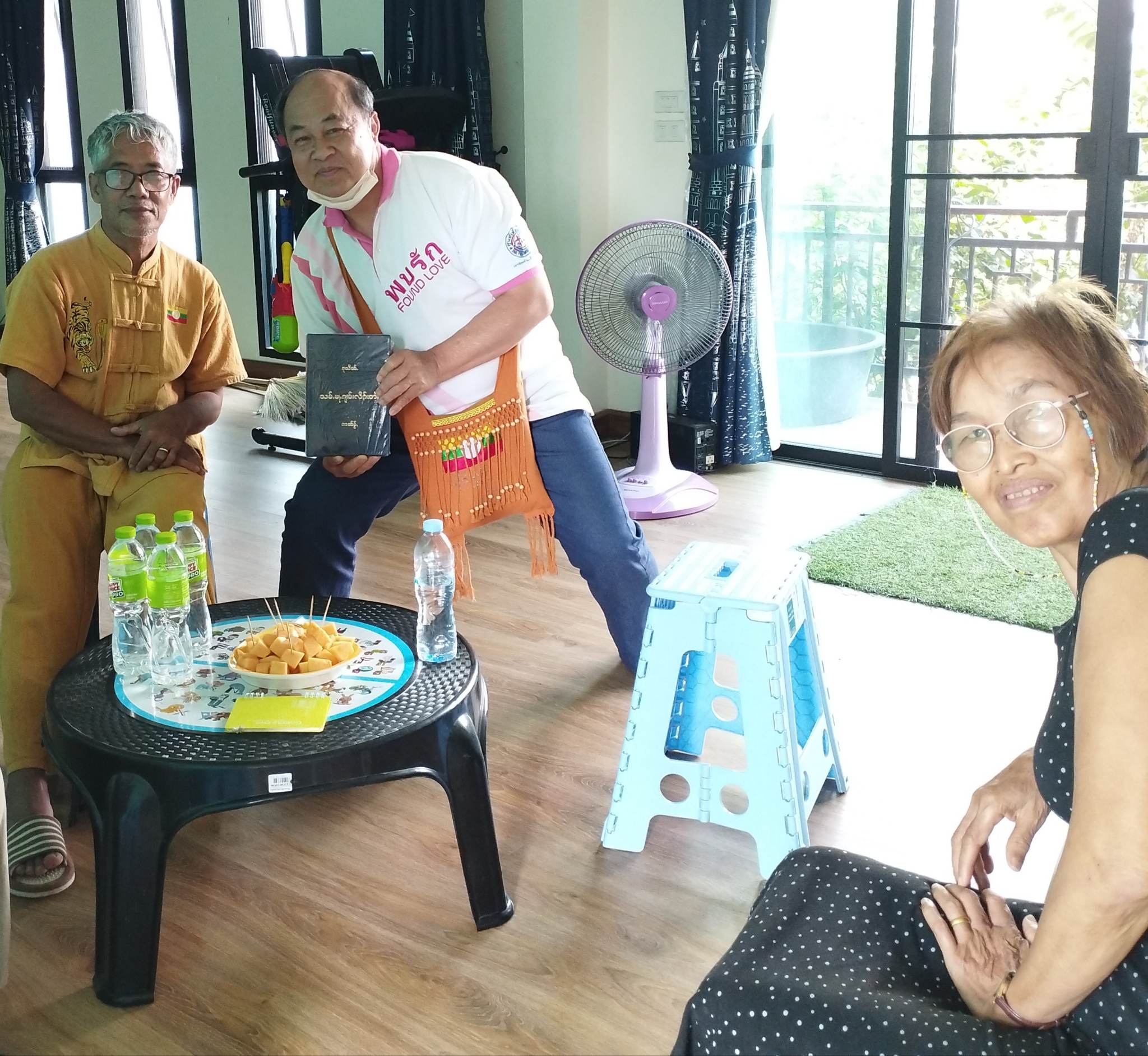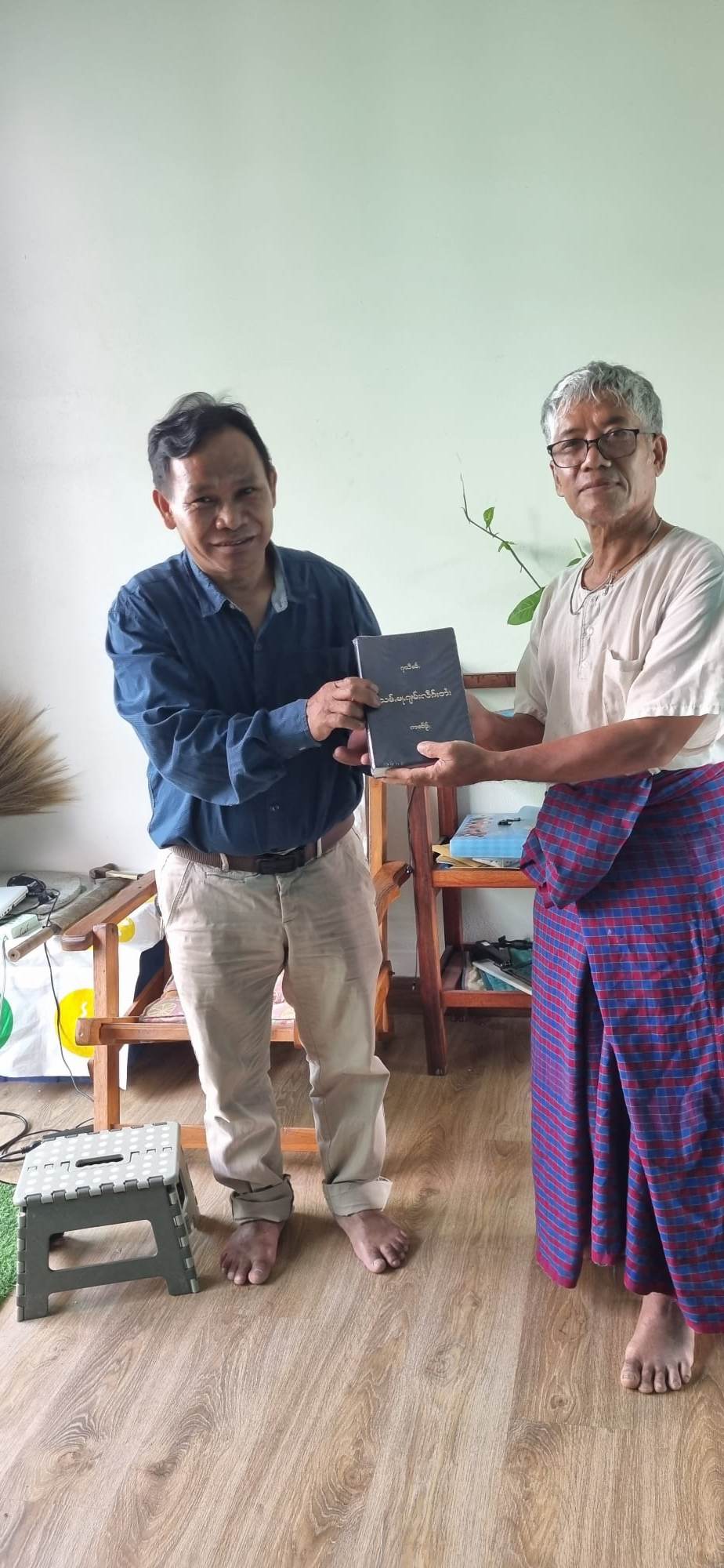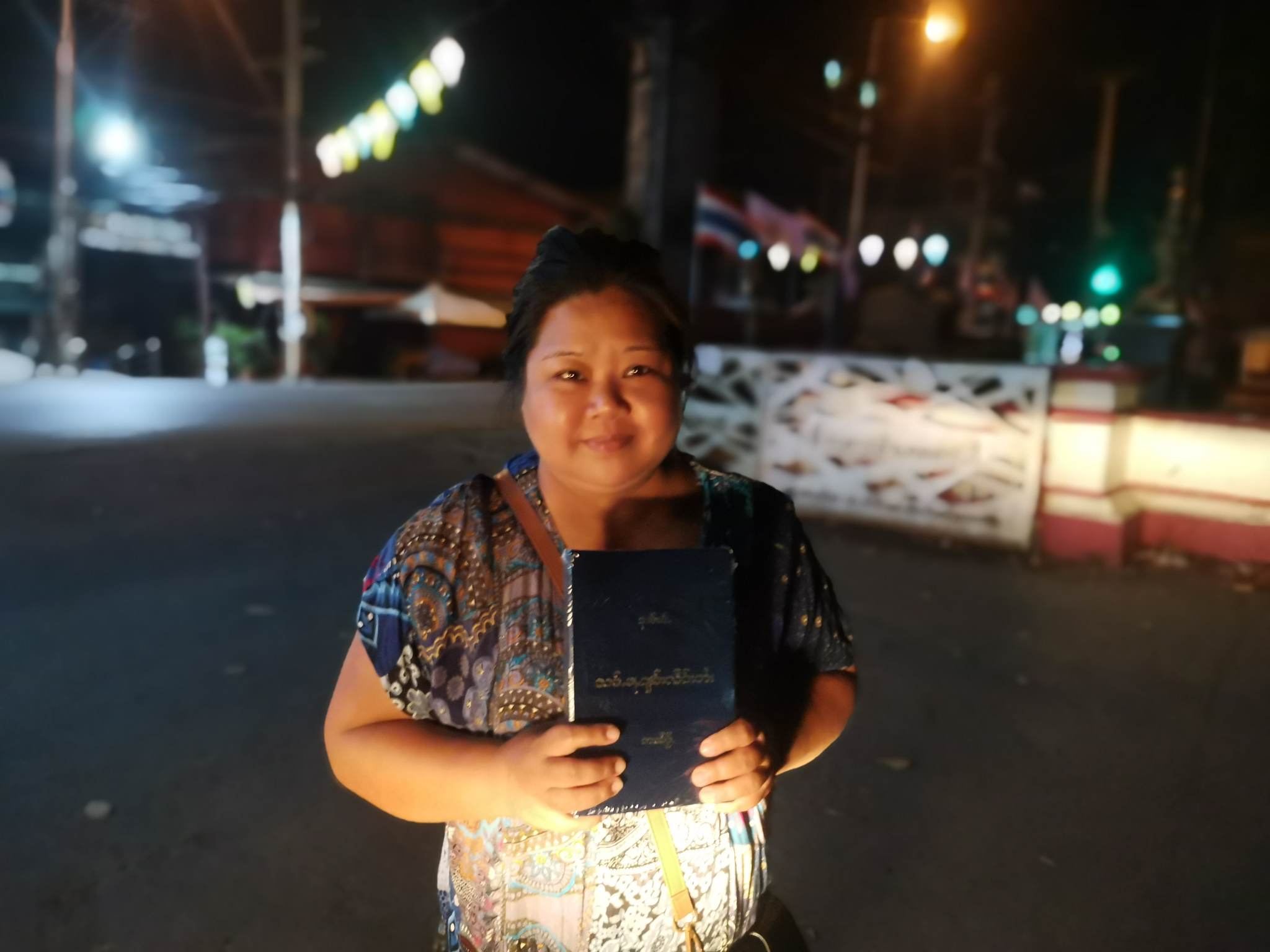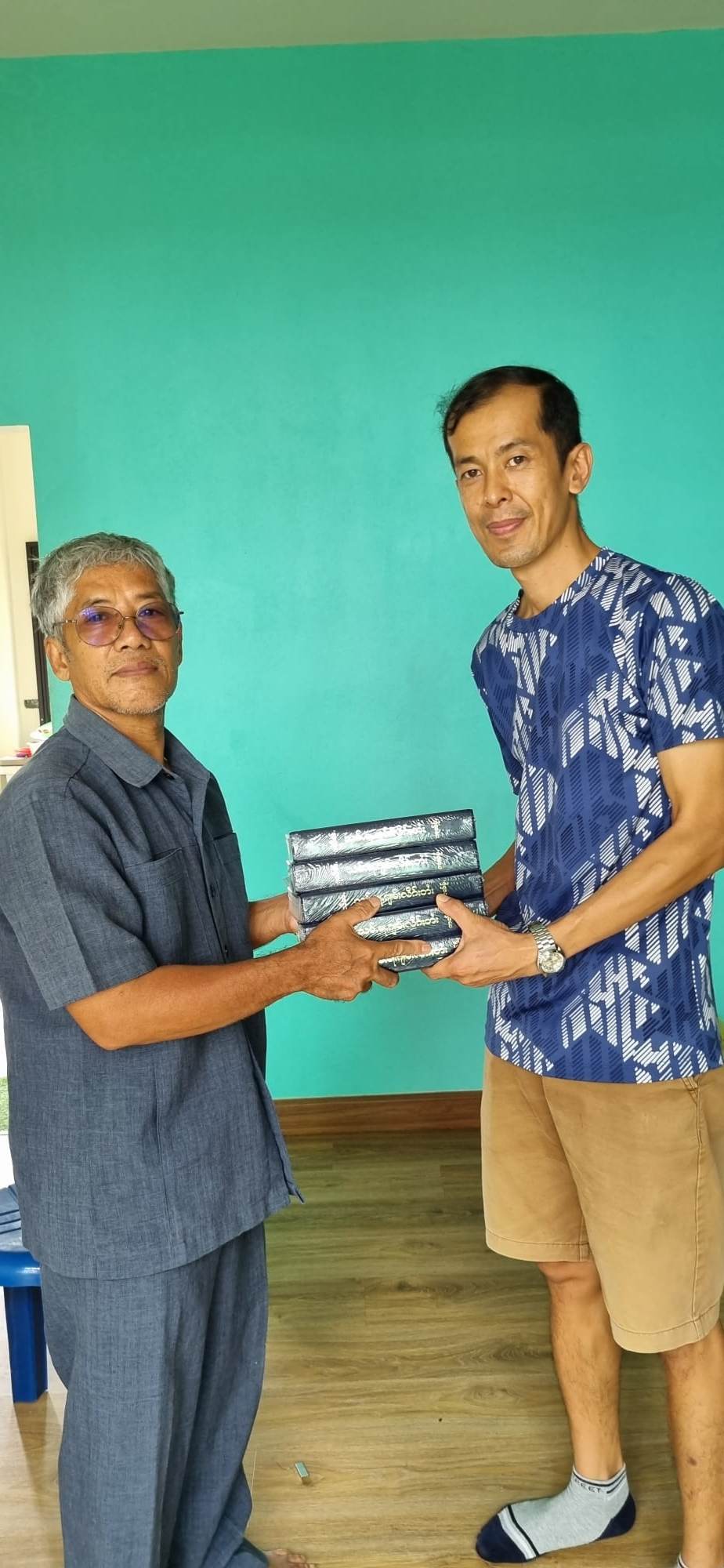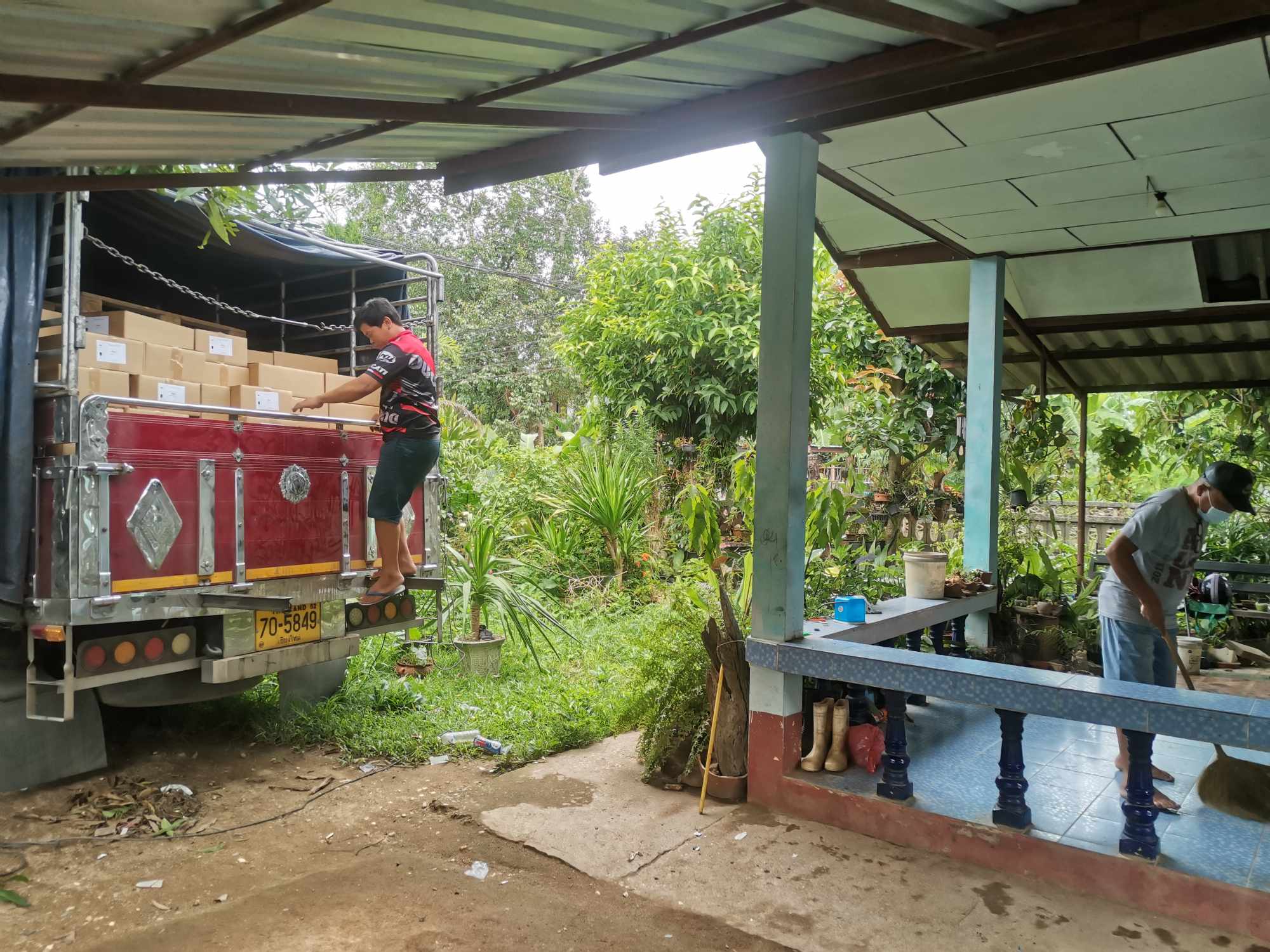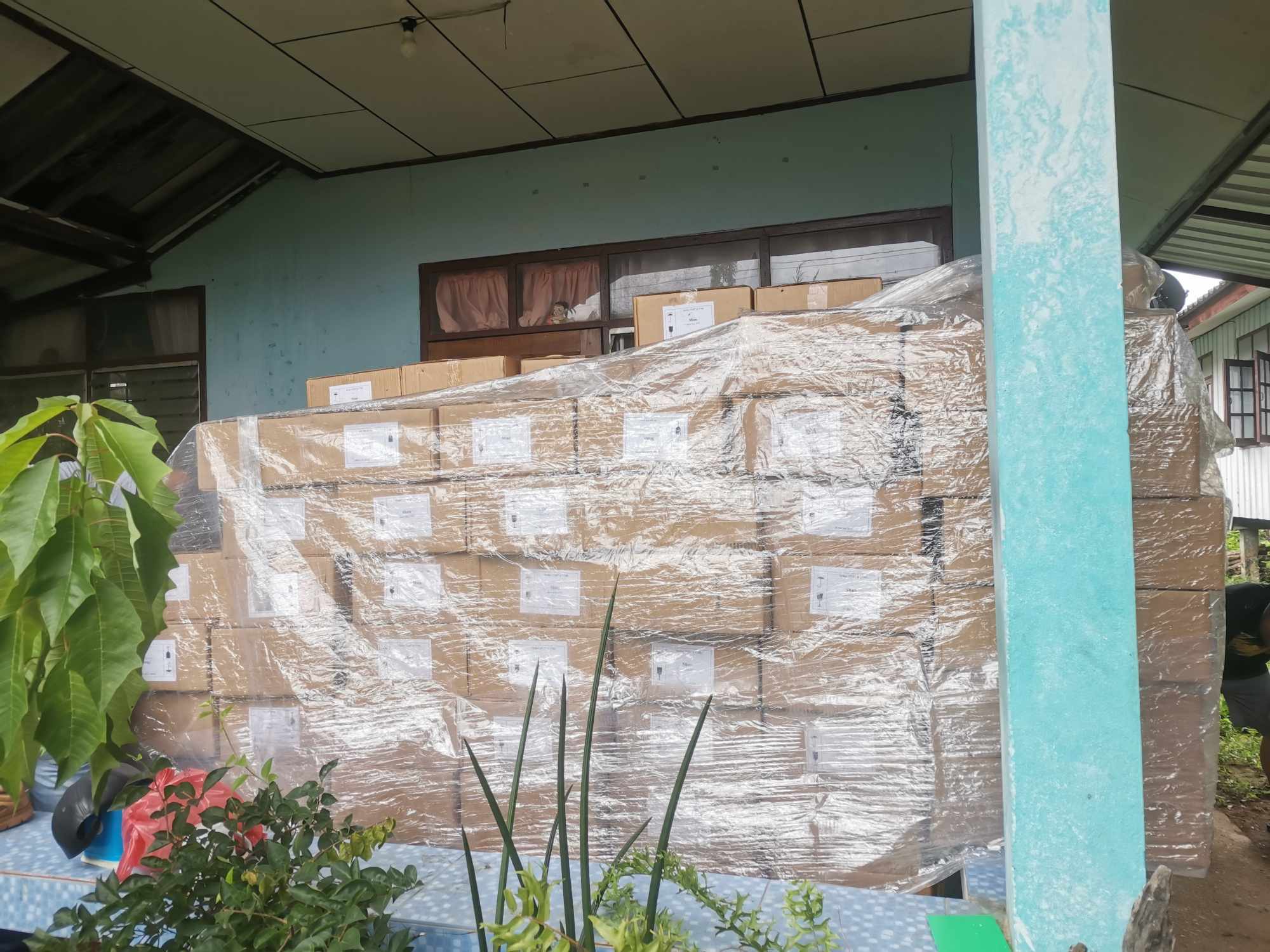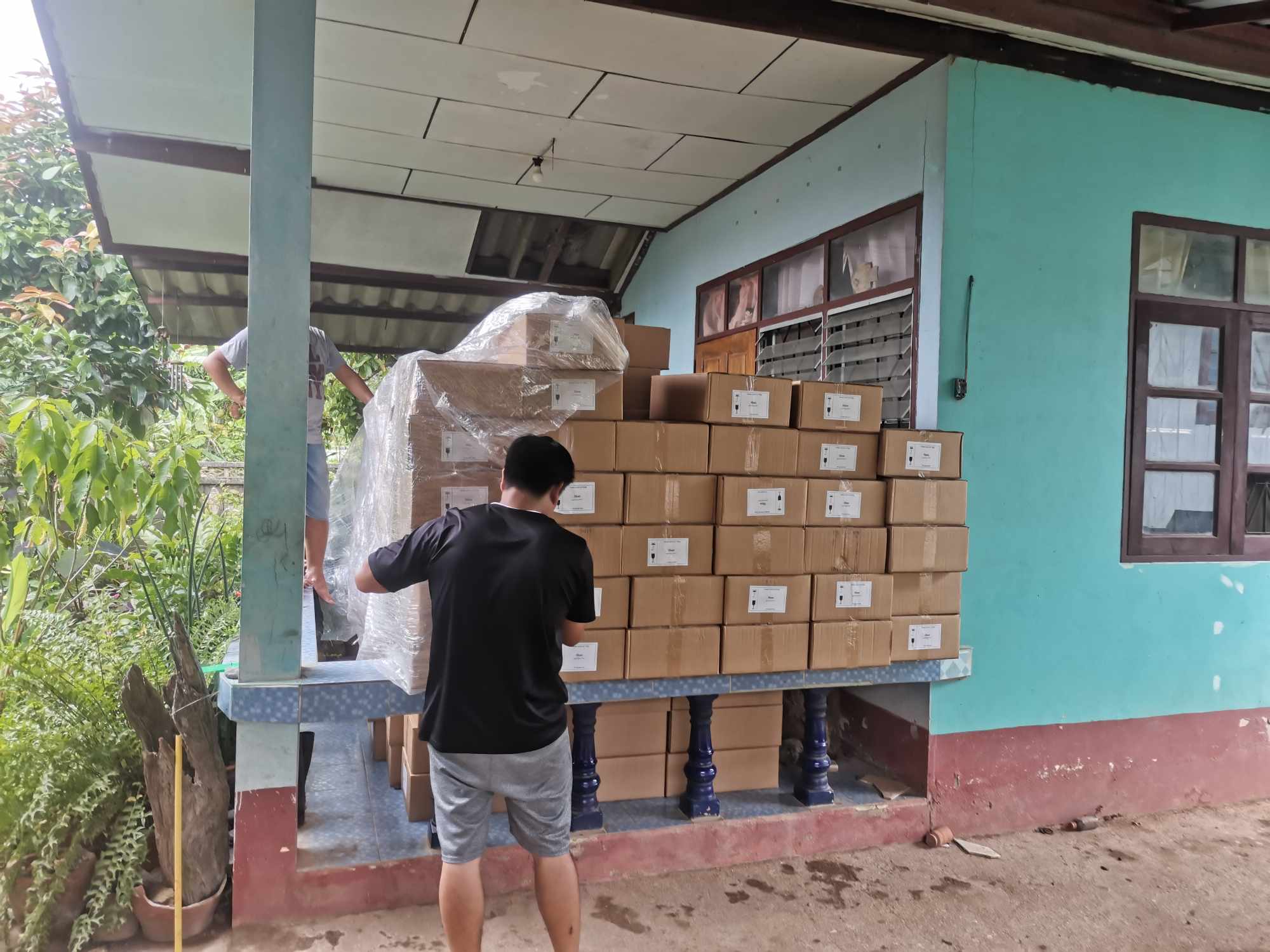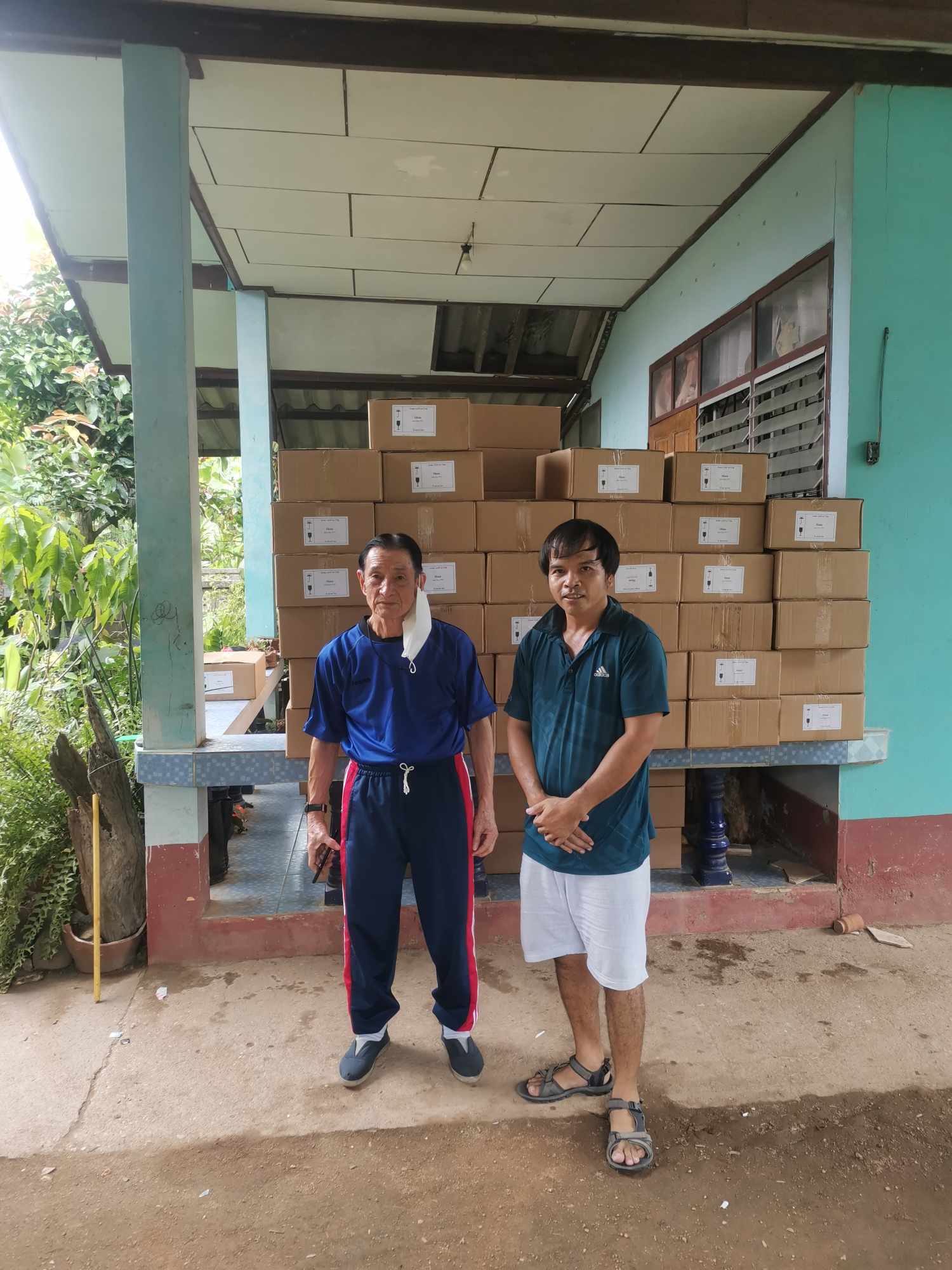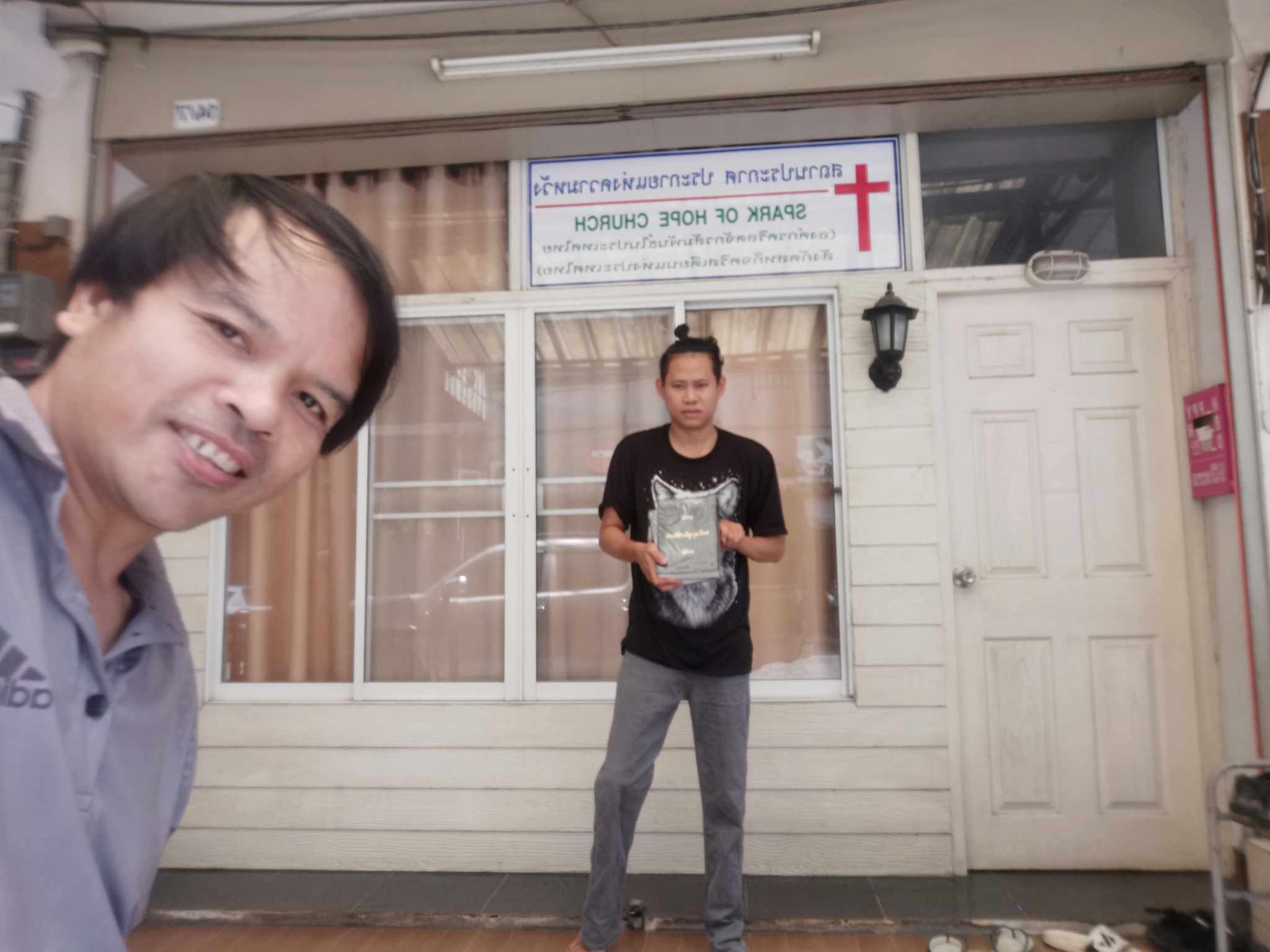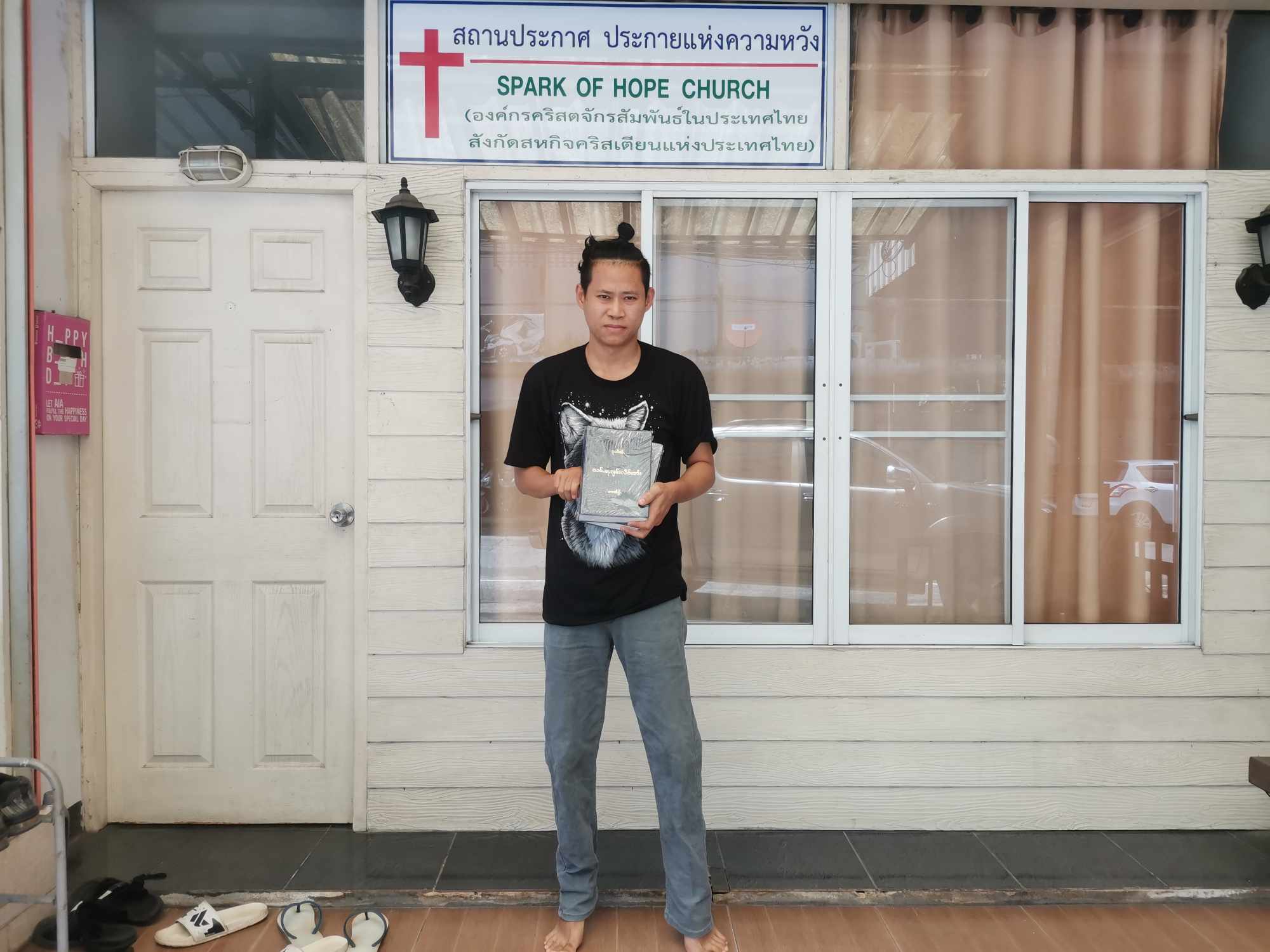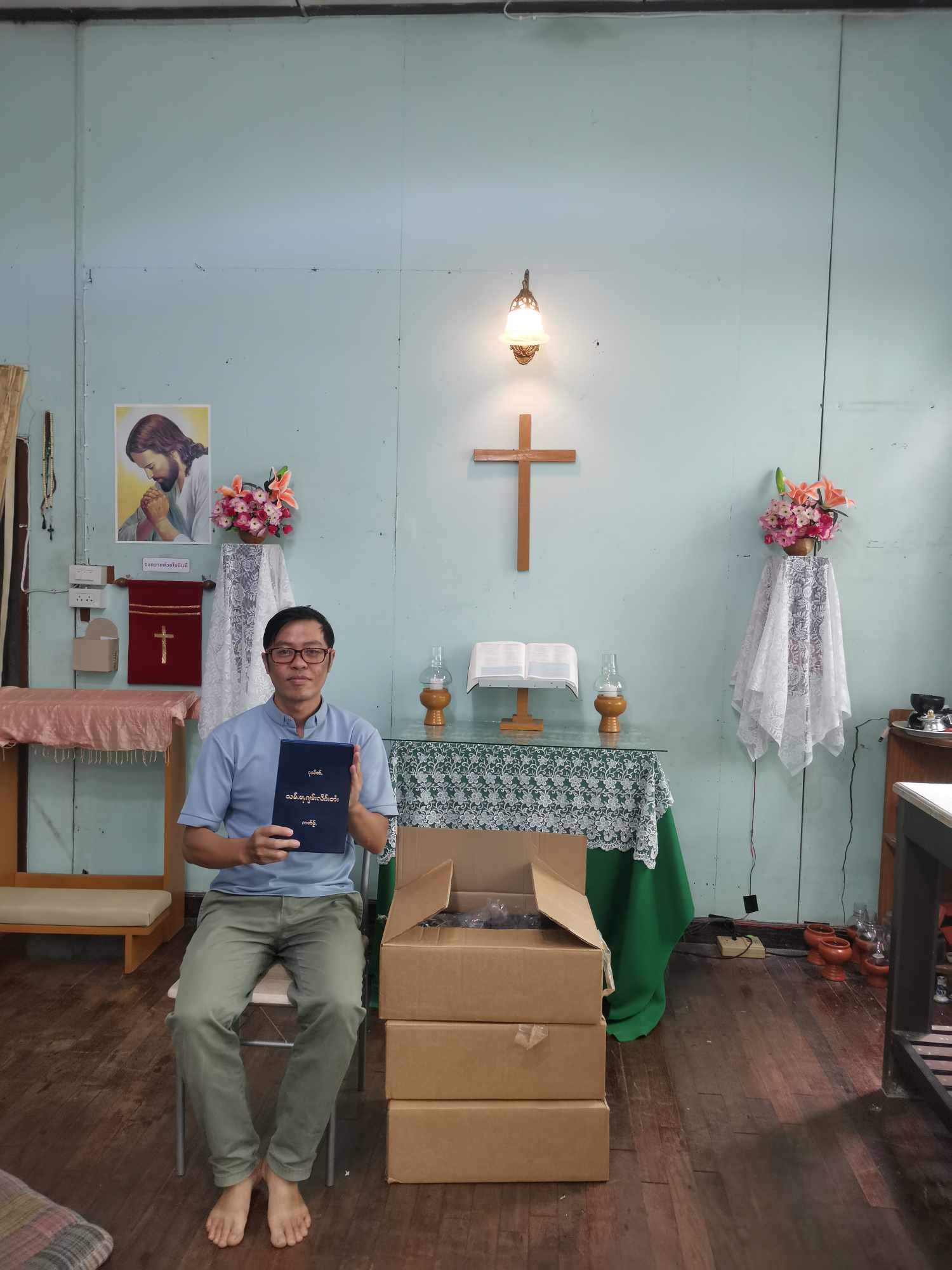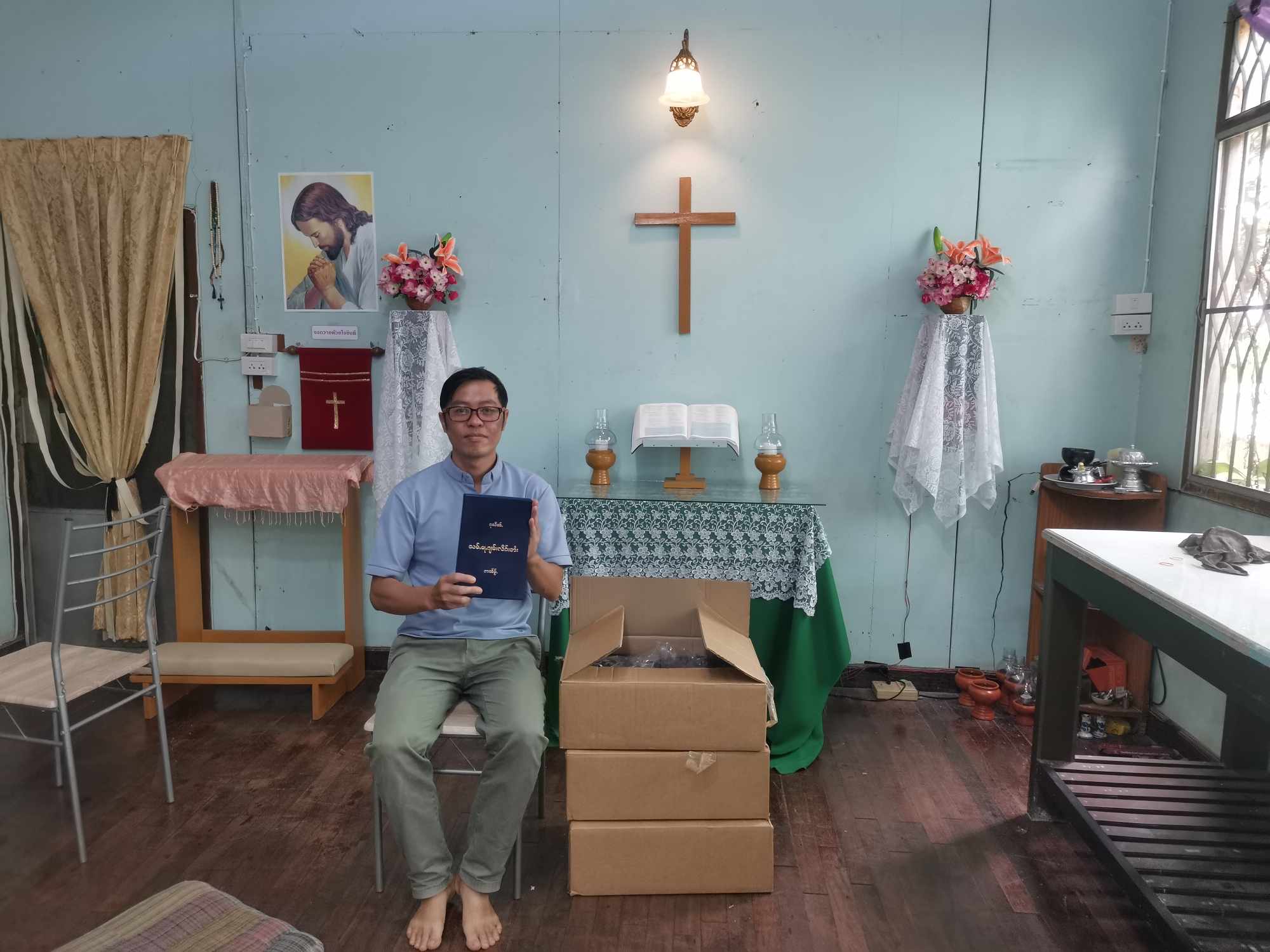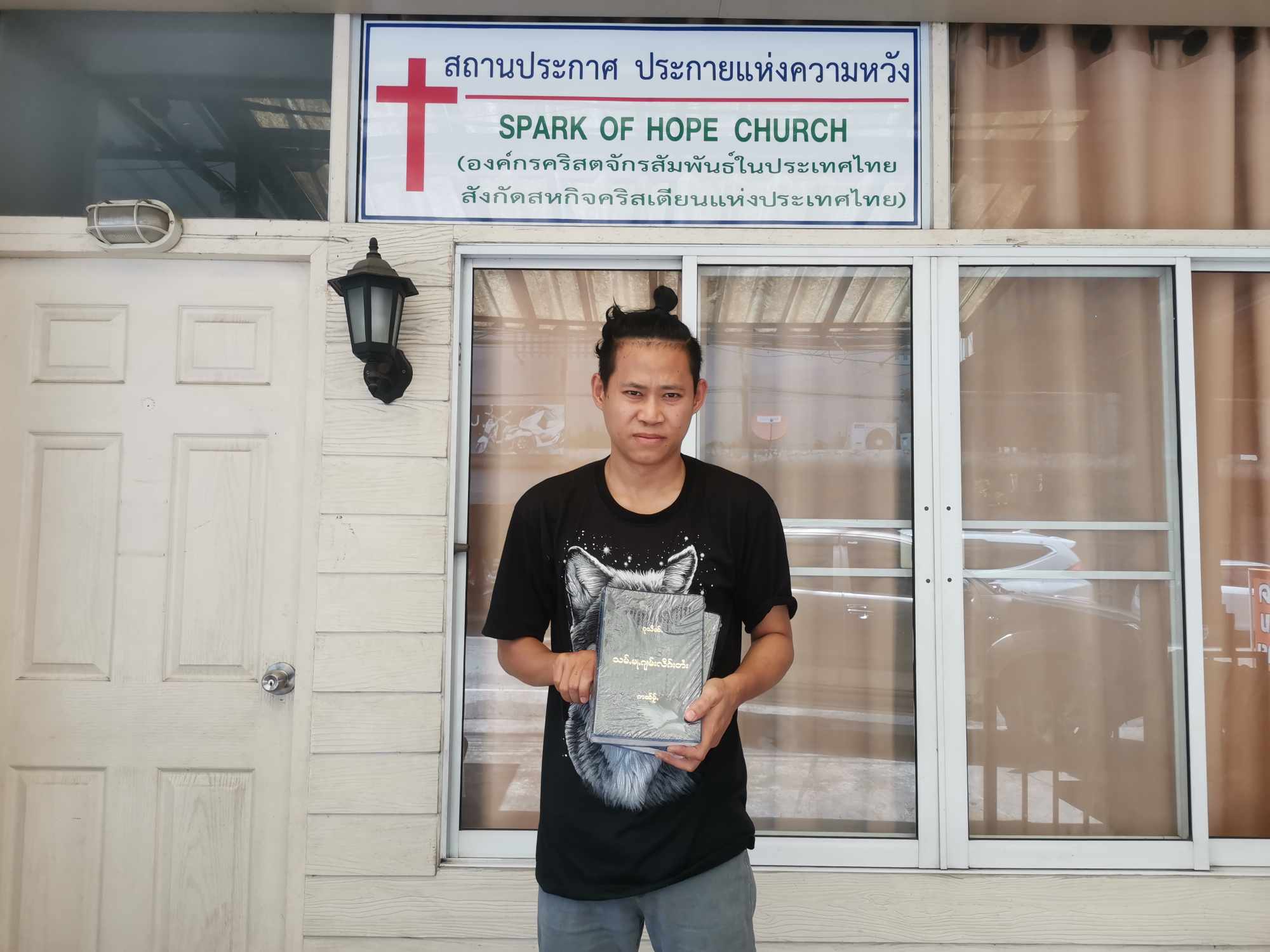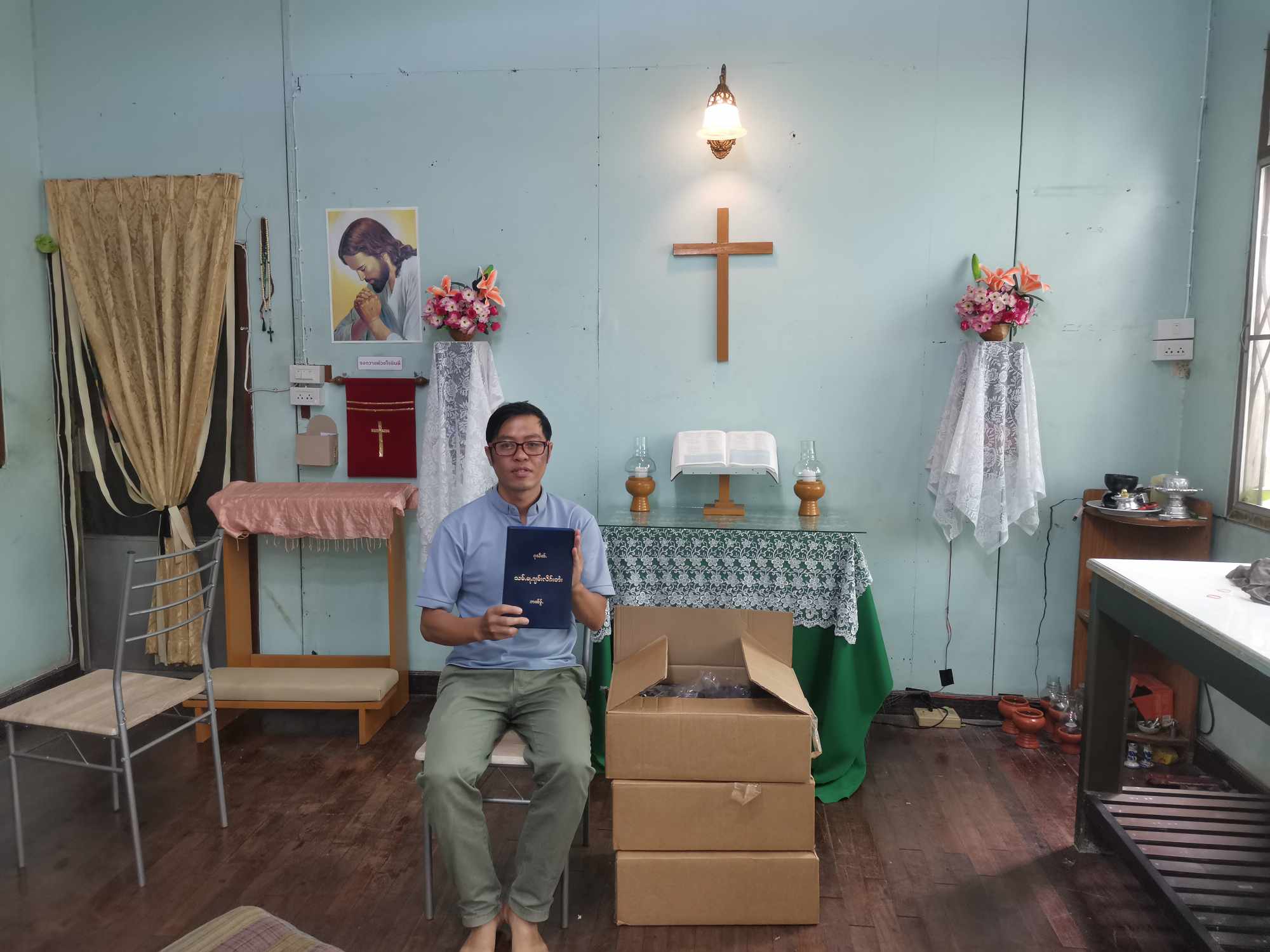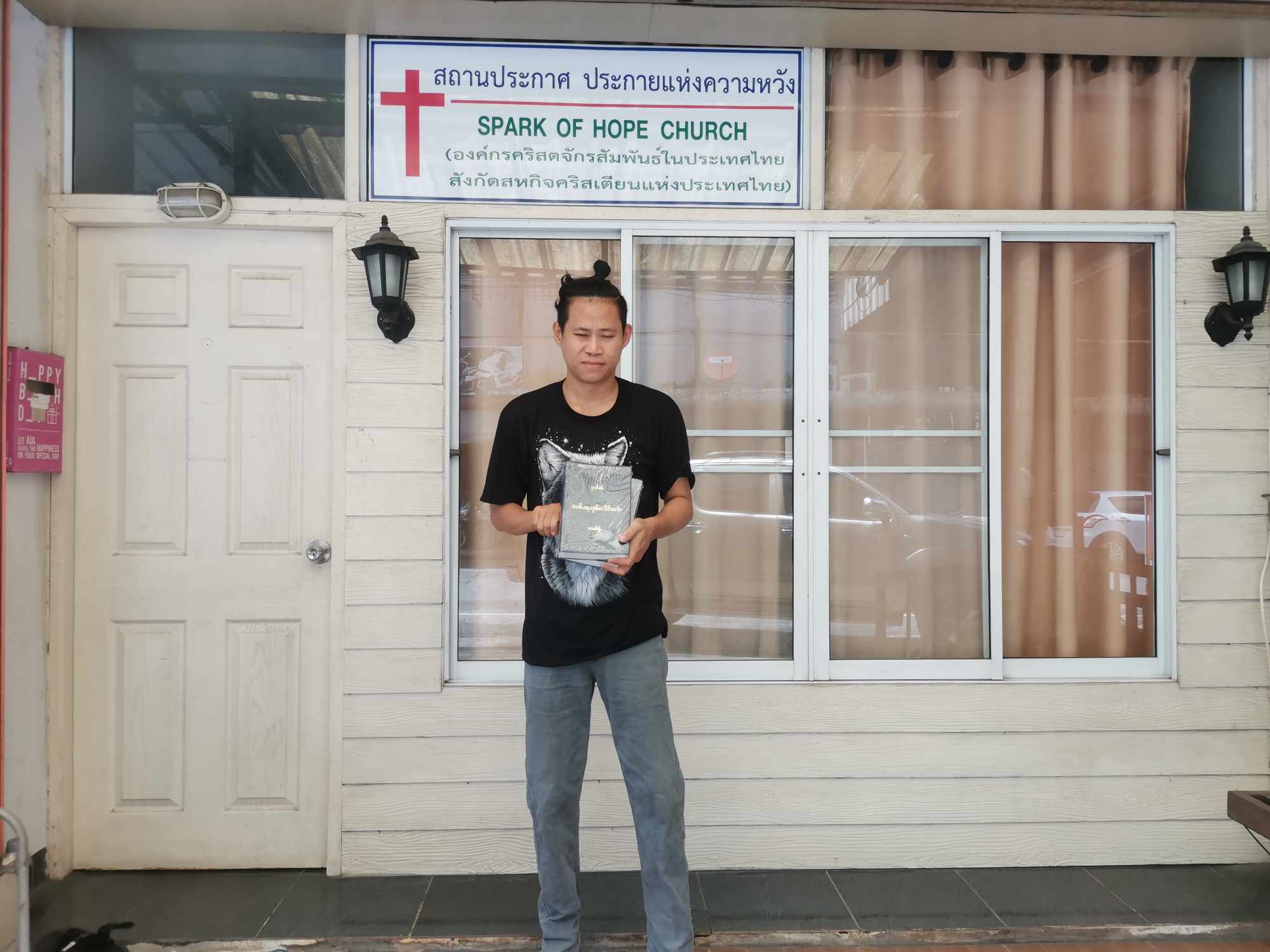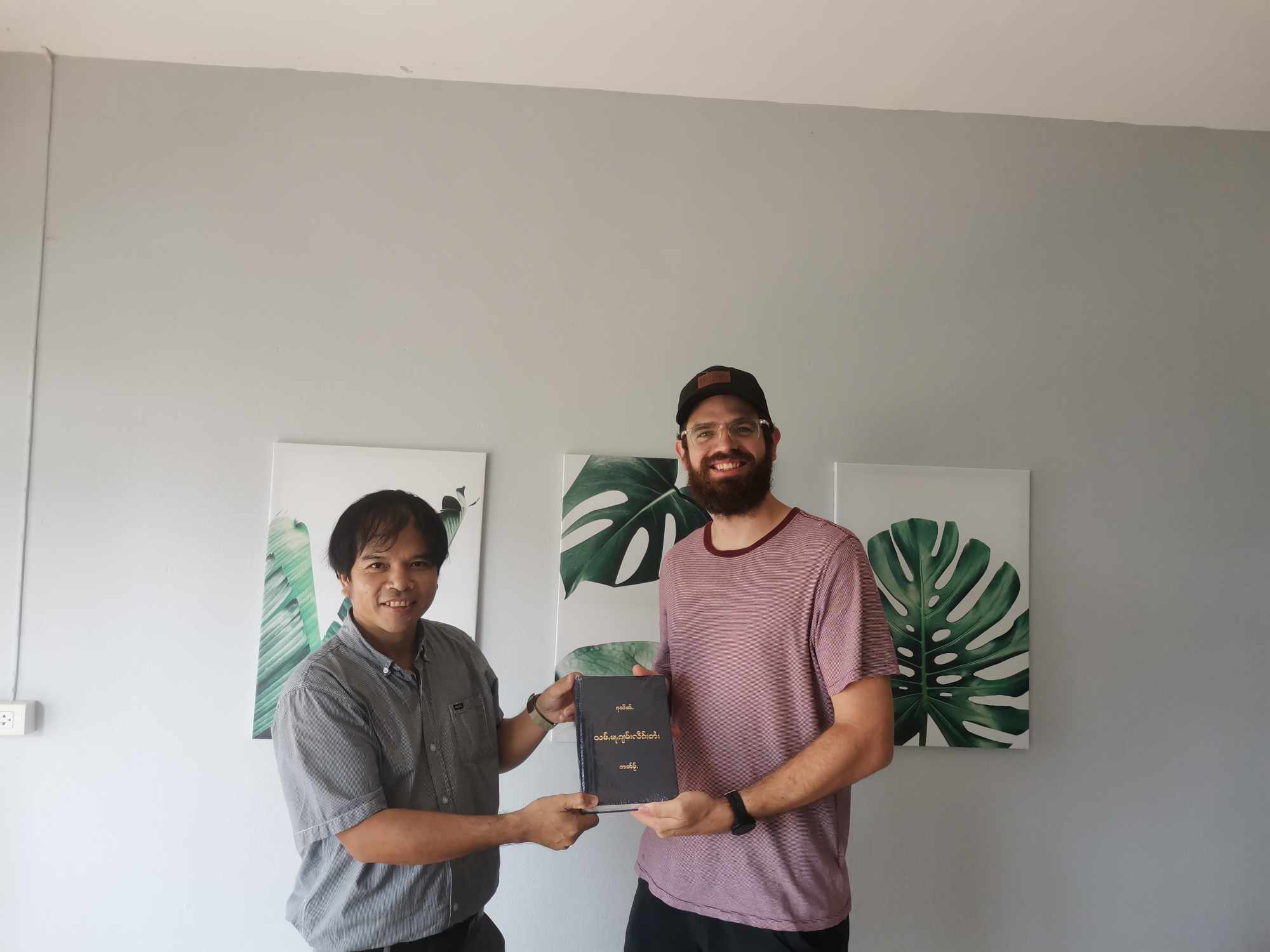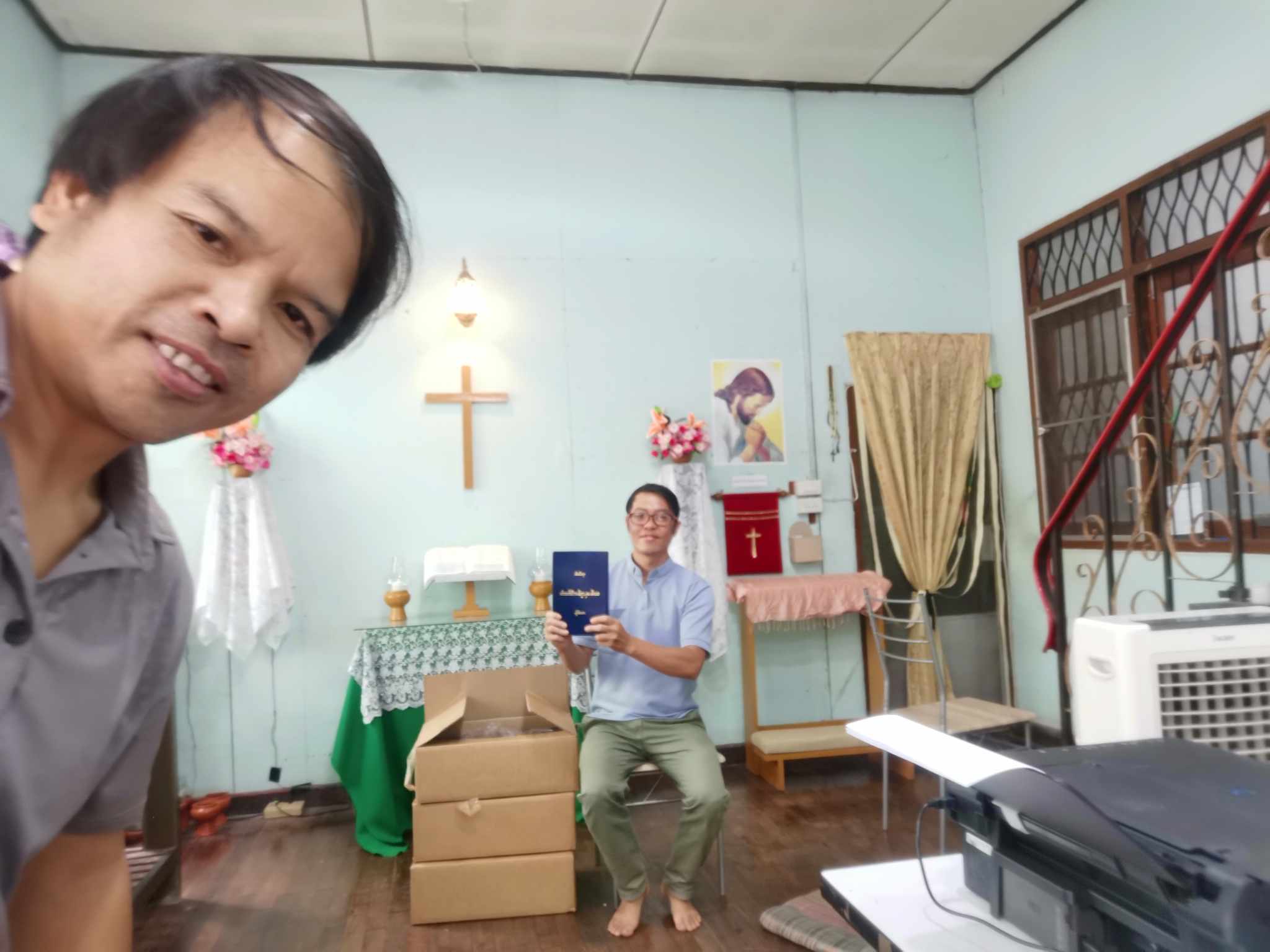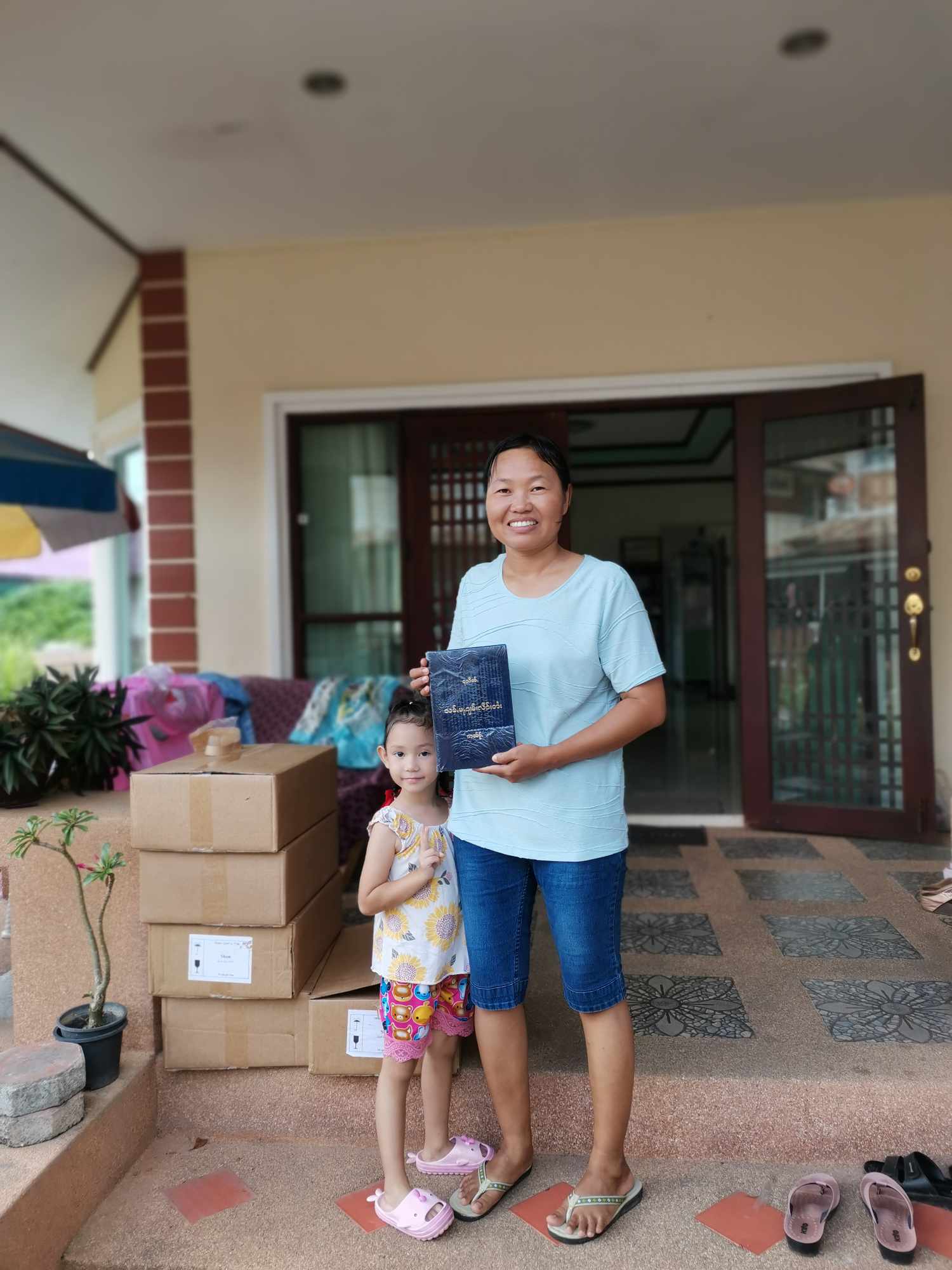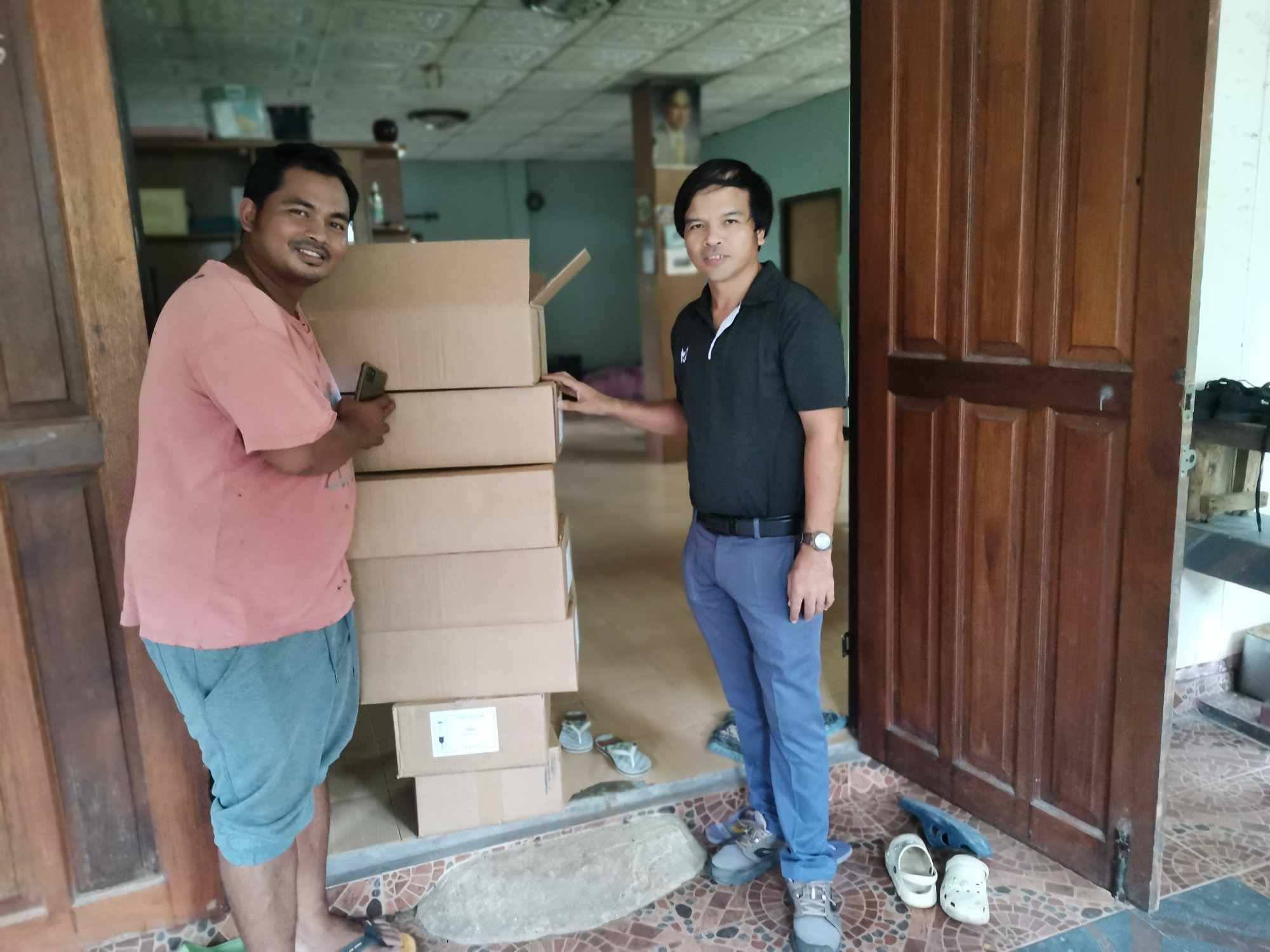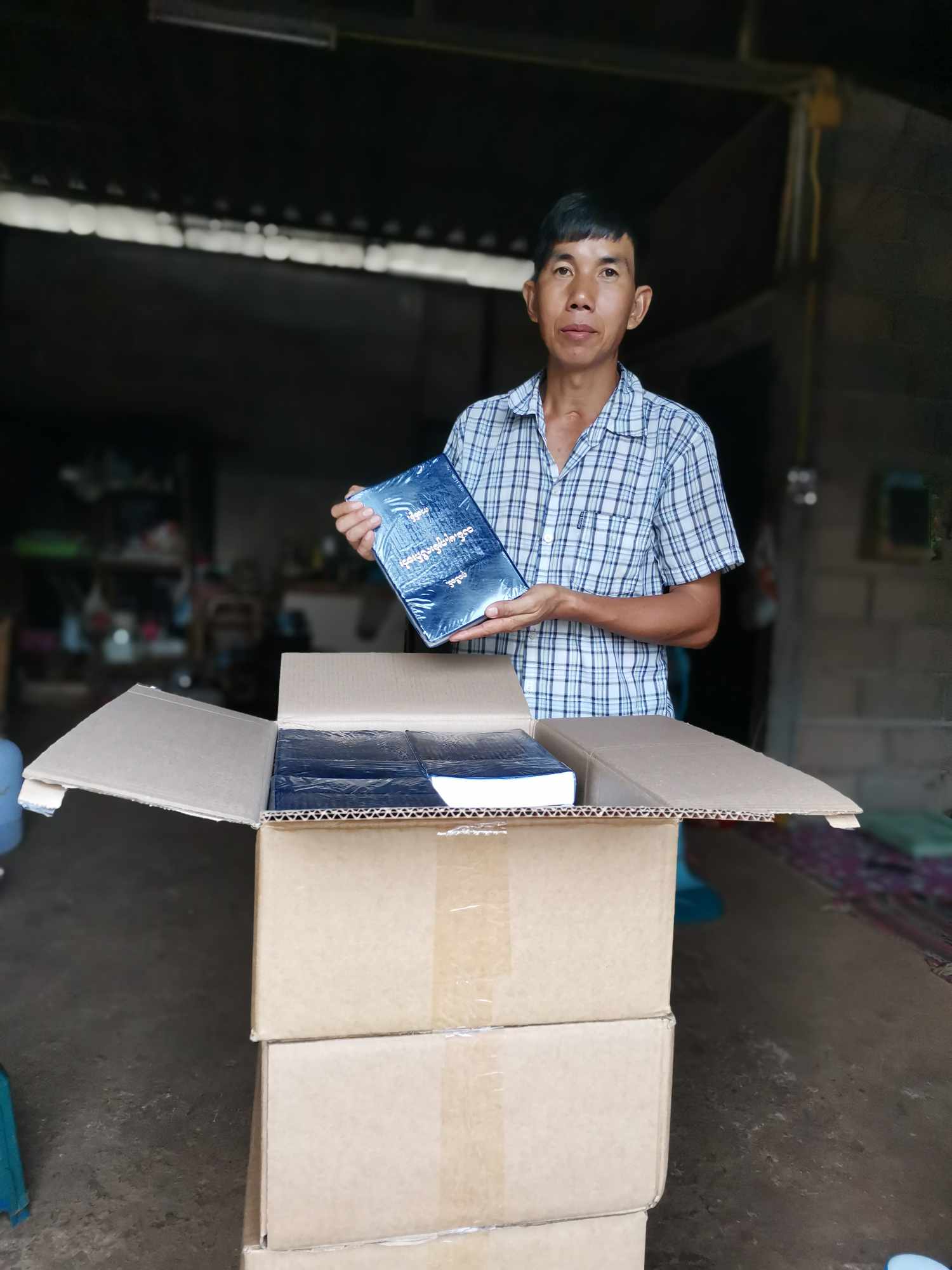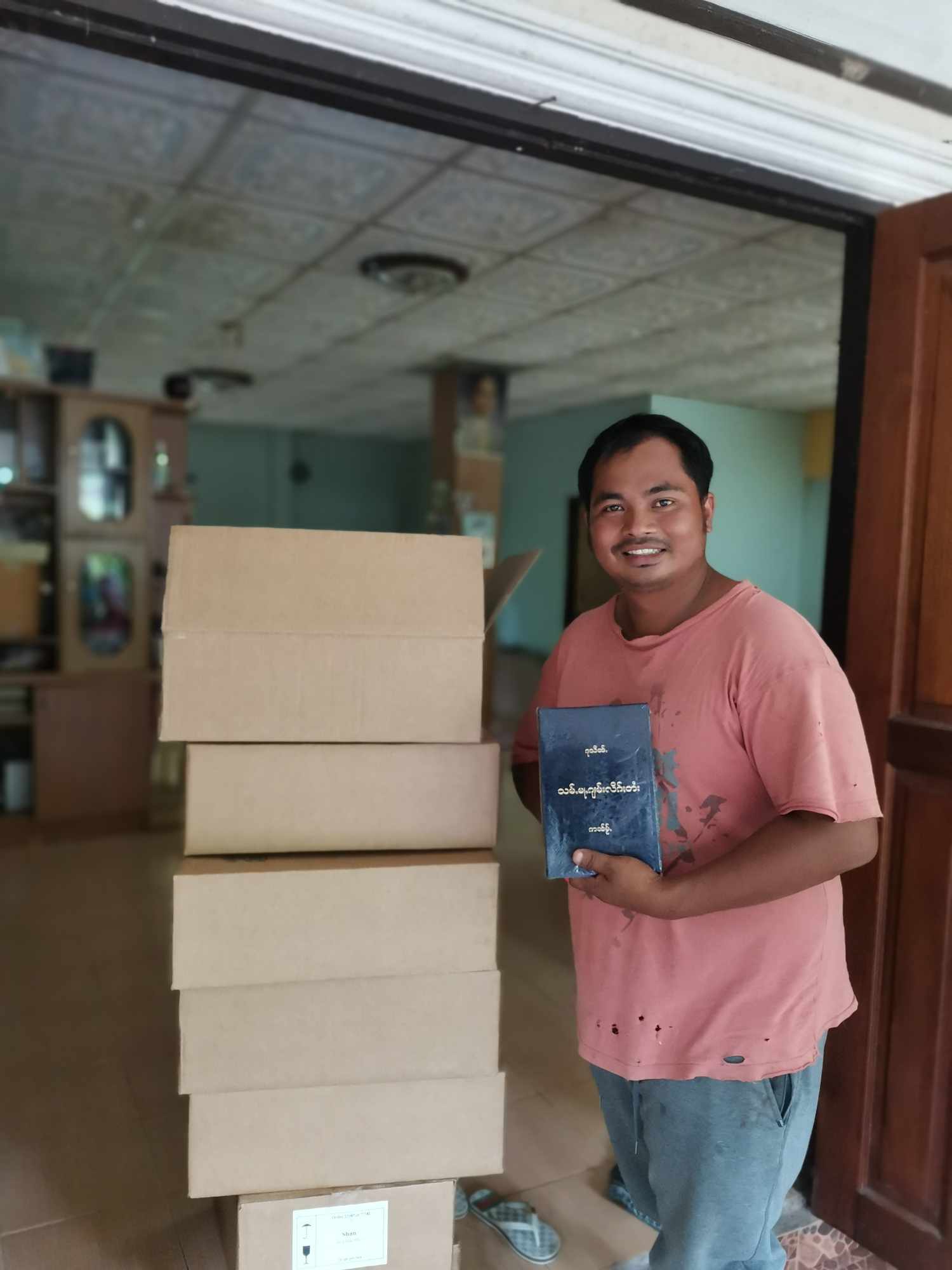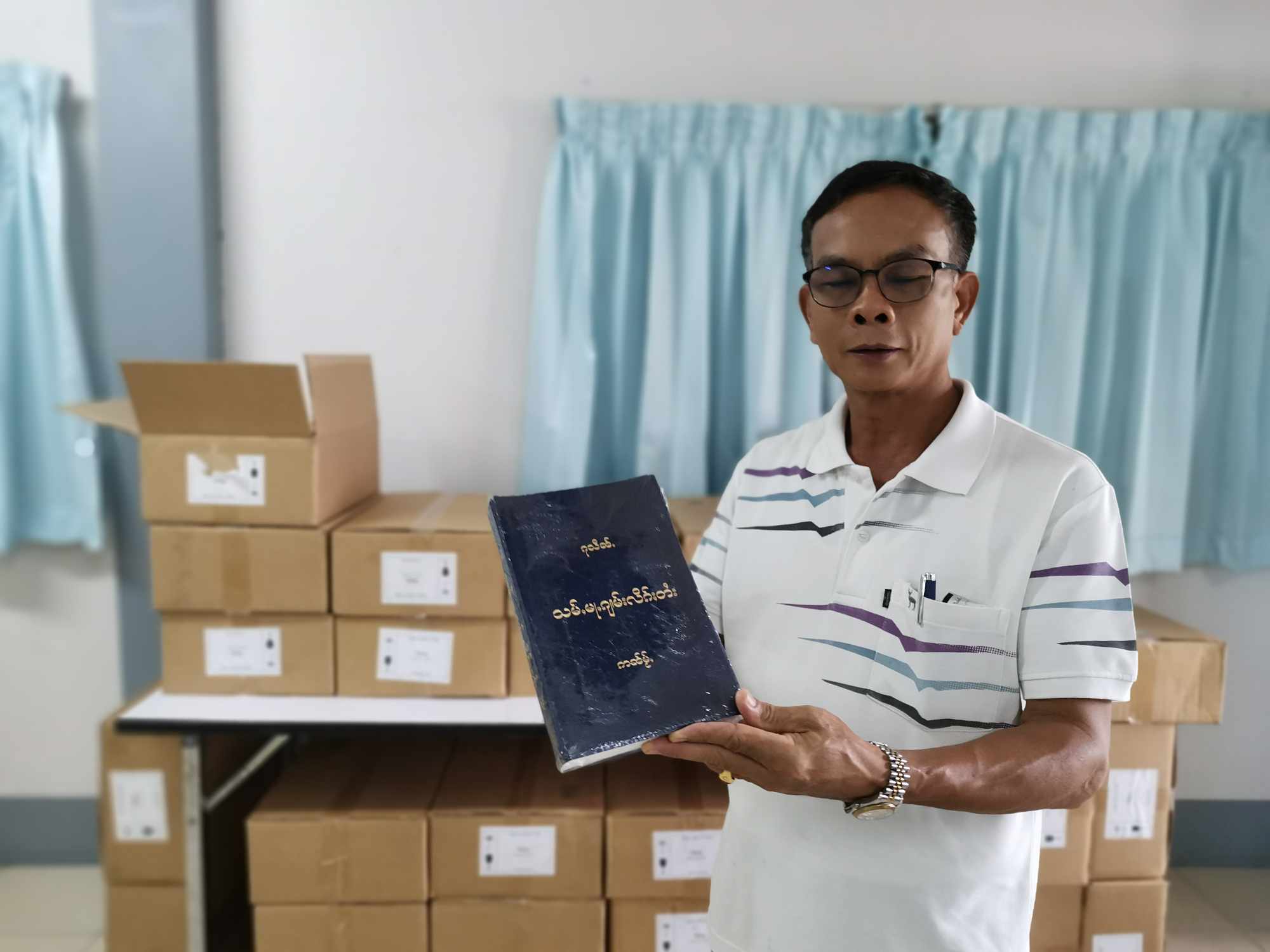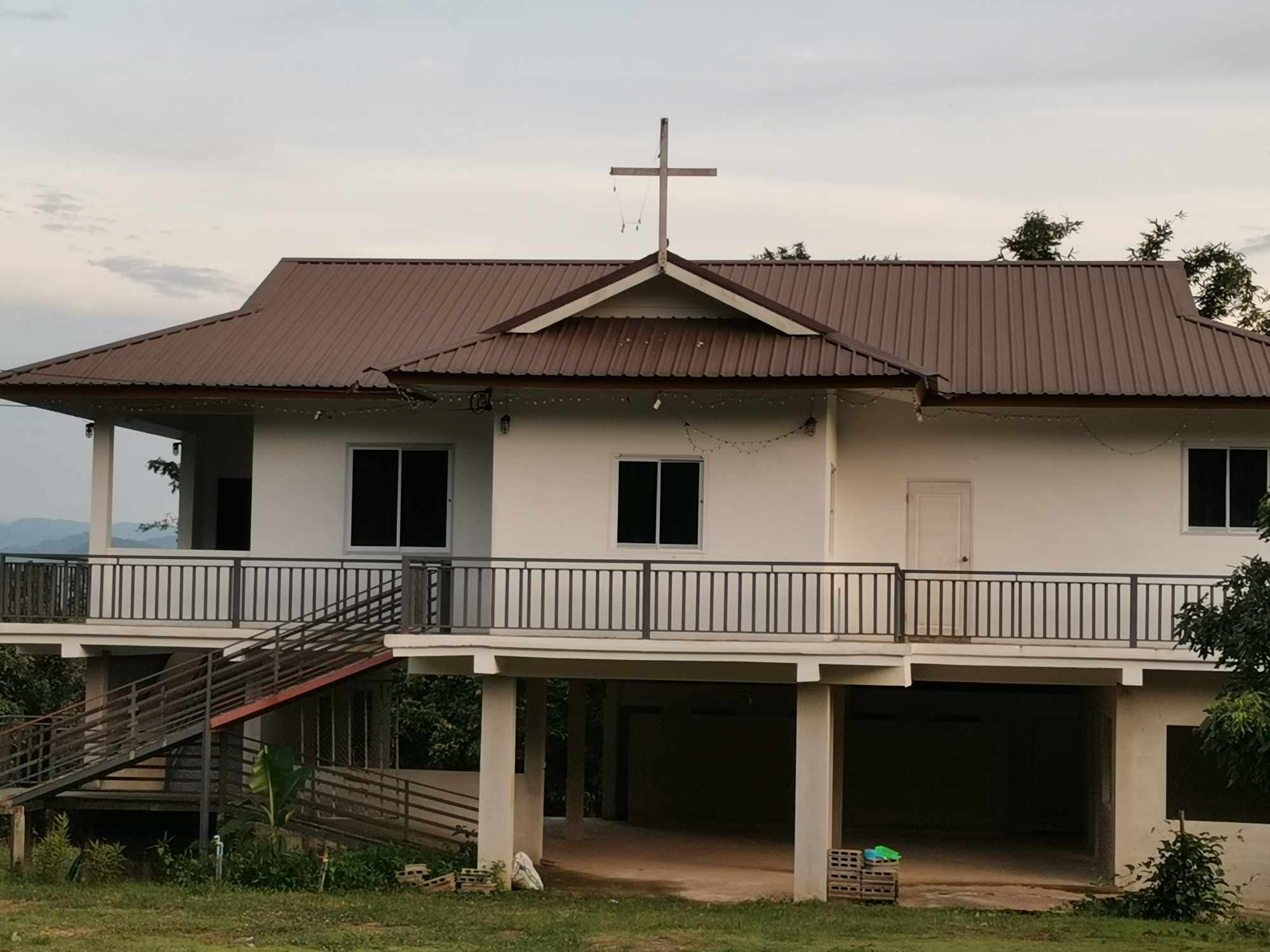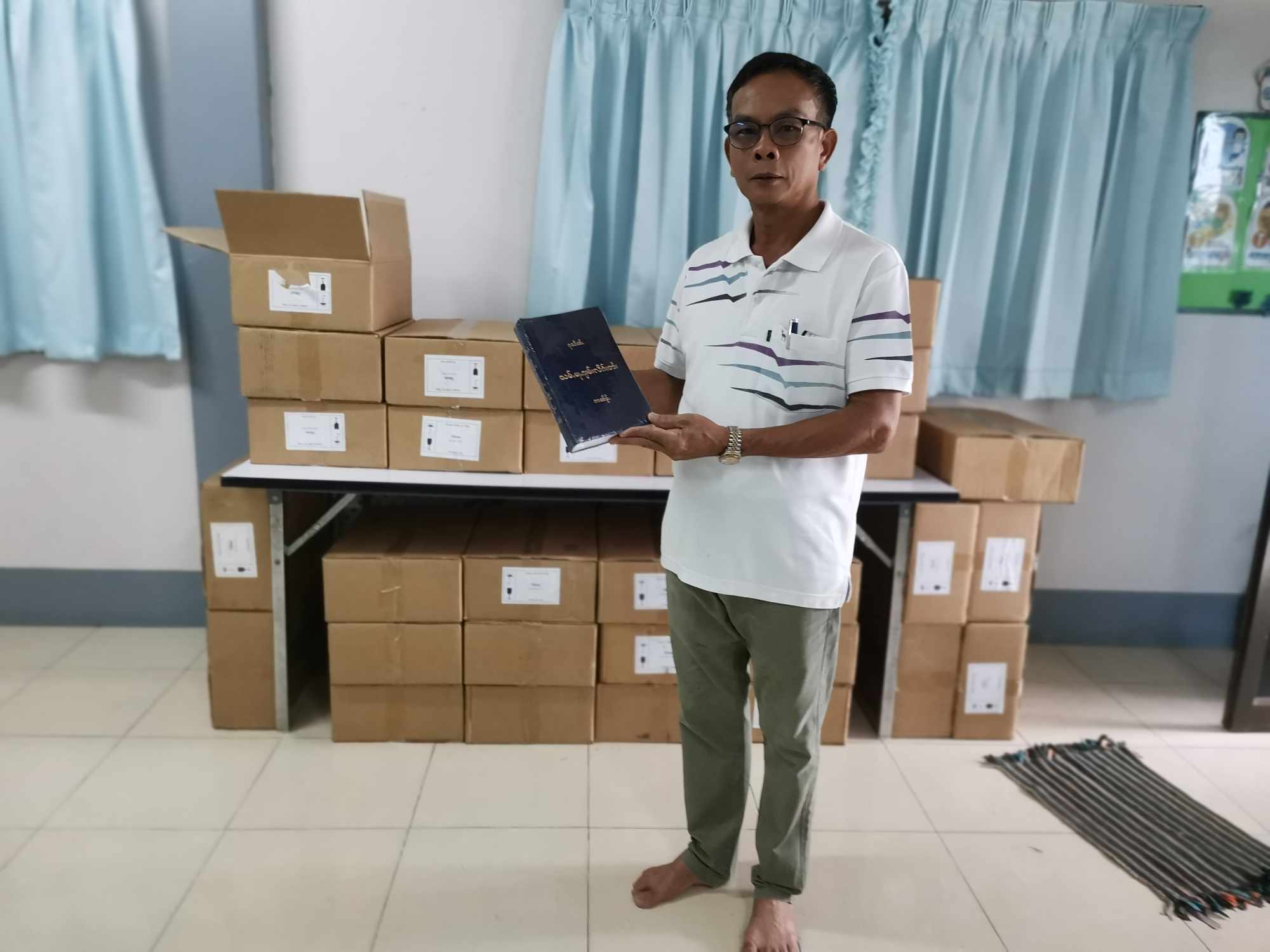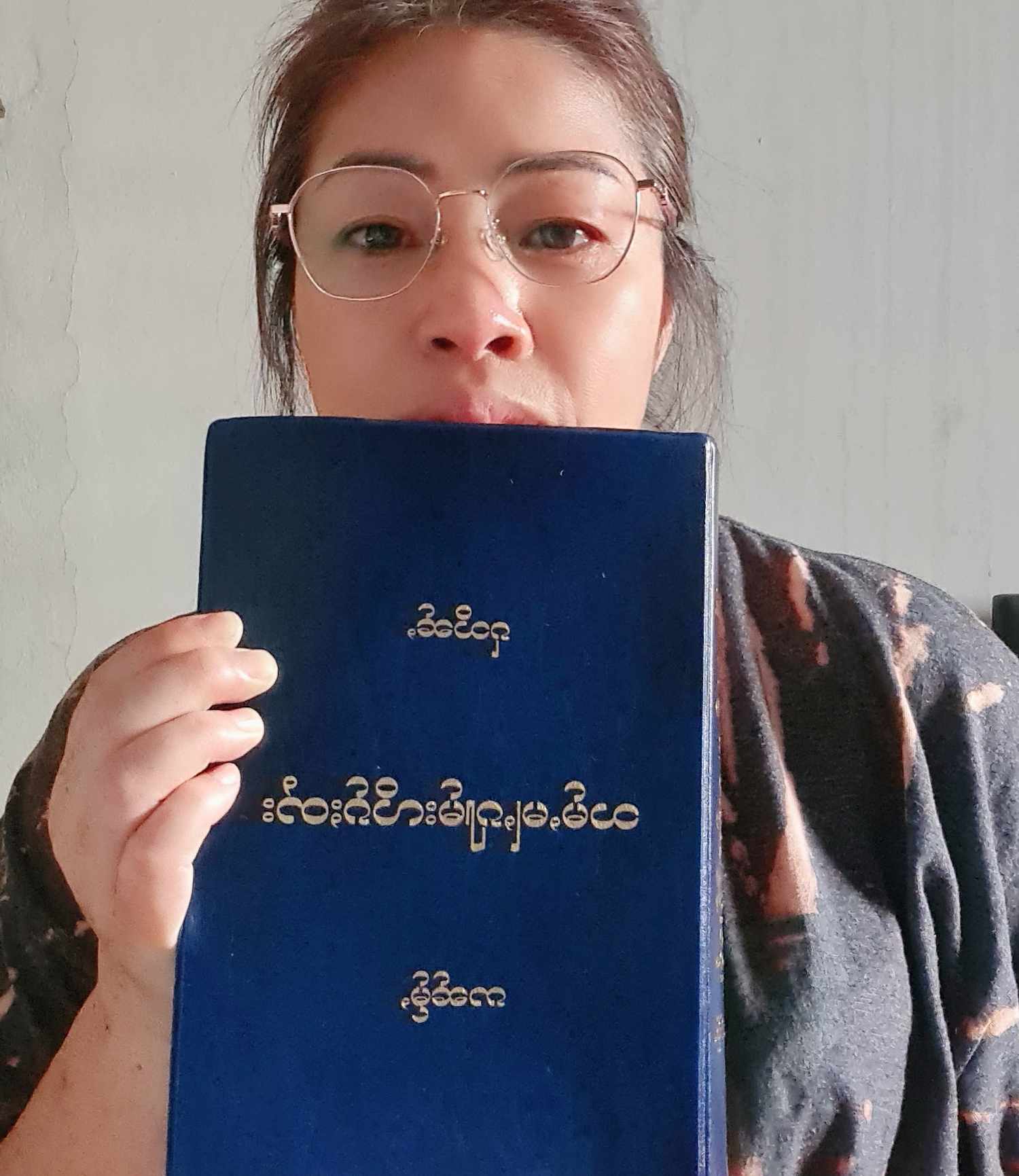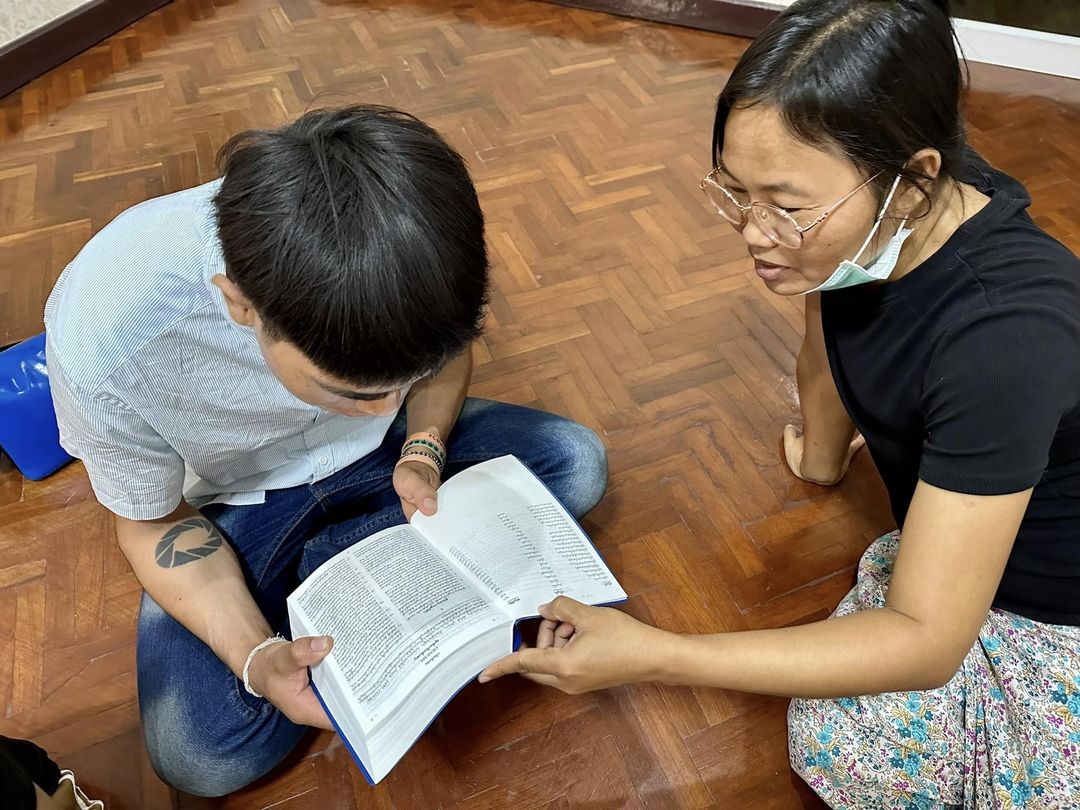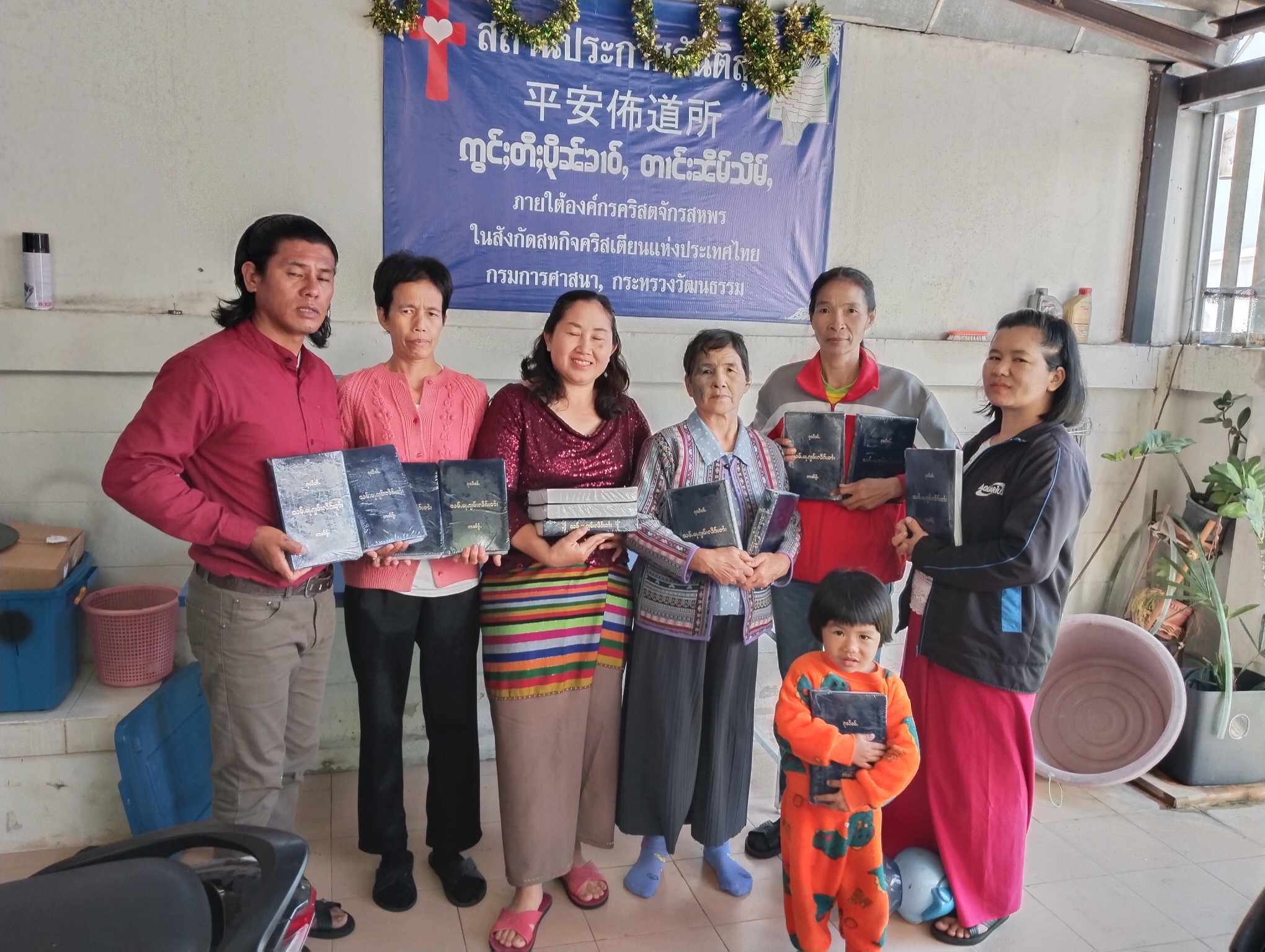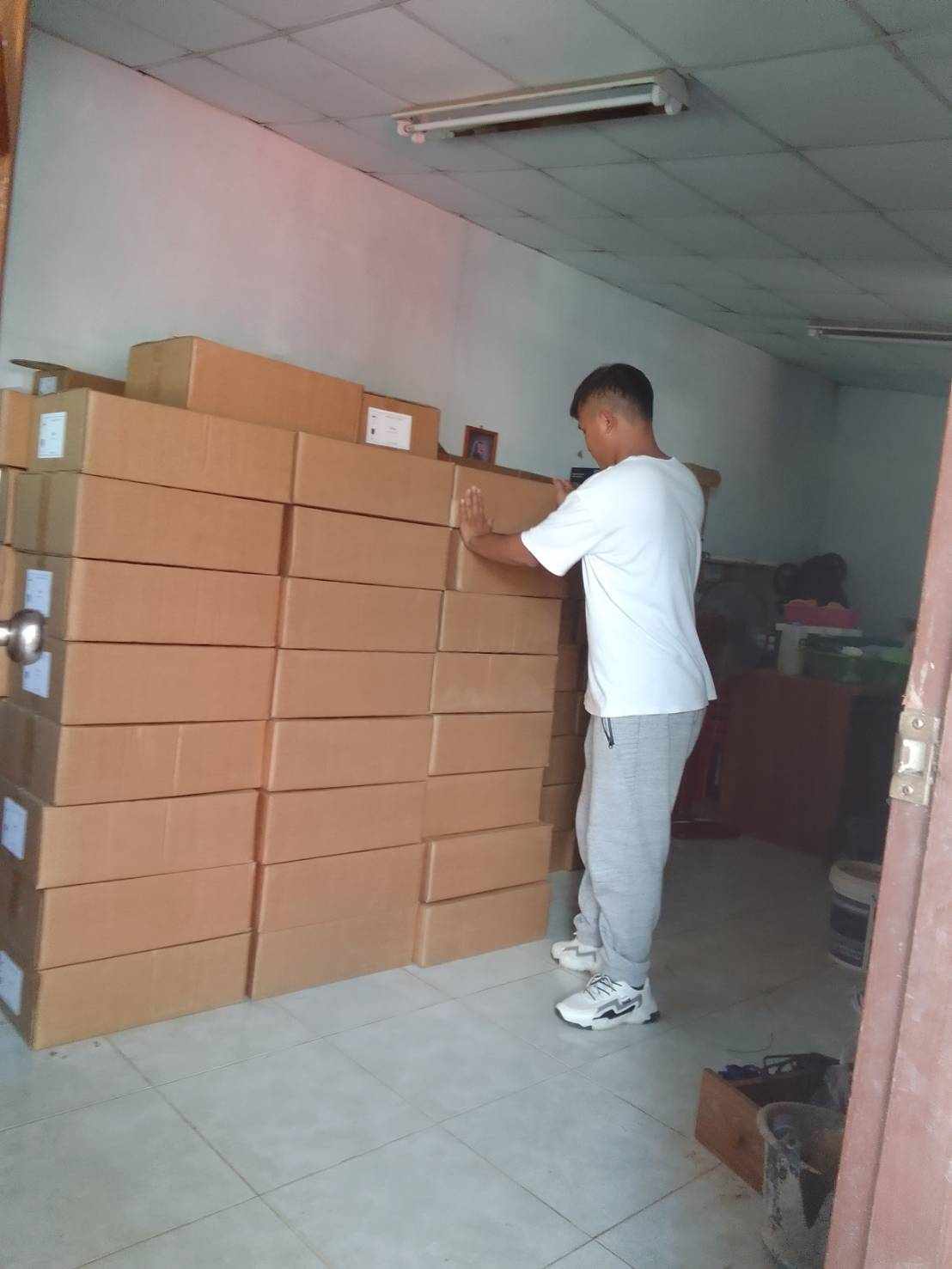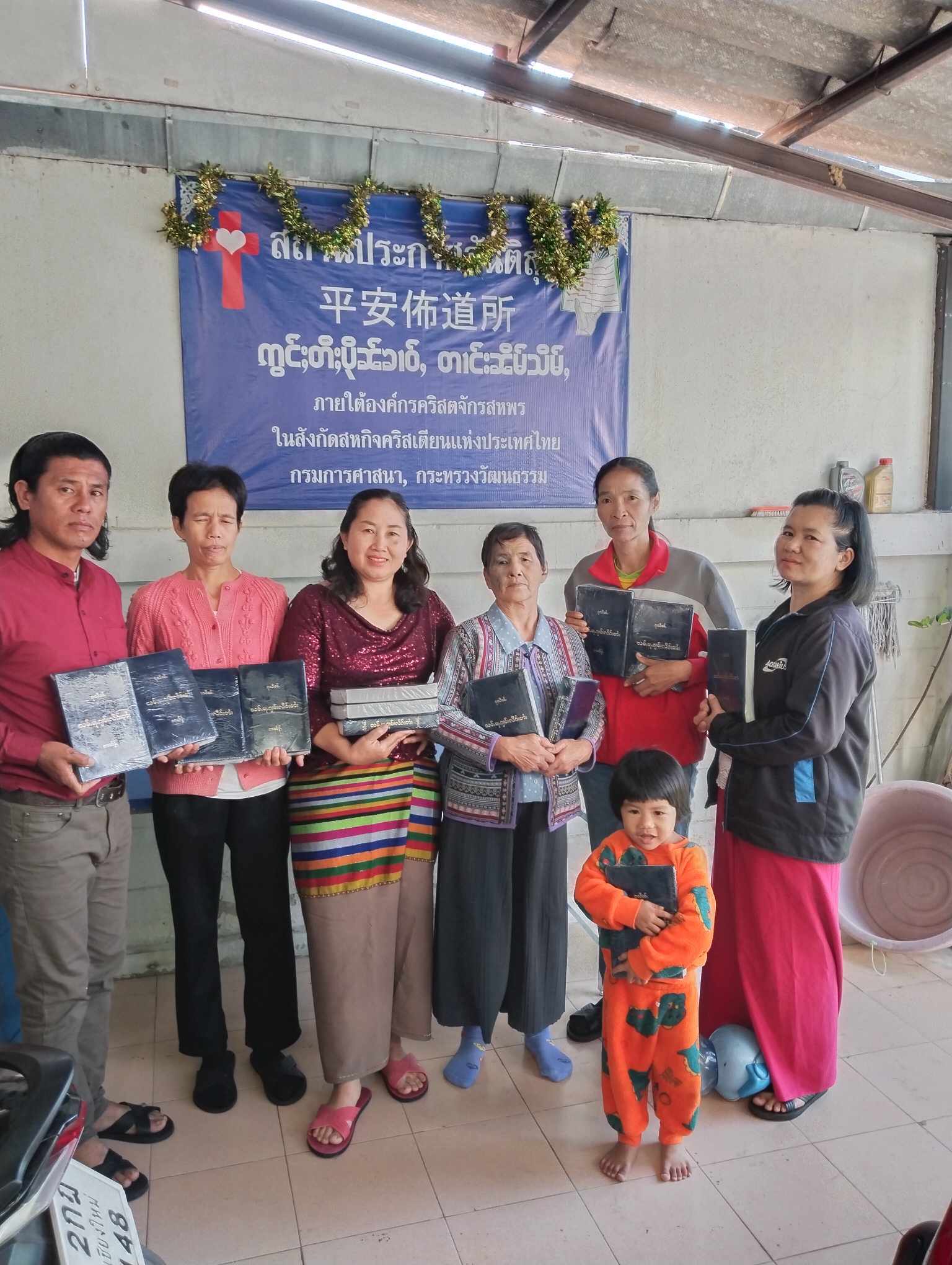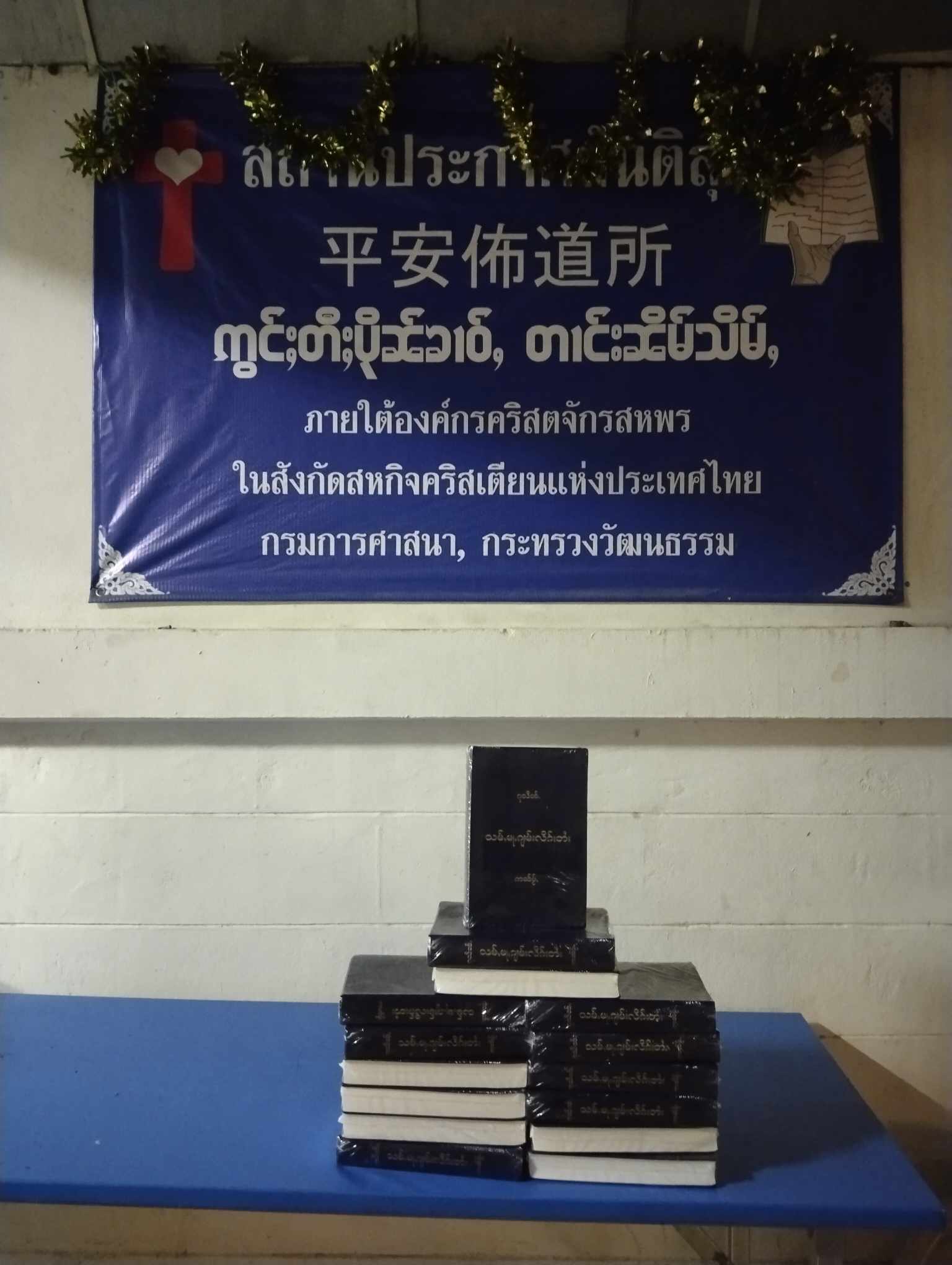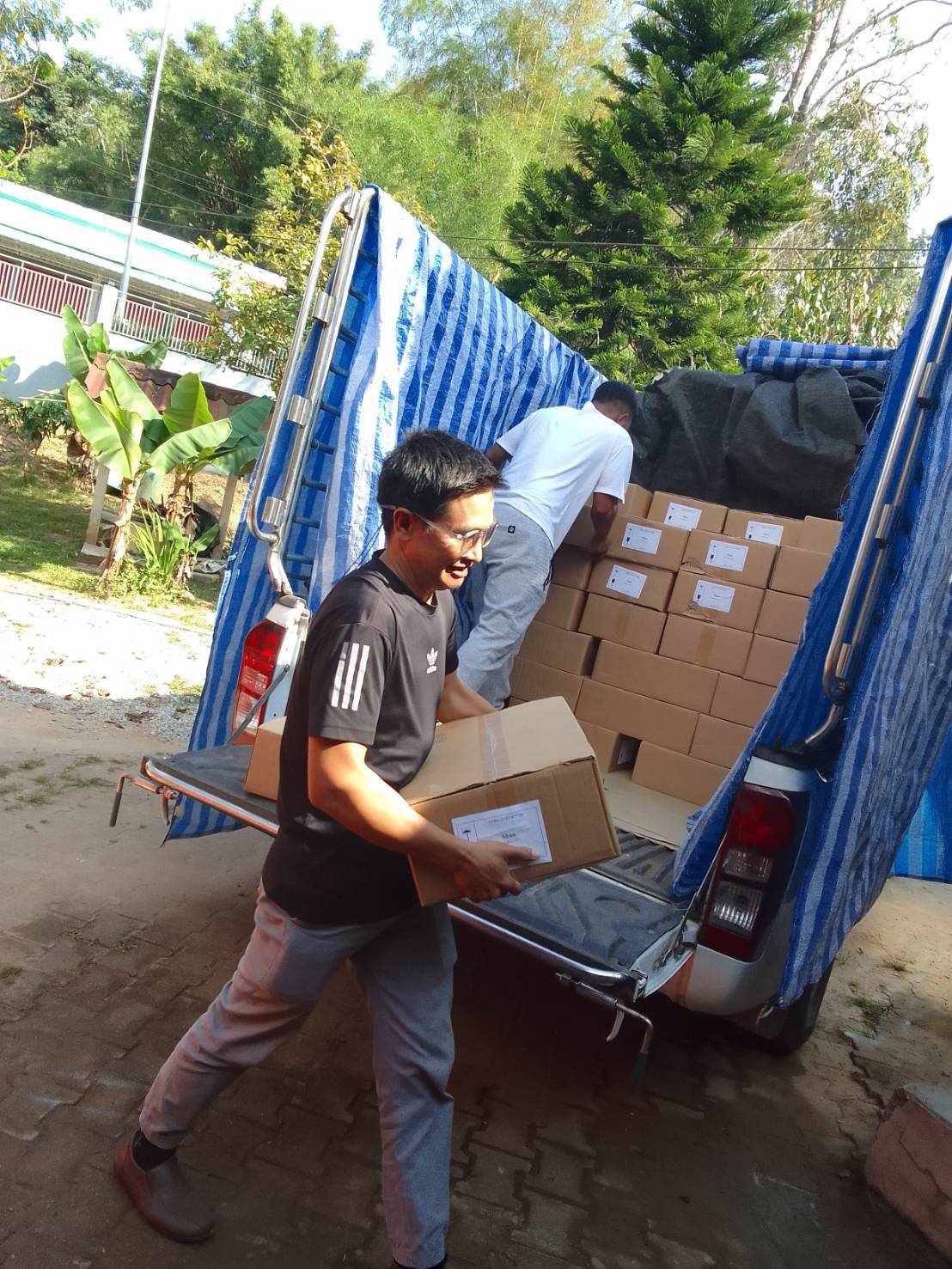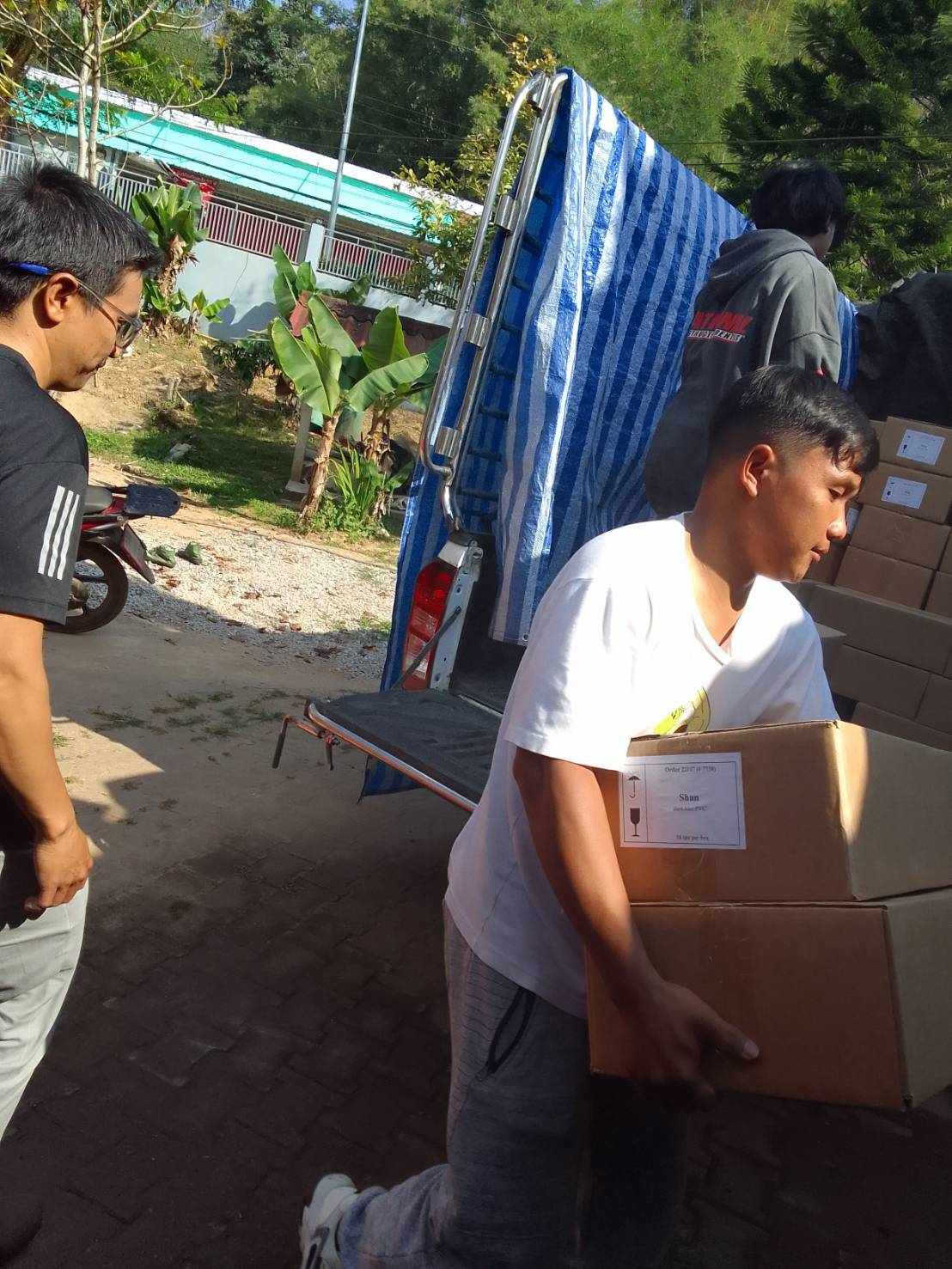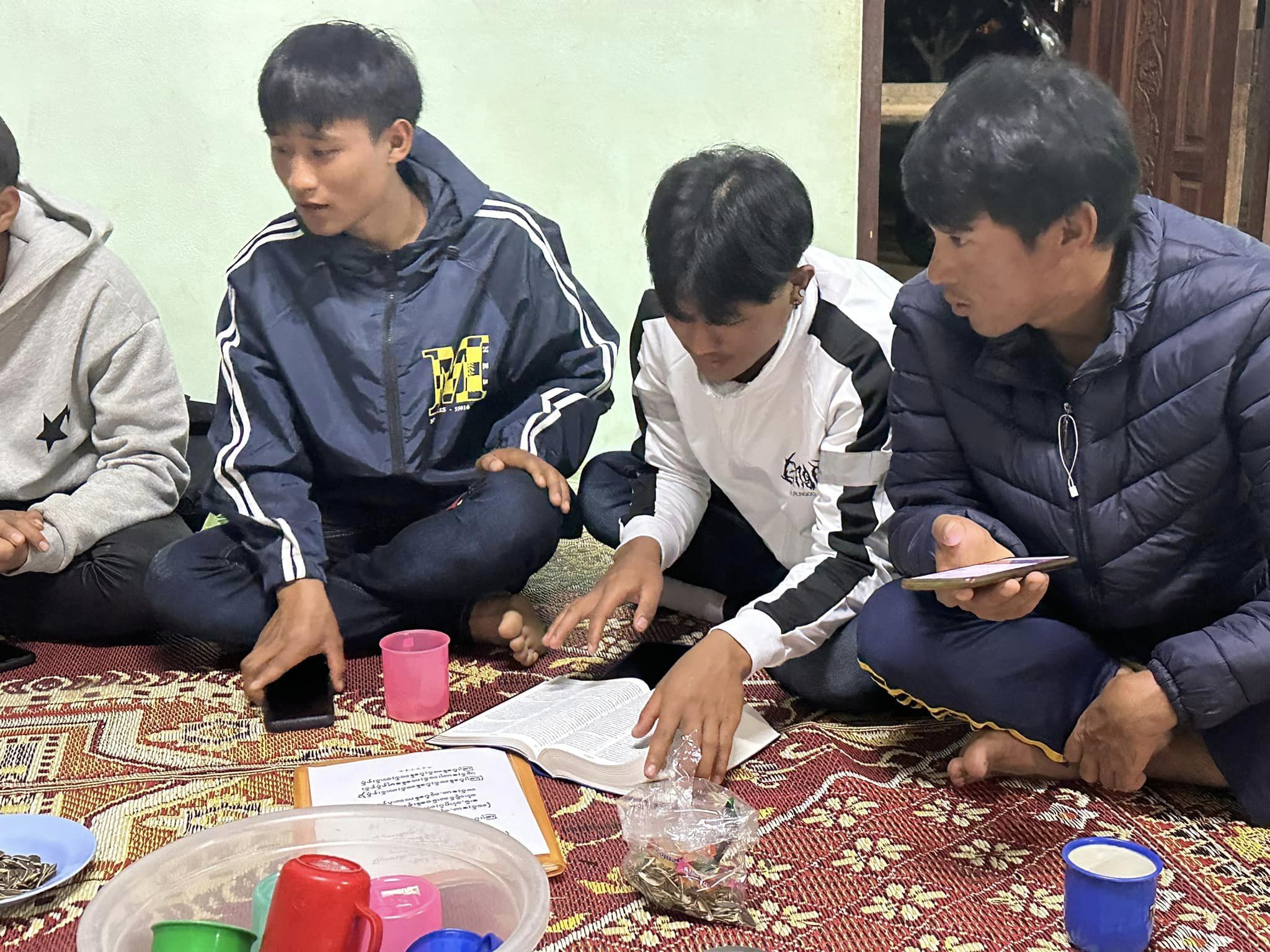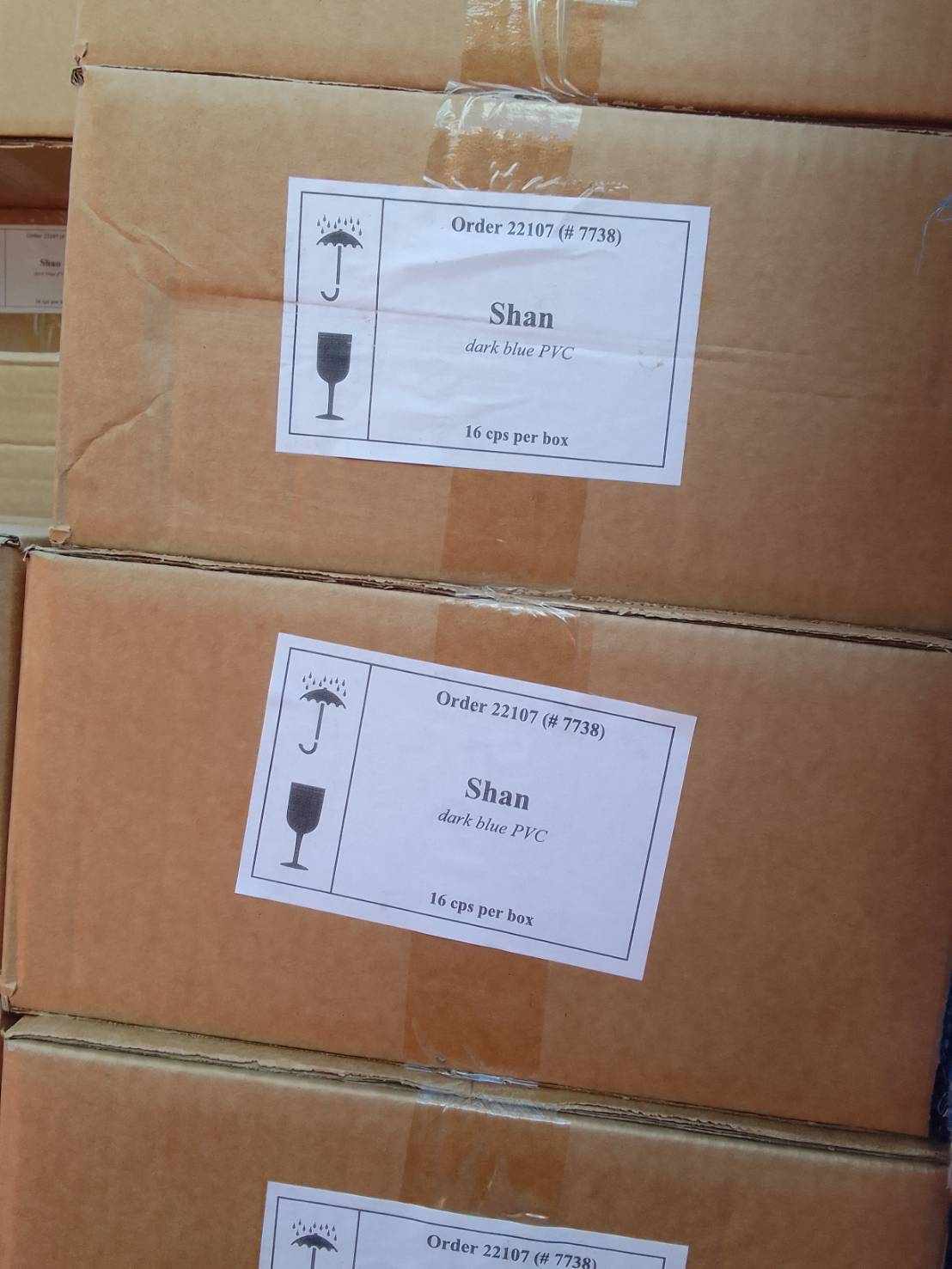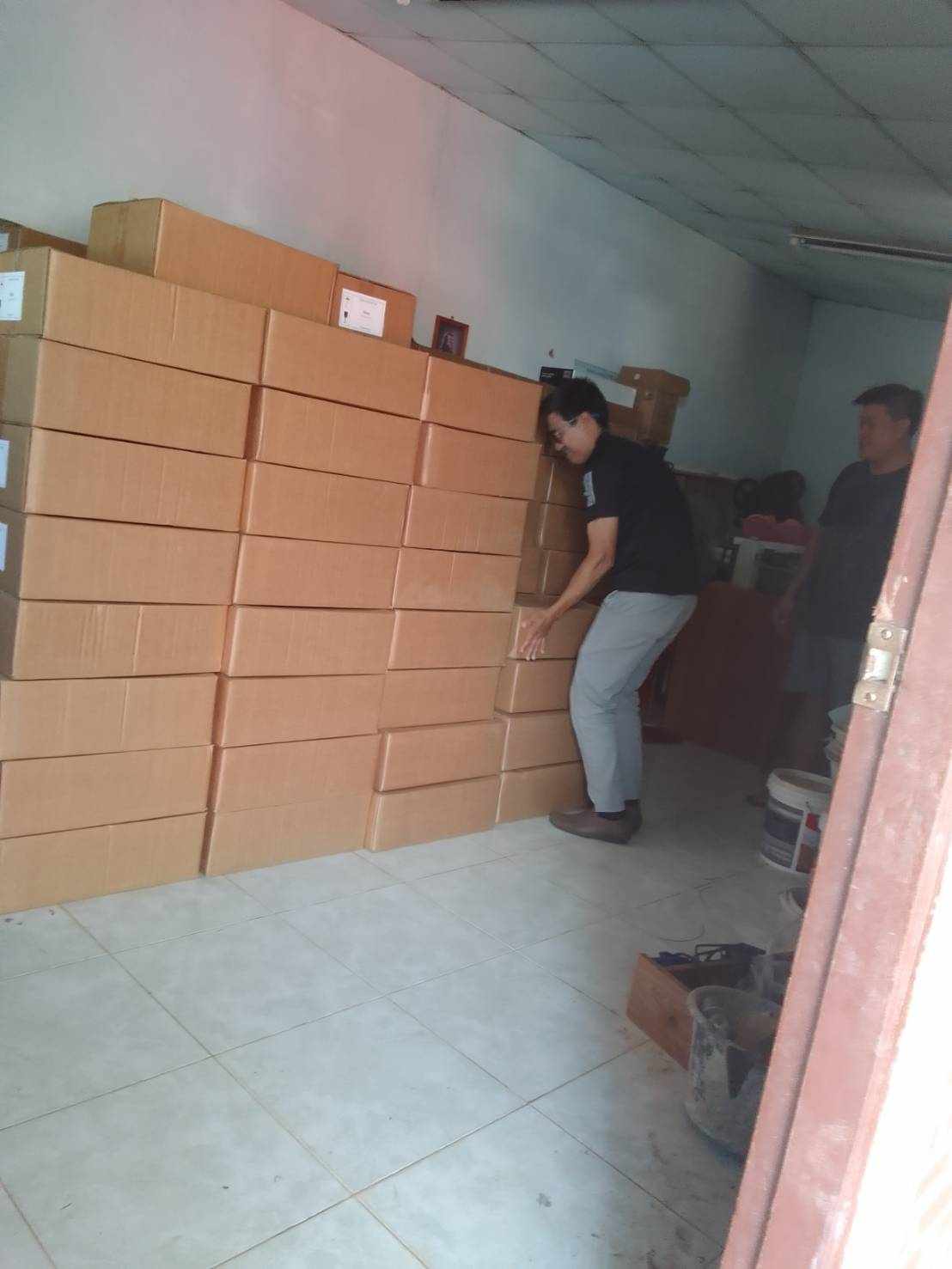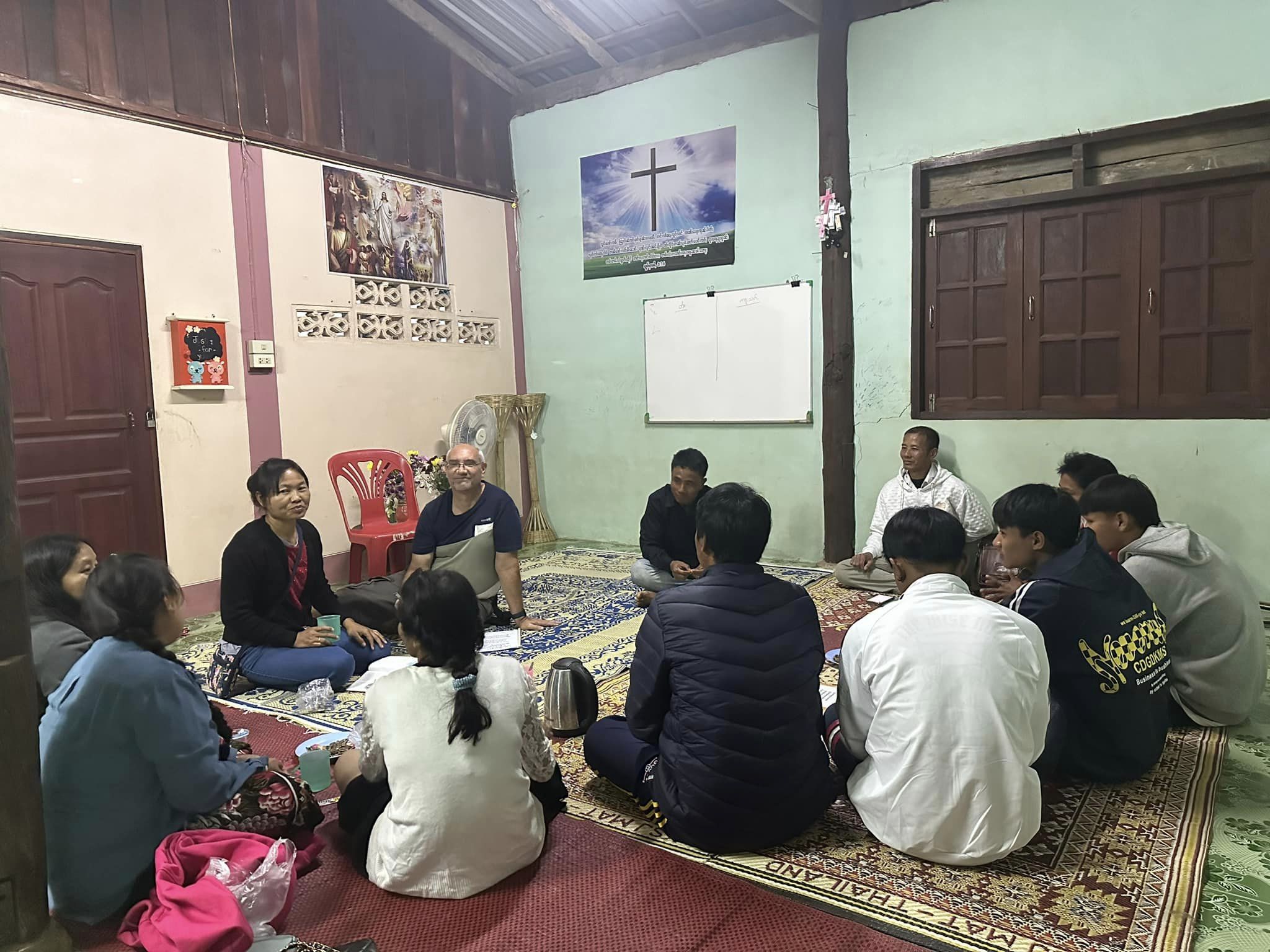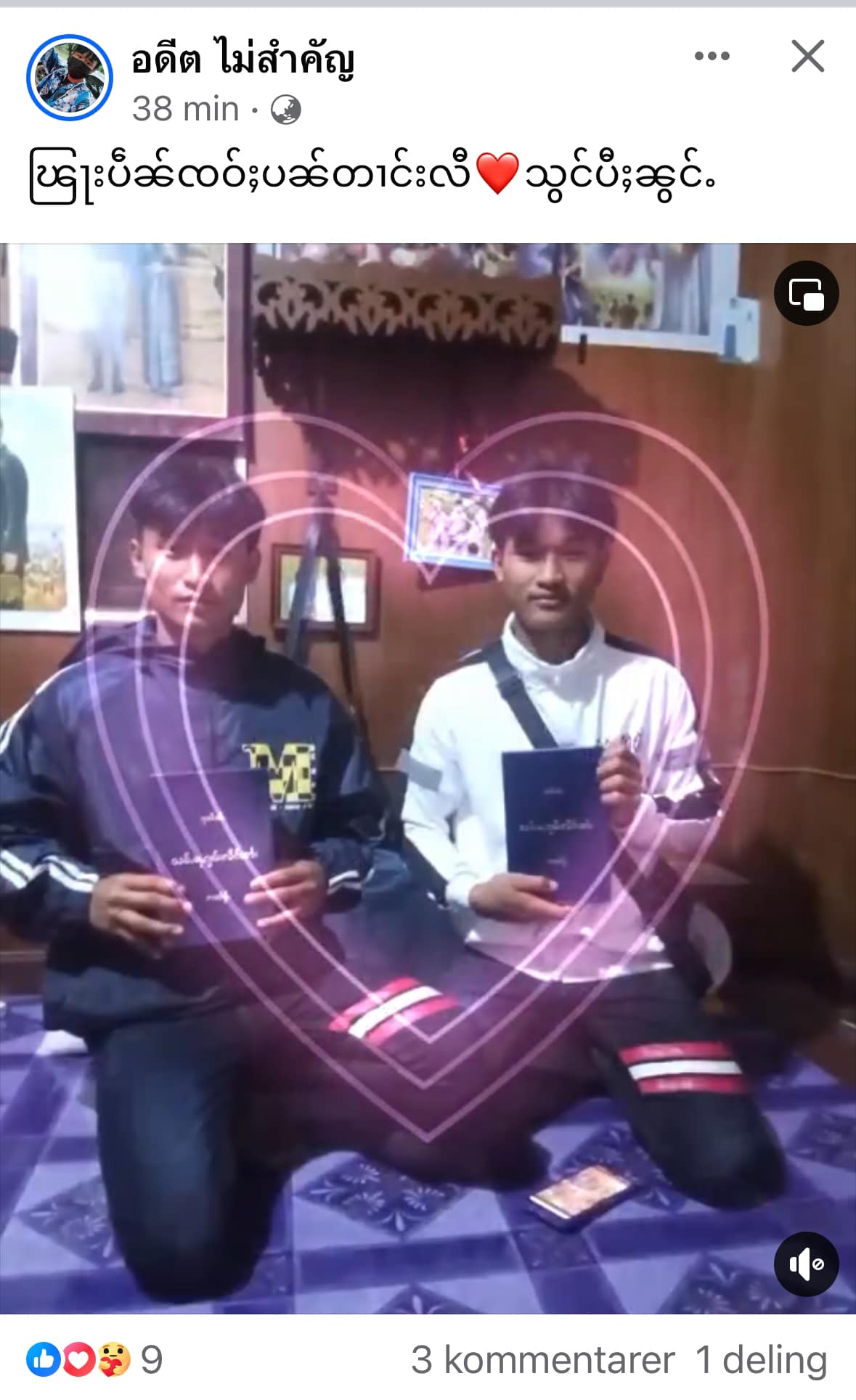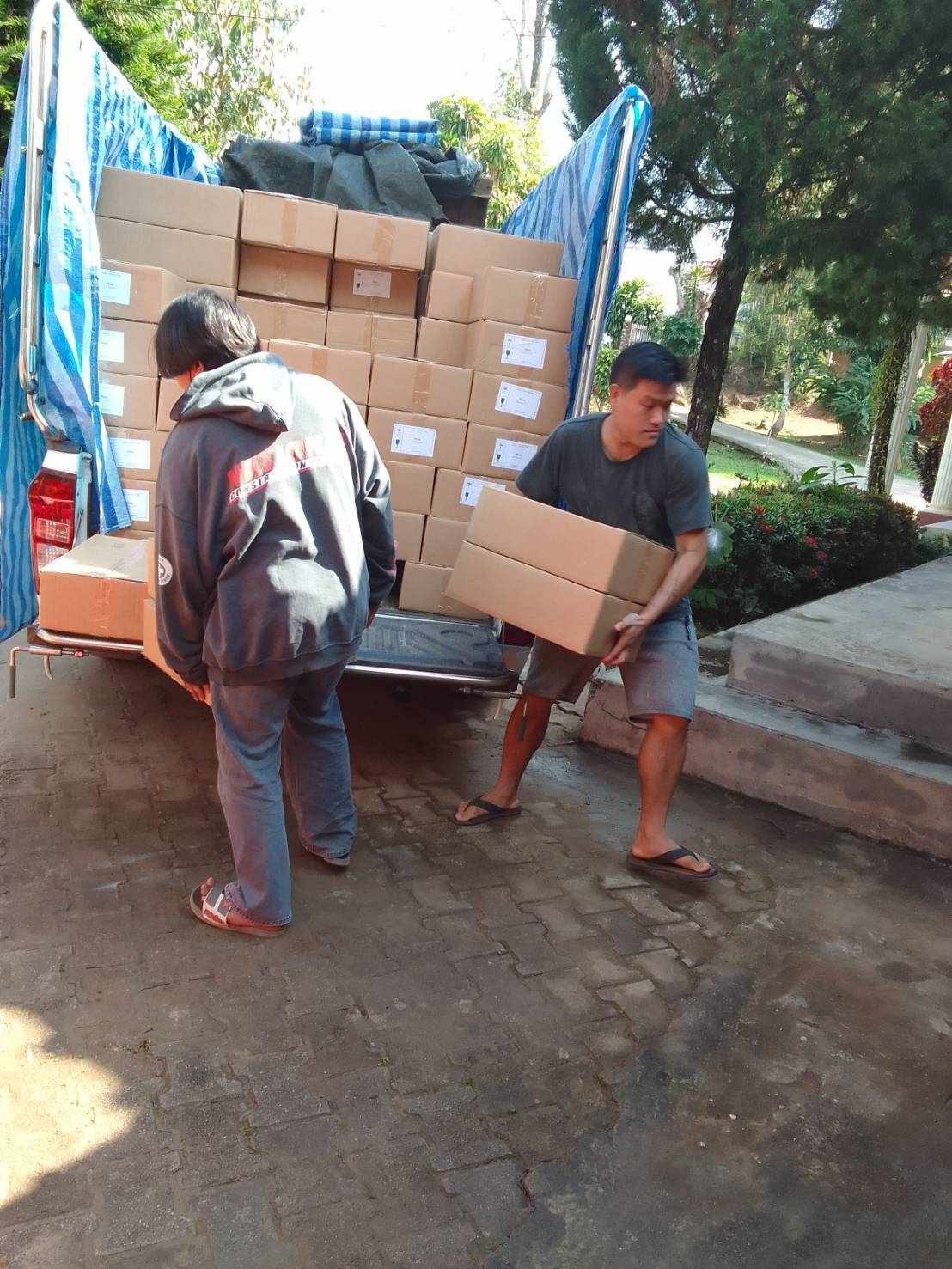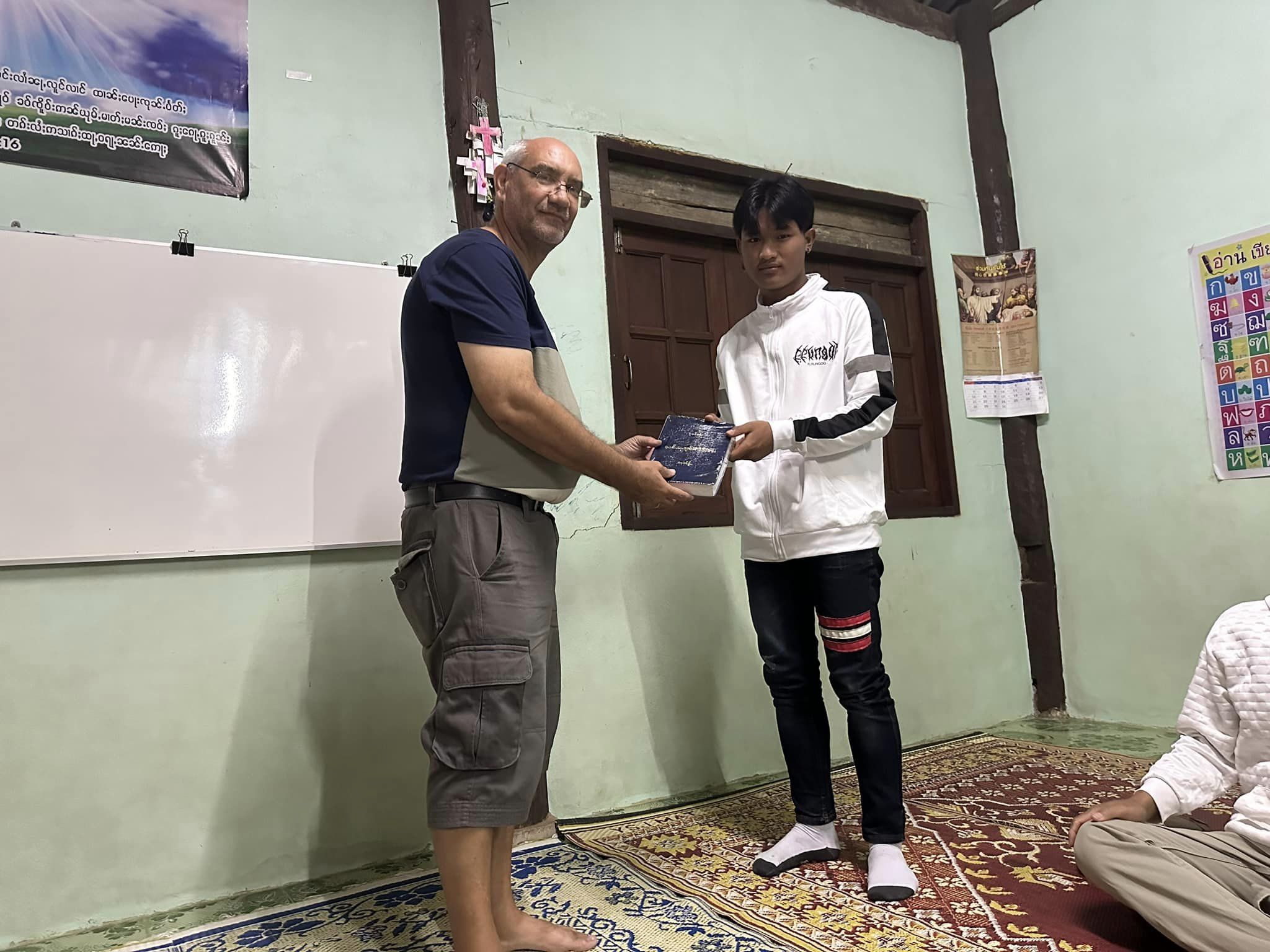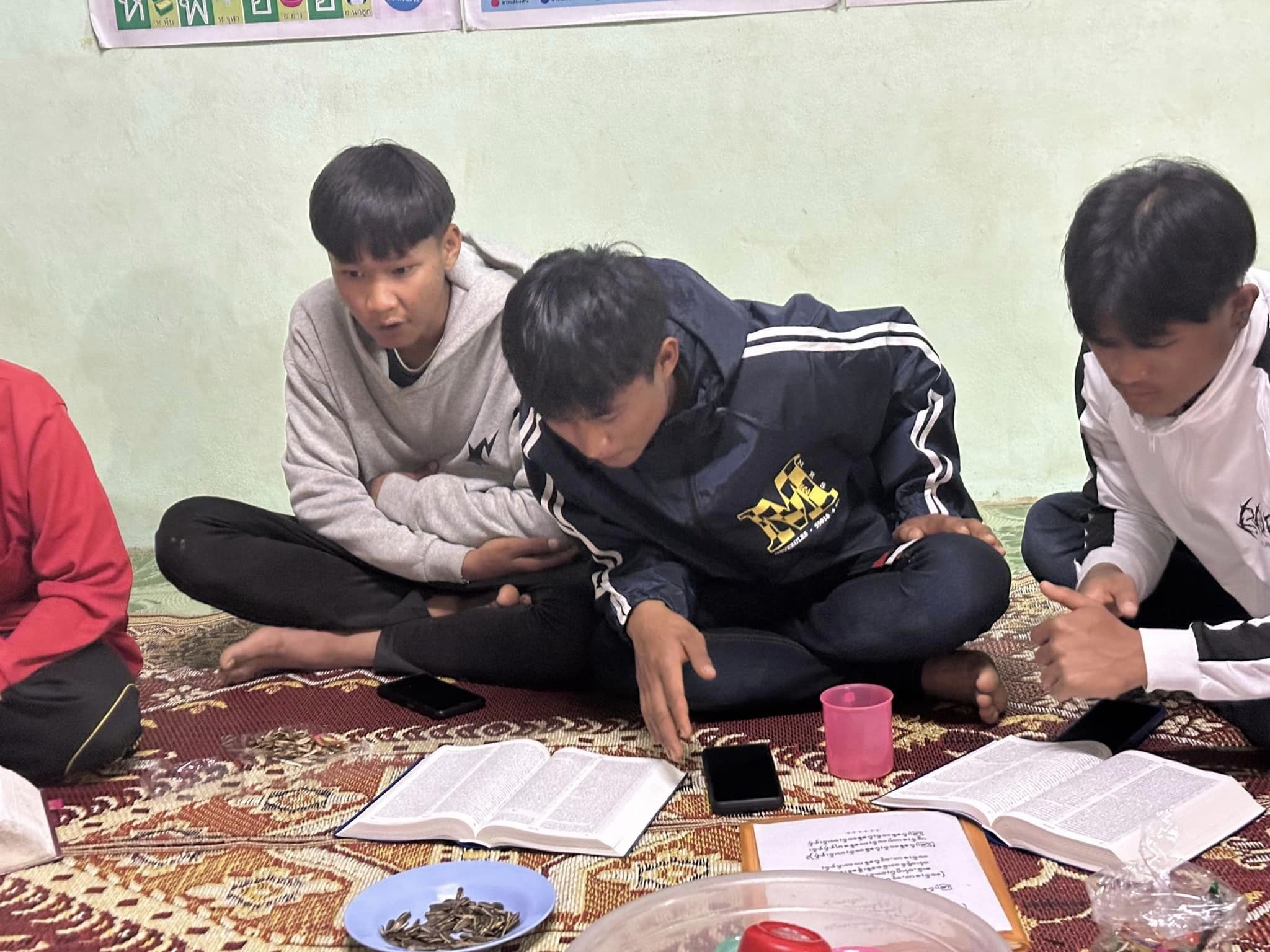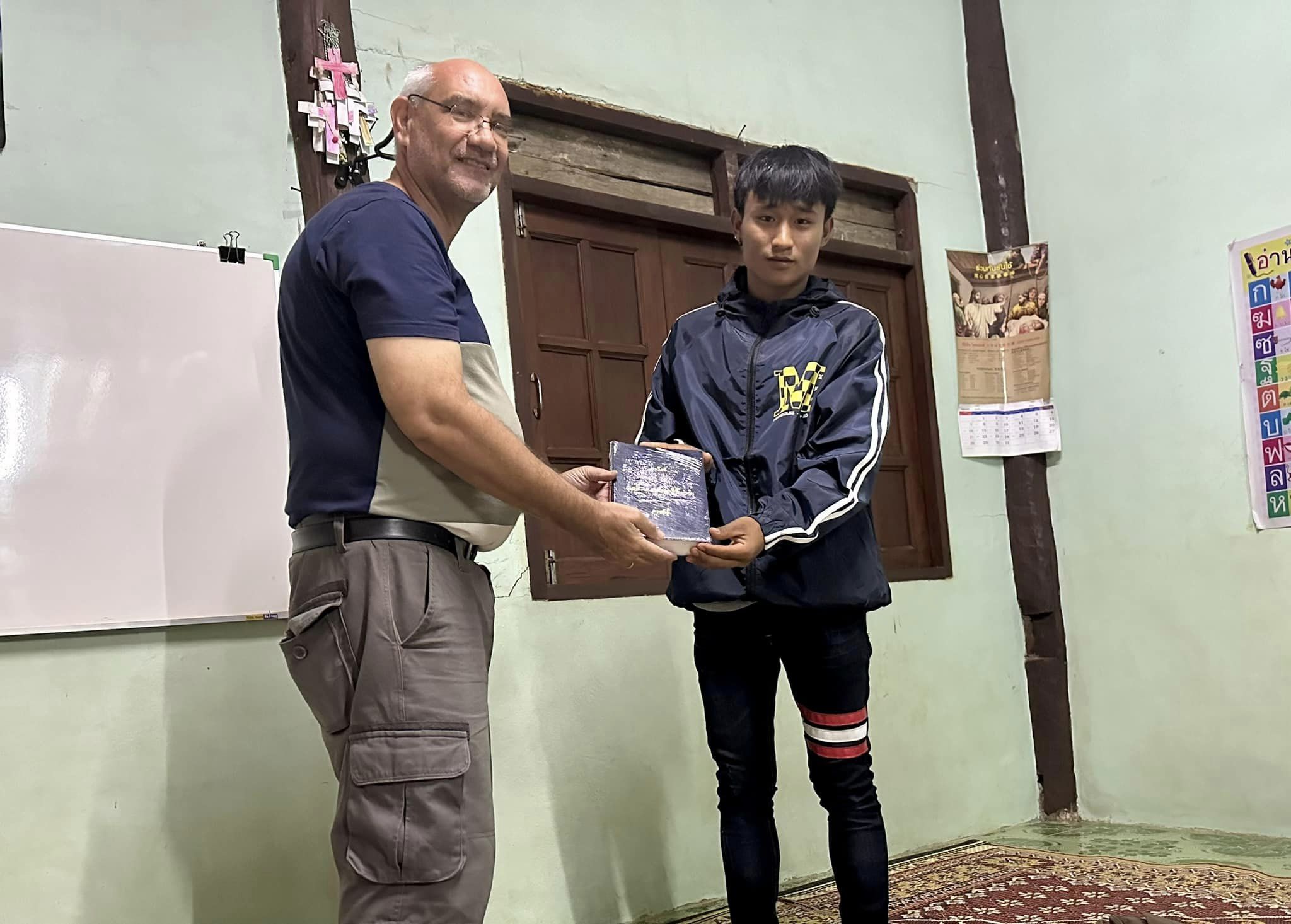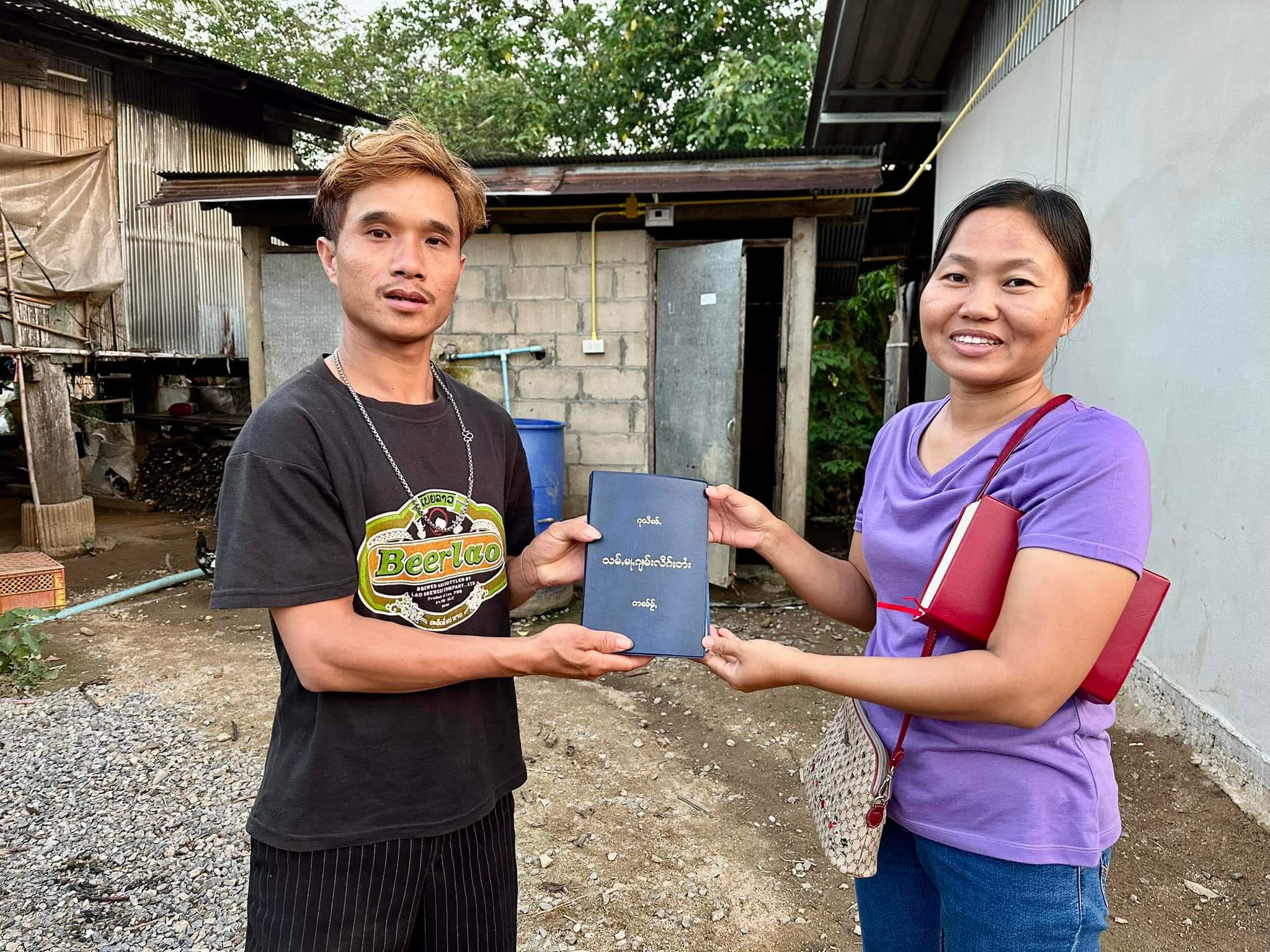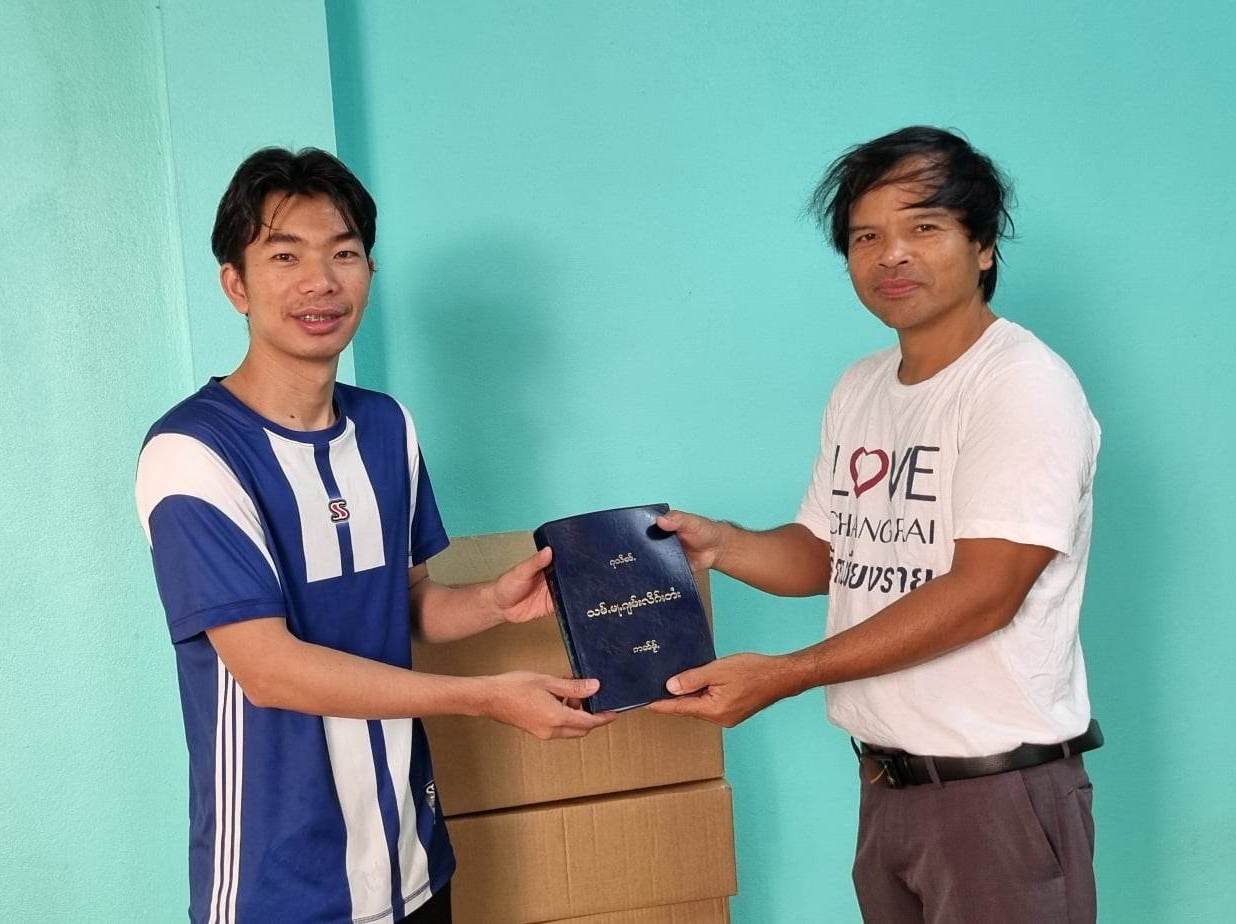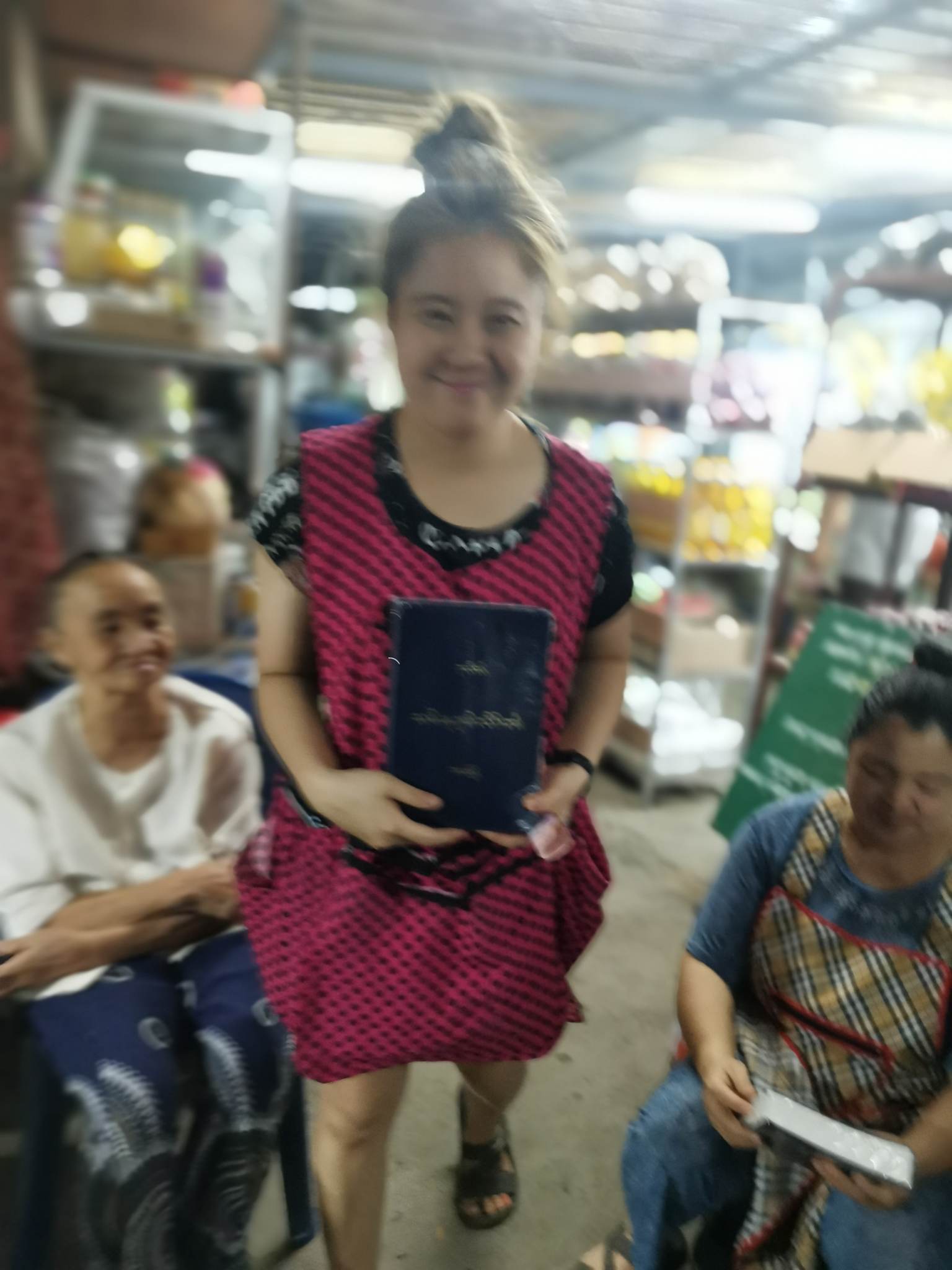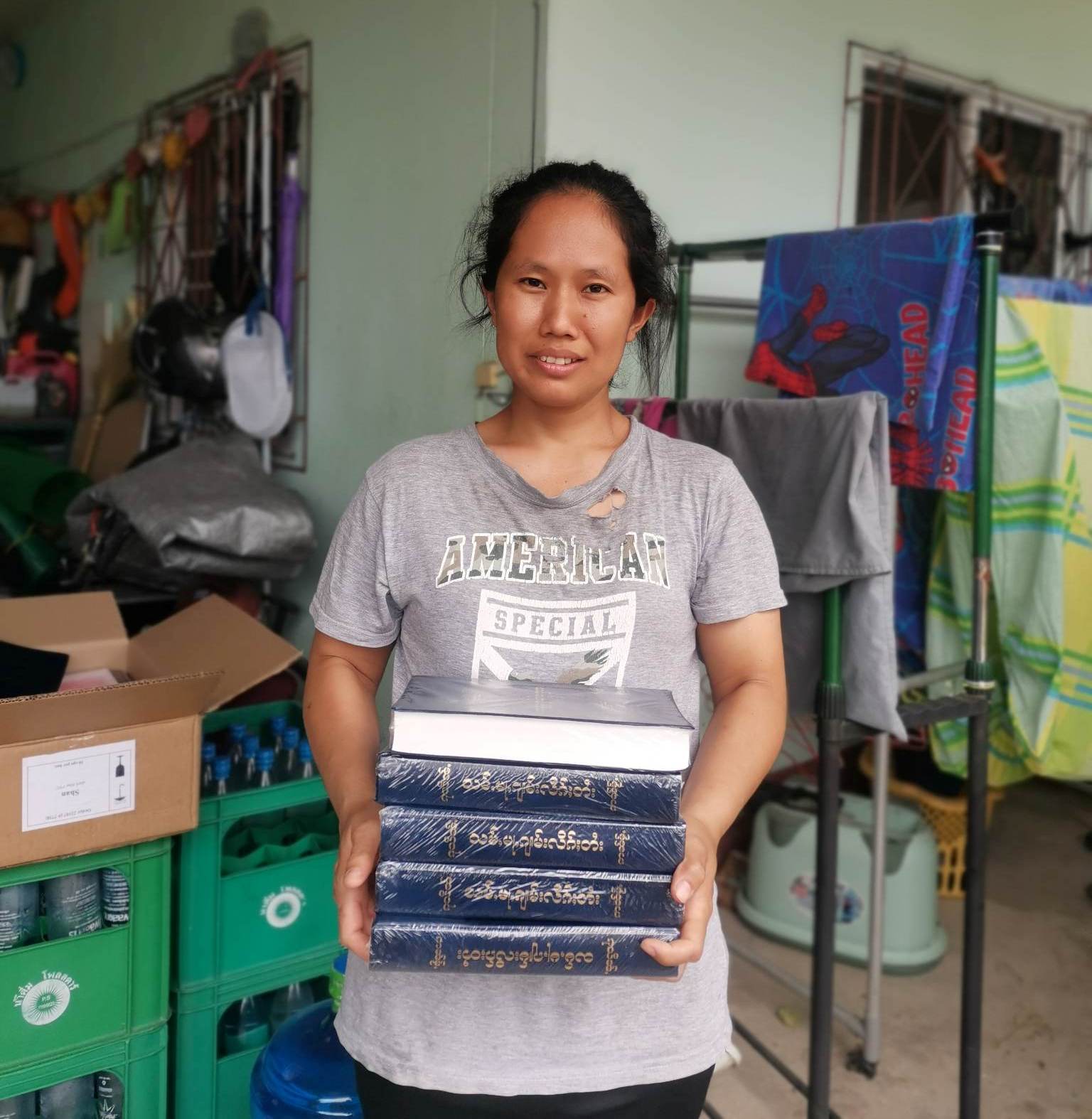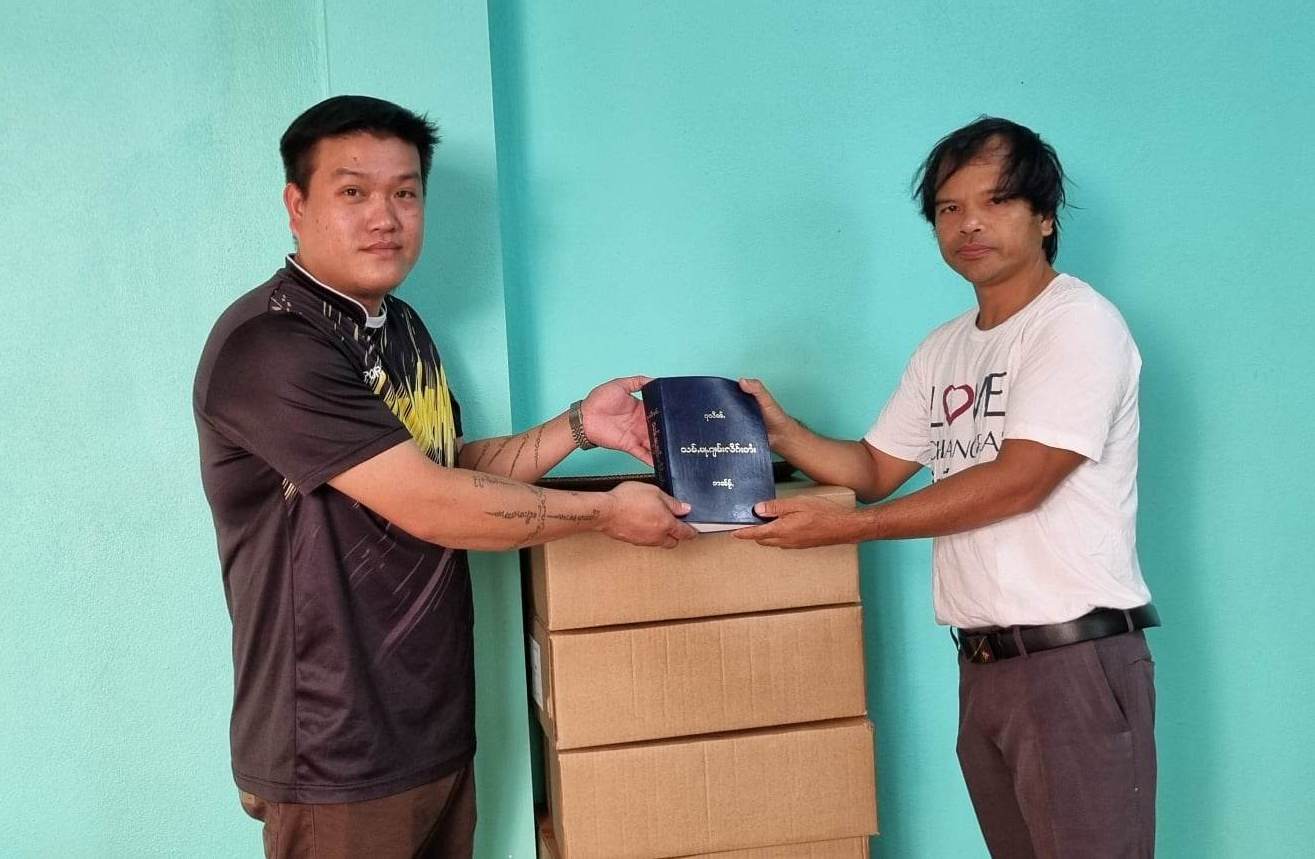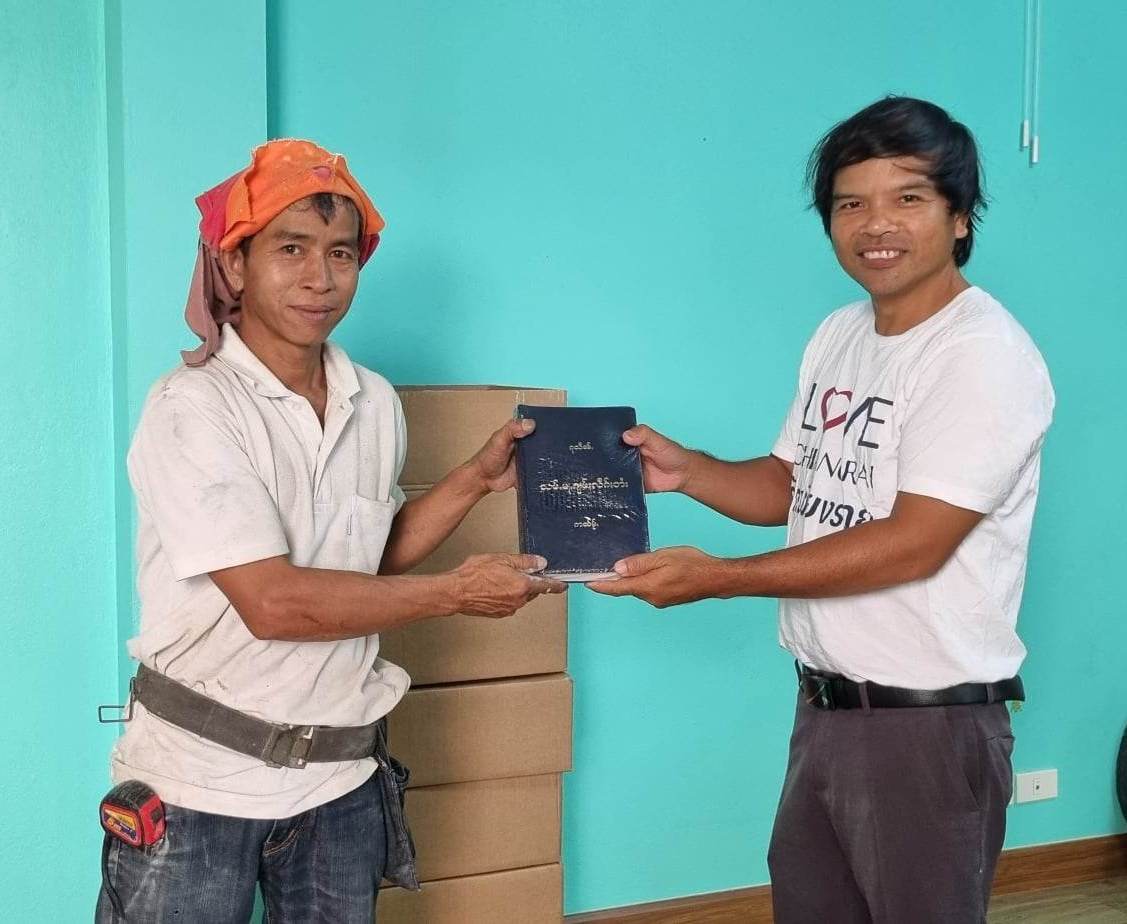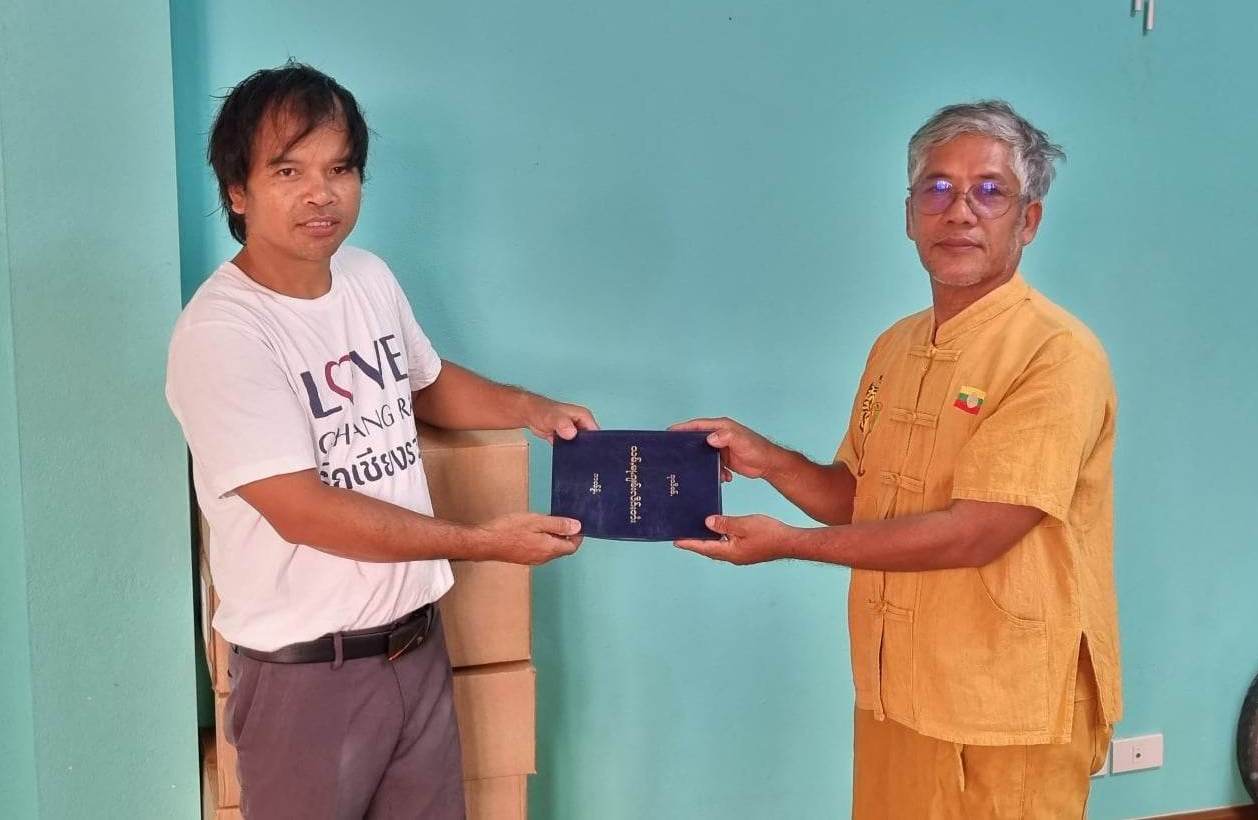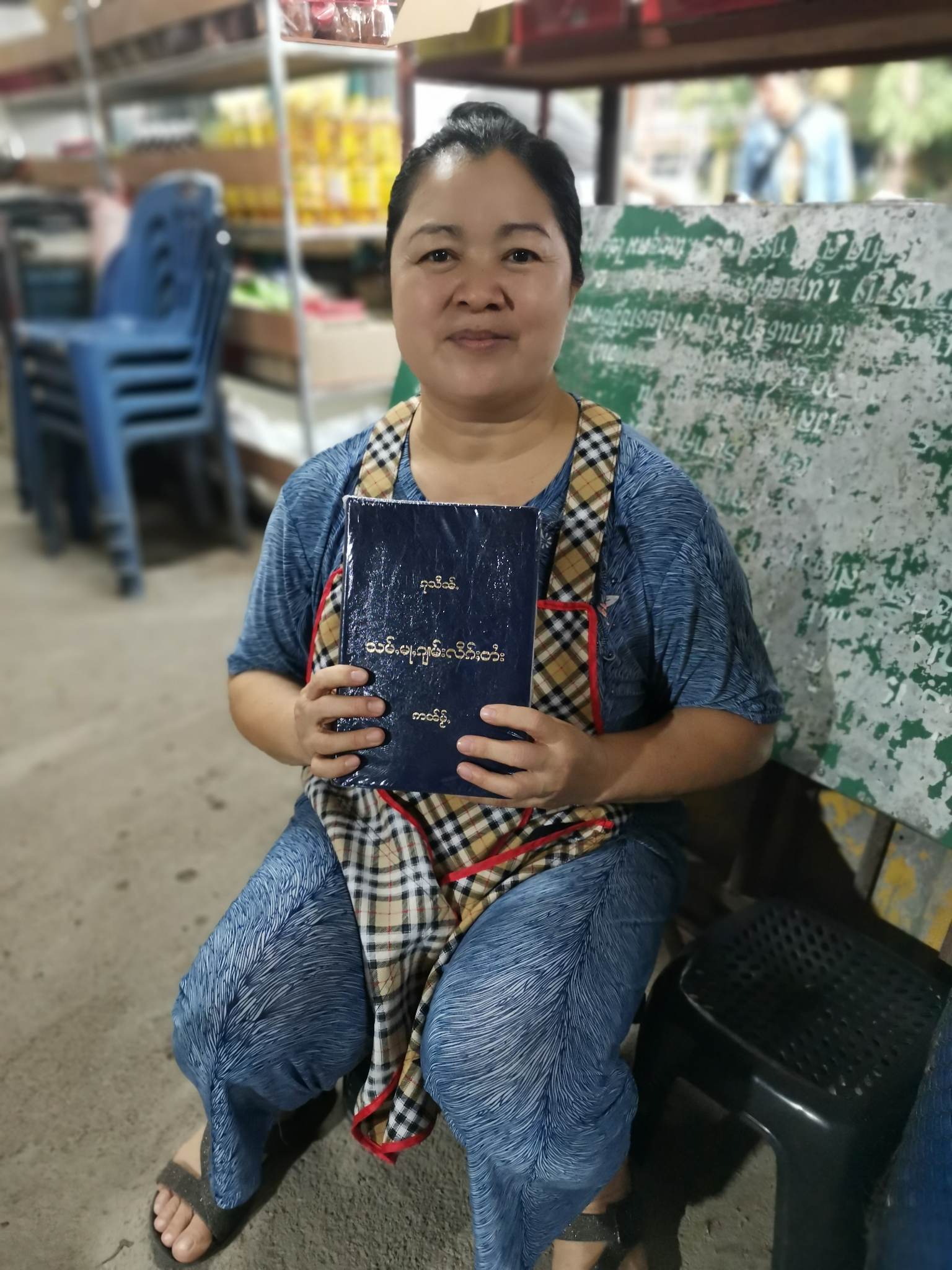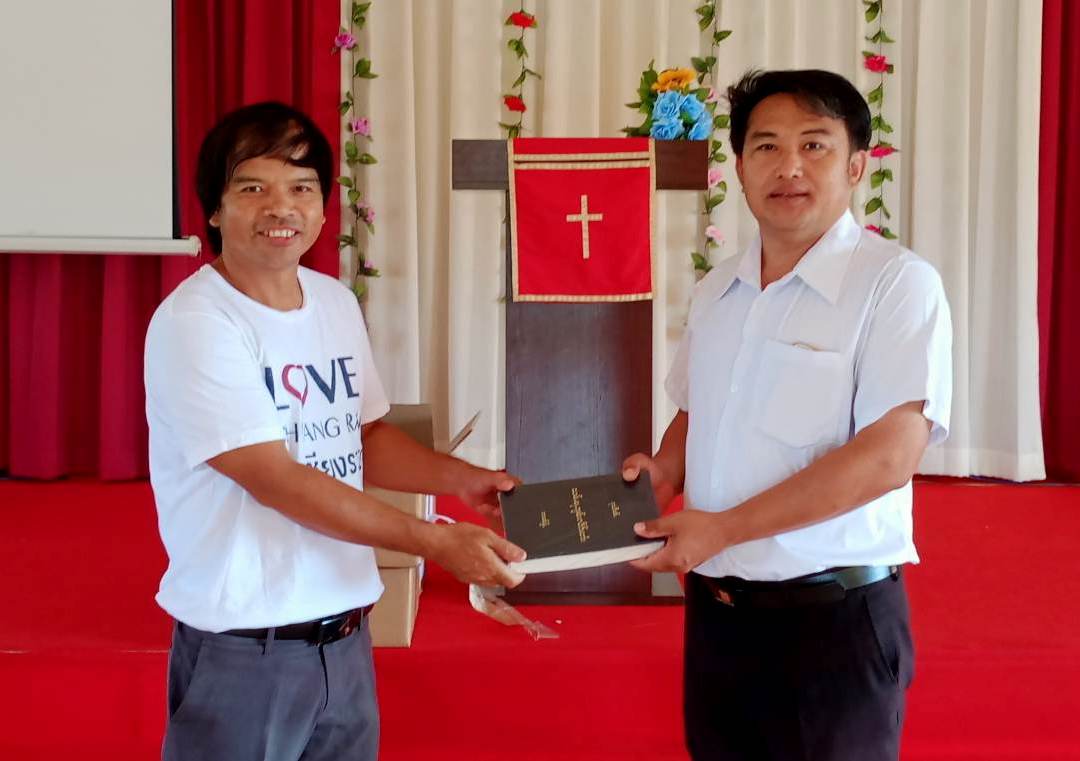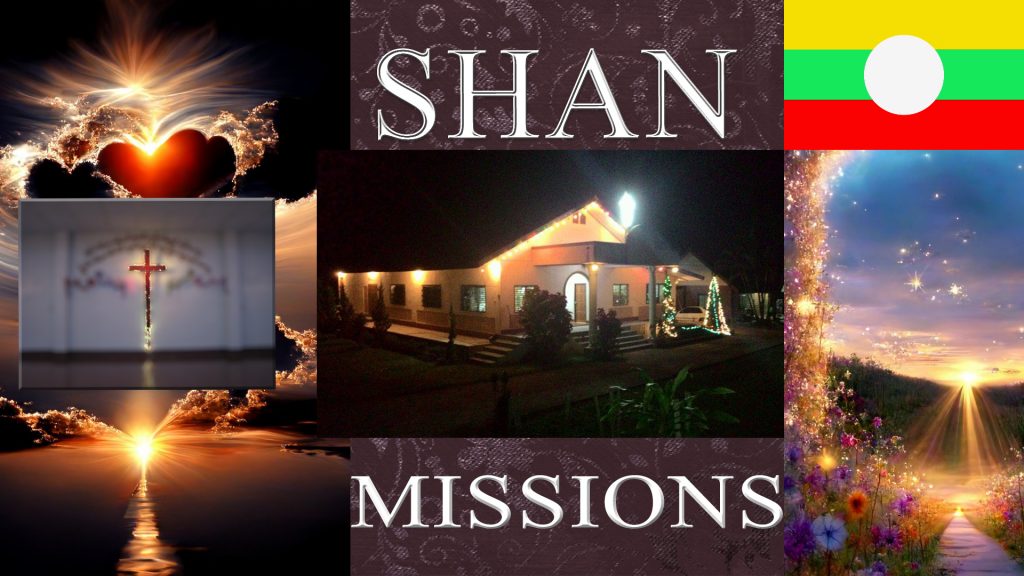Rev. Nathan Brown began translating a few Bible verses from the Old Testament into the Khamti Shan language in 1836, while he was in Assam, India. That was the first translation into the Shan language. In 1863, Rev. Bixby started a Theological class in Toungoo with ten students who were planning to become pastors and teachers. In addition to the Church and school work, the missionaries translated four tracts into Shan and prepared a spelling book and vocabulary. A new typewriter had to be designed for printing the Shan script. In 1864, one manuscript, a spelling book, and one vocabulary were written in Shan, Shan-English, and Burmese-Shan. Religious books and tracts such as “The Catechism and View”, “The Golden Balance”, “The Way to Heaven”, and “The Investigator and Glad Tidings” were all translated into Shan in 1864. It was reported in 1869 that some tracts had been translated during the year. Two “Catechisms” and the “Call” had been printed, and a third “Catechism and View of the Christian Religion” was passing to the press. For the first time in Burma, a tract had been printed in the Shan language.
Rev. Josiah Nelson Cushing (D.D) American Baptist Missionary
Shan Bible Translator
Cushing was born in North Attleboro, Massachusetts, U.S.A., May 4, 1840. He was the son of Alpheus Nelson and Charlotte E. Foster Cushing. He was prepared for college at the Pierce Academy, Middleboro, Massachusetts, and entered Brown University in the class of 1862 in the same class with Dr. Henry F. Colby of Dayton, Ohio, Rev. Addison Parker of Piqua, Ohio, and Dr. Josiah R. Goddard of Ningpo, China. After his graduation, he went directly to Newton Theological Institution, completing the full course.
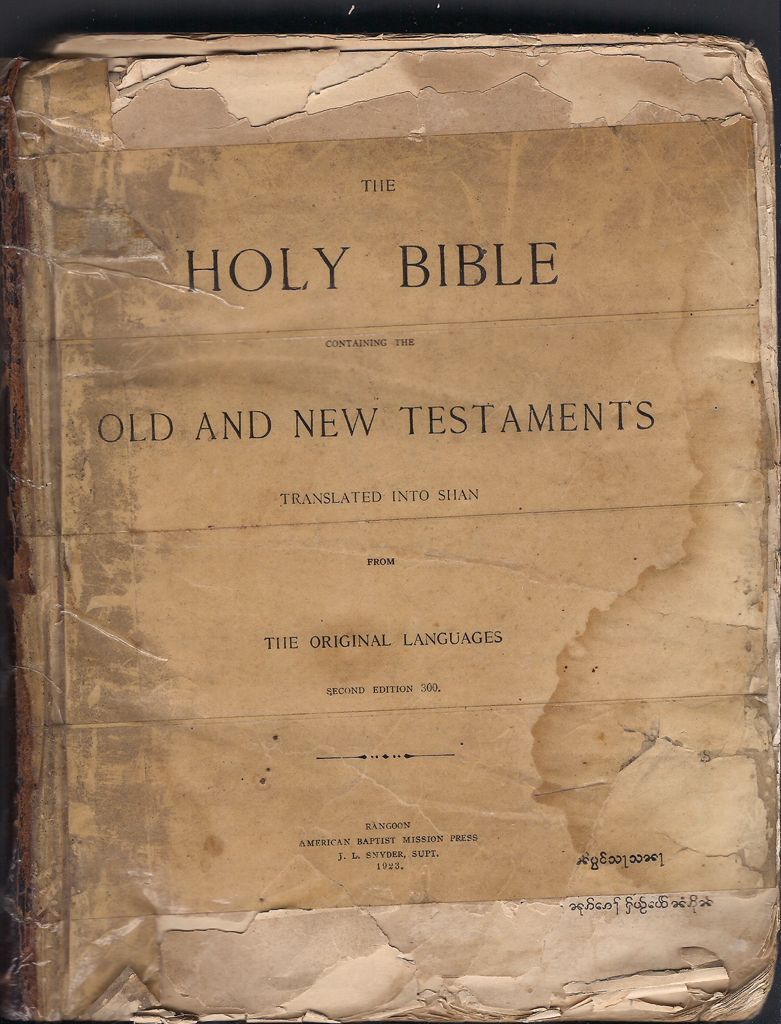
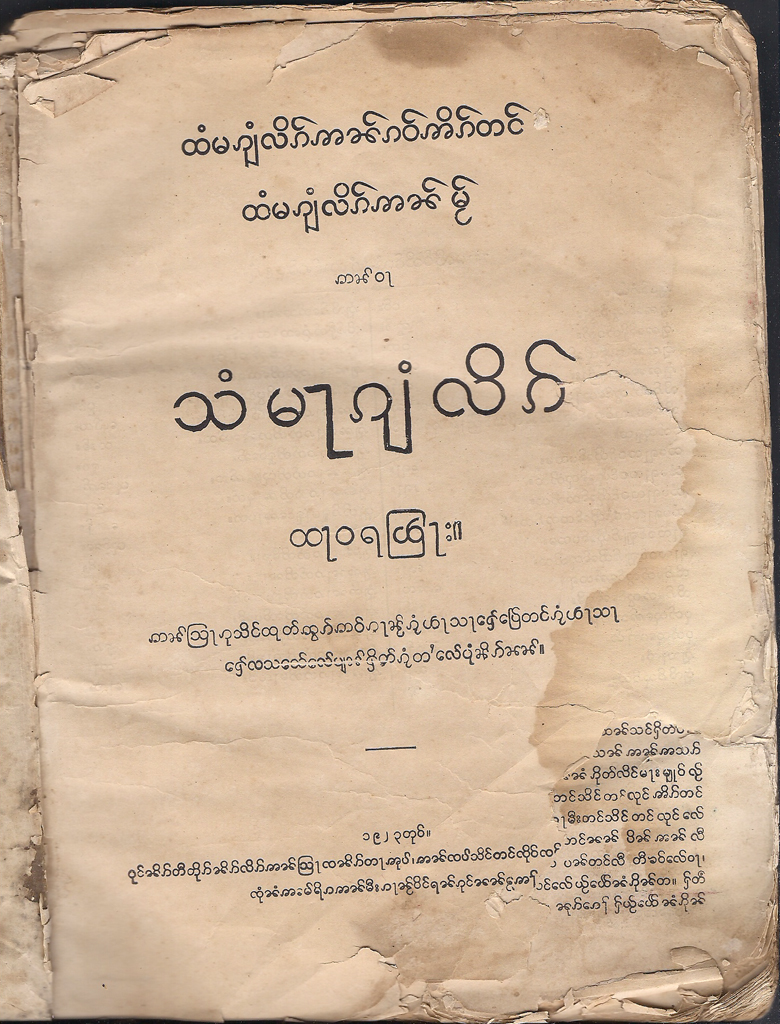
New Testament
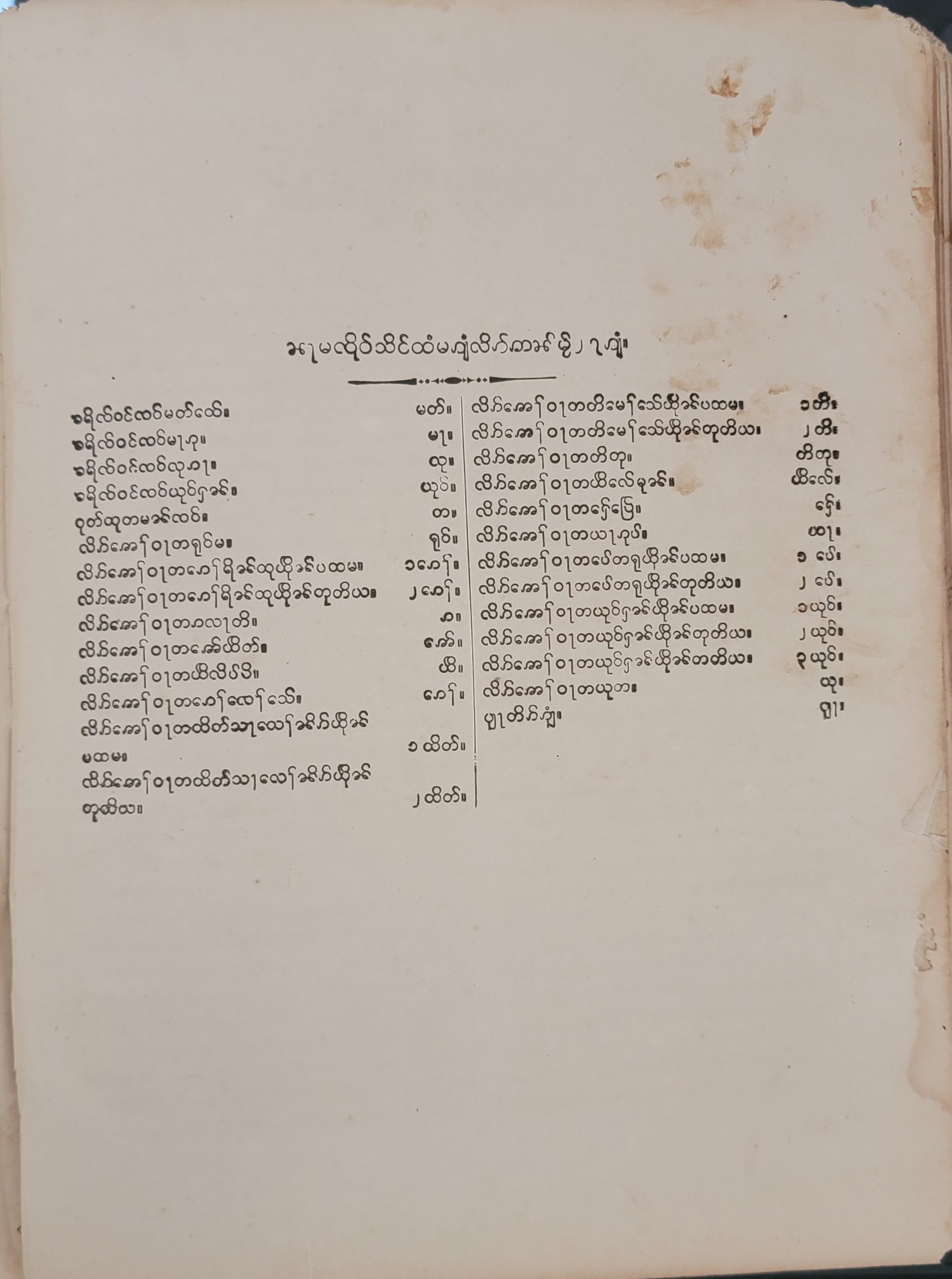
In 1881, Rev. Cushing reported that he had translated the “Epistles” and the book of “Revelation” and had thus completed the New Testament in Shan. He hoped, next year after revision, to see the Epistles printed and bound with the Gospels. The New Testament was completed in 1882 and underwent revisions in a second edition in 1887 and a third edition in 1903.
We don’t know when Rev. Cushing started doing Bible translation. However, we’ve learned that it takes 11 years to get the New Testament printed after printing the gospel of Matthew. According to Cushing’s report in 1893, the Gospel of Matthew and a Grammar of the Shan Language were published in November 1871.
Old Testament
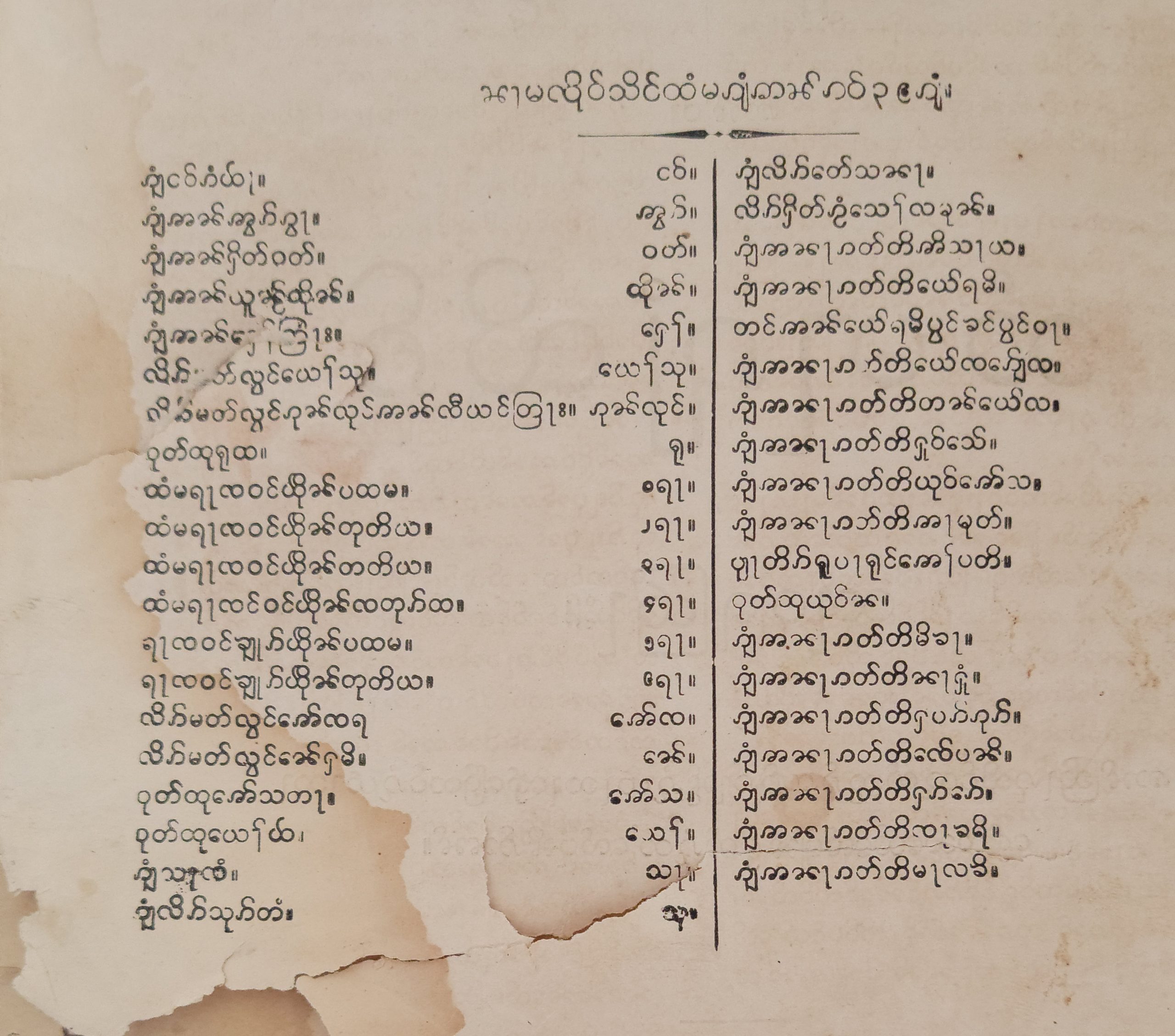
The Old Testament translation first appeared in 1891. In 1893, Dr. Kirkpatrick reported from HsiPaw, “We are very glad to get the Shan Bible. All of our Christian workers are eagerly studying the Old Testament. We give each of the preachers a copy as a Christmas present. One man who has been a Christian for many years and has been doing good work as an assistant preacher never owned even a New Testament until he came here a few months ago.” This indicates that the whole Bible in the Shan language was finished in 1891 and published in 1892. According to a report by Ai Lun and Sowards in 1963, Shwe Wa from Kengtung helped Rev. Cushing in Bible translation. Shwe Wa was baptized in 1882. He resigned from his government job, from which he earned 100 Kyat per month, and came to help Cushing in Bible translation with 30 Kyat per month only. He was very good at Burmese as well as Shan. Ai Ku from Toungoo also helped Cushing in Bible translation.
Rev. Cushing passed away on May 17, 1905, in the United States. Mrs. Cushing came back to Burma and worked on editing the Bible with Mrs. Muldah Mix in Insein. Rev. R.B. Buker and Mrs. Henderson also helped in editing the Bible.
We do not know the procedure in his Bible translation process at that time. I doubt that Rev. Cushing had Bible Translation Consultants, Translation Committee, Reviewer Committee, etc., like we have today. Cushing might have been working and translating the Bible with the help of Shwe Wa and Ai Ku in the Shan language. Nevertheless, there are very few mistakes in his translation, except in Psalm 66:3, one word (ၸဝ်ႈ) was (accidentally) left out, and it gives the meaning “our deeds” (ႁဝ်း) instead of “your deeds” (ၸဝ်ႈႁဝ်း).
Spelling mistake in index (ထံမရႃၸင်ဝင်) instead of (ထံမရႃၸဝင်)/
Exodus 29:22 and 29:28 (ႁူဝ်မႃ) instead of (ႁူဝ်ၶႃ), giving the meaning as “dog head” instead of “thigh”. It might be a reprinting error.
Numbers 18:3, the NIV text says, “They are to be responsible to you and are to perform all the duties of the Tent, but they must not go near the furnishings of the sanctuary or the altar, or both; they and you will die.” But Cushing translated as “They are to be responsible to you and are to perform all the duties of the Tent, but they and you must not go near the furnishings of the sanctuary or the altar, or both they and you will die.”
Deuteronomy 28:54&56, the NIV says, “gentle and sensitive men” “gentle and sensitive women”, but Cushing translates as “men who have young, soft and tender flesh” “women who have young, soft and tender flesh.”


Shan Bible Centenary Celebration 1985 NamKham
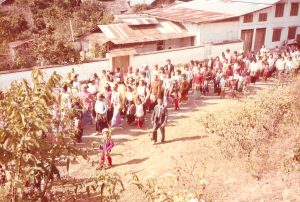
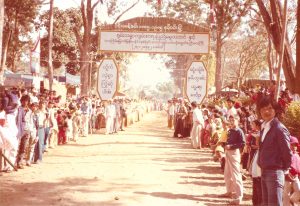
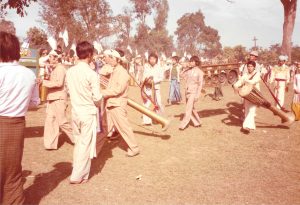
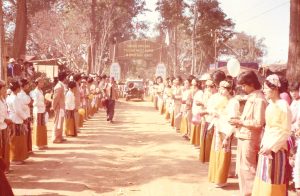
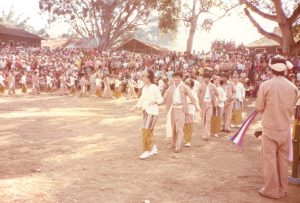
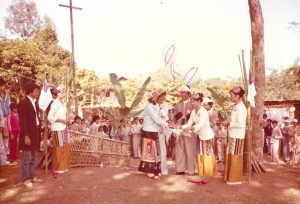
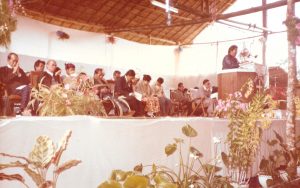
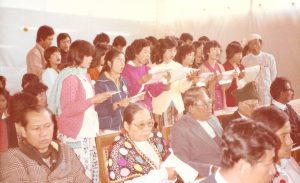
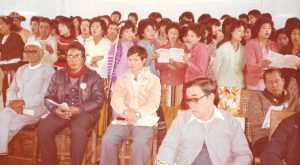
Shan Bible centenary celebration, NamKham – 1985
By His wonderful grace, the Shan people received the New Testament in 1882, the Holy Bible in 1892 in their language. The Shan Bible Centenary Celebration was held in NamKham from December 28-29, 1985, organized by ShweLi Shan Baptist Mission. The preparation committee for the celebration was formed on March 4, 1979.
Chairman; Saya Aung Htun Shwe
Vice-chairman; Saya Kham Ye
Secretary; Saya Nyunt Tha
Vice-secretary; Saya Po Maung
Treasurer; Daw Martha
Auditors: San Lwin, Thein Aung Kham
All the committee members were from the ShweLi Valley Shan Baptist Mission. Shan Churches from Eastern Shan State and Southern Shan State were not invited to participate in the preparatory committee. Shan Churches from Eastern Shan State, however, celebrated the Shan Bible Centenary Celebration in MuongYawng, Eastern Shan State, by themselves from April 11-14, 1985. None from the ShweLi Valley Shan Baptist Mission attended that celebration. The celebration in NamKham was held concurrently with the Burma Baptist Convention 111th Annual General Meeting, together with the Christmas Celebration from December 25-29. It was very confusing to differentiate whether the people were celebrating the Shan Bible Centenary, or BBC annual general meeting, or the Christmas festival.
Special songs commemorating the Shan Bible Centenary were produced on cassette tape and sold as fund fundraising item. That was the first Christian music produced by ShweLi Shan Baptist Mission in its 92-year history since the Baptist Mission was opened in ShweLi in 1893. The songs were mixed up with Shan, Kachin, and Burmese languages. Even though it would be better in Shan to celebrate the Shan Bible, one of the organizers explained that there was no market in Shan Churches if they produced in the Shan language alone. They expected a better market in Kachin and other Churches, so they had to produce in Burmese, Kachin, and Shan languages mixed up in one cassette.
The celebration started with ten thousand people wearing Shan costumes, marching up from downtown NamKham to the hill of NongSanKone, where ShweLi Baptist Mission first began, accompanied by Shan musical gong-mong and noke dancing. Gong and mong were never allowed to be used in Christian gatherings because Shan pastors and leaders considered such musical instruments as Buddhist instruments. Since Shan Bible Centenary was the biggest celebration in Shan Christian history, young people from ShweLi Valley Baptist Mission threatened to take legal action against pastors and leaders if the Church did not allow them to play gong and mong musical instruments during the celebration. Below is a letter from the youth department. (Translated from Burmese)
From Youth Dept. to Chairman,
NongSanKone Shan Baptist Church, NamKham. 22 May 1983.
Subject: To buy and use Shan Kong-mong
On behalf of Shan Christian Youth, may I submit this letter?
According to the Law of the Myanma Socialist Government, 2-1/2, all nationalities can enjoy freedom of worship according to their faith and maintain all their culture. According to our young people’s desire, we want to maintain our Shan culture, unite our young people, and abandon the misunderstanding of cultural and religious conflict, cultural, political, and economic conflict. Maintain that culture is only related to social, and all people should keep their culture. According to the Law, Shan gong-mong is a cultural thing and will not be harmful to others. That is why we, a youth group from the Church, will buy a set of gongs and use them.
Signed/ Sai Ba Tin, Youth Representative,
Cc. Chairman, ShweLi Valley Shan Baptist Mission,
Chairman, Village Council, NongSanKone, NamKham.
Finally, the Shan pastors and leaders gave in and allowed them to buy a set of Shan kong-mong and use it during the celebration.
Members of the Churches donated money, rice, pigs, cows, and chickens for the occasion. About Kyat 50,000 was raised before the event. However, because of currency devaluation, the money, which had been collected for years, had lost all value. By the decision of the committee, Rev. Sai Nyunt Tha was sent to the BBC to borrow Kyat 100,000 for the event. In the beginning, the BBC refused to lend the money. After much strong debate, Sai Nyunt Tha declared, “If God’s willing for us to celebrate, He will provide. It doesn’t matter whether you lend us money or not; we will go ahead and celebrate.” Then BBC backed down and lent the money to them on condition that the ShweLi Valley Shan Baptist Mission would pay back the money at the end of January, immediately after the celebration. After the celebration, offering meals twice a day to more than ten thousand people for five days, donations received from Churches and individuals amounted to about Kyat 300,000. The debt to BBC Kyat 100,000 was paid back immediately. There was even a surplus after the celebration. However regrettable thing happened. The surplus money, Kyat 50,000, was kept in the locker at the secretary’s house before being put into the bank. The lock was broken down, and half of the money was missing. There was some suspicion about the leader who kept the money. (The money, Kyat 50,000, was missing when the responsible leaders took the money to the bank)
On December 28, there was an opening ceremony of Cushing Memorial Hall at MyoMa Church. There was an honoring program for 58 pastors, 103 people who have achieved higher education, and 23 people who have higher positions in civil services. 273 people were baptized during this occasion. Such a mass baptism only happens at such a special occasion.
New Shan Bible Translation
The Shan literature and writing system used a hundred years ago is not easy to read, pronounce, or understand the correct meaning. Shan language is a tonal language. Different tone from the same word may give a different meaning. The Shan language has six tones apart from other special sounds. As mentioned on page 10, in the old writing system, one word can give six to ten different meanings depending on the tone made on that word. Rev. Cushing used this Shan writing in translating the Shan Bible one hundred years ago. It is therefore difficult to read the Shan Bible, understand, and get the correct meaning in one reading. A reader has to read again and again for a few times to get the right tone and right meaning. The reader may not understand and get the right meaning on the first reading. That is why many Shan are trying to read Burmese or other Bibles, which are easier to understand, instead of the Shan. The Shan literary committee in Burma has modified the old and invented a new Shan writing system in 1958, which can be used in writing, reading, and getting the correct meaning without difficulty and mistakes. It is more accurate.
Beginning of New Shan Bible Translation
Burma Bible Society in 1968 appointed Aung Htun Shwe and Myint Lay to do a new translation of the New Testament with new Shan writing. Myint Lay stopped doing translation after a few years because of drug addiction. After 15 years of hard work, Aung Htun Shwe completed the new translation of the New Testament by himself. When his new translation was about to be published, many Shan Christian leaders did not agree with his translation. Finally, his new translation was abandoned.
Shan Bible Translation Workshop 1985
Some participants in the Bible Translation Workshop in 1985, Thailand.
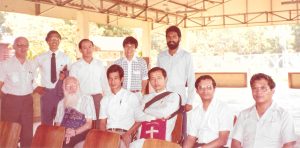
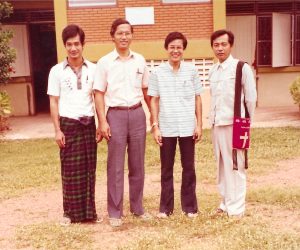
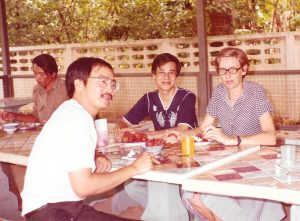
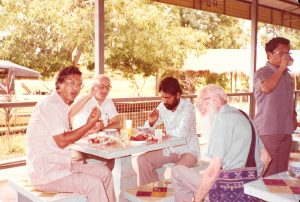
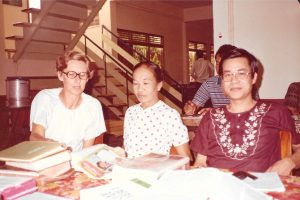
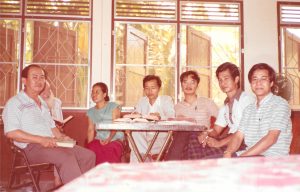
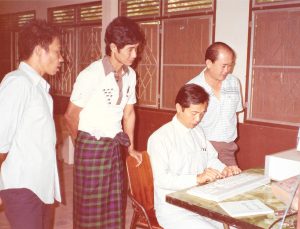
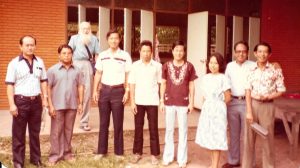
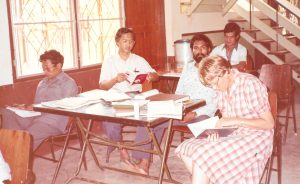
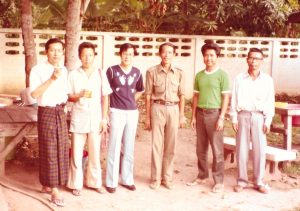
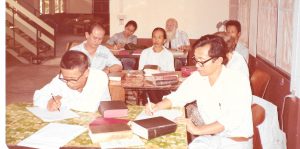
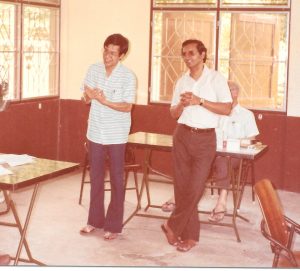
The United Bible Societies organized a “Shan Bible Translation Workshop” in HangNam, Northern Thailand, from July 1 to 11, 1985. Dr. David J. Clark was acting as a translation consultant for Shan Bible Translation. During the translation workshop, discussions were held for future Shan Bible Translation work.
The attendees at the workshop are;
- Dr. David Clark 2. Dr. Stephen Hre Kio 3. Dr. J. Webb 4. Dr. Sai Htwe Maung 5. Rev. Aung Htun Shwe 6. Myint Lay 7. Miss. Judy Crossman 8. Harn Yaunghwe 9. Suchart and some Shan believers from Mae Hong Son.
During the translation workshop, the participants were divided into four groups and were asked to try to translate the Bible verses into the Shan language on their own effort without looking at Cushing’s translation. To our amazement, we all discovered that our translations were not as good as Cushing’s translation. At the end of the workshop, the final decisions were made as follows:
- The new translation will base on Rev. Josiah Nelson Cushing’s translation.
- The Revised Standard Version (English) will be used as a reference in translation because it is the closest translation to the original Greek and Hebrew.
- All agree that Rev. Aung Htun Shwe will be a full-time translator and Harn Yaunghwe will be a part-time translator. (Harn Yaunghwe was a full-time worker in United Bible Societies as a management consultant).
- The reviewers of Shan Bible Translation are;
Dr. Sai Htwe Maung (Hong Kong),
Dr. J. Webb (U.K),
Miss. Judy Crossman (MaeHongSon),
Mr. Suchart (Chiangmai),
Rev. Sai Stephen (Burma),
Rev. Sai Nyunt Tha (Burma),
Sai Myint Lay (Burma),
U Kyaw Hla (Burma). - The rule is set up that the full-time translator must be paid by United Bible Societies. He must not accept any other paid work. He can do Church work on Sunday on volunteer basis.
- The translation procedures are as follows;
(1) Translators will send their first draft to reviewers.
(2) Reviewers will check and make recommendations, and send them back to translators.
(3) Translators will look at the reviewers’ comments and make corrections, and send back to the reviewers a second draft.
(4) Reviewers will check and make comments on the second draft and send it back to translators.
(5) Translators will read and make corrections and send back to reviewers the third draft.
(6) The reviewers will read and make a final recommendation.
(7) The consultant will be consulted in difficult problems.
The New Bible Translation began in January 1986.
Aung Htun Shwe started with RUTH and GENESIS.
Harn Yaunghwe started with JONAH and PROVERBS.
Disagreement and resignation
After reviewing RUTH and GENESIS translated by Aung Htun Shwe, I made some comments and suggestions on his translation and sent them back to the translator. Likewise, other reviewers also made their comments and suggestions and sent them back to him. However, the translator ignored the reviewers’ opinions and kept on translating using the same words and the same phrases that were being objected to by reviewers. The translation was also completely new. It did not follow the agreement made at HangNam. It was not based on Cushing’s translation as agreed. RSV was not taken as a reference. Instead translator used the Good News Bible and translated directly from the Good News. The names of the people were also changed by adding the Shan prefix, such as Sai, Nang, Saya, etc. New words and new terms that were not common, not heard of, and not found in the Shan dictionary were also created and added. It broke the agreement we made at the translation workshop.
These disappointments were expressed to translation consultant David Clerk on August 4, 1987. However, David Clerk did not seem to understand the importance and significance of the Shan words and phrases in the Shan language used in the new translation. He assumed that Aung Htun Shwe’s translation was correct.
Comments on Genesis
- Deviation from the original text.
- Using the words never exist in the Shan language.
- Exaggeration by adding extra words.
- Changing the names of the persons, cities and towns.
- Wrong translation that may affect the Biblical Truth.
- Inconsistency in translating the word.
- Using the language that never used in written form.
- Invention of new words. (new Shan words being created that cannot be found in dictionary or never heard of)
- Not translating the word but explaining the meaning.
- Some sentences are left out from original text.
- Using Buddhist term that is against Christian faith.
- Poor composition leads to no meaning.
Despite the recommendation made to translator again and again there were no improvements or changes seen. As translator continued doing translation on MATTHEW, the same problems were found. Despite correction, recommendation and advice given, translator kept on ignoring the comments and advice. I was very disappointed. I regretfully resigned from the board of reviewers on August 25, 1987 amid frustration and sadness.
Harn Yaunghwe completed JONAH and stopped doing translation. He also resigned from the United Bible Societies Shan Bible Translation Project on March 14, 1988.
(Copy of letter of Mr. Harn’s resignation.)
To. Dr. Daniel Arichea, RECTO-Asia Pacific,
United Bible Societies, Hong Kong.
Subject: Resignation from UBS Shan Bible Translation Project.
Dear Danny,
Technically, this letter should be addressed to David Clark in Bangkok since he is the Translation Consultant for the Shan Project. However, you are next door and we have already discussed some aspects of the project, so I thought I might as well write to you. After thinking through various options relating to the project, I feel that it would be best if I resigned from the UBS Shan Project. This is because Saya Aung Htun Shwe’s translation style cannot be reconciled with mine and the principles agreed at Hang Nam in Thailand in 1985. It may also be viewed that I have undue influence because of my status as a UBS management consultant.
By resigning from UBS and the Shan project, you will remove any questions about a possible conflict of interest and give you and David Clark a free hand to decide on the best course of action. When I return to Canada in August 1988, I shall take up the translation of the Shan Bible full-time at my own expense. However, I would like to have access to UBS technical help, and I would also appreciate it if the current reviewers would continue to review my work. This way, UBS can be assured of the quality of my output, and Saya Aung Htun Shwe in Burma could also continue his work on the UBS Shan project without undue interference. At a later date, portions of both versions can be tested, and the Shan Churches in Burma and Thailand can decide on what they prefer. I feel this is the best solution and trust you will concur.
Serving Christ,
Signed/ Harn Yaunghwe.
U Kyaw Hla, a member of reviewing committee also resigned from Bible translation work in July 1989 citing health reason.
New Translation published in 1994

The new translation of the New Testament, including Psalms and Proverbs, translated by Aung Htun Shwe and team, was published by Myanmar Bible Society in 1994. It was completely new and different from Cushing’s translation.
What is new in New Translation?
For examples;
- Fisherman was translated as “Kunnalum” (ၵူၼ်းလႃးၼမ်ႉ) instead of the original common Shan language “Dumnga” (တမ်ႇငႃႈ). The word Kunnalum cannot be found in Cushing’s Shan dictionary or the new Shan dictionary. It is a completely new term. Most of the Shan have never used it or never heard of this term, or understand it.
- “Jesus turns water to wine” in John 2:3-10 was translated as “Jesus turns water to alcohol” (လဝ်ႈ) (it bears the meaning of intoxicating liquor). (Cushing translated it as “grape juice”) (ၼမ်ႉၸပိတ်ႉ). Drinking alcohol (လဝ်ႈ) is considered a culturally bad character and condemned by Shan people. Buddhism teaches to avoid drinking alcohol. How come Jesus makes alcohol for the people to drink? Shan people may question. This will bring a big question from non-Christians and Christians alike on Christianity and the conduct of Jesus Christ in turning water into alcohol and feeding the people.
- The whole scripture verse was missed out in John 6:61.
- John 7:28 says, “I have not come (မႃး) on my authority.” But the new translation says “I have not become (ပဵၼ်မႃး) on my authority.” The words “come” and “become” do not have the same meaning.
- Matthew 3:16 says, “He came out of the water.” But the new translation gives the meaning “Water came out from Him.” (ၼႂ်းမိူဝ်ဢၼ်ဢွၵ်ႇၼမ်ႉမႃး) How can water come out from Jesus?
- Matthew 6:11 says, “Give us today.” But the new translation says, “give us one day.” (ဝၼ်းၼိုင်ႈ) Is today and one day the same?
- Matthew 18:29 says, “fell and begged him.” The new translation says, “fell and worshiped him.” “Beg” (တွင်းပၢၼ်ႇ) and “worship” (ႁွမ်းမိုဝ်းဝႆ) are different.
There are many more problems in the whole book of the NT.
On January 18, 1997, I expressed my concern to Dr. Stephen Hre Kio, who was then a new translation consultant for Shan Bible Translation. Stephen Hre Kio replied on September 25, 1997, saying, “Thank you for your letter dated January 18, 1997. I also want to thank you for sending me your comments on the Shan NT books of Matthew and John. I discussed some of the comments you made with the committee members when we met in Maesai for a week. Their reactions to your comments could be classified in three categories: some of them we accept, others we are reconsidering, and most of them we disagree…”
YWAM Thailand expressed in their website, “TaiYai (Shan) Bible 1892, using an old form of the language, which only a few can understand. New version of the NT, Psalms and Proverbs released in 1994. While easier to understand, this version is not true to the conventions of the Shan language.”
After the New Translation of the New Testament, Psalms, and Proverbs was published, Aung Htun Shwe continued doing translation on the Old Testament. But before he finished the OT translation, he passed away in 1996. Rev. Sai Stephen was selected to continue doing OT translation. Sai Stephen passed away in July 2000, before the Old Testament was published.
New Translation published in 2002

The Holy Bible (OT & NT) in a new translation was jointly published by Thailand Bible Society, Bangkok, and Myanmar Bible Society, Yangon, in 2002, with some corrections in the New Testament published in 1994. However, there are still some problems in this new translation. For example; some of the names of the women in the Bible are given Shan racial prefix Nang, e.g. Nang Ruth, Nang Tamar (Matthew 1:3) (ၼၢင်းတႃႇမႃႇ) (however Tamar in Genesis 38:6 is not given the same prefix Nang) (တႃႇမႃႇ), making them look like Shan tribe by giving them Shan name, but not all women are given such prefix. Some men are also given titles, such as Saya(သြႃႇ), e.g., Saya John, Saya Matthew, Saya Paul, etc., but not always; not all men are given this title. The translation is inconsistent.
Concerns
The following are some concerns in the new translation published in 2002.
NIV = New International Version
GN = Good News Bible
NST = New Shan Translation (Translator used Good News Bible as reference)
Genesis 2:23
She was taken out of man. (NIV)
She was taken out of man. (GN)
She was taken out of human (NST)
Genesis 3:9
Man (NIV)
Man (GN)
Human (NST)
Genesis 3:20
She would become the mother of all the living (NIV)
She was the mother of all human beings (GN)
She is the mother of all living human beings (NST)
Genesis 3:24
To guard the way to the tree of life (NIV)
Keep anyone from coming near the tree that gives life (GN)
To guard the way of the tree of life (NST) * of and to denotes different meaning.
Genesis 4:7
It desires to have you (NIV)
It wants to rule you (GN)
It wants to stimulate you (NST)
Genesis 7:8
Creatures that move along the ground (NIV)
Every kind of animals (GN)
Creatures that crawl (NST)
Genesis 9:26
Bless be the Lord, the God of Shem (NIV)
Give praise to the Lord, the God of Shem (GN)
May eternal God bless Shem (NST)
Genesis 26:29
Use the Buddhist term (သိင်ႈၵၢမ်ႇ) which literally means ‘finish fate’, only used in the death of a Buddhist monk. (Christians do not believe in fate)
Genesis 15:17
Use the word (wM0ef;) which never used in Shan language.
Genesis 17:18
If Ishmael may live under your blessing (NIV)
Why not let Ishmael be my heir? (GN)
May Ishmael live in front of you (NST)
Genesis 18:25
Use the word (ၶႃႈၸႂ်) which is very uncommon in Shan language.
Genesis 19:15
Use the word (ႁူဝ်မိူင်းပိူင်းသႂ်) which is not commonly used in Shan.
Genesis 19:32-34
‘wine’ is translated as ‘intoxicating grape juice’ in 32&33, but it is translated as ‘ordinary grape juice’ in 34.
32&33 (ၼမ်ႉလဝ်ႈမၢၵ်ႇၸပိတ်ႉ) 34 (ၼမ်ႉမၢၵ်ႇၸပိတ်ႉ)
(Inconsistent translation.)
Genesis 21:16
I cannot watch the boy die (NIV)
I can’t bear to see my child die (GN)
I do not want to see my child who was dead (NST)
Genesis 21:20, 25:27
Use the word (လႃးထိူၼ်ႇ) which never exist in Shan language and cannot be found in dictionary. The common Shan language is (မူးသိူဝ်း)
Proverbs 5:15-16
Drink water from your own cistern, running water from your own well. Should your springs overflow in the streets, your streams of water in the public squares? (NIV)
Be faithful to your own wife and give your love to her alone. Children that you have by other women will do you no good. (GN)
Translated exactly from GN and completely different from Cushing’s translation.
Matthew 1:19 the ‘Holy Spirit’ is translated ‘Holy Spirit’, in 1:21 it is translated ‘Spirit that is Holy’, in 28:19 it is translated ‘Spirit of God that is Holy.’
Inconsistence translation.
Matthew 3:5, Mark 1:9
Jordan is translated ‘Jordan Water’ (ၼမ်ႉယေႃးတၢၼ်ႇ) instead of ‘Jordan River.’ (ၼမ်ႉႁွင်ႈယေႃးတၢၼ်ႇ)
Matthew 5:5-10
The word ‘for’ has been left out all over the phrases.
Matthew 5:13-14
You are the salt…you are the light (NIV)
You are like salt… you are like light (GN)
Translated as GN.
Matthew 6:17
Your Father who is unseen (NIV)
Your Father who is unseen (GN)
Your Father who is in hidden place (NST)
Matthew 7:3
Look at the speck (NIV)
Look at the speck (GN)
Ask to see the speck (NST)
Matthew 8:6
Paralyzed (NIV)
Unable to move (GN)
Hemiplegic (NST)
Matthew 10:35
I come to give suffering (NST)
*** no such phrase in original text
Matthew 11:19
Drinking (NIV)
Drank (GN)
Drunkard (NST)
Matthew 13:55
Created new word, which never exist in Shan language. (ၸၢင်ႈမႆႉ) qmifjrBh)
The common Shan language is (လၵ်ႈသမႃး)
Matthew 18:24
Ten thousand talents (NIV)
Millions of pounds (GN)
One hundred thousand (NST)
Matthew 18:29
Begged him (NIV)
Begged him (GN)
Worshipped him (NST)
Matthew 20:23
Is not for me to grant (NIV)
I do not have the right (GN)
I do not have the right (NST)
Matthew 26:41
(ၸႂ်ဝိၺိၺ်ႇႁႅင်းၸေႇတၼႃႇသေၵေႃး) has no meaning.
Mark 1:4
Repent (NIV)
Turn away from your sin (GN)
Change your heart (NST)
Mark 1:17
Fishers of men (NIV)
To catch men (GN)
Searcher of men (NST)
Mark 7:12
Spelling mistake denotes the meaning as ‘wife’ instead of ‘mother’
Mark 8:35
Save his life (NIV)
Save his own life (GN)
Save himself (NST)
Mark 8:38, Luke 9:26
The son of man will be ashamed of him (NIV)
The son of man will be ashamed of him (GN)
The son of man will be ashamed because of him (NST)
Luke 17:2
It would be better for him to be thrown into the sea with a millstone tied around his neck than for him to cause one of these little ones to sin (NIV)
It would be better for him if a large millstone were tied around his neck and he were thrown into the sea than for him to cause one of these little ones to sin (GN)
It would be better for him if a large millstone were tied around his neck and thrown into the sea than the one who cause one of these little ones to sin (NST)
Luke 18:22
You will have treasure in heaven (NIV)
You will have riches in heaven (GN)
You will be rich in heaven (NST)
Luke 19:8
I give half of my possessions (NIV)
I give half of my belongings (GN)
I will give half of my belongings (NST)
Luke 19:40
If you keep quiet (NIV)
If they keep quiet (GN)
If you quiet down (NST)
Luke 22:37
He was numbered with transgressors (NIV)
He shared the fates of criminals (GN)
They were numbered with criminals (NST)
John 1:12
He gave the right (NIV)
He gave them the right (GN)
He gave the right and power (NST) *** the extra word power is added
John 7:28
I am not here on my own (NIV)
I have not come on my own authority (GN)
I become not according to my own wish (NST)
John 8:42
I come from God (NIV)
I came from God (GN)
I appeared from God (NST)
John 9:33
If this man were not from God (NIV)
Unless this man came from God (GN)
Unless this man became from God (NST)
John 12:29
Jesus found a donkey (NIV)
Jesus found a donkey (GN)
Jesus met a donkey (NST)
John 16:30
The word (သပ်ႉပေႇၺုႉတႃႉၺၢၼ်ႇ) is only used to describe the knowledge of Buddha.
It is a Buddhist term.
John 17:9-11
The word ‘world’ is translated to two different words as (ၵူၼ်းလေႃးၵီႇ) and (လေႃႈၵႃႉ)
Acts 20:7
On the first day of the week (NIV)
On Saturday evening (GN)
On Saturday evening (NST)
Romans 11:18
Do not boast over those branches (NIV)
You must not despite those who were broken off like branches (GN)
Do not despite those God has broken off like branches (NST)
Hebrews 3:18
Of those who disobeyed (NIV)
Of those who rebelled (GN)
Of those who do not believe (NST)
Hebrews 6:1
Teaching about Christ (NIV)
Lessons of Christian message (GN)
Basis Christian religion (NST)
1 John 1:1
Word of life (NIV)
Word of life (GN)
The word that is living (NST)
1 John 3:16
We ought to lay down (NIV)
Ought to give our lives (GN)
Have to lay down our lives (NST)
Psalms 2:2
Wrongly spelled word (ၶႅင်) gives the meaning ‘hard’ instead of ‘against’ (ၶဵင်ႇ)
Psalms 65:11
The word (ၽၢႆႈ) can give the meaning of defecation (evacuation from intestine). It seldom use to indicate ‘go’ or ‘step.’ It gives the meaning of ‘wherever you evacuate your intestine there is plenty.’
Revelation 3:1
I know your deeds; you have a reputation of being alive, but you are dead. (NIV)
I know what you are doing. I know that you have the reputation of being alive, even though you are dead! (GN)
I know what you are doing. Even though you are dead, I know that you are still having reputation and alive. (New Translation)
I know what you are doing. I know even though you have reputation that you are alive, you were dead. (New Translation published in 1994)
Rev. 22:15
Outside are the dogs those who practice magic arts (NIV)
But outside the city are the perverts and those who practice magic (GN)
The word ‘dogs’ was not included in NST.
Rewriting Cushing’s Shan Bible
We have discovered at the Bible Translation Workshop that Cushing’s translation is better and more accurate than our own translation. We all agreed to do a new translation based on Cushing’s translation. But our new translator failed to follow. We have to remember that Rev. Cushing was an expert in Hebrew and Greek.
I have been preaching and producing a Shan radio program every day since 1989 for the Far East Broadcasting Company. I have to read the Bible in Shan and preach in Shan. I find it quite difficult to read and understand Cushing’s Shan Bible because of the old writing system. I have to read the Bible first to understand it, and then translate it into my language when I do radio broadcasting. I need a good Shan Bible, which I can read well, understand well, and preach well to Shan listeners so that they will also understand well. The New Shan Bible, published by Myanmar Bible Society in 1994, is easy to read, but there are problems with wording, terms, and theological meaning. I am very burdened not only for myself but also for all Shan Christians and non-Christians alike to have a good Bible in the Shan language.
In July 1996, when my family and I were on a visit to Burma, I met my old friend on the bus on our way back from Mandalay to Rangoon. He was a former chairman of the Shan Cultural and Literary Committee of all Universities. He kindly introduced me to the Shan literature experts in Rangoon for my plan of rewriting Cushing’s Bible into new Shan writing. I met with the leaders of the Shan literature and cultural committee and asked them for their help, since they are the experts in Shan new literature, in my project of rewriting Cushing’s Shan Bible into ‘New Shan Writing System’ without changing a single original word or phrase from Cushing but just to help me in new Shan writing system. They were willing to help. I happily paid them for their labor. With the help of Shan literature expert Sai Myat, I have been able to finish writing the whole Cushing’s Shan Bible into the new Shan writing system without changing Cushing’s original Shan Bible. I then check, edit, rewrite, and restructure the grammar in the new Shan writing system so that the people can read and understand more easily. Basically, nothing has been changed from Cushing’s Shan Bible. We can call it “Revised Cushing Shan Bible in New Shan Writing” or “Cushing New Shan Bible”
After fourteen years of hard work, my new ‘New Testament & Psalms’ in new Shan writing was finished and printed in Burma in the year 2001 by sponsorship of Asian Outreach and Bible League.

So far, I have not received a single negative comment from a reader, any organization, or any Church. However, some leaders from the Myanmar Bible Society and Shan Churches do not encourage Shan Churches to use this new translation by citing the reason that it is not the product of the Myanmar Bible Society. They only recommended that Churches use what the Myanmar Bible Society produced. Nevertheless, some Shan Churches in Burma, Thailand, and individuals are using it. The paper and binding quality are not as good as those of foreign presses.
Editing and restructuring of the Old Testament and New Testament were done and published on 30 April 2023. It is called ” Cushing New Shan Bible” “ၵုသိၼ်ႇသမ်ႇမႃႇၵျၢမ်းလိၵ်ႈတႆးဢၼ်မႂ်ႇ”
Twenty thousand copies were printed with the sponsorship of an unknown donor. They were printed in Japan and then shipped to Thailand, followed by Myanmar and the Shan States.
The total cost of printing and distribution was US$146,000 (one hundred forty-six thousand).
Sayama Nang Wai Hnin Soe from LaShio, Sayama Nang Su Su Htwe from TaChiLeik, and Nang Ando Mercy of TaungGyi were helping in distribution in Myanmar and the Shan States.
The Bibles are given as a gift from God.
Not selling.
The gift from God is priceless.
New Cushing Shan Bible published in 2023
After 22 years of rewriting the Cushing Shan Bible in new Shan writing, it was published in 2023 and printed in Japan.

Reading New Cushing Shan Bible here.
https://shanmissions.com/new-cushing-shan-bible
Distribution of New Cushing Shan Bible
